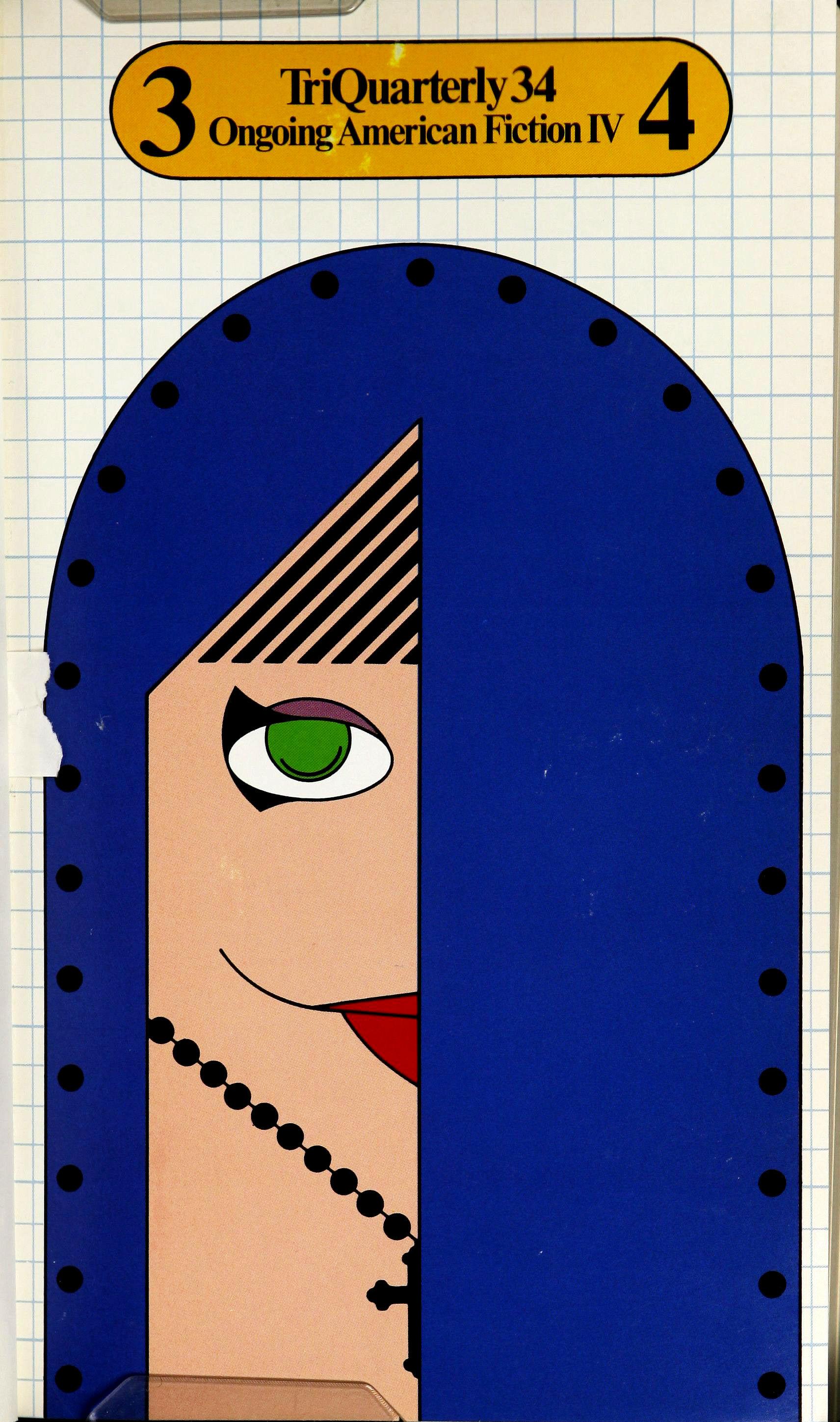
1 t I 1111

EDITOR Elliott Anderson
ART DIRECTOR ..•..•..••.. Lawrence Levy
MANAGING EDITOR .....•..• Theresa Maylone
ASSOCIATE EDITORS
ASSISTANT EDITORS
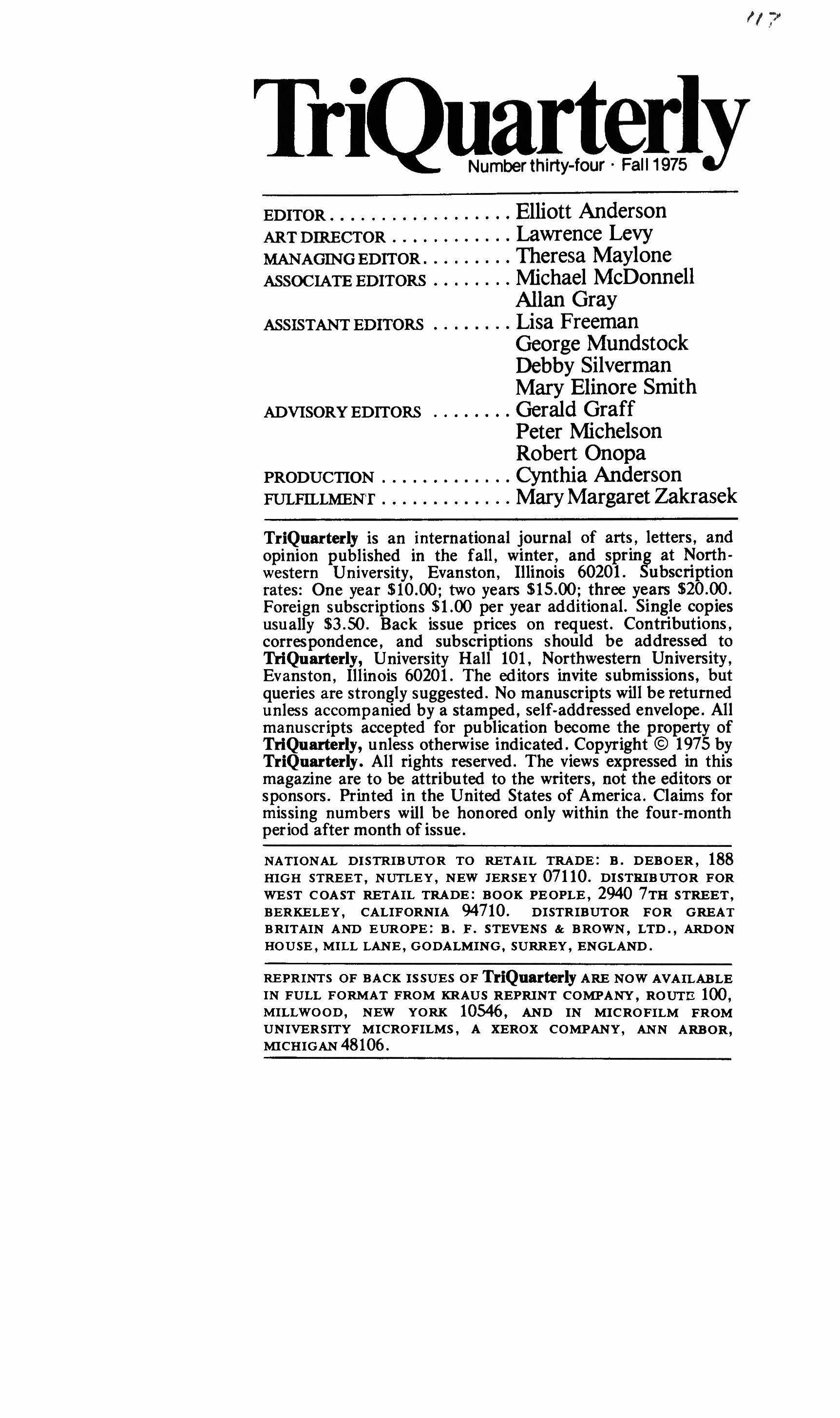
ADVISORY EDITORS
PRODUCTION
FULFll.LMENT .•...........
Michael McDonnell
Allan Gray
Lisa Freeman
George Mundstock
Debby Silverman
Mary Elinore Smith
Gerald Graff
Peter Michelson
Robert Onopa
Cynthia Anderson
MaryMargaret Zakrasek
TriQuarterly is an international journal of arts, letters, and opinion published in the fall, winter, and spring at Northwestern University, Evanston, Illinois 60201. Subscription rates: One year $10.00; two years $15.00; three years $20.00. Foreign subscriptions $1.00 per year additional. Single copies usually $3.SO. Back issue prices on request. Contributions, correspondence, and SUbscriptions should be addressed to TriQuartel'ly, University Hall 101, Northwestern University, Evanston, Illinois 60201. The editors invite submissions, but queries are strongly suggested. No manuscripts will be returned unless accompanied by a stamped, self-addressed envelope. All manuscripts accepted for publication become the property of TriQuartel'ly, unless otherwise indicated. Copyright © 1975 by TriQuartel'ly. All rights reserved. The views expressed in this magazine are to be attributed to the writers, not the editors or sponsors. Printed in the United States of America. Claims for missing numbers will be honored only within the four-month period after month of issue.
NATIONAL DISTRIBUTOR TO RETAIL TRADE: B. DEBOER, 188 mGH STREET, NUTLEY, NEW JERSEY 07110. DISTRIBUTOR FOR WEST COAST RETAIL TRADE: BOOK PEOPLE, 2940 7TH STREET, BERKELEY, CALIFORNIA 94710. DISTRIBUTOR FOR GREAT BRITAIN AND EUROPE: B. F. STEVENS &: BROWN, LTD., ARDON HOUSE, MILL LANE, GODALMING, SURREY, ENGLAND.
REPRINTS OF BACK ISSUES OF TriQuarterly ARE NOW AVAILABLE IN FULL FORMAT FROM KRAUS REPRINT COMPANY, ROUTE 100, MILLWOOD, NEW YORK 10546, AND IN MICROFILM FROM UNIVERSITY MICROFILMS, A XEROX COMPANY, ANN ARBOR, MICHIGAN 48106.
1/ ?'
CHARLES NEWMAN
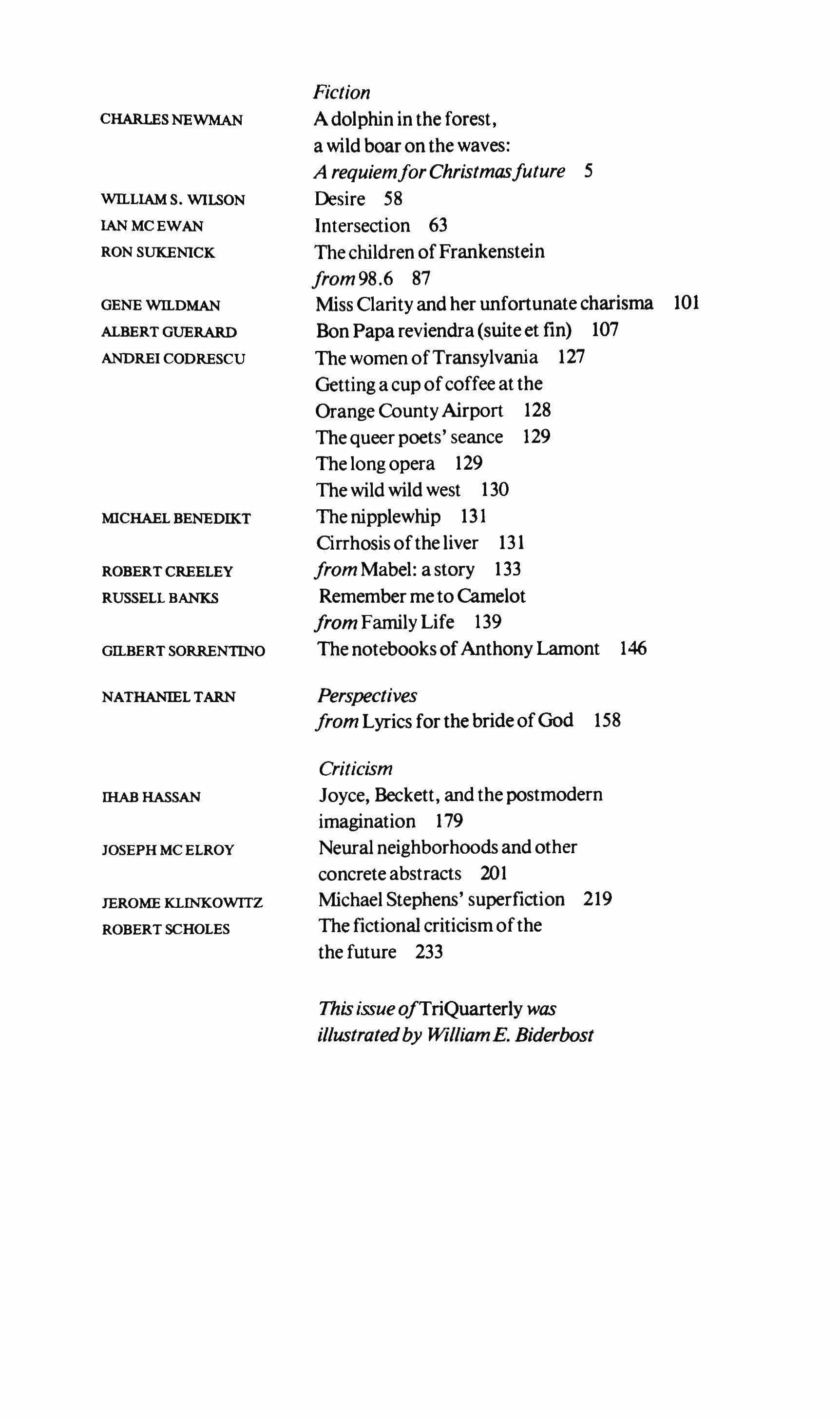
Wll..LlAM S. WILSON
IAN MCEWAN
RON SUKENICK
GENE Wll..DMAN
ALBERT GUERARD
ANDREI CODRESCU
MICHAEL BENEDIKT
ROBERT CREELEY
RUSSELL BANKS
GILBERT SORRENTINO
NATHANIEL TARN
ffiAB HASSAN
JOSEPH Me ELROY
JEROME KLINKOWITZ
ROBERT SCHOLES
Fiction
A dolphin in the forest, a wild boar on the waves: A requiemforChristmasfuture 5
Desire 58
Intersection 63
The children ofFrankenstein from98.6 87
Miss Clarity and her unfortunate charisma 101 Bon Papa reviendra (suite et fin) 107
The women ofTransylvania 127
Getting a cup ofcoffee at the Orange CountyAirport 128
The queer poets' seance 129
The long opera 129
The wild wild west 130
The nipplewhip 131
Cirrhosis ofthe liver 131 from Mabel: a story 133
Remember me to Camelot from Family Life 139
The notebooks ofAnthony Lamont 146
Perspectives fromLyrics for the bride ofGod 158
Criticism
Joyce, Beckett, and the postmodern imagination 179
Neural neighborhoods and other concrete abstracts 201
Michael Stephens' superfiction 219 The fictional criticism ofthe the future 233
This issue ofTriQuarterly was illustratedby WilliamE. Biderbost

With issues33/34, CharlesNewman, Editorandfounderofthisjournal, resigned. He willcontinue to serve in an advisorycapacity.
ElliottAnderson, presentExecutive Editor, assumes editorship.
TheresaMaylone, ManagingEditor, andLawrenceLevy,'ArtDirector, willcontinue to have thingspretty much their own way.
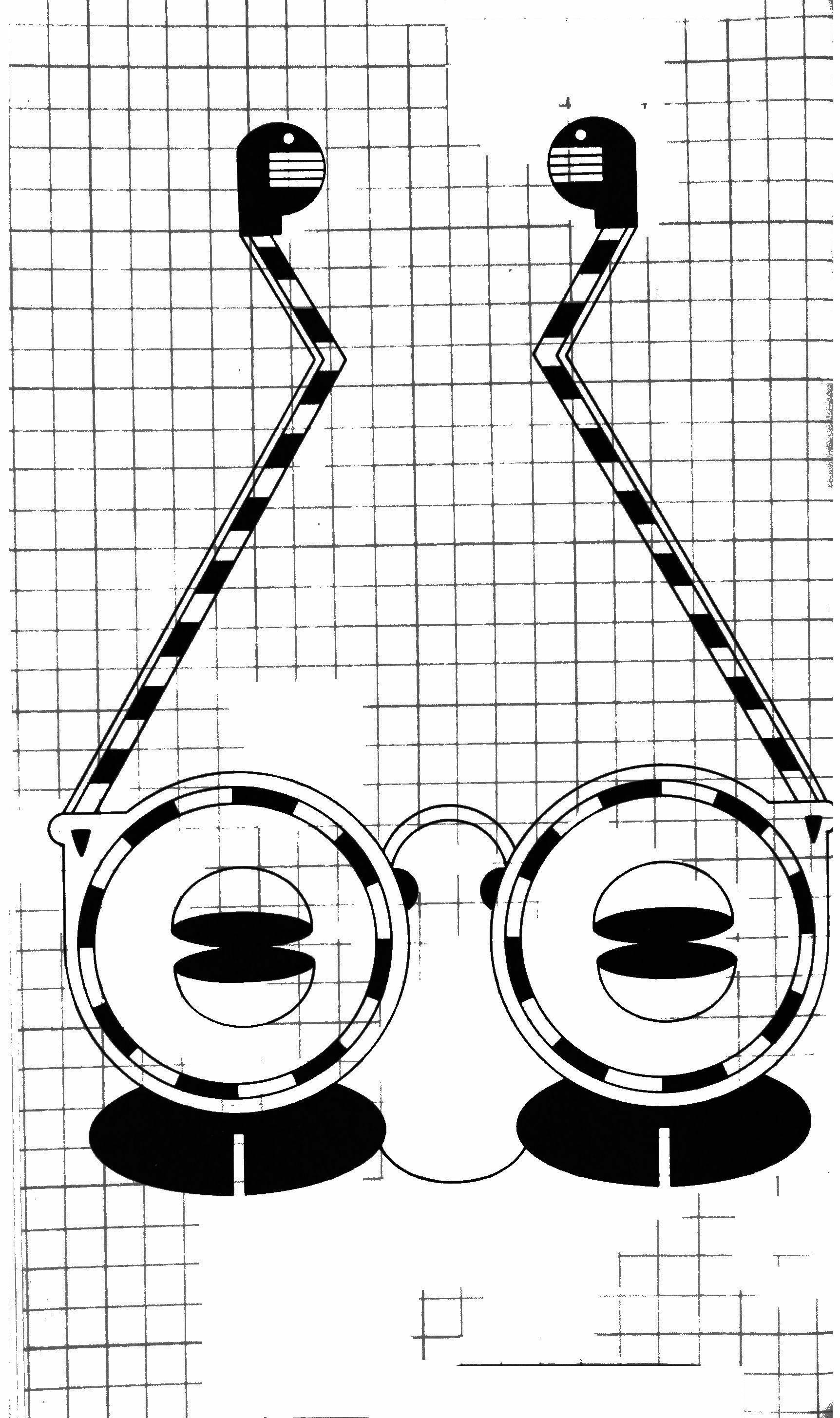
A dolphin in the forest, a wild boar on the waves: A requiemfor Christmasfuture
Charles Newman
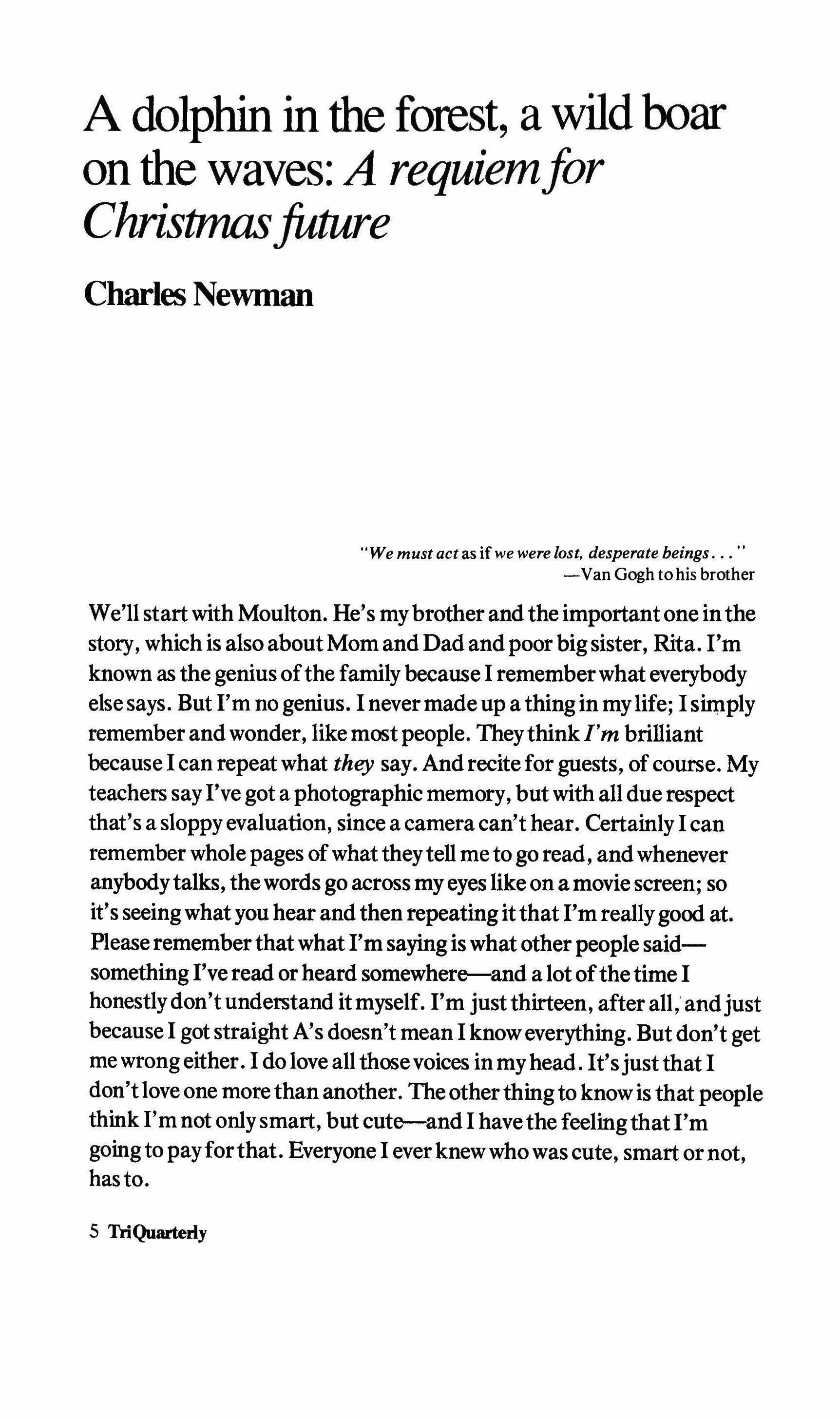
We must act as if we were lost, desperate beings - Van Gogh to his brother
We'll start with Moulton. He's mybrother and the important one inthe story, which is also about Mom and Dad and poor bigsister, Rita. I'm known as the genius ofthe family because I rememberwhat everybody else says. But I'm no genius. I never made up a thing in my life; I simply remember andwonder, like most people. Theythink 1'm brilliant because I can repeatwhat they say. Andrecitefor guests, of course. My teachers say I've got a photographic memory, but with all due respect that's a sloppyevaluation, since a camera can'thear. Certainly I can remember whole pages ofwhat theytell me to go read, and whenever anybodytalks, thewords go across my eyes like on a movie screen; so it's seeingwhat you hear and then repeatingitthat I'm reallygood at. Please rememberthatwhat I'm sayingis what other people saidsomething I'veread or heard somewhere-and a lotofthetime I honestlydon't understand itmyself. I'm justthirteen, after all, andjust because I gotstraight A's doesn't mean I knoweverything. Butdon't get me wrongeither. I do love all thosevoices inmyhead. It'sjustthat I don'tlove one more than another. The otherthingto knowis that people think I'm not onlysmart, but cute-and I havethe feelingthat I'm going to payforthat. Everyone I ever knewwho was cute, smart or not, has to.
S TriQuarterly
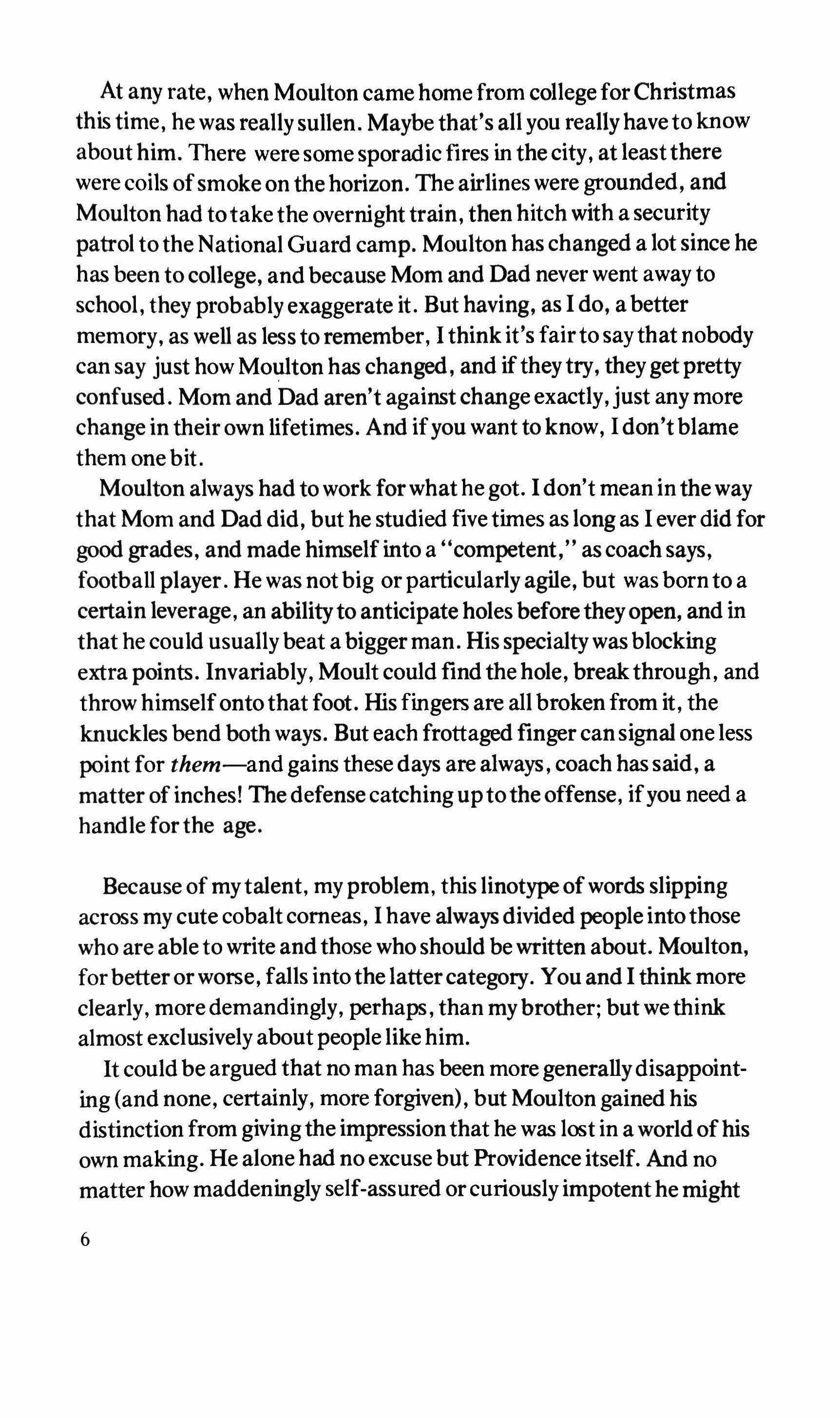
At any rate, when Moulton came home from college for Christmas this time, he was really sullen. Maybe that's all you reallyhave to know about him. There were some sporadic fires in the city, at leastthere were coils ofsmoke on thehorizon. The airlines were grounded, and Moulton had totake the overnight train, then hitch with a security patrol to the National Guard camp. Moulton has changed a lot since he has been to college, and because Mom and Dad never went away to school, they probablyexaggerate it. But having, as I do, a better memory, as well as less to remember, I think it's fairto saythat nobody can say just how Moulton has changed, and iftheytry, theygetpretty confused. Mom and Dad aren't againstchangeexactly,just any more change in their own lifetimes. And ifyou want to know, I don't blame them one bit.
Moulton always had to work forwhathe got. I don't mean in theway that Mom and Dad did, but he studied five times as long as I ever did for good grades, and made himself into a "competent," as coach says, football player. He was not big or particularlyagile, but was born to a certain leverage, an abilityto anticipate holes beforetheyopen, and in that he could usuallybeat a bigger man. His specialty was blocking extra points. Invariably, Moult could find the hole, breakthrough, and throw himself onto that foot. His fingers are all broken from it, the knuckles bend both ways. But each frottagedfinger can signal one less point for them-and gains these days are always, coach hassaid, a matter of inches! The defense catchinguptothe offense, ifyou need a handle forthe age.
Because of mytalent, my problem, this linotypeofwords slipping across my cute cobalt corneas, I have always divided people intothose who are able to write andthose who should bewritten about. Moulton, forbetter or worse, falls into the lattercategory You and I think more clearly, more demandingly, perhaps, than mybrother; but we think almost exclusively about people like him.
It could be argued that no man has been more generallydisappointing (and none, certainly, more forgiven), but Moulton gained his distinction from givingthe impressionthat he was lost in a world ofhis own making. He alone had no excuse but Providence itself. And no matter how maddeningly self-assured or curiouslyimpotent he might
6
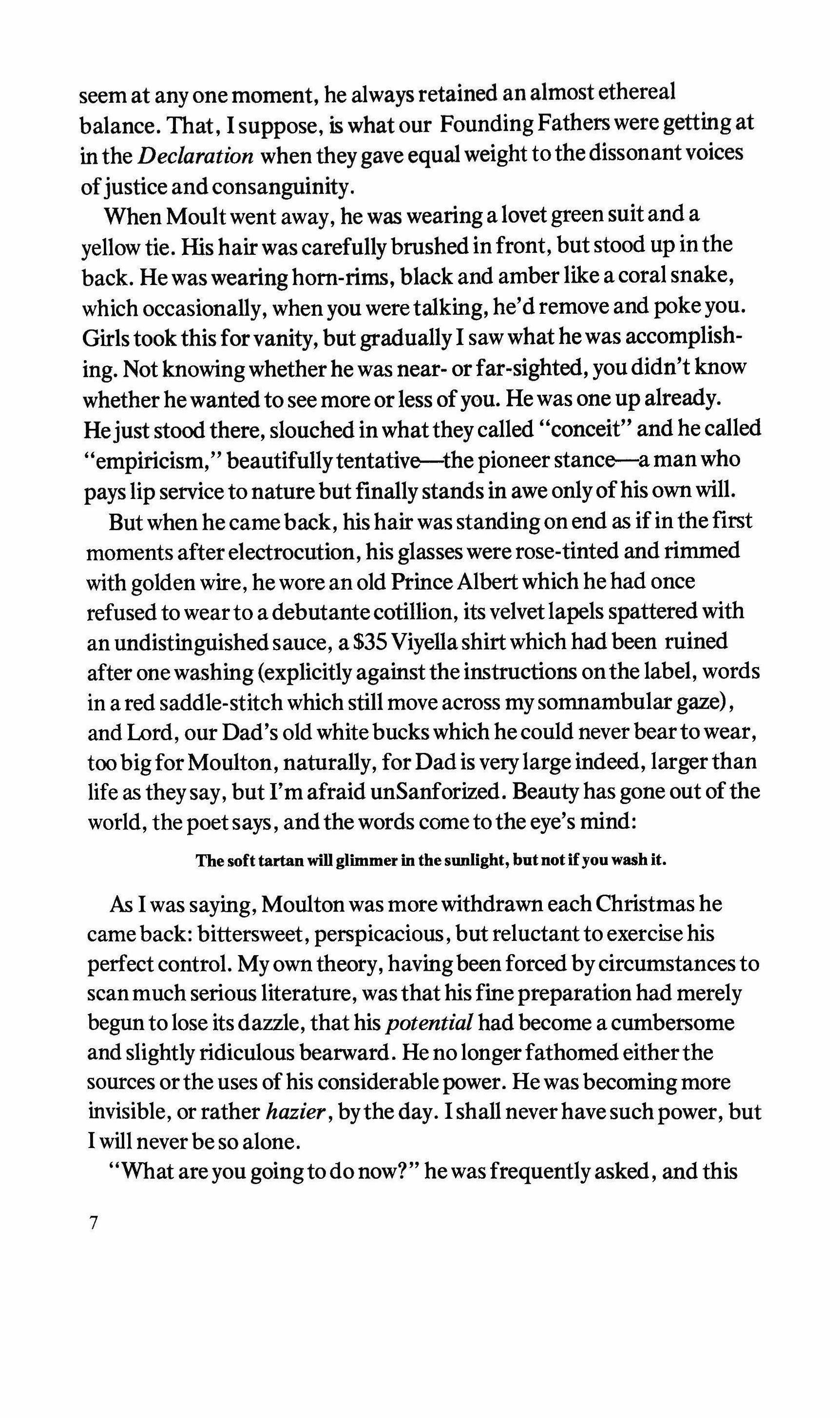
seem at anyone moment, he always retained an almost ethereal balance. That, I suppose, is what our Founding Fathers were getting at in the Declaration when they gave equalweight to the dissonant voices ofjustice andconsanguinity.
When Moultwent away, he was wearing a lovetgreen suitand a yellow tie. His hair was carefullybrushed in front, but stood up inthe back. He was wearinghom-rims, black and amber like a coral snake, which occasionally, when you were talking, he'd remove and poke you. Girls tookthis forvanity, but gradually I saw what he was accomplishing. Not knowingwhether he was near- or far-sighted, you didn't know whether hewanted to see more or less ofyou. He was one up already. Hejust stood there, slouched inwhattheycalled"conceit" and he called "empiricism," beautifullytentative--thepioneer stance--a man who pays lip service to nature but finally stands in awe onlyofhis own will.
But when he came back, his hair was standing on end as if in thefirst moments after electrocution, his glasses were rose-tinted and rimmed with golden wire, he wore an old Prince Albert which he had once refused to wear to a debutantecotillion, its velvet lapels spattered with an undistinguished sauce, a $35 Viyellashirtwhich had been ruined after one washing(explicitlyagainst the instructions on the label, words in a red saddle-stitch which still move across mysomnambular gaze) and Lord, our Dad's old white buckswhich he could never bearto wear, too big for Moulton, naturally, for Dad is verylargeindeed, largerthan life as they say, but I'm afraid unSanforized. Beauty has gone out ofthe world, the poet says, andthe words come to the eye's mind:
The soft tartan will glimmer in the sunlight, but not ifyou wash it.
As I was saying, Moulton was more withdrawn each Christmas he came back: bittersweet, perspicacious, but reluctant to exercise his perfectcontrol. My own theory, havingbeen forcedbycircumstancesto scan much serious literature, was that hisfine preparation had merely begun to lose its dazzle, that his potential had become a cumbersome and slightly ridiculous bearward. He no longerfathomed eitherthe sources or the uses ofhis considerable power. He was becoming more invisible, or rather hazier, bythe day. I shall never have such power, but I will never be so alone.
"What are you goingto do now?" he was frequentlyasked, and this
7
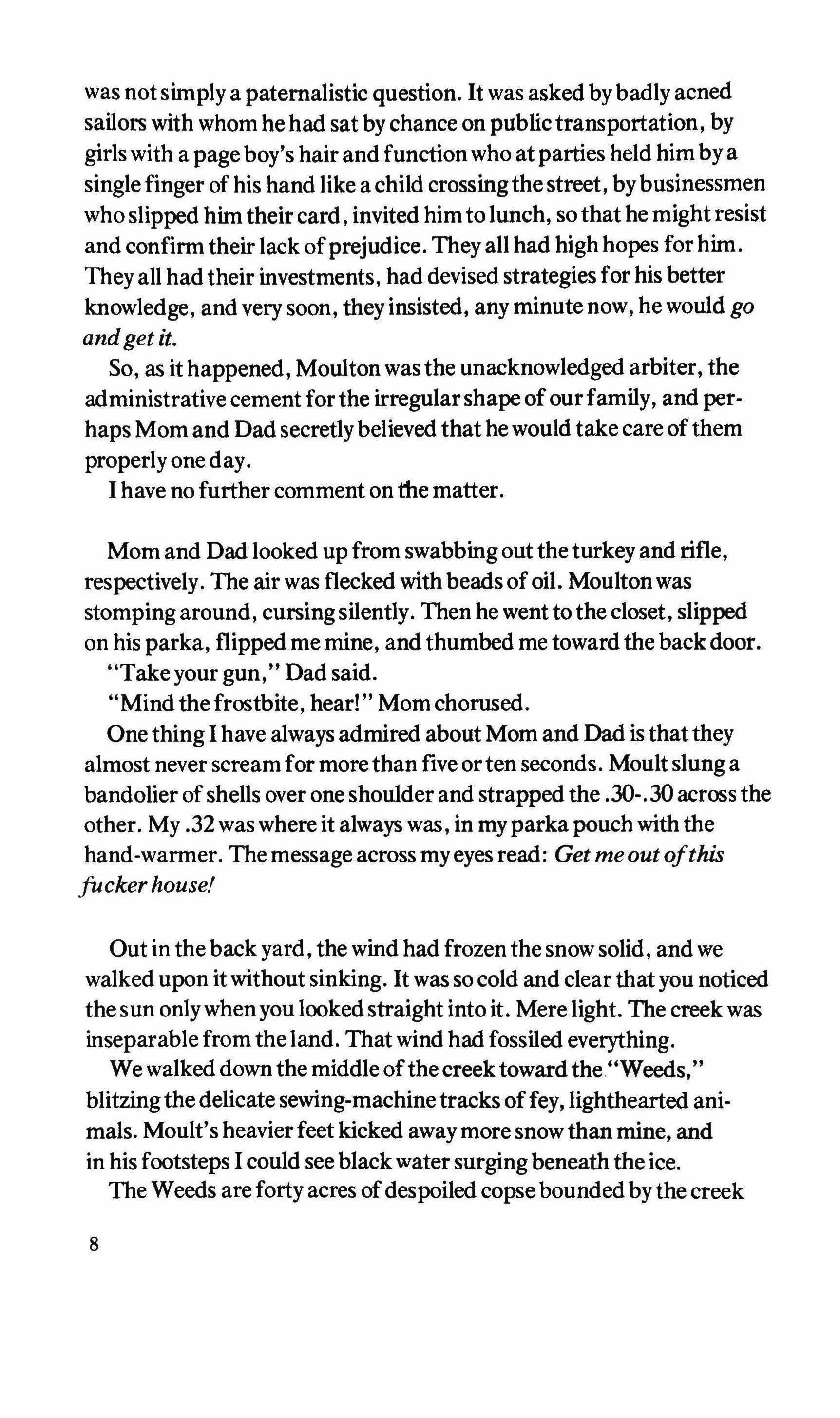
was not simply a paternalistic question. It was asked bybadly acned sailors with whom hehad sat by chance on publictransportation, by girlswith a page boy's hair and functionwho at parties held him by a singlefinger of his hand like a child crossingthe street, bybusinessmen who slipped him their card, invited him to lunch, so that he might resist and confirm their lack ofprejudice. They all had highhopes for him. They all had their investments, had devised strategies for his better knowledge, and very soon, theyinsisted, any minute now, he would go andgetit.
So, as it happened, Moulton was the unacknowledged arbiter, the administrative cement forthe irregularshape of our family, and perhaps Mom and Dad secretlybelieved that hewould take care ofthem properly one day.
I have no further comment on the matter.
Mom and Dad looked up from swabbing out theturkey and rifle, respectively. The air was flecked with beads ofoil. Moulton was stompingaround, cursingsilently. Then he went to the closet, slipped on his parka, flipped me mine, and thumbed me toward the back door.
"Takeyour gun," Dad said.
"Mind thefrostbite, hear!" Mom chorused.
One thing I have always admired about Mom and Dad is thatthey almost never scream for more than five or ten seconds. Moult slung a bandolier ofshells over one shoulder and strapped the .30-.30 across the other. My .32 was where it always was, in my parkapouch with the hand-warmer. The message across myeyes read: Get me out ofthis fucker house!
Out in theback yard, the wind had frozen the snow solid, and we walked upon itwithout sinking. It was so cold and clear thatyou noticed the sun onlywhen you lookedstraight into it. Mere light. The creek was inseparable from theland. That wind had fossiled everything.
We walked down themiddleofthecreektowardthe."Weeds," blitzingthe delicate sewing-machinetracks offey, lighthearted animals. Moult's heavierfeet kicked away more snow than mine, and in his footsteps I could see black water surgingbeneath the ice.
The Weeds are forty acres ofdespoiled copseboundedbythe creek
8
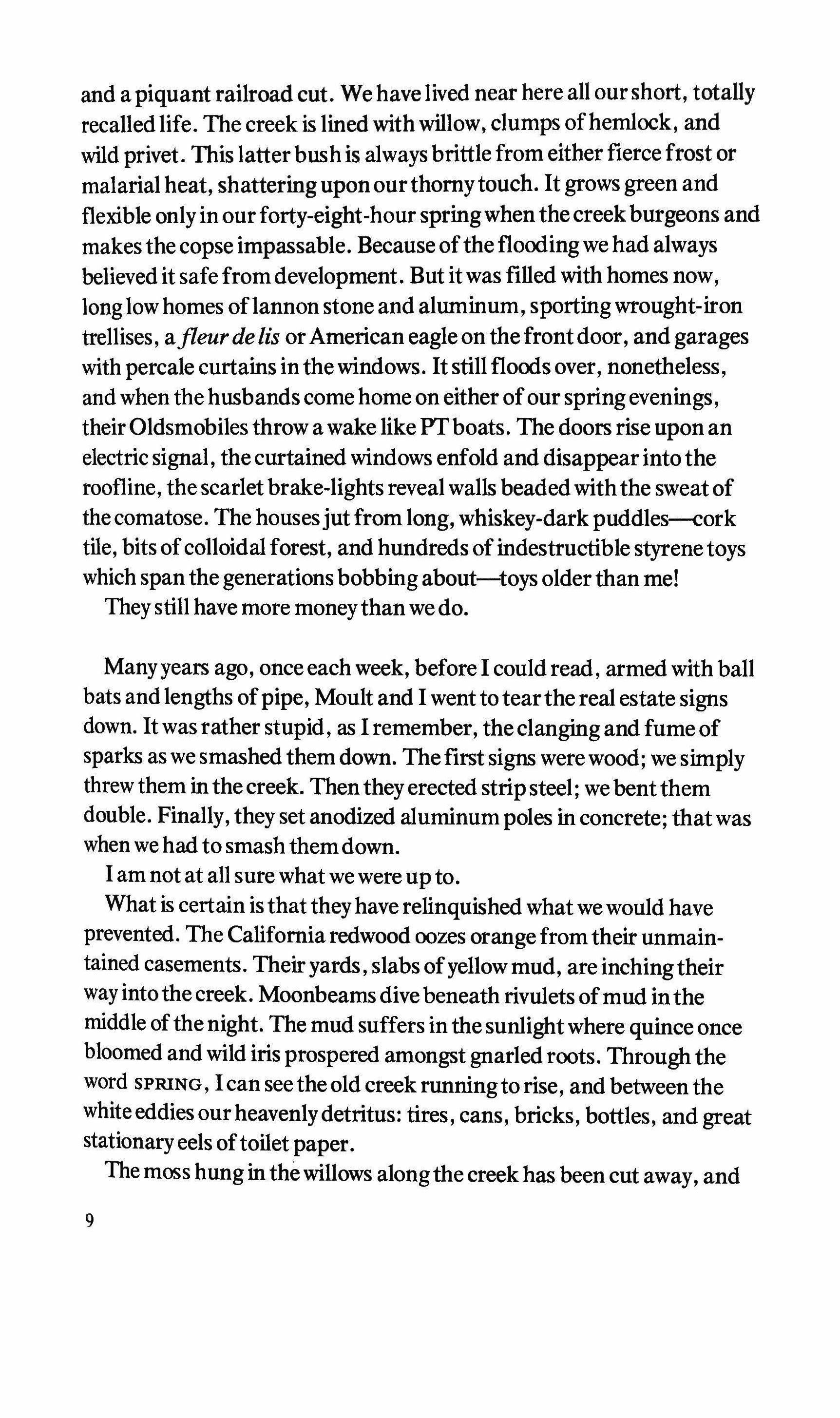
and a piquant railroad cut. We have lived near here all our short, totally recalledlife. The creek is lined with willow, clumps ofhemlock, and wild privet. This latter bush is always brittle from either fierce frost or malarial heat, shattering upon our thornytouch. It grows green and flexible only in ourforty-eight-hour springwhen the creekburgeons and makesthe copse impassable. Because oftheflooding we had always believed it safe fromdevelopment. But it was filled with homes now, longlowhomes oflannon stone and aluminum, sportingwrought-iron trellises, afleurdelis or American eagle on thefrontdoor, and garages with percale curtains inthewindows. It still floods over, nonetheless, and when the husbands come home on either of our springevenings, theirOldsmobiles throw a wake like Pfboats. The doors rise upon an electric signal, the curtained windows enfold and disappear into the roofline, the scarletbrake-lights reveal walls beadedwiththe sweat of the comatose. The housesjut from long,whiskey-darkpuddles-cork tile, bits ofcolloidal forest, and hundreds ofindestructible styrenetoys which spanthe generationsbobbingabout-toys older than mel Theystill have more moneythan we do.
Manyyears ago, once each week, before I could read, armed with ball bats andlengths ofpipe, Moult and I went to tearthe real estate signs down. It was rather stupid, as I remember, theclangingand fumeof sparks as we smashed them down. Thefirst signs were wood; we simply threw them in thecreek. Then theyerected stripsteel; we bentthem double. Finally,they set anodized aluminum poles in concrete; that was when we had to smash themdown.
I am not at all sure what we were up to.
What is certain is that they have relinquished what we would have prevented. The Californiaredwood oozes orangefrom their unmaintained casements. Their yards, slabs ofyellowmud, are inchingtheir way intothecreek. Moonbeams dive beneath rivulets ofmud inthe middle ofthenight. The mud suffers inthesunlightwhere quince once bloomed and wild iris prospered amongstgnarled roots. Through the word SPRING, lean seetheold creek runningto rise, and between the whiteeddies our heavenlydetritus: tires, cans, bricks, bottles, and great stationaryeels oftoilet paper.
The moss hung in thewillows alongthe creek has been cut away, and 9
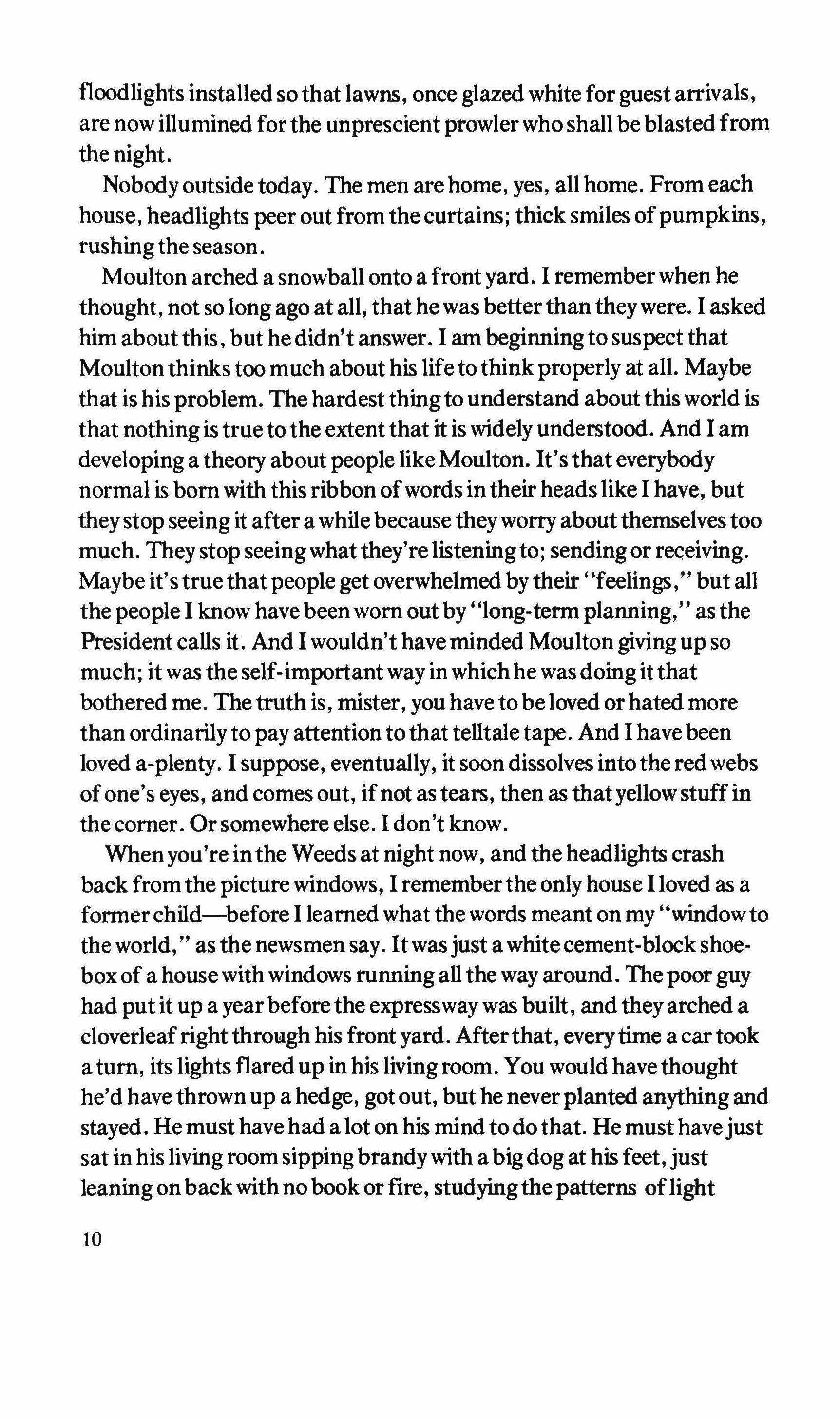
floodlights installed so that lawns, once glazed white forguestarrivals, are now illumined forthe unprescientprowlerwho shall be blasted from the night.
Nobody outside today. The men are home, yes, all home. From each house, headlights peer out from the curtains; thick smiles of pumpkins, rushingthe season.
Moulton arched a snowball onto a front yard. I remember when he thought. not so long ago at all, that he was betterthan they were. I asked him about this. but he didn't answer. I am beginning to suspect that Moulton thinks too much about his life to think properly at all. Maybe that is his problem. The hardest thingto understand about this world is that nothingis true to the extent that it is widely understood. And I am developing a theory about people like Moulton. It's that everybody normal is born with this ribbon ofwords in their heads like I have, but theystop seeing it after a whilebecause theyworry aboutthemselves too much. Theystop seeingwhat they'relisteningto; sending or receiving. Maybe it's true that peopleget overwhelmed by their "feelings," but all the people I know have been worn out by"long-termplanning," as the President calls it. And I wouldn't have minded Moulton giving up so much; it was the self-important way in whichhe was doingitthat bothered me. The truth is, mister, you have to beloved or hated more than ordinarily to pay attention to that telltale tape. And I havebeen loved a-plenty. I suppose, eventually, it soon dissolves intothe redwebs ofone's eyes, and comes out, ifnot as tears, then as thatyellowstuff in the comer. Orsomewhere else. I don't know.
Whenyou're inthe Weeds at night now, and the headlights crash back fromthe picturewindows, I rememberthe only house I loved as a formerchild-before I learned what thewords meant on my "window to the world," as the newsmen say. It was just a white cement-block shoeboxof a house with windows running all the way around. Thepoorguy had put it up a yearbefore the expressway was built, and theyarched a cloverleaf rightthrough his front yard. Afterthat, everytime a car took a tum, its lights flared up in his living room. You would havethought he'd have thrown up a hedge, gotout, but he never plantedanything and stayed. He must have had a lot on his mind to dothat. He must havejust sat in his living room sippingbrandywith a bigdog at his feet,just leaning on backwith no book or fire, studyingthepatterns oflight
10

sweepingthe wall, and not a little warmed by the glare crackling through his glass.
And I wonderedwhat he did now with no traffic, no snarl and thud and haste and honk, no lights save the blue strobesofthe patrols. I rememberwatching Dad when you could go to work in the city, whenthe expressway hadjust been finished, watchinghimfromtheridge, his big puce car caughtbetween theothersealed and waxen commuters, exhaust fumes rising overthe splattered dogs, asphalt seams smacking, smooching, popping, as they went to get the money before it got too dark.
We're in the silenttrough of some gigantic wave.
We followed the creek until it dodged into a culvert beneath the expressway. Thetraffic was sparse; the orange lightfor generalsecurity was lit. Only an occasional coaltruck, weavingto avoid thepotholes. Pretty soon the old greenZenithwould be plowingalongthe median strip, her upper windows busted out for machine-guns, the bar car filled with monitoringequipment and a complement ofsecuritypatrol.
In thedark oftheculvert, Moulton againstomped and cursed. No ice here, the water coursing over myboots, and light, nothing save light, such blindinglight, at both ends.
As we emerged, Moulton reached back and took myhand, but instead ofcontinuinginto the PopularForest, he turned upthe embankment, backtowardthe expressway. Wecrawledbeneaththe barbwire and jumped the restrainingbarrier. The four lanes were badly buckled and faulted. I looked both ways out of redundanthabit, and then, as my brother againtook me bythe arm, I knewwhat was coming up. Chicken.
Chicken was a game. We had played itwiththe Zenithwhen she was still a commuter.
Moulton led me over thenorthbound restrainingrail and out onto the median strip. His hands were cold as thetracks we knelt over. I gave him one hard look and then laydown. I hadn'tforgotten how. The tape was wet and blurry. I was damned if I would cry. I knewthe rules. Moulton pressed myhead ontotherail and turned my face inthe direction oftheZenith. Then helaydown solemnlybehind.
I tucked myscarfin, the rail was cold, and I could hearthehum of
11
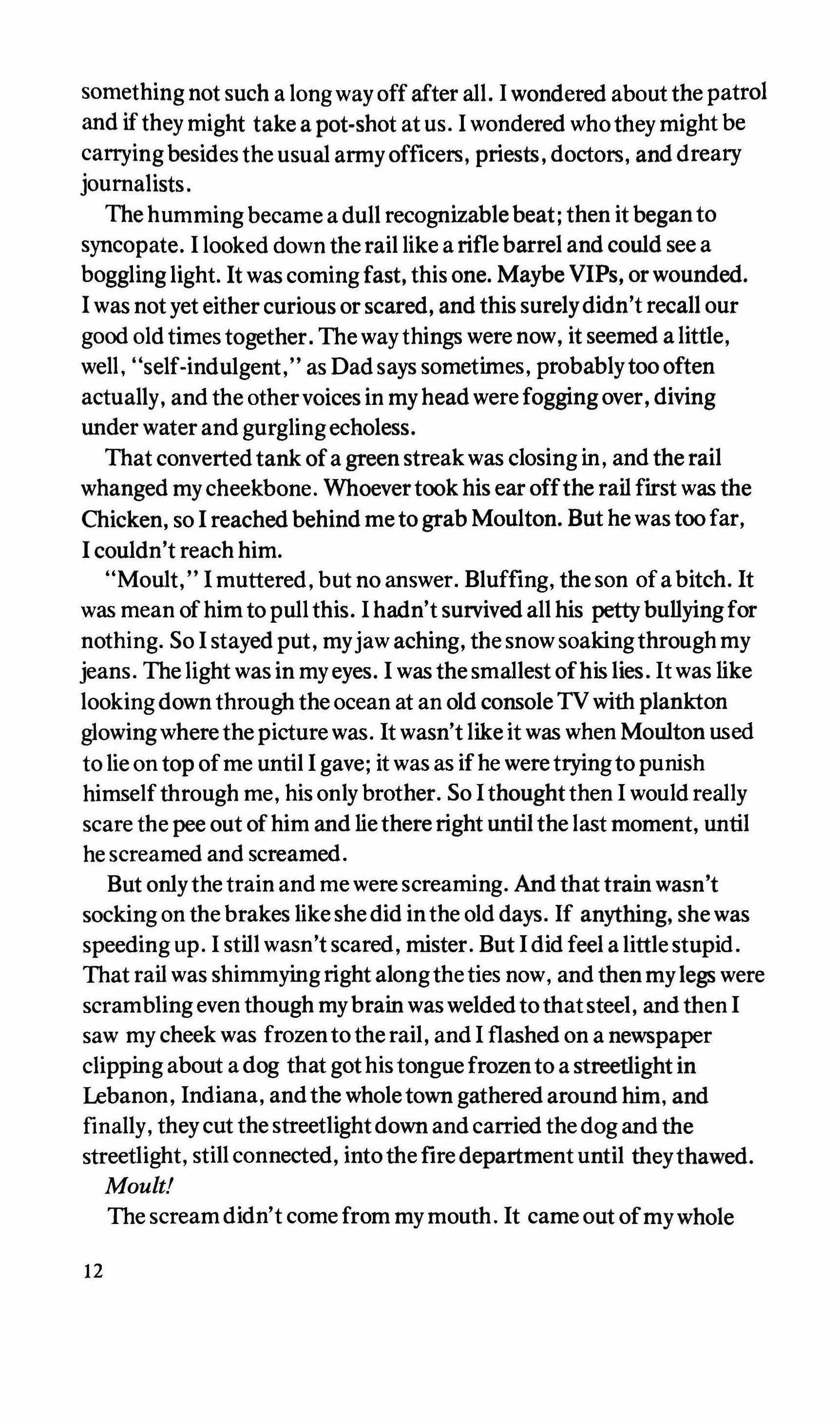
something not such a long way off after all. I wondered about the patrol and iftheymight take a pot-shot at us. I wondered whotheymight be carryingbesides the usual army officers, priests, doctors, and dreary journalists.
The humming became a dull recognizablebeat; then it began to syncopate. I looked down the rail like a rifle barrel and could see a bogglinglight. It was comingfast, this one. Maybe VIPs, or wounded. I was not yet either curious or scared, and this surelydidn't recall our good old times together. The waythings were now, it seemed a little, well, "self-indulgent," as Dad says sometimes, probablytoo often actually, and the othervoices in myhead were fogging over, diving under water and gurglingecholess.
That converted tank of a green streak was closingin, and the rail whanged my cheekbone. Whoevertook his ear offthe rail first was the Chicken, so I reached behind me to grab Moulton. But he was too far, I couldn't reach him.
"Moult," I muttered, but no answer. Bluffing, the son of a bitch. It was mean ofhim to pullthis. I hadn't survived all his pettybullyingfor nothing. So I stayed put, myjawaching, the snow soakingthrough my jeans. The light was in my eyes. I was the smallest ofhis lies. It was like lookingdown through the ocean at an old console TVwith plankton glowingwherethe picture was. It wasn't likeit was when Moulton used to lie on top of me until I gave; it was as ifhe were trying to punish himselfthrough me, his only brother. So I thoughtthen I would really scare the pee out ofhim and liethere right untilthe last moment, until he screamed and screamed.
But onlythe train and me were screaming. And that train wasn't socking on the brakes likeshedid inthe old days. If anything, she was speeding up. I still wasn't scared, mister. But I did feel a little stupid. That rail was shimmyingrightalongtheties now, and thenmylegs were scrambling even though mybrain was welded to thatsteel, and then I saw my cheek was frozen to therail, and I flashed on a newspaper clippingabout a dog that gothistonguefrozento a streetlight in Lebanon, Indiana, andthe wholetown gathered around him, and finally, they cut the streetlightdown and carried thedog and the streetlight, still connected, intothefiredepartment until theythawed. Moult!
The scream didn't come from my mouth. It came out ofmywhole
12
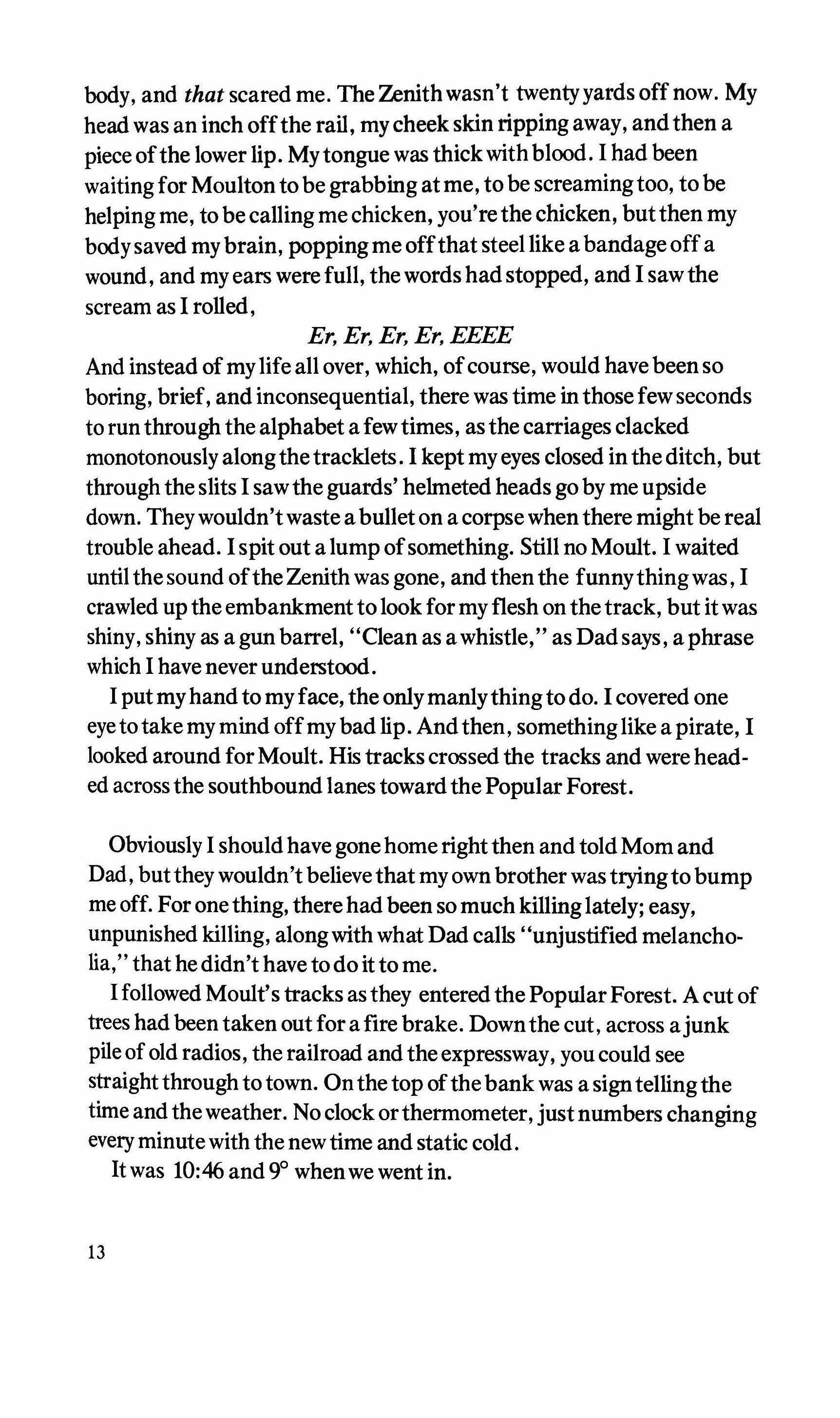
body, and that scared me. The Zenith wasn't twentyyards off now. My head was an inch offthe rail, my cheek skin ripping away, andthen a piece ofthe lower lip. Mytongue was thickwithblood. I had been waitingfor Moulton to be grabbing at me, to be screamingtoo, to be helping me, to be calling me chicken, you'rethe chicken, butthen my bodysaved my brain, popping me offthat steel like a bandageoff a wound, and my ears were full, thewordshad stopped, and I saw the scream as I rolled,
Er, Er, Er, Er, EEEE
And instead ofmylife all over, which, ofcourse, would havebeen so boring, brief, and inconsequential, there was time inthosefewseconds to run through the alphabet a fewtimes, as the carriages clacked monotonouslyalongthetracklets. I kept my eyes closed intheditch, but through theslits I saw the guards' helmeted heads goby me upside down. Theywouldn't waste a bullet on a corpse whenthere might be real trouble ahead. I spit out a lump ofsomething. Still no Moult. I waited untilthesound oftheZenith was gone, and thenthe funnything was I crawled up theembankment to look formyflesh on thetrack, but it was shiny, shiny as a gun barrel, "Clean as a whistle," as Dad says, a phrase which I have never understood.
I put myhand to myface, theonlymanlything to do. I covered one eyetotake my mind offmy bad lip. Andthen, somethinglike a pirate, I looked around forMoult. His tracks crossed the tracks and were headed across the southbound lanes towardthe Popular Forest.
Obviously I shouldhave gone home rightthen and told Mom and Dad, buttheywouldn't believe that my own brother was tryingto bump me off. For one thing, therehad been so much killinglately; easy, unpunished killing, alongwith what Dad calls "unjustified melancholia," that he didn't have to doitto me.
I followed Moult's tracks as they entered the PopularForest. A cut of trees had been taken out for a fire brake. Downthe cut, across ajunk pile ofold radios, the railroad and theexpressway, you could see straightthrough to town. Onthetop ofthebank was a signtellingthe time and theweather. No clock or thermometer, justnumbers changing everyminute with the new time and static cold. It was 10:46 and 9° when we went in.
13
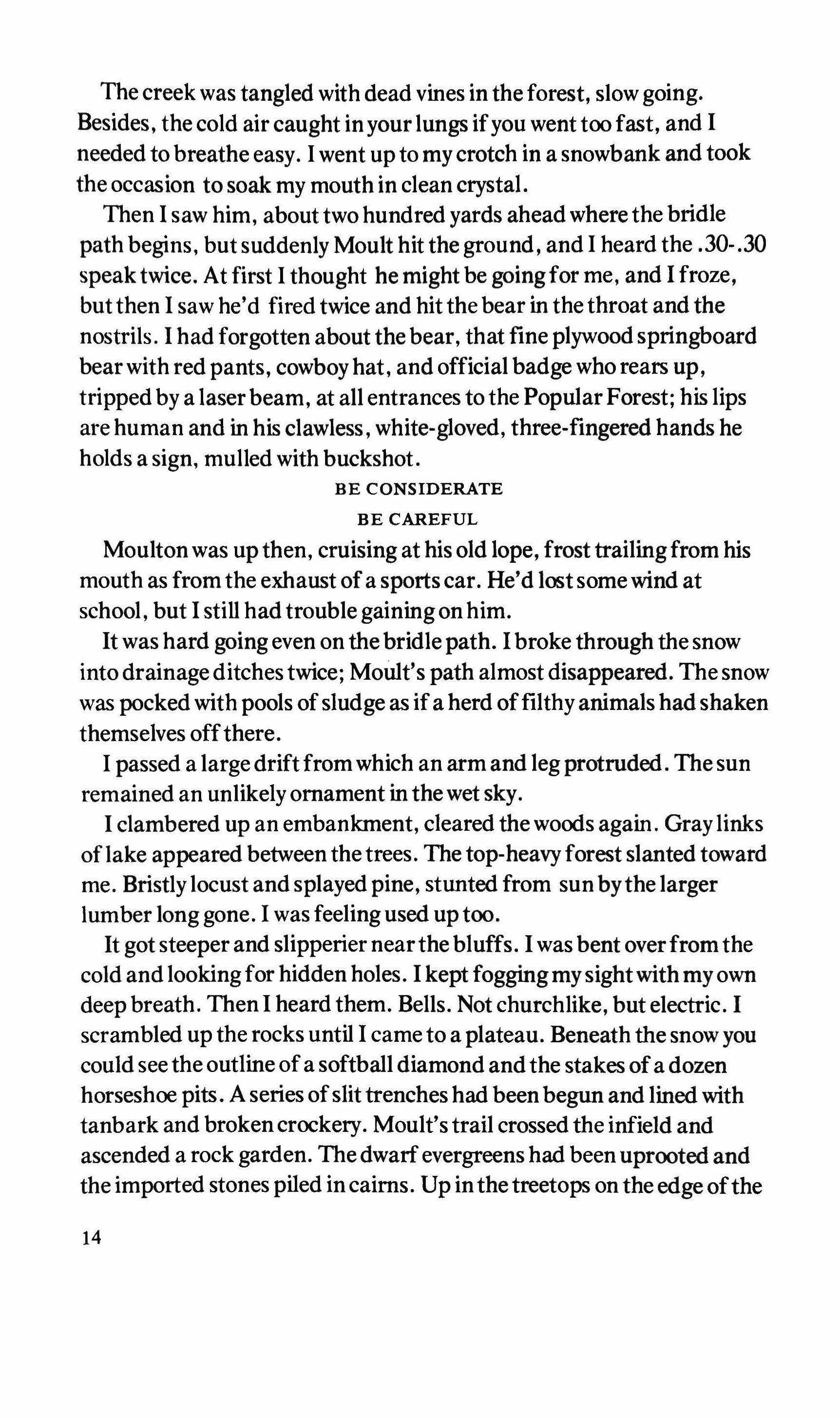
The creek was tangled with dead vines in the forest, slow going. Besides, the cold air caught inyourlungs ifyou wenttoofast, and I needed to breathe easy. I went up to mycrotch in a snowbank and took the occasion to soak my mouth in clean crystal.
Then I saw him, about two hundred yards ahead wherethe bridle pathbegins, but suddenly Moult hit the ground, and I heard the .30-.30 speaktwice. At first I thought he might be goingfor me, and I froze, butthen I saw he'd fired twice and hit the bear in the throat and the nostrils. I had forgotten about the bear, that fine plywoodspringboard bearwith red pants, cowboyhat, and official badge who rears up, trippedby a laserbeam, at all entrances to the PopularForest; his lips are human and in his clawless, white-gloved, three-fingered hands he holds a sign, mulled with buckshot.
BE CONSIDERATE
BE CAREFUL
Moulton was up then, cruising at his old lope, frost trailingfrom his mouth as fromthe exhaust of a sports car. He'd lost some wind at school, but I still had trouble gaining on him.
It was hard going even on thebridle path. Ibroke through the snow into drainage ditches twice; Moult's path almost disappeared. The snow was pocked with pools ofsludge as if a herd offilthy animals had shaken themselves offthere.
I passed a largedriftfromwhich an arm and legprotruded. The sun remained an unlikely ornament inthe wet sky.
I clambered up an embankment, cleared the woods again. Graylinks oflake appeared between the trees. The top-heavyforest slanted toward me. Bristlylocust and splayedpine, stunted from sun bythe larger lumber long gone. I was feelingused up too.
It gotsteeper and slipperier near thebluffs. I was bent over fromthe cold and looking for hidden holes. I keptfoggingmysightwith my own deep breath. Then I heard them. Bells. Not churchlike, but electric. I scrambled up the rocks until I came to a plateau. Beneath the snow you could see theoutline of a softball diamond andthe stakes of a dozen horseshoe pits. A series ofslittrenches had been begun and lined with tanbark and brokencrockery. Moult's trail crossed the infield and ascended a rock garden. The dwarf evergreens had been uprooted and the imported stones piled incairns. Up inthetreetops on the edge ofthe
14
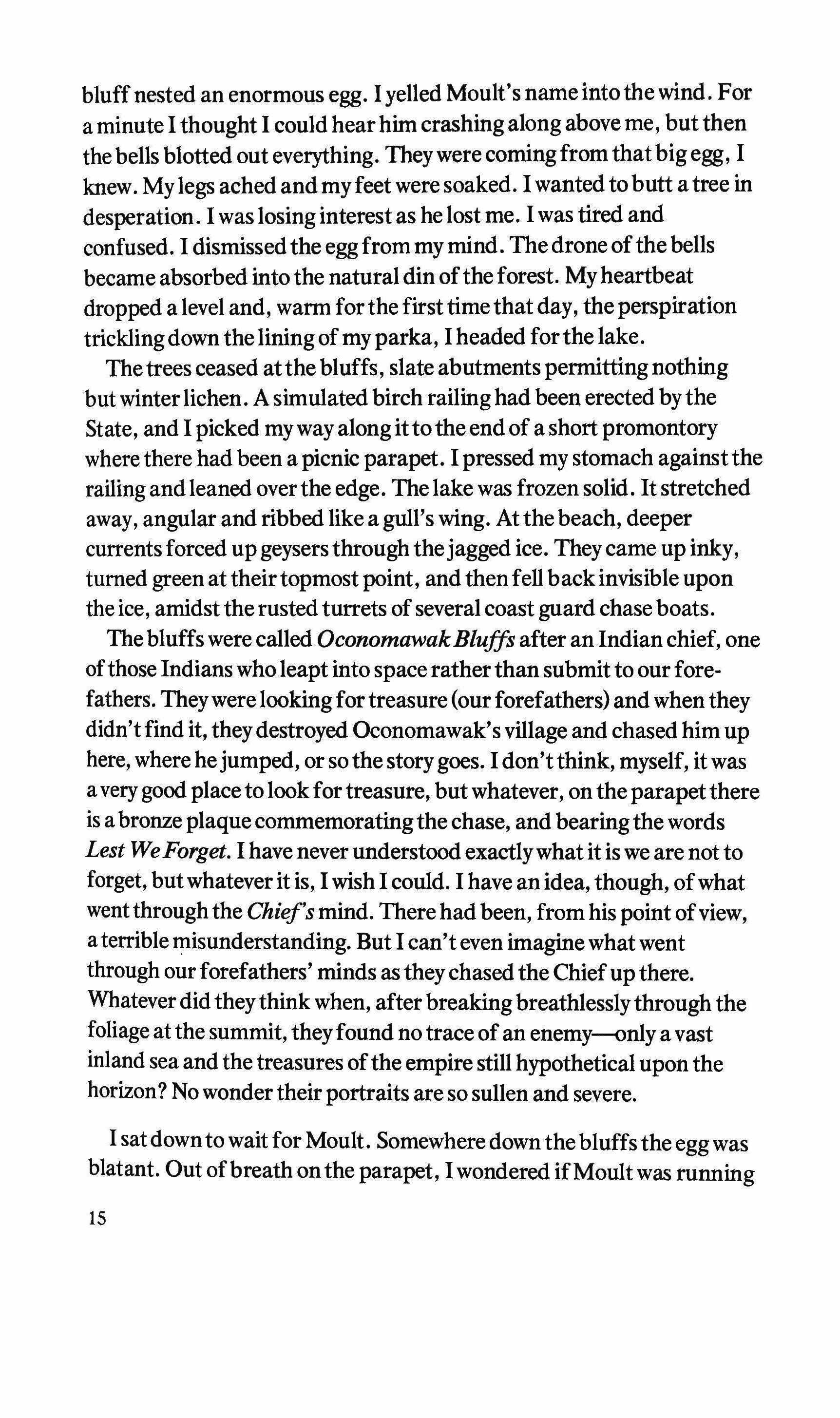
bluffnested an enormous egg. I yelled Moult's name intothewind. For a minute I thought I could hearhim crashingalong above me, butthen thebells blotted out everything. They were comingfrom thatbigegg, I knew. Mylegs ached andmyfeet were soaked. I wanted tobutt a tree in desperation. I was losinginterest as he lost me. I was tired and confused. I dismissedthe eggfrom mymind. The droneofthebells became absorbed intothe natural din oftheforest. Myheartbeat dropped a level and, warm forthe firsttimethatday, the perspiration tricklingdown theliningofmy parka, I headed forthe lake.
Thetrees ceased atthe bluffs, slate abutmentspermittingnothing butwinterlichen. Asimulated birch railinghad been erected bythe State, and I picked myway alongittotheendof a short promontory where there had been a picnic parapet. I pressed my stomach againstthe railing andleaned over the edge. The lake was frozen solid. It stretched away, angular and ribbed like a gull'swing. Atthebeach, deeper currents forced up geysers through thejagged ice. They came up inky, turned green at theirtopmostpoint, and thenfell backinvisible upon theice, amidst therusted turrets ofseveral coast guard chase boats.
Thebluffs were called OconomawakBluffs after an Indian chief, one ofthose Indians wholeapt into space ratherthan submit to our forefathers. They were lookingfortreasure (ourforefathers) and when they didn'tfind it,theydestroyed Oconomawak's village and chased him up here, where hejumped, or so thestorygoes. I don'tthink, myself, it was a very goodplaceto look fortreasure, butwhatever, on theparapetthere is a bronze plaquecommemoratingthe chase, and bearingthewords Lest WeForget. I have never understood exactlywhat it is we are not to forget, butwhatever it is, I wish I could. I have an idea, though, ofwhat wentthroughthe Chief's mind. There had been, from his point ofview, a terriblemisunderstanding. But I can't even imaginewhat went through our forefathers' minds as theychased the Chiefup there. Whateverdidtheythink when, after breakingbreathlesslythrough the foliage at the summit,theyfound no trace of an enemy-only a vast inland sea and the treasures ofthe empire still hypothetical upon the horizon? Nowondertheirportraits are so sullen and severe.
I satdownto wait for Moult. Somewhere downthebluffs the egg was blatant. Out ofbreath on the parapet, Iwondered ifMoult was running
15
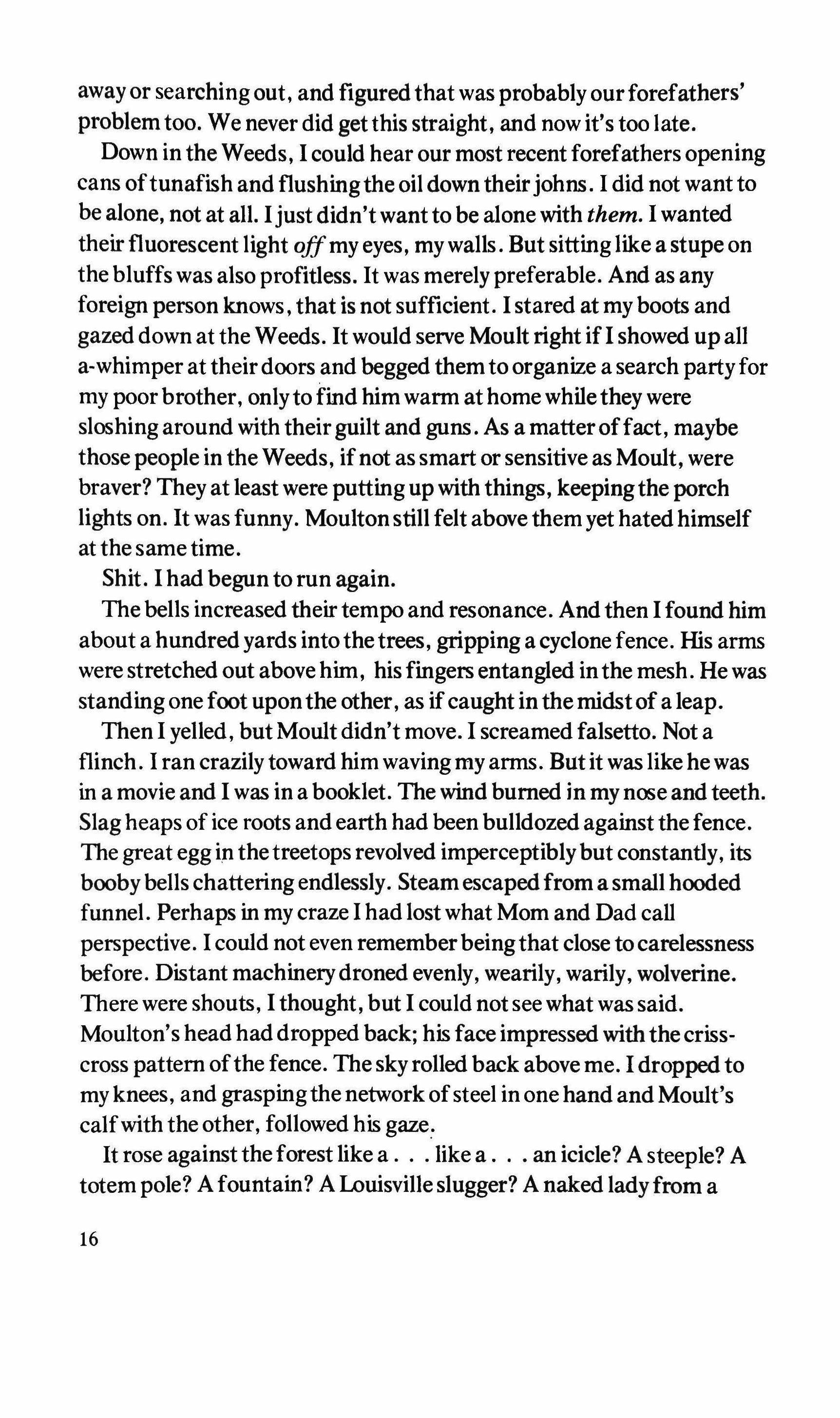
away or searchingout. and figuredthat was probably our forefathers' problem too. We never did getthis straight. and now it's too late. Down in the Weeds. I could hear our most recent forefathers opening cans oftunafish and flushingthe oil down theirjohns. I did not want to be alone, not at all. Ijust didn't want to be alone with them. I wanted their fluorescent light offmy eyes. mywalls. But sitting like a stupe on the bluffs was also profitless. It was merelypreferable. And as any foreign person knows. that is not sufficient. I stared at my boots and gazed down at the Weeds. It would serve Moult right ifI showed up all a-whimper at their doors and begged them to organize a search partyfor my poor brother. onlyto find him warm at home whilethey were sloshing around with their guilt and guns. As a matteroffact, maybe those people in the Weeds. ifnot as smart or sensitive as Moult, were braver? They at least were putting up with things, keepingthe porch lights on. It was funny. Moultonstill felt above them yet hated himself at the same time.
Shit. I had begun to run again.
The bells increased their tempo and resonance. And then I found him about a hundred yards intothetrees, gripping a cyclone fence. His arms were stretched out above him, his fingersentangled inthe mesh. He was standing one foot uponthe other, as ifcaught inthemidstof a leap. Then I yelled. but Moult didn't move. I screamed falsetto. Not a flinch. I ran crazily toward him waving my arms. Butit was like he was in a movie and I was in a booklet. The wind burned in my nose and teeth. Slagheaps of ice roots and earth had been bulldozed against the fence. The great egg in thetreetops revolved imperceptiblybut constantly, its booby bells chatteringendlessly. Steam escapedfrom a small hooded funnel. Perhaps in my craze I had lost what Mom and Dad call perspective. I could not even rememberbeingthat close to carelessness before. Distant machinerydroned evenly, wearily, warily, wolverine. There were shouts, I thought, but I could not see what was said. Moulton's head had dropped back; his face impressed withthecrisscross pattern ofthe fence. The skyrolled back above me. I dropped to my knees, and graspingthe network ofsteel in one hand and Moult's calfwith the other, followed his gaze
It rose against theforest like a. like a. an icicle? A steeple? A totem pole? A fountain? A Louisville slugger? A naked ladyfrom a
16
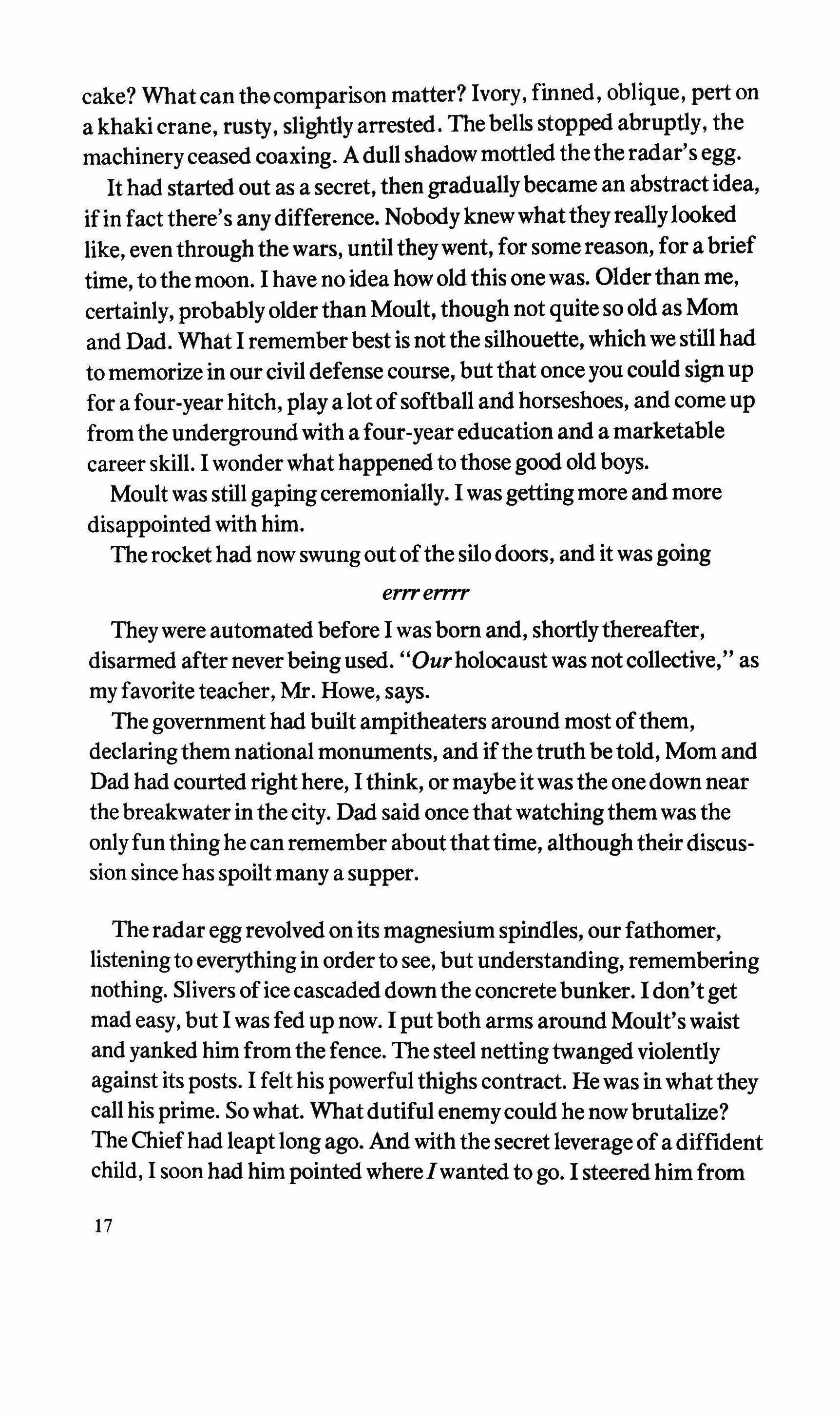
cake? What can thecomparison matter? Ivory, finned, oblique, pert on a khaki crane, rusty, slightly arrested. The bells stopped abruptly, the machineryceased coaxing. Adull shadowmottled thetheradar's egg. It had started out as a secret, then graduallybecame an abstract idea, ifin factthere's any difference. Nobody knewwhattheyreallylooked like, even through the wars, untiltheywent, for some reason, for a brief time, to the moon. I have no idea howold this one was. Olderthan me, certainly, probablyolder than Moult, though not quite so old as Mom and Dad. What I rememberbest is notthe silhouette, which we still had to memorize in our civil defense course, butthat once you could signup for a four-yearhitch, playalotofsoftball and horseshoes, and come up from the underground with a four-yeareducation and a marketable career skill. I wonderwhat happened to those good old boys.
Moult was still gapingceremonially. I was getting more and more disappointed with him.
Therocket had now swung out ofthesilodoors, and it was going
They were automated before I was born and, shortlythereafter, disarmed after never beingused. "Ourholocaust was not collective," as my favorite teacher, Mr. Howe, says.
The governmenthad built ampitheaters around most ofthem, declaringthem national monuments, and ifthetruth betold, Mom and Dad had courted righthere, I think, or maybeit was the one down near thebreakwaterin thecity. Dad said once thatwatchingthem was the onlyfun thing he can remember aboutthattime, althoughtheir discussion since has spoiltmany a supper.
The radar egg revolved on its magnesiumspindles, our fathomer, listeningto everything in order to see, but understanding, remembering nothing. Slivers ofice cascaded down the concrete bunker. I don'tget mad easy, but I was fed up now. I put both arms around Moult's waist and yanked him from thefence. The steel nettingtwangedviolently against its posts. I felthis powerfulthighs contract. He was in whatthey call his prime. Sowhat. Whatdutiful enemycould he now brutalize? The Chiefhad leaptlong ago. And with the secret leverageof a diffident child, I soon had him pointed whereIwanted to go. I steered him from
errrerrrr
17
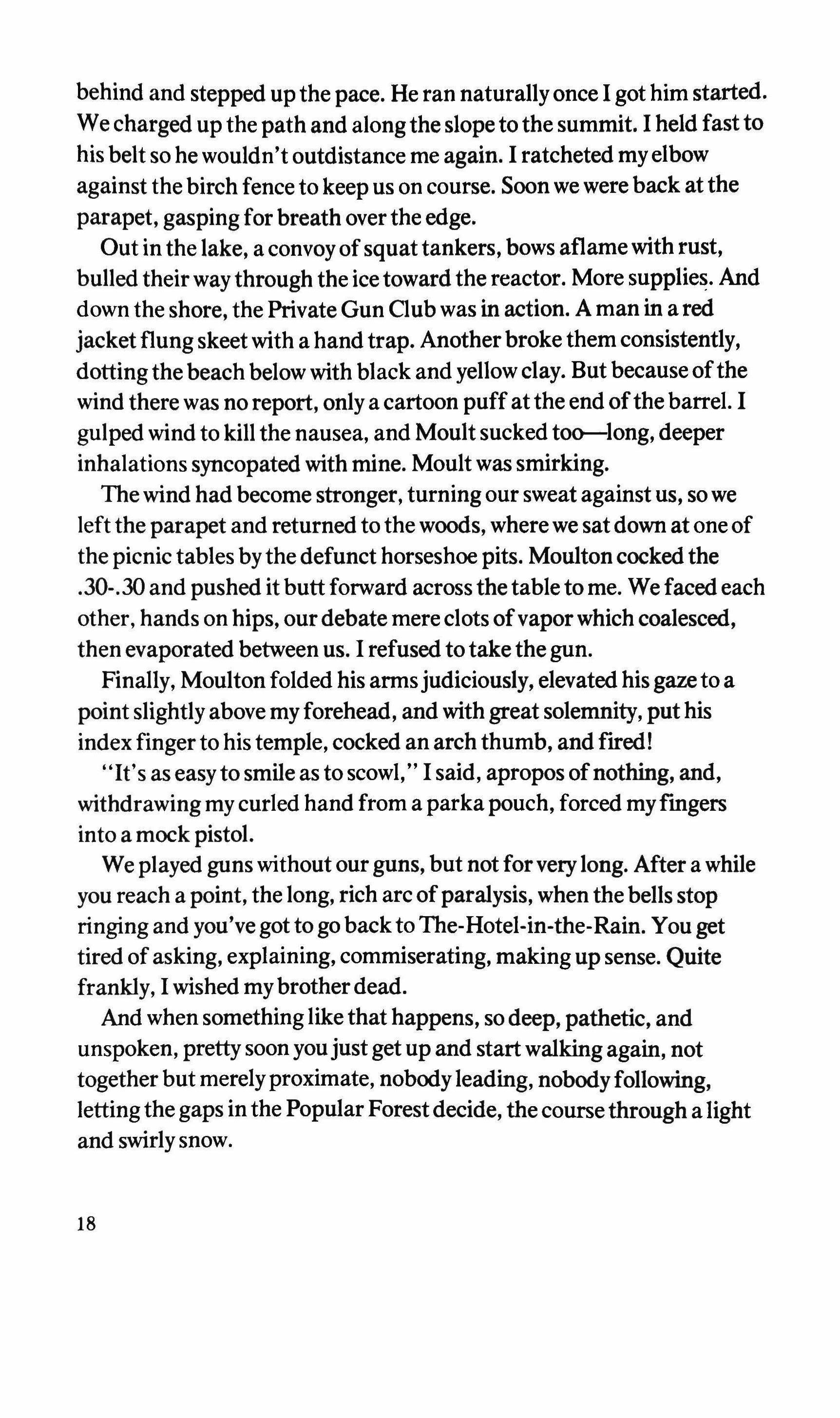
behind and stepped up the pace. He ran naturally once I got him started. We charged up the path and alongthe slope to the summit. I held fast to his belt so he wouldn't outdistance me again. I ratcheted my elbow against the birch fence to keep us on course. Soon we were back at the parapet, gasping for breath over the edge.
Out in the lake, a convoy of squattankers, bows aflamewith rust, bulled their waythrough the ice toward the reactor. More supplies, And down the shore, the Private Gun Club was in action. A man in a red jacketflung skeet with a hand trap. Another broke them consistently, dottingthe beach below with black and yellowclay. But because ofthe wind there was no report, only a cartoon puff at the end ofthe barrel. I gulped wind to kill the nausea, and Moult sucked too-long,deeper inhalations syncopated with mine. Moult was smirking.
The wind had become stronger, turning our sweat against us, so we left the parapet and returned to the woods, where we sat down at one of the picnic tables bythe defunct horseshoe pits. Moulton cocked the .30-.30 and pushed it butt forward across the table to me. We faced each other, hands on hips, our debate mere clots ofvaporwhich coalesced, then evaporated between us. I refused to take the gun.
Finally, Moulton folded his arms judiciously, elevated his gaze to a pointslightly above myforehead, and with greatsolemnity, put his index finger to his temple, cocked an arch thumb, and fired!
"It's as easy to smile as to scowl," I said, apropos ofnothing, and, withdrawing my curled hand from a parkapouch, forced myfingers into a mock pistol.
We played guns without our guns, but not forverylong. After a while you reach a point, the long, rich arc ofparalysis, when the bells stop ringing and you'vegot to go back to The-Hotel-in-the-Rain. You get tired ofasking, explaining, commiserating, making up sense. Quite frankly, I wished mybrotherdead.
And when somethinglike that happens, so deep, pathetic, and unspoken, pretty soon youjustget up and start walkingagain, not together but merelyproximate, nobodyleading, nobodyfollowing, letting the gaps inthe Popular Forestdecide, the course through a light and swirly snow.
18
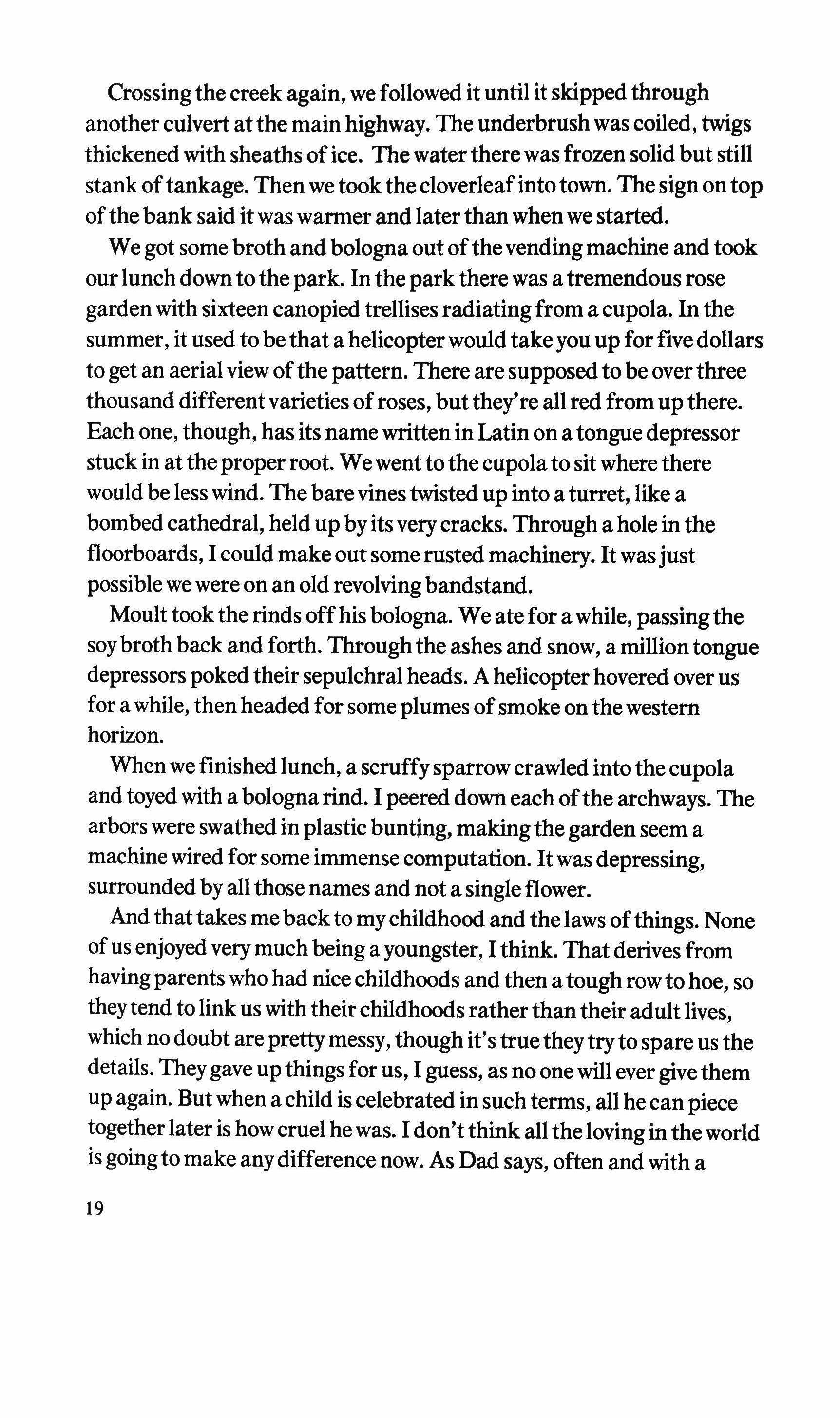
Crossing the creek again, we followed it until it skippedthrough another culvert atthe main highway. The underbrush was coiled, twigs thickened with sheaths ofice. The water there was frozen solid but still stank oftankage. Then we took the cloverleafintotown. The sign on top ofthe bank said it was warmer and later than when we started.
We got some broth and bologna out ofthevendingmachine and took our lunch down to the park. In the parkthere was a tremendous rose garden with sixteen canopied trellises radiatingfrom a cupola. In the summer, it used to be that a helicopter would takeyou up for five dollars to get an aerial viewofthe pattern. There are supposed to be over three thousand different varieties ofroses, butthey're all red from up there. Each one, though, has its name written in Latin on a tonguedepressor stuck in at the proper root. We went to the cupola to sit where there would be less wind. The barevines twisted up into a turret, like a bombed cathedral, held up byitsverycracks. Through a hole in the floorboards, I could make out some rusted machinery. It was just possible we were on an old revolving bandstand.
Moult took the rinds offhis bologna. We ate for a while, passingthe soybroth back and forth. Throughthe ashes and snow, a milliontongue depressorspoked their sepulchral heads. A helicopter hovered over us for a while, then headed for some plumes of smoke on the western horizon.
When we finished lunch, a scruffysparrowcrawled intothecupola and toyed with a bolognarind. I peered down each ofthe archways. The arbors were swathed in plasticbunting, makingthe garden seem a machine wired for some immense computation. It was depressing, surrounded by all those names and not a single flower.
And that takes me backto my childhood and the laws ofthings. None of us enjoyed very much being a youngster, I think. That derives from havingparents who had nice childhoods and then a tough row to hoe, so theytend to link us with theirchildhoods ratherthan their adult lives, which no doubt are pretty messy, though it's truetheytryto spare us the details. Theygave up things for us, I guess, as no one will ever give them up again. But when a child is celebrated in such terms, all he can piece togetherlater is howcruel he was. I don't think all theloving in theworld is goingto make anydifference now. As Dad says, often and with a
19
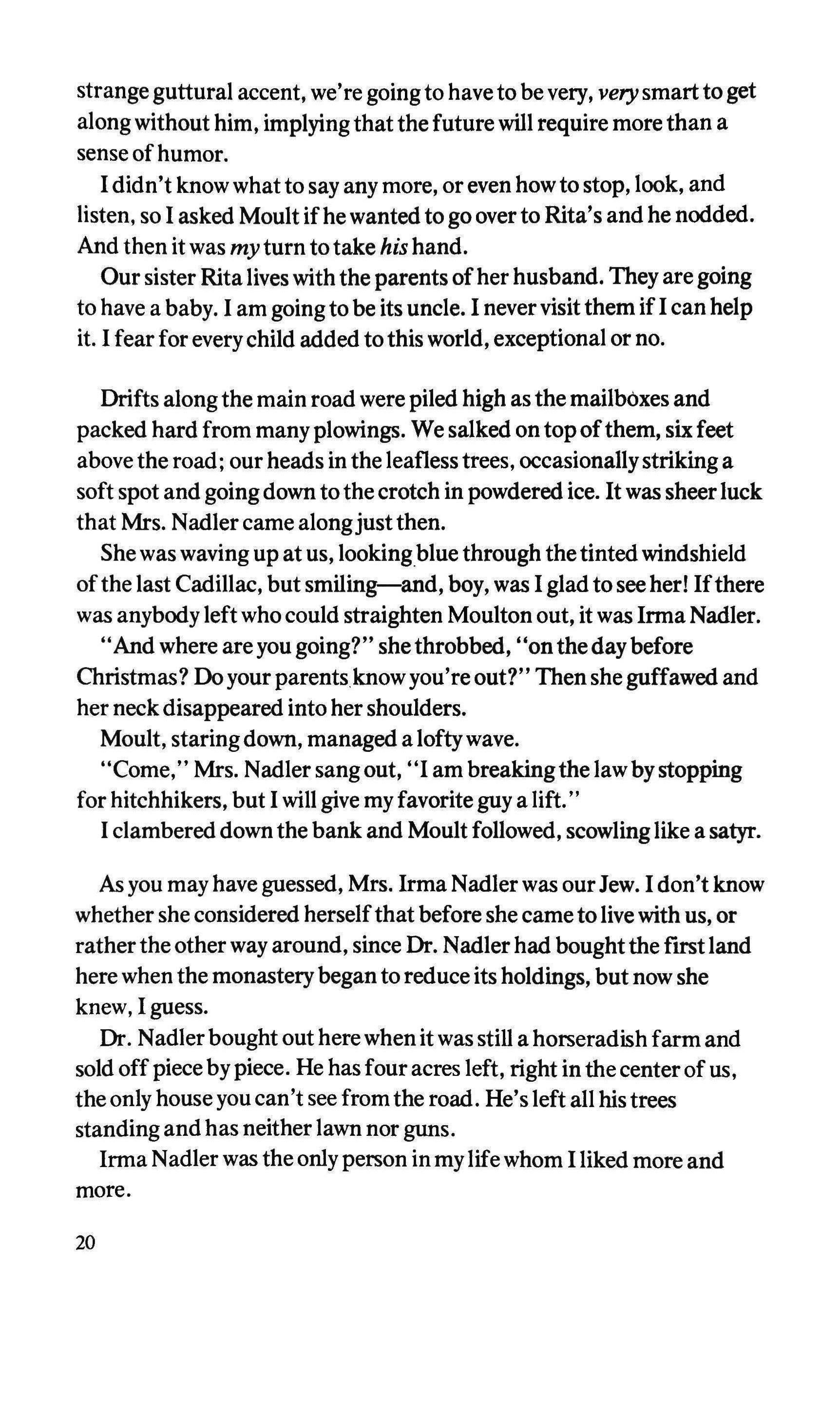
strangeguttural accent, we're goingto have to be very, verysmart to get alongwithout him, implyingthat the future will require more than a sense ofhumor.
I didn't know what to say any more, or even how to stop, look, and listen, so I asked Moult ifhewanted to go over to Rita's and he nodded. And then it was my turn to take his hand.
Our sister Rita lives with the parents ofher husband. They are going to have a baby. I am going to be its uncle. I never visit them if I can help it. I fear for everychild added to this world, exceptional or no.
Drifts alongthe main road were piled high as the mailboxes and packed hard from manyplowings. We salked on topofthem, six feet above the road; our heads in the leafless trees, occasionallystriking a soft spot and goingdown to thecrotch in powdered ice. It was sheer luck that Mrs. Nadler came alongjustthen.
She was waving up at us, lookingbluethrough thetinted windshield ofthe last Cadillac, but smiling-and, boy, was I glad to see herllfthere was anybody leftwho could straighten Moulton out, it was Irma Nadler.
"And where are you going?" shethrobbed, "onthedaybefore Christmas? Do your parents knowyou're out?" Then she guffawed and her neckdisappeared into her shoulders.
Moult, staringdown, managed a lofty wave.
"Come," Mrs. Nadler sangout, "I am breakingthe lawbystopping for hitchhikers, but I will give myfavorite guy a lift."
I clambered downthe bank and Moult followed, scowlinglike a satyr.
As you may have guessed, Mrs. Irma Nadler was our Jew. I don't know whether she considered herselfthat before she came to livewith us, or ratherthe other way around, since Dr. Nadler had boughtthe firstland here when the monasterybegan to reduce its holdings, but now she knew, I guess.
Dr. Nadlerbought out here when it was still a horseradish farm and sold offpiecebypiece. He has four acres left, right inthe center of us, theonly house you can't see fromthe road. He's left all his trees standing and has neither lawn nor guns.
Irma Nadler was the only person inmylifewhom I liked more and more.
20
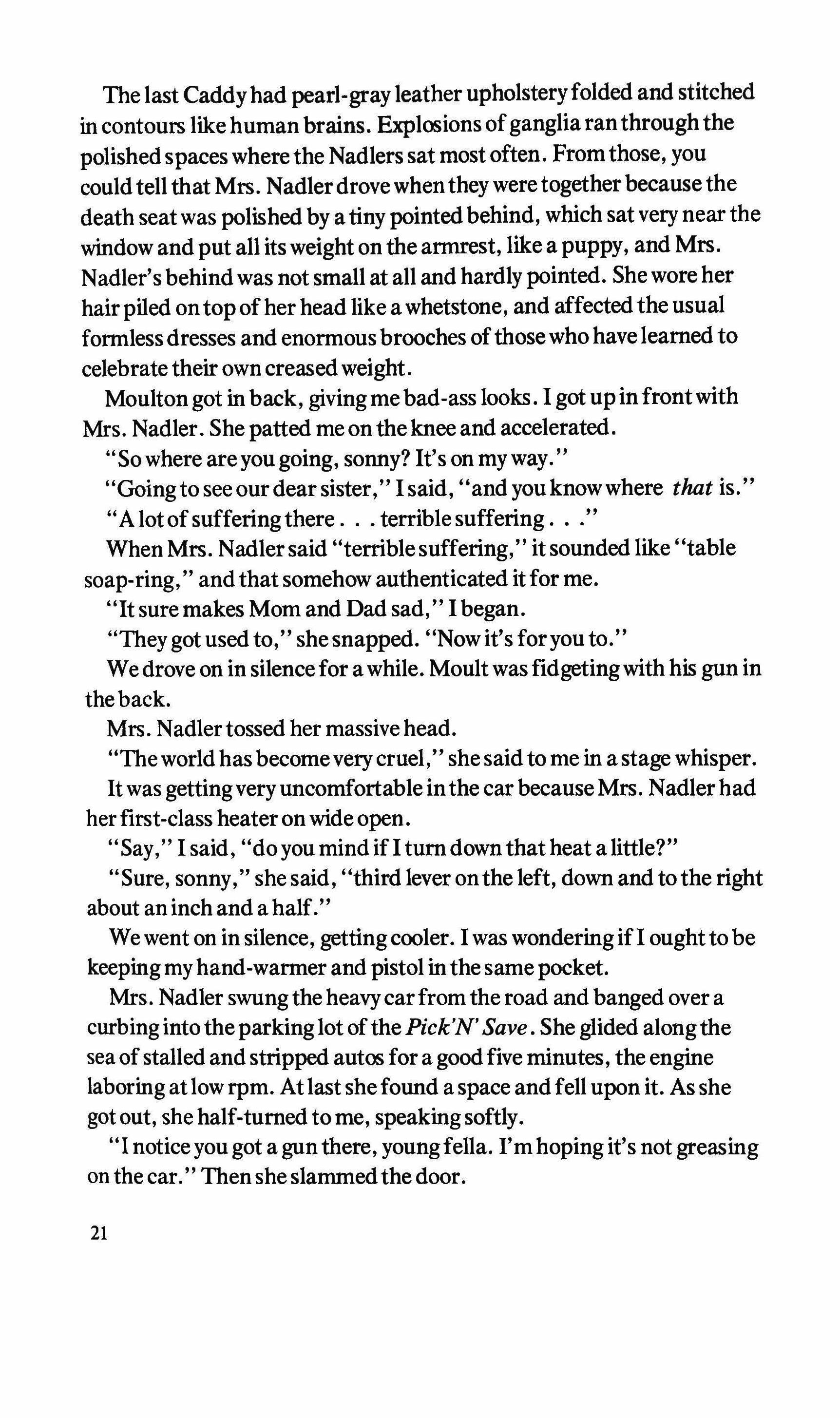
The last Caddyhad pearl-gray leather upholsteryfolded and stitched in contours likehuman brains. Explosions ofganglia ran throughthe polishedspaces where the Nadlers sat most often. From those, you couldtell that Mrs. Nadlerdrovewhenthey were togetherbecause the death seat was polishedby a tinypointedbehind, which sat very near the window and put all its weight on the armrest, like a puppy, and Mrs. Nadler's behind was not small at all and hardlypointed. She wore her hairpiled on top ofher head like a whetstone, and affected the usual formlessdresses and enormous brooches ofthosewho have learned to celebrate their own creased weight.
Moulton got in back, giving me bad-ass looks. I got up infrontwith Mrs. Nadler. She patted me on theknee and accelerated.
"Sowhere are you going, sonny? It's on my way."
"Going to see our dear sister," I said, "and youknowwhere that is."
"A lotof sufferingthere terrible suffering "
When Mrs. Nadler said "terriblesuffering," it sounded like "table soap-ring," andthat somehow authenticated itfor me.
"It sure makes Mom and Dad sad," I began.
"Theygot used to," shesnapped. "Nowit's foryou to."
Wedrove on in silencefor a while. Moult was fidgetingwith his gun in theback.
Mrs. Nadlertossed her massive head.
"Theworld has becomevery cruel," she said to me in a stage whisper. It was gettingveryuncomfortable inthe car because Mrs. Nadlerhad herfirst-class heater on wideopen.
"Say," I said, "do you mind if I turndown that heat a little?"
"Sure, sonny," she said, "third lever on the left, down and to the right about an inch and a half."
We went on in silence, gettingcooler. I was wonderingifI oughtto be keepingmyhand-warmer and pistol in the same pocket.
Mrs. Nadler swungthe heavy car from the road and banged over a curbingintotheparkinglot ofthePick'N' Save. She glided alongthe sea ofstalled and stripped autos for a goodfive minutes, the engine laboring at lowrpm. Atlast shefound a space and fell upon it. As she gotout, she half-turned tome, speakingsoftly.
"I noticeyou got a gunthere, youngfella. I'm hoping it's not greasing on the car." Then she slammedthe door.
21
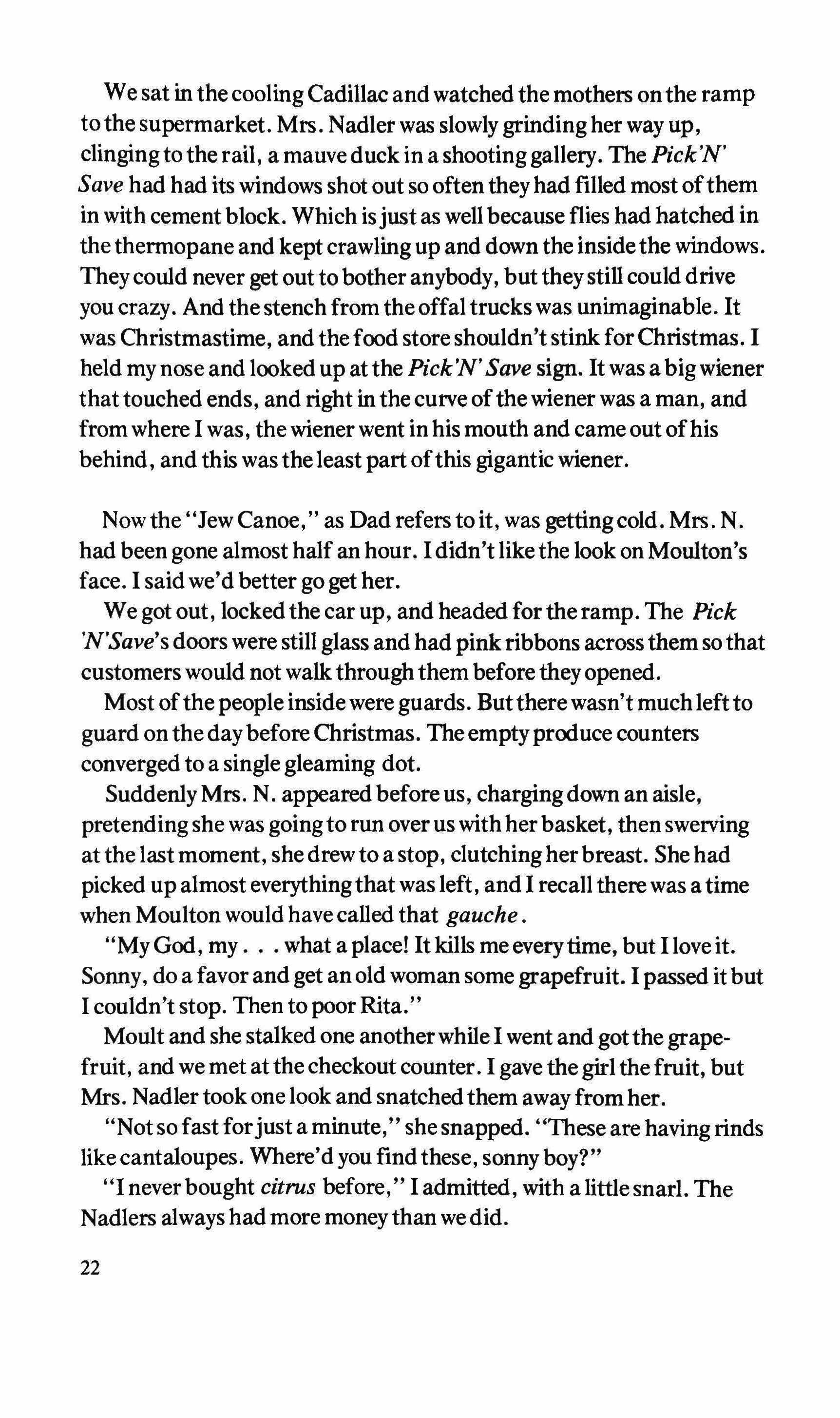
We sat in the cooling Cadillac and watched the mothers on the ramp to the supermarket. Mrs. Nadler was slowlygrindingher way up, clingingto the rail, a mauve duck in a shootinggallery. The Pick'N' Save had had its windows shot out so oftentheyhad filled most ofthem in with cement block. Which isjust as well because flies had hatched in thethermopane and keptcrawling up and down the insidethe windows. Theycould never get out to bother anybody, but theystill could drive you crazy. And the stench from theoffal trucks was unimaginable. It was Christmastime, and thefood store shouldn't stink forChristmas. I held my nose and looked up at the Pick'N'Save sign. It was a bigwiener that touched ends, and right inthe curve ofthewiener was a man, and fromwhere I was, thewiener went inhis mouth and came out ofhis behind, and this was the least part ofthis gigantic wiener.
Now the"Jew Canoe," as Dad refers to it, was gettingcold. Mrs. N. had been gone almost half an hour. I didn't likethe look on Moulton's face. I saidwe'd better go get her.
We got out, lockedthe car up, and headed for the ramp. The Pick 'N'Save's doors were still glass and had pinkribbons across them so that customers would not walkthrough them before theyopened.
Most ofthe people inside were guards. Buttherewasn't much left to guard on thedaybefore Christmas. Theemptyproduce counters converged to a singlegleaming dot.
Suddenly Mrs. N. appeared before us, chargingdown an aisle, pretendingshe was goingto run over us with herbasket, thenswerving at the lastmoment, she drew to a stop, clutchingherbreast. She had picked up almost everythingthat was left, and I recall there was a time when Moulton would have called that gauche.
"MyGod, my what a place! It kills me everytime, butIloveit. Sonny, do a favor and get an old woman some grapefruit. I passed itbut I couldn't stop. Then to poor Rita."
Moult and she stalked one anotherwhile I went and gotthe grapefruit, and we met at the checkout counter. I gave the girlthe fruit, but Mrs. Nadlertook one look and snatched them away fromher.
"Not so fast forjust a minute," she snapped. "These are having rinds like cantaloupes. Where'd you findthese, sonny boy?"
"I never bought citrus before," I admitted, with a littlesnarl. The Nadlers always had more money than we did.
22
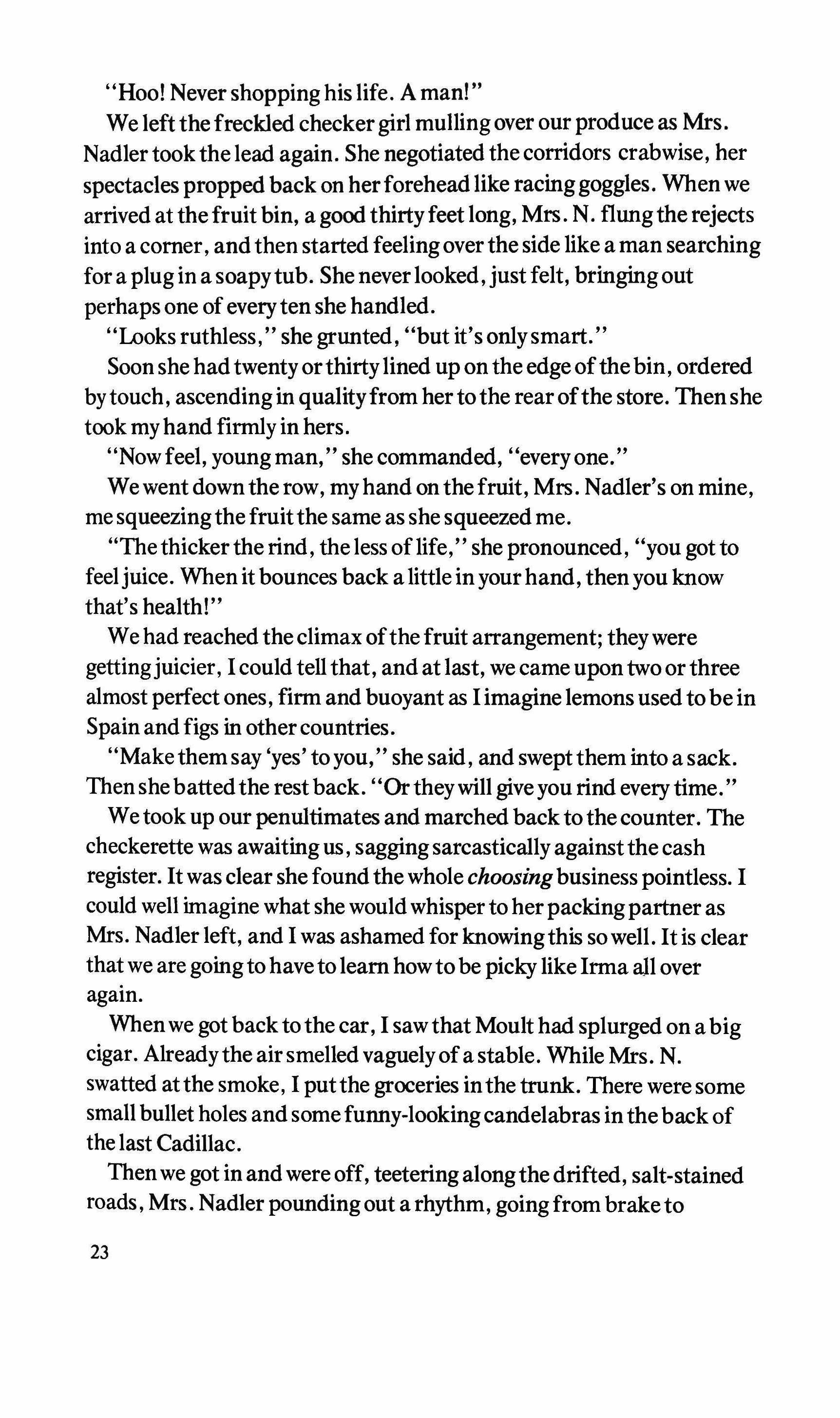
"Hoo! Never shopping his life. A man!"
We left thefreckled checker girl mulling over our produce as Mrs. Nadlertookthe lead again. She negotiated the corridors crabwise, her spectaclespropped back on herforehead like racinggoggles. When we arrived at thefruit bin, a goodthirty feet long, Mrs. N. flungthe rejects into a comer, and then started feeling over the side like a man searching for a plug in a soapytub. She never looked,justfelt, bringing out perhaps one ofeveryten she handled.
"Looks ruthless, " she grunted, "but it's onlysmart."
Soon she hadtwenty or thirtylined up on the edgeofthebin, ordered bytouch, ascendingin qualityfrom her tothe rear ofthe store. Then she took myhand firmly in hers.
"Nowfeel, young man," she commanded, "everyone."
Wewent downthe row, my hand on thefruit, Mrs. Nadler's on mine, me squeezingthefruitthe same as she squeezed me.
"The thickerthe rind, the less oflife," she pronounced, "you got to feeljuice. Whenitbounces back a littlein your hand, thenyou know that's health!"
We had reached theclimax ofthefruit arrangement; they were gettingjuicier, I could tellthat, and at last, we came upon two or three almost perfect ones, firm and buoyant as I imagine lemons used to bein Spain and figs in othercountries.
"Makethemsay 'yes' to you," she said, and swept them into a sack. Thenshebattedthe rest back. "Ortheywill giveyou rind every time."
We took up our penultimates and marched back to the counter. The checkerette was awaiting us, saggingsarcasticallyagainstthe cash register. It was clear shefoundthewhole choosingbusiness pointless. I could well imagine whatshe would whisper to herpackingpartner as Mrs. Nadler left, and I was ashamed for knowingthis so well. It is clear that we are goingto haveto learn howtobe picky like Irma allover again.
When we gotback to the car, I saw that Moult had splurged on a big cigar. Alreadythe air smelled vaguelyof a stable. While Mrs. N. swatted atthe smoke, I putthe groceries inthe trunk. There were some small bullet holes and some funny-lookingcandelabras inthe back of the last Cadillac.
Then we got in and were off, teeteringalongthedrifted, salt-stained roads, Mrs. Nadler pounding out a rhythm, goingfrom braketo
23
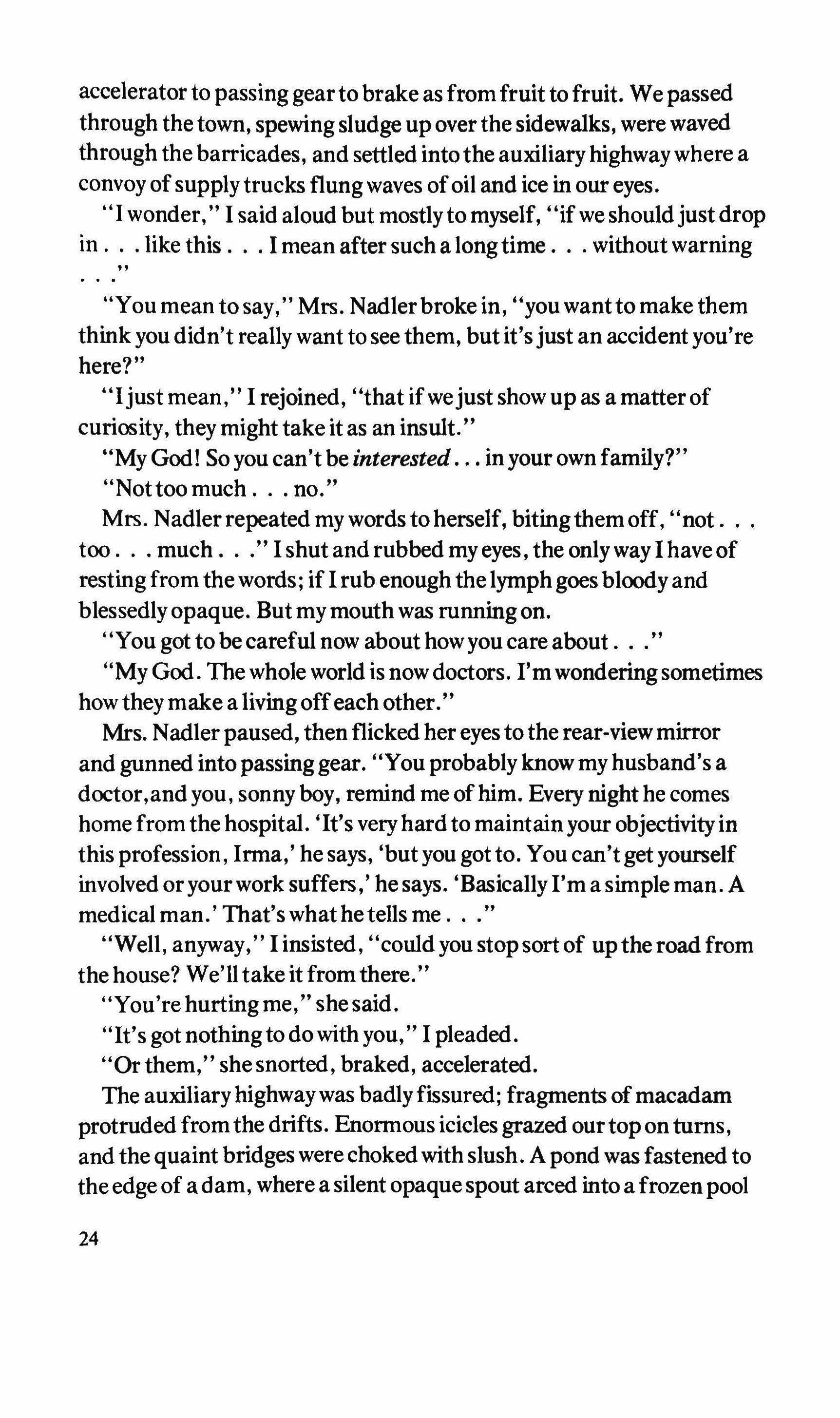
accelerator to passing gearto brake as fromfruit to fruit. We passed through the town, spewingsludge up over the sidewalks, were waved through the barricades, and settled intothe auxiliaryhighwaywhere a convoy ofsupplytrucks flung waves ofoil and ice in our eyes.
"I wonder, " I said aloud but mostlyto myself, "if we shouldjustdrop in. like this. I mean after such a longtime. without warning
"You mean to say," Mrs. Nadlerbroke in, "you wanttomakethem think you didn't really want to see them, butit'sjust an accidentyou're here?"
"Ijust mean," I rejoined, "that if wejustshowup as a matter of curiosity, theymight take it as an insult."
"My God! So you can't be interested in your own family?"
"Nottoomuch no."
Mrs. Nadler repeated my words to herself, bitingthemoff, "not too much I shut and rubbed myeyes, the onlyway I have of resting from thewords; if I rub enough thelymphgoes bloody and blessedlyopaque. But my mouth was running on.
You got to be careful now about howyou care about. ."
"My God. The whole world is now doctors. I'mwonderingsometimes howtheymake a livingoffeach other."
Mrs. Nadler paused, thenflicked her eyes to the rear-viewmirror and gunned into passinggear. "You probably know my husband's a doctor,and you, sonny boy, remind me ofhim. Everynight he comes home from the hospital. 'It's very hard to maintain your objectivityin this profession, Irma,' he says, 'but you got to. You can'tgetyourself involved or your work suffers,' he says. 'Basically I'm a sirnple man. A medical man.' That's what hetells me. ."
"Well, anyway," I insisted, "could you stop sort of up the road from the house? We'll take it fromthere."
"You're hurtingme," shesaid.
"It's gotnothingto dowith you," I pleaded.
"Orthem," she snorted, braked, accelerated.
The auxiliaryhighway was badlyfissured; fragments ofmacadam protruded fromthe drifts. Enormous icicles grazed our top on turns, and the quaintbridges were choked with slush. A pond was fastened to theedge of a dam, where a silent opaquespout arced into a frozenpool
24
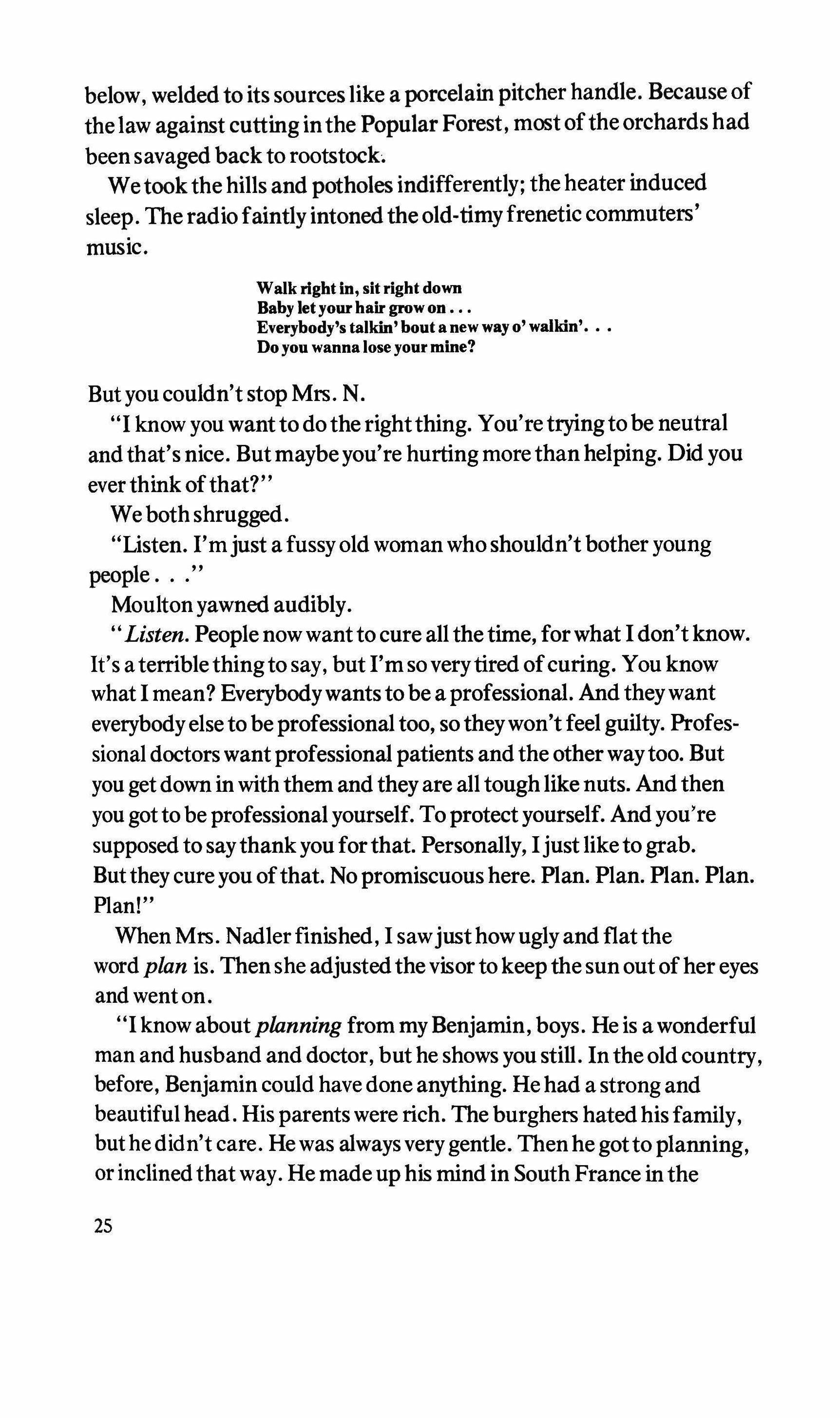
below, welded to its sources like a porcelainpitcher handle. Because of thelaw againstcutting inthe Popular Forest, most oftheorchards had been savaged back to rootstock.
Wetookthe hills and potholesindifferently; the heater induced sleep. The radiofaintly intonedthe old-timyfrenetic commuters' music.
Walk right in, sit right down Baby let your hair grow on
Everybody's talkin' bout a new way 0' walkin' Do you wanna lose your mine?
But you couldn't stop Mrs. N.
"I know you wantto do the rightthing. You're tryingto be neutral and that's nice. But maybeyou're hurting more than helping. Did you ever think ofthat?"
We both shrugged.
"Listen. I'mjust a fussyold woman whoshouldn't bother young people "
Moultonyawned audibly.
Listen. People now wantto cure all thetime, forwhat I don't know. It's a terriblething to say, but I'm so verytired ofcuring. You know what I mean? Everybodywants to be a professional. And theywant everybodyelse to be professional too, so theywon't feel guilty, Professional doctors want professional patients and the other waytoo. But you get down in with them and they are all tough like nuts. And then you got to be professionalyourself. To protectyourself. And you're supposed to saythank you forthat. Personally, Ijust like to grab. Butthey cure you ofthat. No promiscuous here. Plan. Plan. Plan. Plan. Plan!"
When Mrs. Nadler finished, I sawjust howuglyand flat the word plan is. Thenshe adjustedthevisor to keep the sun out ofher eyes and went on.
"I know aboutplanning from my Benjamin,boys. He is a wonderful man and husband and doctor, but he shows you still. In theold country, before, Benjamin could have done anything. He had a strong and beautiful head. His parents were rich. The burghers hated his family, but hedidn't care. He was always very gentle. Thenhe gotto planning, or inclinedthat way. He made up his mind in South France in the 2S
••.
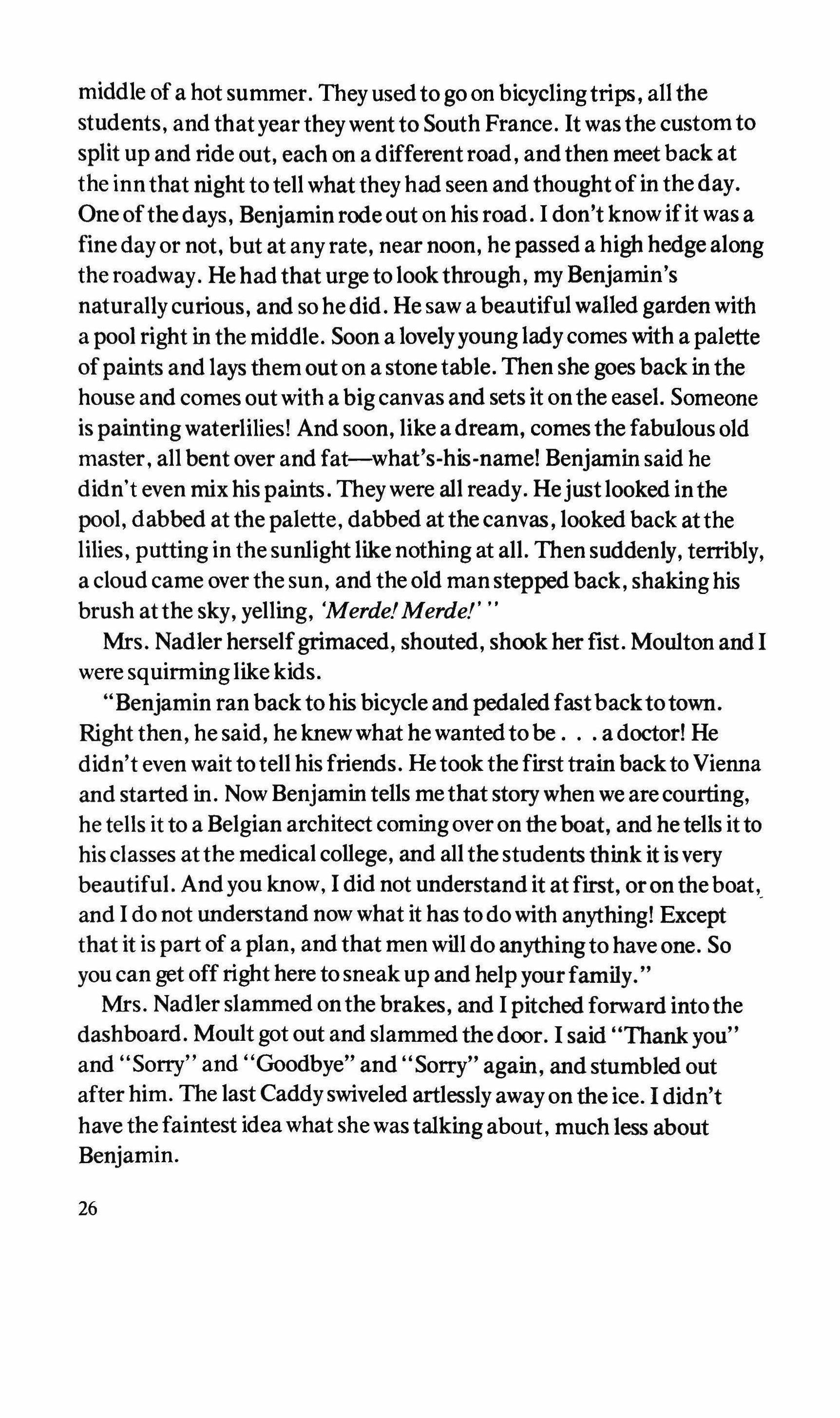
middle of a hot summer. They used to go on bicyclingtrips, all the students, and thatyear they went to South France. It was the custom to split up and ride out, each on a differentroad, and then meet back at the innthat night to tell what they had seen and thoughtof in the day. One ofthedays, Benjamin rode out on his road. I don't know ifit was a fine day or not, but at any rate, near noon, he passed a highhedgealong the roadway. He had that urge to look through, my Benjamin's naturallycurious, and sohedid. He saw a beautiful walled garden with a pool right in the middle. Soon a lovelyyoung lady comes with a palette of paints and lays them out on a stone table. Then she goes back in the house and comes out with a big canvas and sets it on the easel. Someone is paintingwaterlilies! And soon, like a dream, comes the fabulous old master, all bent over and fat-what's-his-name! Benjamin said he didn't even mix his paints. They were all ready. Hejustlooked inthe pool, dabbed at the palette, dabbed at the canvas, looked back atthe lilies, putting in the sunlight like nothing at all. Then suddenly, terribly, a cloud came over the sun, and the old man stepped back, shakinghis brush atthe sky, yelling, 'Merde!Merdel'
Mrs. Nadler herselfgrimaced, shouted, shook her fist. Moulton and I were squirminglike kids.
Benjamin ran back to his bicycle and pedaled fastbacktotown. Right then, he said, he knewwhat hewanted to be. a doctor! He didn't even wait to tell his friends. Hetook thefirst train backto Vienna and started in. Now Benjamin tells me that story when we are courting, he tells it to a Belgian architect coming over on the boat, and he tells itto his classes at the medical college, and all the students think it is very beautiful. And you know, I did not understand it at first, or on theboat, and I do not understand now what it has to dowith anything! Except that it is part of a plan, and that men will do anythingto have one. So you can get off right here to sneak up and help yourfamity."
Mrs. Nadler slammed on the brakes, and I pitched forward intothe dashboard. Moult got out and slammed thedoor. I said "Thank you" and"Sorry" and "Goodbye" and"Sorry" again, and stumbled out after him. The last Caddyswiveled artlessly away on the ice. I didn't have the faintest ideawhat she was talkingabout, much less about Benjamin.
26
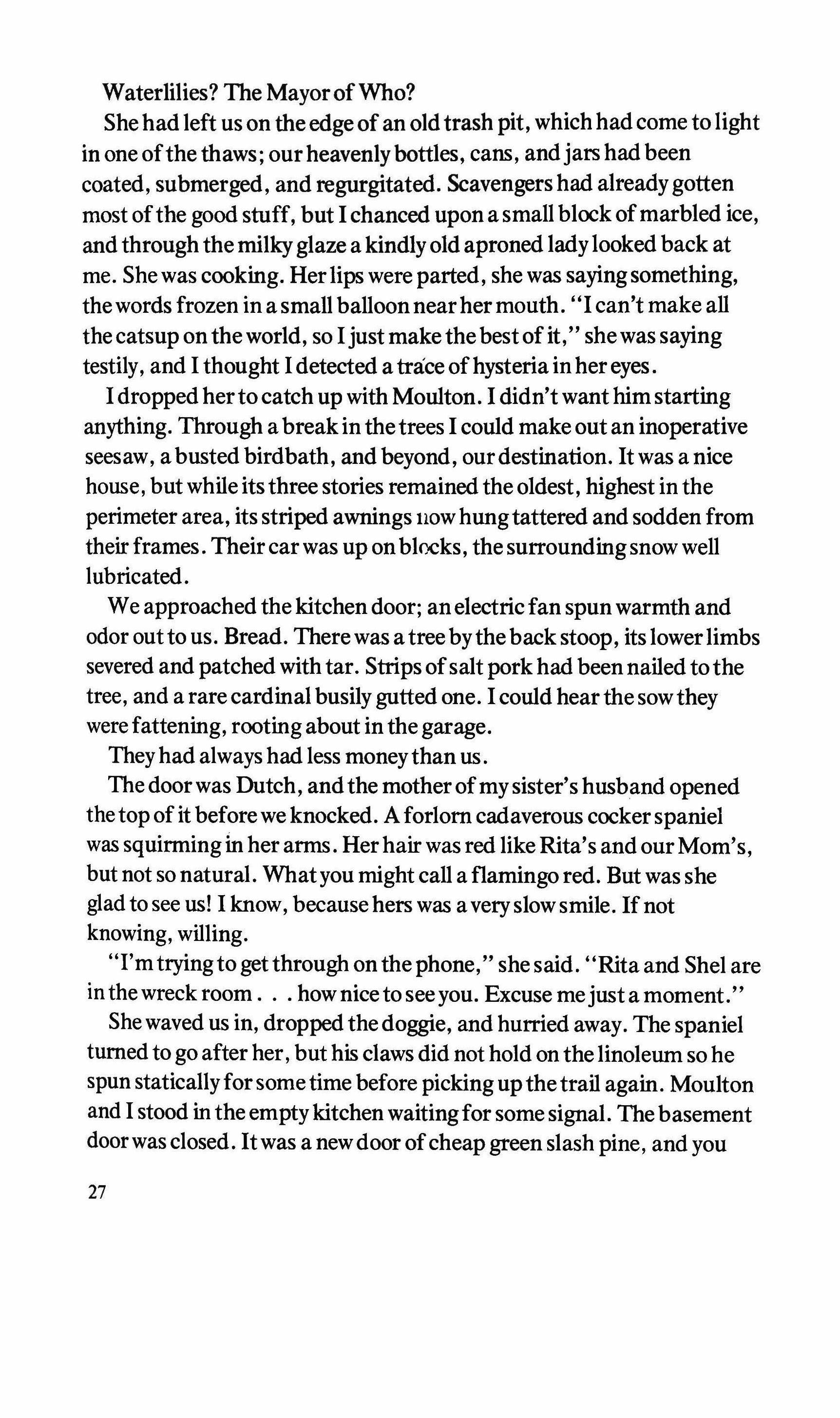
Waterlilies? The MayorofWho?
Shehad left us on theedgeof an oldtrash pit, which had come to light in one ofthe thaws; our heavenlybottles, cans, andjars had been coated, submerged, and regurgitated. Scavengers had alreadygotten most ofthe good stuff, but I chanced upon a small block ofmarbled ice, and through themilkyglaze a kindly old apronedladylooked back at me. She was cooking. Herlips were parted, she was sayingsomething, thewords frozen in a small balloon near hermouth. "I can't make all thecatsup on theworld, so Ijust makethebestofit," she was saying testily, and I thought I detected a trace ofhysteria inher eyes.
I dropped herto catch up with Moulton. I didn't want himstarting anything. Through a breakin thetrees I could make out an inoperative seesaw, a busted birdbath, and beyond, our destination. It was a nice house, but while itsthree stories remained the oldest, highest in the perimeter area, its striped awnings llOW hungtattered and sodden from theirframes. Their car was up on blocks, the surrounding snow well lubricated.
We approached the kitchen door; an electric fan spun warmth and odor outto us. Bread. There was a treebytheback stoop, its lowerlimbs severed and patched with tar. Strips ofsalt pork had been nailed tothe tree, and a rare cardinal busilygutted one. I could hearthe sow they were fattening, rooting about inthe garage. Theyhad always had less moneythan us.
The door was Dutch, andthe motherofmysister's husband opened thetop of itbefore we knocked. Aforlorn cadaverous cocker spaniel was squirming in her arms. Herhair was red like Rita's and our Mom's, but not so natural. Whatyou might call a flamingo red. But was she glad to see us! I know, becausehers was a veryslowsmile. Ifnot knowing, willing.
"I'mtryingto getthrough on thephone," she said. "Rita and Shel are inthe wreck room hownice to see you. Excuse me just a moment."
Shewaved us in, dropped thedoggie, and hurried away. The spaniel turned to go after her, but his claws did not hold on thelinoleum so he spun staticallyfor some time before pickingupthetrail again. Moulton and I stood in the emptykitchen waitingfor some signal. The basement door was closed. Itwas a new door ofcheap green slash pine, and you
27
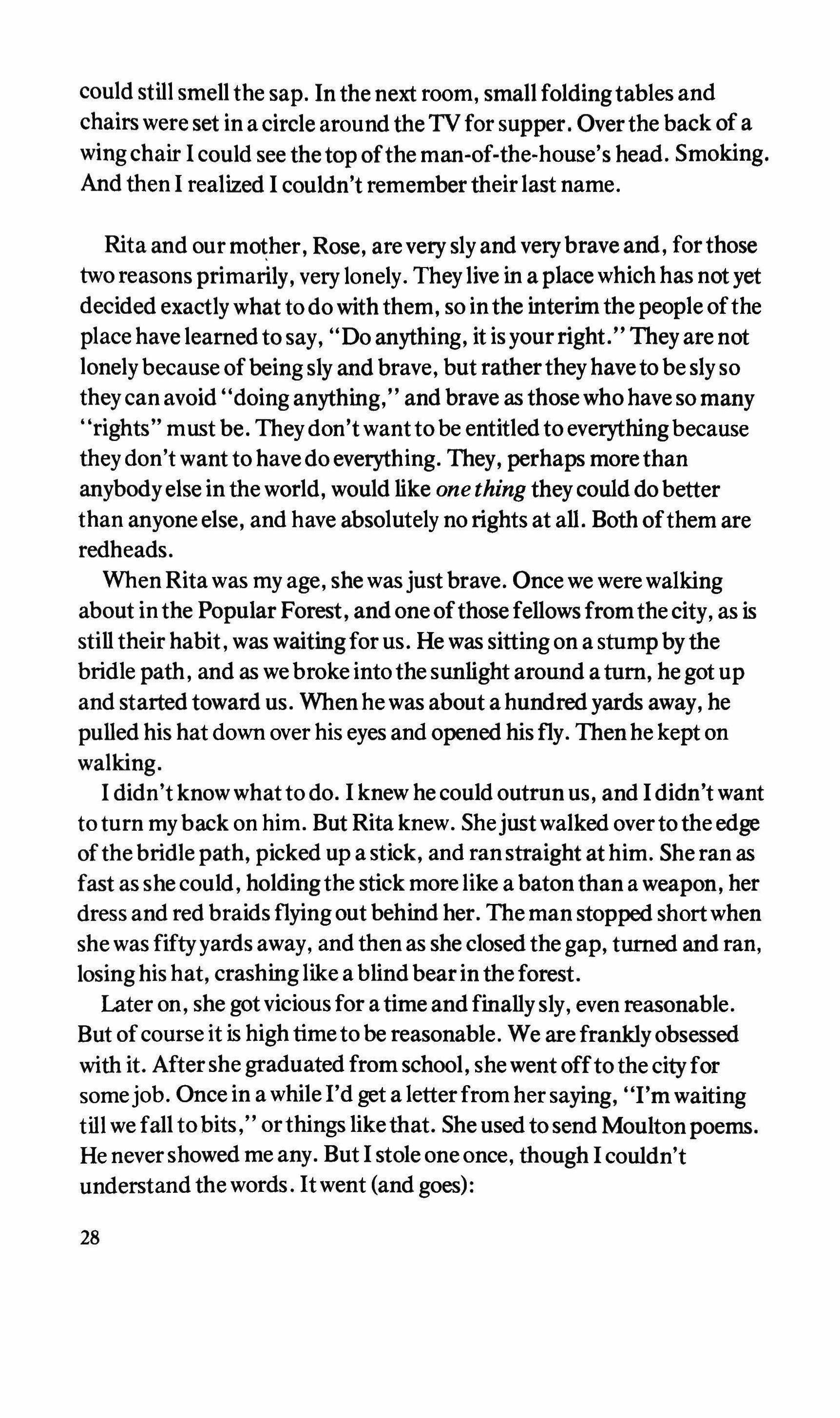
could still smell the sap. In the next room, small foldingtables and chairs were set in a circle around the TV for supper. Overthe back of a wingchair I could see thetop ofthe man-of-the-house's head. Smoking. And then I realized I couldn't remember theirlast name.
Rita and our mother, Rose, are very sly and verybrave and, forthose two reasons primarily, very lonely. Theylive in a place which has not yet decided exactly what to dowith them, so inthe interim the people ofthe place have learned to say, "Do anything, it isyour right." They are not lonelybecause ofbeingsly and brave, but rathertheyhaveto be sly so they can avoid" doinganything," and brave as thosewho have so many "rights" must be. Theydon't want to be entitled to everythingbecause they don't want to havedo everything. They, perhaps more than anybodyelse in the world, would like one thing theycould dobetter than anyone else, and have absolutely no rights at all. Both ofthem are redheads.
When Rita was my age, she was just brave. Once we were walking about inthe Popular Forest, and one ofthose fellowsfromthe city, as is still their habit, was waitingfor us. He was sitting on a stumpbythe bridle path, and as we broke intothe sunlight around a tum, hegot up and started toward us. Whenhe was about a hundred yards away, he pulled his hat down over his eyes and opened his fly. Thenhe kept on walking.
I didn't know what to do. I knew he could outrun us, and I didn't want to turn my back on him. But Rita knew. Shejust walked over to the edge ofthe bridle path, picked up a stick, and ran straight at him. She ran as fast as shecould, holdingthe stick more like a baton than a weapon, her dress and red braids flying out behind her. The man stopped shortwhen she was fiftyyards away, and then as she closed the gap, turned and ran, losinghis hat, crashinglike a blind bearin theforest.
Later on, she gotvicious for a time and finallysly, even reasonable. But of course it is high time to be reasonable. We are franklyobsessed with it. After she graduated fromschool, she went offto the cityfor some job. Once in a while I'd get a letterfrom hersaying, "I'm waiting till we fall tobits," or things likethat. She used to send Moultonpoems. He never showed me any. But I stole one once, though I couldn't understand thewords. Itwent (and goes):
28
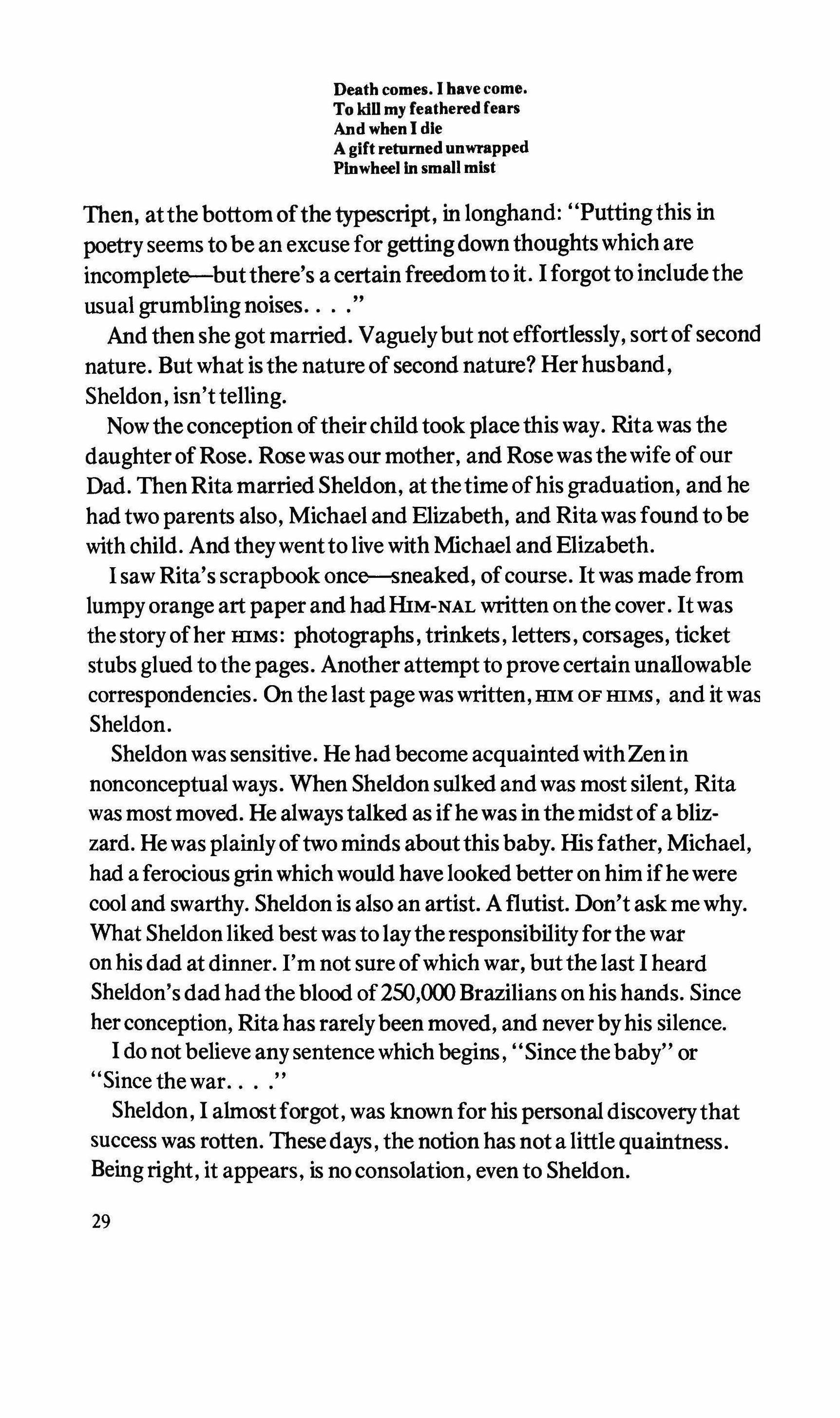
Death comes. I have come. To kiD my feathered fears And when I die A gift returned unwrapped Pinwheel in small mist
Then, atthe bottom ofthe typescript, in longhand: "Puttingthis in poetry seems tobe an excuse for gettingdown thoughts which are incomplete-butthere's a certain freedom to it. Iforgot to includethe usual grumblingnoises "
And then she got married. Vaguelybut not effortlessly, sort ofsecond nature. But what isthe nature ofsecond nature? Her husband, Sheldon, isn'ttelling.
Now theconception oftheirchild took placethis way. Rita was the daughterofRose. Rose was our mother, and Rose was thewife of our Dad. ThenRitamarried Sheldon, at thetimeofhis graduation, and he had two parents also, Michael and Elizabeth, and Rita was found to be with child. And theywentto live with Michael and Elizabeth.
I saw Rita's scrapbookonce-sneaked, of course. It was made from lumpy orange art paper and hadHIM-NAL written on the cover. It was the storyofher IDMS: photographs, trinkets, letters, corsages, ticket stubs glued to the pages. Another attempt to provecertain unallowable correspondencies. On thelast page was written, IDM OF IDMS, and it was Sheldon.
Sheldon was sensitive. He had become acquaintedwithZen in nonconceptual ways. When Sheldon sulked and was most silent, Rita was most moved. He alwaystalked as ifhe was inthemidstof a blizzard. He was plainlyoftwo minds aboutthis baby. His father, Michael, had a ferocious grinwhichwould have looked better on him ifhe were cool and swarthy. Sheldon is also an artist. Aflutist. Don't ask me why. What Sheldon liked best was to laytheresponsibility forthe war on his dad at dinner. I'm not sure ofwhich war, butthe last I heard Sheldon's dad had the blood of2SO,OOO Brazilians on his hands. Since herconception, Rita has rarelybeen moved, and never byhis silence.
I do not believe any sentence which begins, "Since thebaby" or "Since the war
Sheldon, I almostforgot, was known for his personaldiscoverythat success was rotten. Thesedays, the notion has not a little quaintness. Beingright, it appears, is no consolation, even to Sheldon.
29
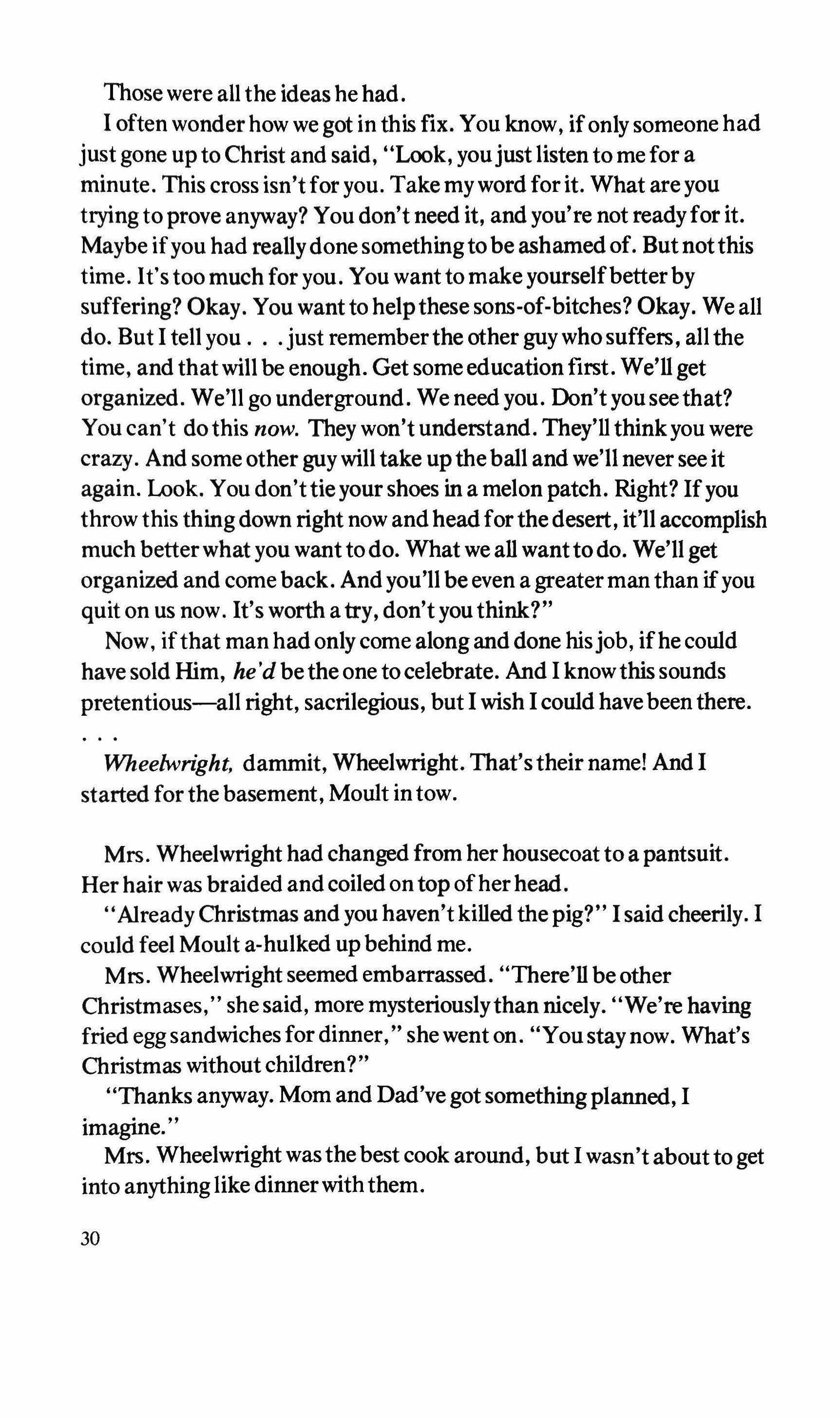
Those were all the ideas he had.
I often wonderhow we got in this fix. You know, ifonly someone had just gone up to Christ and said, "Look, youjust listen to me for a minute. This cross isn't for you. Take myword for it. What are you trying to prove anyway? You don't need it, and you're not readyfor it. Maybe ifyou had reallydone somethingto be ashamed of. But notthis time. It's too much for you You want to make yourselfbetterby suffering? Okay. You wantto helpthese sons-of-bitches? Okay. We all do. But I tell you just rememberthe other guywhosuffers, all the time, and thatwill be enough. Get some education first. We'll get organized. We'll go underground. We need you. Don'tyou see that? You can't dothis now. They won't understand. They'll thinkyou were crazy. And some other guywill take uptheball and we'll never see it again. Look. You don'ttie your shoes in a melon patch. Right? Ifyou throw this thingdown right now andheadforthe desert, it'll accomplish much betterwhat you want to do. What we all wantto do. We'll get organized and come back. And you'll be even a greater man than ifyou quit on us now. It's worth a try, don't you think?"
Now, ifthat man had only come along and done hisjob, ifhe could have sold Him, he'd bethe one to celebrate. And I knowthis sounds pretentious-all right, sacrilegious, but I wish I could havebeen there.
Wheelwright, dammit, Wheelwright. That'stheir name! And I started for the basement, Moult in tow.
Mrs. Wheelwright had changed from her housecoat to a pantsuit. Her hair was braided and coiled on top ofherhead.
"Already Christmas and you haven't killed the pig?" I said cheerily. I could feel Moult a-hulked up behind me.
Mrs. Wheelwright seemed embarrassed. "There'll beother Christmases," she said, more mysteriouslythan nicely. "We're having fried egg sandwiches for dinner," she went on "Youstay now. What's Christmas without children?"
"Thanks anyway. Mom and Dad've gotsomethingplanned, I imagine."
Mrs. Wheelwright was thebest cook around, but I wasn't about to get into anythinglike dinnerwiththem.
30
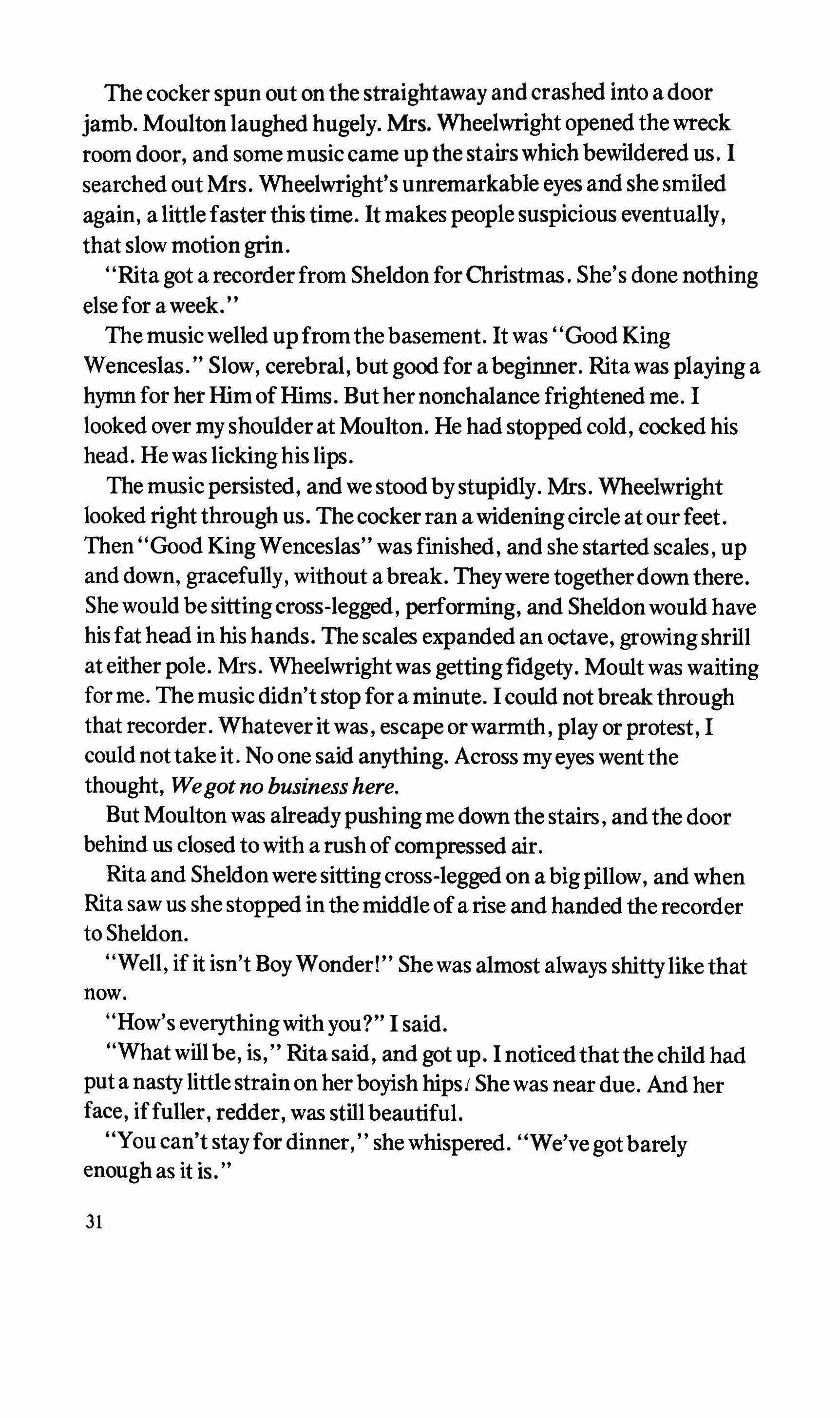
The cocker spun out on the straightaway and crashed into a door jamb. Moulton laughed hugely. Mrs. Wheelwrightopened thewreck room door, and some music came upthe stairs which bewildered us. I searched out Mrs. Wheelwright's unremarkable eyes and she smiled again, a little faster this time. It makes peoplesuspicious eventually, that slow motion grin.
"Rita got a recorderfrom Sheldon forChristmas. She's done nothing elsefor a week."
The musicwelled up fromthebasement. It was "Good King Wenceslas." Slow, cerebral, but good for a beginner. Rita was playing a hymn for her Him of Hims. But her nonchalance frightened me. I looked over my shoulder at Moulton. He had stopped cold, cocked his head. He was licking his lips.
The music persisted, and we stoodbystupidly. Mrs. Wheelwright looked rightthrough us. Thecocker ran a wideningcircle at our feet. Then "Good KingWenceslas" was finished, and she started scales, up and down, gracefully, without a break. They were togetherdown there. She would be sittingcross-legged, performing, and Sheldonwould have his fat head in his hands. The scales expanded an octave, growingshrill at either pole. Mrs. Wheelwright was gettingfidgety. Moult was waiting for me. The musicdidn't stop for a minute. I could not break through that recorder. Whateverit was, escape or warmth, play or protest, I could nottake it. No one said anything. Across myeyes went the thought, Wegot no business here.
But Moulton was alreadypushing me down the stairs, and the door behind us closed to with a rush of compressed air.
Rita and Sheldon were sittingcross-legged on a bigpillow, and when Rita saw us she stopped in the middle of a rise and handed the recorder to Sheldon.
"Well, if it isn't Boy Wonder!" She was almost always shittylike that now.
"How's everythingwith you?" I said.
"What will be, is," Rita said, and got up. I noticedthat thechild had put a nasty little strain on herboyishhips! She was near due. And her face, iffuller, redder, was still beautiful.
"You can't stay for dinner," she whispered. "We've gotbarely enough as it is."
31

"Yourmother-in-law already invited us," I replied rather testily. "Then go eat with them," she flounced. "We don't go upstairs at all. We even have our own entrance now."
The wreck room was the basement ofthe Wheelwrighthouse, but it was another world. Shel and Rita had decorated itthemselves. There was no furniture at all, unless you count the lonelywhite commode in the comer. For chairs they had pigchopsacks, stuffed with buckwheat hulls; their bed frame, a garage door on cementblocks. From the bed her old menagerie ofstuffed animals eyed us warily. The colddamp of the floor was cured by a matting ofnewpaperthick as garden mulch, this in turn covered with straw. The walls were papered with Sheldon's old flute scores and Sundayeditions. So we faced each other, shuffling around the coal stove, us peers, our poorbroke-down family, Rita staring at her tummy, glaring at us. I thanked mystars that I was not that kid to come, and I saw the only reason we were together was that none of us wanted togoupstairs.
Moulton spit on the stove, and it sizzled orange. Rita looked up at him, as she alwaysdid, a pure wave of admiration flecked with envy. In the roseate fire ofthe stove, he was admittedly an incrediblyhandsome man. Ritatook his hand in hers, butspoke to me.
"How's Mom and Dad?"
"Nowthere's a question foryou."
Sheldon still sat half-turned away from us. I don'tthink he knew whether to be confused or angry.
"What'd you getfor Christmas?" Rita asked me.
"You know we don't open until Christmas day."
"Well I gotta recorder."
"So I heard. You and Shel can playduets now."
"Sheldonwon't play any more. He says he's got as good as he's going to get."
"Can't he get anybetter?"
"I'm goodenoughalready," Sheldon sulked.
"Rita, you playsomethingthen."
"You've heardwhat I know, honey. I might never be as good as Sheldon."
"You're betterthan all of us, except Sheldon I began, but then, above us, throughthe rafters, Mrs. Wheelwright's steps could be heard.
32
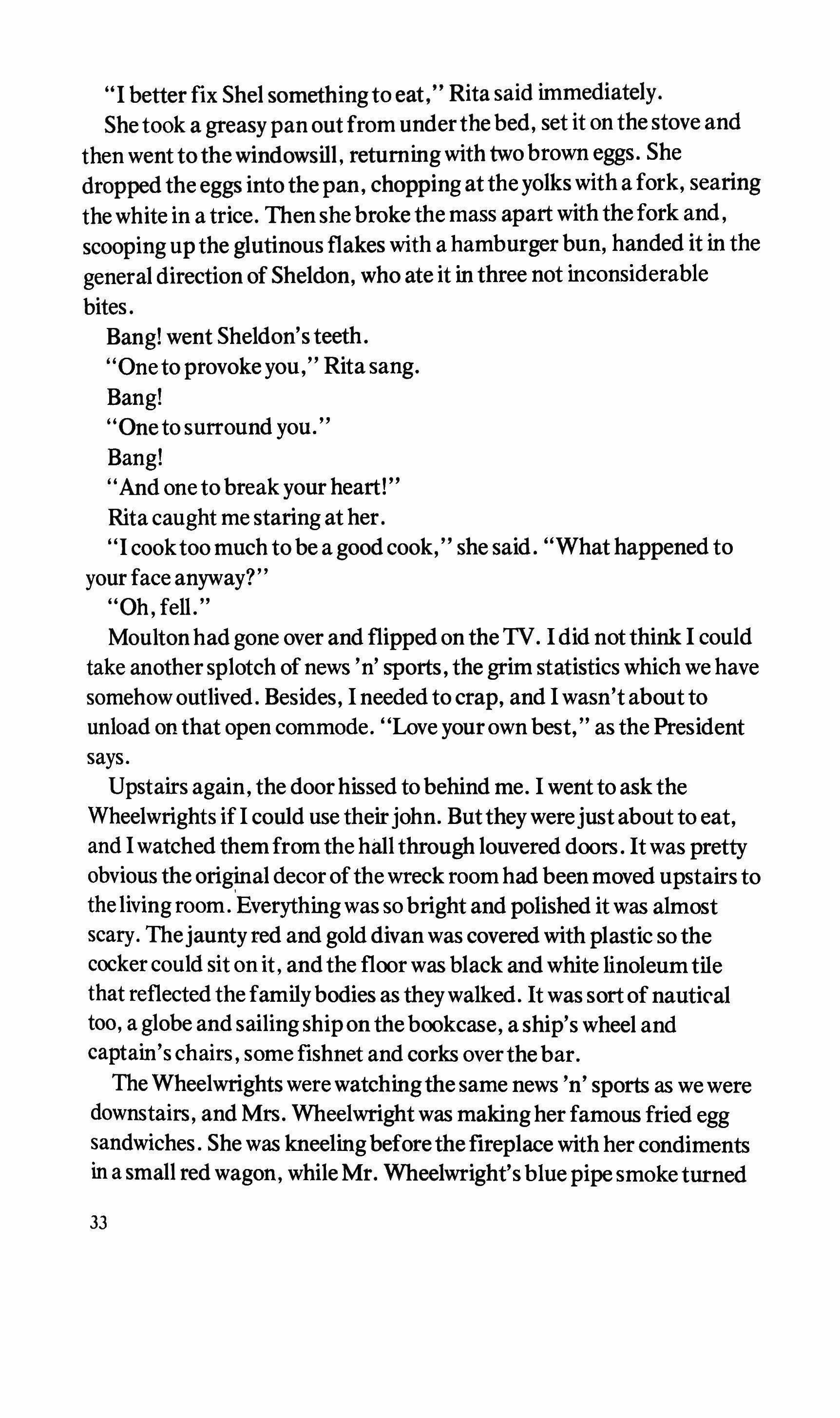
"I better fix Shel somethingto eat," Rita said immediately. Shetook a greasy pan out from underthe bed, set it on the stove and then went tothewindowsill, retumingwith two brown eggs. She dropped the eggs into the pan, chopping at theyolks with a fork, searing thewhite in a trice. Thenshe broke the mass apart with thefork and, scooping upthe glutinous flakes with a hamburgerbun, handed it in the general direction of Sheldon, who ate it in three not inconsiderable bites.
Bang! went Sheldon's teeth.
"Oneto provokeyou," Rita sang.
Bang!
"Oneto surround you."
Bang!
And one to break your heart!"
Rita caught me staring at her.
"I cooktoo much to be a goodcook," she said. "What happened to your face anyway?"
"Oh, fell."
Moultonhad gone over and flipped on theTV. I did not think I could take anothersplotch of news 'n' sports, the grim statistics which we have somehow outlived. Besides, I needed to crap, and I wasn't about to unload on that open commode. "Love your own best," as the President says.
Upstairsagain, the doorhissed to behind me. I wentto askthe Wheelwrights if I could use theirjohn. Butthey were justabout to eat, and I watched themfrom the hall through louvered doors. It was pretty obvious the orig�al decorofthewreck room had been moved upstairs to theliving room. Everything was so bright and polished it was almost scary. Thejauntyred and gold divan was covered with plastic so the cocker could sit on it, andthe floor was black and white linoleumtile that reflected thefamilybodies as theywalked. It was sort of nautical too, a globe and sailingship on thebookcase, a ship's wheel and captain'schairs, some fishnet and corks over thebar.
The Wheelwrights were watchingthe same news 'n' sports as we were downstairs, and Mrs. Wheelwright was making her famous fried egg sandwiches. She was kneelingbeforethefireplace with her condiments in a small red wagon, whileMr. Wheelwright'sblue pipe smoke turned
33

green inthe light ofthe TV, its statistics batteringlike sleet about his wife atwork.
Shetook a small marrow bone and and banged it gentlywith her little fist, disgorging a gelatinouspellet which liquefiedquickly in the pan. Then while still holdingthe pan above thecoals with herlefthand, the handle of a cuplooped about her rightthumb, with herfour freefingers she broke an egg intothe cup. Then she slid the eggintothe pan, where it congealed in an instant as shebasted it, withoutthefaintest trace of brown. She covered the panwhile she cut twothick slices ofdarkbread, brushing one with mayonnaise, theotherwith marrow and paprika, then slippedthe egg, its yolk now pink, between them. Finally, she added a sliverofhorseradish root, a halfmoon ofpimento, and the sandwich flew like an astonished finch intothechair.
I snuck off, for some reason embarrassed, to theirbathroom.
When I got back downstairs, they had alreadytakenthe pills and were lying around on thefloortogether, oohingand ahhing, earlierthan usual. Sheldon handedthe vial to me, but I refused as I alwaysdid, and Rita mumbled, "think you'rebetterthan us, kid?"
"No, honest, Rita "
"You were always an insufferable arrogant little snot."
"You ought to stopthis stuff at least until you have it," I said.
"I'd get even fatterifI did."
"You'll ruin your goddamtastebuds," I said.
I decided to snuffout the news'n' sports and put on some old videotapes, some history, or what I call" Pre-Me"; it's hard thesedays totrust a memorythat isn'tyours. I didn't care aboutthem takingthat stuff, but Ijust can'thack it. It's worse than TV, beingconked out likethat, and when I am, all Iget is advertisements on my eyes, personalized stuff with my name in computer italics.
Everybodyelse was now unconscious, and I picked out an old tape about howTarzan andJane met. It seems thatJane's parents, due to genteel naivete and general stuffiness, were killed bythe cannibals, and Jane, notyet oldenough to fight fortheempire or plumpenoughfor eating, is abducted. As a result ofbeingfattened up on nativegruel, however, her new charmsbecome apparent, and she is inturn spirited awayby, or soldto, it was never quiteclear, an Arab chieftain, Who'San, whotakes her to hispalacewhere the desert andjungle meet.
34
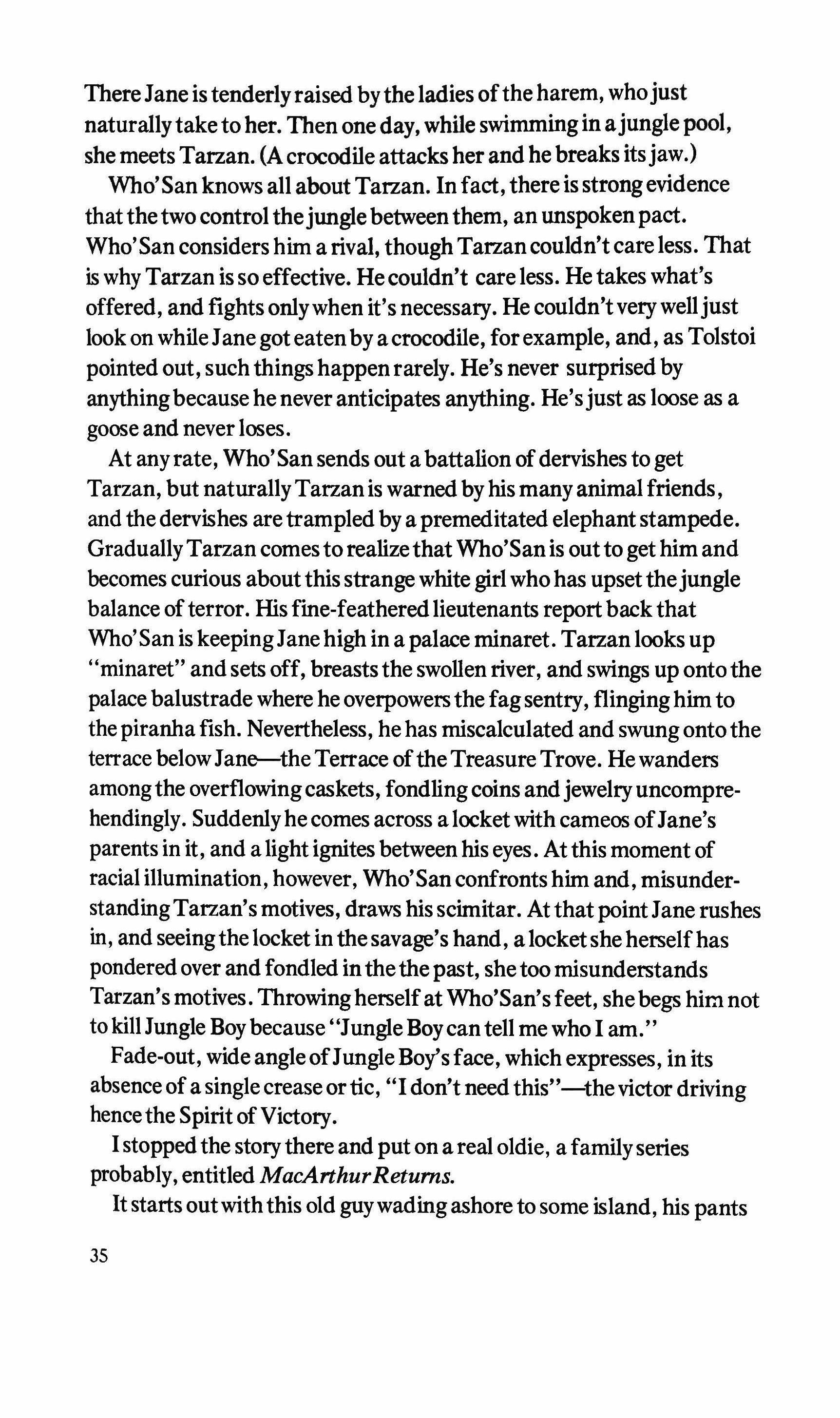
ThereJane is tenderlyraised bythe ladies ofthe harem, whojust naturallytake to her. Then one day, while swimmingin ajunglepool, she meets Tarzan. (Acrocodile attacks her and he breaks itsjaw.)
Who'San knows all about Tarzan. In fact, there is strongevidence thatthetwo control thejunglebetweenthem, an unspokenpact. Who'San considers him a rival, though Tarzancouldn't care less. That is why Tarzan is so effective. Hecouldn't care less. He takes what's offered, and fightsonlywhen it's necessary. He couldn'tverywelljust look on whileJanegot eatenby a crocodile, forexample, and, as Tolstoi pointed out, such thingshappenrarely. He's never surprisedby anythingbecause he never anticipates anything. He'sjust as loose as a goose and never loses.
At anyrate, Who'San sends out a battalion ofdervishes to get Tarzan, but naturallyTarzanis warned byhis manyanimal friends, and thedervishes are trampledby a premeditatedelephantstampede. GraduallyTarzan comes to realizethat Who'San is outto get him and becomes curious aboutthis strange white girlwhohas upsetthejungle balance ofterror. His fine-featheredlieutenants reportbackthat Who'San is keepingJanehigh in a palace minaret. Tarzan looks up "minaret" and sets off, breaststhe swollen river, and swings up onto the palace balustrade where he overpowersthe fagsentry, flinginghim to thepiranha fish. Nevertheless, hehas miscalculated and swung onto the terrace belowJane-theTerrace oftheTreasure Trove. Hewanders amongthe overflowingcaskets, fondlingcoins andjewelryuncomprehendingly. Suddenlyhe comes across a locketwith cameos ofJane's parents in it, and a lightignites between his eyes. Atthis moment of racial illumination, however, Who'San confronts him and, misunderstandingTarzan's motives, draws his scimitar. Atthat pointJane rushes in, and seeingthelocket in thesavage's hand, a locketshe herselfhas pondered over and fondled inthethepast, shetoo misunderstands Tarzan's motives. Throwingherselfat Who'San'sfeet, shebegs him not to kill JungleBoybecause "JungleBoy can tell me who I am."
Fade-out, wide angleofJungleBoy'sface, which expresses, in its absence of a single crease or tic, "I don't need this"-thevictor driving hencethe Spirit ofVictory.
I stoppedthe storythere and put on a real oldie, a familyseries probably, entitled MacArthurReturns. It starts outwiththis old guywadingashore to some island, his pants
3S
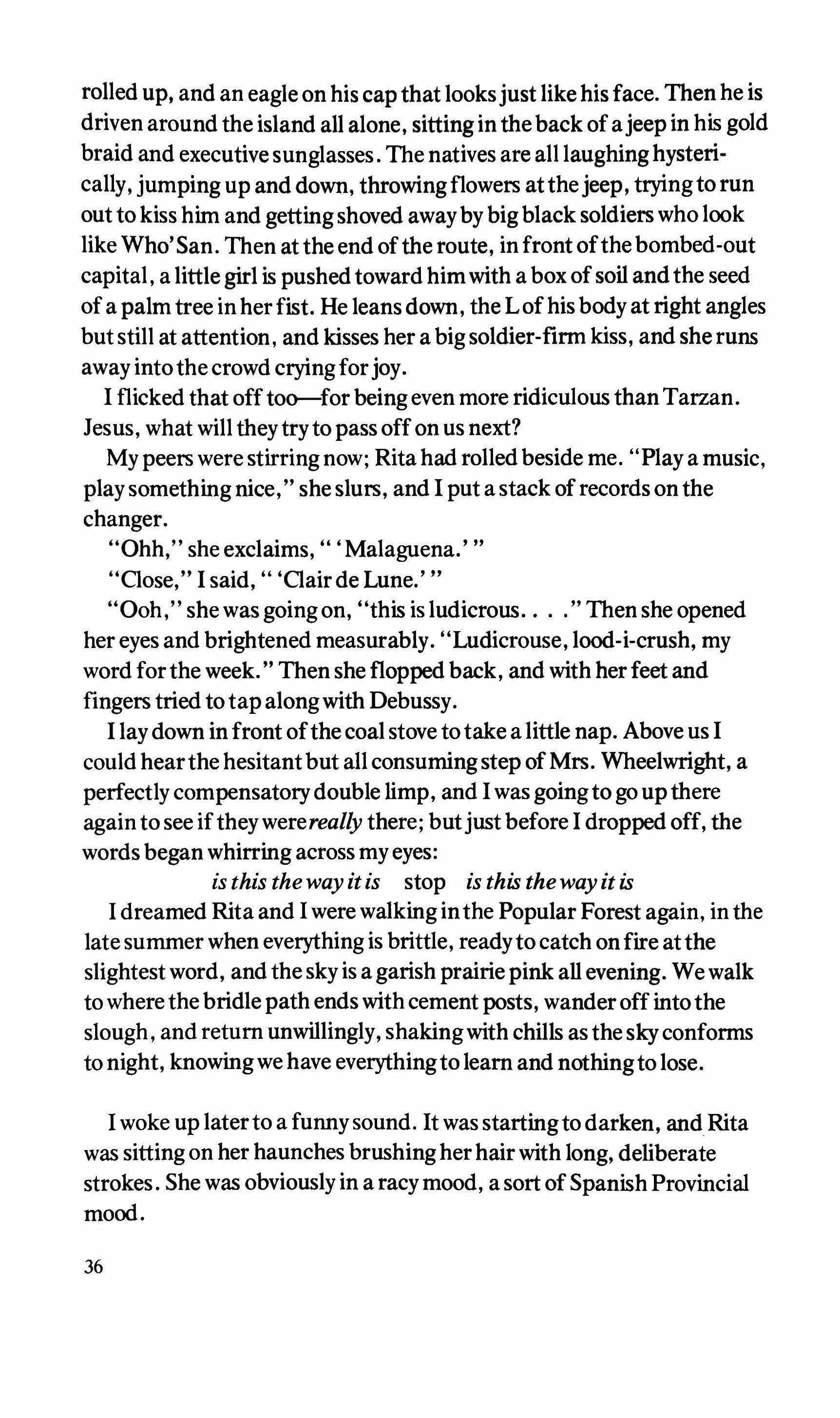
rolled up, and an eagle on his cap that looksjust like his face. Then he is driven around the island all alone, sittingin theback of a jeep in his gold braid and executivesunglasses. The natives are all laughinghysterically, jumping up and down, throwingflowers atthejeep, trying to run out to kiss him and gettingshoved awaybybigblack soldiers who look like Who'San. Then at the end ofthe route, in front ofthebombed-out capital, a little girl is pushedtoward himwith a box of soil andthe seed of a palm tree inherfist. He leans down, the Lof hisbody at rightangles but still at attention, and kisses her a bigsoldier-firm kiss, and she runs awayintothe crowd cryingforjoy.
I flicked that offtoo-for being even more ridiculous thanTarzan. Jesus, what will theytryto pass off on us next?
My peers were stirring now; Rita had rolled beside me. "Playa music, playsomethingnice," sheslurs, and I put a stack ofrecords on the changer.
"Ohh," she exclaims, " Malaguena.' " "Close," I said, " 'Clair de Lune.'
"Ooh," she was going on, "this is ludicrous ." Then she opened her eyes and brightened measurably. "Ludicrouse, lood-i-crush, my word forthe week. Then she flopped back, and with herfeet and fingers tried to tapalongwith Debussy.
I laydown infront ofthecoal stove totake a little nap. Above us I could hearthe hesitantbut all consumingstep ofMrs. Wheelwright, a perfectlycompensatory double limp, and I was goingto goupthere again to see iftheywetereally there; butjustbefore I dropped off, the words beganwhirring across myeyes:
is this the way it is stop is this theway it is
I dreamed Rita and I were walking inthe Popular Forest again, inthe late summer when everything is brittle, readyto catch on fire atthe slightestword, and the skyis a garishprairiepink all evening. Wewalk towherethebridle path ends with cement posts, wanderoff intothe slough, and return unwillingly,shakingwith chills as the skyconforms to night, knowing we have everythingto learn and nothingto lose.
I woke up later to a funnysound. It was startingto darken, andRita was sitting on her haunches brushingherhair with long, deliberate strokes. She was obviously in a racy mood, a sort of Spanish Provincial mood.
36
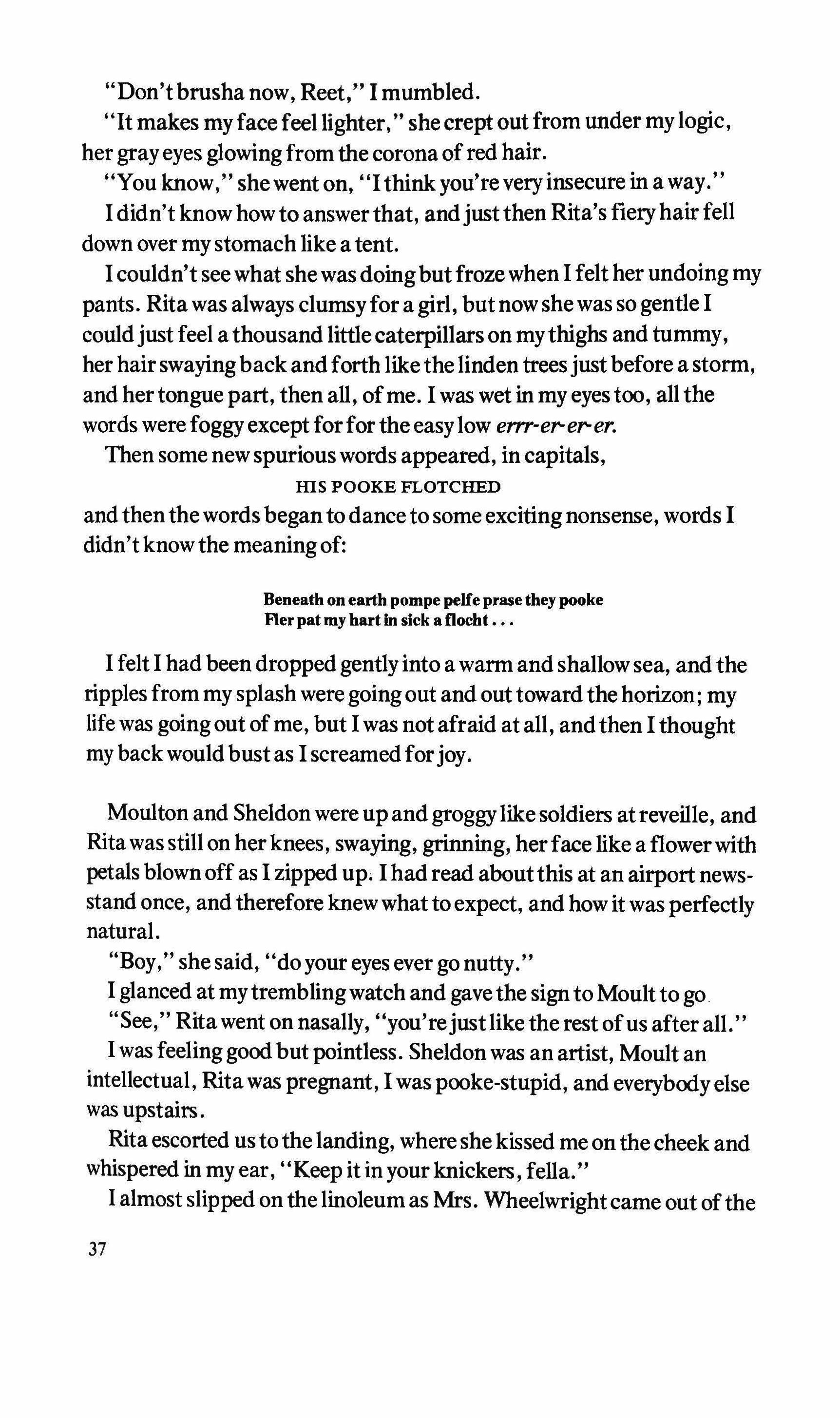
"Don'tbrusha now, Reet," 1 mumbled.
"It makes my facefeel lighter,"she crept out from under my logic, her grayeyes glowingfromthe corona of red hair.
"You know," she went on, "I think you're veryinsecure in a way."
1 didn't know how to answer that, andjust then Rita's fiery hair fell down over my stomach like a tent.
1 couldn't see what she was doingbut froze when 1 felt her undoing my pants. Rita was always clumsyfor a girl, but now she was so gentle I couldjust feel a thousand little caterpillars on mythighs and tummy, her hairswayingback andforth likethelinden treesjustbefore a storm, and hertonguepart, then all, of me. I was wet in my eyes too, all the words were foggyexcept forfor the easy low errr-er-er-er.
Then some new spurious words appeared, in capitals, IDS POOKE FLOTCHED and thenthewords began to dance to some exciting nonsense, words I didn't knowthe meaningof:
Beneath on earth pompe peJfe prase they pooke Her pat my hart in sick a flocht
I felt I had been droppedgentlyinto a warm and shallow sea, and the ripples from my splash were going out and out toward the horizon; my life was goingout of me, but I was not afraid at all, andthen I thought my back wouldbust as I screamedforjoy.
Moulton and Sheldon were up and groggylikesoldiers at reveille, and Rita was still on herknees, swaying, grinning, herface like a flowerwith petals blown off as I zipped up; I had read aboutthis at an airport newsstand once, and therefore knewwhat to expect, and howit was perfectly natural.
"Boy," she said, "doyour eyes ever go nutty."
I glanced at mytremblingwatch and gavethe sign to Moult to go "See," Rita went on nasally, "you'rejustlike the rest of us after all."
I was feelinggood but pointless. Sheldon was an artist, Moult an intellectual, Rita was pregnant, I was pooke-stupid, and everybody else was upstairs.
Rita escorted us to the landing, where she kissed me on the cheek and whispered in my ear, "Keep it in your knickers, fella."
I almost slipped on the linoleum as Mrs. Wheelwright came out of the
37
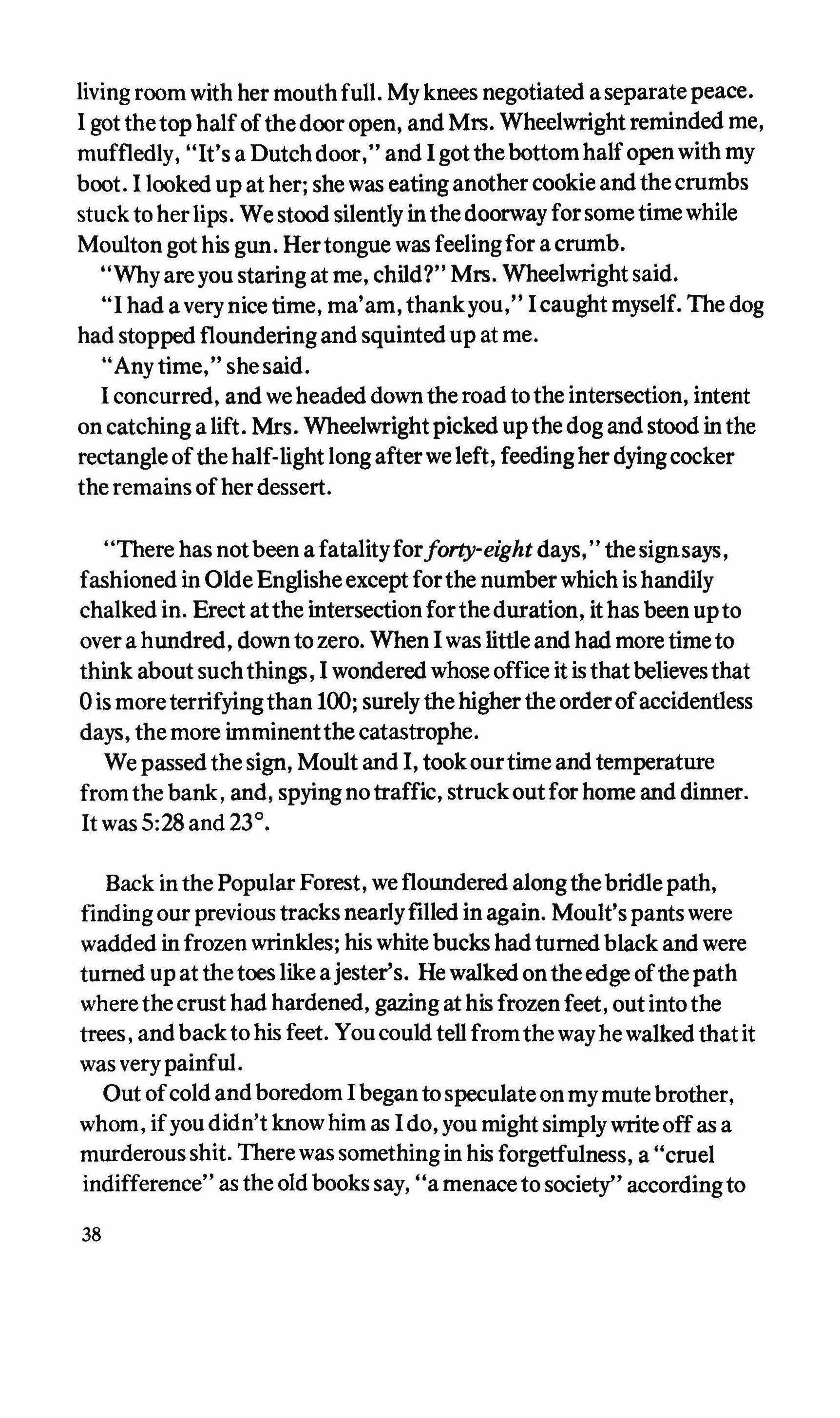
living room with her mouthfull. Myknees negotiated a separate peace. I got thetop halfofthe door open, and Mrs. Wheelwright reminded me, muffledly, "It's a Dutchdoor," and I gotthebottom halfopenwith my boot. I looked up at her; she was eating anothercookie and the crumbs stuck to herlips. We stood silently in thedoorway for some timewhile Moulton got his gun. Hertongue was feelingfor a crumb.
"Why are you staring at me, child?" Mrs. Wheelwright said.
"I had a very nice time, ma'am, thankyou," Icaughtmyself. The dog had stoppedfloundering and squinted up at me.
"Anytime," she said.
I concurred, and we headed down the road to the intersection, intent on catching a lift. Mrs. Wheelwrightpicked up the dog and stood in the rectangle ofthe half-light longafter we left, feedingher dyingcocker the remains ofherdessert.
"There has notbeen a fatalityforforty-eightdays," thesignsays fashioned in Olde Englisheexcept forthe numberwhich is handily chalked in. Erect atthe intersection fortheduration, ithas been upto over a hundred, down to zero. When I was little and had more timeto think about suchthings, I wondered whose office it isthatbelieves that o is more terrifyingthan 100; surelythehigherthe orderofaccidentless days, the more imminentthe catastrophe.
We passed the sign, Moult and I, took our timeand temperature from the bank, and, spying no traffic, struck outfor home and dinner. It was 5:28 and 23°.
Back in the Popular Forest, we floundered alongthebridle path, finding our previous tracks nearlyfilled in again. Moult's pants were wadded in frozen wrinkles; his white bucks hadturned black and were turned up at the toes like ajester's. He walked on theedge ofthe path wherethe crust had hardened, gazing at his frozen feet, out intothe trees, andback to his feet. Youcould tell fromthewayhe walked thatit was very painful.
Out ofcold and boredom I began to speculate on mymute brother, whom, ifyou didn't know him as I do, you mightsimplywrite off as a murderous shit. There was something in his forgetfulness, a "cruel indifference" as the old books say, "a menace to society" accordingto
38

the new ones. Oh well, all our books are wrong. And I cannot really speakfor our experience. We have had no experience to speak of. Or rather, theonlyexperience we've had has been bespoken. "All stories are the same, exceptforthedifferences," like Dad says, "20years growing, 20yearsliving, 20 years stooping, and20dying." It's not exactlythat nothing's now symbolic, it'sjustthat everything seems to smell the same. We were born and raised, born and raised inwhatwill be remembered as the timewhen we could have killed everybody and when everybody, therefore, wanted to kill us. Our species had got up to zero. That, at least, is how I understand the story. We knew what we wanted then-butwhat we wanted we didn't like much. There were those among us whothoughtthat what we wanted was positivelybad for us. Butthenwhat we wanted, good or bad, gotused up. We lostboth our smugness and our spleen, our sloppiness and our severity, even our murderous rectitude. And while saved fromthehand ofthose who hated us, we becamethe unhappiestpeople on the face oftheearth. As Dad, theloss preventionengineer, is fond ofrepeating, "Back to thebeginning, sportfans," or some such similarlydesperatethrowaway.
Mom says unequivocallythat she grew up inthebestoftimes, a time unlike anyother, althoughwhen you askher what kind of car shehad, shesimply says she can't recall the name but it was the finest one made. "Horsefeathers," replies Dad, "it was a time ofblight, ofwaste." "Waste was nice," she retorts, "for one hundredyears we were a miracle! We are not what we were, nosir."
"Ifthefuture is too much on your mind," Dad says, grippingthe arms ofhis chair, "it cannot happen. As forthe past, mybetter half, I for one have no desire to return to the AgeofPets! And anyway," he meanders, seeminglylosingthe point, "there are no more hurricanes than there ever were; onlythe reports ofthemhaveincreased. " Then he hums a fewbars of"ln the Mood."
It is not clear whether we were overpriced or undersold. Or thatthis was a time unlike anyother. Butnevertheless, at thecrossroads, the sign will soon again be set backto zero.
We stood there, Moult and I, the banal wind spoolingerotic snow about us. We passed a dead horse upon which someone had taken some professional-lookingwhacks.
39
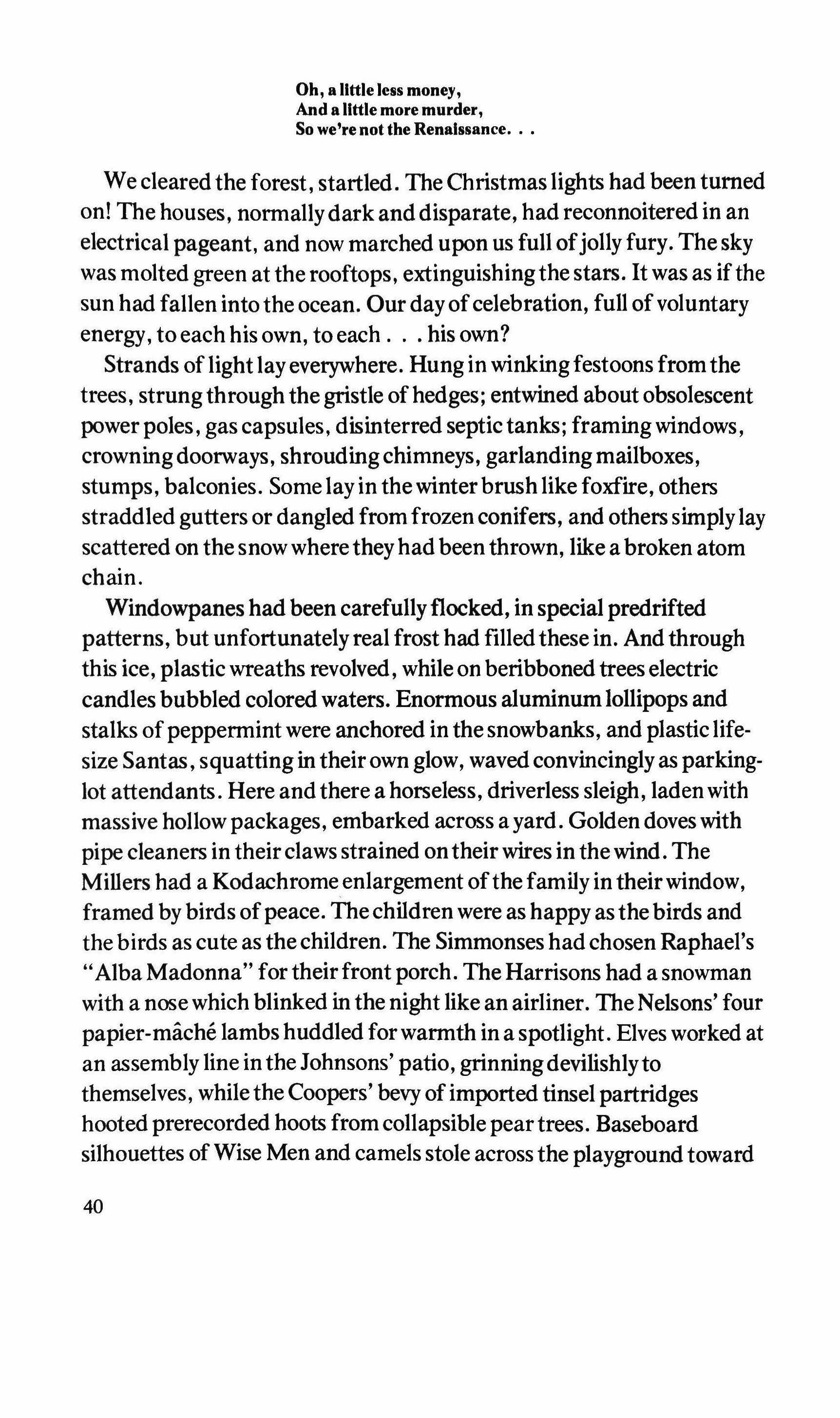
Oh, a little less money, And a little more murder, So we're notthe Renaissance
We cleared the forest, startled. The Christmaslights had been turned on! The houses, normally dark and disparate, had reconnoitered in an electrical pageant, and now marched upon us full ofjollyfury. The sky was molted green at the rooftops, extinguishingthe stars. It was as ifthe sun had fallen into the ocean. Our dayofcelebration, full ofvoluntary energy, to each his own, to each his own?
Strands oflightlayeverywhere. Hung in winkingfestoons fromthe trees, strungthrough the gristle ofhedges; entwined about obsolescent power poles, gas capsules, disinterred septictanks; framingwindows, crowningdoorways, shroudingchimneys, garlandingmailboxes, stumps, balconies. Some lay in thewinterbrush like foxfire, others straddled gutters or dangled fromfrozenconifers, and others simplylay scattered on the snow wheretheyhad been thrown, like a broken atom chain.
Windowpanes had been carefullyflocked, in specialpredrifted patterns, but unfortunately real frost had filled these in. And through this ice, plastic wreaths revolved, while on beribboned trees electric candles bubbled colored waters. Enormous aluminumlollipops and stalks ofpeppermint were anchored in the snowbanks, and plastic lifesize Santas, squatting in their own glow, waved convincingly as parkinglot attendants. Here and there a horseless, driverless sleigh, ladenwith massive hollow packages, embarked across a yard. Golden doves with pipe cleaners in theirclaws strained on their wires in thewind. The Millers had a Kodachromeenlargement ofthe family in theirwindow, framed by birds ofpeace. Thechildren were as happy as thebirds and thebirds as cute as thechildren. The Simmonses had chosen Raphael's "Alba Madonna" for theirfront porch. The Harrisons had a snowman with a nose which blinked in the night like an airliner. The Nelsons' four papier-rnache lambs huddled forwarmth in a spotlight. Elves worked at an assembly line in the Johnsons' patio, grinningdevilishlyto themselves, whilethe Coopers' bevy ofimported tinsel partridges hooted prerecorded hoots from collapsible peartrees. Baseboard silhouettes ofWise Men and camels stole across the playground toward
40
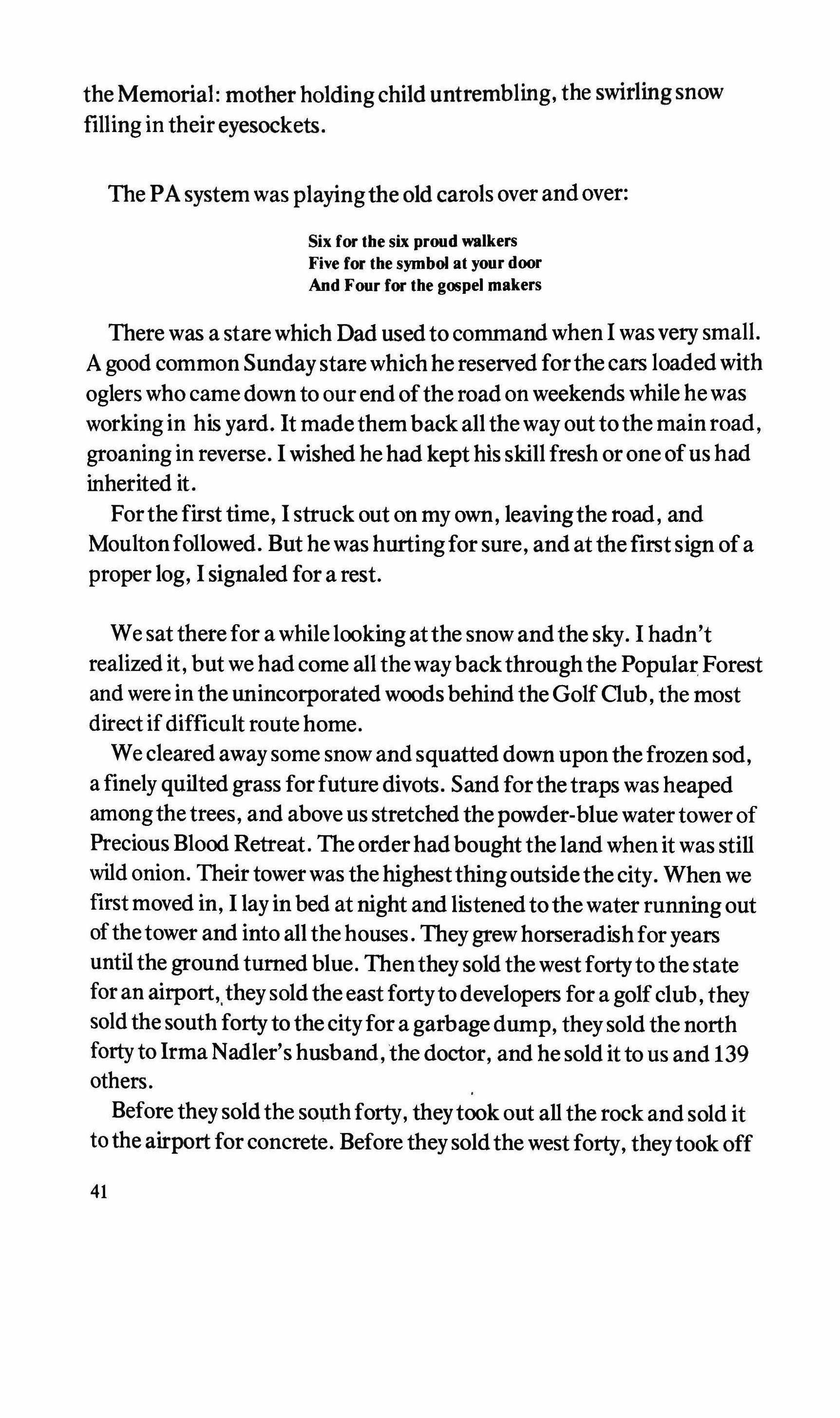
the Memorial: mother holding child untrembling, the swirling snow filling in theireyesockets.
The PA system was playingthe old carols over and over:
Six for the six proud walkers
Five for the symbol at your door
And Four for the gospel makers
There was a stare which Dad used to command when I was very small. A good common Sunday stare which hereserved forthe cars loadedwith oglers who came down to our endofthe road on weekends while he was workingin his yard. It madethem back all thewayouttothemainroad, groaning in reverse. I wished he had kept his skill fresh or one of us had inherited it.
Forthe first time, I struck out on my own, leavingthe road, and Moultonfollowed. But he was hurtingfor sure, and at thefirstsign of a proper log, I signaled for a rest.
We sat therefor a while looking atthe snow andthe sky. I hadn't realized it, but we had come all thewaybackthroughthe Popular Forest and were in the unincorporated woods behind the Golf Club, the most direct if difficult route home.
We cleared away some snow andsquatted down upon thefrozen sod, a finelyquilted grass forfuture divots. Sand forthetraps was heaped amongthe trees, and above us stretched the powder-blue water tower of Precious Blood Retreat. The orderhadboughtthe land whenit was still wild onion. Their tower was thehighestthingoutsidethecity. When we first moved in, I lay inbed at night and listened tothe water running out ofthetower and into all the houses. They grew horseradish for years until the ground turned blue. Then they sold the west forty to the state for an airport" theysold the east forty to developers for a golfclub, they sold the south forty to thecityfor a garbagedump, theysold the north forty to Irma Nadler's husband, the doctor, and he sold it to us and 139 others.
Before theysold the southforty, theytook out all the rock and sold it to the airport for concrete. Before theysoldthe west forty, theytook off
41
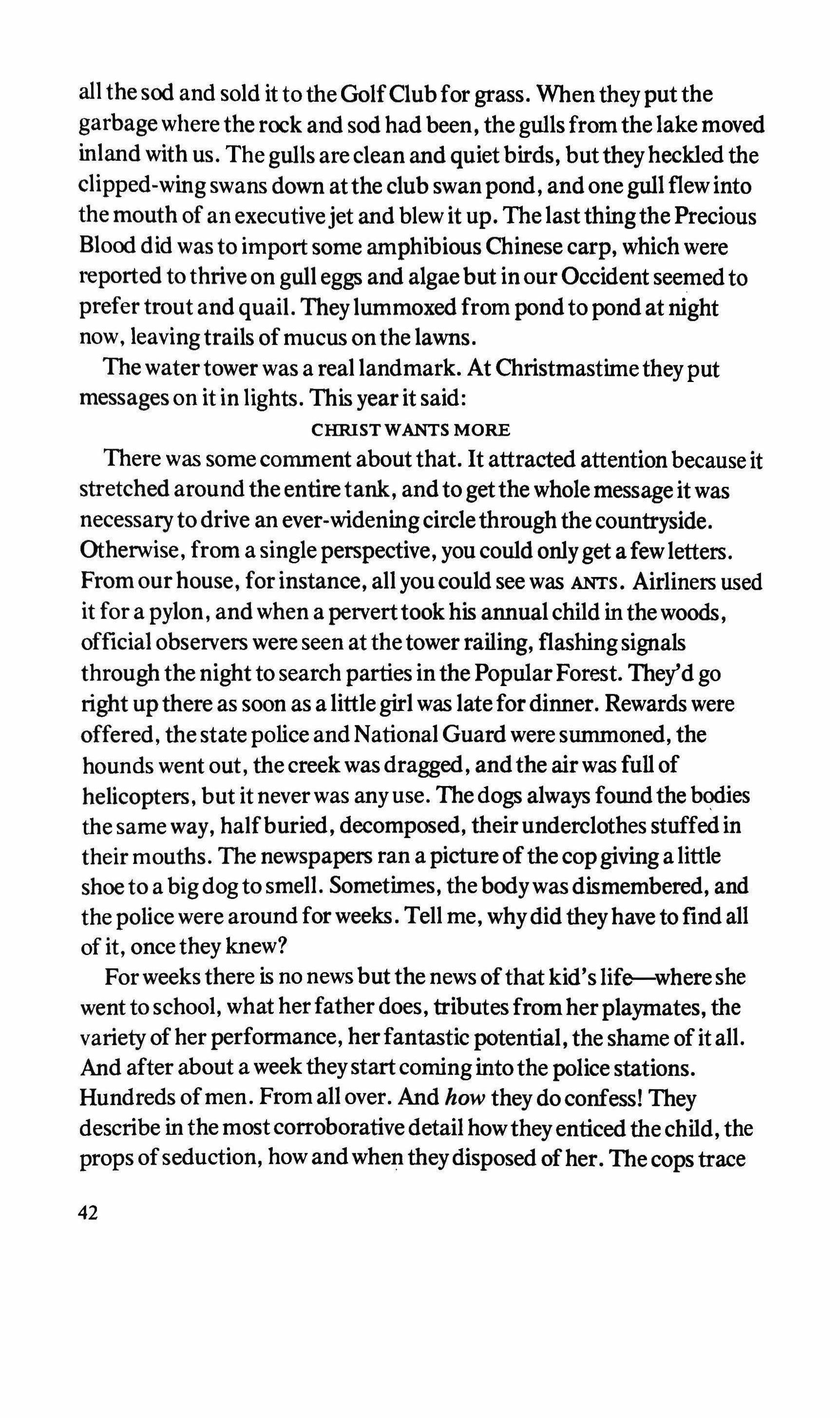
all the sod and sold it to the GolfClub for grass. When theyput the garbage where the rock and sod had been, the gulls from the lake moved inland with us. The gulls are clean and quietbirds, buttheyheckled the clipped-wing swans down atthe club swan pond, and one gull flewinto the mouth of an executivejet and blew it up. The last thingthe Precious Blood did was to import some amphibious Chinese carp, which were reported to thrive on gull eggs and algaebut in our Occident seemed to prefer trout and quail. Theylummoxed from pond to pond at night now. leavingtrails of mucus on the lawns.
The water tower was a real landmark. At Christmastime theyput messages on it in lights. This year it said:
CHRIST WANTS MORE
There was some comment about that. It attracted attentionbecause it stretched around the entiretank, and to getthe wholemessage it was necessary to drive an ever-wideningcirclethrough the countryside. Otherwise. from a singleperspective, you could onlyget a fewletters. From our house, forinstance, all you could see was ANTS. Airliners used it for a pylon, and when a perverttook his annual child in thewoods, official observers were seen at the tower railing, flashingsignals through the night to search parties inthe PopularForest. They'd go right up there as soon as a little girl was late for dinner. Rewards were offered. the state police and National Guard were summoned, the hounds went out, the creek was dragged, andthe air was full of helicopters, but it never was any use. The dogs always found the bodies the same way, halfburied decomposed, their underclothes stuffed in their mouths. The newspapers ran a picture ofthe cop giving a little shoe to a bigdog to smell. Sometimes, the body was dismembered, and the police were around forweeks. Tell me, whydid theyhave to find all of it, once they knew?
For weeks there is no news but the news ofthat kid's life-where she went to school, what herfather does, tributes from herplaymates, the variety of her performance, herfantastic potential, the shame ofitall. And after about a week theystart comingintothe police stations. Hundreds of men. From all over. And how they do confessI They describe in the most corroborative detail howtheyenticed the child, the props ofseduction, how and when theydisposed ofher. The cops trace
42
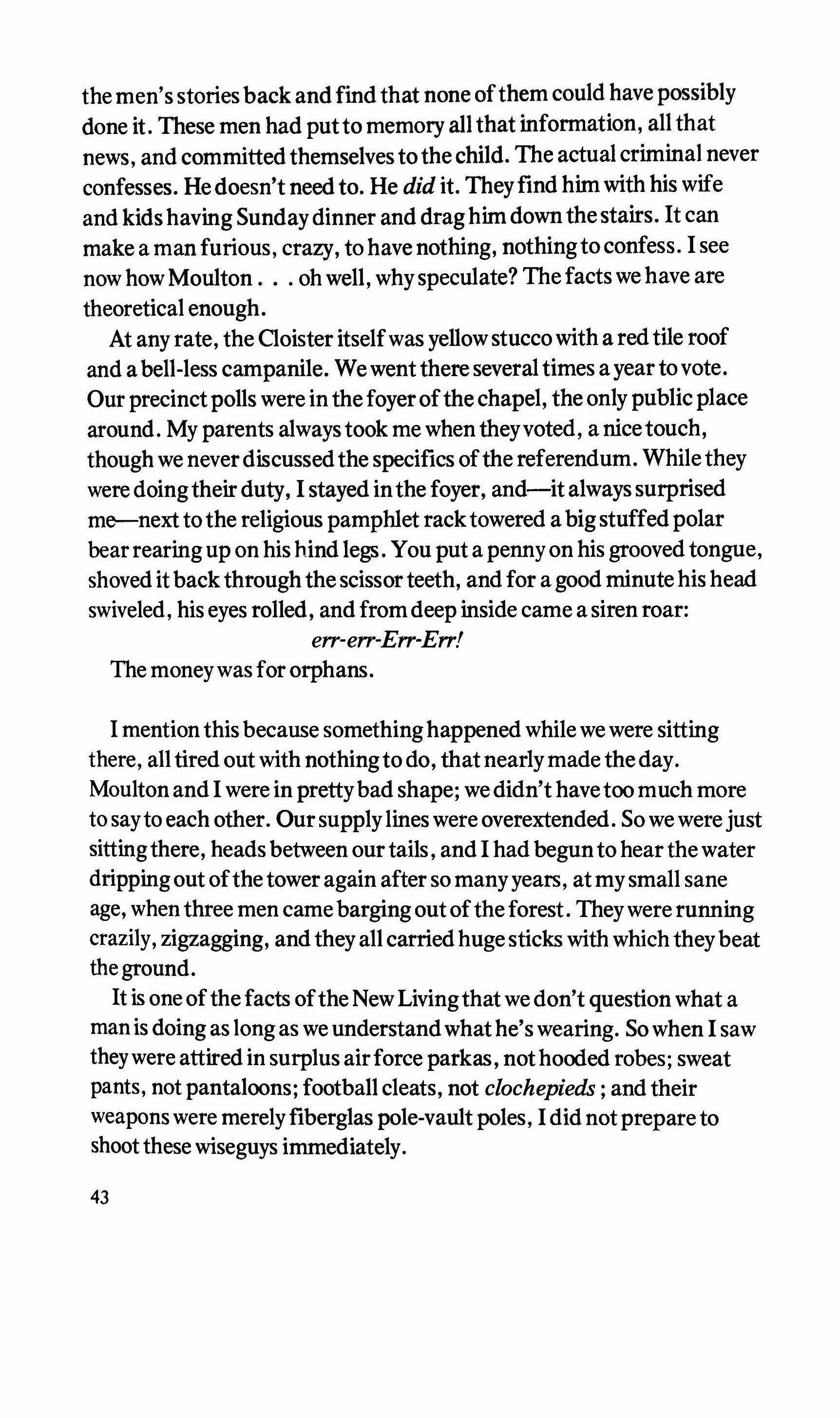
themen's storiesbackandfind that none ofthem could have possibly done it. These men had putto memory all that information, all that news, and committedthemselves tothechild. The actual criminal never confesses. Hedoesn't need to. He did it. Theyfind himwith his wife and kidshavingSundaydinner and draghim down thestairs. It can make a man furious, crazy, to have nothing, nothingto confess. I see now howMoulton oh well, whyspeculate? Thefacts we have are theoretical enough.
At any rate, the Cloister itself was yellowstucco with a redtile roof and a bell-less campanile. Wewent there severaltimes a year tovote. Our precinctpolls were in thefoyerofthechapel, the onlypublicplace around. My parents alwaystook me whentheyvoted a nicetouch, though we never discussedthe specifics ofthe referendum. While they were doingtheirduty, I stayed inthe foyer, and-italwayssurprised me-next tothe religiouspamphlet racktowered a bigstuffed polar bear rearingup on his hind legs. You put a penny on his groovedtongue, shoved itbackthrough thescissor teeth, and for a good minutehis head swiveled, his eyes rolled, and from deep inside came a siren roar: err-err-Err-Err!
The money was for orphans.
I mentionthis because somethinghappened while we were sitting there, alltired out with nothingto do, thatnearlymade theday. Moulton and I were in prettybad shape; we didn't havetoo much more to sayto each other. Our supplylines were overextended. So we were just sittingthere, heads between our tails, and I had begunto hearthe water drippingout ofthe tower again after so manyyears, at mysmall sane age, when three men came barging out oftheforest. They were running crazily, zigzagging, and theyall carried hugesticks with whichtheybeat theground.
It is one ofthefacts ofthe New Livingthat we don't question what a man is doing as long as we understandwhat he's wearing. Sowhen I saw they were attired in surplus airforce parkas, nothooded robes; sweat pants, not pantaloons; football cleats, not clochepieds; and their weapons were merelyfiberglaspole-vaultpoles, I did not prepare to shootthese wiseguys immediately.
43
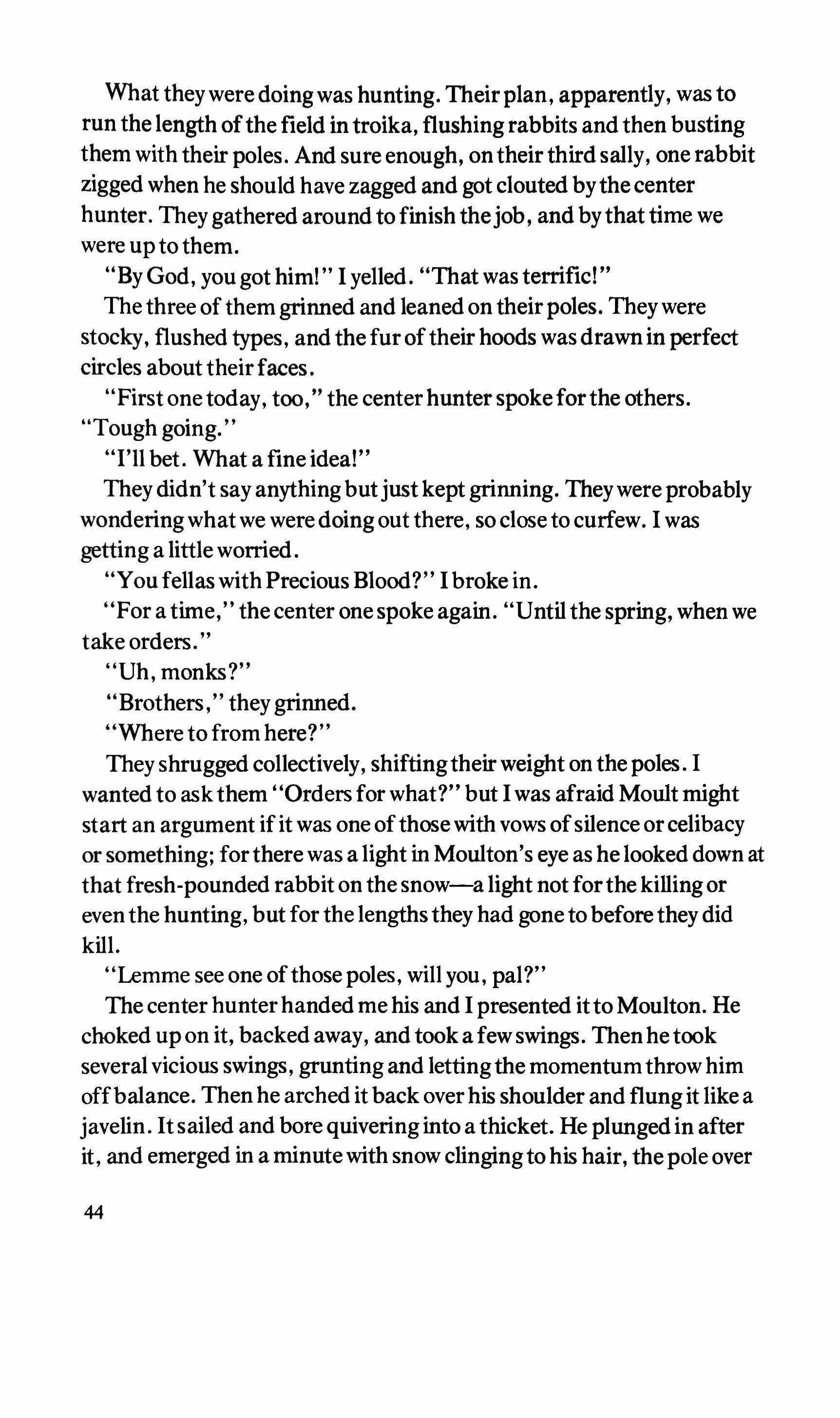
What they were doing was hunting. Theirplan, apparently, was to run the length ofthe field introika, flushing rabbits and then busting them with their poles. And sure enough, on their third sally, one rabbit zigged when he should have zagged and got clouted bythe center hunter. Theygathered around to finish thejob, and bythat time we were up to them.
"ByGod, you got him!" I yelled. "That was terrific!"
The three ofthem grinned and leaned on their poles. They were stocky, flushed types, and the furoftheir hoods was drawnin perfect circles about theirfaces.
"First one today, too," the center hunter spokeforthe others. "Tough going."
"I'll bet. What a fine idea!"
They didn't say anythingbutjustkeptgrinning. They were probably wonderingwhat we were doing out there, so close to curfew. I was getting a little worried.
"You fellas with Precious Blood?" I broke in.
"For a time," the center one spokeagain. "Until the spring, when we take orders."
"Uh, monks?"
"Brothers," theygrinned.
"Where to from here?"
Theyshruggedcollectively, shiftingtheir weight on the poles. I wanted to ask them "Orders for what?" but I was afraid Moult might start an argument ifit was one ofthose with vows ofsilence or celibacy or something; forthere was a light in Moulton's eye as he looked down at that fresh-pounded rabbit on the snow-a light not forthe killing or even the hunting, but for the lengthsthey had gone to beforethey did kill.
"Lemme see one ofthose poles, will you, pal?"
The center hunterhanded me his and I presented itto Moulton. He choked up on it, backed away, and took a fewswings. Thenhetook several vicious swings, grunting and lettingthe momentum throwhim offbalance. Then he arched itback over his shoulder and flungit like a javelin. Itsailed and bore quiveringinto a thicket. He plungedin after it, and emerged in a minutewith snow clinging to his hair, thepole over
44
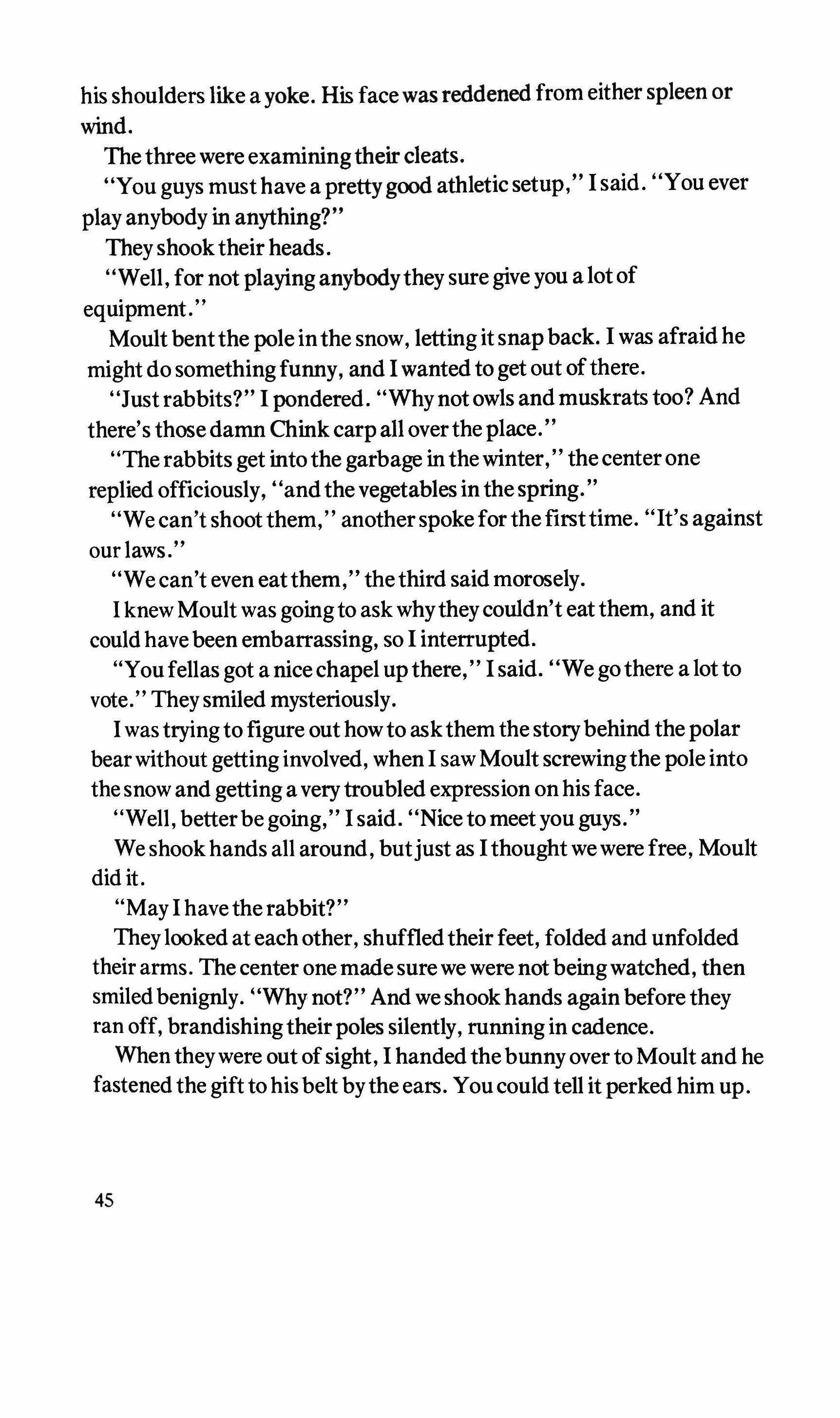
his shoulders like a yoke. His face was reddened from either spleen or wind.
Thethree were examiningtheir cleats.
"You guys must have a prettygood athletic setup," I said. "You ever playanybody in anything?" Theyshooktheir heads.
"Well, for not playinganybodythey sure give you a lotof equipment."
Moult bentthe poleinthe snow, letting itsnap back. I was afraid he might do somethingfunny, and I wanted to get out ofthere.
"Just rabbits?" I pondered. "Why not owls andmuskrats too? And there's those damn Chinkcarp all over the place."
"Therabbits get intothe garbage inthewinter," the center one repliedofficiously, "andthevegetables inthespring."
"We can't shoot them," anotherspokeforthefirsttime. "It's against ourlaws."
"We can't even eatthem," thethird said morosely.
I knew Moult was goingto ask whytheycouldn't eat them, and it could havebeen embarrassing, so I interrupted.
"Youfellas got a nice chapel up there," I said. "We gothere a lot to vote." Theysmiled mysteriously.
I was tryingto figure out howto askthem the storybehind the polar bearwithout gettinginvolved, when I saw Moult screwingthe pole into the snow and getting a very troubled expression on his face.
"Well, betterbe going," I said. "Nice to meet you guys."
We shookhands all around, butjust as I thought we were free, Moult did it.
"May I havetherabbit?"
They looked at eachother, shuffled their feet, folded and unfolded their arms. The center one made sure we were not beingwatched, then smiled benignly. "Why not?" And we shookhands again before they ran off, brandishingtheir poles silently, running in cadence.
When they were out of sight, I handed thebunny over to Moult and he fastened the gift to his belt bythe ears. Youcould tell it perked him up.
4S
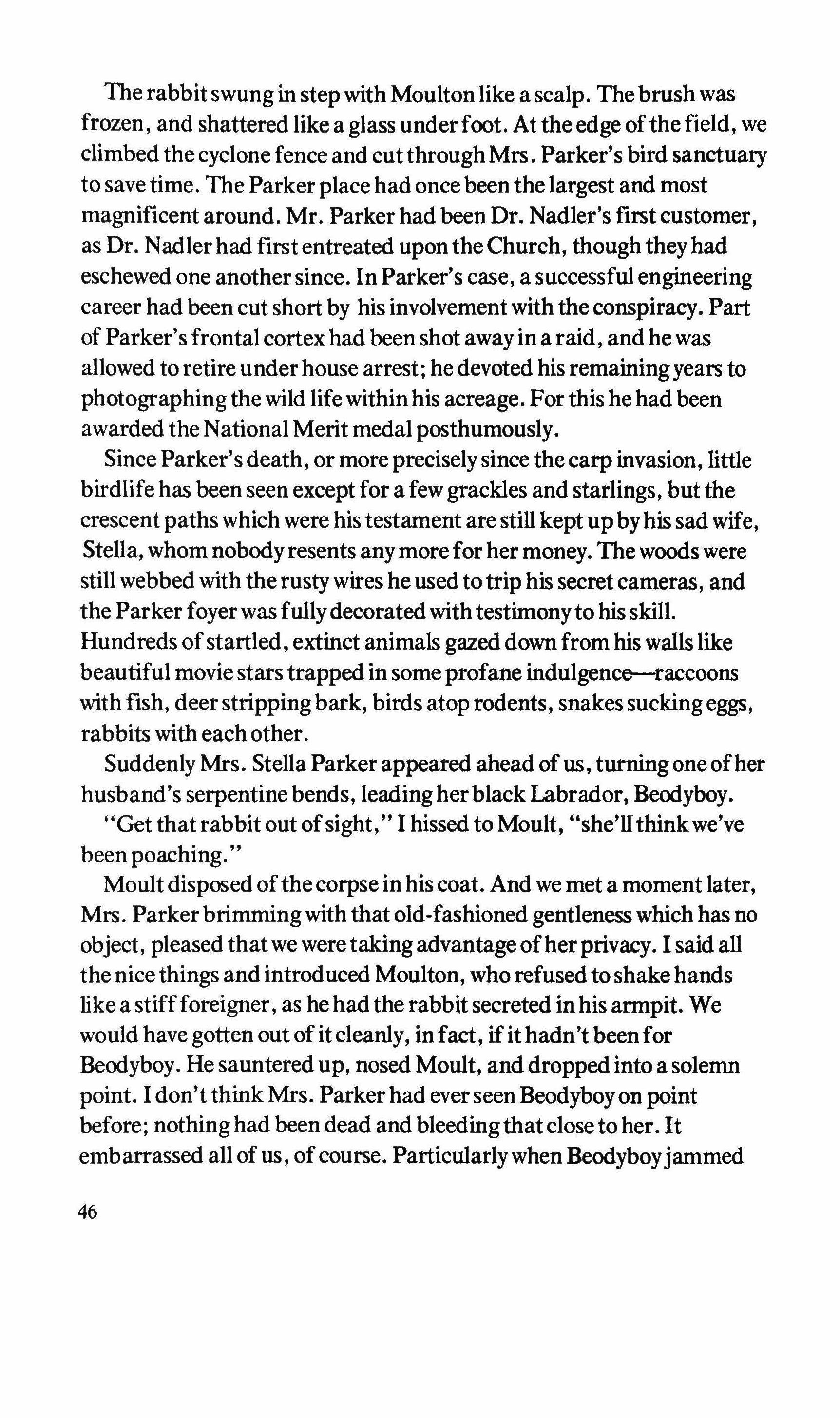
The rabbit swung in step with Moulton like a scalp. Thebrush was frozen, and shattered like a glass underfoot. Attheedgeofthefield, we climbed the cyclone fence and cut throughMrs. Parker's bird sanctuary to save time. The Parker place had once been the largest and most magnificent around. Mr. Parker had been Dr. Nadler's first customer, as Dr. Nadler had firstentreated upon the Church, thoughtheyhad eschewed one anothersince. In Parker's case, a successful engineering career had been cut short by his involvementwith the conspiracy. Part of Parker's frontal cortex had been shot away in a raid, and he was allowed to retire underhouse arrest; he devoted his remainingyears to photographingthe wild life withinhis acreage. For this he had been awarded the National Merit medal posthumously.
Since Parker's death, or more preciselysince thecarp invasion, little birdlife has been seen except for a fewgrackles and starlings, but the crescent paths which were his testament are still kept up byhis sad wife, Stella, whom nobody resents any more for her money. The woods were still webbed with the rusty wires he used totrip his secret cameras, and the Parker foyer was fullydecorated withtestimonyto hisskill. Hundreds ofstartled, extinct animals gazed down from his waIls like beautiful movie stars trapped in some profaneindulgence=raccoons with fish, deerstrippingbark, birds atop rodents, snakes suckingeggs, rabbits with each other.
Suddenly Mrs. Stella Parker appeared ahead of us, turning one ofher husband's serpentinebends, leadingherblack Labrador, Beodyboy.
"Get that rabbit out ofsight," I hissed to Moult, "she'llthinkwe've been poaching."
Moult disposed ofthecorpse inhis coat. And we met a moment later, Mrs. Parker brimmingwiththat old-fashioned gentleness which has no object, pleased that we were takingadvantageofherprivacy. I said all thenicethings and introduced Moulton, who refused to shake hands like a stiffforeigner, as he had the rabbit secreted inhis armpit. We would have gotten out ofitcleanly, infact, ifithadn'tbeenfor Beodyboy. He sauntered up, nosed Moult, and dropped into a solemn point. I don't think Mrs. Parker had ever seen Beodyboyonpoint before; nothing had been dead and bleedingthatclose to her. It embarrassed all of us, of course. Particularlywhen Beodyboyjammed
46
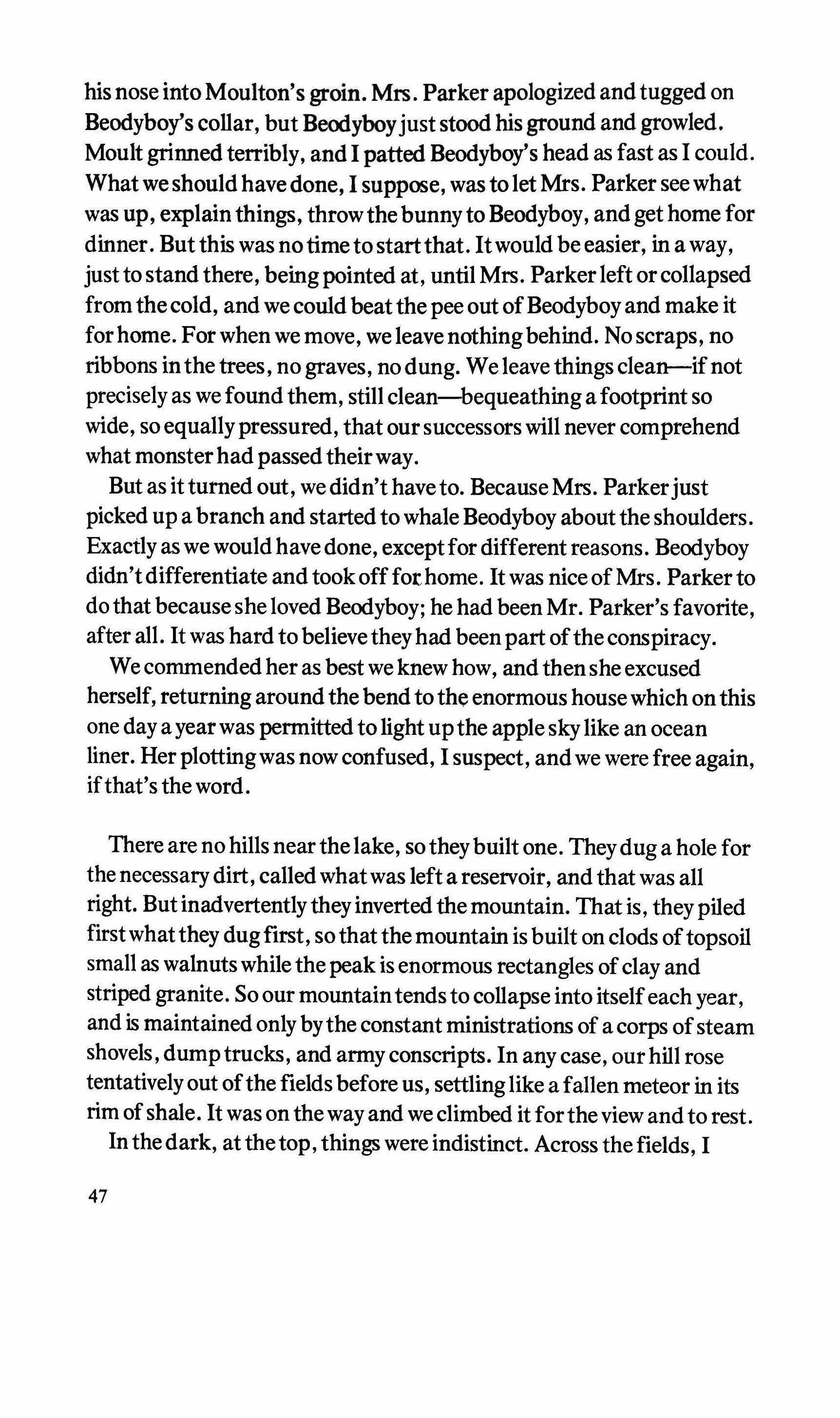
his nose into Moulton's groin. Mrs. Parker apologized and tugged on Beodyboy's collar, but Beodyboyjust stood his ground and growled. Moult grinnedterribly, and I patted Beodyboy's head as fast as I could. What we should havedone, I suppose, was to let Mrs. Parker see what was up, explainthings, throwthe bunny to Beodyboy, and get home for dinner. Butthis was no timeto startthat. Itwould be easier, in a way, just to stand there, beingpointed at, until Mrs. Parkerleft or collapsed from thecold, and we could beat the pee out ofBeodyboyand make it forhome. For when we move, we leave nothingbehind. No scraps, no ribbons inthe trees, no graves, no dung. We leave things clean-ifnot precisely as we found them, still clean-bequeathing a footprint so wide, so equallypressured, that our successors will never comprehend what monster had passed theirway.
But as itturned out, we didn't haveto. Because Mrs. Parkerjust picked up a branch and started to whale Beodyboy aboutthe shoulders. Exactly as we would have done, exceptfordifferent reasons. Beodyboy didn't differentiate and took off forhome. It was nice of Mrs. Parker to do that becauseshe loved Beodyboy; he had been Mr. Parker's favorite, after all. It was hard to believetheyhad beenpart oftheconspiracy. Wecommended her as best we knew how, and thensheexcused herself, returning aroundthe bend to the enormous housewhich on this one day a year was permitted to light upthe appleskylike an ocean liner. Her plotting was now confused, I suspect, and we were free again, ifthat's the word.
There are no hills near thelake, so theybuilt one. Theydug a hole for the necessary dirt, calledwhat was left a reservoir, and that was all right. Butinadvertentlytheyinverted the mountain. That is, theypiled firstwhattheydugfirst, so that themountain isbuilt on clods oftopsoil small as walnuts while the peak is enormous rectangles ofclay and stripedgranite. So our mountaintends to collapse into itselfeach year, and is maintained onlybythe constant ministrations of a corps of steam shovels, dumptrucks, and army conscripts. In any case, our hill rose tentatively out ofthe fields before us, settling like a fallen meteor in its rim ofshale. It was on theway and we climbed it fortheview and to rest. In thedark, at thetop, things were indistinct. Across thefields, I
47

could make out our house, set in the prairieturflike an ax blade. The forest was darker than the sky; the sky had seepedthrough the horizon and ran like lymphthroughoutthe electric patches of our Christmas. The watertower was spotlit, its fine message warped as alwaysby parallax. From the hill tonight it read WAN. The monastery's turrets glowed red; the lake, still white and ribbed with frozen currents, angled away like a gull's wing. We squatted down and rested.
It was quite still. The air base had shut down forthe holiday; the blunt-nosed orange planes, aerodynamics bulged with radar, were down. The submarines were in their pens. The commuters were home. I was very cold and tired.
In the dark, ofthe stillness, atthe top, I heard water backing up inthe tower, the silence too of more solid fuel cached inthe PopularForest, frost-splittingbrick paths, drone ofprecisionthermostats, lubric drip of idle engines-waitingonlyforthe coordinates to intersect, ignite. in order to retaliate.
Yes, we'll bereadyl We'll all be multilingual, ableto exist on roots and berries, karatewise, equipped with foreign currency, microfilm, and one dark syringe. And pretty soon we'll have our orders, our mission, our goal, and then our team will betoppling or buttressing all governments, perhaps even our own, pretendersdenouncing usurpers; probingefficiently, wagingthe war, carrying on thegood fight, scorchingthe old earth, meetingrisingexpectations, sharingthe wealth, keeping the cord sanitary, massivelydeterringpiecemeal aggression, retaliatingsecretively, selectively, mobilizing means, keepingthe peace, maximizing our potential, utilizing our concern, isolate, selfless, stoic, pure white killers. And at Christmastime, we'll come home on furlough, we'll lay down our foreign currency, our decoder, our secret compartmentring, our warningwhistle, our antidote pelletbelt, our dark syringe on the halltable; amiable spouse will bring in the soup, and after dinner, if we are veryvery good, she will tum the crank slowly, and from leftto right a landscapewill pass in front ofthe picturewindow, and she will keepturninguntil, God, yes, there's that same little tree again with the idiot child feedingsquirrels underneath, around forthe second time; and we will havecorroborated ourselves. We shall live in a true age of art, where our fugitive
48

entertainment will bethesole reality, and within which we shall all become eminentlycapturable, all. Wewill have ventilated our passions, exercised our rights, capitalized on our investments, articulated our demands, cut our losses, geared upforthelonghaul, and nothingshall touch us for a thousand years.
As the sun slithered from our western flank, I could make out, forthe firsttime in I don't knowhowlong, thesilhouette ofMound City on the horizon. The capital of our predecessors, ifnot precisely our antecedents, the greatestgrowth industryofthe last century, model for this our own portable hillwhere it was once possible to digfor artifacts at minimumwage. But it was their pottery, their conch anklets, this cache in a com field; their gourds and weirs, their nuts and husks and ducks and mollusks, their beads and butchered maidens, found frequently as a foursome, arm in skeletal arm, heads and hands cut off. Theirheads'd bethe last thingI'dcut off-Eh, Heh-those two wonderful words which have alone retained their purity.
Despitethe dusk, I could make out thelargest and mostsymmetrical mound, the lunar observatory, an equinoxcentered between two ridges which marked thewinter and summer solstices, on the perimeterofthe restored stockade. These greatplinths, our first computer, their augury holes filledwith the scraps ofthat idylliclife, their Stone Age soups; tenton rocks brought a thousand miles downstream, levered in placeby volunteer armies to make a ternpIe, a millennium beforethe Britons, two thousand years before the Mayans, Babylonians, Egyptians. their demise as inexplicable as their origins.
Abandoned well before our blunderwunderplunder, what had threatenedthis magnificentcommunity? Another people infringed upon bytheir city-state? Oppressedlower classes, a slave caste? There are, of course, the academic possibilities:
A. Climatic change
B. Disease
C.War
D. Depletion of natural resources
You would think we could invent a betterstorythanthat! Perhaps, as Dad says, we're backto where we started. Or perhaps it's onlythe
49
strongest and most wholewho refuse to start over. I recall from an old textbook:
a society can be defined as Barbarian when Its literacy and technology become opposed forces.
And then I had a vision, an afterimage on my retinas, a ghostlyvoice; "Man," it read, "ifmanyou be in heart,forbear. untilyou discover what theSurplus is, andwhere it is "MyGodl" yelledMoult, "There's someone down therel"
It was his voice more than his discoverywhichstartled me. I peered down intothe great white field below us. There was someone there all right, but ifit was someone, it looked dead. It was lyingright inthe center ofthe field with arms and legs outstretched, an illiterate's signature on the snow.
We ran down the hill as fast as we could and intothefield. Atfirst I thought the perverts were rushingthe season, but theywould never have left things this way. Maybe cancer. Orthunderingapoplexy? We crashed down through the ice as we ran. Moult was gettingshortof wind, and tears were freezingto his face. Oncehetripped and cuthis ankle on theedge ofhis own deeptrack. Heclutched athiswound, but I got him bythe back ofthe neck and hauled him to hisfeet. Then we were goingagain, and he soon outdistanced me. We strutted on, kneedeep by now, cutting our socks to pieces. A great volume ofblood pressed against my eyes-the adrenalin hadn'tstartedyet, I wasn't excited, I was going on pure intent. I had been feeling mean; now maybe we could make a rescue.
It was a kid, all right. About ten, in a purple snowsuit. Moult arrived first but didn'tknowwhat to do. I drew up, dropped to myknees to see if he was breathing. Moult fell on the other side ofhim and beganto retch. But the kid was fine. His eyes were wideopen, and he was breathing nimbus clouds offrost. Nothing was wrongwith him at all, excepthis nose was running. He lookedjust like I used to, and Rita's burdenwould too.
"Whatya want, bub?" hesaid, and nottoo pleasantly. "What happened, you fall down?"
so
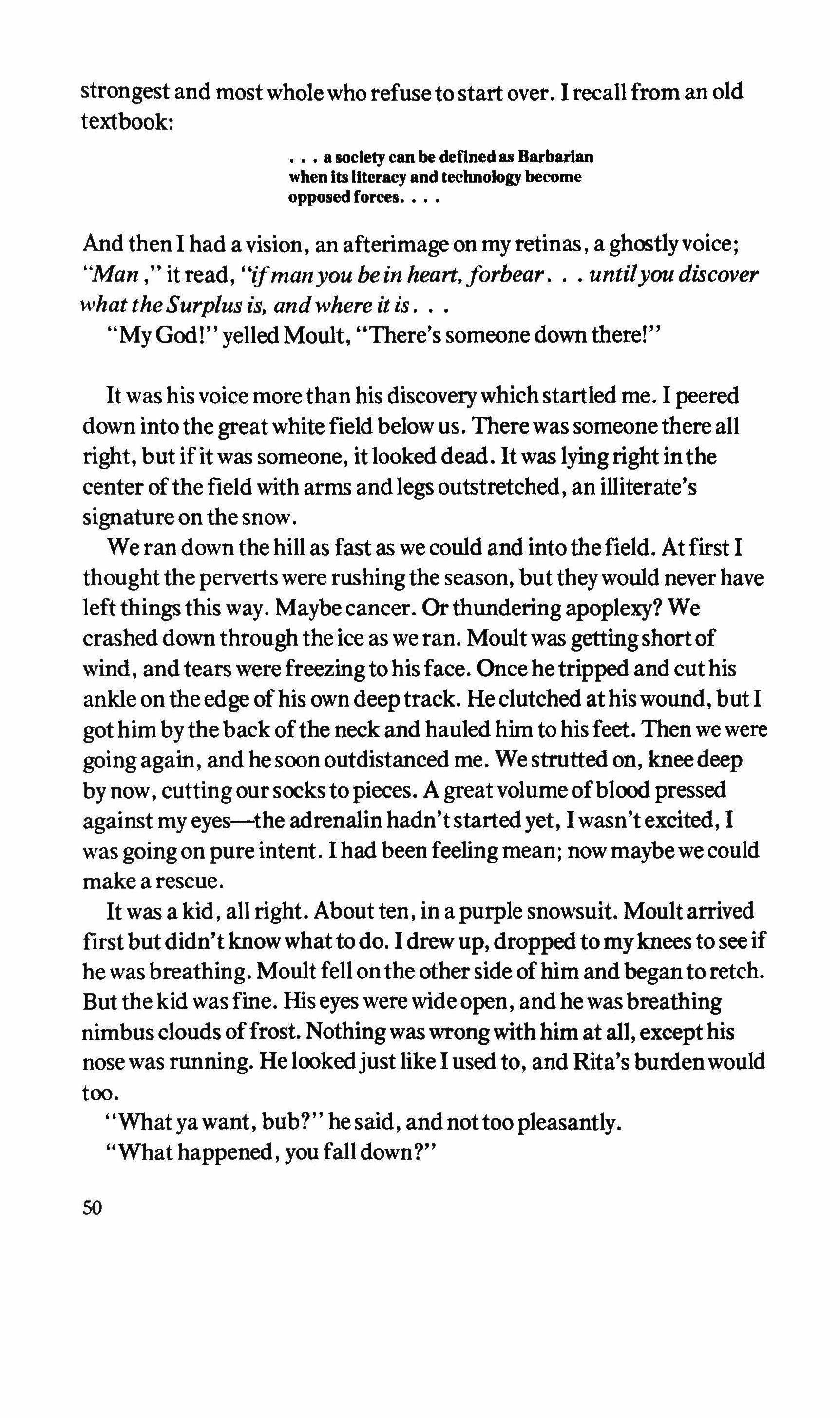
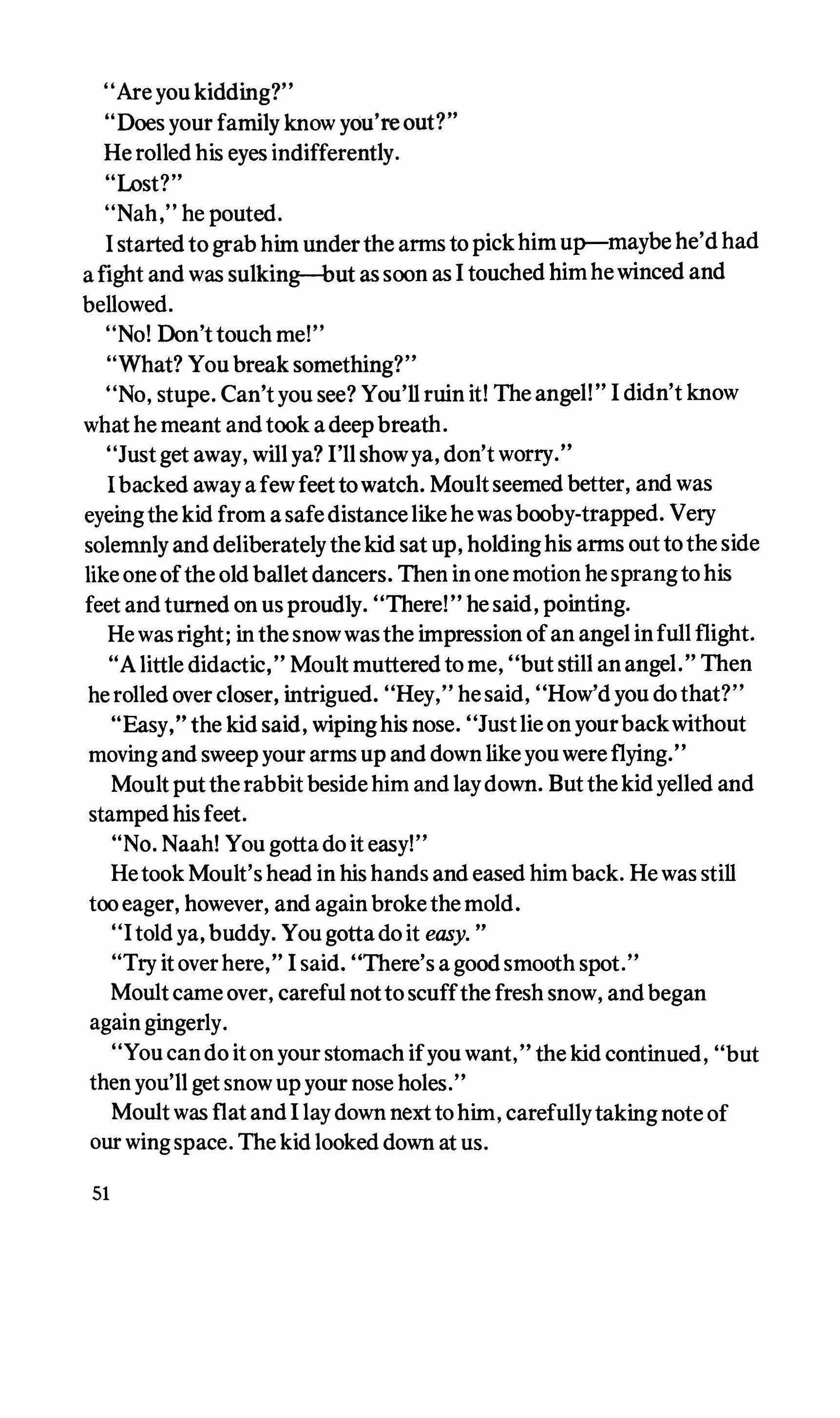
Are you kidding?"
"Does your family know you'reout?"
He rolled his eyes indifferently.
"Lost?"
"Nah," he pouted.
I started to grab him underthe arms to pickhimup-maybe he'd had a fight and was sulking--but as soon as I touched him hewinced and bellowed.
"No! Don't touch me!"
"What? You break something?"
"No, stupe. Can't you see? You'll ruin it! The angel!" I didn't know what he meant and took a deep breath.
"Justget away, will ya? I'llshowya, don't worry."
I backed away a fewfeet towatch. Moultseemed better, and was eyeingthe kid from a safedistance like he was booby-trapped. Very solemnly and deliberatelythe kid sat up, holdinghis arms out to the side like one ofthe old ballet dancers. Then in one motion he sprangto his feet and turned on us proudly. "There!" he said, pointing.
He was right; in the snow was the impression of an angel infull flight.
"A little didactic," Moult muttered to me, "but still an angel." Then he rolled over closer, intrigued. "Hey," hesaid, "How'd you do that?"
"Easy," the kid said, wipinghis nose. "Justlie on yourbackwithout moving and sweepyour arms up and down like you were flying."
Moult puttherabbit beside him and laydown. Butthekidyelled and stamped hisfeet.
"No. Naah! You gottado it easy!"
Hetook Moult's head in his hands and eased him back. He was still too eager, however, and again broke themold.
"Itoldya,buddy. You gottado it easy."
"Try it over here," Isaid. "There's a goodsmooth spot."
Moult came over, careful notto scuffthe fresh snow, and began againgingerly.
" You can do it on your stomach ifyou want," the kid continued, "but then you'll get snow up your nose holes."
Moult was flat and I lay down next to him, carefullytaking note of our wing space. The kid looked down at us.
51
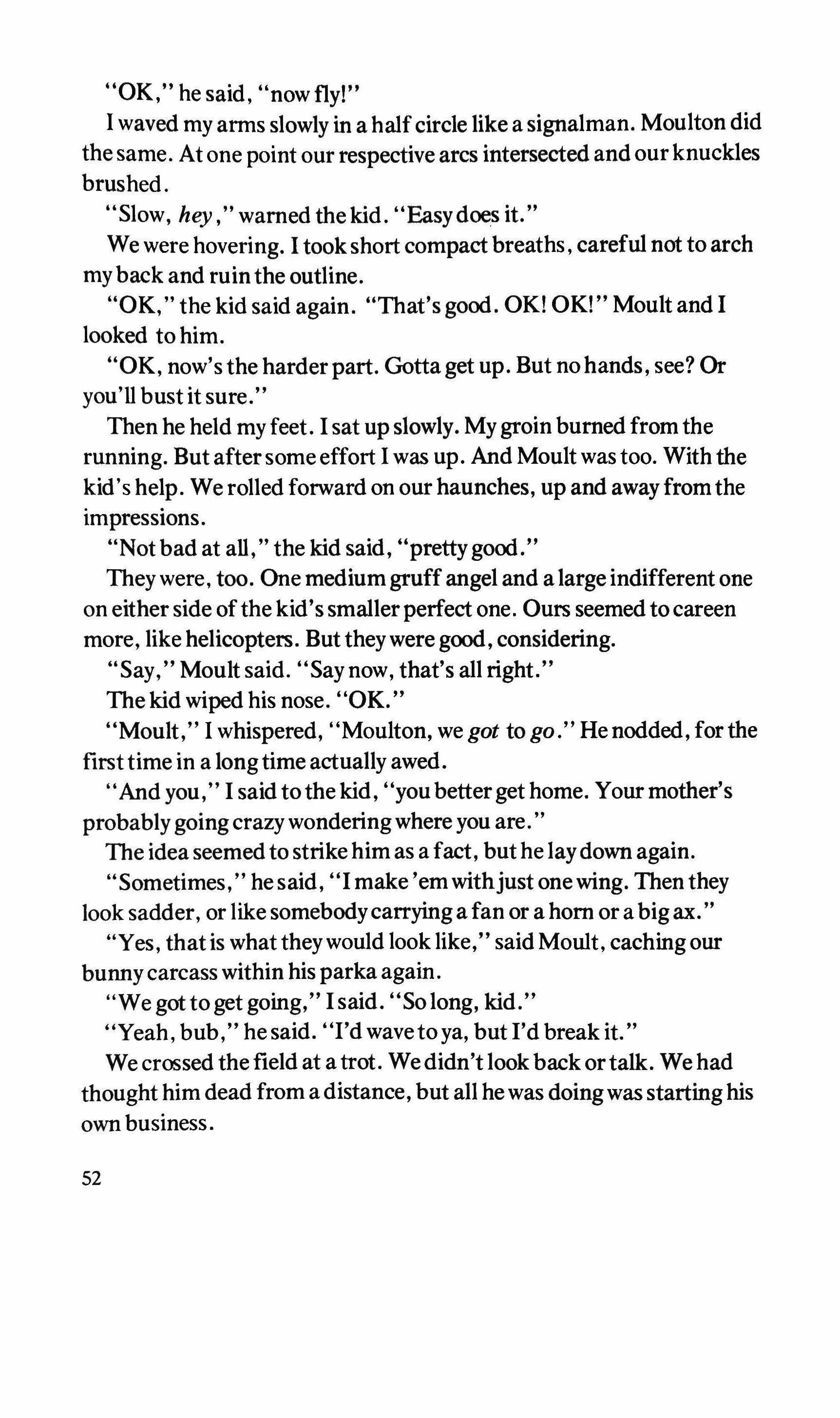
"OK," he said, "now fly!"
I waved my arms slowly in a halfcircle like a signalman. Moulton did the same. At one point our respective arcs intersected and our knuckles brushed.
"Slow, hey," warned the kid. "Easydoes it.
We were hovering. I took short compactbreaths, careful not to arch myback and ruin the outline.
"OK," the kid said again. "That's good. OK! OK!" Moult and I looked to him.
"OK, now's the harder part. Gotta get up. But no hands, see? Or you'll bust it sure."
Then he held my feet. I sat up slowly. Mygroin burned from the running. But after some effort I was up. And Moult was too. With the kid's help. We rolled forward on our haunches, up and away from the impressions.
"Not bad at all," the kid said, "prettygood."
They were, too. One medium gruffangel and a large indifferent one on either side ofthe kid's smallerperfect one. Ours seemed to careen more, like helicopters. But they were good, considering.
"Say," Moult said. "Say now, that's all right."
The kid wiped his nose. "OK."
"Moult," I whispered, "Moulton, we got to go." He nodded, for the firsttime in a longtime actually awed.
And you," I said to the kid, "you betterget home. Your mother's probablygoing crazywonderingwhere you are. "
The idea seemed to strike him as a fact, but he laydown again.
"Sometimes," he said, "I make 'emwithjust one wing. Then they look sadder, or like somebodycarrying a fan or a hom or a bigax."
"Yes, thatis what they would look like," said Moult, caching our bunny carcass within his parkaagain.
"We got to get going," I said. "So long, kid."
"Yeah, bub," he said. "I'd wavetoya, butI'd break it."
We crossed thefield at a trot. We didn't look back or talk. We had thought him dead from a distance, but all he was doing was startinghis own business.
52

The snow was heavier now, spoolingwebs in thecrotches oftrees, ringingtheblackened, burned-out stumps. Atthe Popular Forest boundary, CowboyBear sprangup, thanking us for once againbeing considerate. Sincethe morning, somebodyhad drawn a large tumor on the lap ofhis redjeans. Atthehighway, two plainclothesmen in a pastel ranch-wagon were lookingbored, and we gavethem a wideberth.
Then, as we as we crossed the last ofthebrush, the lawns opened up, the Christmas lights regilded the road, and over the PAwarningsystem they were still playingtheold incomprehensiblecarols.
Two, two, the mywhiteboys Dressed aU in green 0
One is one and all alone And evennore shall be so.
Ah, dinner, my eyes read, dinnertime.
It was well pastcurfew, so I stepped up the pace, and quickly outdistanced Moult. Throughthe kitchen window I could see Mom choppingsomething up. She looked pissed.
Maybeshehadbeen arguing. But inthe blue capsule oflightshe looked like a veteran navigatorfiguring a mission that was by now second nature, though still potentiallydeath dealing. The nature of second nature, denatured.
I went inbythebackdoor andtook offmy boots in the hall.
"So," Mom said without looking up, "the hunter is finally home."
"And," I said in my most officiousvoice, "we gotta rabbit!" As I held it up forher, she put up her hands and screamed.
"Whereverdid you getthat?" shemoaned.
"Monks."
"What?"
"The guys at Precious Blood."
"Jesus Christ! Fred!"
"What's going on up there?" myfather yelled up fromthebasement.
"Your son justbrought a dead rabbit intothe house
"Well, getit outside Athoughtful pausefrom thecellar ."and be sure the garbage lid's on tight. We don't want anybodygetting tularemia.'
S3
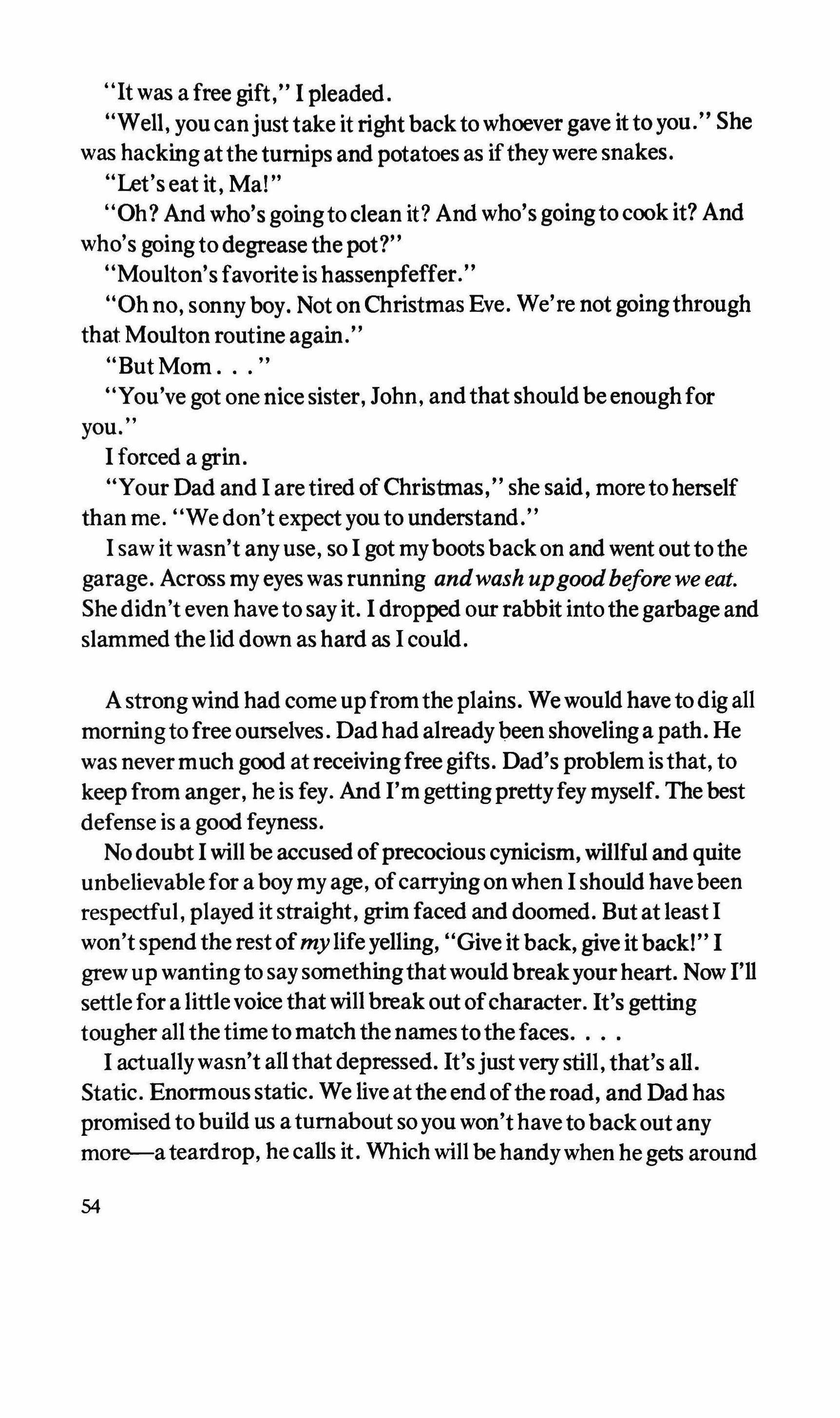
"It was a free gift," I pleaded.
"Well, you can just take it right back to whoever gave it to you." She was hacking atthe turnips and potatoes as ifthey were snakes.
"Let's eat it, Mal"
"Oh? And who's goingto dean it? And who's goingto cook it? And who's going to degrease the pot?"
"Moulton's favorite ishassenpfeffer."
"Oh no, sonny boy. Not on Christmas Eve. We're not goingthrough that Moulton routine again."
"But Mom
You've got one nice sister, John, andthat should beenoughfor you."
I forced a grin.
"Your Dad and I are tired ofChristmas," she said, more to herself than me. "We don't expect you to understand."
I saw it wasn't any use, so I got myboots back on and went outto the garage. Across my eyes was running andwash upgoodbefore we eat. She didn't even have to sayit. I dropped our rabbit intothegarbage and slammed thelid down as hard as I could.
Astrongwind had come up fromthe plains. Wewould have to dig all morning to free ourselves. Dad had already been shoveling a path. He was never much good at receivingfree gifts. Dad's problem isthat, to keep from anger, he is fey. And I'm gettingprettyfeymyself. The best defense is a good feyness.
Nodoubt I will be accused ofprecociouscynicism, willful and quite unbelievable for a boy my age, ofcarrying on when I should have been respectful, played it straight, grim faced and doomed. But at least I won't spend the rest ofmy life yelling, "Give it back, give it back!" I grew up wanting to say somethingthatwould breakyour heart. Now I'll settle for a littlevoice that will break out ofcharacter. It's getting tougher all the time to match the names tothefaces.
I actuallywasn't all that depressed. It'sjust verystill, that's all. Static. Enormous static. We live at the end ofthe road, and Dad has promised to build us a turnabout so youwon'thave tobackout any mor�a teardrop, he calls it. Which will be handywhen he gets around
54
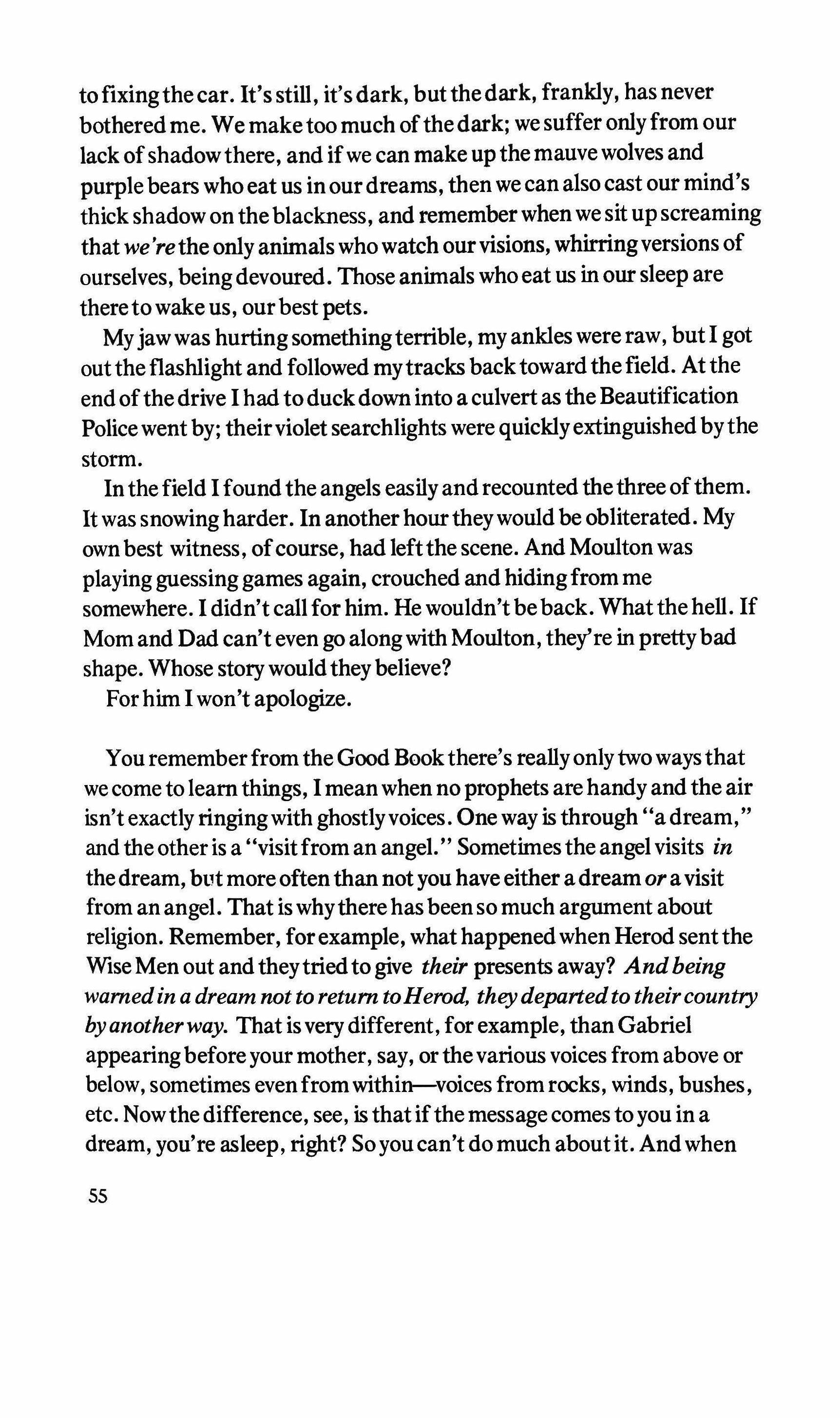
to fixingthe car. It's still, it'sdark, butthedark, frankly, has never bothered me. We make too much ofthedark; we suffer onlyfrom our lack ofshadowthere, and if we can make up the mauve wolves and purple bears who eat us in our dreams, then we can also cast our mind's thick shadow on theblackness, and rememberwhen we situpscreaming that we'rethe only animals whowatch our visions,whirringversions of ourselves, beingdevoured. Those animals who eat us in our sleep are there to wake us, our best pets.
Myjaw was hurtingsomethingterrible, my ankles were raw, but I got out the flashlight and followed mytracks backtoward thefield. At the endofthedrive I had to duckdown into a culvert as the Beautification Police went by; theirviolet searchlights were quicklyextinguishedbythe storm.
In thefield I found the angelseasilyand recounted thethreeofthem. It was snowingharder. In anotherhourtheywould be obliterated. My own best witness, ofcourse, had leftthe scene. And Moulton was playingguessing games again, crouched and hidingfrom me somewhere. I didn't call for him. He wouldn't beback. What the hell. If Mom and Dad can't even go alongwith Moulton, they're in prettybad shape. Whose storywouldthey believe?
Forhim I won't apologize.
You rememberfrom the Good Bookthere's reallyonly two waysthat we come to learn things, I mean when no prophets are handy and the air isn'texactlyringingwith ghostlyvoices. One way is through "adream," and the other is a "visit from an angel." Sometimes the angel visits in thedream, but more often than not you have either a dream or a visit from an angel. That iswhytherehasbeen so much argument about religion. Remember, forexample, what happenedwhen Herod sentthe WiseMen out andtheytried to give their presents away? Andbeing warnedin a dream not to return toHerod, theydeparted to theircountry byanotherway. That isvery different, for example, than Gabriel appearingbefore your mother, say, or thevarious voices from above or below, sometimes even from within--voices from rocks, winds, bushes, etc. Nowthe difference, see, is that ifthemessage comes toyou in a dream, you're asleep, right? So you can't do much about it. Andwhen
ss
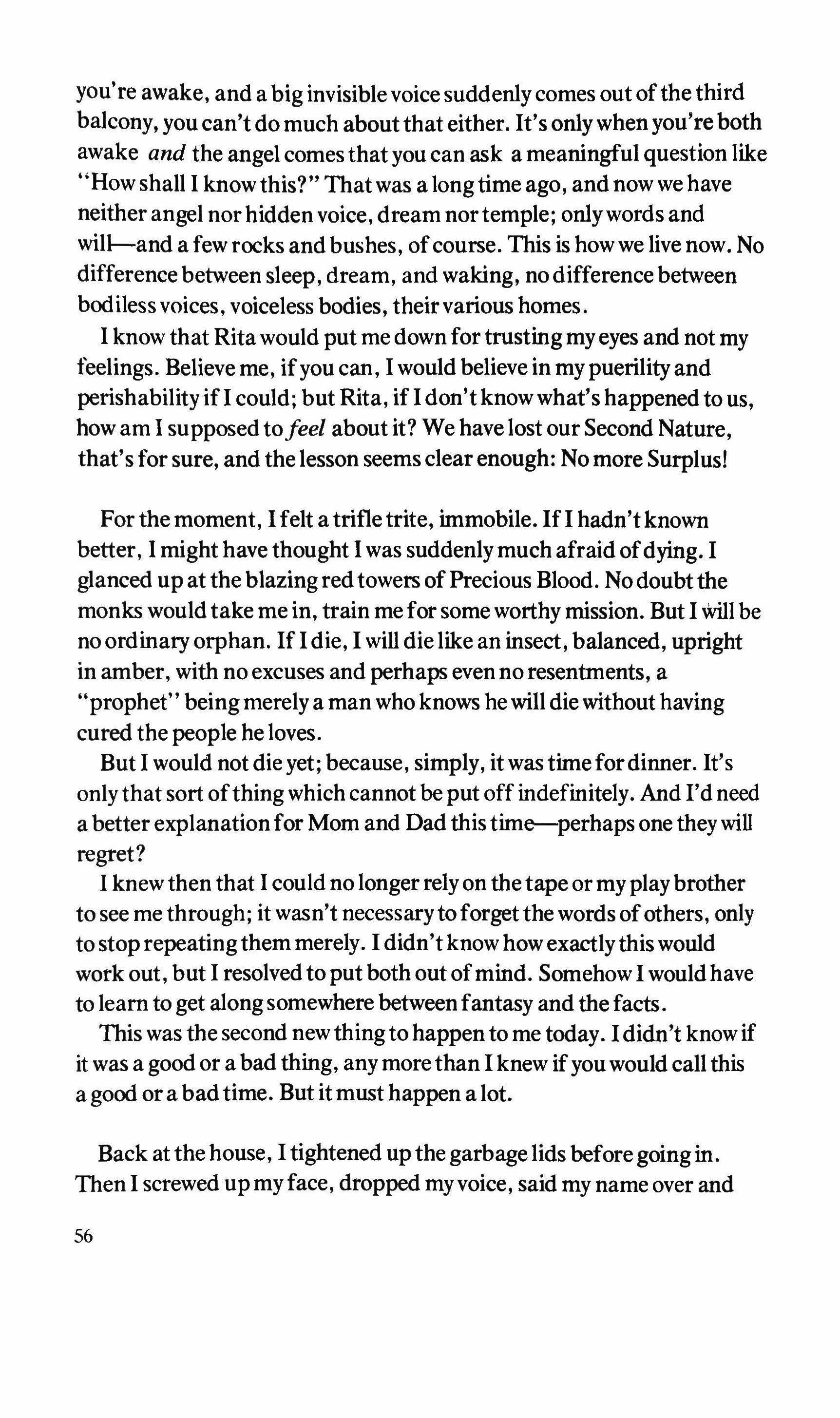
you're awake, and a big invisible voice suddenly comes out ofthe third balcony, you can't do much aboutthat either. It's onlywhen you'reboth awake and the angel comes that you can ask a meaningful question like "Howshall I knowthis?" That was a longtime ago, and now we have neither angel nor hidden voice, dream nor temple; onlywords and will--and a few rocks and bushes, of course. This is how we live now. No difference between sleep, dream, and waking, no difference between bodilessvoices, voiceless bodies, theirvarious homes.
I know that Ritawould put me down for trusting my eyes and not my feelings. Believe me, ifyou can, I would believe in my puerilityand perishability if I could; but Rita, if I don'tknowwhat's happened to us, how am I supposed tofeel about it? We have lost our Second Nature, that's for sure, and the lesson seems clearenough: No more Surplus!
For the moment, I felt a trifletrite, immobile. If I hadn'tknown better, I might have thought I was suddenlymuch afraid ofdying. I glanced up at the blazing redtowers of Precious Blood. Nodoubt the monks wouldtake me in, train me for some worthy mission. But I Will be no ordinaryorphan. If I die, I will die like an insect, balanced, upright in amber, with no excuses and perhaps even no resentments, a "prophet" beingmerely a man who knows he will diewithout having cured the people he loves.
But I would not die yet; because, simply, it was timefordinner. It's onlythat sort ofthing which cannot be put off indefinitely. And I'd need a better explanationfor Mom and Dad this time-perhaps one theywill regret?
I knewthen that I could no longerrely on thetape or my playbrother to see me through; it wasn't necessaryto forget the words ofothers, only to stoprepeatingthem merely. I didn't know how exactlythis would work out, but I resolved to put both out ofmind. Somehow I would have to learn to get alongsomewhere betweenfantasy and the facts.
This was the second new thingto happen to me today. I didn't know if it was a good or a bad thing, any more than I knew ifyou would callthis a good or a bad time. But it must happen a lot.
Back at the house, I tightened up the garbagelids before goingin. Then I screwed up my face, dropped myvoice, said my name over and S6
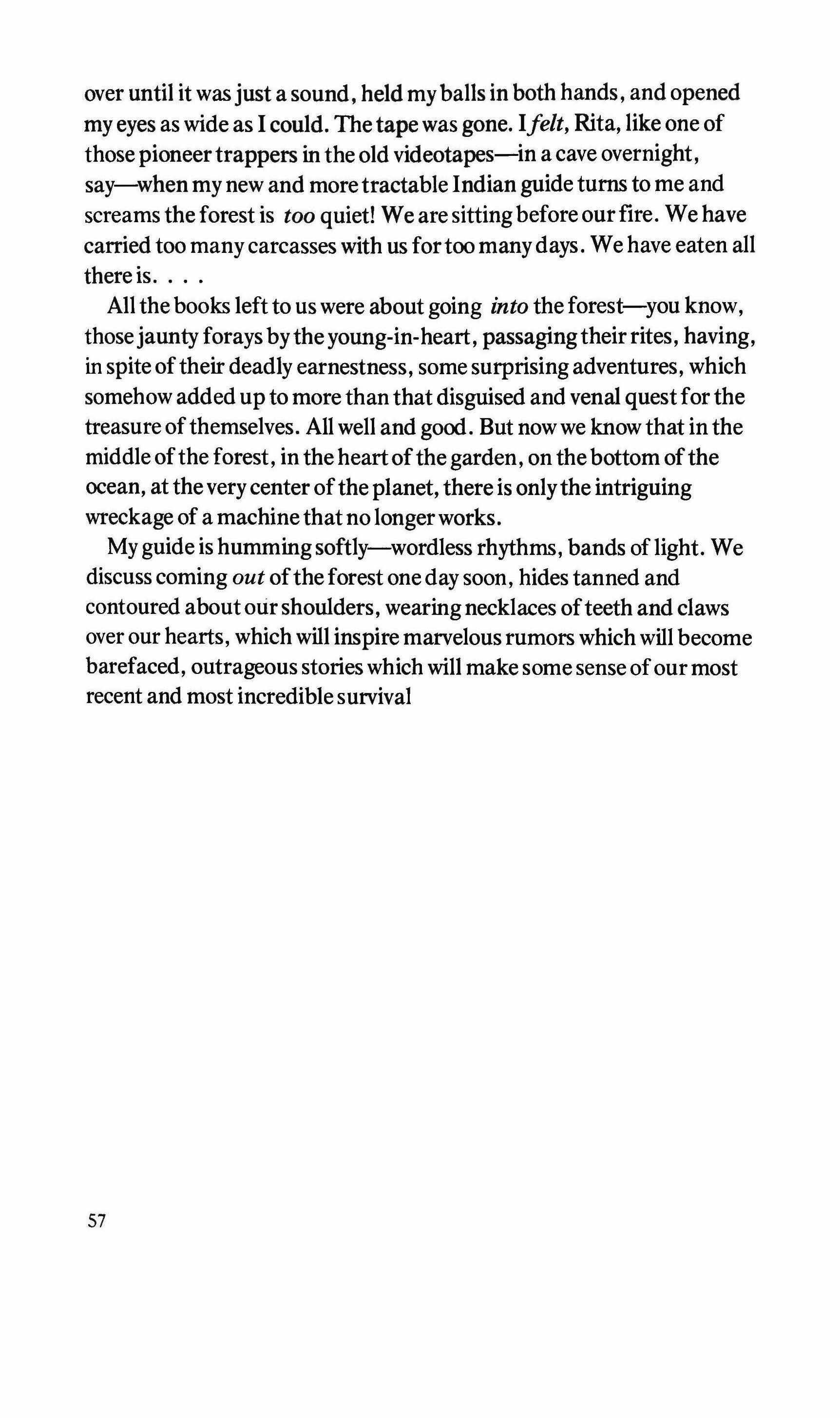
over until it was just a sound, held myballs in both hands, and opened my eyes as wide as I could. Thetape was gone. Ifelt, Rita, like one of those pioneertrappers in the old videotapes-in a cave overnight, say-when my new and more tractable Indian guide turns to me and screams theforest is too quiet! We are sittingbefore our fire. We have carried too many carcasses with us fortoo many days. We have eaten all there is
All thebooks left to us were about going into the forest-you know, thosejauntyforaysbytheyoung-in-heart, passagingtheirrites, having, in spite oftheir deadly earnestness, some surprisingadventures, which somehow added up to more than that disguised and venal questfor the treasure ofthemselves. All well and good. But now we know that inthe middle ofthe forest, in theheartofthe garden, on thebottom ofthe ocean, at thevery center ofthe planet, there is onlythe intriguing wreckage of a machine that no longerworks.
Myguide is hummingsoftly-wordlessrhythms, bands oflight. We discuss coming out oftheforest one day soon, hides tanned and contoured about our shoulders, wearingnecklaces ofteeth and claws over our hearts, which will inspire marvelous rumors which will become barefaced, outrageous stories which will make some sense of our most recent and most incredible survival
57
Desire
William S. Wilson

La grandedouleurde l'homme, qui commence des l'enfance et sepoursuitjusque a la mort, c 'est que regarderet mangersont deuxoperations differentes. La beatitude bernelle est un etat ou regarderc'est manger, -Simone Weil, "Contradiction," La Pesanteur et la Grace
Turning and climbing, the double helix evolved to an operationwhich had always existed as a possibilityfor mankind, the eatingoflight. The appetite for light was ancient. Lighthad been eaten metaphoricallyin ritual transubstantiations. Poets had declared that all that is islight, thatthis peach, and even this persimmon, is light. Butthepeachwhich mediated between light and the appetite for light interfered with the taste oflight, and obscured the appetite it aroused. The appetitefor actual light was at first appeasedbysymbols. But the simpleinstruction, promulgatedduringthe First Simplification, to taste the source ofthefood inthefood, led to the abilityto eat light. Out ofthe attempt totaste sources came the abilityto detect unpleasant chemicals. These had to be omitted. Eaters learned to taste the animal in the meat, and the animal's food and drink, and totaste the waters and
S8 TriQuarlerly

sugars in the melon. Thediscriminations grewfiner-children learned to eat the qualities ofthe pear as they ate its flesh, and totaste its slow ripeningin autumn sunlight. In the ripeness ofthe orange theylearned to recapitulatethehistoryofthe orange. Twothingshappened. First, thechildren were quick to surpassthe adults, and withtheir unspoiled tastes, and theirdesire forlight,theylearned theflavor ofthe soil in whichtheblueberrygrew, and the salty sweetness ofthe plankton inthe fish, butthey alsobecame attentive to the taste ofthesunlight. Soon there were attempts to keepfruitofcertain vintages. The pears of a superblycomfortable autumn in Anjou, or the oranges of Sevillefrom a year so seasonlessthattheirmodulations ofbouquet were unsurpassed fordecades. Fruit was eaten as a retrospectiveoflight. Second, the changeindiet fromtastingfood as sunlightled to beingableto live on light. Children ofeach new generation grew more clearly, until children were shaped as correctly as crystals. Thelaws governingthe operations ofgrowth shonethroughtheirperfectexemplification. Life became intellectuallytransparent.
The principles ofgrowth, so obviouslysystematic, had seemed to emerge inexplicablyfrom random change. The achievements ofthe species in development were attributed to chance. Butthis explained nothing more than thatthere was to be no further attempt at explanation. Thistheory, which saw chance provokinglife into an emptyfuture, was opposedby a theorywhich posited a principlemysteriously and progressivelymanifestingitselfinthe advances ofevolution. The partisans ofchance studied randomdistributions. Thevitalists praised the lifeforce.
But after several generations had supplemented theirdietofflesh and fruitwith light, and had experienced accelerations ofevolution, the correct principlebecame self-evident: that evolution propels itselfby an inclination toward its next probable achievement.
Evolutionhad been readwiththe influence either fromthe past or from compresentrelationships, neither ofwhich accounted eitherfor thedirection ofchange or forthe stabilityoftheemergentlevel of achievement. Thetruth is thatthedetermininginfluence inevolution is from the possiblefuturetowardwhichthe speciesturns, guided not by chancebut byreal futureprobabilities. The energyfor movement into thefutureis potential energy, derivingfromthepresent positionrelative S9
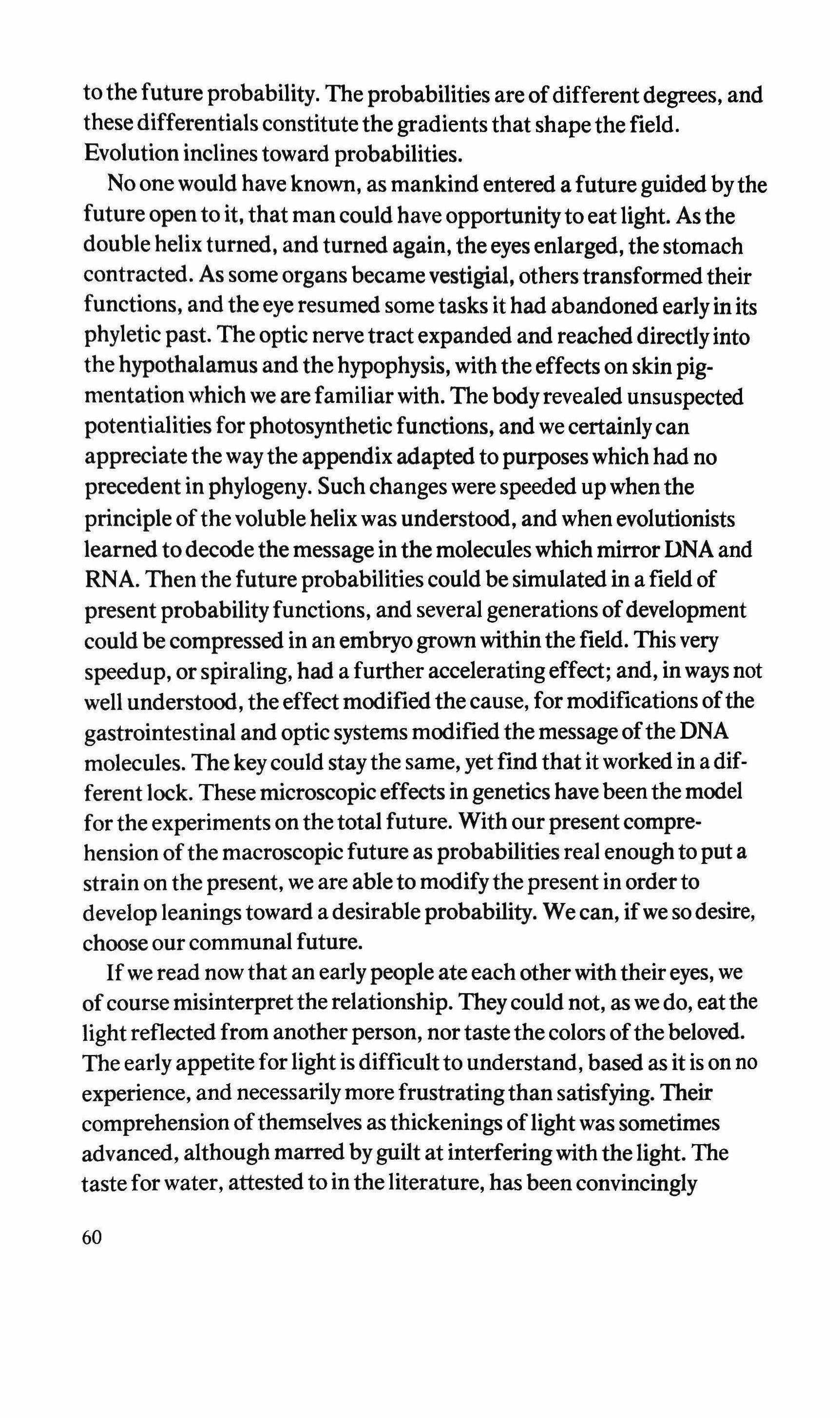
to the future probability. The probabilities are ofdifferent degrees, and these differentials constitute the gradients that shapethe field. Evolution inclines toward probabilities.
No one would have known, as mankind entered a future guidedbythe future open to it, that man could have opportunityto eat light. As the double helix turned, and turned again, the eyes enlarged, the stomach contracted. As some organs becamevestigial, others transformed their functions, and the eye resumed some tasks it had abandoned earlyinits phyletic past. The optic nerve tract expanded and reached directlyinto the hypothalamus and the hypophysis, with the effects on skin pigmentation which we are familiarwith. The bodyrevealed unsuspected potentialities for photosyntheticfunctions, and we certainly can appreciate the waythe appendixadapted to purposes which had no precedent in phylogeny. Such changes were speeded up whenthe principle ofthe voluble helix was understood, and when evolutionists learned to decode the message inthe molecules which mirror DNA and RNA. Then the future probabilities could be simulated in a field of presentprobabilityfunctions, and several generations ofdevelopment could be compressed in an embryogrown within the field. This very speedup, or spiraling, had a further acceleratingeffect; and, in ways not well understood, the effectmodified the cause, for modifications ofthe gastrointestinal and optic systems modified the message ofthe DNA molecules. The keycould staythe same, yet find that it worked in a different lock. These microscopic effects in genetics have been the model forthe experiments on thetotal future. With our presentcomprehension ofthe macroscopic future as probabilities real enough to put a strain on the present, we are able to modifythe present in orderto developleanings toward a desirable probability. We can, if we so desire, choose our communal future.
If we read now that an earlypeople ate each otherwiththeir eyes, we of course misinterpretthe relationship. Theycould not, as we do, eatthe light reflected from another person, nor taste the colors ofthe beloved. The earlyappetite for lightis difficult to understand, based as it is on no experience, and necessarily more frustratingthan satisfying. Their comprehension ofthemselves as thickenings oflight was sometimes advanced, although marred byguilt at interferingwith the light. The taste for water, attested to in the literature, has been convincingly
60
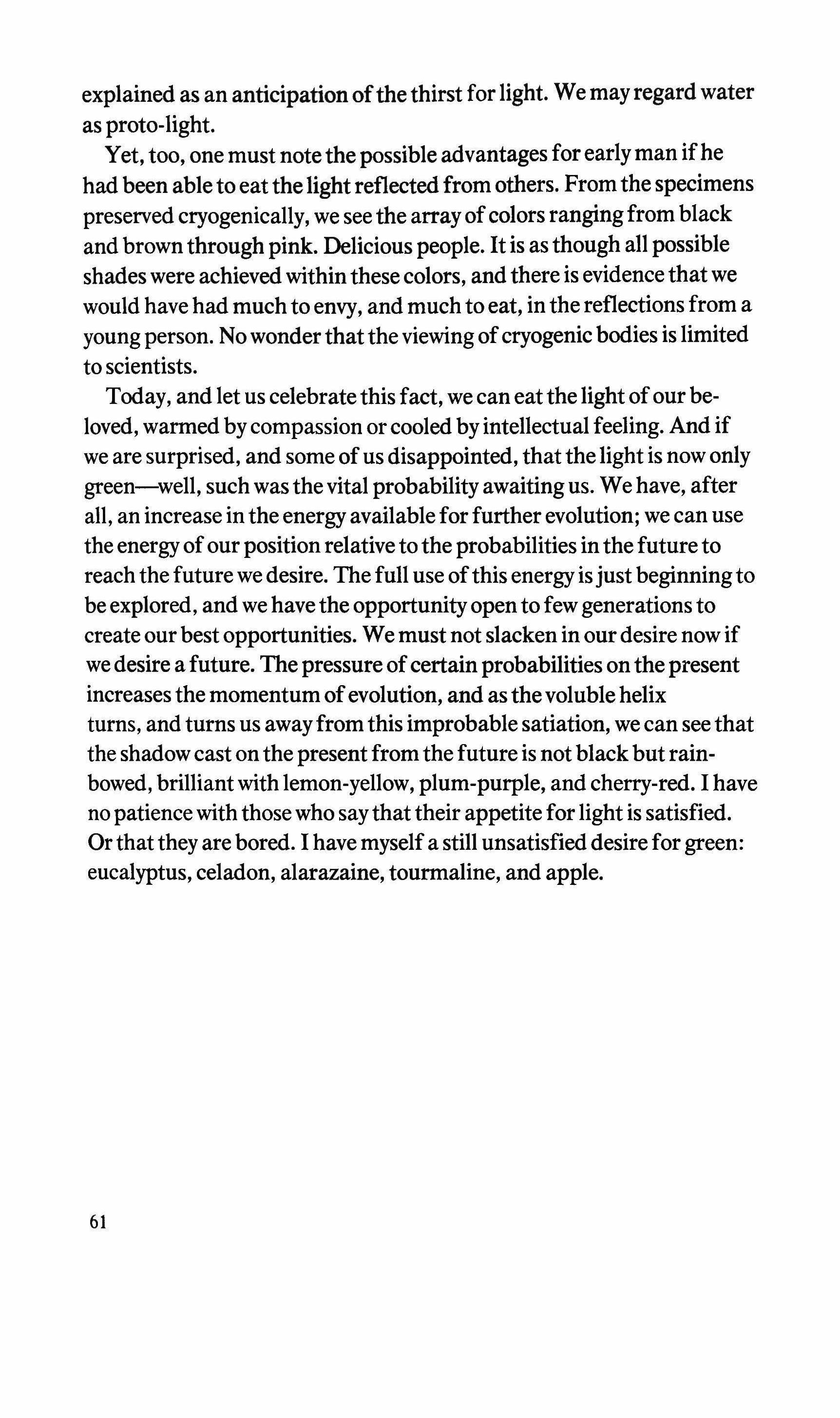
explained as an anticipation ofthethirst for light. We may regard water as proto-light.
Yet, too, one must note the possibleadvantages forearly man ifhe had been able to eat thelightreflected from others. From the specimens preservedcryogenically, we see the array ofcolors rangingfrom black and brown throughpink. Delicious people. It is as though all possible shades were achieved withinthesecolors, and there is evidence that we would have had much to envy, and much to eat, in the reflections from a young person. No wonderthatthe viewing ofcryogenic bodies is limited to scientists.
Today, and let us celebratethis fact, we can eat the light of our beloved, warmed bycompassion or cooled byintellectual feeling. And if we are surprised, and some of us disappointed, that thelight is now only green-well, such was thevital probabilityawaiting us. We have, after all, an increase in the energy available forfurther evolution; we can use theenergy of our position relative to the probabilities in thefuture to reach the future we desire. The full use ofthis energyisjustbeginningto be explored, and we have the opportunityopen to fewgenerations to create our best opportunities. We must not slacken in our desire now if we desire a future. The pressure ofcertain probabilities on the present increases the momentum ofevolution, and as thevolublehelix turns, and turns us awayfrom this improbablesatiation, we can see that the shadow cast on the present fromthe future is not black but rainbowed, brilliantwith lemon-yellow, plum-purple, and cherry-red. I have no patiencewith thosewho saythat their appetite for light is satisfied. Orthat they are bored. I have myself a still unsatisfied desire for green: eucalyptus, celadon, alarazaine, tourmaline, and apple.
61
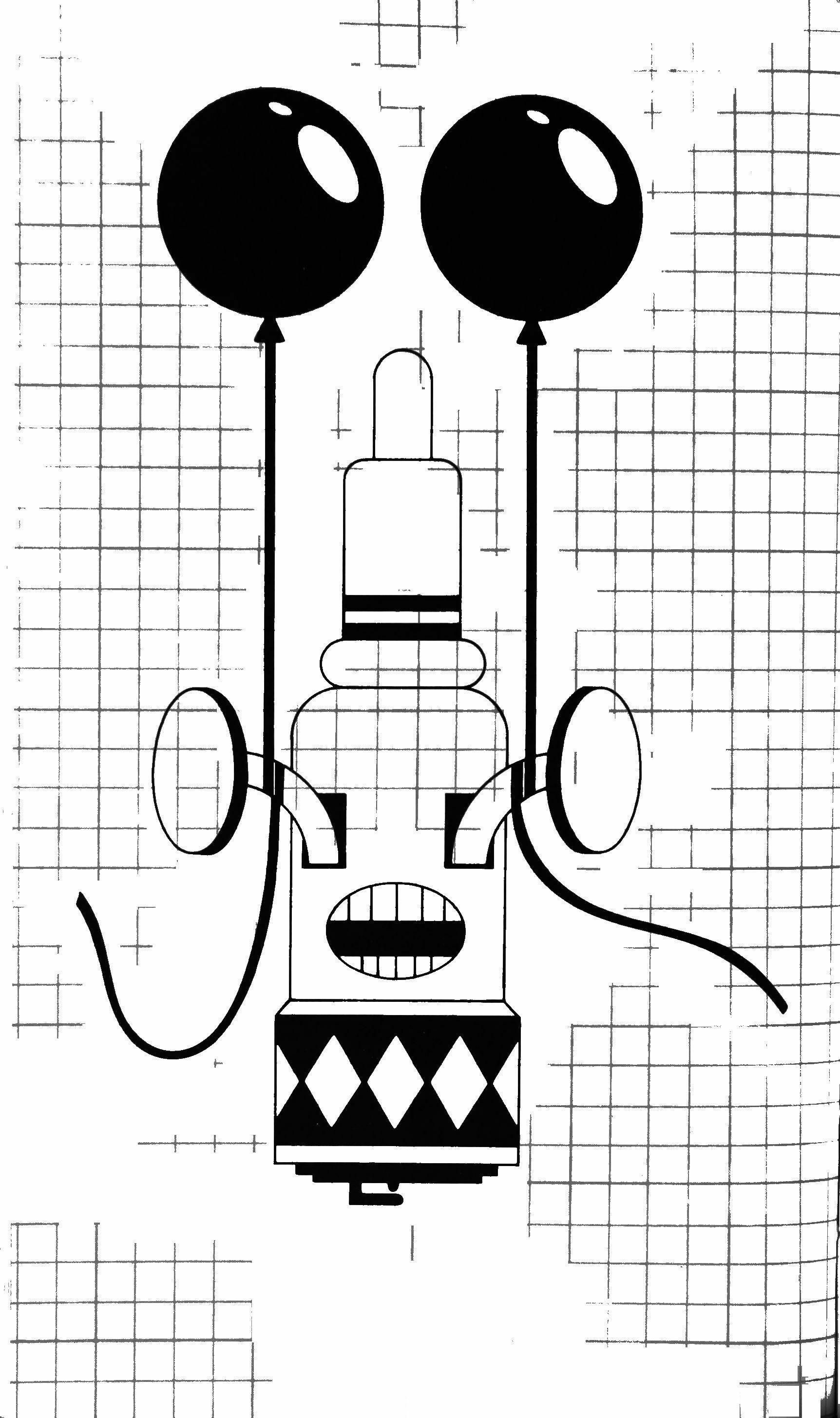
+ +-- r-,-+--+--l..1 i- ---r--r-+-+--4--�- -·I-t---+-�-..1.· --r-"-+--+_l...I
Intersection
Ian McEwan
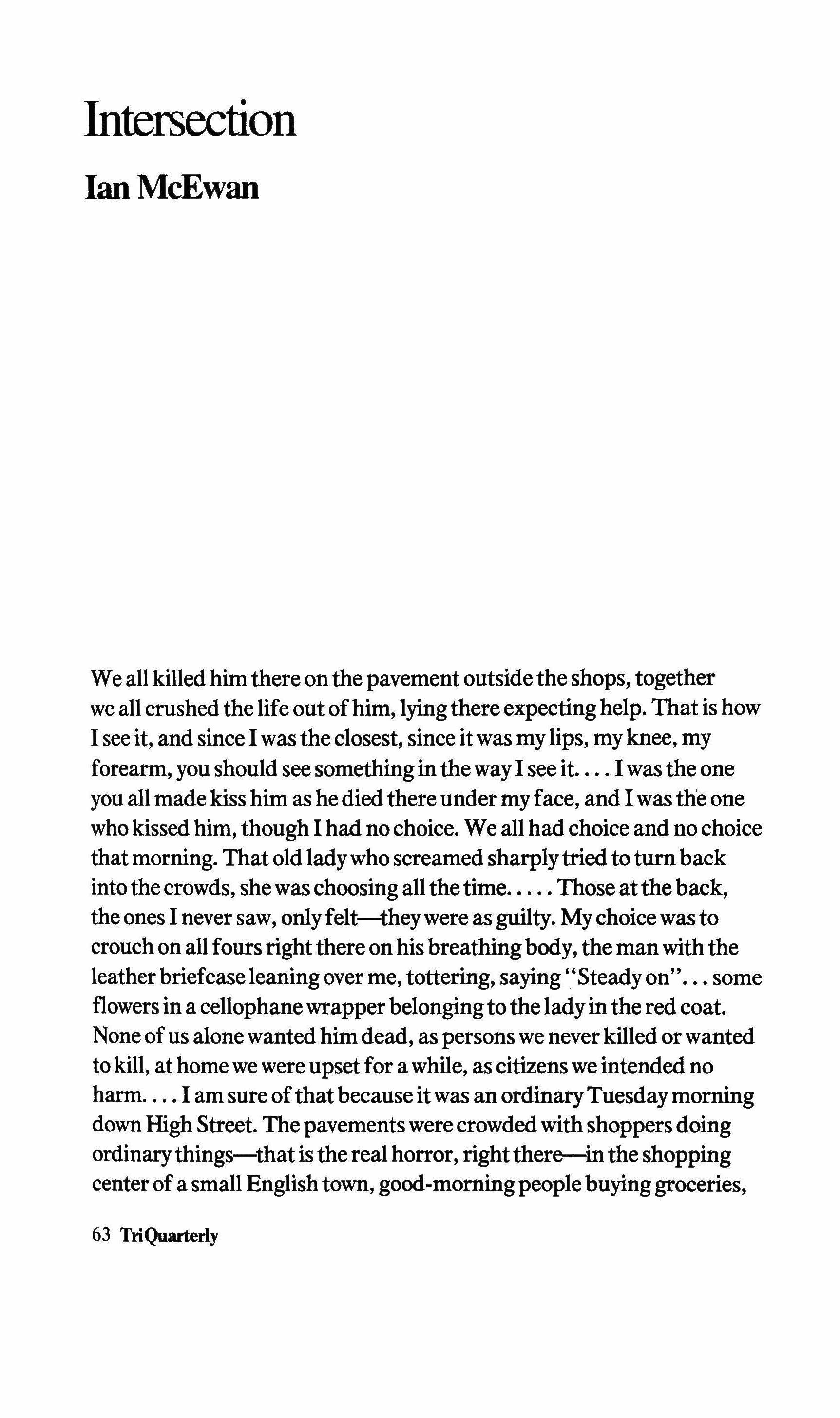
We all killed him there on the pavementoutsidethe shops,together we all crushed the life out ofhim, lyingthereexpectinghelp. That is how I see it, and since I was theclosest, since it was mylips, my knee, my forearm, you should see somethingintheway I see it. I was the one you all made kiss him as hedied thereundermyface, and I was the one who kissed him, though I had no choice. We all had choice and no choice thatmorning. That old ladywho screamed sharplytried toturn back intothecrowds, she was choosingallthetime Those attheback, the ones I never saw, onlyfelt-theywere as guilty. Mychoice was to crouch on all foursrightthere on hisbreathingbody, the man withthe leatherbriefcaseleaning over me, tottering, saying" Steady on" some flowers in a cellophane wrapper belongingto theladyinthe red coat. None of us alonewanted himdead, as persons we never killed or wanted to kill, at home we were upset for a while, as citizens we intended no harm I am sure ofthatbecause it was an ordinaryTuesdaymorning down High Street. The pavements were crowded with shoppersdoing ordinarythings-that is thereal horror, rightthere-inthe shopping center of a small Englishtown, good-morningpeoplebuyinggroceries,
63 TriQuarterly
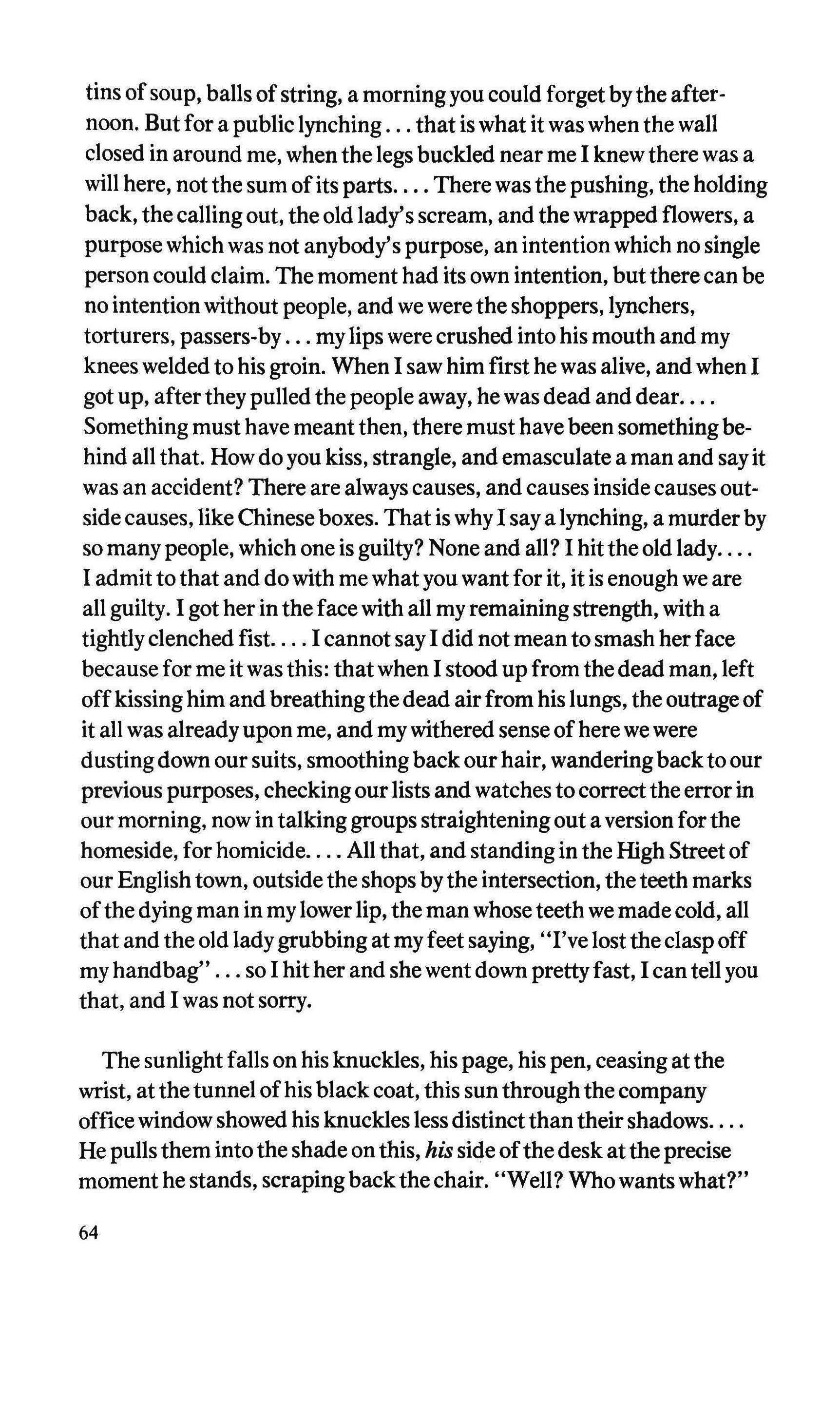
tins ofsoup, balls of string, a morning you could forgetbythe afternoon. But for a publiclynching that is what it was when the wall closed in around me, whenthe legs buckled near me I knewthere was a will here, not the sum ofits parts There was the pushing, the holding back, the callingout, the old lady's scream, and thewrapped flowers, a purpose which was not anybody's purpose, an intention which no single person could claim. The moment had its own intention, butthere can be no intention without people, and we were the shoppers, lynchers, torturers, passers-by my lips were crushed into his mouth and my knees welded to his groin. When I saw him first he was alive, and when I got up, aftertheypulled the people away, he was dead and dear Something must have meant then, there must have been somethingbehind all that. Howdo you kiss, strangle, and emasculate a man and sayit was an accident? There are always causes, and causes inside causes outside causes, like Chineseboxes. That is why I say a lynching, a murder by so many people, which one is guilty? None and all? I hitthe old lady I admit to that and dowith me what you want for it, it is enough we are all guilty. I got her in thefacewith all my remainingstrength, with a tightly clenched fist. I cannot say I did not mean to smash herface because for me it was this: that when I stood up from the dead man, left offkissinghim and breathingthedead air from his lungs, the outrageof it all was already upon me, and my withered sense ofhere we were dustingdown our suits, smoothingback our hair, wanderingbackto our previous purposes, checking our lists and watches to correct the error in our morning, now in talkinggroups straighteningout a version forthe homeside, for homicide All that, and standing in the High Street of our English town, outsidethe shopsbythe intersection, theteeth marks ofthe dying man in my lower lip, the man whose teeth we made cold, all that and the old ladygrubbing at myfeet saying, "I've losttheclasp off my handbag" so I hither and she went down prettyfast, I can tell you that, and I was not sorry.
The sunlightfalls on his knuckles, his page, his pen, ceasing at the wrist, at thetunnel ofhis black coat, this sun through the company officewindow showed his knuckles less distinct than theirshadows He pullsthem intothe shade on this, his side ofthedesk at the precise moment he stands, scrapingbackthe chair. "Well? Who wants what?"
64
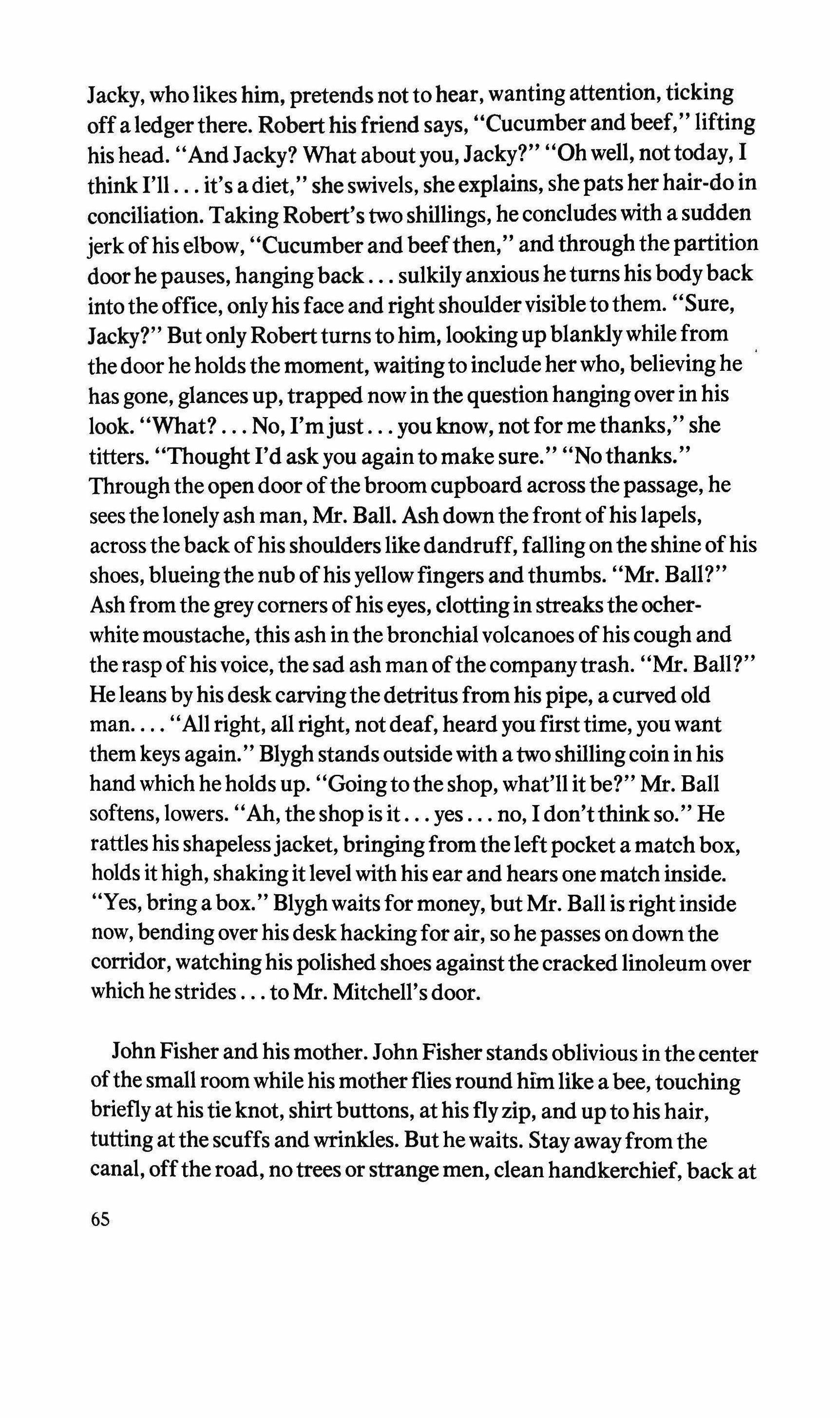
Jacky, wholikes him, pretends not to hear, wantingattention, ticking off a ledgerthere. Robert his friend says, "Cucumber and beef," lifting his head. "And Jacky? What about you, Jacky?" "Oh well, nottoday, I think I'll it's a diet," she swivels, sheexplains, she pats her hair-do in conciliation. Taking Robert's two shillings, he concludes with a sudden jerk ofhis elbow, "Cucumber and beefthen," and through the partition doorhepauses, hangingback sulkily anxious he turns his bodyback intotheoffice, onlyhis face and right shouldervisibleto them. "Sure, Jacky?" But only Robert turns to him, lookingup blanklywhile from thedoor he holds the moment, waitingto include herwho, believinghe has gone, glances up, trapped now inthe questionhanging over in his look. "What? No, I'mjust you know, not for me thanks," she titters. "Thought I'd askyou againto make sure." "Nothanks." Throughtheopendoor ofthe broom cupboard across the passage, he sees thelonely ash man, Mr. Ball. Ashdownthefront ofhis lapels, across theback ofhis shoulders like dandruff, falling on the shine ofhis shoes, blueingthe nub ofhis yellowfingers and thumbs. "Mr. Ball?" Ashfrom the grey comers ofhis eyes, clottingin streaks theocherwhitemoustache, this ash inthebronchial volcanoes ofhis cough and the rasp ofhisvoice, the sad ash man ofthe companytrash. "Mr. Ball?" He leans byhis deskcarvingthedetritus from his pipe, a curved old man "All right, all right, not deaf, heard you firsttime, you want them keys again." Blygh stands outsidewith a two shilling coin in his hand which heholds up. "Goingto the shop, what'll it be?" Mr. Ball softens, lowers. "Ah, theshop is it. yes no, I don'tthink so." He rattles his shapelessjacket, bringingfromthe leftpocket a matchbox, holds ithigh, shakingitlevel with his ear and hears one match inside. "Yes, bring a box." Blyghwaits formoney, but Mr. Ball is right inside now, bending over his deskhackingfor air, so he passes on downthe corridor, watchinghis polished shoes againstthe cracked linoleum over which he strides to Mr. Mitchell's door.
John Fisher and his mother. John Fisher stands oblivious in the center ofthe small room while his motherflies round himlike a bee, touching briefly at his tie knot, shirt buttons, at his flyzip, and up to his hair, tutting at the scuffs and wrinkles. Buthe waits. Stay awayfrom the canal, offthe road, no trees or strange men, clean handkerchief, back at 6S
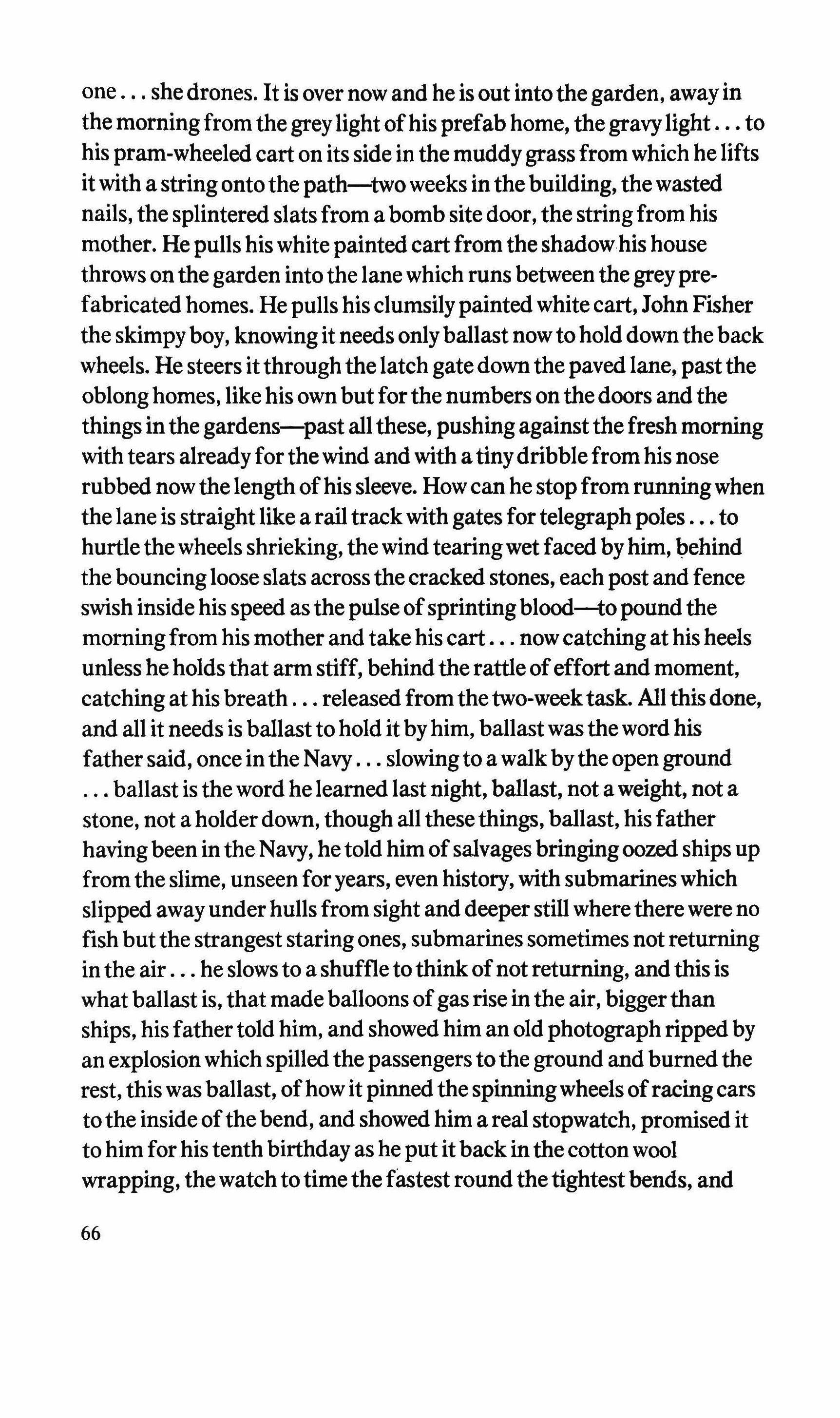
one shedrones. It is over now and he is out intothe garden, away in the morning from the greylightofhis prefab home, the gravylight to his pram-wheeled cart on its side in the muddygrass from which he lifts itwith a string onto the path-twoweeks inthe building, thewasted nails, the splintered slats from a bomb site door, the string from his mother. He pulls his white painted cart from the shadowhis house throws on the garden intothe lane which runs between thegreyprefabricated homes. He pulls his clumsilypainted white cart, John Fisher the skimpyboy, knowingitneeds onlyballast now to hold down theback wheels. He steers itthrough the latch gatedown the paved lane, pastthe oblonghomes, like his own butforthe numbers on the doors and the things inthe gardens-past allthese, pushingagainstthe fresh morning with tears alreadyforthewind and with a tinydribble from his nose rubbed now the length ofhis sleeve. How can he stop fromrunningwhen thelane is straight like a rail trackwith gates fortelegraphpoles .•. to hurtlethewheels shrieking, thewind tearingwet faced byhim, behind the bouncingloose slats across thecracked stones, each post and fence swish inside his speed as the pulse ofsprintingblood-topound the morningfrom his mother and take his cart now catching at his heels unless he holdsthat arm stiff, behindtherattle ofeffort and moment, catching at his breath released fromthetwo-weektask. Allthisdone, and all it needs is ballast to hold itbyhim, ballast was theword his father said, once inthe Navy slowingto a walkbythe open ground ballast is theword he learned last night, ballast, not a weight, not a stone, not a holder down, though all thesethings, ballast, his father havingbeen inthe Navy, hetold him ofsalvagesbringingoozed ships up from the slime, unseen for years, even history, with submarines which slipped away underhulls from sight and deeper still where there were no fish butthe strangeststaring ones, submarines sometimes not returning in the air he slows to a shuffle to thinkofnot returning, and this is what ballast is, that made balloons ofgas rise inthe air, biggerthan ships, his fathertold him, and showed him an old photographrippedby an explosionwhich spilledthe passengers tothe ground and burned the rest, this was ballast, ofhowit pinned the spinningwheels ofracing cars tothe inside ofthe bend, and showed him a real stopwatch, promised it to him forhis tenth birthday as he put itback inthe cotton wool wrapping, thewatch totimethefastest round thetightestbends, and
66
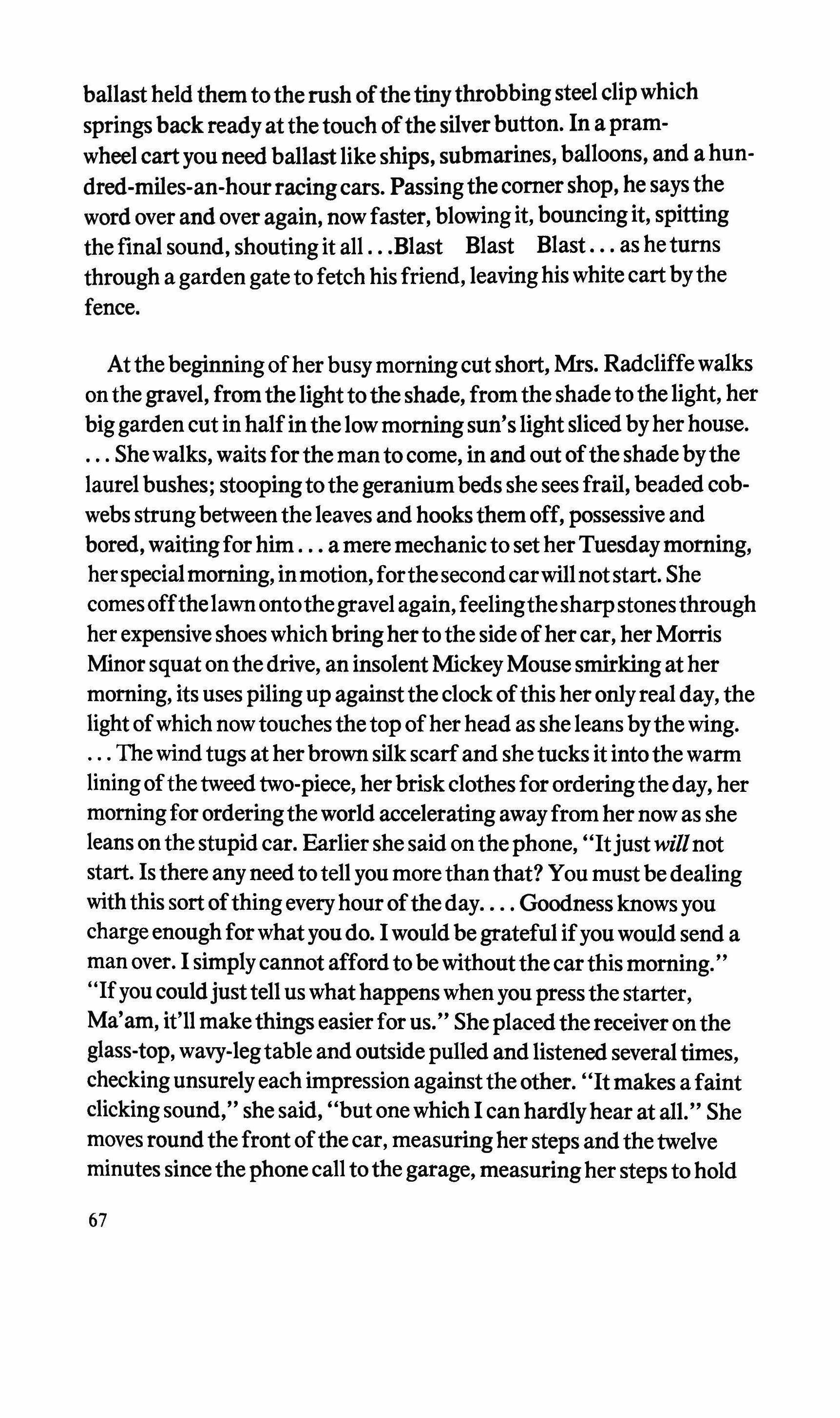
ballast held them totherush ofthetinythrobbingsteel clipwhich springs back ready at thetouch ofthe silverbutton. In a pramwheel cart you need ballast like ships, submarines, balloons, and a hundred-miles-an-hour racing cars. Passingthe comer shop, he says the word over and over again, now faster, blowingit, bouncingit, spitting thefinal sound, shoutingit all Blast Blast Blast as heturns through a gardengate to fetch hisfriend, leavinghis white cart bythe fence.
Atthebeginningofher busymorningcut short, Mrs. Radcliffewalks on thegravel, from thelight tothe shade, from the shade to thelight, her biggarden cut inhalfinthelowmorningsun'slight sliced byherhouse
Shewalks, waits forthe man to come, in and out ofthe shadebythe laurel bushes; stoopingtothe geraniumbeds she sees frail, beaded cobwebs strungbetween theleaves and hooks themoff, possessive and bored,waitingfor him a mere mechanic to set herTuesdaymorning, herspecialmorning,inmotion, forthesecond carwillnotstart. She comes offthelawnontothegravelagain,feelingthesharpstonesthrough her expensive shoes whichbringherto the side ofher car, herMorris Minor squat on thedrive, an insolent Mickey Mouse smirking at her morning, its uses pilingup againstthe clockofthis heronlyreal day, the light ofwhich now touchesthetop ofherhead as she leans bythewing
The windtugs at herbrown silk scarfand shetucks itintothe warm liningofthetweedtwo-piece, herbriskclothesfororderingtheday, her morningfor orderingtheworld accelerating awayfrom her now as she leans on the stupid car. Earlier she said on thephone, "Itjust willnot start. Is there any need totell you more thanthat? You must bedealing withthis sort ofthing everyhouroftheday Goodness knowsyou chargeenoughforwhatyoudo. I would be grateful ifyou would send a man over. I simplycannot affordto bewithoutthe car this morning." "Ifyou couldjusttell us whathappenswhenyou pressthe starter, Ma'am, it'll makethings easier for us." Sheplacedthereceiver on the glass-top,wavy-legtable and outsidepulled and listened severaltimes, checkingunsurelyeach impressionagainsttheother. "Itmakes a faint clickingsound," she said, "but one which I can hardlyhear at all." She moves roundthefrontofthe car, measuringher steps andthetwelve minutes since thephone call tothe garage, measuringher steps to hold
67

down the irritation ofbeingpinnedbythe weight ofother people's slowness and so to calm herselfshe sifts the morning'sluxuryof commitment and closed decisions, purpose and articulation. The admonition ofMr. Grise, wealthy, reputableshop owner, his standards betrayedby a singlefault, but all the same it could not be overlooked consumers must be protected and some were not so eloquent fortheir rights, so sleek Mr. Grise would bow away to concede, knowingshe ordered food forthe Woman's Guild. That the lapsed time might have cloyed the immaculate preparation ofthe brisk hour before breakfast, she hurries back intothe house, crossingthe shade line, now bythe wheels ofthe car, intothe housebythe glasstablewherethere is a mirror, and here she looks trailing herfingersexpertly over the intangiblederangement ofclothing, sucking in her lips, retracingthe firm red line, dabbingwith a tissue, pushingupward with hertongue as a test, reddening herfacewith dust shetakes from a screw-top pot and rewriting her eyes, scrupulous authormistakingnothing. Mrs. Radcliffe stands in her open doorway, waiting and watchingthe garden, not wishing now to riskthe new perfection ofhertoilette in the breeze and there it is now, the expensive sound ofgravel underwheels, the mechanic and his van. He climbs out, leavinghis door open and smiling toward her equally, "Morning, Ma'am. What happens whenyou press the starter, Ma'am?"
You say I saw enough, but I wish I could say I saw him godown, to be there fromthe beginning to the closed end, instead offindinghimthere already, as if I was chosen and pushed onto a stagehalfwaythrough a play I could never know exactlywhat was going on. Mollysaid I could get a special kind ofstring, waxed string, forthese parcels to Japan, and she knew I would be free atthis time to shopforit, the usual classes being at their exams. And I knew nothing,justsearchingup High Street like thousands ofothers gettingwhatthey needed and did not need. It was new to me, the streets at this time ofday, because I work most ofmytime, so now thedetails are stark in mymind as ifthey were prepared for me the brown, freckled hands ofthe shop assistant turningupward like flowers, telling me thatthere was string and string butthey had run out ofwaxed string, would I care to come back tomorrow, and then holding back thedoor, "Good morning, sir." the
68
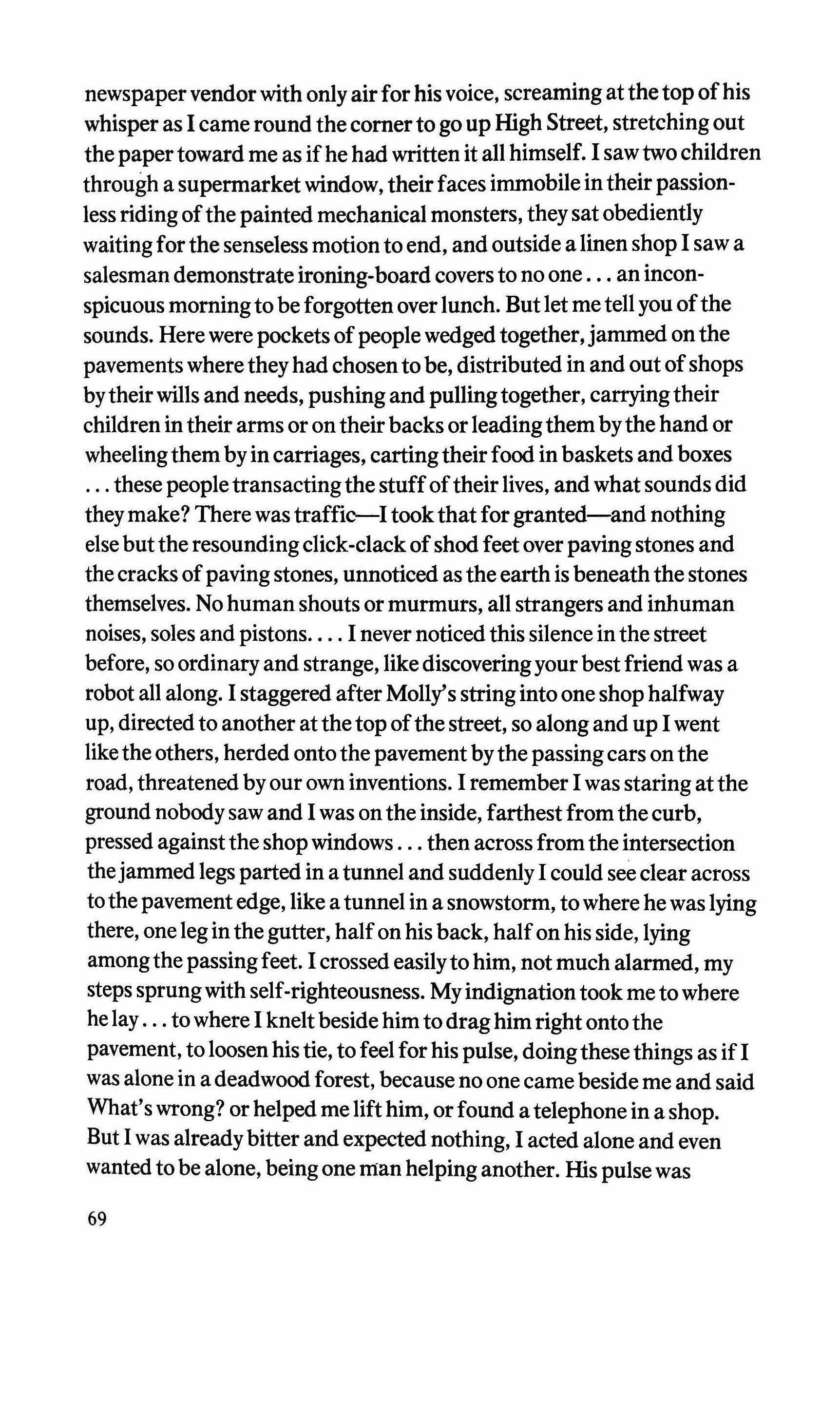
newspapervendorwith onlyairfor his voice, screaming at thetop ofhis whisper as I came round the corner to go up High Street, stretching out thepapertoward me as ifhe had written it all himself. I saw two children through a supermarket window, their faces immobile in theirpassionless riding ofthe painted mechanical monsters, they sat obediently waitingforthe senseless motion to end, and outside a linen shop I saw a salesman demonstrate ironing-board covers to no one an inconspicuousmorningto be forgotten over lunch. Butlet me tell you ofthe sounds. Here were pockets of peoplewedgedtogether,jammed on the pavementswheretheyhad chosen to be, distributed in and out ofshops bytheirwills and needs, pushing and pullingtogether, carryingtheir children in their arms or on theirbacks or leadingthembythe hand or wheelingthembyincarriages, cartingtheir food in baskets and boxes these peopletransactingthe stuffoftheir lives, and what sounds did theymake? There was traffic-I tookthat forgranted-and nothing elsebutthe resoundingclick-clackofshod feet over paving stones and thecracks ofpaving stones, unnoticed as theearth is beneaththe stones themselves. No human shouts or murmurs, all strangers and inhuman noises, soles and pistons I never noticed this silence in the street before, so ordinaryand strange, like discoveringyourbest friend was a robot all along. I staggered after Molly'sstringinto one shophalfway up, directed to another at thetop ofthe street, so along and up I went liketheothers, herded onto the pavementbythe passing cars on the road, threatened by our own inventions. I remember I was staring atthe groundnobody saw and I was on the inside, farthestfrom thecurb, pressed againstthe shopwindows then across from the intersection thejammedlegsparted in a tunnel and suddenly I could see clear across to the pavementedge, like a tunnel in a snowstorm, to where he was lying there, one leg in the gutter, half on his back, half on his side, lying amongthe passingfeet. I crossed easilyto him, not much alarmed, my steps sprungwith self-righteousness. Myindignationtook me to where he lay to where I kneltbeside him to draghimright onto the pavement, to loosen histie, to feel forhis pulse, doingthesethings as ifI was alone in a deadwood forest, because no one came beside me and said What's wrong? or helped me lifthim, or found a telephone in a shop. But I was alreadybitter and expectednothing, I acted alone and even wanted to be alone, being one man helping another. His pulse was
69
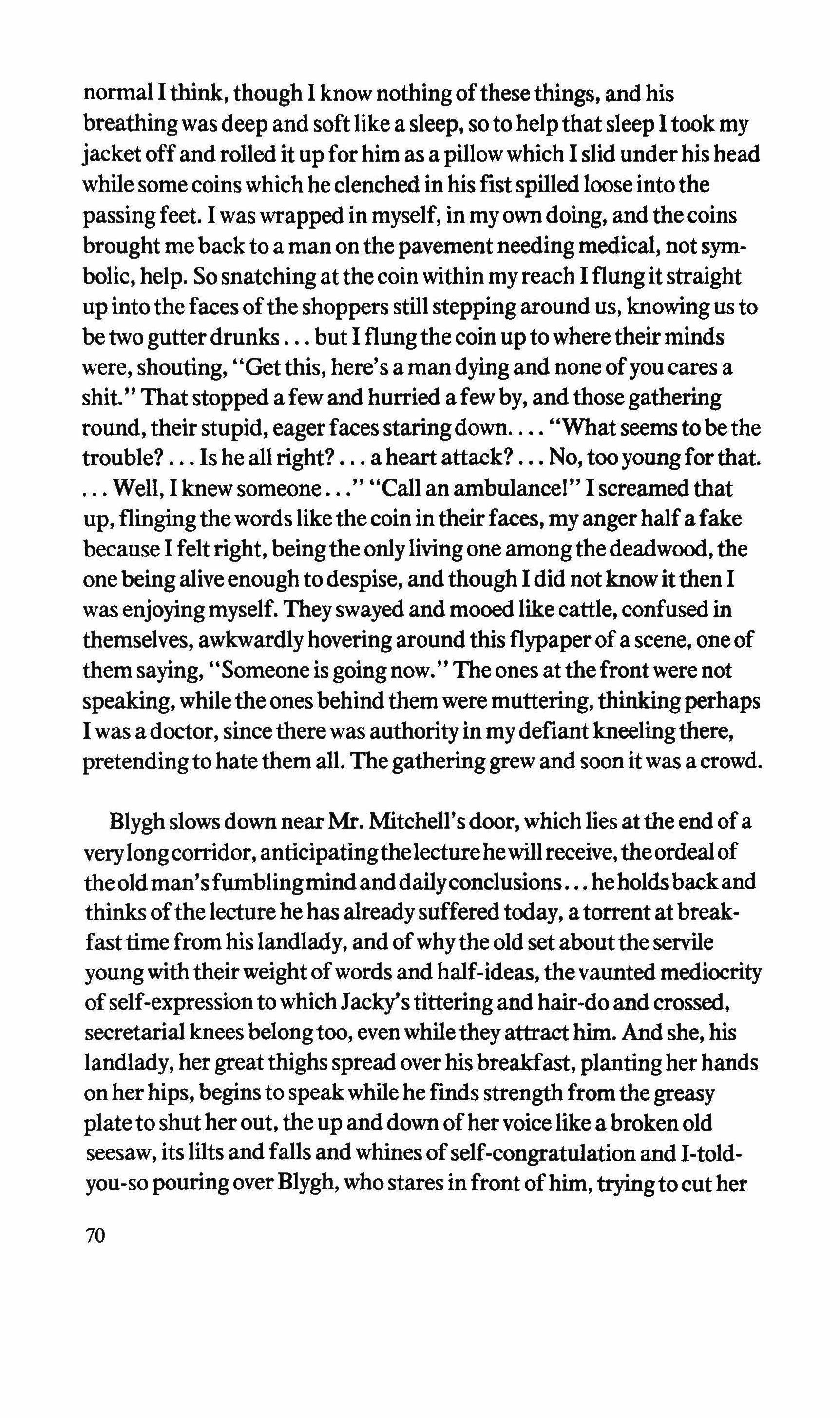
normal I think, though I know nothingofthesethings, and his breathing was deep and soft like a sleep, so to help that sleep I took my jacket off and rolled it up for him as a pillowwhich I slid under his head while some coinswhich he clenched in his fist spilled loose intothe passingfeet. I was wrapped in myself, in my own doing, and thecoins brought me back to a man on the pavementneedingmedical, not symbolic, help. So snatching at the coin within myreach I flungit straight up intothe faces ofthe shoppers still stepping around us, knowing us to be two gutter drunks but I flungthe coin up to wheretheir minds were, shouting, "Get this, here's amandying and none ofyou cares a shit." That stopped a fewand hurried a fewby, andthosegathering round, their stupid, eagerfaces staringdown "What seems to bethe trouble? Is he all right? a heart attack? No, tooyoungforthat. Well, I knew someone " "Call an ambulance!" I screamedthat up, flingingthewords likethecoin intheirfaces, myanger half a fake because I feltright, beingthe onlyliving one amongthedeadwood, the one beingaliveenough to despise, and though Idid not knowitthen I was enjoyingmyself. Theyswayed and mooed like cattle, confused in themselves, awkwardlyhovering around this flypaperof a scene, one of them saying, "Someoneis goingnow." The ones atthefront were not speaking, whilethe ones behindthem were muttering, thinkingperhaps I was a doctor, sincethere was authorityin mydefiant kneelingthere, pretendingto hatethem all. The gatheringgrew and soon it was a crowd.
Blygh slows down near Mr. Mitchell'sdoor, which lies at the end of a verylongcorridor, anticipatingthelecturehewillreceive, theordealof theoldman'sfumblingmindanddailyconclusions heholdsbackand thinks ofthelecture he has alreadysuffered today, a torrent at breakfasttimefrom his landlady, and ofwhytheold set aboutthe servile youngwith theirweight ofwords and half-ideas, thevaunted mediocrity ofself-expression to which Jacky'stittering and hair-do and crossed, secretarial knees belongtoo, even whilethey attract him. And she, his landlady, her greatthighsspread over his breakfast, planting her hands on herhips,begins to speakwhile he finds strength fromthegreasy plateto shut her out, the up and downofhervoice like a broken old seesaw, its lilts and falls and whines ofself-congratulation and J-toldyou-so pouring over Blygh, who stares infront ofhim, tryingto cut her
70
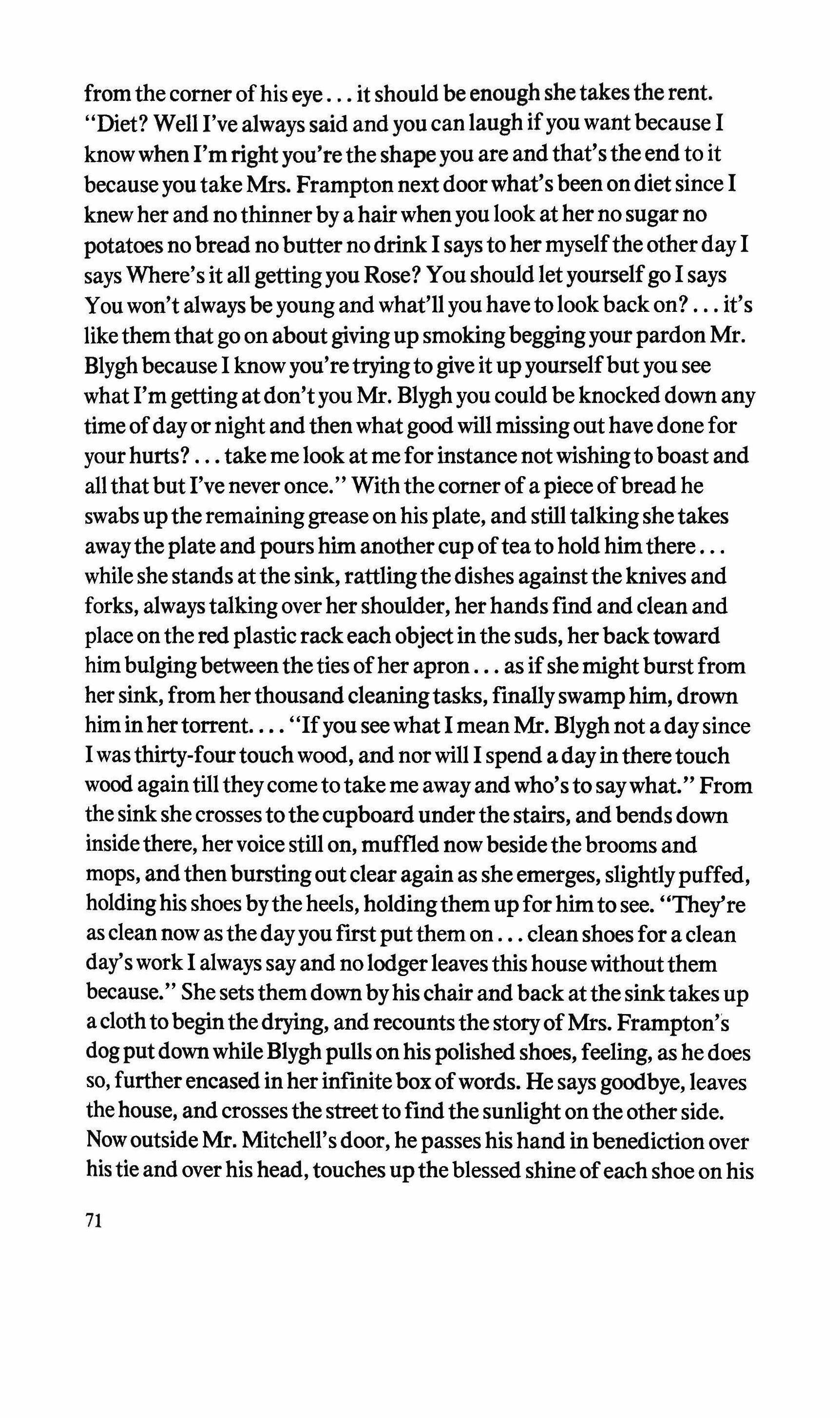
from the corner ofhis eye it should be enough shetakes the rent. "Diet? Well I've always said and you can laugh ifyou want because I knowwhen I'mrightyou'rethe shapeyou are and that'stheend to it because you take Mrs. Frampton next doorwhat's been on diet since I knewher and no thinnerby a hair whenyou look at her no sugar no potatoes no bread no butter no drink I says to hermyselftheotherday I says Where's it all gettingyou Rose? You should letyourselfgo I says You won't always beyoung and what'll you haveto look back on? it's likethemthat go on about givingup smokingbeggingyourpardon Mr. Blyghbecause I knowyou'retryingto give itupyourselfbut you see what I'm getting atdon'tyou Mr. Blyghyou could be knocked down any time ofday or night and thenwhatgoodwill missingout have donefor your hurts? take me look at me forinstance notwishingto boast and allthatbut I've never once." Withthe corner of a piece ofbread he swabs uptheremaininggrease on his plate, and still talking shetakes awaytheplate and pours him anothercup ofteato hold himthere while she stands at the sink, rattlingthedishes againsttheknives and forks, alwaystalking over her shoulder, herhands find and clean and place on the red plastic rackeach object inthe suds, herbacktoward himbulgingbetweentheties ofher apron as ifshemightburst from her sink, fromherthousand cleaningtasks, finallyswamp him, drown him inhertorrent "Ifyou see what I mean Mr. Blygh not a daysince I was thirty-fourtouchwood, and nor will I spend a dayintheretouch wood againtillthey corne to take me awayand who's to saywhat." From thesink she crosses tothecupboard underthestairs, and bends down insidethere, hervoicestill on, muffled now besidethebrooms and mops, andthenburstingout clear again as sheemerges, slightlypuffed, holdinghis shoes bytheheels, holdingthemup forhimto see. "They're as clean now as thedayyou firstputthem on cleanshoes for a clean day's work I always say and no lodgerleaves this house withoutthem because." She sets themdownbyhis chair and back at the sinktakes up a clothtobeginthedrying, and recounts the storyofMrs. Frampton's dogputdownwhileBlyghpulls on his polished shoes, feeling, as hedoes so, furtherencased inherinfiniteboxofwords. He says goodbye, leaves thehouse, and crosses the streettofind the sunlight on the other side. Nowoutside Mr. Mitchell'sdoor, he passes his hand inbenediction over histie and over his head, touches uptheblessed shineofeach shoe on his
71

calf, and waitsthere, his knuckles poised forvoices inside, and then knocks.
John Fisher and his friend. WaitingforJoey, leaningfirstthis way and that, squinting intothe sun which slides across the space between the drainpipe and the wall, he traces the lines ofbrickwork with his finger and crushes a green fly on the porch post it should not be alive inwinter. FinallyJoeytoo is free, pursued down the path to the gateby the conditions his mother shouts after him, weighing on theirfreedom to slough her offthey run, this timeintothelow and blinding sun which splintersthrough the cold-wind tears and makes prisms. Joey listens tothestoryofballast, itsgoingunder,lettingup, holdingdown pinned wheels, the explosion and the stopwatchpromise, the necessity ofballastfortheircart, a large stonetojam inthe back on which, once there, thedriver could lean his elbow whilethe other hand holds the stringto steer. Joey says, "It needs to be a big one and you won't find those anywhere but at the place I know." The place he knows is a rockeryin a garden surroundedby awirefencewheretheyhang now like prisonerswatchingthrough, both scared and each waitingforthe other to speakfirst, waitingto be dared. FinallyJoey, two years older, speaks first. "I could getit, I could walk straight in there and getit," whileJohn Fisherwatches him under his arm which hangs on thefence. "What aboutthe dog?" and he points to the sign nailed to the gate. Joey knows there is no dog, hewalks past this garden everyday on his way to school and there has never been a dog, but he pauses, not wishingto devalue the feat "I'm not afraid ofdogsanyway." John Fisher stands back from the fence and lets his hands drop to his side, searching without knowingit for a way to let his friend retrieve the stone, the ballast, and to keep his own valor intact. Joey says again, "I'm not afraid, I'djust go in and take it" and waits forthe other to admit his fear, but some obscure pride checksJohn Fisher and makes him taunt instead, "Why don't you, then?" "Because it's not mycart, whyshould I get it ifit isn't my cart?" John Fisher turns back to the fence and runs his fingers over the lattice, a vague image in his mind ofthe lines of cement he traced whilewaitingthis morning, hearinghimselfblunder on, "I'm not scared either, but I don'tfeel like going." Joeyautomatically senses theweakness ofthis. "You said we needed a stone for
72
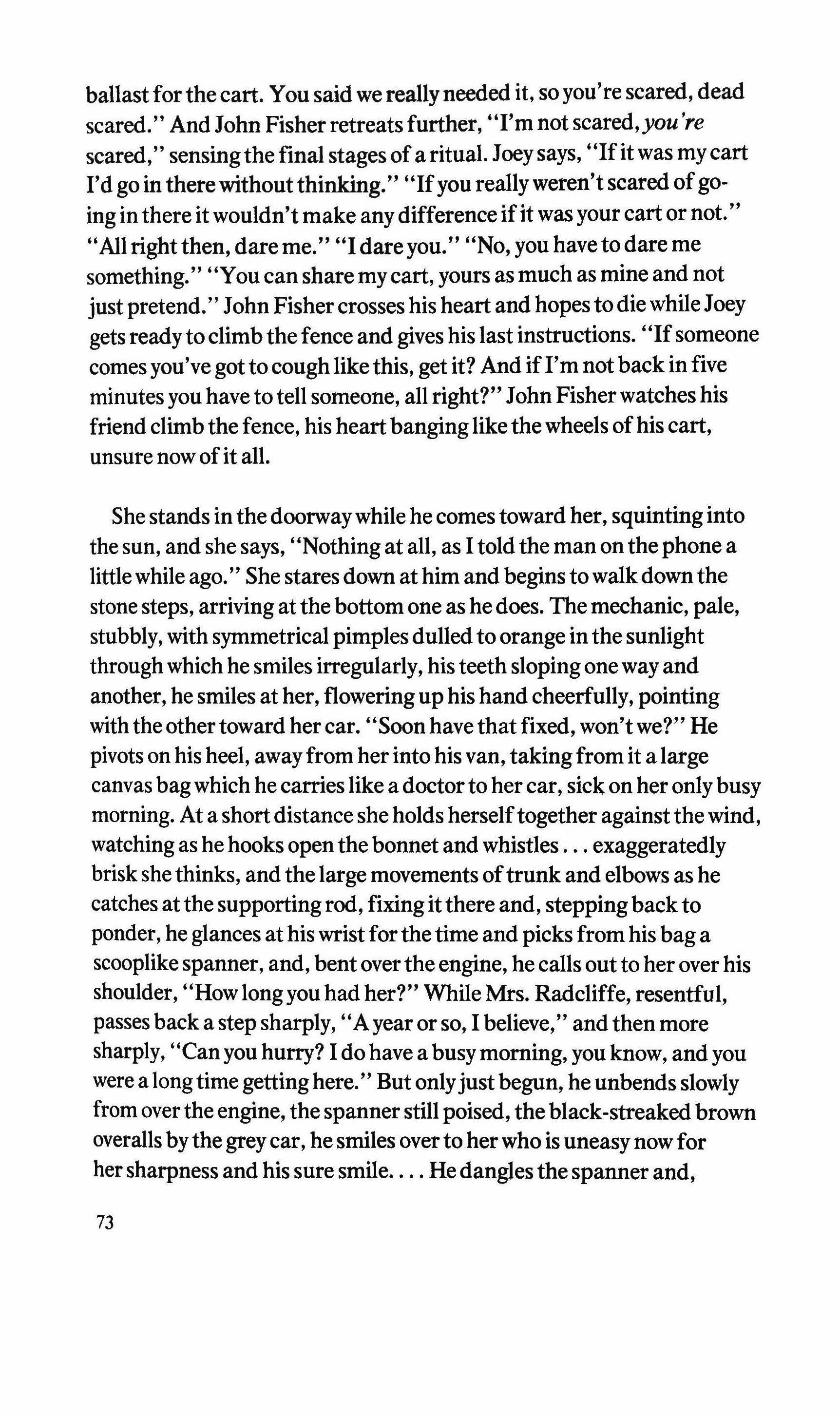
ballastforthe cart. You said we reallyneeded it, so you're scared, dead scared." And John Fisher retreats further, "I'm not scared,you 're scared," sensingthe final stages of a ritual. Joey says, "Ifit was my cart I'd go in therewithoutthinking." "Ifyou reallyweren't scared ofgoing in there itwouldn'tmake any difference ifit was your cart or not." "All rightthen, dareme." "I dareyou." "No, you have to dare me something. "You can share mycart, yours as much as mine and not justpretend." John Fisher crosses his heart and hopes to diewhileJoey getsreadyto climb the fence and gives his last instructions. "If someone comes you'vegotto cough likethis, get it? And ifI'm not back in five minutes you have to tell someone, all right?" John Fisherwatches his friend climbthe fence, his heartbanging likethewheels ofhis cart, unsure now ofit all.
She stands in thedoorwaywhile he comes toward her, squintinginto the sun, and she says, "Nothing at all, as I told the man on thephone a little while ago." She stares down at him and begins to walk down the stone steps, arriving at the bottom one as he does. Themechanic, pale, stubbly, with symmetricalpimples dulled to orange in the sunlight throughwhich he smiles irregularly, his teeth sloping one way and another, he smiles at her, floweringup his hand cheerfully, pointing with theother toward her car. "Soon have that fixed, won'twe?" He pivots on his heel, awayfrom her into his van, takingfrom it a large canvas bagwhich he carries like a doctorto her car, sick on her onlybusy morning. At a shortdistance she holds herselftogetheragainstthewind, watching as he hooks openthe bonnet and whistles exaggeratedly brisk she thinks, and the large movements oftrunk and elbows as he catches atthe supportingrod, fixingitthere and, steppingback to ponder, he glances at his wrist forthetime and picks from his bag a scooplike spanner, and, bent over the engine, he calls out to her over his shoulder, "How longyou had her?" While Mrs. Radcliffe, resentful, passes back a step sharply, "Ayear or so, I believe," and then more sharply, "Canyou hurry? I do have a busymorning, you know, and you were a longtime gettinghere." But onlyjustbegun, he unbends slowly from over the engine, the spanner still poised, theblack-streaked brown overalls bythe grey car, hesmiles over to her who is uneasy now for her sharpness and his sure smile He dangles the spanner and,
73
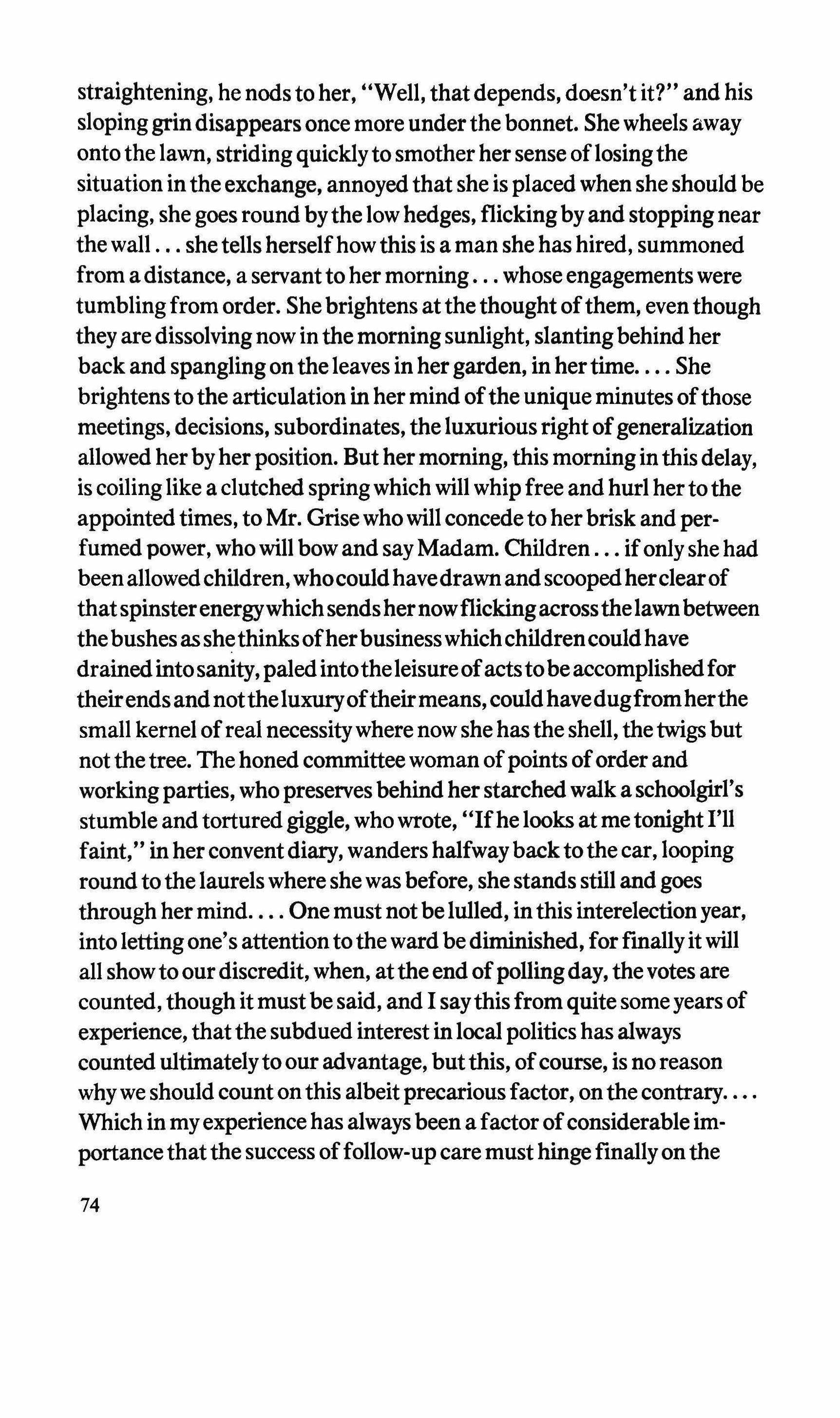
straightening, he nods to her, "Well, thatdepends, doesn't it?" and his slopinggrindisappears once more underthe bonnet. She wheels away onto the lawn, stridingquicklyto smother her sense oflosingthe situation inthe exchange, annoyed that she is placed when she should be placing, she goes round bythe low hedges, flickingbyand stopping near the wall shetells herselfhowthis is a man she has hired, summoned from a distance, a servant to her morning whose engagements were tumblingfrom order. Shebrightens at the thought ofthem, even though they are dissolving now in the morningSUnlight, slantingbehind her back and spangling on theleaves in hergarden, in hertime She brightens to the articulation in her mind ofthe unique minutes ofthose meetings, decisions, subordinates, the luxurious right ofgeneralization allowed herbyherposition. Buthermorning, this morninginthis delay, is coiling like a clutched springwhich will whip free and hurl her to the appointedtimes, to Mr. Grisewhowill concede to herbrisk and perfumed power, whowill bowand say Madam. Children ifonly she had beenallowedchildren,whocouldhavedrawnandscoopedherclearof thatspinsterenergywhichsendsher nowflicking across thelawnbetween thebushes as shethinksofherbusinesswhichchildrencouldhave drainedintosanity,paledintotheleisureofactstobeaccomplishedfor theirendsandnottheluxuryoftheirmeans, couldhavedugfromherthe small kernel ofreal necessitywhere now she hasthe shell, thetwigsbut not the tree. The honed committee woman ofpoints oforder and workingparties, who preserves behind her starched walk a schoolgirl's stumble and tortured giggle, whowrote, "Ifhe looks at me tonight I'll faint," in her convent diary, wanders halfway back tothe car, looping round to the laurels where she was before, she stands still and goes through hermind .••. One must not belulled, inthis interelection year, into lettingone's attention to the ward be diminished, forfmallyitwill all showto our discredit,when, attheend ofpollingday, the votes are counted,though it must be said, and I saythisfrom quite some years of experience, thatthe subdued interest inlocal politics has always counted ultimatelyto our advantage, butthis, ofcourse, is no reason why we should count on this albeit precariousfactor, on the contrary Which in myexperience has always been a factor ofconsiderable importancethatthe success offollow-up care must hingefmally on the
74
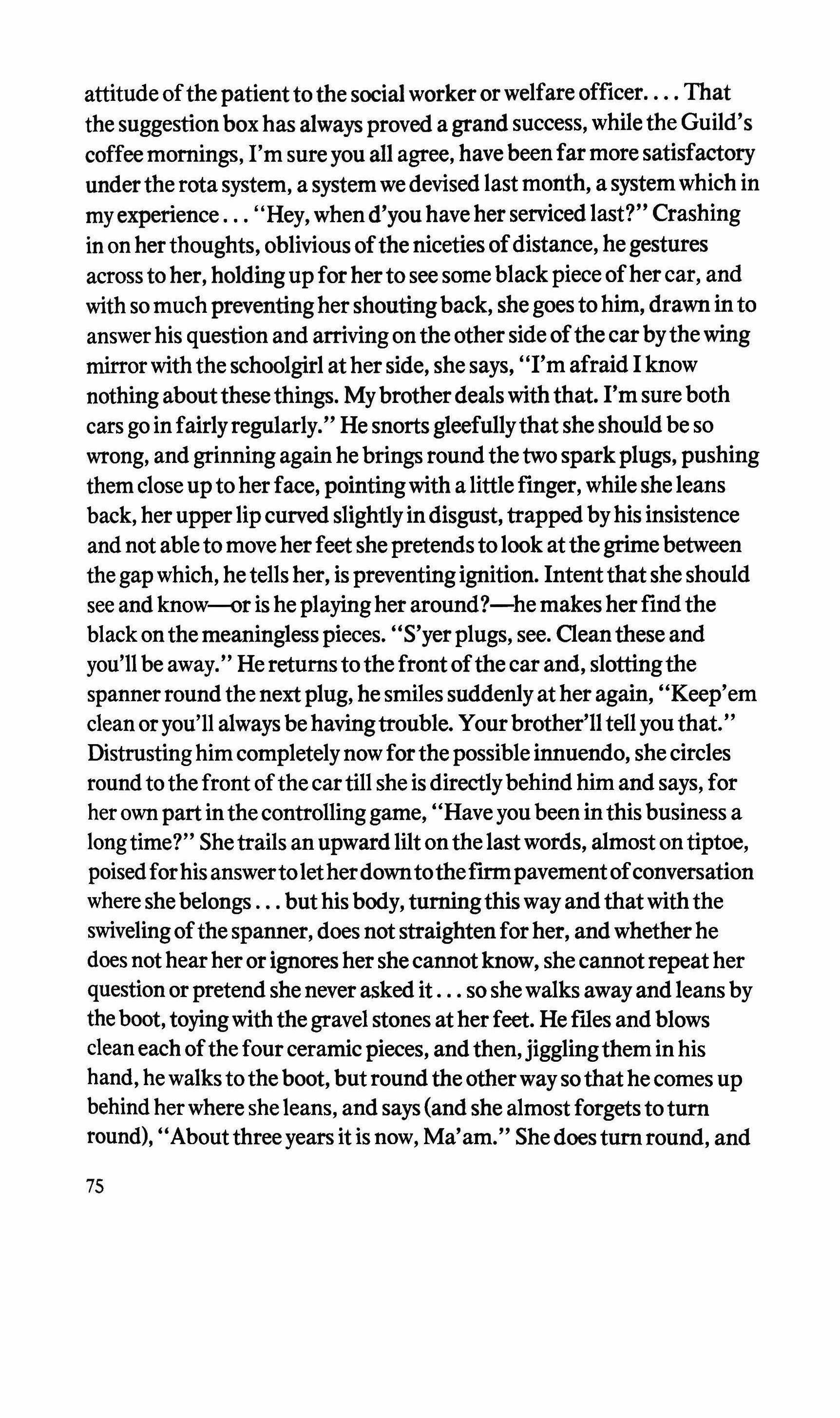
attitude ofthe patient to the social worker or welfare officer That the suggestionbox has alwaysproved a grand success, while the Guild's coffeemornings, I'm sure you all agree, have beenfar more satisfactory underthe rota system, a system we devised last month, a systemwhich in myexperience "Hey, whend'youhave her serviced last?" Crashing in on herthoughts, oblivious ofthe niceties ofdistance, hegestures across to her, holdingup forherto see some black piece ofher car, and with so much preventingher shoutingback, she goes to him, drawn in to answer his question and arriving on the other side ofthe car bythewing mirrorwiththe schoolgirl at her side, she says, "I'm afraid I know nothing aboutthesethings. Mybrotherdealswiththat. I'm sure both cars go infairlyregularly." He snorts gleefullythat she should be so wrong, and grinningagain hebrings round the two sparkplugs, pushing them close up to herface, pointingwith a littlefinger, while she leans back, herupperlipcurved slightlyindisgust,trappedbyhis insistence and not able to move herfeet shepretends to look atthegrimebetween thegapwhich, hetells her, is preventingignition. Intent thatshe should see and know-or is heplayingher around?-hemakesherfind the black on themeaninglesspieces. "S'yerplugs, see. Cleanthese and you'll be away." He returns tothefrontofthe car and, slottingthe spanner round the next plug, he smiles suddenly at her again, "Keep'em clean or you'll always behavingtrouble. Yourbrother'll tell you that." Distrusting himcompletely now forthepossibleinnuendo, she circles round to thefront ofthe car till she is directlybehind him and says, for her own part inthecontrolling game, "Haveyou been inthisbusiness a longtime?" Shetrails an upward lilt on thelastwords, almost on tiptoe, poisedforhis answertoletherdowntothefirmpavementofconversation where shebelongs but his body,turningthis way andthatwiththe swivelingofthe spanner, does not straightenforher, and whetherhe does not hear her or ignores hershe cannot know, she cannot repeat her question or pretend she never asked it so shewalks away and leans by theboot,toyingwiththegravel stones at herfeet. Hefiles and blows cleaneach ofthefour ceramic pieces, andthen,jigglingthem inhis hand, hewalks totheboot, but round theotherway so thathe comes up behind herwhere sheleans, and says (and she almost forgets totum round), "About three years itis now, Ma'am." She does tum round, and
7S
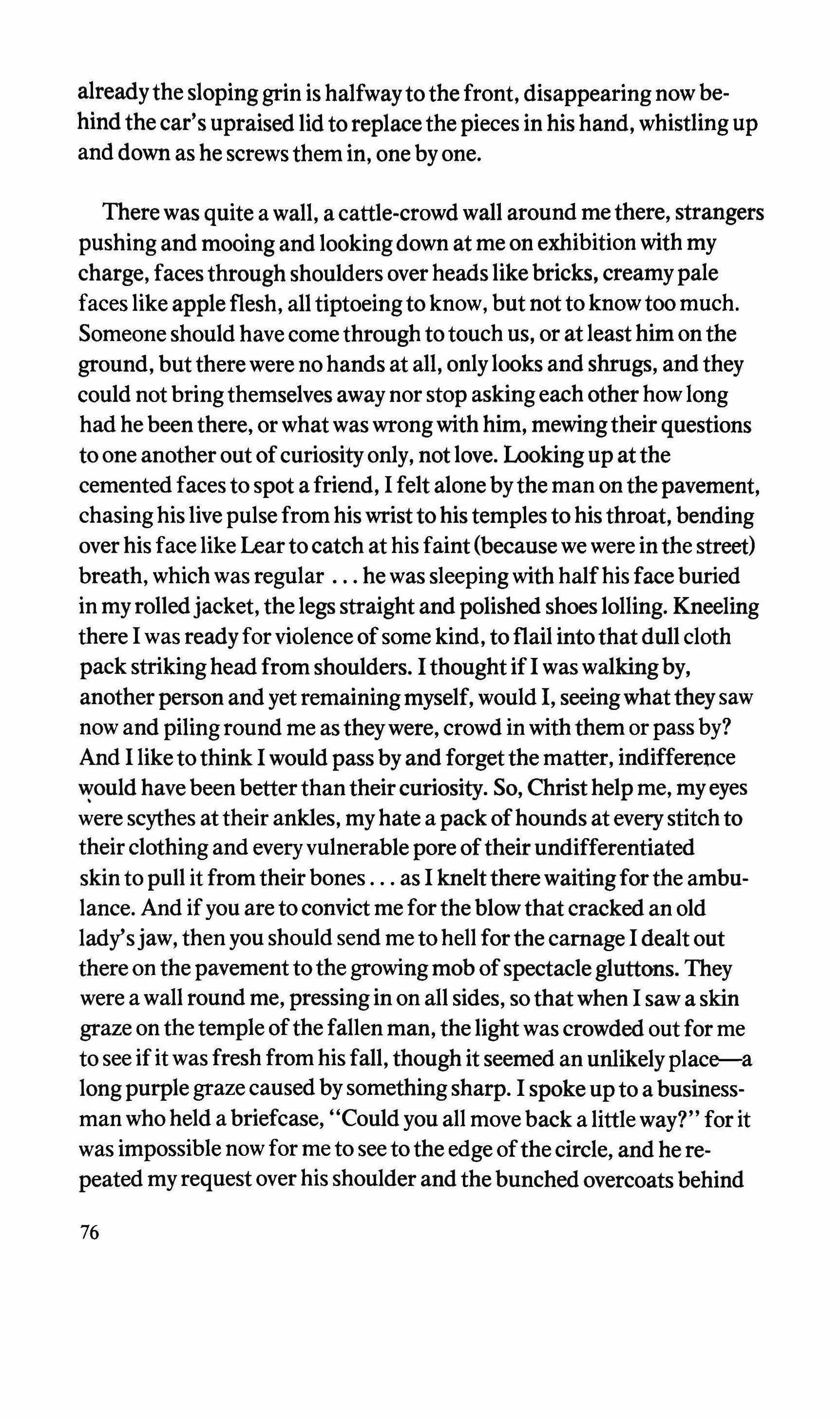
alreadythe slopinggrin is halfwayto the front, disappearing now behind the car's upraised lid to replacethe pieces in his hand, whistling up and down as he screws them in, one by one.
There was quite a wall, a cattle-crowd wall around me there, strangers pushing and mooing and lookingdown at me on exhibition with my charge, facesthrough shoulders over heads like bricks, creamypale faces like appleflesh, all tiptoeing to know, but not to know too much. Someone should have come through to touch us, or at least him on the ground, but there were no hands at all, onlylooks and shrugs, and they could not bringthemselves away nor stop askingeach other howlong had he been there, or what was wrongwith him, mewingtheir questions to one another out ofcuriosityonly, not love. Looking up at the cemented faces to spot a friend, I felt alone bythe man on the pavement, chasinghis live pulse from hiswrist to his temples to his throat, bending over his face like Lear to catch at his faint(because we were inthe street) breath, which was regular he was sleepingwith halfhis face buried in my rolledjacket, the legsstraight and polished shoes lolling. Kneeling there I was readyfor violence of some kind, to flail intothatdull cloth packstriking head from shoulders. I thought ifI was walkingby, another person and yetremainingmyself, would I, seeingwhat they saw now and pilinground me as theywere, crowd in withthem or pass by? And I liketo think I would pass by and forgetthe matter, indifference would have been betterthantheircuriosity. So, Christhelp me, myeyes were scythes at their ankles, my hate a pack ofhounds at every stitch to their clothing and everyvulnerable pore oftheir undifferentiated skin to pull it from their bones as I knelttherewaitingforthe ambulance. And ifyou are to convict me forthe blowthat cracked an old lady'sjaw, then you should send me to hell forthe carnage I dealt out there on thepavement tothe growing mob ofspectaclegluttons. They were a wall round me, pressing in on all sides, so that when I saw a skin graze on thetemple ofthe fallen man, the light was crowded out for me to see ifit was fresh from his fall, though it seemed an unlikelyplace--a longpurple graze caused bysomethingsharp. I spoke up to a businessman whoheld a briefcase, "Could you all move back a littleway?" for it was impossible now for me to see to the edge ofthe circle, and he repeated my request over his shoulder and thebunched overcoats behind
76
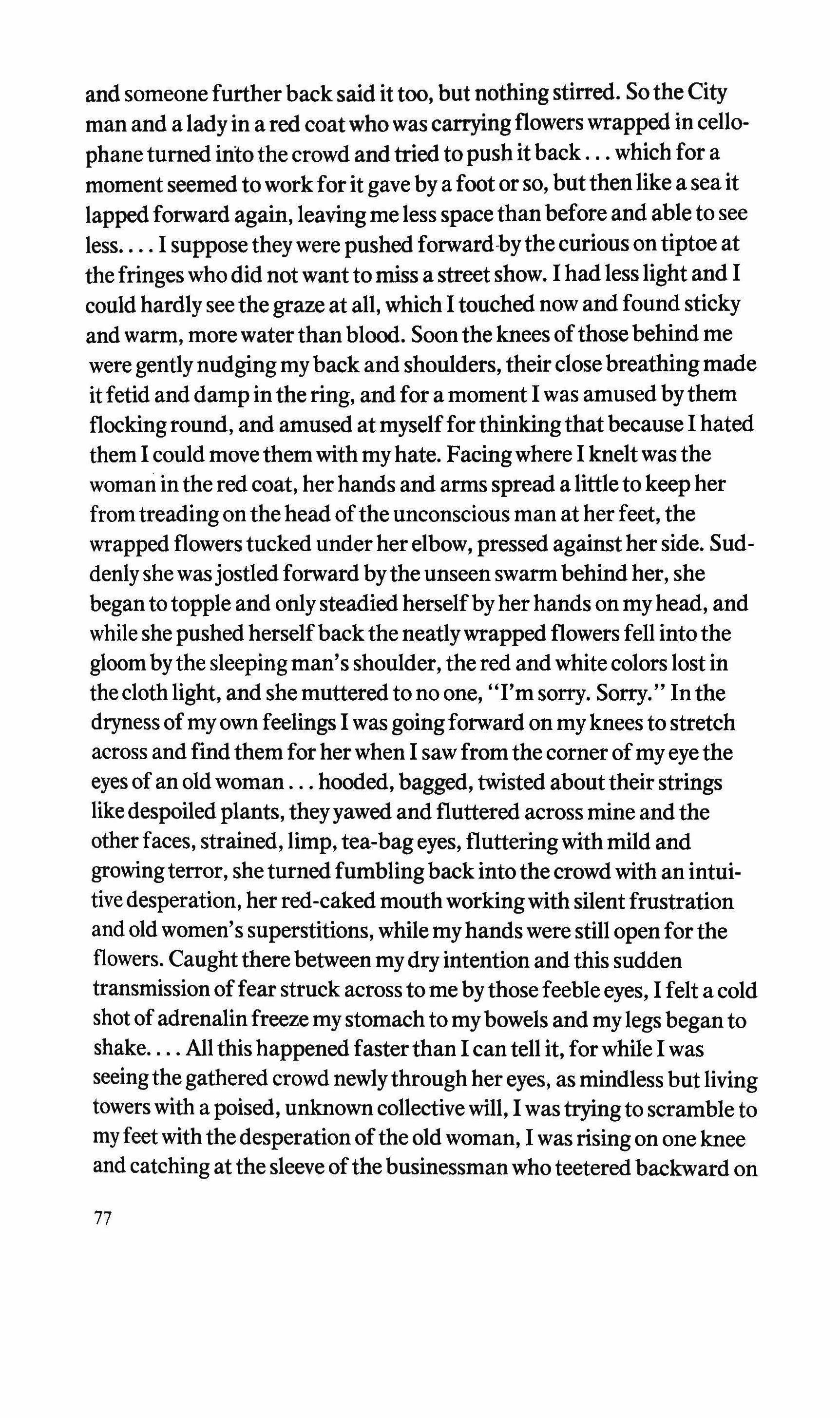
and someone further back said it too, but nothing stirred. Sothe City man and a lady in a red coat who was carryingflowers wrapped in cellophane turned intothe crowd andtried to push itback which for a moment seemed to work forit gave by a foot or so, butthenlike a sea it lapped forward again, leaving me less space than before and able to see less I suppose they were pushedforward-bythecurious on tiptoe at thefringes who did not want to miss a street show. I had less light and I could hardly see the graze at all, which I touched now and found sticky and warm, more water thanblood. Soon the knees ofthosebehind me were gentlynudging my back and shoulders, their closebreathingmade itfetid and damp in the ring, and for a moment I was amused bythem flockinground, and amused at myselffor thinkingthat because I hated them I could move them with myhate. Facingwhere I knelt was the woman in the red coat, her hands and arms spread a littleto keep her fromtreading on thehead ofthe unconscious man at her feet, the wrapped flowerstucked under her elbow, pressed against her side. Suddenly she was jostled forward bythe unseen swarm behind her, she began to topple and onlysteadied herselfby herhands on myhead, and while she pushed herselfbackthe neatlywrapped flowers fell intothe gloombythe sleepingman's shoulder, the red and white colors lost in thecloth light, and she muttered to no one, "I'm sorry. Sorry." In the drynessofmy own feelings I was goingforward on my knees to stretch across and find them forherwhen I saw fromthe corner ofmyeye the eyes of an old woman hooded, bagged, twisted abouttheir strings likedespoiledplants,theyyawed and fluttered across mine and the other faces, strained, limp,tea-bag eyes, flutteringwithmild and growingterror, she turned fumbling backintothe crowd with an intuitivedesperation, her red-caked mouthworkingwith silent frustration and old women's superstitions, while myhands were still openforthe flowers. Caughttherebetween mydry intention and this sudden transmission offear struck across to me bythosefeeble eyes, I felt a cold shot ofadrenalinfreeze my stomach to mybowels and my legsbegan to shake All this happened fasterthan I can tell it, forwhile I was seeingthe gathered crowd newlythrough her eyes, as mindless but living towers with a poised, unknown collectivewill, I was trying to scramble to my feetwiththedesperation ofthe old woman, I was rising on one knee and catching at the sleeve ofthebusinessman who teetered backward on
77
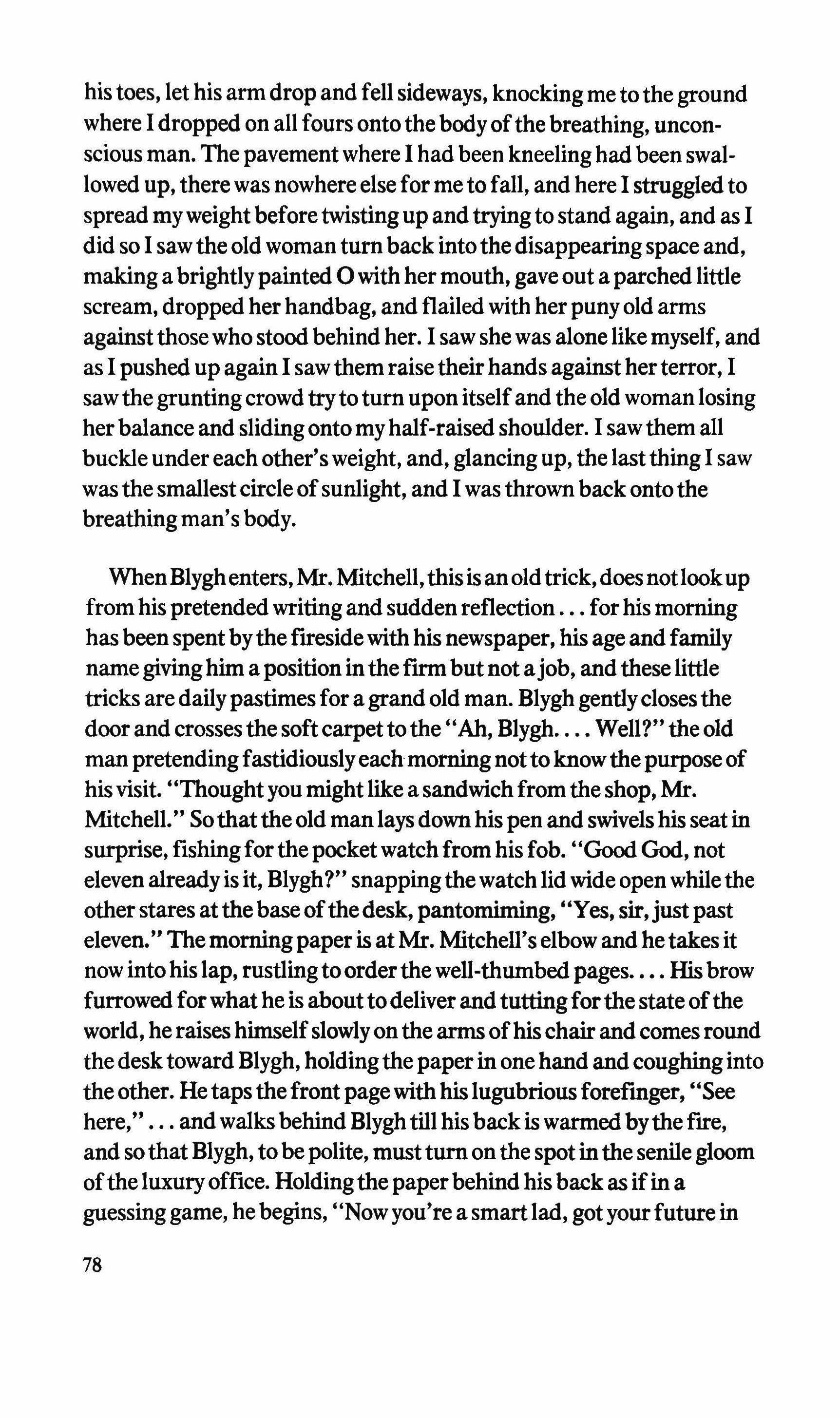
histoes, let his arm drop and fell sideways, knocking me to the ground where I dropped on all fours ontothe bodyofthe breathing, unconscious man. The pavementwhere I had been kneeling had been swallowed up, there was nowhereelse for me to fall, and here I struggled to spread myweight beforetwistingup and trying to stand again, and as I did so I saw the old woman turn back intothedisappearingspace and, making a brightlypainted 0with hermouth, gave out a parched little scream, dropped her handbag, and flailed with her puny old arms againstthosewho stood behind her. I saw she was alonelike myself, and as I pushed up again I saw them raisetheirhands againstherterror, I saw the gruntingcrowd tryto turn upon itselfand the old woman losing herbalance and sliding onto myhalf-raised shoulder. I saw them all buckle under each other'sweight, and, glancing up, thelastthing I saw was the smallest circle ofSUnlight, and I was thrown back onto the breathingman's body.
WhenBlyghenters, Mr. Mitchell,thisis an oldtrick,doesnotlookup from his pretendedwritingand sudden reflection forhis morning has been spentbytheftresidewith his newspaper, his age and family name givinghim a position inthefirm but not ajob, and theselittle tricks are dailypastimes for a grand old man. Blyghgentlyclosesthe door and crosses the softcarpettothe •• Ah, Blygh Well?" theold man pretendingfastidiouslyeachmorning nottoknowthepurposeof hisvisit. "Thought you might like a sandwichfromthe shop, Mr. Mitchell." Sothattheold man lays down his pen and swivels his seat in surprise, ftshingforthepocketwatch from his fob. "Good God, not eleven alreadyis it, Blygh?" snappingthewatch lid wide openwhilethe other stares atthebaseofthedesk, pantomiming, "Yes, sir,justpast eleven." Themorningpaper is at Mr. Mitchell's elbow and hetakes it now intohislap, rustling toorderthewell-thumbed pages ..•. His brow furrowedforwhat he is about todeliverandtuttingforthe state ofthe world, he raiseshimselfslowly on the arms ofhischair and comes round thedesktoward Blygh, holdingthepaperin one hand and coughinginto theother. Hetapsthefront pagewithhislugubriousforefmger, "See here," and walks behind Blyghtill his backis warmed bythefire, and so that Blygh, to be polite, must turn on the spotinthe senilegloom oftheluxuryoffice. Holdingthe paperbehind hisback as ifin a guessinggame, hebegins, "Nowyou're a smart lad, gotyour future in
78
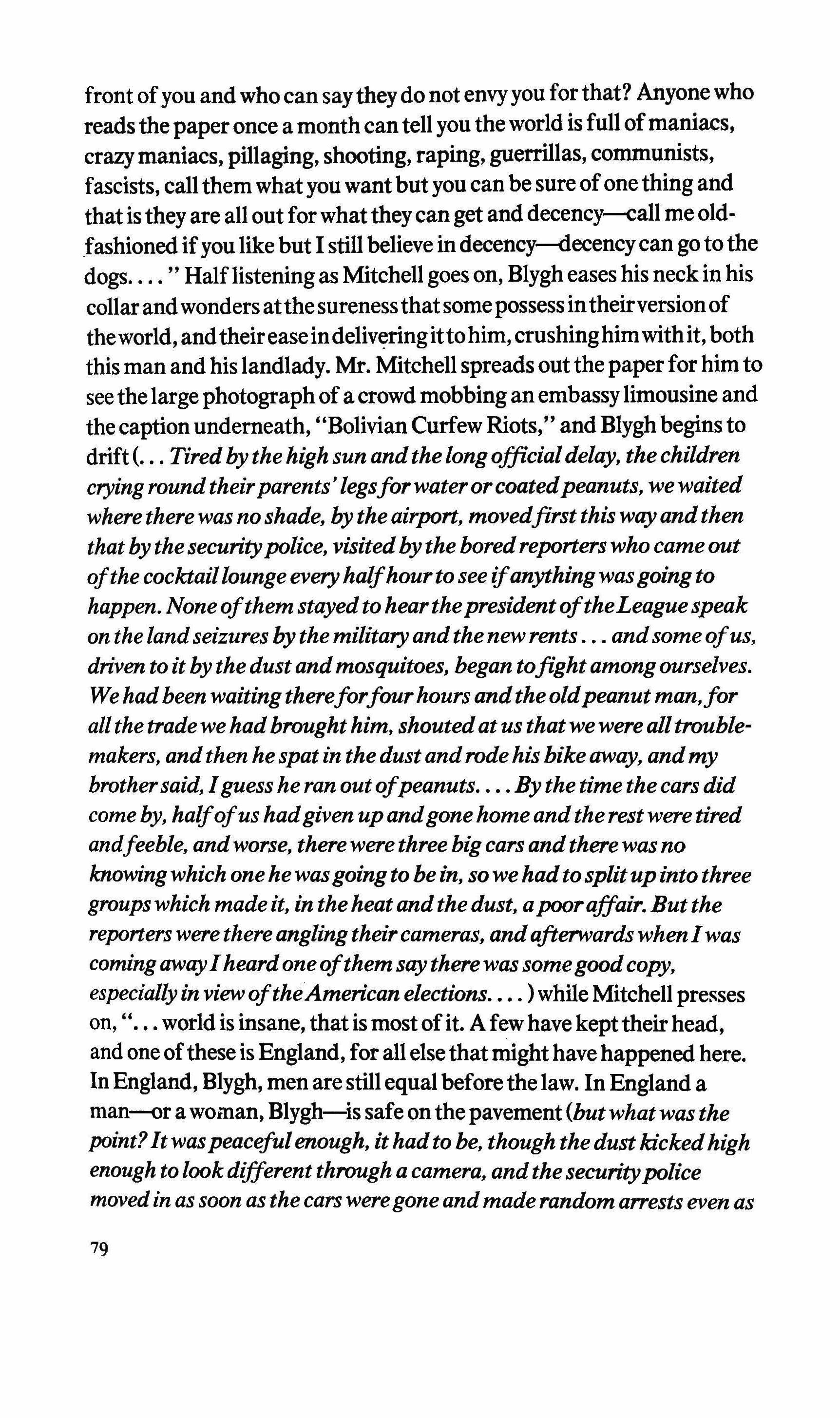
front ofyou and who can saythey do not envyyou forthat? Anyone who reads thepaper once a month can tell you theworld is full ofmaniacs, crazy maniacs, pillaging, shooting, raping, guerrillas, communists, fascists, callthemwhatyou want butyou can be sure of one thing and that isthey are all out forwhatthey can get and decency-call me oldfashioned ifyou like but I still believe indecency-decency can go tothe dogs Halflistening as Mitchell goes on, Blygh eases his neck in his collarandwondersatthe surenessthat some possessintheirversionof theworld, andtheir ease indeliveringittohim,crushinghimwithit, both this man and his landlady. Mr. Mitchell spreads out the paper for him to see thelargephotograph of a crowd mobbing an embassylimousine and the caption underneath, "Bolivian Curfew Riots," and Blyghbegins to drift( Tiredbythehigh sun andthelongofficialdelay, thechildren cryingroundtheirparents'legsforwater or coatedpeanuts, we waited where there was no shade, bytheairport, movedfirst this wayandthen thatbythesecuritypolice, visitedbythe boredreporterswho came out ofthe cocktaillounge everyhalfhourto see ifanything wasgoing to happen. Noneofthem stayed to hearthepresidentoftheLeaguespeak on thelandseizures bythemilitary andthe new rents andsome ofus, driven to it bythedust andmosquitoes, began tofight amongourselves. Wehadbeen waitingthereforfourhours andtheoldpeanutman,for allthetrade we hadbroughthim, shoutedat us that we were alltroublemakers, andthen hespat in thedustandrodehis bikeaway, andmy brothersaid, Iguess he ran out ofpeanuts Bythe time the cars did come by, halfofus hadgiven up andgone homeandthe rest were tired andfeeble, andworse, there were three big cars andthere was no knowingwhich one he wasgoing to bein, so we hadto splitupinto three groupswhich made it, in theheatandthedust, apooraffair. Butthe reporters were thereanglingtheir cameras, andafterwardswhenIwas coming awayIheard one ofthem say there was somegoodcopy, especially in viewoftheAmerican elections )whileMitchell presses on, world is insane, thatis mostofit. Afewhave kepttheirhead, and one oftheseis England, forall elsethatmighthavehappened here. In England, Blygh, men are still equal beforethe law. In England a man-or a woman, Blygh-is safe on thepavement(butwhat was the point?It waspeacefulenough, it had to be, though thedustkickedhigh enough to lookdifferentthrough a camera, andthesecuritypolice movedin as soon as the cars weregone andmaderandom arrests even as
79
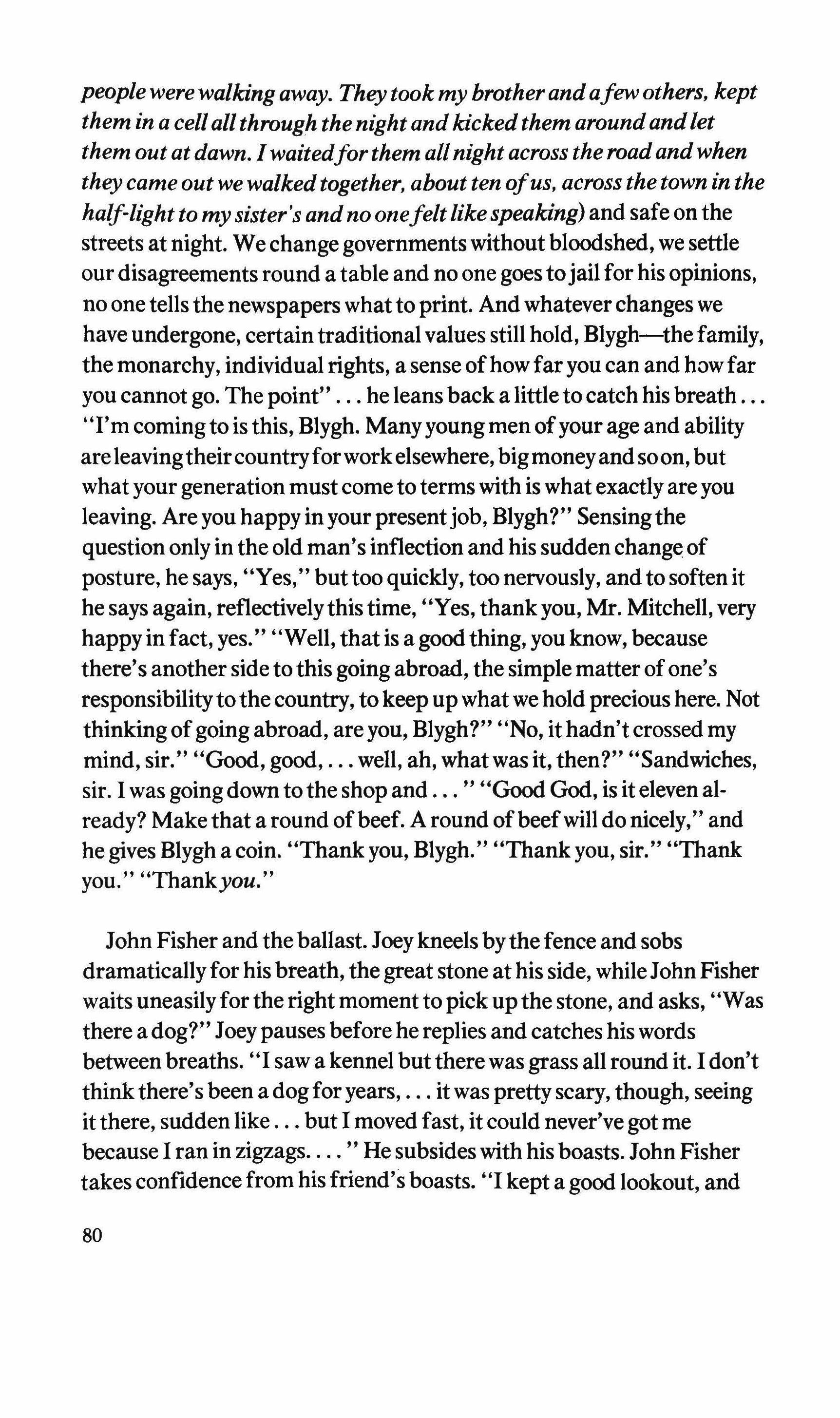
people were walking away. They took my brotherandafewothers, kept them in a cellallthrough thenightandkickedthem aroundandlet them out at dawn. Iwaitedforthem allnight across theroadandwhen they came out we walkedtogether, about ten ofus, across the town in the half-light to my sister's and no onefeltlikespeaking) and safe on the streets at night. We changegovernments without bloodshed, we settle our disagreements round a table and no one goes tojail for his opinions, no one tells the newspapers what to print. And whateverchanges we have undergone, certaintraditional values still hold, Blygh-thefamily, the monarchy, individual rights, a sense ofhowfar you can and howfar you cannot go. The point" he leans back a little to catch his breath
•• I'm coming to is this, Blygh. Manyyoung men ofyour age and ability are leavingtheircountryforworkelsewhere,bigmoneyand so on, but what your generation must come to terms with is what exactly are you leaving. Areyou happyin your presentjob, Blygh?" Sensingthe questiononly in the old man's inflection and his sudden change of posture, he says, "Yes," but too quickly, too nervously, and to soften it he says again, reflectivelythis time, "Yes, thank you, Mr. Mitchell, very happy in fact, yes." Well, thatis a goodthing, you know, because there's another side to this goingabroad, the simple matter ofone's responsibilitytothe country, to keep upwhat we hold precious here. Not thinkingofgoing abroad, are you, Blygh?" "No, it hadn't crossed my d ""Good od 11 h h th ?" "S d h nun ,SIr. ,go, we ,a ,w at was It, en. an WlC es, sir. I was going down to the shop and "Good God, is iteleven already? Make that a round ofbeef. A round ofbeefwill do nicely," and he gives Blygh a coin. "Thank you, Blygh." "Thank you, sir." "Thank you." "Thankyou."
John Fisher and theballast. Joeykneels bythefence and sobs dramaticallyfor his breath, the great stone at his side, whileJohn Fisher waits uneasily for the right moment to pick up the stone, and asks, "Was there a dog?"Joeypauses before he replies and catches his words between breaths. "I saw a kennel butthere was grass all round it. I don't thinkthere's been a dogfor years, it was pretty scary, though, seeing itthere, sudden like but I moved fast, it could never've got me because I ran in zigzags He subsides with his boasts. John Fisher takes confidence from his friend's boasts. "I kept a good lookout, and
80
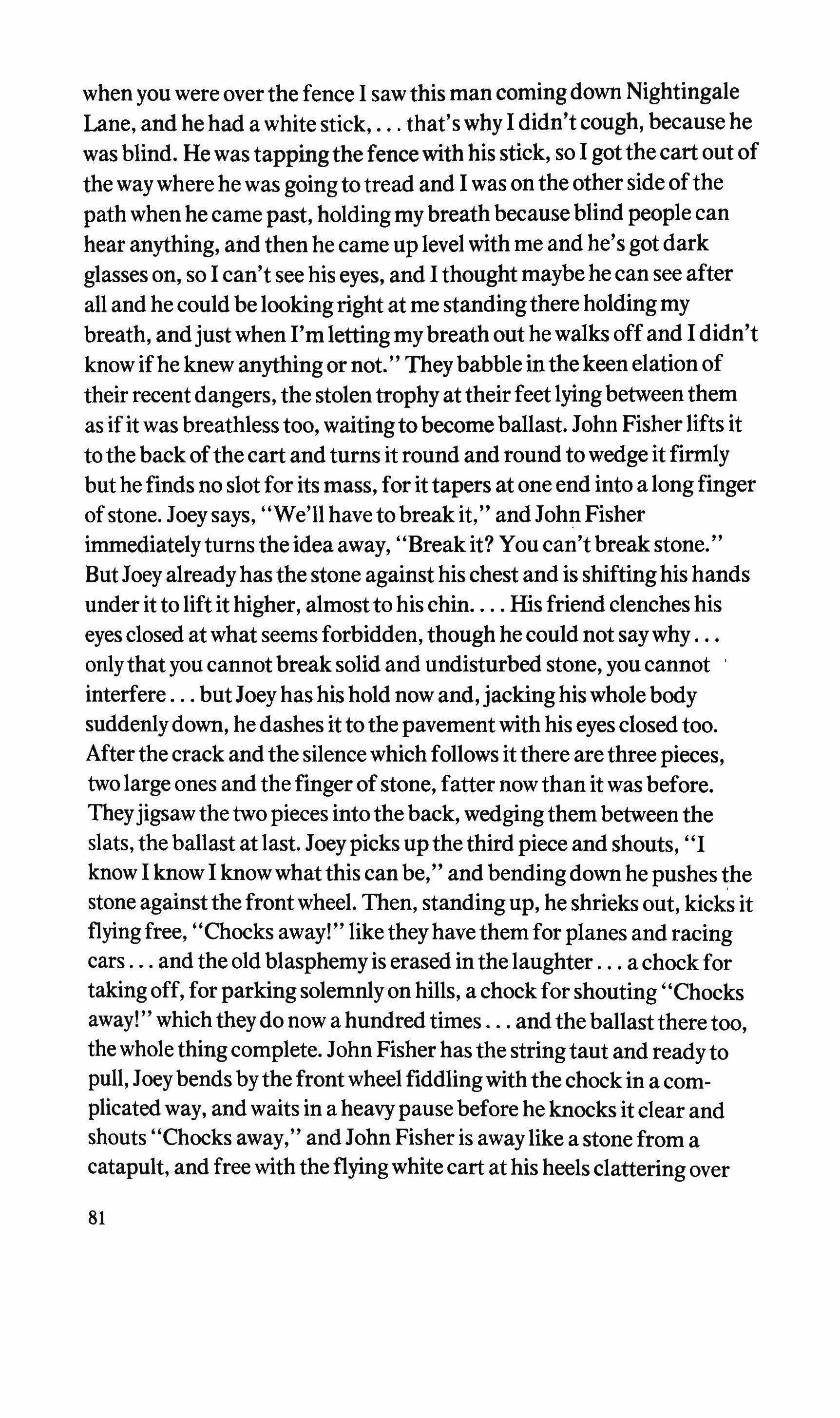
when you were over the fence I saw this man comingdown Nightingale Lane, and hehad a white stick, that's why I didn't cough, because he was blind. He was tappingthefence with his stick, so I gotthe cart out of thewaywhere he was goingto tread and I was on the other side ofthe path when he came past, holding my breath because blind people can hear anything, and then he came up level with me and he's got dark glasses on, so I can't see his eyes, and I thoughtmaybehe can see after all and hecould be lookingright at me standingthere holding my breath, andjustwhen I'm letting mybreath out hewalks offand I didn't know ifhe knew anything or not." Theybabble inthe keen elationof their recent dangers, the stolentrophy at theirfeetlyingbetween them as ifit was breathless too, waitingtobecome ballast. John Fisherlifts it to the back ofthe cart and turns it round and round to wedge itfirmly but he finds no slotfor its mass, for ittapers at one end into a longfinger of stone. Joey says, "We'll have tobreak it," and John Fisher immediatelyturns the idea away, "Break it? You can'tbreak stone." ButJoeyalready has the stone against his chest and is shiftinghis hands under it to lift it higher, almostto his chin His friend clenches his eyes closed at what seems forbidden, though he could not saywhy onlythat you cannot break solid and undisturbed stone, you cannot interfere butJoeyhas his hold now and,jackinghiswhole body suddenlydown, hedashes it tothe pavementwith his eyes closed too. Afterthe crack and the silence which follows itthere are three pieces, two large ones and thefinger ofstone, fatter now than it was before. Theyjigsawthe two pieces intotheback, wedgingthem between the slats, theballast at last. Joeypicks upthethird piece and shouts, "I know I knowI knowwhatthis can be," and bending down he pushes the stone againstthefrontwheel. Then, standing up, he shrieks out, kicks it flyingfree, "Chocks away!" like theyhavethem for planes and racing cars and the old blasphemyis erased in thelaughter a chock for takingoff, for parkingsolemnly on hills, a chock for shouting''Chocks away!" which they do now a hundred times and the ballastthere too, the whole thingcomplete. John Fisher hasthe stringtaut and readyto pull, Joeybends bythe frontwheel fiddlingwith thechock in a complicated way, and waits in a heavy pause before he knocks it clear and shouts "Chocks away," and John Fisher is awaylike a stone from a catapult, and free with theflyingwhite cart at his heels clattering over
81
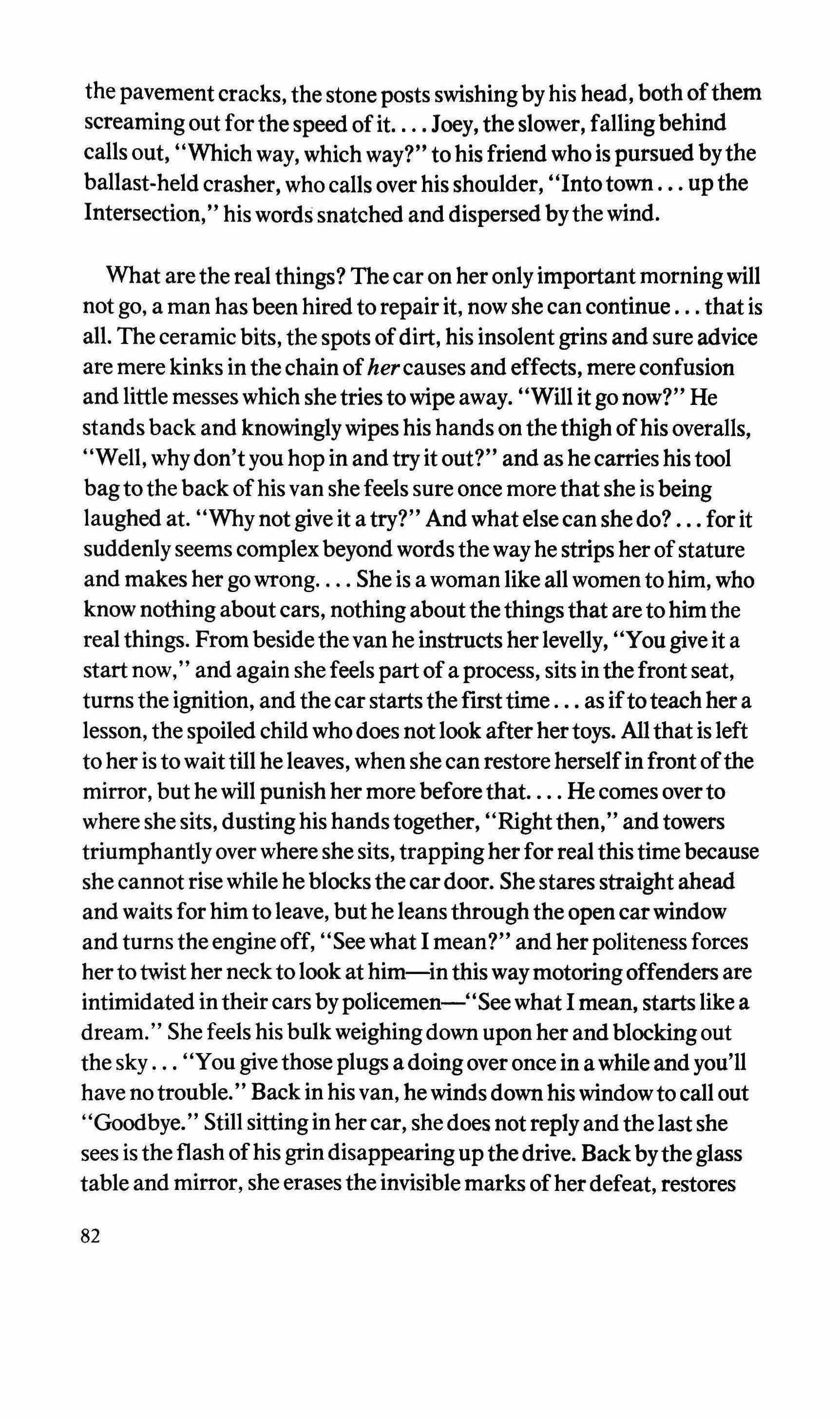
the pavementcracks, the stone posts swishingby his head, both ofthem screaming out forthe speed ofit Joey, the slower, fallingbehind calls out, "Which way, which way?" to his friend who is pursuedbythe ballast-held crasher, whocalls over his shoulder, "Intotown up the Intersection," his words snatched and dispersedbythe wind.
What are the real things? The car on heronlyimportantmorningwill not go, a man has been hired to repairit, now she can continue that is all. The ceramic bits, the spots ofdirt, his insolent grins and sure advice are mere kinks in the chain ofher causes and effects, mere confusion and little messes which she tries to wipe away. "Will it go now?" He stands back and knowinglywipes his hands on thethigh ofhis overalls, "Well, whydon't you hop in and tryit out?" and as he carries his tool bagto the back ofhis van she feels sure once more that she is being laughed at. "Why not give it a try?" And what else can shedo? for it suddenly seems complexbeyond words the way he strips herofstature and makes her go wrong She is a woman like all women to him, who know nothing about cars, nothing aboutthethings that are to himthe real things. From besidethe van he instructs herlevelly, "You give it a start now," and again she feels part of a process, sits in thefront seat, turns the ignition, and the car starts thefirsttime as iftoteach her a lesson, the spoiled child whodoes not look afterhertoys. Allthat is left to her is to waittill he leaves, when she can restore herselfinfront ofthe mirror, but he will punish her more before that. He comes over to where she sits, dustinghis hands together, "Rightthen," and towers triumphantly over where she sits, trappingher forreal thistime because she cannot rise while he blocksthe car door. She stares straight ahead and waits for him to leave, but he leans through the open car window and turns theengine off, "See what I mean?" and herpoliteness forces herto twist her neck to look at him-in this waymotoringoffenders are intimidated intheir cars bypolicemen-" Seewhat I mean, starts like a dream." She feels his bulk weighing down upon her and blocking out the sky ' 'You givethose plugs a doing over once in a while and you'll have no trouble." Back inhis van, he winds down his windowto call out "Goodbye." Still sittingin her car, she does not reply and thelast she sees is the flash ofhis grindisappearingup the drive. Back bythe glass table and mirror, she erases theinvisible marks ofherdefeat, restores
82
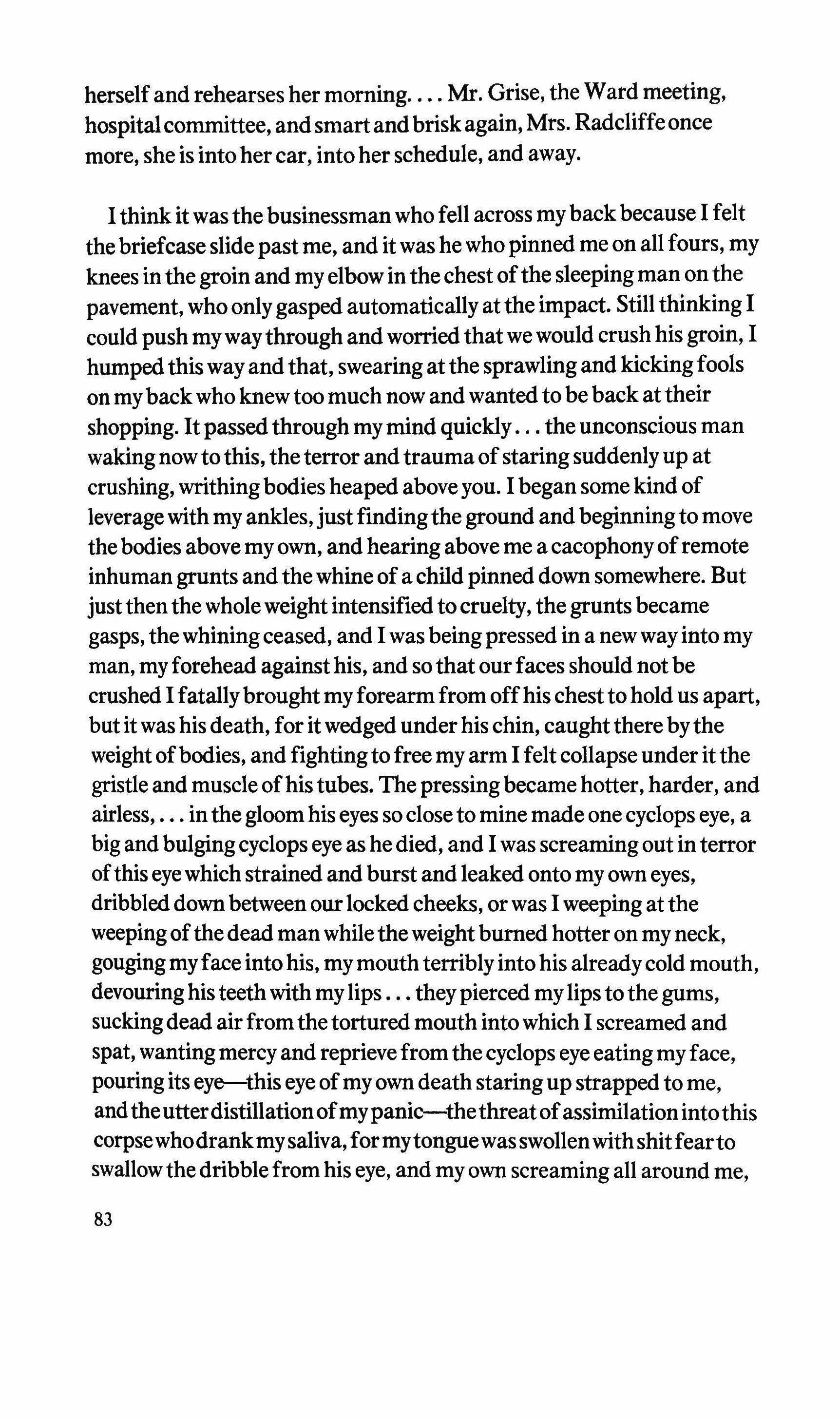
herselfand rehearses her morning Mr. Grise, the Ward meeting, hospitalcommittee, andsmart andbriskagain, Mrs. Radcliffe once more, she is into her car, intoher schedule, and away.
I think it was thebusinessman whofell across my back because I felt thebriefcase slide past me, and it was he whopinned me on all fours, my knees in the groin and myelbow in thechest ofthe sleeping man on the pavement, whoonlygaspedautomatically at the impact. Still thinking I could push mywaythrough andworriedthat we would crush his groin, I humpedthis way and that, swearing atthe sprawling and kickingfools on mybackwho knewtoo much now and wanted to be back at their shopping. Itpassedthrough my mind quickly the unconscious man waking now to this, theterror and trauma ofstaringsuddenlyup at crushing,writhingbodies heaped aboveyou. I began some kind of leveragewith my ankles,justfindingthe ground and beginningto move thebodies above my own, and hearing above me a cacophonyofremote inhuman grunts andthewhine of a child pinned down somewhere. But justthenthewhole weightintensified to cruelty, the grunts became gasps, thewhiningceased, and I was beingpressed in a new way into my man, my forehead againsthis, and so that our faces should not be crushed I fatallybrought myforearmfrom offhis chest to hold us apart, but it was his death, for itwedged underhis chin, caughttherebythe weightofbodies, and fighting to free my arm I felt collapse underitthe gristle and muscle ofhistubes. Thepressingbecame hotter, harder, and airless, in thegloomhis eyes so close to minemade one cyclops eye, a big and bulgingcyclops eye as he died, and I was screaming out in terror ofthis eye which strained and burst and leaked onto my own eyes, dribbled downbetween our locked cheeks, or was I weeping at the weepingofthedead man whiletheweightburned hotter on my neck, gougingmyfaceintohis, mymouthterriblyintohis alreadycold mouth, devouringhisteethwith mylips theypierced mylips to the gums, suckingdead airfromthetortured mouth intowhich I screamed and spat, wanting mercy and reprievefrom thecyclops eye eating myface, pouringits eye-this eye ofmy own death staring up strapped to me, andtheutterdistillationofmypanic-thethreatofassimilationintothis corpsewhodrankmysaliva, formytonguewas swollenwithshitfearto swallowthedribblefrom his eye, and my own screaming all around me,
83
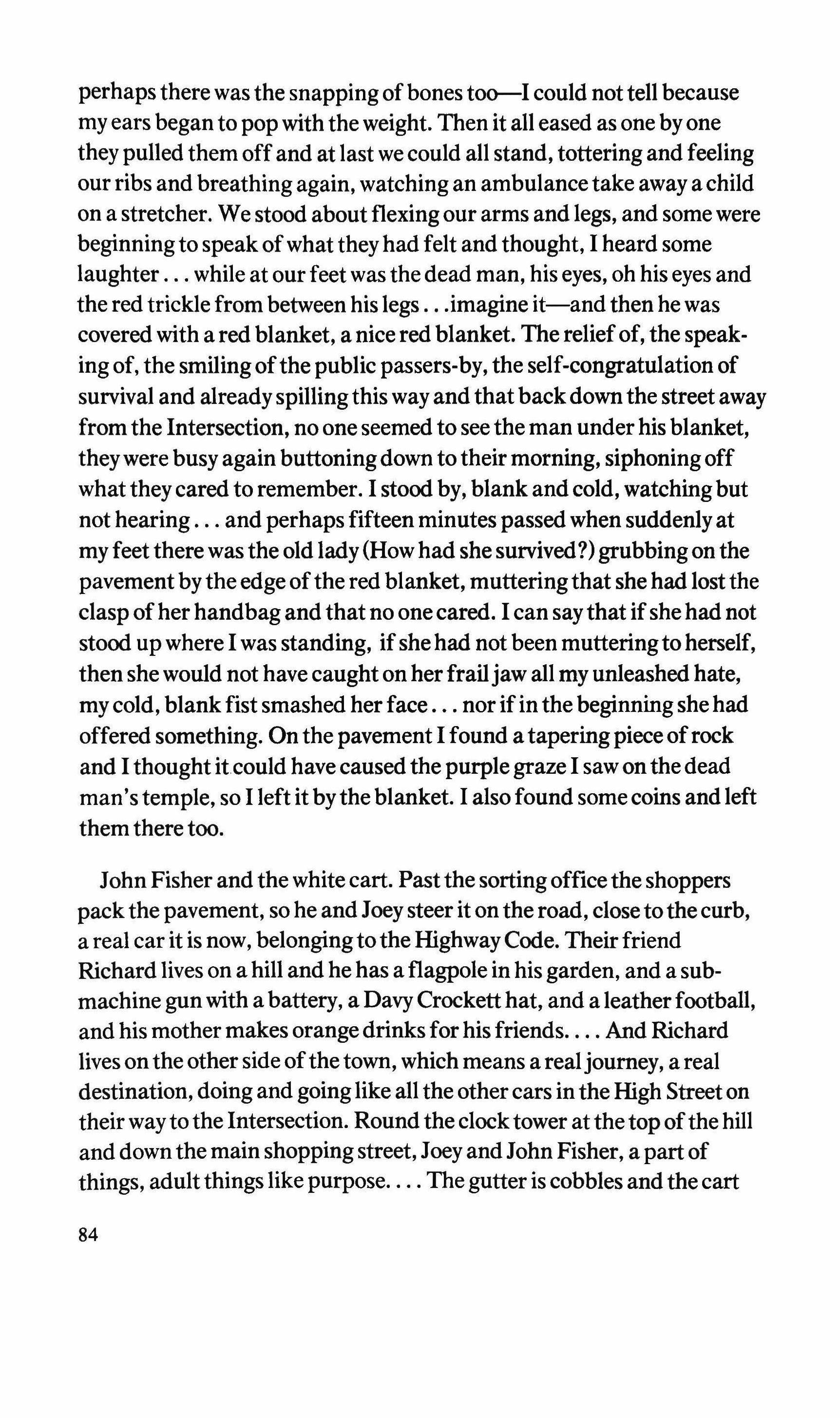
perhaps there was the snapping of bones too-l could not tell because my ears began to pop with the weight. Then it all eased as one by one theypulled them offand at last we could all stand, tottering and feeling our ribs and breathingagain, watching an ambulancetake away a child on a stretcher. We stood about flexing our arms and legs, and some were beginning to speak ofwhat theyhad felt and thought, I heard some laughter while at our feet was the dead man, his eyes, oh his eyes and the red trickle from between his legs imagine it-and then he was covered with a red blanket, a nice red blanket. The reliefof, the speakingof, the smilingofthe public passers-by, the self-congratulation of survival and alreadyspillingthis way and thatbackdownthe street away fromthe Intersection, no one seemed to see the man under his blanket, they were busyagainbuttoningdown to their morning, siphoningoff what theycared to remember. I stood by, blank and cold, watchingbut not hearing and perhaps fifteen minutes passed when suddenly at my feetthere was the old lady(How had she survived?) grubbing on the pavementby the edge ofthe red blanket, mutteringthat she had lostthe clasp ofher handbag and that no one cared. I can saythat ifshe had not stood up where I was standing, ifshe had not been mutteringto herself, then she would not have caught on herfrailjaw all my unleashed hate, mycold, blank fist smashed her face nor ifinthe beginning she had offered something. On the pavement I found a taperingpieceofrock and I thought itcould have caused the purple graze I saw on thedead man's temple, so I left itbythe blanket. I also found some coins and left them there too.
John Fisher and the white cart. Pastthe sortingoffice the shoppers packthe pavement, so he and Joey steer it on the road, close tothecurb, a real car it is now, belongingtothe HighwayCode. Their friend Richard lives on a hill and he has a flagpole in his garden, and a submachine gunwith a battery, a Davy Crocketthat, and a leatherfootball, and his mother makes orangedrinks forhis friends And Richard lives on the other side ofthetown, which means a realjourney, a real destination, doing and goinglike all the other cars inthe High Street on their wayto the Intersection. Round the clocktower at thetop ofthe hill and down the main shopping street, Joey and John Fisher, a part of things, adultthings like purpose The gutter is cobbles and the cart
84
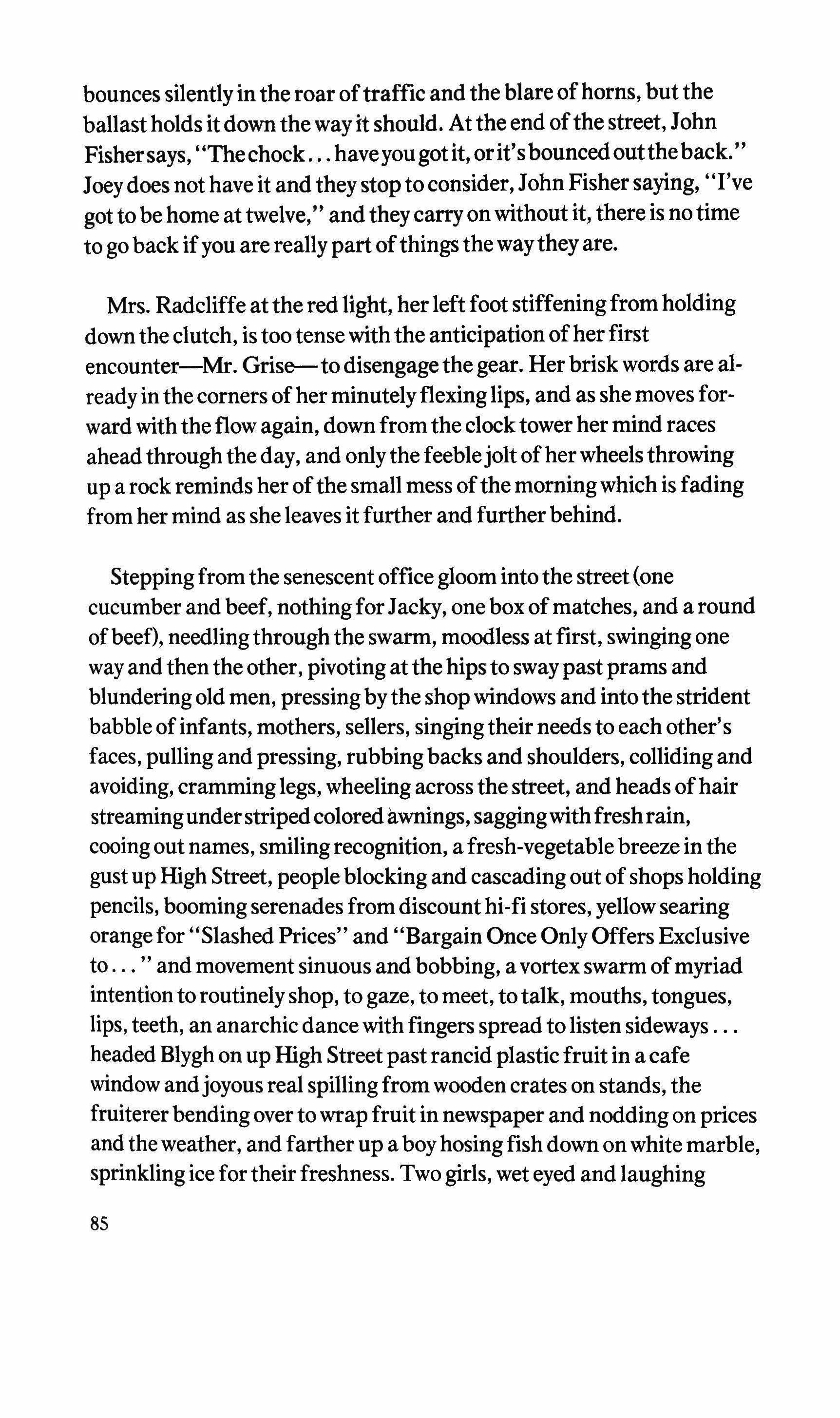
bounces silentlyinthe roar oftraffic and the blare ofhorns, butthe ballast holds itdown the way it should. At the end ofthe street, John Fishersays, "Thechock haveyougotit, orit'sbounced outtheback." Joeydoes not have it and theystop to consider, John Fisher saying, "I've got to be home at twelve," and they carry on without it, there is no time to goback ifyou are reallypart ofthingsthewaythey are.
Mrs. Radcliffe at the red light, herleft foot stiffeningfrom holding down the clutch, is too tense with the anticipation ofherfirst encounter-Mr. Grise-to disengagethe gear. Her brisk words are already in the corners ofherminutelyflexinglips, and as she moves forward with the flow again, down from the clock tower her mind races ahead through theday, and onlythe feeblejolt ofherwheels throwing up a rock reminds her ofthe small mess ofthe morningwhich is fading from her mind as she leaves it further and furtherbehind.
Steppingfromthe senescent office gloom intothe street (one cucumber and beef, nothing forJacky, one box ofmatches, and a round ofbeef), needlingthroughthe swarm, moodless at first, swinging one way and thenthe other, pivoting at thehips to sway past prams and blundering old men, pressingbythe shop windows and intothe strident babble ofinfants, mothers, sellers, singingtheir needs to each other's faces, pulling and pressing, rubbingbacks and shoulders, collidingand avoiding, cramminglegs, wheeling across the street, and heads ofhair streamingunderstripedcoloredawnings,saggingwithfreshrain, cooing out names, smilingrecognition, a fresh-vegetable breeze in the gust up High Street, peopleblocking and cascading out ofshopsholding pencils, booming serenades fromdiscount hi-fi stores, yellowsearing orange for "Slashed Prices" and "Bargain Once Only Offers Exclusive to and movement sinuous and bobbing, a vortex swarm ofmyriad intention to routinelyshop, to gaze, to meet, to talk, mouths, tongues, lips, teeth, an anarchic dancewith fingersspread to listen sideways headed Blygh on up High Street pastrancid plastic fruit in a cafe window andjoyous real spilling fromwooden crates on stands, the fruitererbending over to wrap fruit in newspaper and nodding on prices and the weather, and farther up a boyhosingfish down on white marble, sprinkling ice for theirfreshness. Two girls, wet eyed and laughing 8S
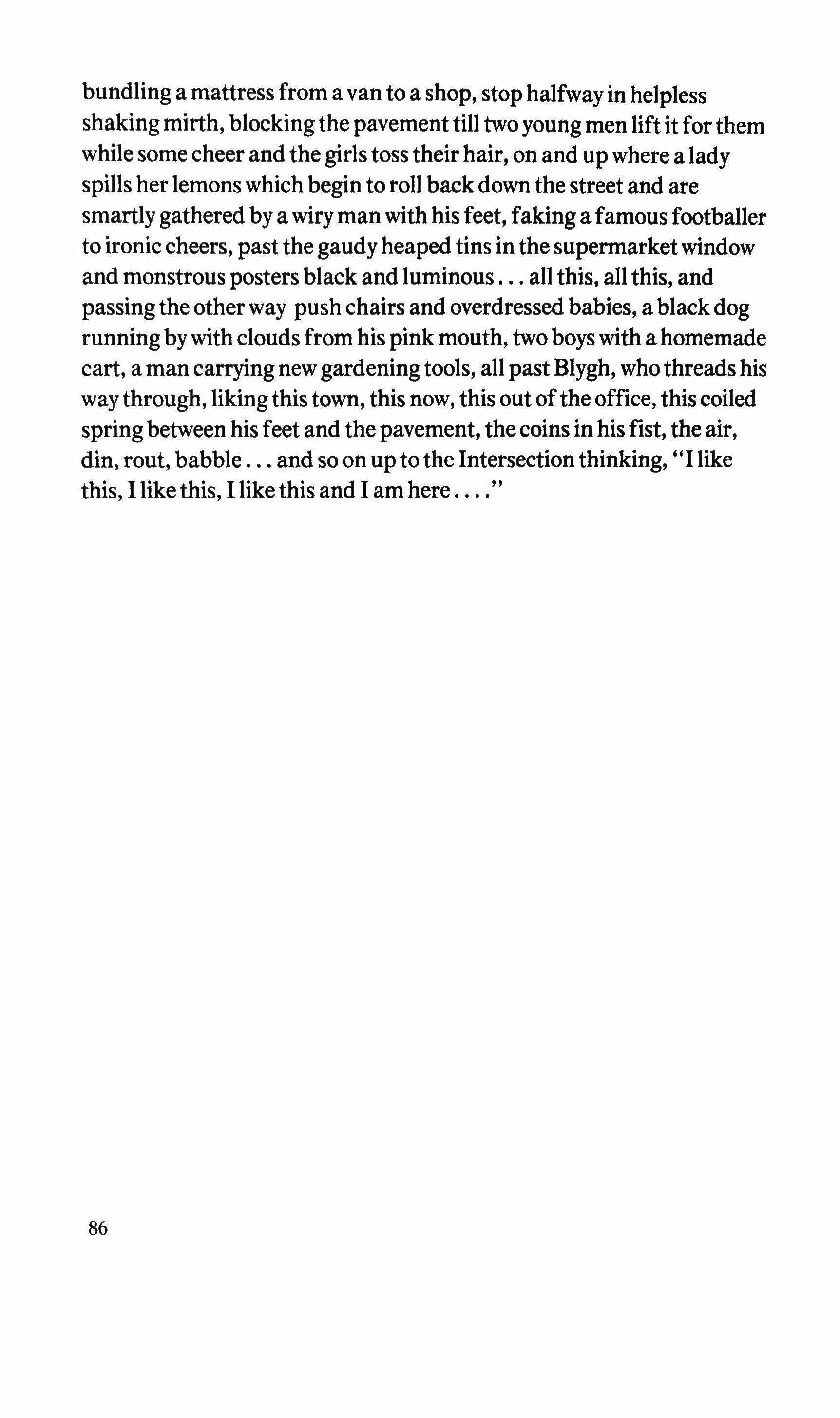
bundling a mattress from a van to a shop, stophalfwayin helpless shakingmirth, blockingthe pavement till two young men lift it forthem while some cheer and the girls toss their hair, on and upwhere a lady spills her lemons which begin to roll back down the street and are smartlygatheredby a wiry man with his feet, faking a famous footballer to ironic cheers, past the gaudyheaped tins in the supermarketwindow and monstrous posters black and luminous all this, all this, and passingthe other way push chairs and overdressed babies, a black dog runningbywith clouds from his pink mouth, two boys with a homemade cart, a man carrying new gardeningtools, all past Blygh, whothreads his way through, likingthis town, this now, this out ofthe office, this coiled springbetweenhis feet and the pavement, thecoins in his fist, the air, din, rout, babble and so on up to the Intersectionthinking, "I like this, I like this, I likethis and I am here
86
from 98.6
The children ofFrankenstein
Ronald Sukenick

It's one ofthose days one ofthose enchanted daysthatjustifies their idea. The skyisbluethe air crisp and theyknowthey'rerighttheironly regret is that more people don't see fit to get out ofit once and for all and livethis way. Some kind ofmagic is at work everyonegets along so well theydon't even need totalk theycommunicate byempathythere are days likethis lately. Peoplesing and whistle as theydo theirjobshug one another even Ralph is workingin thegarden. A pink Cadillac bobs down thedirt road like a boat on a choppy sea and stops in theclearingthe driver gets out a tallthin greying man in a greybusiness suit and steelrimmed glasses. Everyonestops what he'sdoingthe man looks around approaches Bud and Branch I'm lookingforGeorgehe says. What for they say. I'mhis father Heyit's Lance's father come on in Where's Lance at says Wind. NotLance George says Lance's father I'm George's father.
You used to be George's father say Bud and Branch. Nowyou're Lance's father.
Ohreally.
He's changed his name.
Oh really.
87 TriQuarterly
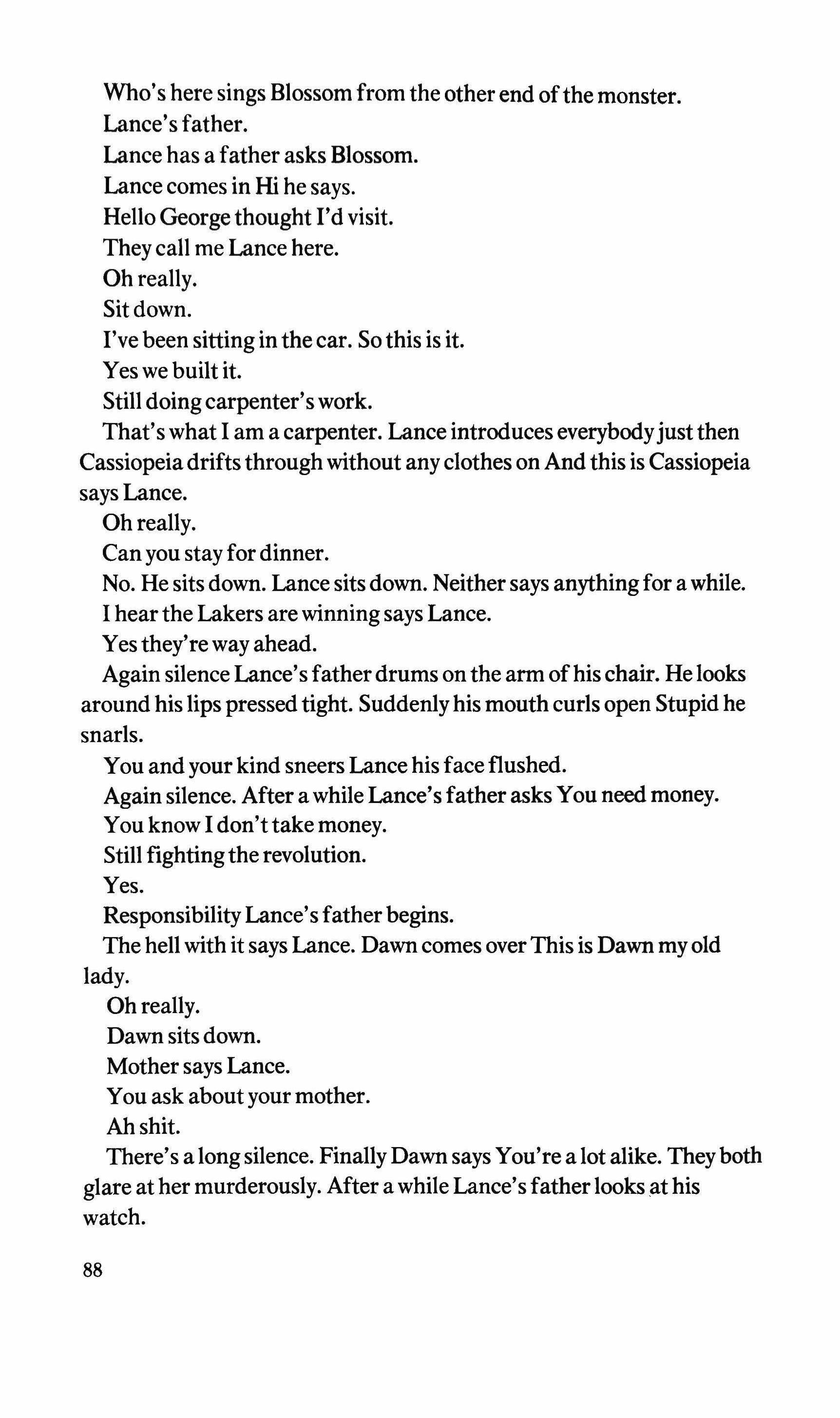
Who's here sings Blossom from the other end ofthe monster. Lance's father.
Lance has a father asks Blossom. Lance comes in Hi he says.
Hello Georgethought I'd visit. They call me Lance here.
Oh really. Sit down.
I've been sitting in the car. So this is it.
Yes we built it.
Still doingcarpenter'swork.
That's what I am a carpenter. Lance introduces everybodyjustthen Cassiopeiadrifts through without any clothes on And this is Cassiopeia says Lance.
Ohreally.
Can you stay for dinner.
No. He sits down. Lance sits down. Neither says anything for a while. I hearthe Lakers are winning says Lance.
Yes they'reway ahead.
Again silence Lance's fatherdrums on the arm ofhis chair. He looks around his lipspressedtight. Suddenlyhis mouth curls open Stupid he snarls.
You and your kind sneers Lance his faceflushed.
Again silence. After a while Lance's father asks You need money. You know I don't take money. Still fightingthe revolution.
Yes.
Responsibility Lance's fatherbegins.
The hell with it says Lance. Dawn comes over This is Dawn myoid lady.
Ohreally. Dawn sits down.
Mother says Lance. You ask about your mother. Ahshit.
There's a longsilence. Finally Dawn says You're a lot alike. Theyboth glare at her murderously. After a while Lance's fatherlooks at his watch.
88
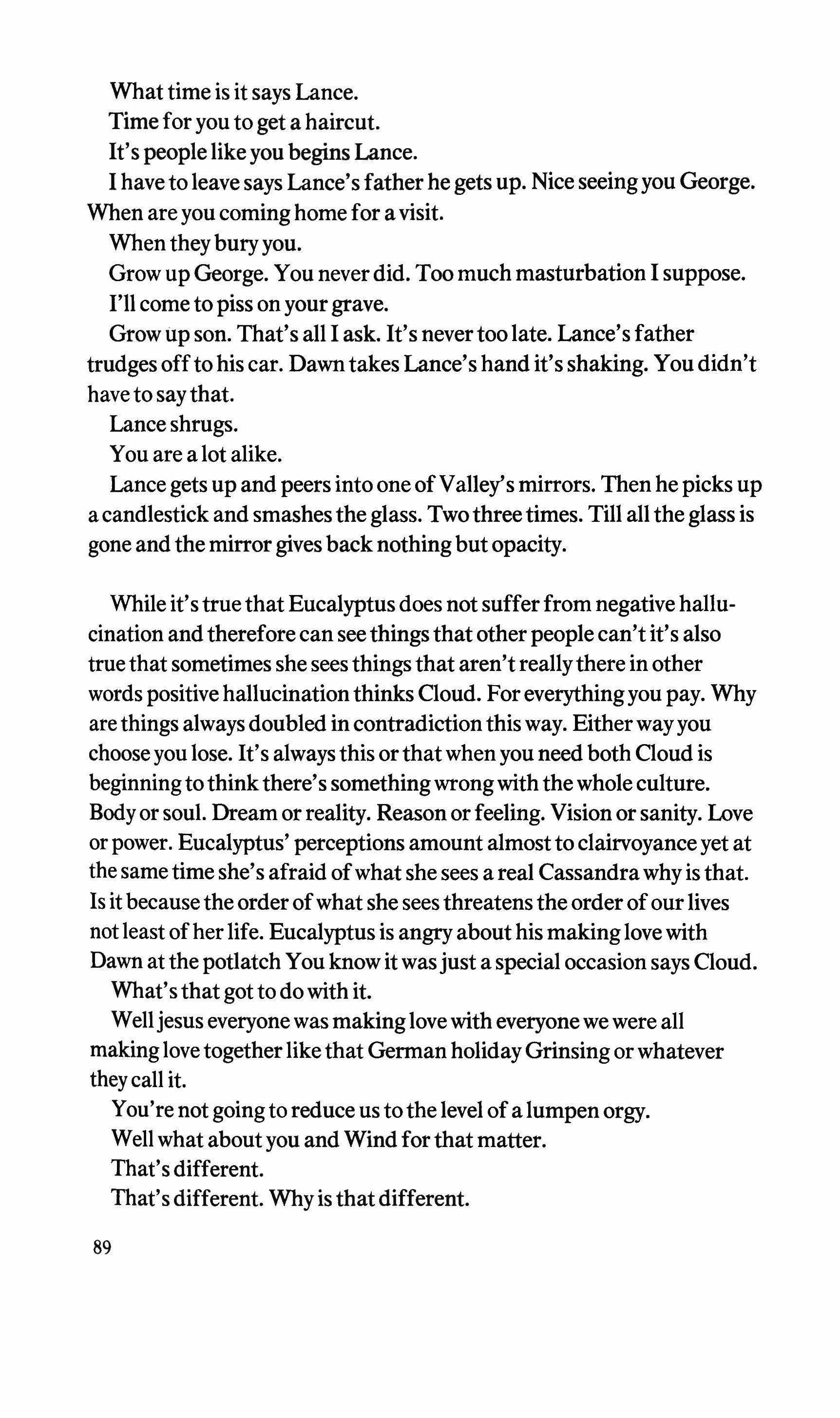
What time is it says Lance.
Timeforyou to get a haircut. It's peoplelike you begins Lance.
I have to leave says Lance's father he gets up. Nice seeingyou George. When are you coming home for a visit.
When theyburyyou.
Grow up George. You never did. Too much masturbation I suppose. I'll come to piss on yourgrave.
Grow up son. That's all I ask. It's never too late. Lance's father trudges offto his car. Dawntakes Lance's hand it's shaking. You didn't have to saythat.
Lance shrugs.
You are a lot alike.
Lance gets up and peers into one ofValley's mirrors. Then he picks up a candlestick and smashesthe glass. Twothreetimes. Till all theglass is gone and the mirror givesbacknothing butopacity.
While it's true that Eucalyptus does not suffer from negative hallucination and therefore can see thingsthat other people can'tit's also true that sometimes she sees things that aren't reallythere in other words positive hallucination thinks Cloud. Foreverythingyou pay. Why are thingsalways doubled in contradictionthis way. Eitherwayyou chooseyou lose. It's alwaysthis or that when you need both Cloud is beginningtothinkthere's somethingwrongwith thewhole culture. Body or soul. Dream or reality. Reason or feeling. Vision or sanity. Love or power. Eucalyptus' perceptions amount almost to clairvoyanceyet at the same time she's afraid ofwhat she sees a real Cassandrawhyis that. Is itbecausetheorderofwhat she sees threatens the orderof our lives not least ofherlife. Eucalyptus is angry about his makinglovewith Dawn at the potlatch You knowit was just a special occasion says Cloud. What'sthatgot to do with it.
Welljesus everyone was makinglove with everyone we were all makinglovetogether like that German holidayGrinsing or whatever they call it.
You're not going to reduce us tothe level of a lumpen orgy.
Well what about you and Wind forthat matter.
That's different.
That's different. Whyis that different.
89
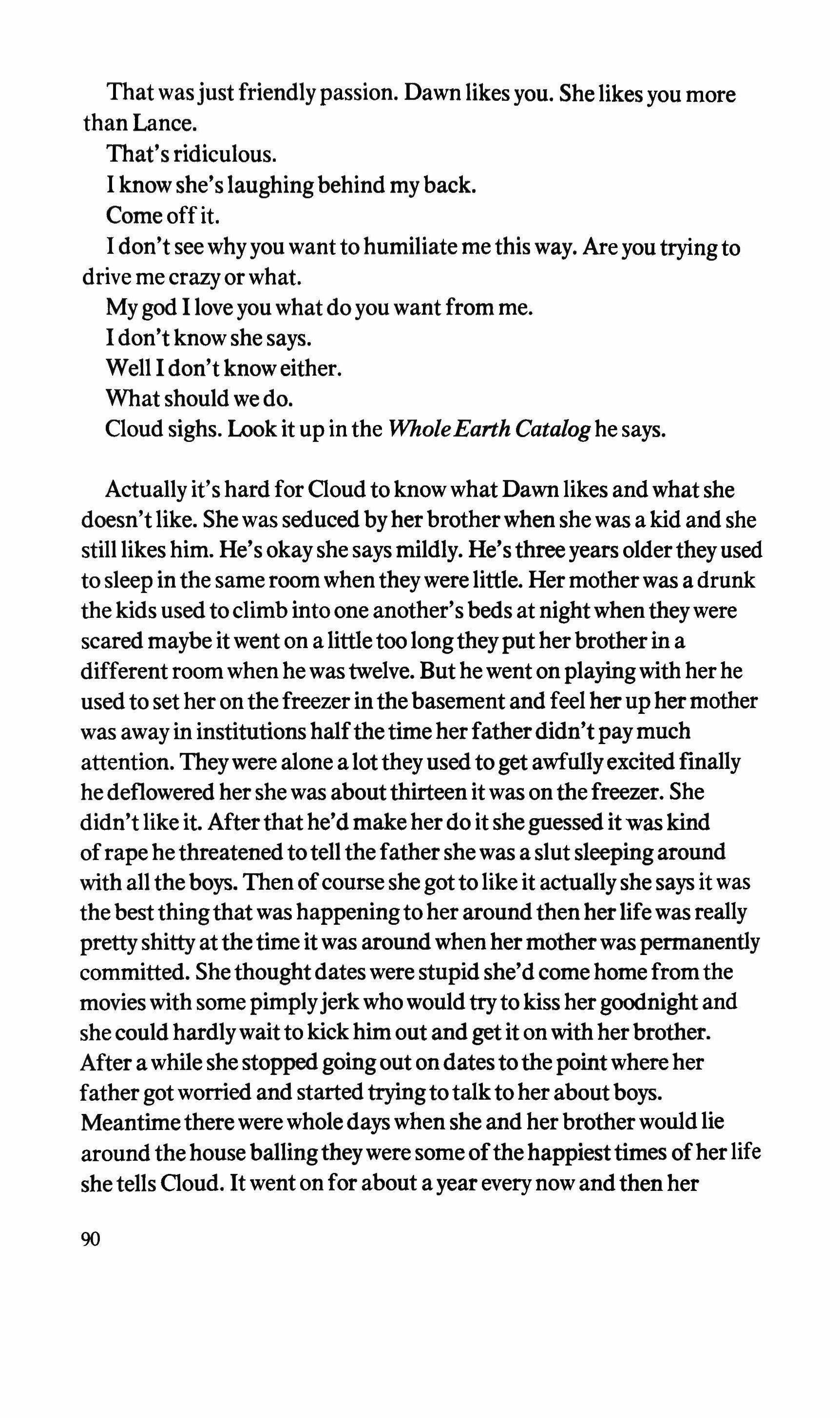
That was justfriendlypassion. Dawn likes you. She likes you more than Lance.
That's ridiculous.
I know she's laughingbehind my back. Come offit.
I don't see whyyou want to humiliate me this way. Are you trying to drive me crazy or what.
Mygod I loveyou what doyou want from me. I don't know she says. Well I don't knoweither. What should we do.
Cloud sighs. Look it up in the WholeEarth Cataloghe says.
Actually it's hard for Cloud to knowwhat Dawn likes andwhatshe doesn'tlike. She was seduced byherbrotherwhen she was a kid and she sti11likes him. He's okayshe says mildly. He's three years oldertheyused to sleep inthe same room when they were little. Her mother was a drunk the kids used to climb into one another's beds at nightwhenthey were scared maybe it went on a little too longtheyput herbrother in a different room when he was twelve. But he went on playingwith herhe used to set her on thefreezerinthebasement and feel her up hermother was away in institutions halfthetime herfatherdidn't paymuch attention. They were alone a lottheyused to get awfullyexcitedfmally he deflowered hershe was aboutthirteen it was on thefreezer. She didn'tlike it. Afterthathe'd makeherdo it sheguessed it was kind ofrapehe threatened totell thefather she was a slut sleepingaround with all theboys. Thenof course she gotto like it actuallyshe says it was thebestthingthat was happeningto her around thenherlife was really prettyshitty at thetime it was aroundwhen hermother was permanently committed. Shethoughtdates were stupid she'd come home fromthe movieswith some pimplyjerkwhowould tryto kiss hergoodnight and she could hardlywaitto kick him out and getit on withherbrother. After a while shestoppedgoingout on dates tothe pointwhere her father got worried and started tryingtotalkto her aboutboys. Meantimethere were wholedayswhen she and her brotherwould lie around thehouse ballingthey were some ofthehappiesttimes ofherlife shetells Cloud, It went on for about a year every now and then her
90
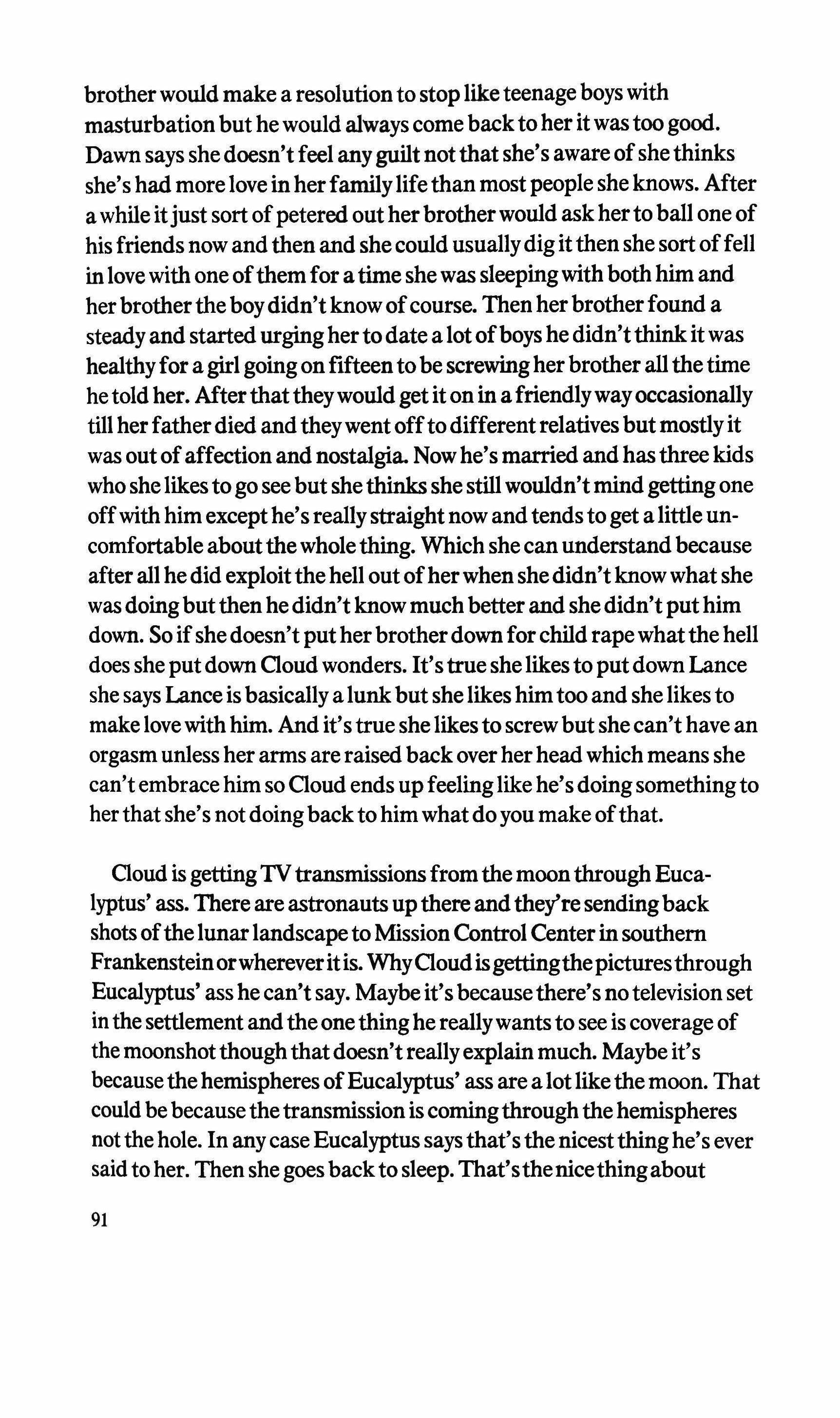
brotherwould make a resolution to stop like teenageboys with masturbationbut hewould always come backto her it was too good. Dawn says shedoesn'tfeel anyguilt not that she's aware ofshethinks she's had more love inherfamilylifethan most people she knows. After a whileitjust sort ofpetered outherbrotherwould askherto ball one of his friends now and then and shecould usuallydigitthen she sort offell inlovewith one ofthemfor a time she was sleepingwith both him and herbrothertheboydidn'tknowof course. Then herbrotherfound a steadyand started urginghertodate a lotofboys he didn'tthinkit was healthyfor a girlgoing on fifteen tobe screwingherbrother allthetime hetold her. Afterthattheywould getit on in a friendlywayoccasionally till herfatherdied andtheywent offto differentrelatives butmostlyit was out ofaffection and nostalgia. Now he's married andhasthree kids who shelikes togo see but shethinks she stillwouldn't mind getting one offwith him excepthe'sreallystraight now andtends to get a little uncomfortable aboutthewholething. Which she can understand because after all hedid exploitthehell out ofherwhen shedidn'tknow what she was doingbutthen hedidn't knowmuchbetter and shedidn'tput him down. So ifshedoesn't putherbrotherdown forchild rapewhatthehell does she putdown Cloud wonders. It'strue she likes to putdown Lance she says Lanceisbasically a lunkbut shelikes himtoo and shelikes to make lovewith him. And it's true shelikes to screw but she can't have an orgasm unless her arms are raised back over herhead which means she can'tembrace him so Cloud ends up feelinglike he'sdoingsomethingto herthat she's not doingback to himwhatdoyou make ofthat.
Cloud is gettingTV transmissionsfrom the moon through Eucalyptus' ass. There are astronauts upthereandthey'resendingback shots ofthelunarlandscape to Mission Control Centerinsouthern Frankensteinorwhereveritis. WhyOoudisgettingthepicturesthrough Eucalyptus' ass he can't say. Maybeit'sbecausethere's no television set inthesettlement andthe one thinghe reallywants to see is coverage of themoonshotthoughthatdoesn't reallyexplain much. Maybe it's becausethehemispheresofEucalyptus' ass are a lotlike the moon. That couldbe because thetransmissioniscomingthrough thehemispheres notthehole. In any case Eucalyptus saysthat'sthenicestthinghe's ever said to her. Then she goesbackto sleep. That'sthenicethingabout
91
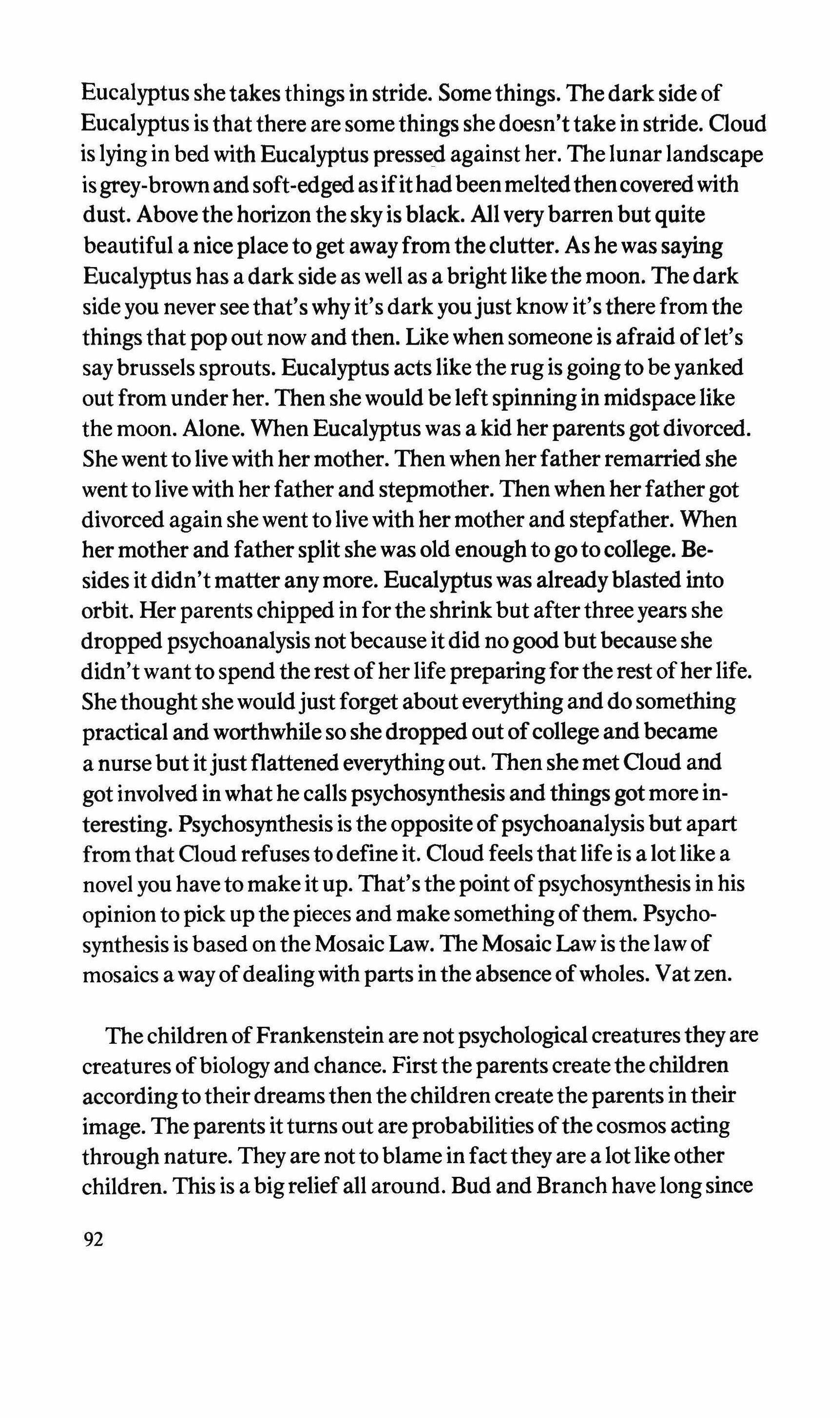
Eucalyptus she takes things in stride. Some things. The dark side of Eucalyptus is that there are some things she doesn'ttake in stride. Cloud is lying in bed with Eucalyptus pressed against her. The lunar landscape isgrey-brownandsoft-edged as ifithadbeenmeltedthencoveredwith dust. Above the horizon the skyis black. All verybarren but quite beautiful a nice place to get awayfrom theclutter. As he was saying Eucalyptus has a dark side as well as a bright likethe moon. The dark side you never see that's why it's dark youjust know it's there from the things that pop out now and then. Like when someone is afraid oflet's say brussels sprouts. Eucalyptus acts like the rug is goingto be yanked out from under her. Then she would be left spinning in midspacelike the moon. Alone. When Eucalyptus was a kid her parentsgot divorced. She went to livewith her mother. Then when herfather remarried she went to livewith her father and stepmother. Then when herfathergot divorced again she went to livewith hermother and stepfather. When her mother and father split she was old enough to goto college. Besides it didn't matter any more. Eucalyptus was alreadyblasted into orbit. Her parents chipped in forthe shrinkbut after threeyears she dropped psychoanalysis not because itdid no good but because she didn't wantto spend the rest ofher life preparingforthe rest ofherlife. She thought she wouldjustforget abouteverything and do something practical and worthwhile so she dropped out ofcollege and became a nurse but itjust flattened everything out. Then she met Cloud and got involved inwhathe calls psychosynthesis and thingsgot more interesting. Psychosynthesis is the opposite ofpsychoanalysis but apart from that Cloud refuses to define it. Cloud feels that life is a lot like a novel you have to make it up. That's the point ofpsychosynthesis in his opinion to pick up the pieces and make somethingofthem. Psychosynthesis is based on the Mosaic Law. The Mosaic Law is the lawof mosaics a way ofdealingwith parts inthe absenceofwholes. Vat zen.
The children ofFrankenstein are not psychological creatures they are creatures ofbiology and chance. Firsttheparents create the children accordingto theirdreamsthen the children create the parents in their image. The parents it turns out are probabilities ofthe cosmos acting through nature. They are not to blame in factthey are a lotlike other children. This is a bigreliefall around. Bud and Branch have longsince
92
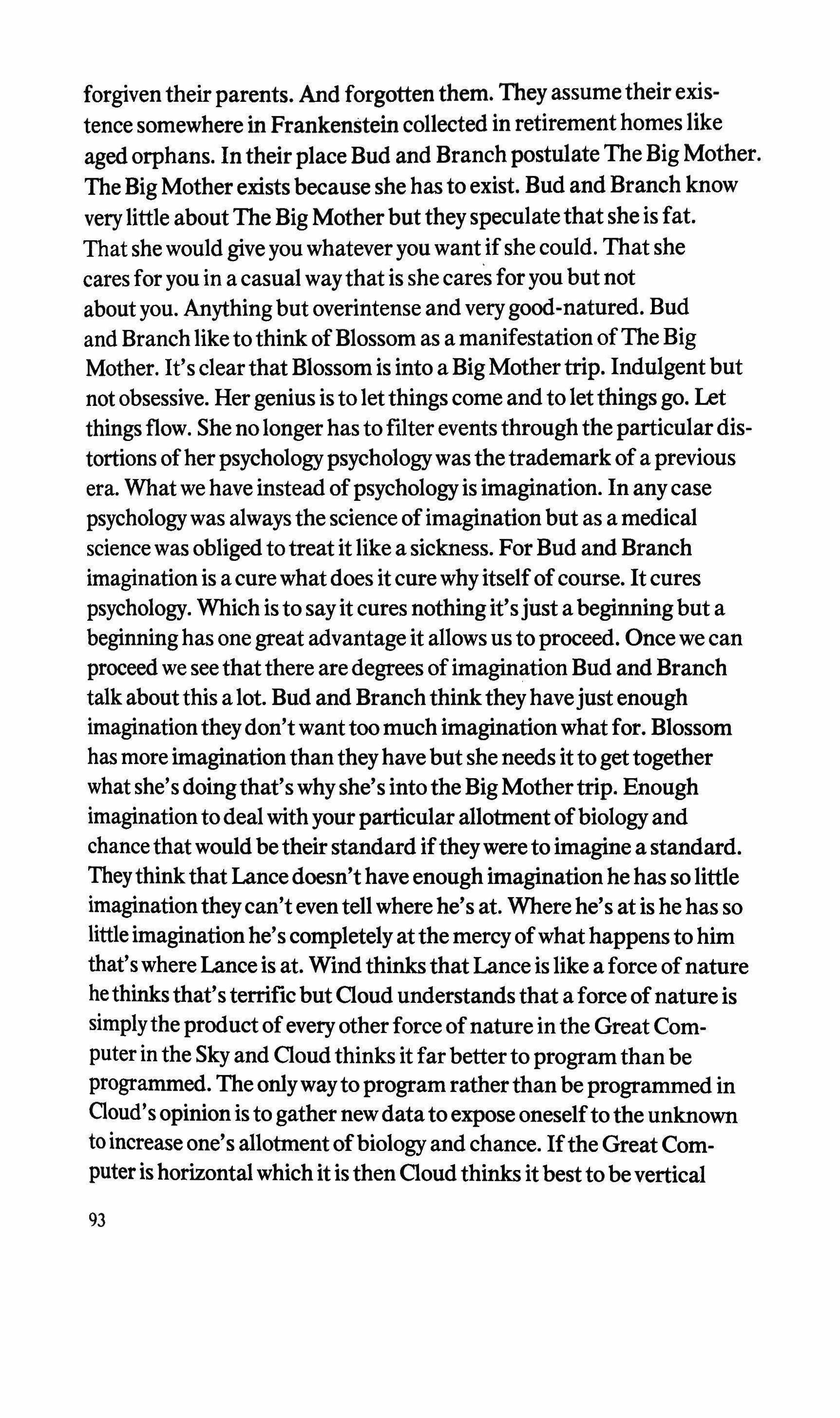
forgiven their parents. And forgotten them. They assume their existence somewhere in Frankenstein collected in retirement homes like agedorphans. In their place Bud and Branch postulate The Big Mother. The Big Mother exists because she has to exist. Bud and Branch know very little about The Big Motherbuttheyspeculatethat she is fat. That shewould give you whateveryou want ifshe could. That she cares for you in a casual waythat is she cares foryou but not aboutyou. Anythingbut overintense and verygood-natured. Bud and Branchliketo think ofBlossom as a manifestation ofThe Big Mother. It's clearthat Blossom is into a BigMothertrip. Indulgent but not obsessive. Her genius is to letthings come and to letthings go. Let thingsflow. She no longer has to filter events through the particular distortions ofherpsychologypsychology was thetrademark of a previous era. What we have instead ofpsychologyis imagination. In any case psychology was alwaysthe science ofimagination but as a medical science was obliged to treat it like a sickness. For Bud and Branch imaginationis a cure what does it cure whyitselfof course. It cures psychology. Which is to sayit cures nothing it'sjust a beginningbut a beginninghas one great advantage it allows us to proceed. Once we can proceed we see thatthere are degrees ofimagination Bud and Branch talkaboutthis a lot. Bud and Branch thinktheyhavejustenough imaginationtheydon'twanttoo much imaginationwhat for. Blossom has more imaginationthantheyhave but she needs it to gettogether what she's doingthat'swhyshe's intothe BigMothertrip. Enough imaginationtodeal with your particularallotmentofbiology and chancethatwould betheirstandard ifthey were to imagine a standard. Theythinkthat Lancedoesn't have enoughimaginationhe has so little imaginationtheycan't even tell where he's at. Wherehe's at is he has so little imaginationhe's completely atthe mercyofwhathappens to him that'swhere Lanceis at. Wind thinksthat Lance is like a force ofnature hethinksthat'sterrificbut Cloud understands that a force ofnature is simplythe productofeveryother force ofnature inthe Great Computer in the Sky and Cloud thinks it farbetterto programthan be programmed. Theonlywayto program ratherthan be programmed in Cloud'sopinionis to gather new datato expose oneselfto the unknown to increase one's allotment ofbiology and chance. Ifthe Great Computer ishorizontalwhichitisthen Cloud thinks itbest to bevertical
93
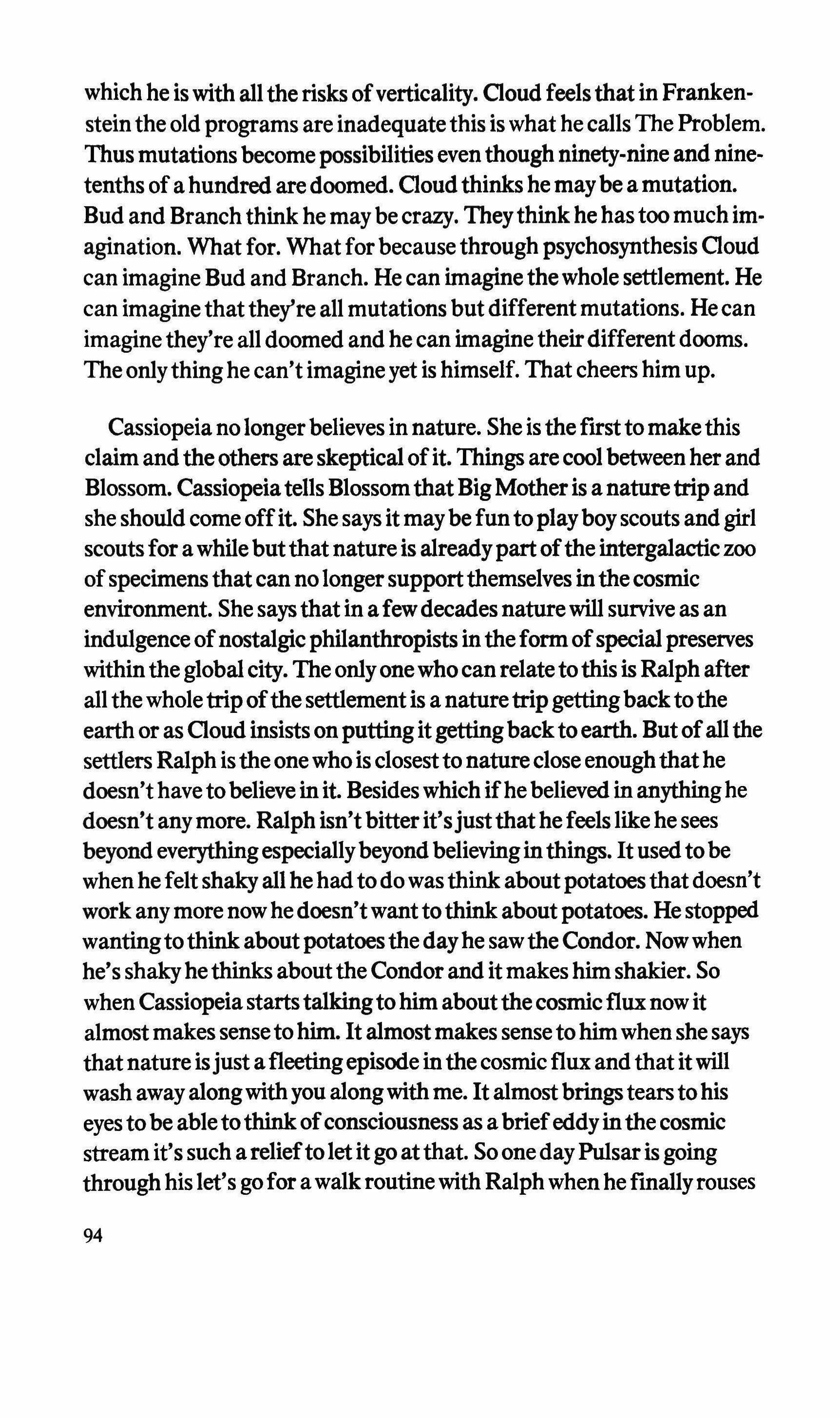
which he iswith allthe risks ofverticality. Cloud feelsthat in Frankensteinthe old programs are inadequatethis is what he calls The Problem. Thus mutations become possibilities even thoughninety-nine and ninetenths of a hundred are doomed. Cloudthinks he maybe a mutation. Bud and Branch think he maybe crazy. Theythink he has too much imagination. What for. What forbecause throughpsychosynthesis Cloud can imagine Bud and Branch. He can imaginethewhole settlement. He can imaginethatthey're all mutations but different mutations. He can imaginethey're all doomed and he can imaginetheirdifferent dooms. Theonlythinghe can't imagineyet is himself. That cheers him up.
Cassiopeia no longerbelieves in nature. She is the first to makethis claim andtheothers are skeptical ofit. Things are cool between her and Blossom. Cassiopeiatells BlossomthatBigMotheris a nature trip and she should come offit. She says itmaybefun to playboy scouts and girl scouts for a whilebutthat nature is alreadypartoftheintergalactic zoo ofspecimens that can no longersupportthemselves inthecosmic environment. She says that in a fewdecades naturewill survive as an indulgenceofnostalgicphilanthropists intheformofspecial preserves withinthe globalcity. The only onewho can relatetothis is Ralph after all thewholetripofthesettlementis a naturetripgettingbacktothe earth or as Cloud insists on puttingitgettingbackto earth. Butofallthe settlers Ralph isthe one whois closestto nature close enoughthathe doesn'thave tobelieveinit. Besides which ifhebelieved in anythinghe doesn't any more. Ralph isn'tbitterit'sjustthathefeels like he sees beyondeverythingespeciallybeyondbelievinginthings. It used tobe whenhefeltshaky all hehad to do was think aboutpotatoesthatdoesn't work any more now hedoesn'twanttothink about potatoes. He stopped wantingtothink aboutpotatoesthedayhe saw the Condor. Nowwhen he's shakyhethinks aboutthe Condor and itmakes himshakier. So when Cassiopeia startstalkingto him aboutthecosmicflux now it almost makes sense to him. It almostmakes sense to himwhen she says that nature isjust a fleetingepisode inthe cosmic flux and thatitwill wash away alongwith you alongwith me. It almostbrings tears tohis eyes tobe abletothinkofconsciousness as a briefeddyinthe cosmic stream it's such a relieftoletitgo atthat. So one dayPulsaris going through his let's gofor a walkroutine with Ralph whenhe finally rouses
94
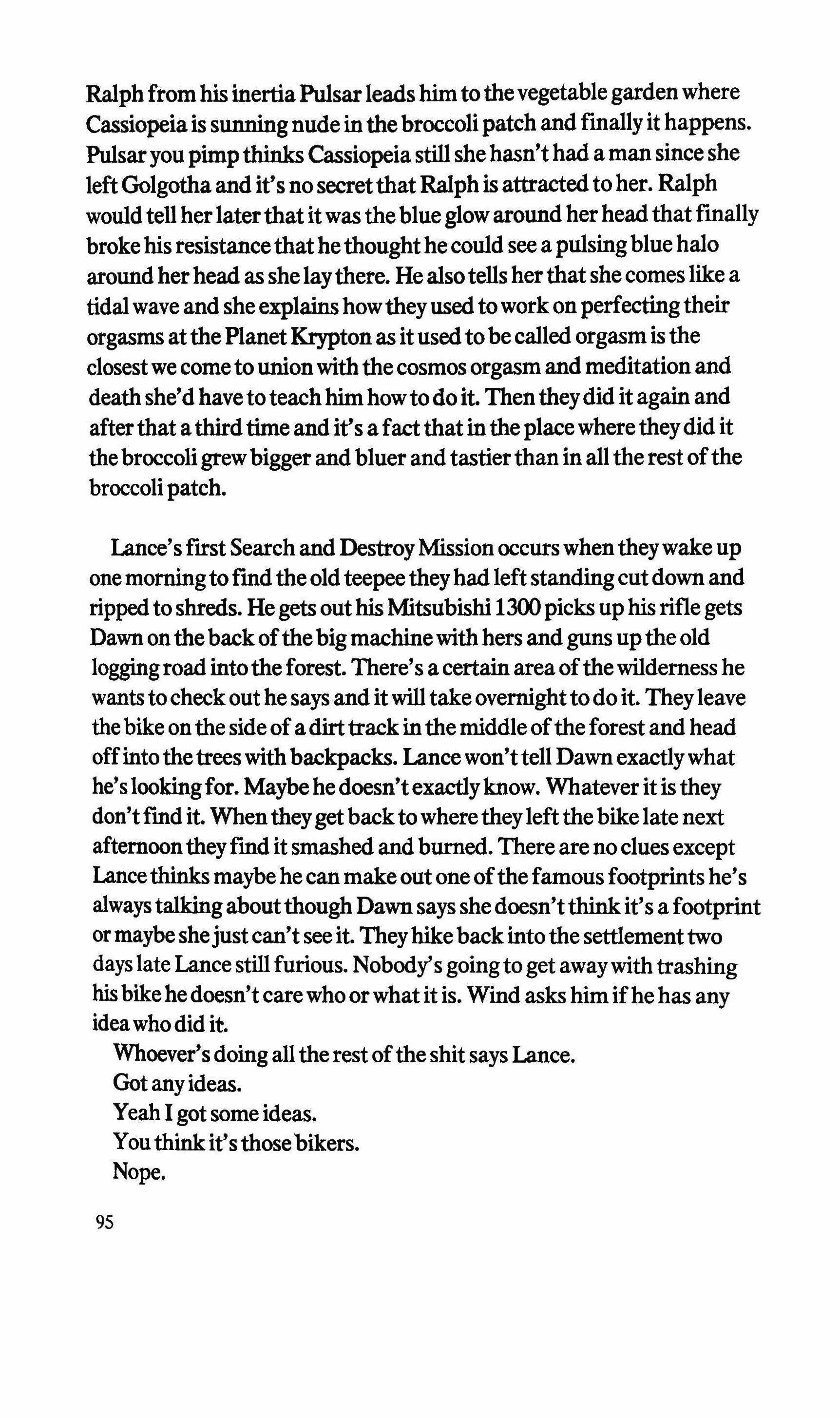
RalphfromhisinertiaPulsarleads him tothevegetablegardenwhere Cassiopeiais sunningnude inthebroccolipatch and finallyit happens. Pulsaryou pimpthinks Cassiopeia still shehasn'thad a man since she leftGolgotha and it's no secretthatRalph is attracted to her. Ralph wouldtell herlaterthatit was theblueglowaround herhead thatfinally brokehis resistancethathethoughthecould see a pulsingblue halo aroundherhead as shelaythere. He alsotells herthat she comes like a tidal wave and sheexplainshowtheyused towork on perfectingtheir orgasms atthePlanetKrypton as itused tobecalled orgasm is the closest we come to unionwiththe cosmos orgasm and meditation and death she'd have to teachhimhowto doit Thentheydid it again and afterthat a thirdtime and it's a factthatintheplacewheretheydid it thebroccoli grewbigger and bluer andtastierthan in all the rest ofthe broccolipatch.
Lance'sfirst Search and DestroyMission occurs whentheywake up one morningtofindtheoldteepeetheyhad left standing cutdown and ripped to shreds. Hegets out his Mitsubishi 1300picks uphisriflegets Dawn on theback ofthebigmachinewithhers and guns upthe old loggingroad intotheforest. There's a certain area ofthewilderness he wants tocheck out he says and itwill takeovernighttodoit. Theyleave thebike on the sideof a dirttrackinthe middle oftheforest and head offintothetreeswithbackpacks. Lancewon'ttell Dawnexactlywhat he'slookingfor. Maybehedoesn'texactlyknow. Whatever itisthey don'tfind it Whentheygetbacktowheretheyleftthebikelate next afternoontheyfind it smashed andburned. There are no clues except Lancethinks maybehe can make out one ofthefamousfootprintshe's alwaystalkingaboutthough Dawn says she doesn'tthinkit's a footprint or maybeshejustcan't see it. Theyhikebackintothe settlementtwo dayslate Lance still furious. Nobody'sgoingto get awaywithtrashing hisbikehedoesn't care who or whatit is. Wind asks him ifhe has any ideawhodid it.
Whoever'sdoing alltherest oftheshit says Lance. Got anyideas.
Yeah I got some ideas. Youthinkit'sthosebikers.
Nope.
95
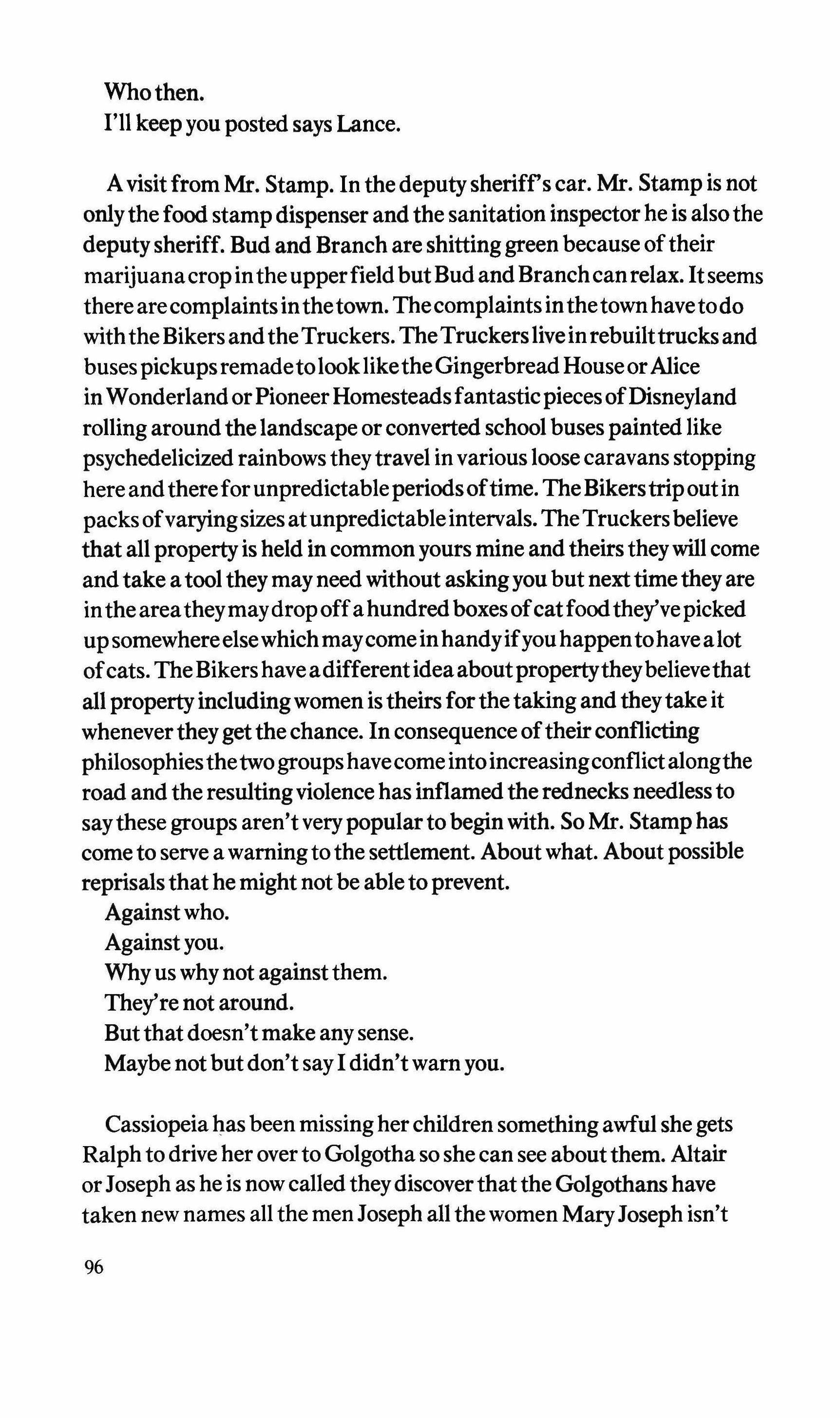
Whothen.
I'll keep you posted says Lance.
Avisitfrom Mr. Stamp. In the deputysheriffscar. Mr. Stamp is not onlythe food stampdispenser and the sanitation inspector he is alsothe deputysheriff. Bud and Branch are shirtinggreen because oftheir marijuanacropintheupperfield butBudand Branch can relax. It seems there are complaintsinthetown. Thecomplaintsinthetownhavetodo withtheBikersandtheTruckers. TheTruckersliveinrebuilttrucksand busespickupsremadetolookliketheGingerbread House or Alice inWonderland or Pioneer HomesteadsfantasticpiecesofDisneyland rolling around thelandscape or converted school buses painted like psychedelicized rainbows theytravel invarious loose caravans stopping hereandthereforunpredictableperiodsoftime. TheBikerstripoutin packsofvaryingsizes atunpredictableintervals. TheTruckersbelieve that all property is held in common yours mine and theirs theywill come and take a tool they may need without askingyoubut nexttimethey are inthe areatheymaydropoffa hundredboxesofcatfoodthey'vepicked upsomewhereelsewhichmaycome inhandyifyouhappentohave a lot ofcats. TheBikershave adifferentideaaboutpropertytheybelievethat all propertyincluding women istheirs forthetaking and theytakeit whenevertheygetthechance. In consequence oftheirconflicting philosophiesthetwogroupshave come intoincreasingconflictalongthe road and the resultingviolence has inflamed therednecks needless to saythese groups aren't very popular to begin with. So Mr. Stamp has come to serve a warningto the settlement. About what. About possible reprisalsthat he might not be able to prevent. Againstwho. Against you. Why us why not againstthem. They're not around. But thatdoesn'tmake any sense. Maybe not butdon't say I didn't warn you.
Cassiopeiahas been missingherchildren somethingawful she gets Ralph to driveher over to Golgotha so she can see aboutthem. Altair or Joseph as he is now called theydiscoverthatthe Golgothans have taken new names all the men Joseph all the women MaryJoseph isn't
96
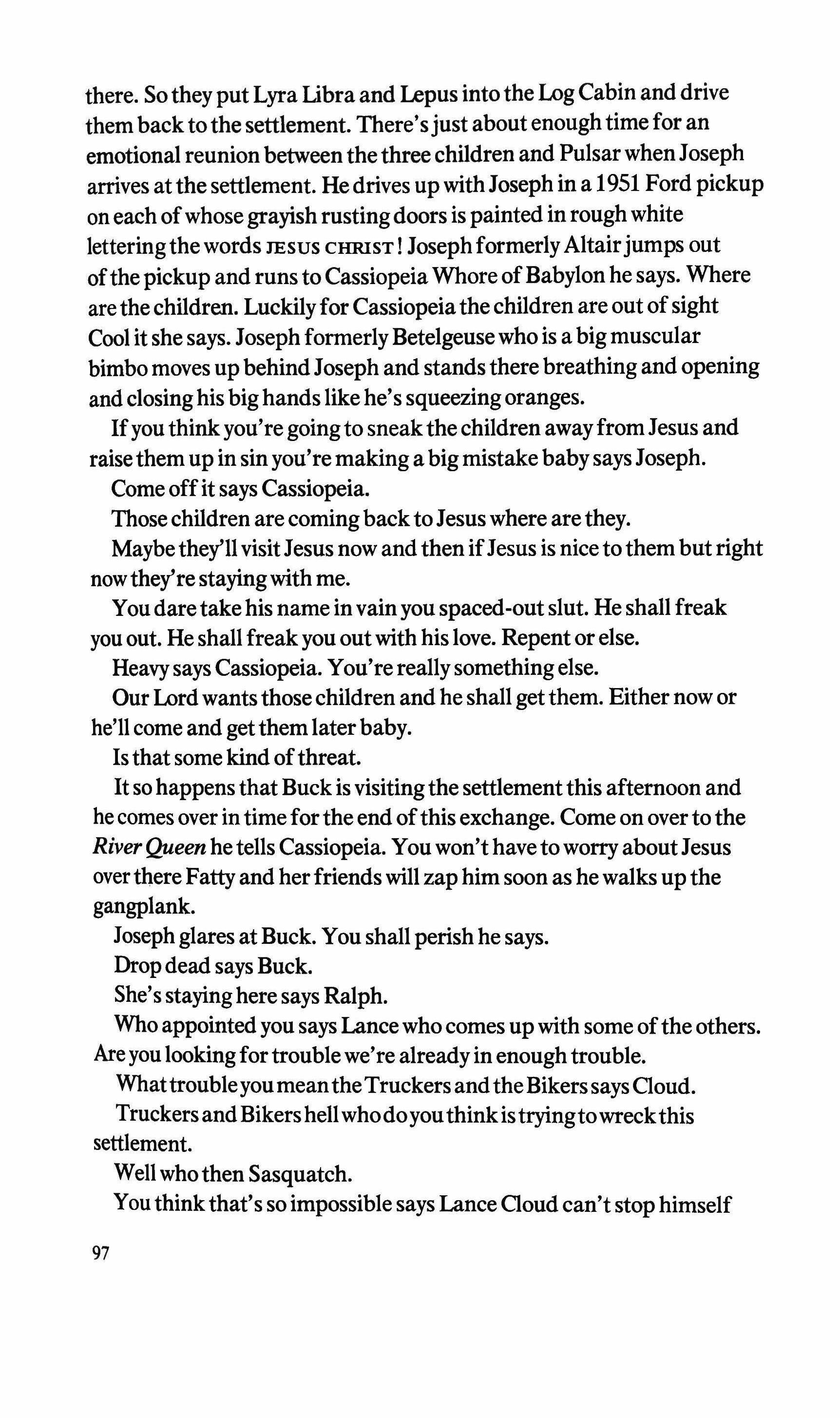
there. SotheyputLyra Libra and Lepus intothe Log Cabin and drive them back to the settlement. There'sjust about enough time for an emotional reunion between thethree children and Pulsarwhen Joseph arrives at the settlement. He drives up withJoseph in a 1951 Ford pickup on each ofwhosegrayishrustingdoors is painted inroughwhite letteringthewords JESUS CHRIST! JosephformerlyAltairjumps out ofthepickup and runs to CassiopeiaWhore ofBabylon he says. Where are thechildren. Luckilyfor Cassiopeiathe children are out ofsight Cool it she says. JosephformerlyBetelgeusewho is a big muscular bimbo moves up behind Joseph and stands there breathing and opening and closinghis big hands like he's squeezing oranges.
Ifyou thinkyou'regoingto sneakthe children awayfrom Jesus and raisethem up in sinyou'remaking a bigmistakebabysays Joseph. Come offit says Cassiopeia.
Those children are comingback to Jesus where are they.
Maybethey'll visitJesus now and then ifJesus is nice to them but right now they'restayingwith me.
You daretakehis name in vain you spaced-out slut. He shall freak you out. He shall freakyou out with his love. Repent or else.
Heavy says Cassiopeia. You're reallysomethingelse.
Our Lord wants thosechildren and he shall getthem. Either now or he'll come and getthem laterbaby.
Is that some kind ofthreat.
It so happens that Buck is visitingthe settlementthis afternoon and he comes over intime forthe end ofthis exchange. Come on over to the River Queen he tells Cassiopeia. You won't have to worry about Jesus over there Fatty and herfriends will zap him soon as hewalks up the gangplank.
Josephglares at Buck. You shall perish he says.
Dropdead says Buck.
She's stayinghere says Ralph.
Who appointed you says Lance who comes up with some ofthe others. Are you lookingfortroublewe're alreadyin enough trouble. Whattroubleyou meantheTruckers andtheBikerssays Ooud. Truckers andBikershellwhodoyouthinkistryingtowreckthis settlement.
Well whothen Sasquatch.
You thinkthat's so impossible says Lance Ooudcan't stop himself
97
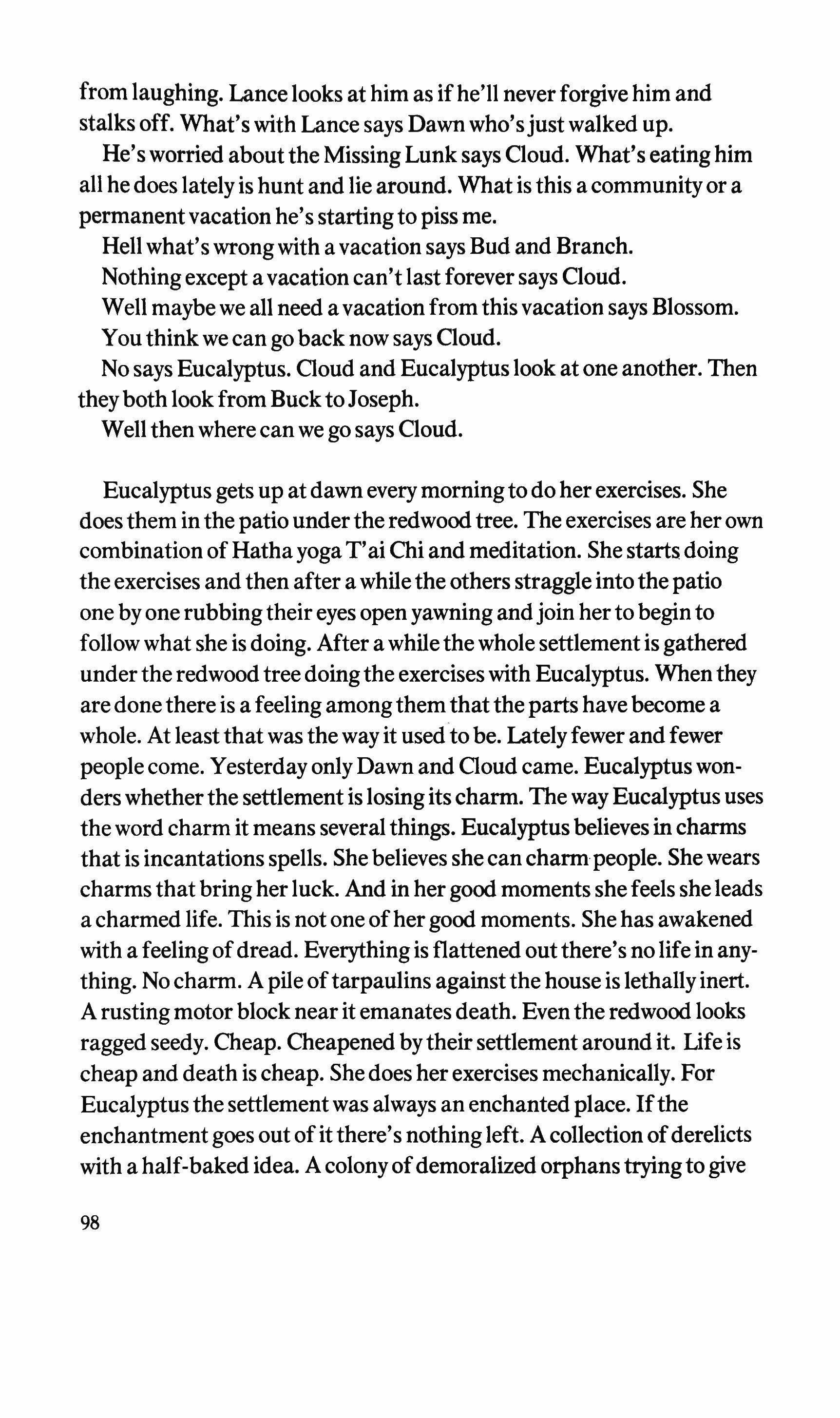
from laughing. Lance looks at him as ifhe'll never forgive him and stalks off. What's with Lance says Dawn who'sjust walked up. He's worried aboutthe Missing Lunk says Cloud. What's eating him all he does latelyis hunt and lie around. What is this a community or a permanentvacation he's startingto piss me.
Hell what's wrongwith a vacation says Bud and Branch. Nothingexcept a vacation can't last forever says Cloud.
Well maybe we all need a vacation fromthis vacation says Blossom.
You think we can go back now says Cloud.
No says Eucalyptus. Cloud and Eucalyptus look at one another. Then theyboth look from Buckto Joseph.
Well thenwhere can we go says Cloud.
Eucalyptus gets up at dawn every morning to do her exercises. She does them inthe patio underthe redwood tree. The exercises are her own combination of Hathayoga T'ai Chi and meditation. She starts doing the exercises and then after a whilethe others straggle into the patio one by one rubbingtheir eyes open yawning andjoin her to begin to follow what she is doing. After a whilethe whole settlement is gathered underthe redwood tree doingthe exercises with Eucalyptus. Whenthey are done there is a feeling among themthatthe parts havebecome a whole. At leastthat was the wayit usedto be. Latelyfewer and fewer people come. Yesterdayonly Dawn and Cloud came. Eucalyptus wonders whetherthe settlement is losingits charm. The way Eucalyptus uses the word charm it means several things. Eucalyptus believes in charms that is incantations spells. She believes she can charm people. She wears charms that bringher luck. And in hergood moments shefeels she leads a charmed life. This is not one ofhergood moments. She has awakened with a feeling ofdread. Everythingis flattened out there's no life in anything. No charm. A pile oftarpaulins against the house is lethally inert. A rusting motor block near it emanates death. Even the redwood looks raggedseedy. Cheap. Cheapenedbytheir settlement around it. Life is cheap and death is cheap. Shedoes her exercises mechanically. For Eucalyptus the settlement was always an enchanted place. Ifthe enchantment goes out ofitthere's nothingleft. Acollection ofderelicts with a half-baked idea. A colonyofdemoralized orphanstryingto give
98
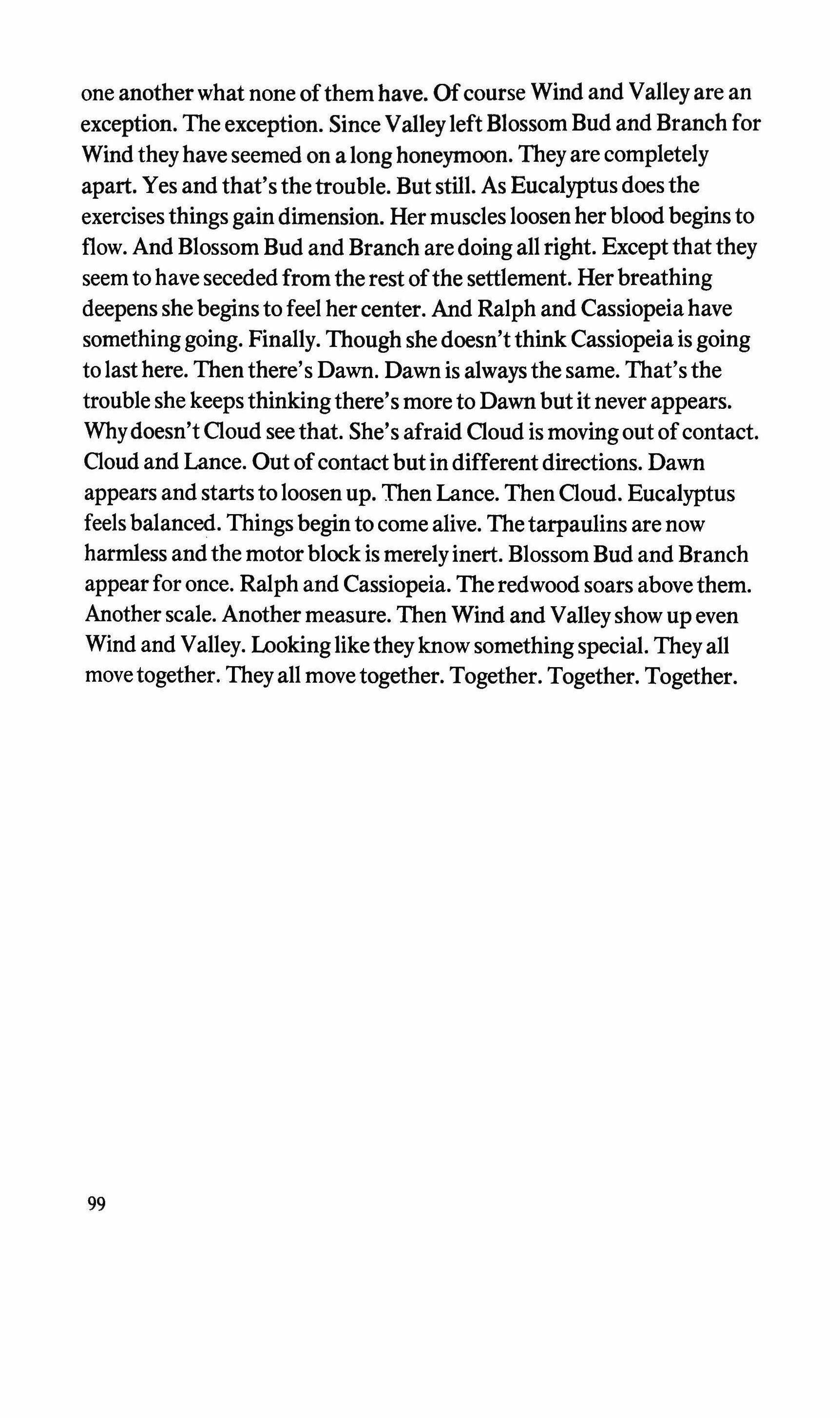
one anotherwhat none ofthemhave. Of course Wind and Valley are an exception. The exception. Since Valleyleft Blossom Bud and Branch for Wind theyhave seemed on a longhoneymoon. They are completely apart. Yes and that's thetrouble. But still. As Eucalyptus does the exercises thingsgain dimension. Hermuscles loosen her blood begins to flow. And Blossom Bud and Branch are doing all right. Exceptthatthey seem to have seceded fromthe rest ofthe settlement. Herbreathing deepens she begins to feel her center. And Ralph and Cassiopeiahave somethinggoing. Finally. Though she doesn'tthink Cassiopeiais going to lasthere. Then there's Dawn. Dawn is always the same. That'sthe trouble she keepsthinkingthere's more to Dawn butit never appears. Whydoesn't Cloud see that. She's afraid Cloud is moving out ofcontact. Cloud and Lance. Out ofcontact but in different directions. Dawn appears and starts to loosen up. Then Lance. Then Cloud, Eucalyptus feels balanced. Thingsbegin to come alive. Thetarpaulins are now harmless andthe motor block is merelyinert. Blossom Bud and Branch appearfor once. Ralph and Cassiopeia. The redwood soars above them. Another scale. Another measure. Then Wind and Valleyshow up even Wind and Valley. Lookinglikethey know somethingspecial. Theyall move together. Theyall move together. Together. Together. Together.
99
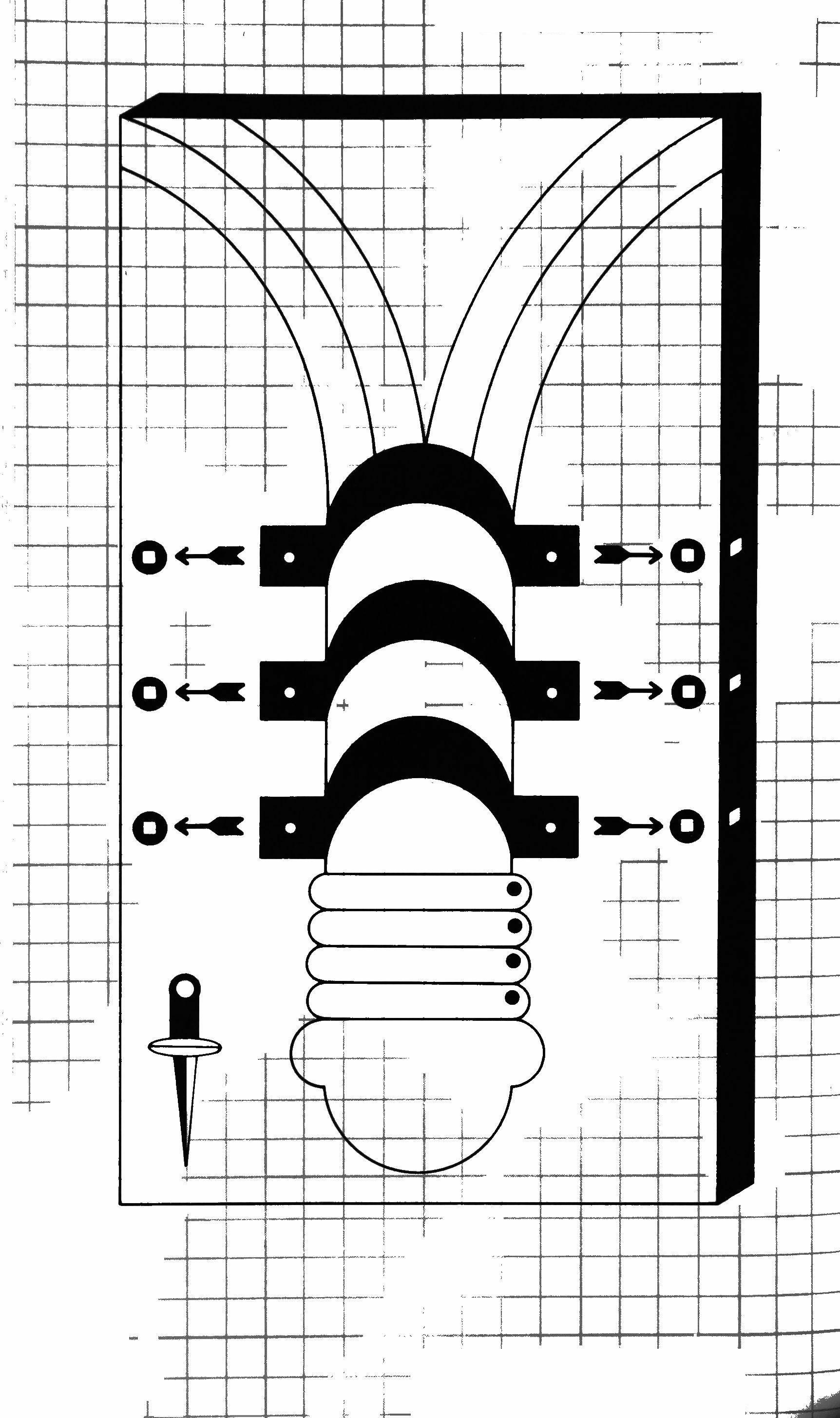
1 '!-Ii�-+----1-I--+-! -+----t---!-,t---ii i - -i---- t-- I ! i ---t-'-+---t--TI 0 e Ie t O e -'--1--,.., Oe. I +--.��f---t----j �----+----L.-I-+---r- I I 1
Miss Clarity and her unfortunate charisma
Eugene Wildman
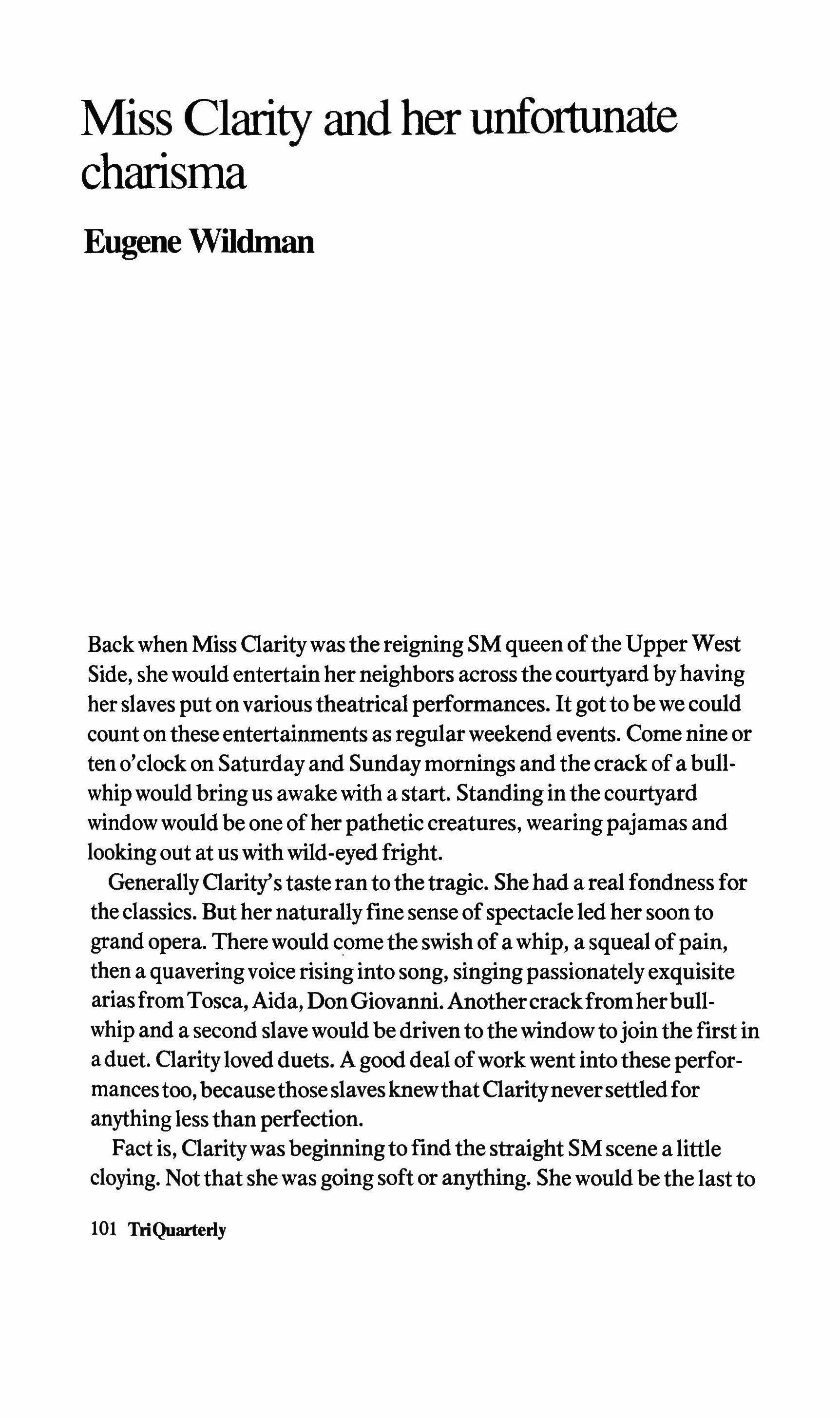
Back when Miss Clarity was the reigning SM queen ofthe Upper West Side, she would entertain herneighbors across the courtyardbyhaving herslaves put on various theatrical performances. It gotto be we could count on theseentertainments as regularweekend events. Come nine or ten 0'clock on Saturday and Sundaymornings and the crack of a bullwhipwould bring us awakewith a start. Standing in the courtyard windowwould be one ofher pathetic creatures, wearingpajamas and looking out at us withwild-eyedfright.
GenerallyGarity's taste ran to thetragic. She had a real fondness for theclassics. Buthernaturally fine sense ofspectacleled her soon to grand opera. There would come the swish of a whip, a squeal ofpain, then a quaveringvoice rising into song, singingpassionatelyexquisite ariasfromTosca,Aida, DonGiovanni.Anothercrackfromherbullwhip and a second slavewould be driven to thewindow tojoin thefirst in a duet. Garityloved duets. Agood deal ofwork went intothese performancestoo, becausethoseslavesknewthatGaritynever settledfor anythingless than perfection.
Fact is, Garity was beginningto find the straight SM scene a little cloying. Notthat she was going soft or anything. She would be the last to
101 TriQuanerly
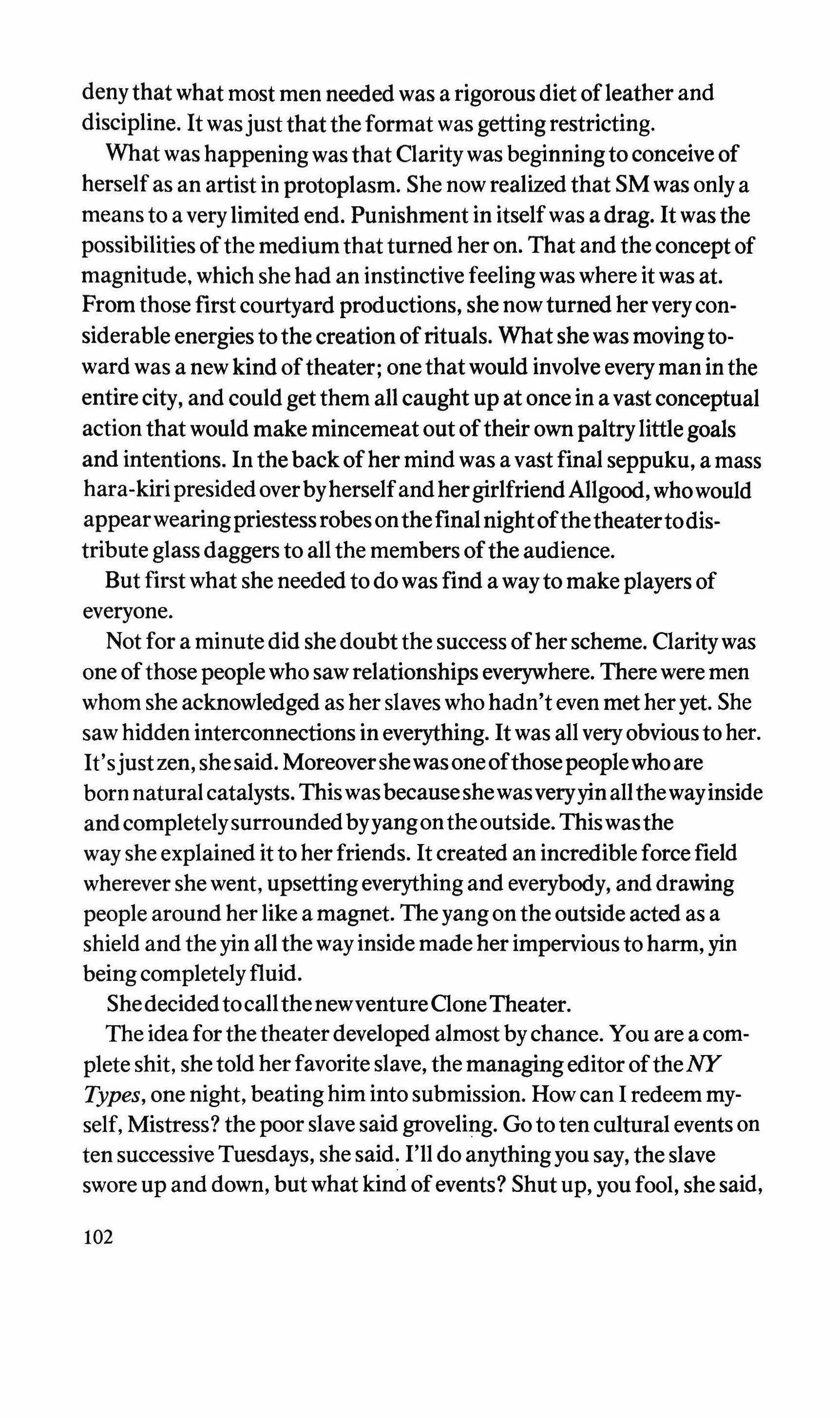
denythat what most men needed was a rigorous diet ofleather and discipline. It was justthatthe format was gettingrestricting. What was happening was that Clarity was beginningto conceive of herself as an artist in protoplasm. She now realized that SM was only a means to a verylimited end. Punishment in itself was a drag. It was the possibilities ofthe mediumthat turned her on. That and the conceptof magnitude, which she had an instinctive feeling was where it was at. From those first courtyard productions, she now turned hervery considerable energies to the creation ofrituals. What she was movingtoward was a new kind oftheater; one thatwould involve every man in the entire city, and could get them all caught up at once in a vast conceptual action that would make mincemeat out oftheir own paltrylittle goals and intentions. In thebackofher mind was a vast final seppuku, a mass hara - kiripresided over byherselfandhergirlfriendAllgood, whowould appearwearingpriestessrobes on thefinalnightofthetheatertodistribute glassdaggers to all the members ofthe audience.
But firstwhat she needed to do was find a wayto make players of everyone.
Not for a minute did she doubt the success ofher scheme. Clarity was one ofthose peoplewho saw relationshipseverywhere. There were men whom she acknowledged as her slaves who hadn't even met heryet. She saw hidden interconnections in everything. It was all very obvious to her. It'sjustzen, shesaid. Moreovershe was one ofthosepeoplewho are born natural catalysts. This was becauseshe was veryyinallthewayinside andcompletelysurroundedbyyangon theoutside. This was the way she explained it to herfriends. It created an incredible force field wherever she went, upsettingeverything and everybody, and drawing people around her like a magnet. Theyang on the outside acted as a shield and theyin all the way inside made her impervious to harm, yin beingcompletelyfluid.
Shedecided tocallthe newventureGoneTheater.
The idea for thetheater developed almost bychance. You are a complete shit, she told herfavorite slave, the managingeditor oftheNY Types, one night, beating him into submission. How can I redeem myself, Mistress? the poor slave said groveling. Go to ten cultural events on ten successive Tuesdays, she said: I'll do anythingyou say, the slave swore up and down, butwhat kind ofevents? Shut up, you fool, she said,
102
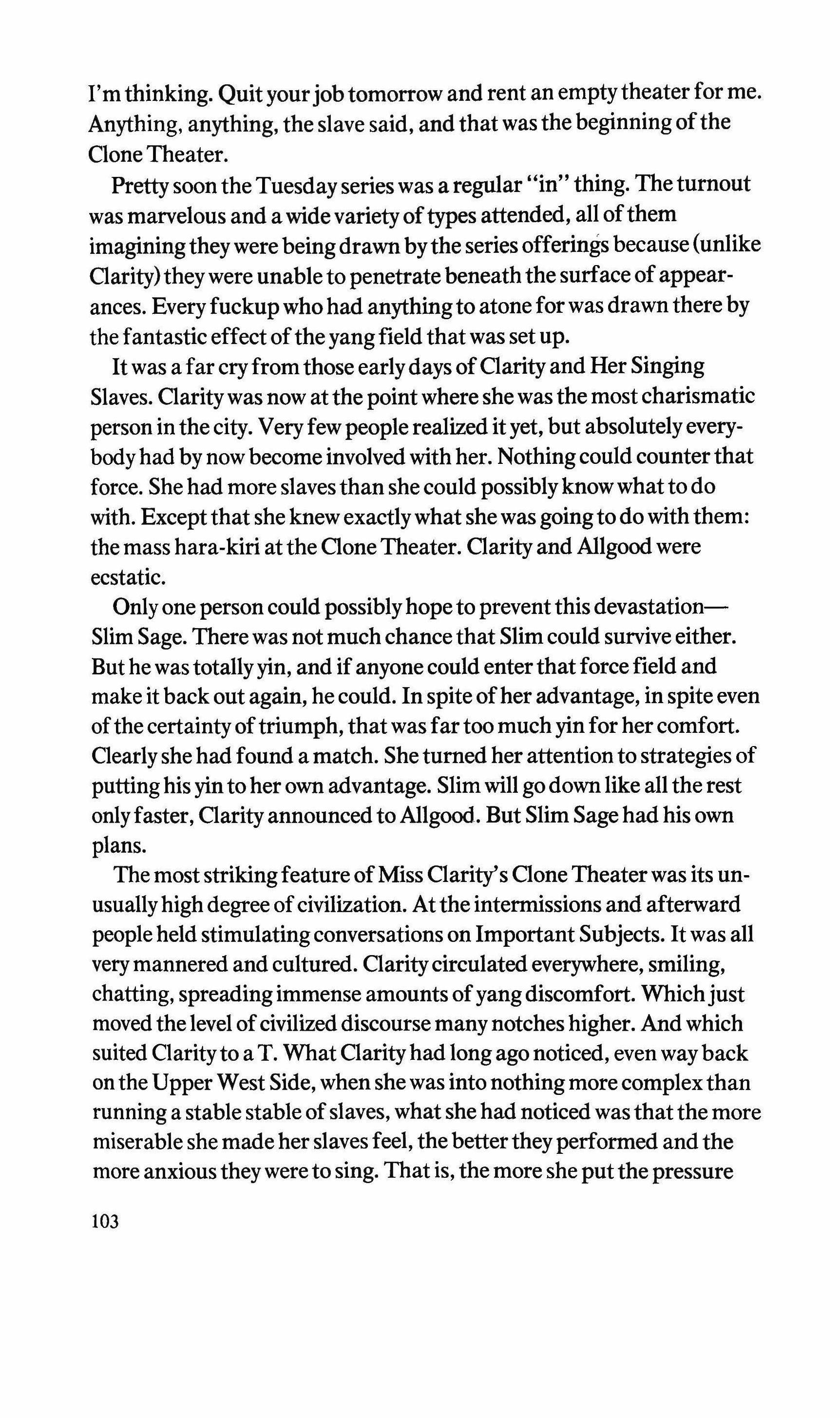
I'mthinking. Quit yourjob tomorrow and rent an emptytheater for me. Anything, anything, the slave said, and that was the beginning ofthe CloneTheater.
Pretty soon the Tuesday series was a regular "in" thing. The turnout was marvelous and a widevariety oftypes attended, all ofthem imaginingthey were beingdrawnbythe series offerings because (unlike Garity)they were unable to penetrate beneath the surface ofappearances. Everyfuckupwho had anythingto atone for was drawn there by the fantastic effect oftheyangfield that was set up.
It was a far cryfromthose earlydays ofGarityand Her Singing Slaves. Garity was now at the point where she was the most charismatic person in the city. Veryfewpeople realized ityet, but absolutelyeverybodyhad by now become involved with her. Nothingcould counter that force. She had more slavesthan she could possiblyknowwhat to do with. Exceptthat she knewexactlywhat she was goingto do with them: the mass hara-kiri at the Gone Theater. Garityand Allgood were ecstatic.
Only one person could possiblyhopeto preventthis devastationSlim Sage. There was not much chance that Slim could survive either. But he was totallyyin, and if anyone could enterthat force field and make it back out again, he could. In spite ofher advantage, in spite even ofthe certainty oftriumph, that was far too muchyinfor hercomfort. Clearlyshe had found a match. She turned her attention to strategies of puttinghis yinto her own advantage. Slim will go down like all the rest onlyfaster, Garityannounced to Allgood. But Slim Sage had his own plans.
The most strikingfeature ofMiss Garity's Gone Theater was its unusuallyhighdegree ofcivilization. Atthe intermissions and afterward people held stimulating conversations on Important Subjects. It was all very mannered and cultured. Claritycirculated everywhere, smiling, chatting, spreading immense amounts ofyangdiscomfort. Whichjust moved thelevel ofcivilized discourse many notches higher. And which suited Garityto a T. What Garityhad long ago noticed, even wayback on the Upper West Side, when she was into nothing more complex than running a stable stable ofslaves, what shehad noticed was thatthe more miserable she made her slaves feel, thebettertheyperformed and the more anxious they were to sing. That is, the more she putthe pressure
103
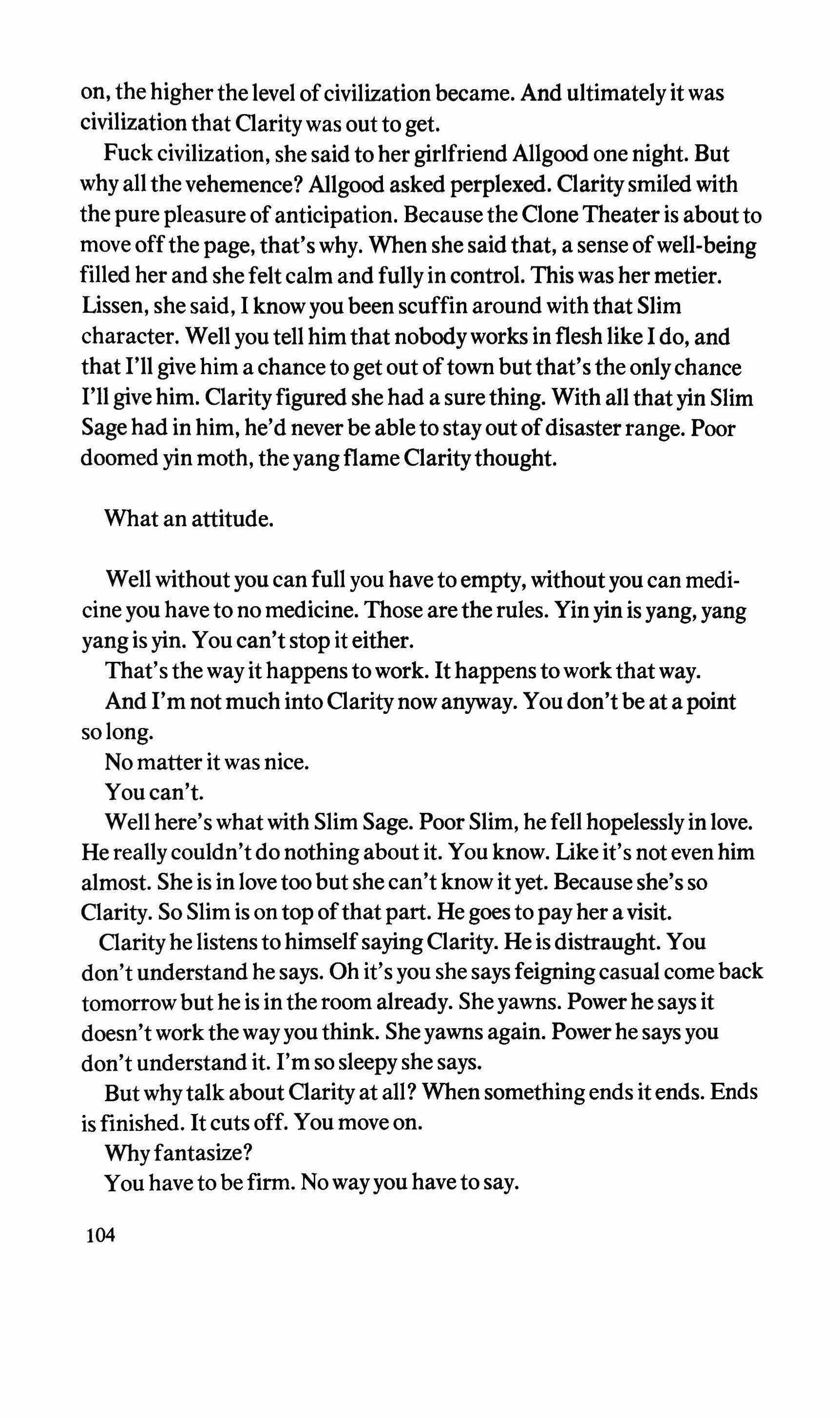
on, the higherthe level ofcivilization became. And ultimatelyit was civilizationthat Garity was out to get.
Puck civilization, she said to her girlfriend Allgood one night. But why all the vehemence? Allgood asked perplexed. Claritysmiled with the pure pleasure of anticipation. Because the Clone Theater is about to move offthe page, that's why. When she said that, a sense ofwell-being filled her and she felt calm and fully in control. This was her metier. Lissen, she said, I knowyou been scuffin around with that Slim character. Well you tell him that nobodyworks in flesh like I do, and that I'll give him a chance to get out oftown butthat's the onlychance I'll give him. Clarityfigured she had a sure thing. With all thatyin Slim Sage had in him, he'd never be able to stay out ofdisaster range. Poor doomed yinmoth, theyangflame Claritythought.
What an attitude.
Well without you can full you have to empty, withoutyou can medicine you have to no medicine. Those are the rules. Yinyin is yang, yang yangis yin. You can't stop it either.
That's the way ithappens to work. It happens towork that way. And I'm not much into Garity now anyway. You don't be at a point so long.
No matter it was nice.
You can't.
Well here's whatwith Slim Sage. Poor Slim, he fell hopelessly in love. He really couldn't do nothing about it. You know. Like it's not even him almost. She is in love too but she can't know ityet. Because she's so Clarity. So Slim is on top ofthat part. He goes to pay her a visit.
Garity he listens to himselfsayingGarity. He is distraught. You don't understand he says. Oh it's you she says feigningcasual come back tomorrow but he is inthe room already. She yawns. Power he says it doesn't work the wayyou think. She yawns again. Power he says you don't understand it. I'm so sleepy she says.
But whytalk about Garity at all? When something ends it ends. Ends is finished. It cuts off. You move on.
Whyfantasize?
You have to be firm. No wayyou have to say.
104
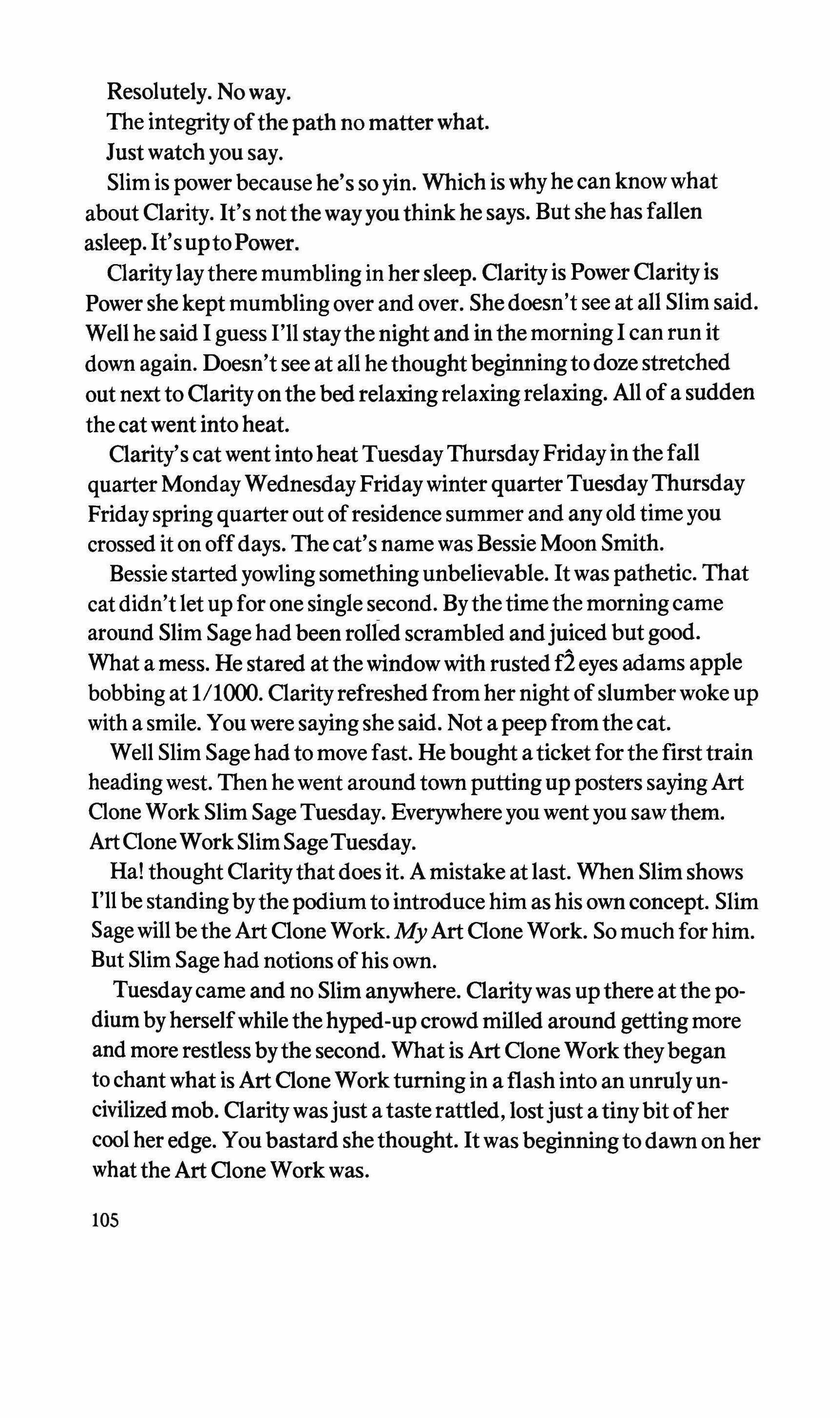
Resolutely. No way. The integrityofthe path no matter what.
Just watch you say.
Slim is power because he's so yin. Which is whyhe can knowwhat about Garity. It's not the wayyou think he says. But she has fallen asleep. It'suptoPower.
Claritylaythere mumbling in her sleep. Garityis Power Garityis Power she keptmumbling over and over. She doesn't see at all Slim said. Well he said I guess I'll staythe night and inthe morningI can run it down again. Doesn't see at all he thoughtbeginningto doze stretched out next to Garity on the bed relaxingrelaxingrelaxing. All of a sudden the cat went intoheat.
Garity's cat went intoheat TuesdayThursdayFridayinthefall quarterMondayWednesdayFriday winter quarterTuesdayThursday Fridayspringquarter out ofresidence summer and anyold time you crossed it on offdays. Theeat's name was Bessie Moon Smith.
Bessie started yowlingsomethingunbelievable. It was pathetic. That cat didn'tlet up for one single second. Bythetimethe morning came around Slim Sage had been rolled scrambled andjuiced but good. What a mess. He stared at thewindowwith rusted fi eyes adams apple bobbing at 111000. Garityrefreshed from her night ofslumberwoke up with a smile. You were sayingshe said. Not a peep fromthe cat.
Well Slim Sage had to move fast. He bought a ticket for the firsttrain headingwest. Then he went around town putting up posters sayingArt Gone Work Slim SageTuesday. Everywhere you went you saw them. ArtGoneWork Slim SageTuesday.
Hal thoughtGaritythatdoes it. Amistake at last. When Slim shows I'll be standingbythe podium to introduce him as his own concept. Slim Sagewill bethe Art Gone Work. MyArt Gone Work. So much for him. But Slim Sage had notions ofhis own.
Tuesday came and no Slim anywhere. Garity was upthere at the podium byherselfwhile thehyped-up crowd milled around getting more and more restless bythe second. What is Art Gone Work theybegan to chant what is Art Gone Work turning in a flash into an unruly uncivilized mob. Garity was just a taste rattled, lostjust a tinybit ofher cool her edge. You bastard shethought. It was beginningto dawn on her whatthe Art Gone Work was.
lOS
The crowd wasn't far behind either. It's you someone yelled and someone else and someone else. Theybegan applauding and yelling her name. It's Clarityit's Clarityapplause and shouts. And then one last thoughtful touch. Slim Sagepulled up outside in a cab walked through carrying a 2 x 4-foot red paper cutout heart all torn and stained and fraying around the edges hung it around Clarity's neck, then back out into the cab and offtothe train station. You bastard she thought you bastard you made an object out of me she was absolutelymortified. And that was the end ofitthe Clone Theater is only a memory.
Six months later she received a letter from Slim he was living someplace out West. The letter said:
49 Ko. What takes place is believed in only after it has been accomplished. There will be great progress and success. Advantage will come from being firm and correct. Occasion for repentance will disappear. No blame.
Water fire Garitykeptthinking water fire conflict resolution. Bessie Moon was off on a tear triggeredbyonly God knows what maybethe arrival ofthe letter. It was supposed to be an offday. All nightlong Bessie Moon groaned while Clarityturned it over in her head you bastard you bastard turning over and over. In the morning she came to a decision. Two days later she wrote back: Without number. I fixed the cat. No more blues? Damn. Andthat'sthat. See. Noway. Itcompletesitself.
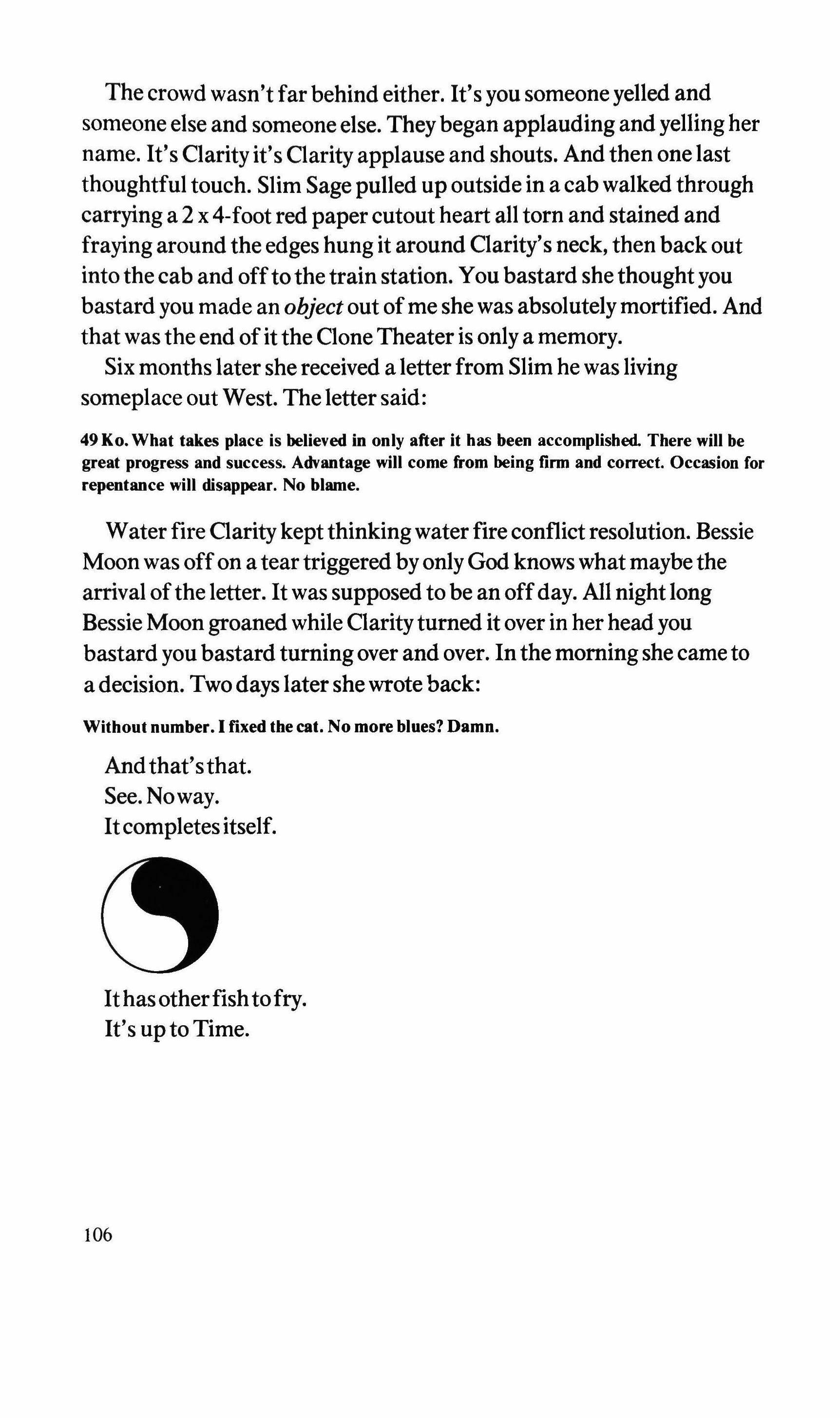
Ithasotherfishtofry. It's up to Time.
106
Bon Papa reviendra (suite et fin)
Albert Guerard
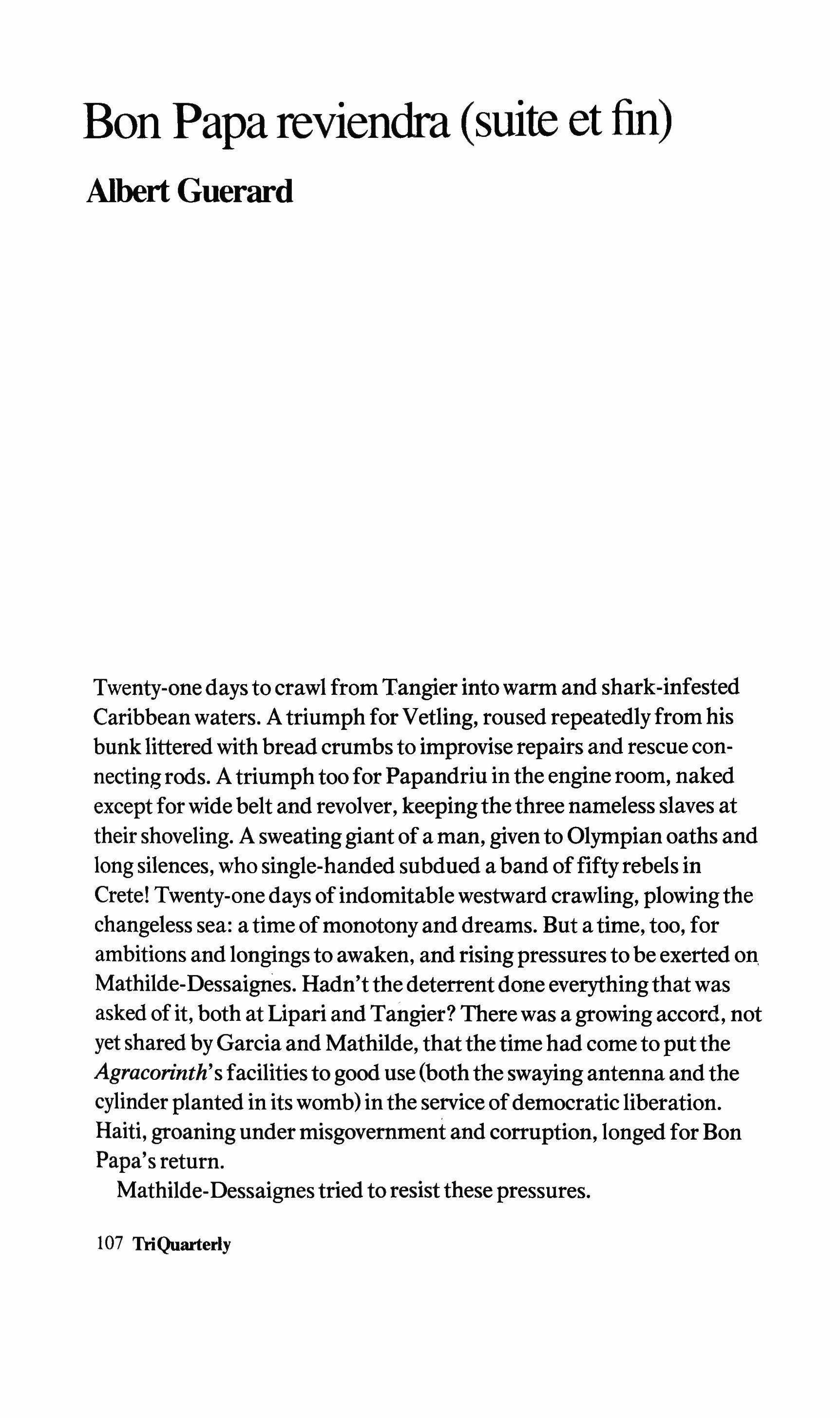
Twenty-onedays to crawl from Tangier into warm and shark-infested Caribbean waters. A triumph forVetling, roused repeatedlyfrom his bunk litteredwith bread crumbs to improviserepairs and rescue connectingrods. Atriumph too for Papandriu in the engine room, naked except forwide belt and revolver, keepingthethree nameless slaves at their shoveling. A sweatinggiant of a man, given to Olympian oaths and longsilences, who single-handed subdued a band offiftyrebels in Crete! Twenty-onedays ofindomitable westward crawling, plowingthe changeless sea: a time ofmonotonyand dreams. But a time, too, for ambitions and longings to awaken, and risingpressures to be exerted on.
Mathilde-Dessaignes. Hadn't thedeterrent done everythingthat was asked ofit, both at Lipari and Tangier? There was a growingaccord, not yetshared by Garcia and Mathilde, thatthetime had come to putthe Agracorinth's facilities to good use (both the swaying antenna and the cylinderplanted in its womb) in the service ofdemocratic liberation. Haiti, groaning under misgovernment and corruption, longed for Bon Papa's return.
Mathilde-Dessaignes tried to resistthese pressures.
107 TriQuanerly
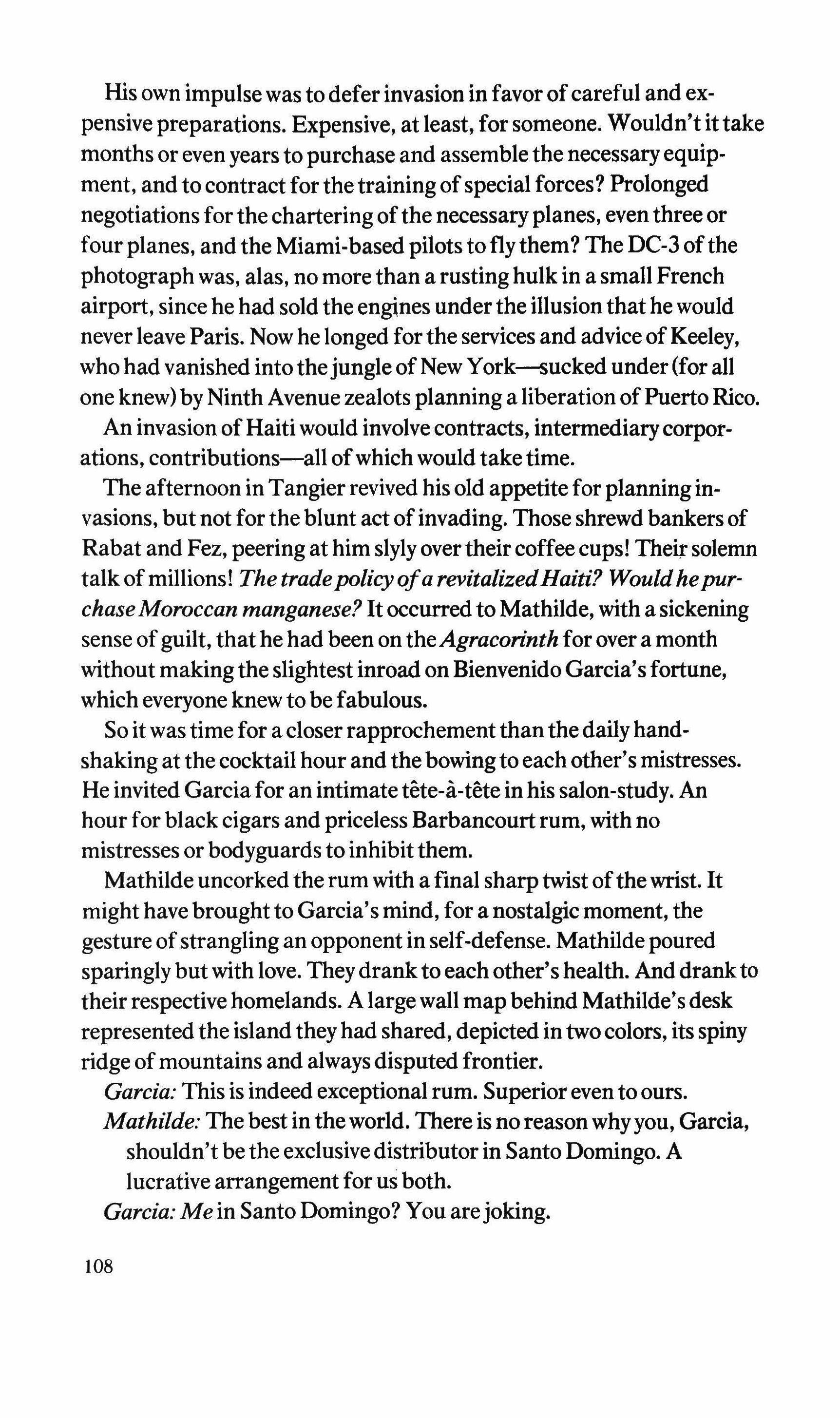
His own impulse was to defer invasion in favor ofcareful and expensivepreparations. Expensive, at least, for someone. Wouldn't ittake months or even years to purchase and assemble the necessary equipment, and to contract forthetrainingofspecial forces? Prolonged negotiations for the chartering ofthe necessary planes, even three or four planes, and the Miami-based pilots to flythem? The DC-3 ofthe photograph was, alas, no more than a rustinghulk in a small French airport, since he had sold the engines underthe illusion that he would never leave Paris. Now he longed forthe services and advice of Keeley, who had vanished intothejungle of New York-sucked under(for all one knew)by Ninth Avenue zealots planning a liberation ofPuerto Rico.
An invasion ofHaiti would involve contracts, intermediarycorporations, contributions-all ofwhich would take time.
The afternoon in Tangier revived his old appetite for planning invasions, but not for the blunt act ofinvading. Those shrewd bankers of Rabat and Fez, peering at him slyly over their coffee cups! Their solemn talk ofmillions! The tradepolicyofa revitalizedHaiti? WouldhepurchaseMoroccan manganese? It occurred to Mathilde, with a sickening sense ofguilt, that he had been on theAgracorinth for over a month without makingthe slightest inroad on Bienvenido Garcia's fortune, which everyone knew to be fabulous.
So it was time for a closer rapprochement than thedailyhandshaking at thecocktail hour and thebowingto each other's mistresses. He invited Garcia for an intimatetete-a-tete in his salon-study. An hour for black cigars and priceless Barbancourt rum, with no mistresses or bodyguards to inhibit them.
Mathilde uncorked the rum with a final sharptwist ofthewrist. It might have brought to Garcia's mind, for a nostalgic moment, the gesture ofstrangling an opponent in self-defense. Mathilde poured sparinglybut with love. Theydrank to each other's health. And drankto their respective homelands. A large wall map behind Mathilde's desk represented the island they had shared, depicted in two colors, its spiny ridge ofmountains and alwaysdisputed frontier.
Garcia: This is indeed exceptional rum. Superior even to ours.
Mathilde: The best in theworld. There is no reason whyyou, Garcia, shouldn't be the exclusive distributor in Santo Domingo. A lucrative arrangement for us both.
Garcia: Me in Santo Domingo? You are joking.
108
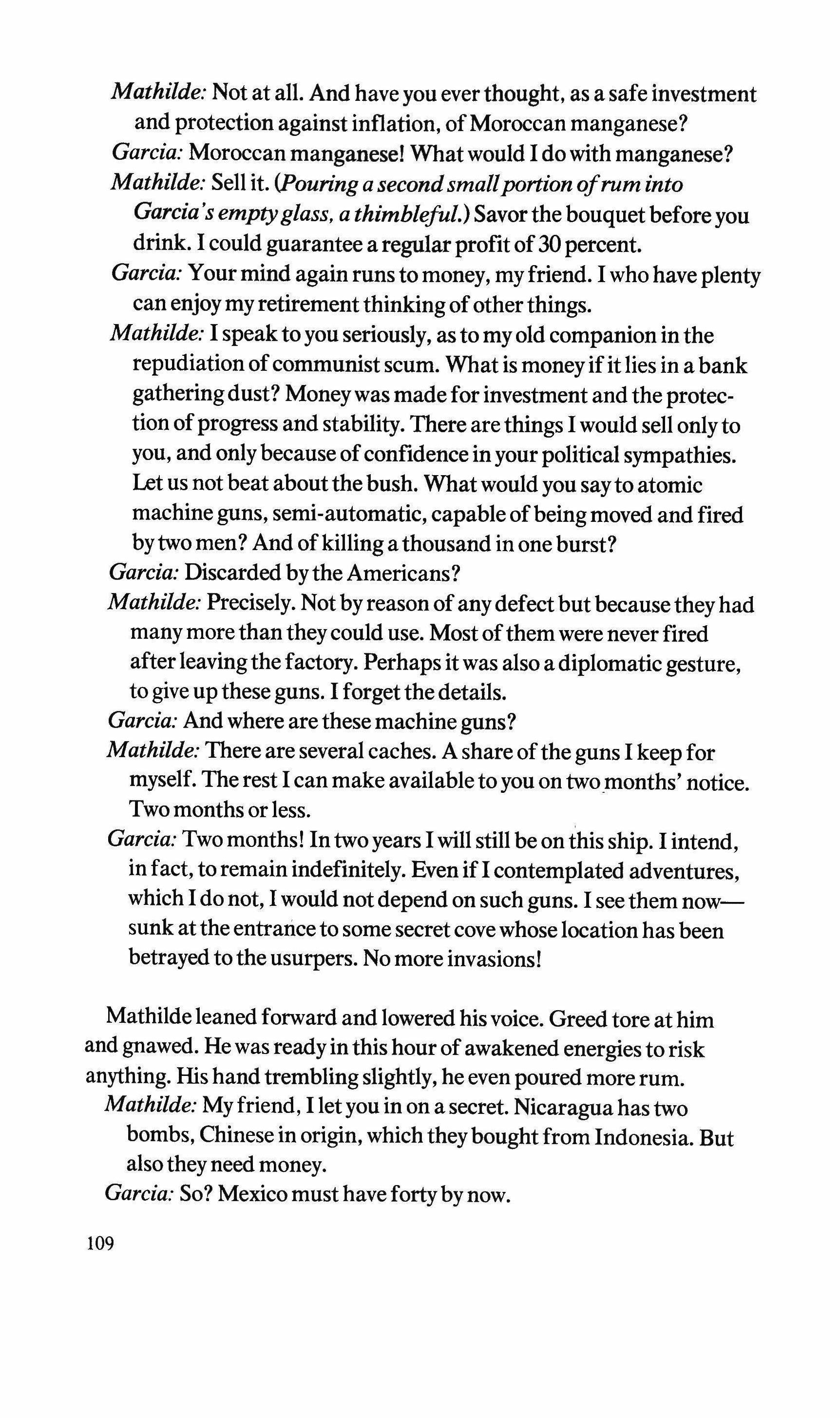
Mathilde: Not at all. And haveyou ever thought, as a safe investment and protection against inflation, ofMoroccan manganese?
Garcia: Moroccan manganese! What would I do with manganese?
Mathilde: Sell it. (Pouring a secondsmallportionofrum into Garcia's emptyglass, a thimbleful.) Savor the bouquet beforeyou drink. I could guarantee a regularprofit of30 percent.
Garcia: Your mind again runs to money, my friend. I who have plenty can enjoy my retirement thinking ofotherthings.
Mathilde: I speak to you seriously, as to myoId companion in the repudiation ofcommunist scum. What is money ifit lies in a bank gatheringdust? Money was made for investment and the protection ofprogress and stability. There are things I would sell onlyto you, and only because ofconfidence in your political sympathies. Let us not beat aboutthe bush. Whatwould you sayto atomic machine guns, semi-automatic, capable ofbeingmoved and fired by two men? And of killing a thousand in one burst?
Garcia: Discarded bythe Americans?
Mathilde: Precisely. Notby reason ofanydefect butbecausetheyhad many more than they could use. Most of them were never fired afterleavingthe factory. Perhaps it was also a diplomaticgesture, to give up these guns. I forgetthedetails.
Garcia: And where are these machine guns?
Mathilde: There are several caches. A share ofthe guns I keep for myself. The rest I can make available to you on two_months' notice. Two months or less.
Garcia: Two months! In two years I will still be on this ship. I intend, in fact, to remain indefinitely. Even if I contemplated adventures, which I do not, I would not depend on such guns. I see them nowsunk at the entrance to some secret cove whose location has been betrayed to the usurpers. No more invasions!
Mathilde leaned forward and lowered his voice. Greed tore at him and gnawed. He was ready in this hour of awakened energies to risk anything. His hand tremblingslightly, he even poured more rum.
Mathilde: Myfriend, I let you in on a secret. Nicaragua has two bombs, Chinese in origin, which theybought from Indonesia. But also theyneed money.
Garcia: So? Mexico must havefortyby now.
109
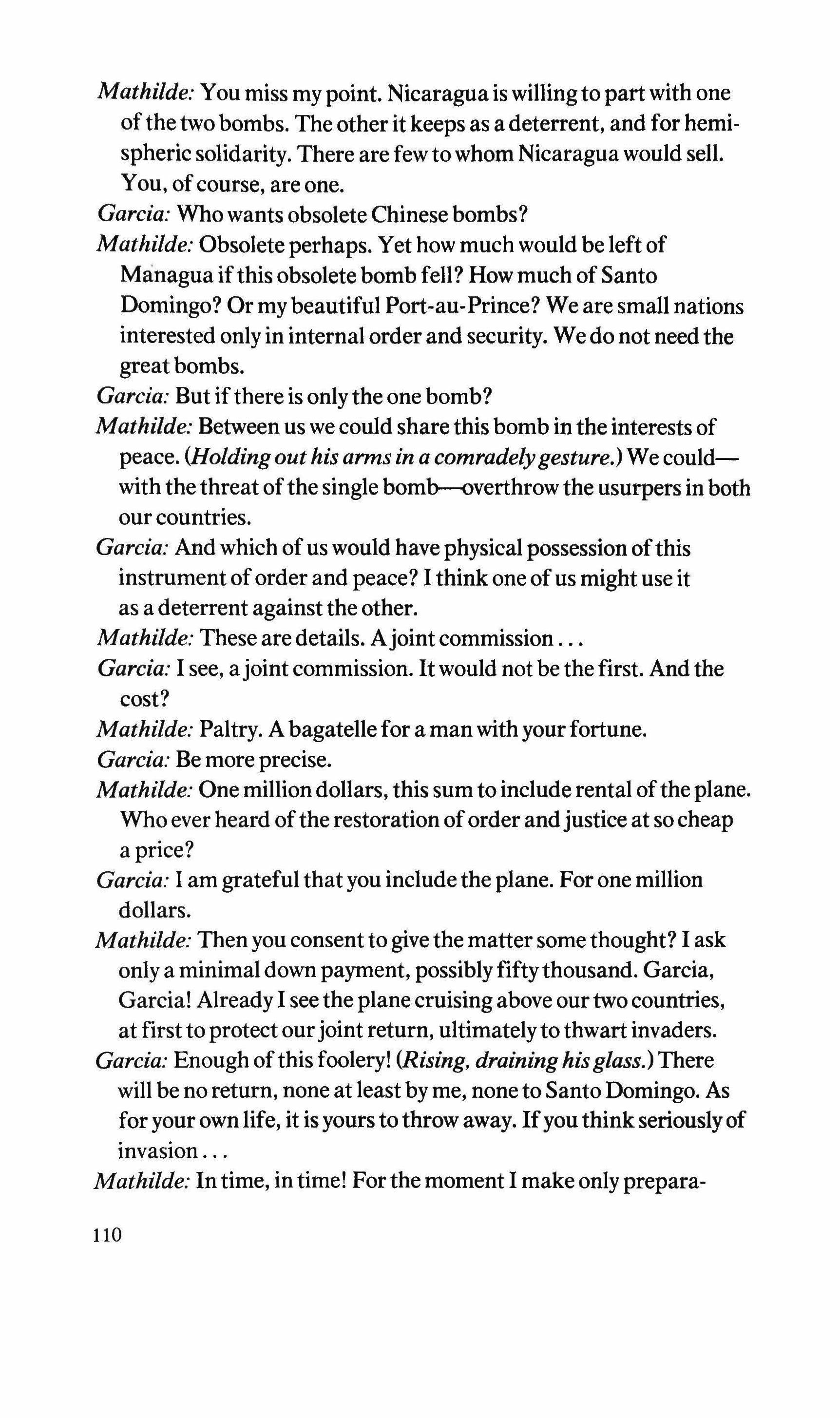
Mathilde: You miss my point. Nicaragua is willing to part with one ofthe two bombs. The other it keeps as a deterrent, and for hemispheric solidarity. There are few to whom Nicaragua would sell. You, of course, are one.
Garcia: Who wants obsolete Chinese bombs?
Mathilde: Obsolete perhaps. Yet how much would be left of Managua ifthis obsolete bomb fell? How much of Santo Domingo? Or my beautiful Port-au-Prince? We are small nations interested only in internal order and security. We do not need the great bombs.
Garcia: But ifthere is onlythe one bomb?
Mathilde: Between us we could share this bomb in the interests of peace. (Holding out his arms in a comradelygesture.) We couldwith the threat ofthe single bomb--overthrow the usurpers in both our countries.
Garcia: And which of us would have physicalpossession ofthis instrument oforder and peace? I think one of us might use it as a deterrent against the other.
Mathilde: These are details. Ajoint commission
Garcia: I see, a joint commission. Itwould not be the first. And the cost?
Mathilde: Paltry. Abagatelle for a man with your fortune.
Garcia: Be more precise.
Mathilde: One million dollars, this sum to include rental ofthe plane. Who ever heard ofthe restoration oforder andjustice at so cheap a price?
Garcia: I am grateful that you include the plane. For one million dollars.
Mathilde: Then you consent to givethe matter some thought? I ask only a minimal down payment, possiblyfiftythousand. Garcia, Garcia! Already I see the planecruising above our two countries, at first to protect our joint return, ultimatelyto thwart invaders.
Garcia: Enough ofthis foolery! (Rising, draining hisglass.) There will be no return, none at least by me, none to Santo Domingo. As foryour own life, it is yours to throwaway. Ifyou think seriouslyof invasion
Mathilde: In time, in time! For the moment I make onlyprepara-
110
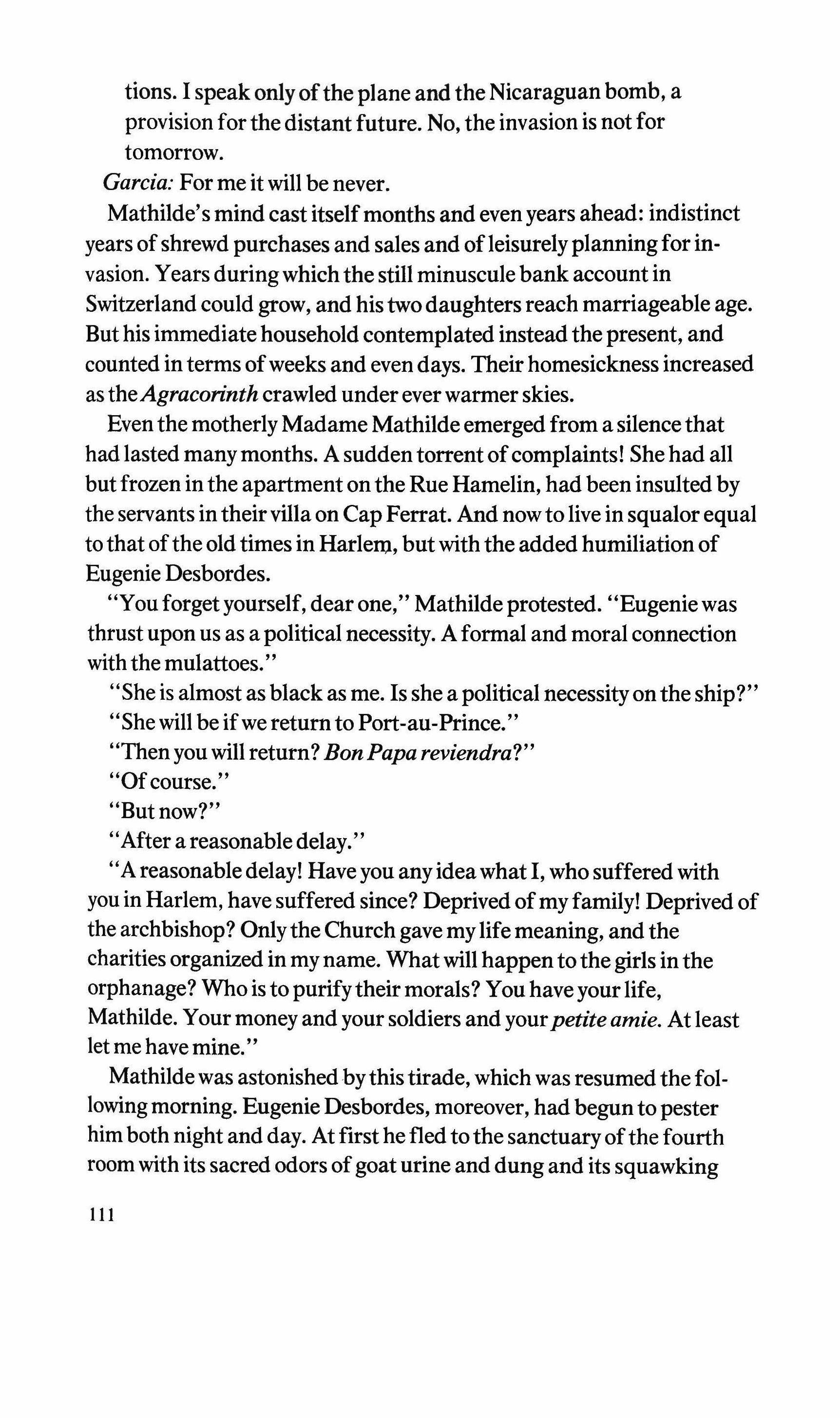
tions. I speakonlyofthe plane and the Nicaraguanbomb, a provision forthe distant future. No, the invasion is not for tomorrow.
Garcia: For me it will be never.
Mathilde's mind cast itselfmonths and even years ahead: indistinct years ofshrewd purchases and sales and ofleisurelyplanning for invasion. Years duringwhich the still minusculebank account in Switzerland could grow, and his two daughters reach marriageable age. Buthis immediatehousehold contemplated instead the present, and counted in terms ofweeks and even days. Their homesickness increased as theAgracorinth crawled under ever warmer skies.
Eventhe motherly Madame Mathilde emerged from a silencethat had lasted manymonths. A sudden torrent ofcomplaints! She had all butfrozen in the apartment on the Rue Hamelin, had been insulted by the servants in theirvilla on Cap Ferrat. And now to live in squalorequal to that ofthe old times in Harlem, butwith the added humiliation of Eugenie Desbordes.
"You forgetyourself, dear one," Mathilde protested. "Eugenie was thrust upon us as a politicalnecessity. Aformal and moral connection withthe mulattoes."
"She is almost as black as me. Is she a politicalnecessity on the ship?"
"She will be if we return to Port-au-Prince."
"Then you will return? BonPapa reviendra?"
"Ofcourse."
"But now?"
"After a reasonable delay."
"A reasonable delay! Have you anyideawhat I, who suffered with you in Harlem, have suffered since? Deprived ofmyfamily! Deprived of the archbishop? Onlythe Church gave mylife meaning, and the charities organized in my name. Whatwill happen to the girls inthe orphanage? Who is to purifytheir morals? You have your life, Mathilde. Your money and your soldiers and yourpetite amie. At least let me havemine."
Mathilde was astonishedbythis tirade, which was resumed the followingmorning. EugenieDesbordes, moreover, had begun to pester himboth night and day. At first hefled to the sanctuary ofthe fourth room with its sacred odors ofgoat urine and dung and its squawking
III
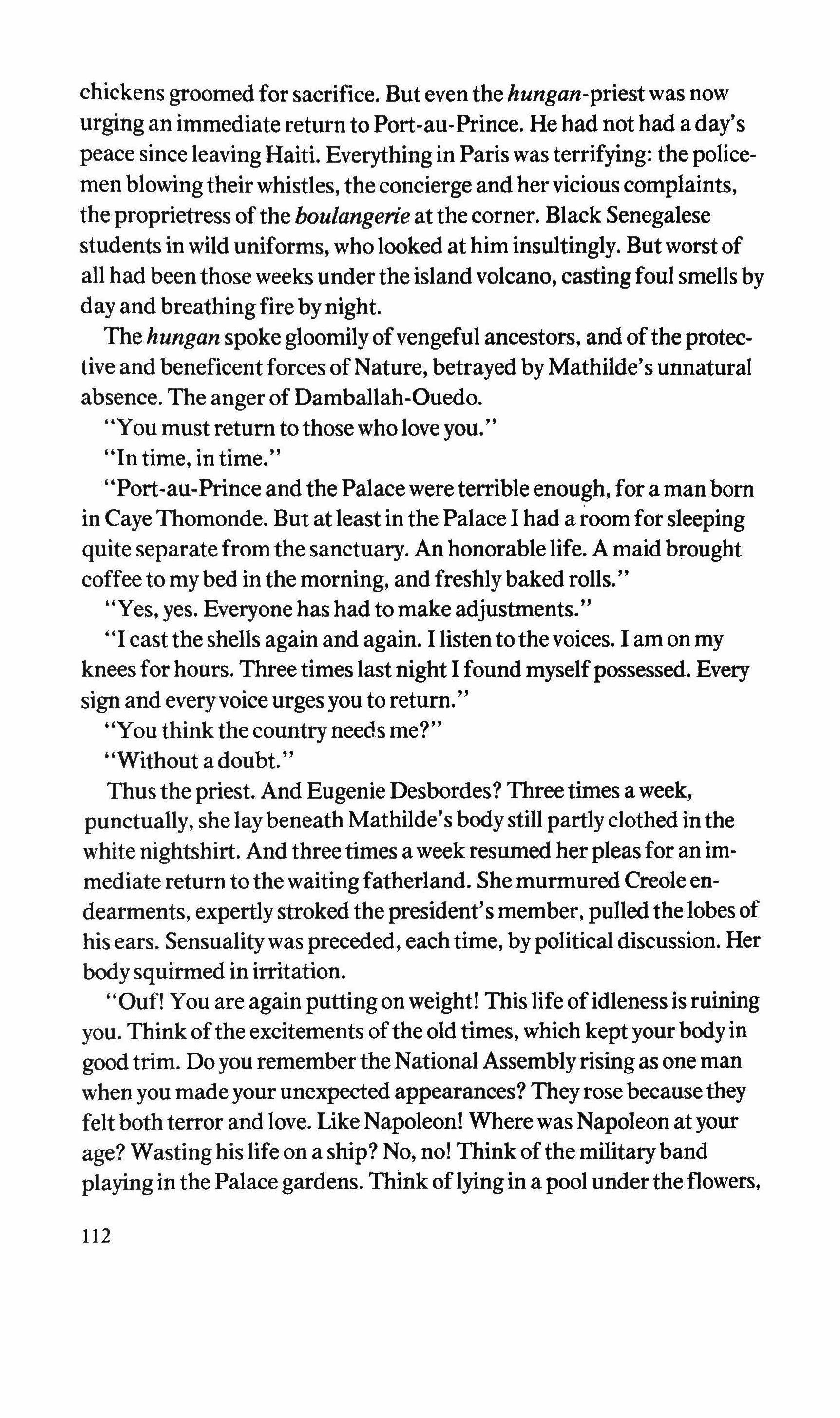
chickens groomed for sacrifice. But even the hungan-priest was now urging an immediate return to Port-au-Prince. He had not had a day's peace since leaving Haiti. Everything in Paris was terrifying: the policemen blowingtheir whistles, the concierge and hervicious complaints, the proprietress ofthe boulangerie at the corner. Black Senegalese students in wild uniforms, who looked at him insultingly. But worst of all had been those weeks underthe island volcano, castingfoul smells by day and breathingfire bynight.
The hungan spokegloomilyofvengeful ancestors, and ofthe protective and beneficent forces ofNature, betrayedby Mathilde's unnatural absence. The anger ofDamballah-Ouedo.
"You must return to those who love you."
"In time, in time."
"Port-au-Prince and the Palace were terrible enough, for a man born in Caye Thomonde. But at least in the Palace I had a room for sleeping quite separatefrom the sanctuary. An honorable life. A maid brought coffee to my bed in the morning, and freshly baked rolls."
Yes, yes. Everyone has had to make adjustments."
"I cast the shells again and again. I listen tothe voices. I am on my knees for hours. Three times last night I found myselfpossessed. Every sign and everyvoice urges you to return."
"You thinkthe countryneeds me?"
"Without a doubt."
Thus the priest. And Eugenie Desbordes? Three times a week, punctually, she laybeneath Mathilde's body still partly clothed in the white nightshirt. And three times a week resumed her pleas for an immediate return tothe waitingfatherland. She murmured Creole endearments, expertlystroked the president'smember, pulled the lobes of his ears. Sensuality was preceded, each time, bypolitical discussion. Her bodysquirmed in irritation.
"Ouf! You are againputting on weight! This life ofidleness is ruining you. Thinkofthe excitements ofthe old times, which kept your body in good trim. Do you rememberthe National Assemblyrising as one man when you madeyour unexpected appearances? They rose becausethey feltboth terror and love. Like Napoleon! Where was Napoleon at your age? Wastinghis life on a ship? No, no! Think ofthe military band playing in the Palace gardens. Thinkoflyingin a pool under theflowers, 112
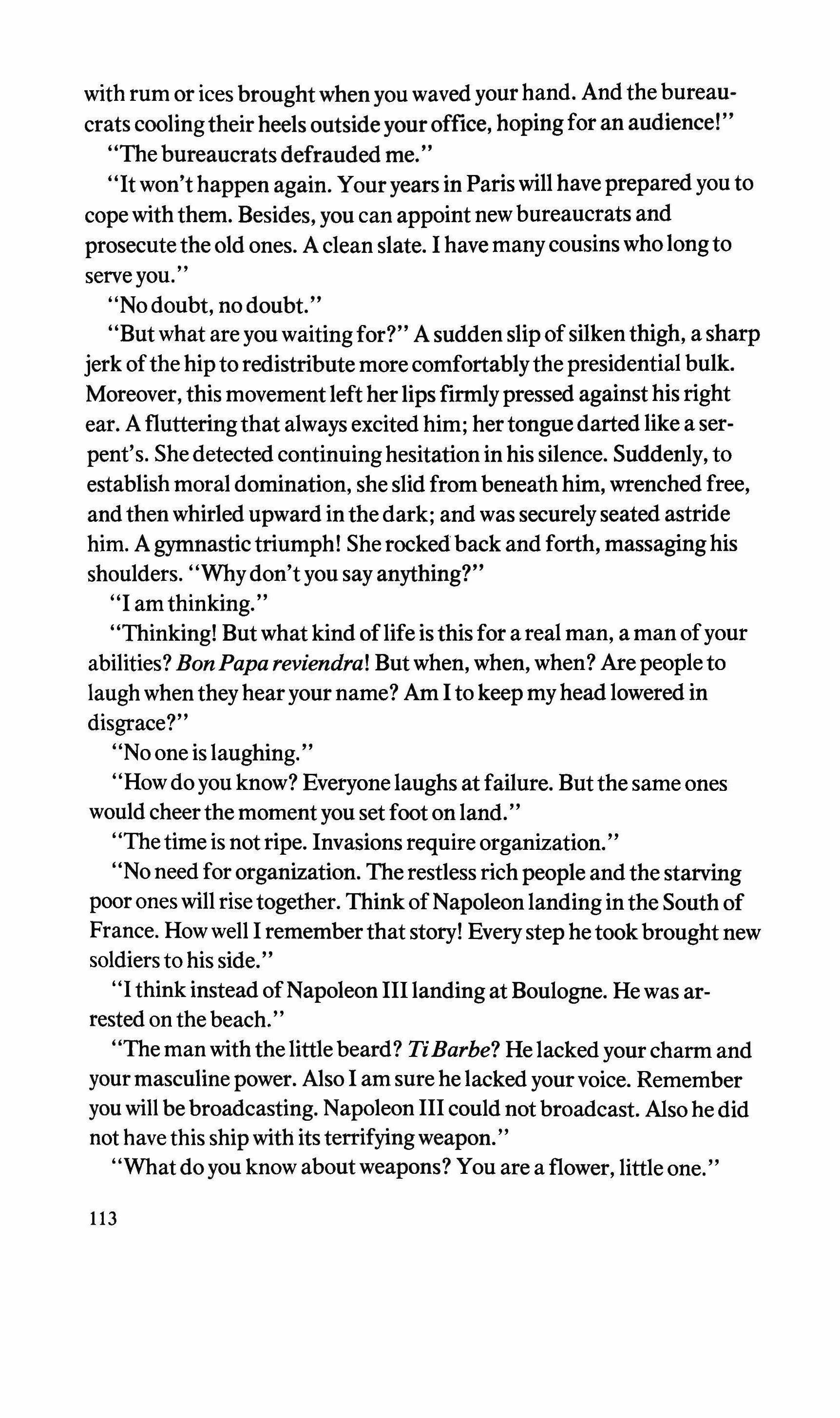
with rum or ices broughtwhen you waved yourhand. And the bureaucrats coolingtheirheels outside youroffice, hopingfor an audience!"
"Thebureaucrats defrauded me."
"It won't happen again. Youryears in Paris will haveprepared you to copewith them. Besides, you can appoint new bureaucrats and prosecute the old ones. A clean slate. I have many cousins wholongto serve you."
"No doubt, no doubt."
"But what are you waiting for?" A sudden slip ofsilken thigh, a sharp jerk ofthe hip to redistribute more comfortablythe presidential bulk. Moreover, this movement left herlipsfirmlypressed against his right ear. A flutteringthat always excited him; hertonguedarted like a serpent's. She detected continuinghesitation in his silence. Suddenly, to establish moral domination, she slid from beneath him, wrenched free, andthen whirled upward in the dark; and was securely seated astride him. A gymnastictriumph! She rocked back and forth, massaginghis shoulders. "Whydon'tyou say anything?"
"I am thinking."
"Thinking! But what kind oflife isthis for a real man, a man ofyour abilities? BonPapareviendra! But when, when, when? Are people to laugh when they hearyour name? Am I to keep my head lowered in disgrace?"
"No one is laughing."
"How do you know? Everyonelaughs at failure. Butthe same ones would cheerthe moment you set foot on land."
"Thetime is not ripe. Invasions requireorganization."
"No need for organization. The restless rich people and the starving poor ones will risetogether. Think ofNapoleonlanding in the South of France. How well I remember that story! Everystep he tookbrought new soldiers to his side."
"I think instead ofNapoleon III landing at Boulogne. He was arrested on the beach."
"The man with thelittlebeard? TiBarbe? He lacked your charm and your masculine power. Also I am sure he lacked yourvoice. Remember you will be broadcasting. Napoleon III could not broadcast. Also he did not have this shipwith its terrifyingweapon."
"Whatdoyou know aboutweapons? You are a flower, little one."
113
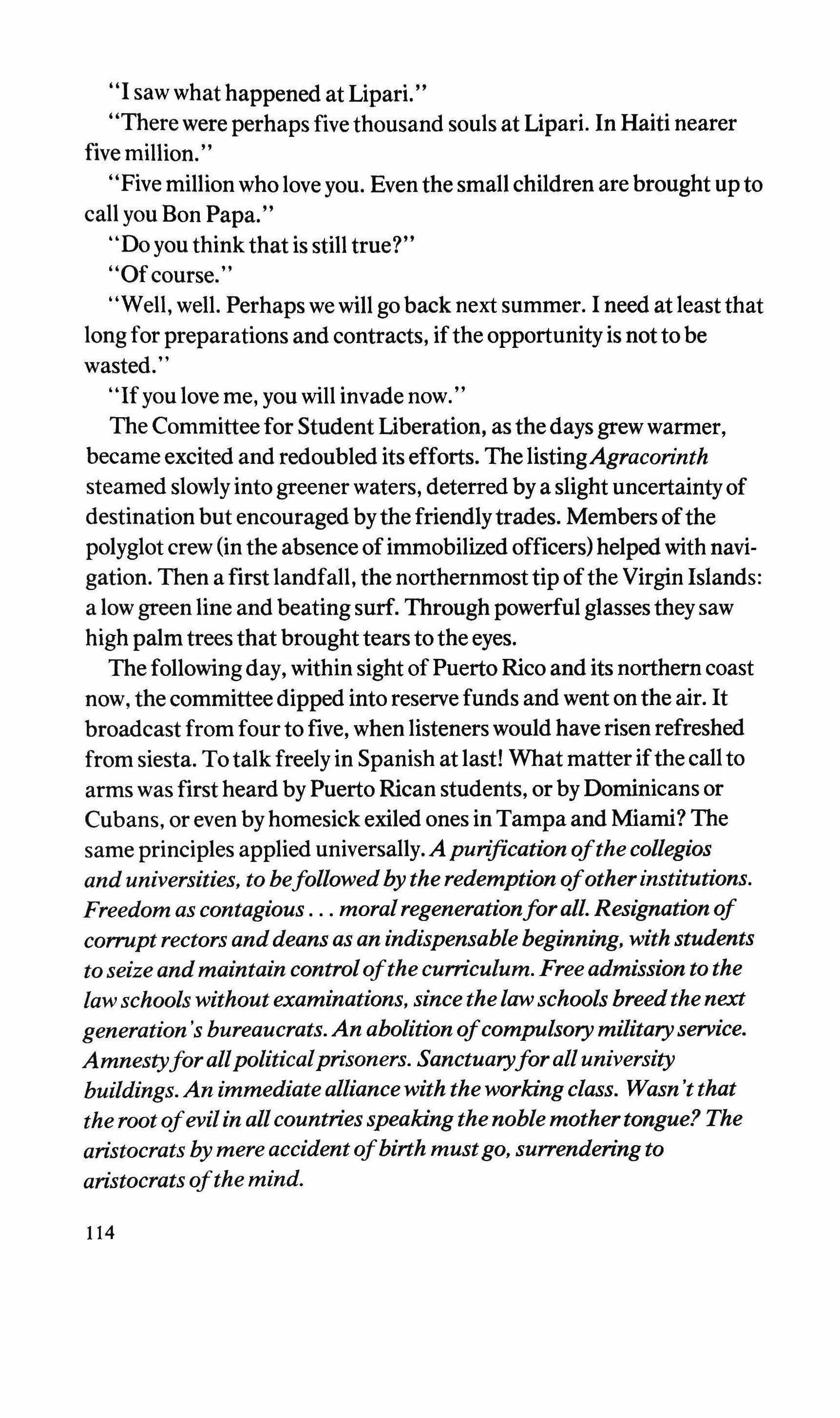
"I saw what happened at Lipari."
"There were perhaps five thousand souls at Lipari. In Haiti nearer five million."
"Five million who love you. Even the small children are brought up to call you Bon Papa."
"Do you think that is still true?"
"Ofcourse."
"Well, well. Perhaps we will go back next summer. I need at leastthat longfor preparations and contracts, ifthe opportunity is not to be wasted."
"Ifyou love me, you will invade now.
The Committee for Student Liberation, as thedays grew warmer, became excited and redoubled its efforts. The listingAgracorinth steamed slowlyinto greener waters, deterred by a slightuncertaintyof destination but encouragedbythe friendlytrades. Members ofthe polyglot crew (in the absence of immobilized officers)helped with navigation. Then a first landfall, the northernmost tip ofthe Virgin Islands: a low green line and beating surf. Throughpowerfulglassesthey saw highpalm trees that brought tears to the eyes.
The followingday, within sight of Puerto Rico and its northern coast now, the committee dipped into reserve funds and went on the air. It broadcast from four to five, when listeners would have risen refreshed from siesta. To talk freely in Spanish at last! What matter ifthe call to arms was first heard by Puerto Rican students, or by Dominicans or Cubans, or even byhomesick exiled ones in Tampa and Miami? The same principles applieduniversally.Apurification ofthe collegios and universities, to befollowedby theredemptionofotherinstitutions. Freedom as contagious moralregenerationforall. Resignationof corrupt rectors anddeans as an indispensablebeginning, with students to seize andmaintain controlofthe curriculum. Free admission to the lawschools without examinations, since thelawschools breedthe next generation's bureaucrats. An abolition ofcompulsorymilitaryservice. Amnestyforallpoliticalprisoners. Sanctuaryforalluniversity buildings. An immediate alliancewith theworking class. Wasn'tthat the root ofevilin allcountries speaking thenoblemothertongue? The aristocrats by mere accidentofbirth mustgo, surrendering to aristocrats ofthe mind.
114
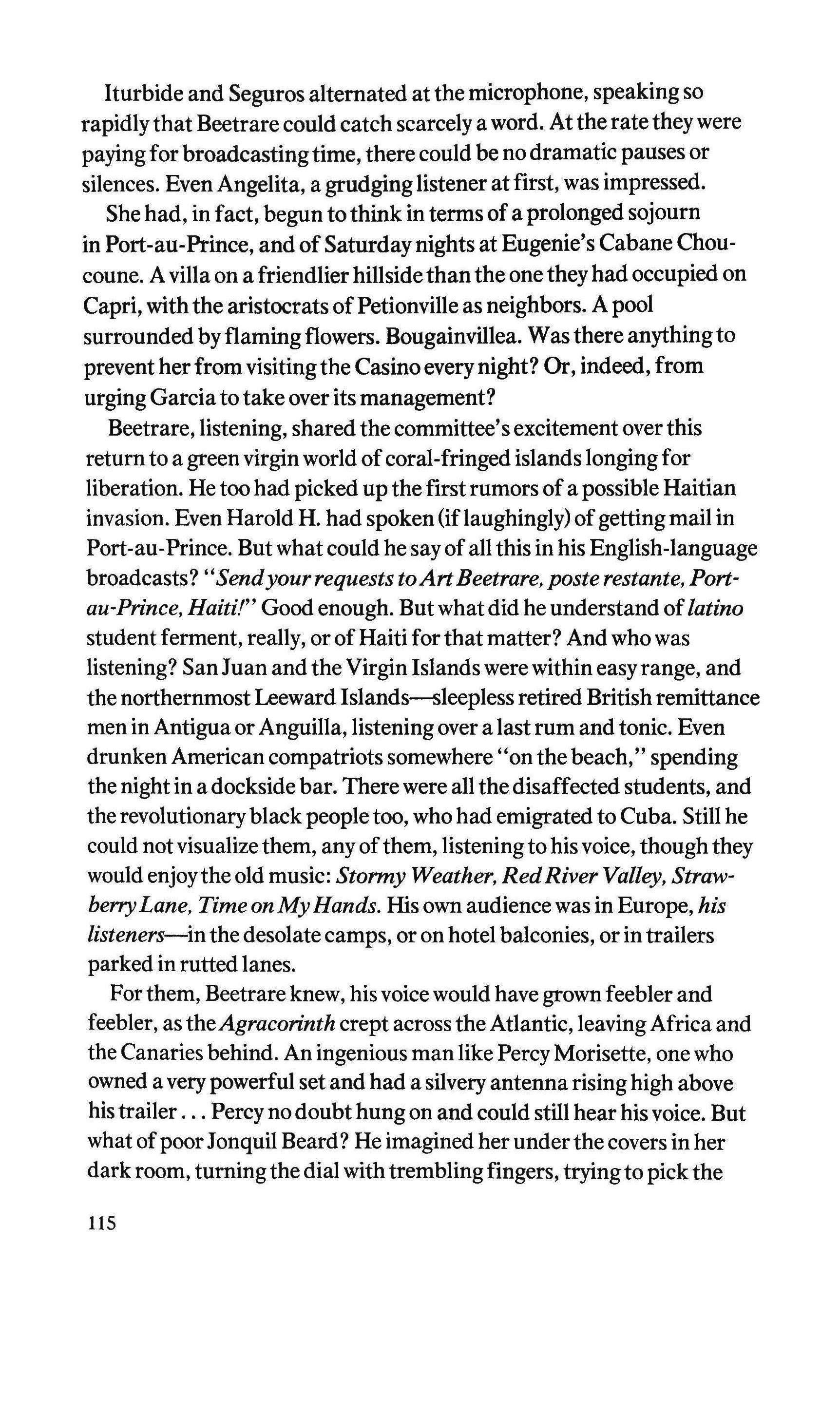
Iturbide and Seguros alternated at the microphone, speaking so rapidlythat Beetrare could catch scarcely a word. Atthe rate they were payingforbroadcastingtime, there could be no dramatic pauses or silences. Even Angelita, a grudginglistener at first, was impressed. She had, in fact, begun to think in terms of a prolongedsojourn in Port-au-Prince, and ofSaturdaynights at Eugenie's Cabane Choucoune. A villa on a friendlier hillsidethanthe one theyhad occupied on Capri, with the aristocrats ofPetionville as neighbors. A pool surrounded byflamingflowers. Bougainvillea. Wasthere anything to prevent herfrom visitingthe Casinoeverynight? Or, indeed, from urgingGarcia to take over its management?
Beetrare, listening, shared the committee's excitement over this return to a green virginworld ofcoral-fringed islands longing for liberation. He too had picked up thefirst rumors of a possible Haitian invasion. Even Harold H. had spoken(iflaughingly) ofgettingmail in Port-au-Prince. But what could he say ofallthis in his English-language broadcasts? "Sendyourrequests toArtBeetrare, poste restante, Portau-Prince, Haiti!" Good enough. But whatdid he understand oflatino student ferment, really, or of Haiti forthatmatter? And who was listening? San Juan and the Virgin Islands were within easyrange, and the northernmost Leeward Islands-sleepless retired British remittance men in Antigua or Anguilla,listening over a last rum and tonic. Even drunken American compatriots somewhere "on thebeach," spending the night in a dockside bar. There were all thedisaffected students, and the revolutionaryblack peopletoo, who had emigrated to Cuba. Still he could not visualize them, any ofthem, listeningto his voice, thoughthey would enjoythe old music: Stormy Weather, RedRiver Valley, StrawberryLane, Time on MyHands. His own audience was in Europe, his listeners-inthe desolate camps, or on hotel balconies, or in trailers parked in rutted lanes.
For them, Beetrare knew, his voice would have grown feebler and feebler, as theAgracorinth crept across the Atlantic, leaving Africa and the Canaries behind. An ingenious man like PercyMorisette, one who owned a verypowerful set and had a silvery antenna risinghigh above his trailer Percy no doubt hung on and could still hear hisvoice. But what ofpoorJonquil Beard? He imagined her underthe covers in her dark room, turningthe dial withtremblingfingers,tryingto pickthe
115
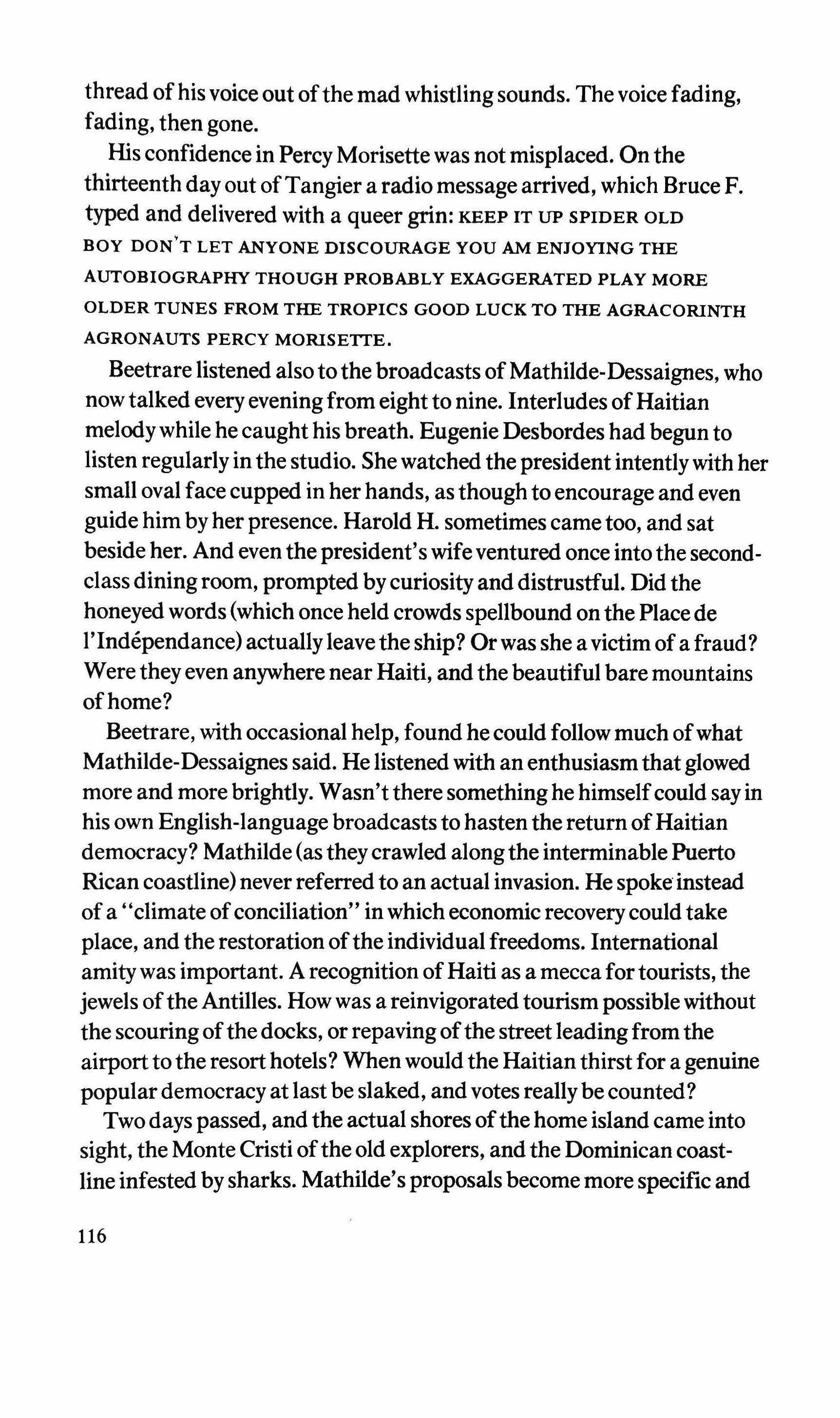
thread ofhis voice out ofthe mad whistling sounds. The voice fading, fading, then gone.
His confidence in Percy Morisette was not misplaced. On the thirteenth day out ofTangier a radio message arrived, which Bruce F. typed and delivered with a queer grin: KEEP IT UP SPIDER OLD BOY DON'T LET ANYONE DISCOURAGE YOU AM ENJOYING THE AUTOBIOGRAPHY THOUGH PROBABLY EXAGGERATED PLAY MORE OLDER TUNES FROM THE TROPICS GOOD LUCK TO THE AGRACORINTH AGRONAUTS PERCY MORISETTE.
Beetrare listened also to the broadcasts of Mathilde-Dessaignes, who now talked every eveningfrom eight to nine. Interludes ofHaitian melodywhile he caught his breath. Eugenie Desbordes had begun to listen regularly in the studio. She watched the presidentintently with her small oval face cupped in her hands, as though to encourage and even guide him byher presence. Harold H. sometimes came too, and sat beside her. And even the president's wifeventured once into the secondclass dining room, prompted bycuriosity and distrustful. Did the honeyed words (which once held crowds spellbound on the Placede l'Independance)actually leavethe ship? Or was she a victim of a fraud? Were they even anywhere near Haiti, and the beautiful baremountains ofhome?
Beetrare, with occasional help, found hecould follow much ofwhat Mathilde-Dessaignes said. He listened with an enthusiasm thatglowed more and more brightly. Wasn't there something he himselfcould say in his own English-language broadcasts to hasten the return ofHaitian democracy? Mathilde (asthey crawled alongthe interminable Puerto Rican coastline) never referred to an actual invasion. He spoke instead of a "climate ofconciliation" inwhich economic recovery could take place, and the restoration ofthe individual freedoms. International amity was important. A recognition of Haiti as a mecca fortourists, the jewels ofthe Antilles. How was a reinvigorated tourism possible without the scouringofthedocks, or repavingofthe street leadingfrom the airport to the resort hotels? When would the Haitian thirst for a genuine populardemocracy at last be slaked, and votes really be counted?
Two days passed, and the actual shores ofthe home island came into sight, the Monte Cristi ofthe old explorers, and the Dominican coastline infested by sharks. Mathilde's proposals become more specific and
116
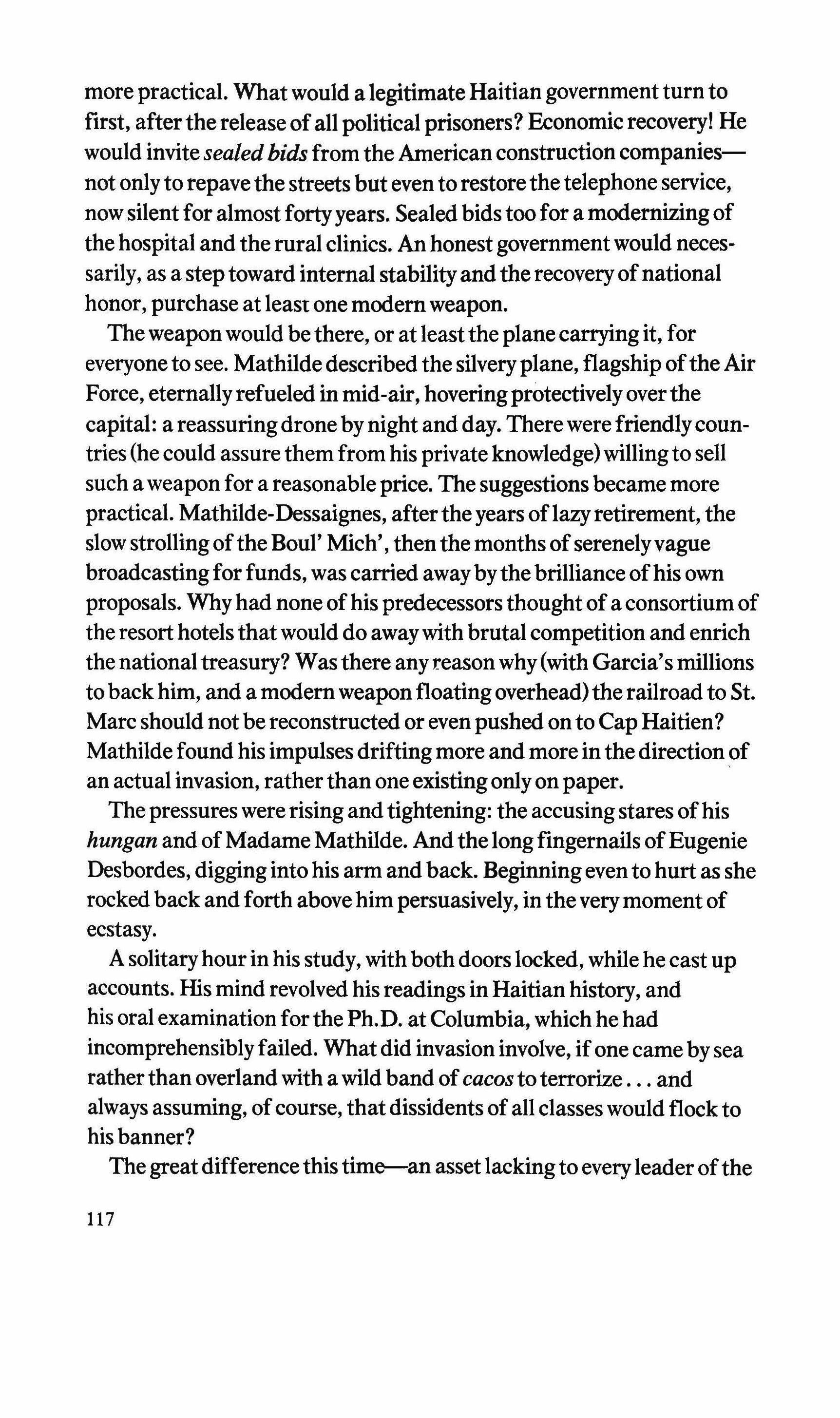
more practical. Whatwould a legitimate Haitian government turn to first, aftertherelease ofall political prisoners? Economic recoveryI He would invitesealedbids from the American construction companiesnot onlyto repave the streets but even to restorethetelephone service, now silentfor almost fortyyears. Sealed bids too for a modernizingof the hospital and the rural clinics. An honest government would necessarily, as a steptoward internal stabilityandtherecovery ofnational honor, purchase at least one modern weapon.
The weaponwould bethere, or at leastthe planecarryingit, for everyone to see. Mathilde described the silveryplane, flagship ofthe Air Force, eternallyrefueled in mid-air, hoveringprotectively over the capital: a reassuringdrone bynight and day. There were friendly countries (he could assure them from his privateknowledge)willingto sell such a weapon for a reasonable price. The suggestions became more practical. Mathilde-Dessaignes, afterthe years oflazyretirement, the slow strollingofthe Boul' Mich', thenthe months ofserenelyvague broadcastingforfunds, was carried awaybythe brilliance ofhis own proposals. Why had none ofhis predecessorsthoughtof a consortium of the resort hotelsthat would do awaywith brutal competition and enrich the national treasury? Wasthere any reason why(with Garcia's millions to back him, and a modernweapon floatingoverhead)therailroad to St. Marc should not be reconstructed or even pushed on to Cap Haitien? Mathilde found his impulsesdrifting more and more inthedirection of an actual invasion, ratherthan one existingonly on paper.
The pressures were rising and tightening: the accusing stares ofhis hungan and of Madame Mathilde. And thelongfingernails ofEugenie Desbordes, digginginto his arm and back. Beginning even to hurt as she rockedback and forth above him persuasively, inthe verymoment of ecstasy.
A solitaryhour in his study, withboth doors locked, while he cast up accounts. His mind revolved his readings in Haitian history, and his oral examination forthe Ph.D. at Columbia, which he had incomprehensiblyfailed. What did invasion involve, if one came by sea ratherthan overland with a wild band of cacos toterrorize and always assuming, of course, that dissidents of all classes would flock to his banner?
The great differencethis time=an asset lackingto everyleader ofthe
117
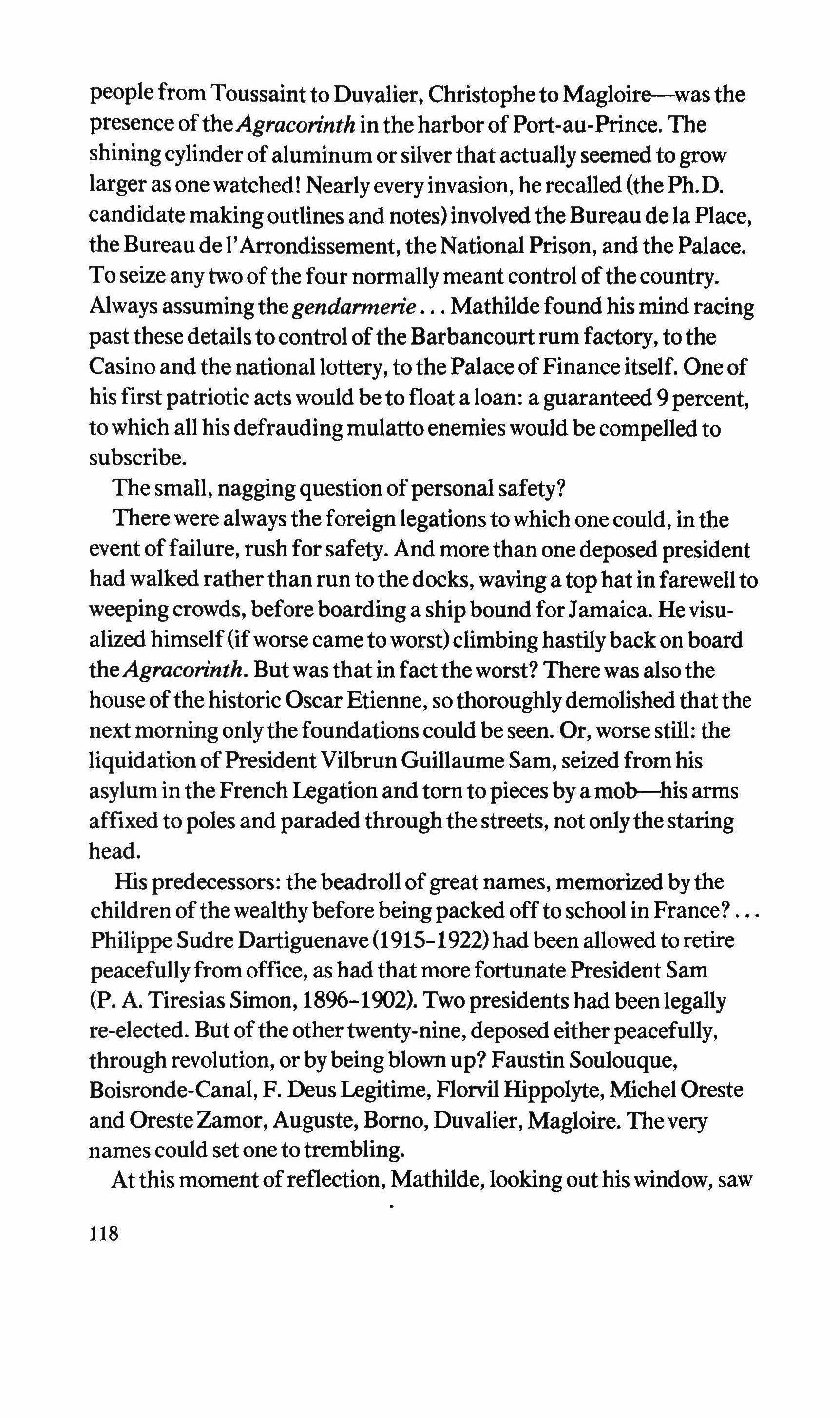
people from Toussaint to Duvalier, Christophe to Magloire-wasthe presence oftheAgracorinth in the harbor of Port-au-Prince. The shiningcylinder of aluminum or silverthat actuallyseemed to grow larger as one watched! Nearly every invasion, he recalled (the Ph.D. candidate making outlines and notes) involved the Bureau de la Place, the Bureau de I'Arrondissement, the National Prison, and the Palace. To seize anytwo ofthe four normally meant control ofthecountry. Always assumingthegendarmerie Mathildefound his mind racing past these details to control ofthe Barbancourt rum factory, to the Casino and the national lottery, to the Palace ofFinance itself. One of his first patriotic acts would be to float a loan: a guaranteed 9 percent, to which all his defrauding mulatto enemies would be compelled to subscribe.
The small, naggingquestion ofpersonal safety?
There were always the foreignlegations to which one could, in the event offailure, rush for safety. And more than one deposedpresident had walked rather than run to thedocks, waving a top hat infarewell to weepingcrowds, beforeboarding a ship bound forJamaica. He visualized himself(if worse came to worst)climbinghastilyback on board theAgracorinth. But was that in facttheworst? There was alsothe house ofthe historic Oscar Etienne, so thoroughlydemolished that the next morningonlythefoundations could be seen. Or, worse still: the liquidation ofPresident Vilbrun Guillaume Sam, seized from his asylum in the French Legation and torn to piecesby a mob--his arms affixed to poles and paradedthroughthe streets, not onlythe staring head.
His predecessors: the beadroll ofgreat names, memorized bythe children ofthe wealthybefore beingpacked offto school in France? Philippe Sudre Dartiguenave(1915-1922) had been allowed to retire peacefully from office, as had that more fortunate President Sam (P. A. Tiresias Simon, 1896-1902). Two presidents had been legally re-elected. But ofthe othertwenty-nine, deposed either peacefully, through revolution, or bybeingblown up? Faustin Soulouque, Boisronde-Canal, F. Deus Legitime, Florvil Hippolyte, Michel Oreste and OresteZamor, Auguste, Borno, Duvalier, Magloire. The very names could set one to trembling.
Atthis moment ofreflection, Mathilde, looking out his window, saw
118
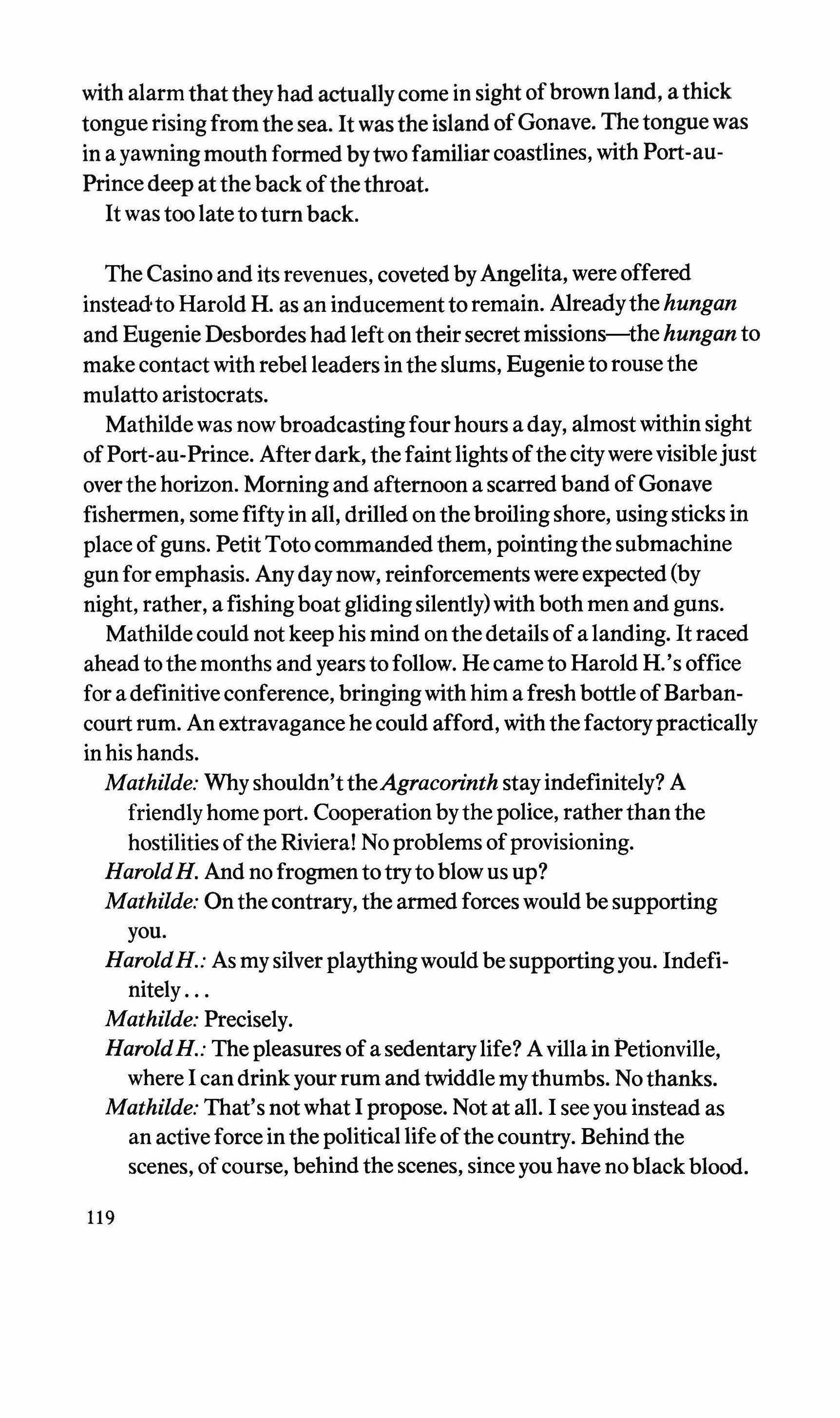
with alarm thattheyhad actually come in sight ofbrown land, a thick tonguerisingfromthe sea. It was the island ofGonave. Thetongue was in a yawningmouth formed bytwo familiar coastlines, with Port-auPrincedeep at theback ofthethroat. It was too late totum back.
The Casino and its revenues, coveted byAngelita, were offered instead-to Harold H. as an inducementto remain. Alreadythehungan and Eugenie Desbordes had left on their secret missions-the hungan to make contact with rebel leaders inthe slums, Eugenie to rouse the mulatto aristocrats.
Mathilde was now broadcastingfourhours a day, almost within sight ofPort-au-Prince. Afterdark, thefaintlights ofthe city were visiblejust over the horizon. Morning and afternoon a scarred band ofGonave fishermen, some fifty in all, drilled on thebroilingshore, usingsticks in place ofguns. PetitTotocommanded them, pointingthe submachine gun foremphasis. Anyday now, reinforcements were expected(by night, rather, a fishingboat glidingsilently)with both men and guns.
Mathilde could not keep his mind on thedetails of a landing. It raced ahead to the months and years to follow. He came to Harold H.'s office for a definitiveconference, bringingwith him a fresh bottle ofBarbancourt rum. An extravagance he could afford, with thefactorypractically in his hands.
Mathilde: Why shouldn'ttheAgracorinthstayindefinitely? A friendly home port. Cooperationbythe police, ratherthan the hostilities ofthe Riviera! No problems ofprovisioning. HaroldH. And no frogmen totryto blow us up?
Mathilde: Onthe contrary, the armed forces would be supporting you.
HaroldH.: As my silver playthingwould be supportingyou. Indefinitely
Mathilde: Precisely.
HaroldH.: The pleasures of a sedentarylife? A villain Petionville, where I can drinkyour rum and twiddle mythumbs. No thanks.
Mathilde: That's not what I propose. Not at all. I see you instead as an active force in the political life ofthe country. Behind the scenes, of course, behind the scenes, since you have no blackblood.
119
I offer you the management ofthe Casino, with only5 percent reserved forthe nation.
HaroldH.: A generous offer. However, I think Angelita has that in mind for EI Toro.
Mathilde: I am the president, I will makethe allocations. Besides, Garcia is sulking. Hewill have nothing to do with me. I could help him double his fortune. Instead he keeps his millions in the Swiss bank and in his safe. He turns his back on the invasion.
HaroldH.: Toobad. However, I'll have to pass up the Casino myself. I want to keepmoving.
Mathilde: You're not abandoning me!
HaroldH.: Notyet.
Mathilde: Not yet! What does that mean?
HaroldH.: I mean I'll cover your landing. But that's all. Pulverisation de la ville, sure, iftheydon'tletyou land.Aneantissement, destruction totale, lapest�anythingyou want to threaten. But once you'velanded, you're on your own.
Mathilde: Butyou'remissing an opportunity! Ifyou don't want theCasino
HaroldH.: I've been missingopportunities all mylife. It's almost a matter ofprinciple.
Mathilde: A share inthe Barbancourt rum factory? Management of one ofthe hotels?
HaroldH.: I'm sorry. I guess I'm incorruptible.
Mathilde: What a thingto say! But can I at least count on you for the landing?
HaroldH.: Yes. You can count on me forthat.
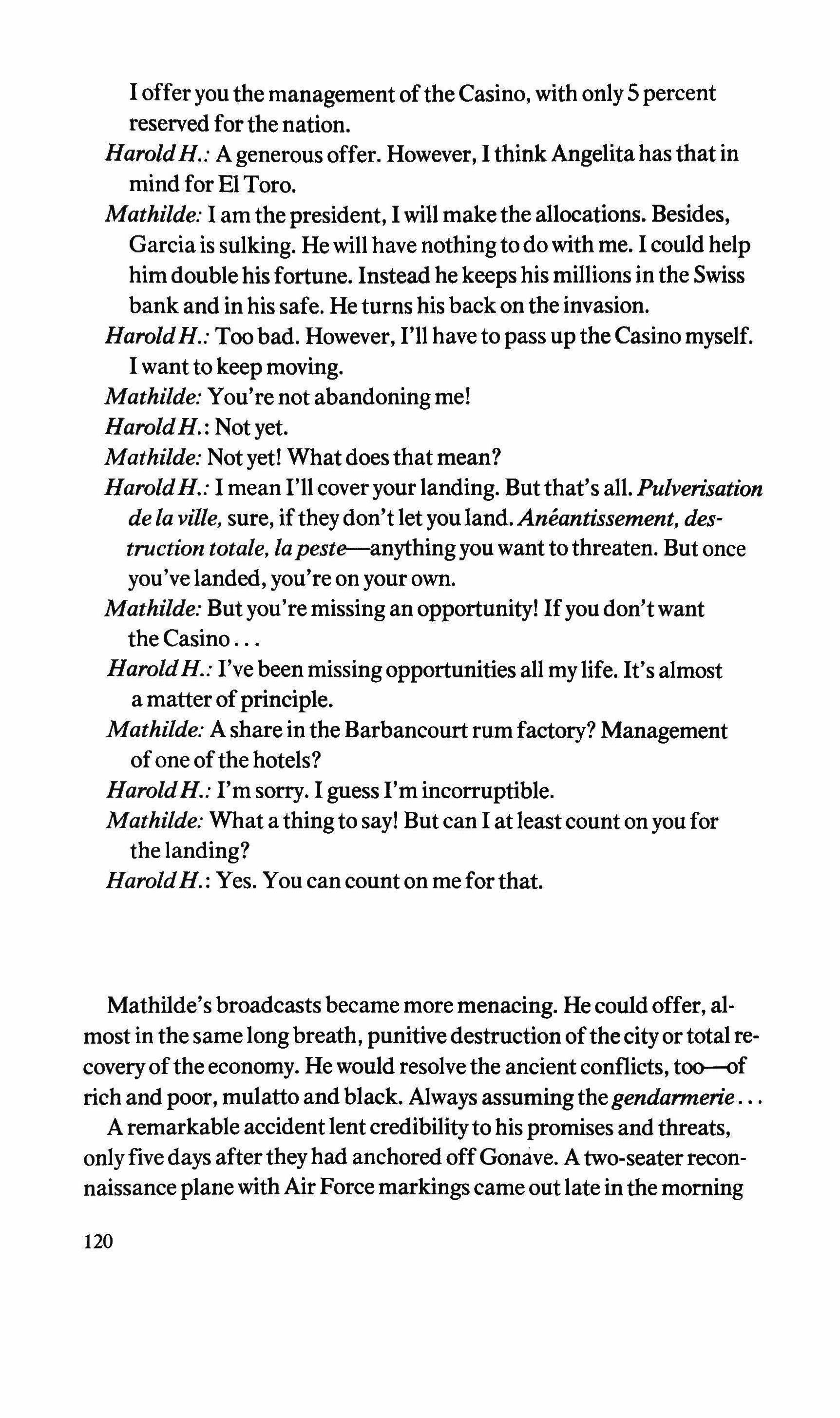
Mathilde's broadcasts became more menacing. He could offer, almost in the same longbreath, punitivedestruction ofthecity or total recoveryofthe economy. He would resolve the ancient conflicts, t()()--()f rich and poor, mulatto and black. Always assumingthegendarmerie
A remarkable accident lent credibility to his promises and threats, onlyfive days aftertheyhad anchored offGonave. A two-seater reconnaissance planewith Air Forcemarkings came out late inthe morning 120
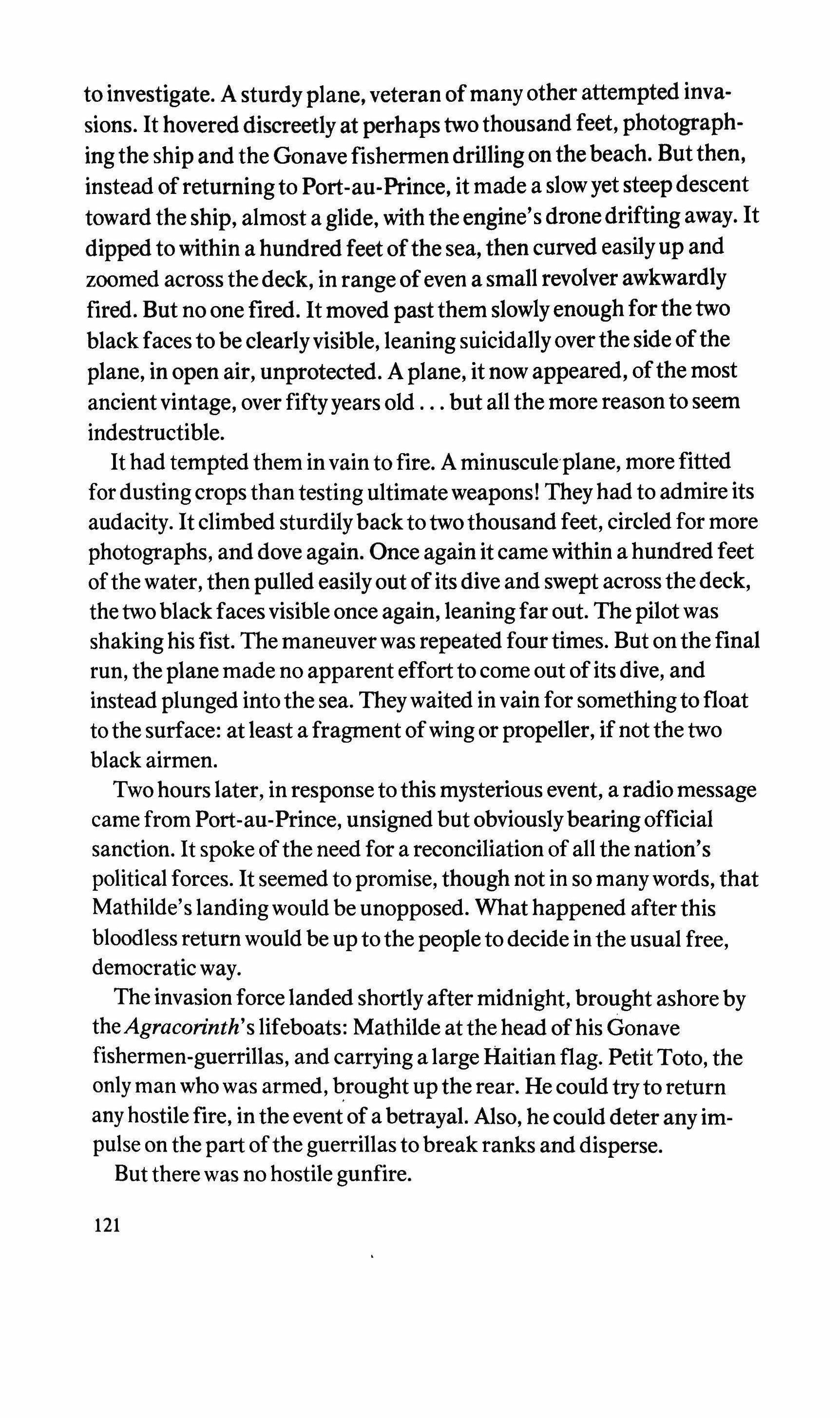
to investigate. A sturdyplane, veteran ofmany other attempted invasions. It hovered discreetly at perhaps two thousand feet, photographingthe ship and the Gonave fishermen drilling on thebeach. Butthen, instead ofretumingto Port-au-Prince, it made a slowyet steepdescent toward the ship, almost a glide, with the engine's dronedrifting away. It dipped to within a hundred feet ofthe sea, then curved easilyup and zoomed across thedeck, in range of even a small revolver awkwardly fired. But no one fired. It moved pastthem slowlyenough forthe two black faces to be clearlyvisible, leaningsuicidally over the side ofthe plane, in open air, unprotected. A plane, it now appeared, ofthe most ancientvintage, over fiftyyears old but all the more reason to seem indestructible.
It had tempted them in vain to fire. A minusculeplane, more fitted for dusting crops than testing ultimate weapons! They had to admire its audacity. It climbed sturdilybackto twothousand feet, circled for more photographs, and dove again. Once again it came within a hundred feet ofthe water, then pulledeasily out ofits dive and swept across the deck, the two blackfaces visible once again, leaningfar out. The pilot was shakinghis fist. The maneuver was repeated fourtimes. But on the final run, the plane made no apparent effort to come out ofits dive, and instead plunged intothe sea. Theywaited in vain for somethingto float to the surface: at least a fragment ofwing or propeller, if not the two black airmen.
Twohours later, in response to this mysterious event, a radio message came from Port-au-Prince, unsigned but obviouslybearing official sanction. It spoke ofthe need for a reconciliation of all the nation's political forces. It seemed to promise, though not in so manywords, that Mathilde's landing would be unopposed. What happened after this bloodless return would be up to the people to decide in the usual free, democratic way.
The invasion force landed shortly after midnight, brought ashore by theAgracorinth's lifeboats: Mathilde at the head ofhis Gonave fishermen-guerrillas, and carrying a large Haitianflag. Petit Toto, the only man who was armed, brought up the rear. He could try to return any hostilefire, in the event of a betrayal. Also, he could deter any impulse on the part ofthe guerrillas to break ranks and disperse.
But there was no hostile gunfire.
121
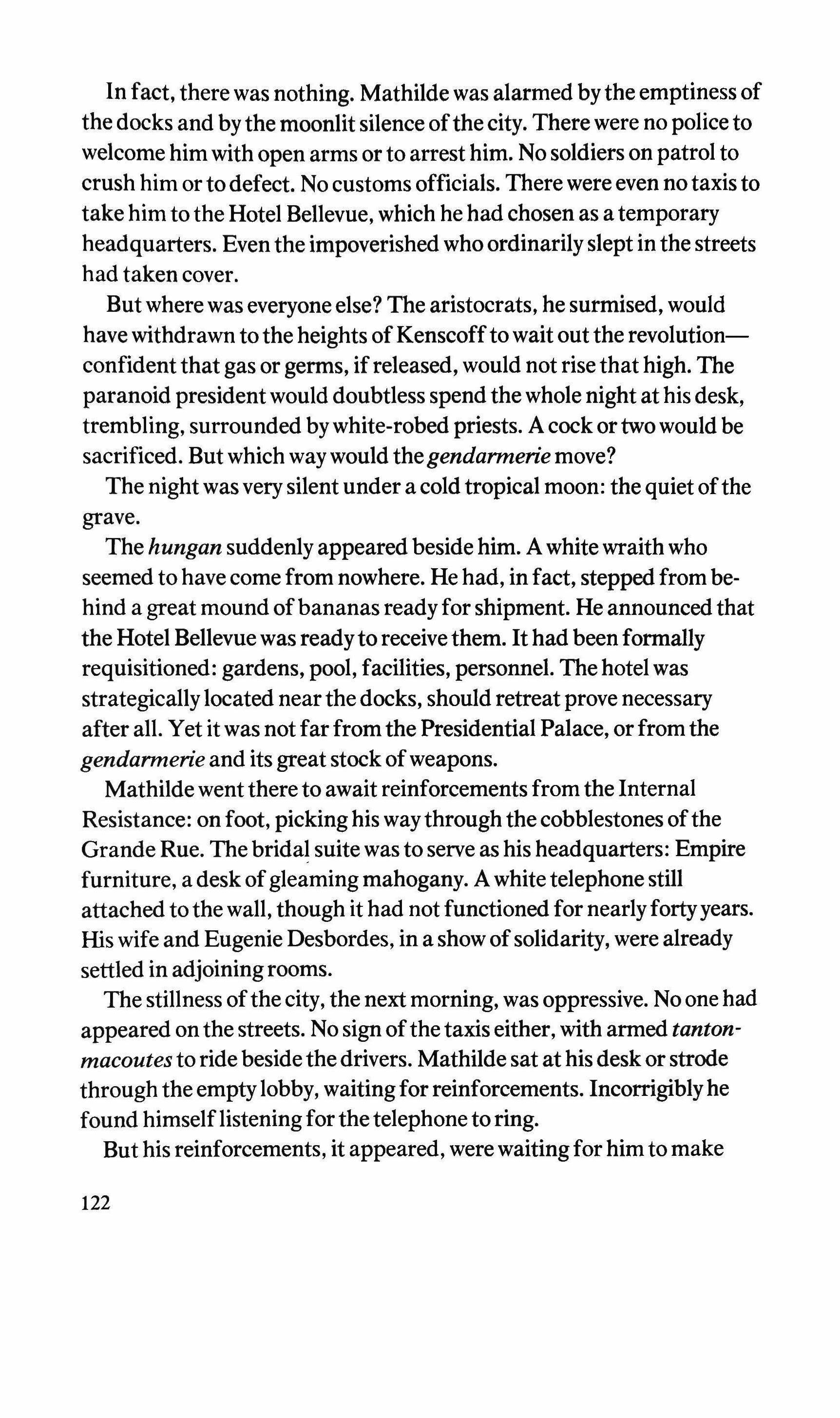
In fact, there was nothing. Mathilde was alarmed bythe emptiness of the docks and bythe moonlit silence ofthe city. There were no police to welcome himwith open arms or to arrest him. No soldiers on patrol to crush him or to defect. No customs officials. There were even no taxis to take him to the Hotel Bellevue, which he had chosen as a temporary headquarters. Eventhe impoverished who ordinarilyslept in the streets had taken cover.
But where was everyone else? The aristocrats, he surmised, would have withdrawn to the heights ofKenscoffto wait out the revolutionconfident that gas or germs, ifreleased, would not rise that high. The paranoid president would doubtless spend the whole night at his desk, trembling, surrounded bywhite-robed priests. A cock or two would be sacrificed. But which way would thegendarmerie move?
The night was very silent under a cold tropical moon: the quiet ofthe grave.
The hungan suddenlyappeared beside him. Awhitewraith who seemed to have come from nowhere. He had, in fact, stepped from behind a great mound ofbananas readyfor shipment. He announced that the Hotel Bellevue was readyto receive them. It had beenformally requisitioned: gardens, pool, facilities, personnel. The hotel was strategicallylocated near thedocks, should retreat prove necessary after all. Yet it was not farfromthe Presidential Palace, or from the gendarmerie and its great stock ofweapons.
Mathilde went there to await reinforcements from the Internal Resistance: on foot, pickinghis waythrough the cobblestones ofthe Grande Rue. The bridal suite was to serve as his headquarters: Empire furniture, a desk ofgleamingmahogany. Awhite telephone still attached to the wall, though it had not functioned for nearlyfortyyears. His wife and Eugenie Desbordes, in a show ofsolidarity, were already settled in adjoining rooms.
The stillness ofthe city, the next morning, was oppressive. No one had appeared on the streets. No sign ofthetaxis either, with armed tantonmacoutes to ride besidethedrivers. Mathilde sat at his desk or strode through the emptylobby, waitingforreinforcements. Incorrigiblyhe found himselflistening forthetelephone to ring.
But his reinforcements, it appeared, were waitingfor him to make
122
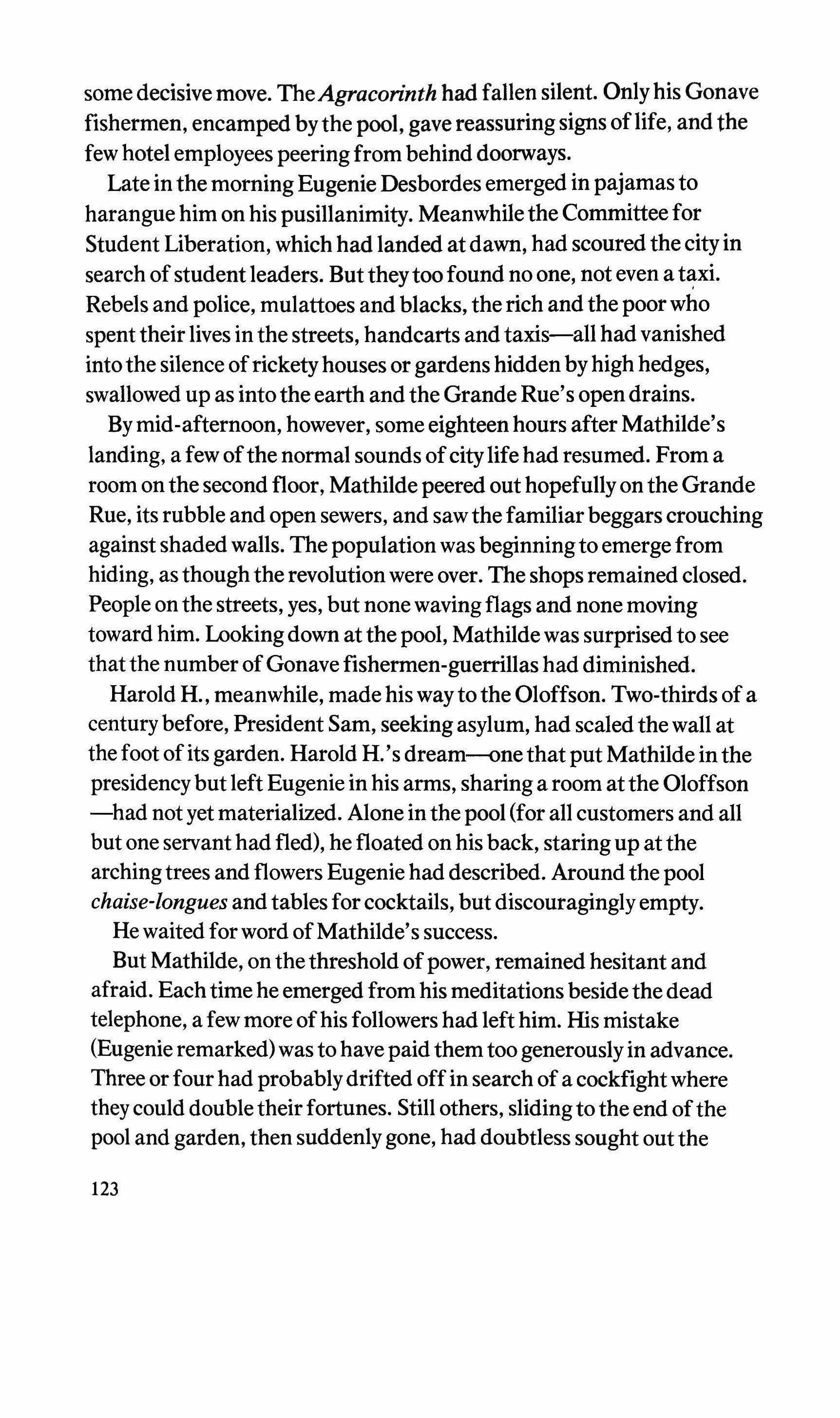
some decisive move. TheAgracorinth had fallen silent. Onlyhis Gonave fishermen, encampedbythe pool, gave reassuringsigns oflife, and the few hotel employeespeeringfrom behind doorways.
Late inthemorningEugenie Desbordes emerged in pajamas to harangue him on his pusillanimity. Meanwhilethe Committeefor Student Liberation, which had landed at dawn, had scoured the cityin search ofstudent leaders. But theytoo found no one, not even a taxi. Rebels and police, mulattoes and blacks, the rich and the poorwho spent their lives in the streets, handcarts and taxis-all had vanished intothe silence ofricketyhouses or gardens hiddenbyhighhedges, swallowed up as intothe earth and the Grande Rue's open drains.
Bymid-afternoon, however, some eighteen hours after Mathilde's landing, a few ofthe normal sounds ofcitylife had resumed. From a room on the second floor, Mathilde peered out hopefully on the Grande Rue, its rubble and open sewers, and saw thefamiliarbeggarscrouching against shaded walls. The population was beginningto emerge from hiding, as thoughthe revolution were over. The shops remained closed. People on the streets, yes, but none wavingflags and none moving toward him. Looking down at the pool, Mathilde was surprised to see that the number ofGonave fishermen-guerrillas had diminished.
Harold H., meanwhile, made his wayto the Oloffson. Two-thirds of a centurybefore, President Sam, seekingasylum, had scaledthewall at the foot ofits garden. Harold H.'s dream+-one that put Mathilde inthe presidencybut left Eugenie in his arms, sharing a room at the Oloffson -had not yetmaterialized. Alone in the pool (for all customers and all but one servant had fled), he floated on his back, staring up at the arching trees and flowers Eugenie had described. Around the pool chaise-longues and tables forcocktails, but discouraginglyempty. He waited forword ofMathilde's success.
But Mathilde, on thethreshold ofpower, remained hesitant and afraid. Each time he emerged from his meditations besidethedead telephone, a few more ofhis followers had left him. His mistake (Eugenieremarked) was to havepaid them too generously in advance. Three or four had probablydrifted offin search of a cockfight where they could doubletheirfortunes. Still others, slidingto the end ofthe pool and garden, then suddenly gone, had doubtless sought out the
123
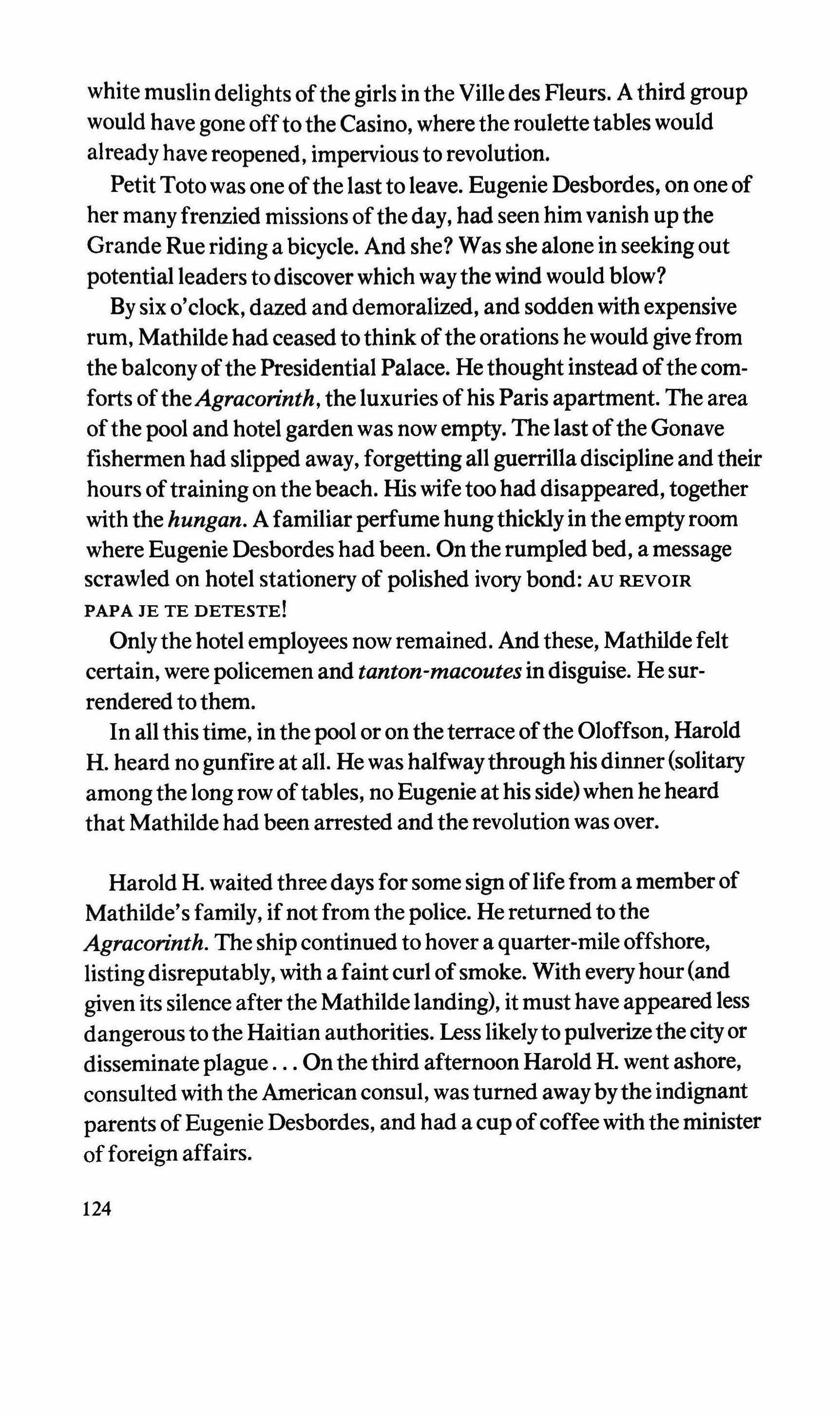
white muslin delights ofthe girls in the Ville des Fleurs. A third group would have gone offto the Casino, where the roulette tables would already have reopened, impervious to revolution.
Petit Toto was one ofthe last to leave. Eugenie Desbordes, on one of her manyfrenzied missions oftheday, had seen himvanish up the Grande Rue riding a bicycle. And she? Was she alone in seeking out potential leaders to discoverwhich way the wind would blow?
By six 0'clock, dazed and demoralized, and sodden with expensive rum, Mathilde had ceased to think ofthe orations he would give from the balcony ofthe Presidential Palace. He thought instead ofthe comforts oftheAgracorinth the luxuries ofhis Paris apartment. The area ofthe pool and hotel garden was now empty. The last ofthe Gonave fishermen had slipped away, forgettingall guerrilladiscipline andtheir hours oftraining on the beach. His wife too had disappeared, together with the hungan. Afamiliar perfumehungthicklyin the empty room where Eugenie Desbordes had been. Onthe rumpled bed, a message scrawled on hotel stationery of polished ivory bond: AU REVOIR PAPA IE TE DETESTE!
Onlythe hotel employees now remained. And these, Mathilde felt certain, were policemen and tanton-macoutes indisguise. He surrendered tothem.
In all this time, inthe pool or on the terrace ofthe Oloffson, Harold H. heard no gunfire at all. He was halfwaythrough his dinner(solitary among the long row oftables, no Eugenie at his side) when he heard that Mathilde had been arrested and the revolution was over.
Harold H. waited three days for some sign oflife from a member of Mathilde's family, if not from the police. He returned tothe Agracorinth. The ship continued to hover a quarter-mileoffshore, listingdisreputably, with a faint curl ofsmoke. With every hour (and given its silence afterthe Mathilde landing), it must have appeared less dangerous to the Haitian authorities. Less likelyto pulverizethe city or disseminate plague
On thethird afternoon Harold H. went ashore, consulted with the American consul, was turned away bythe indignant parents of Eugenie Desbordes, and had a cup ofcoffee with the minister offoreign affairs.
124
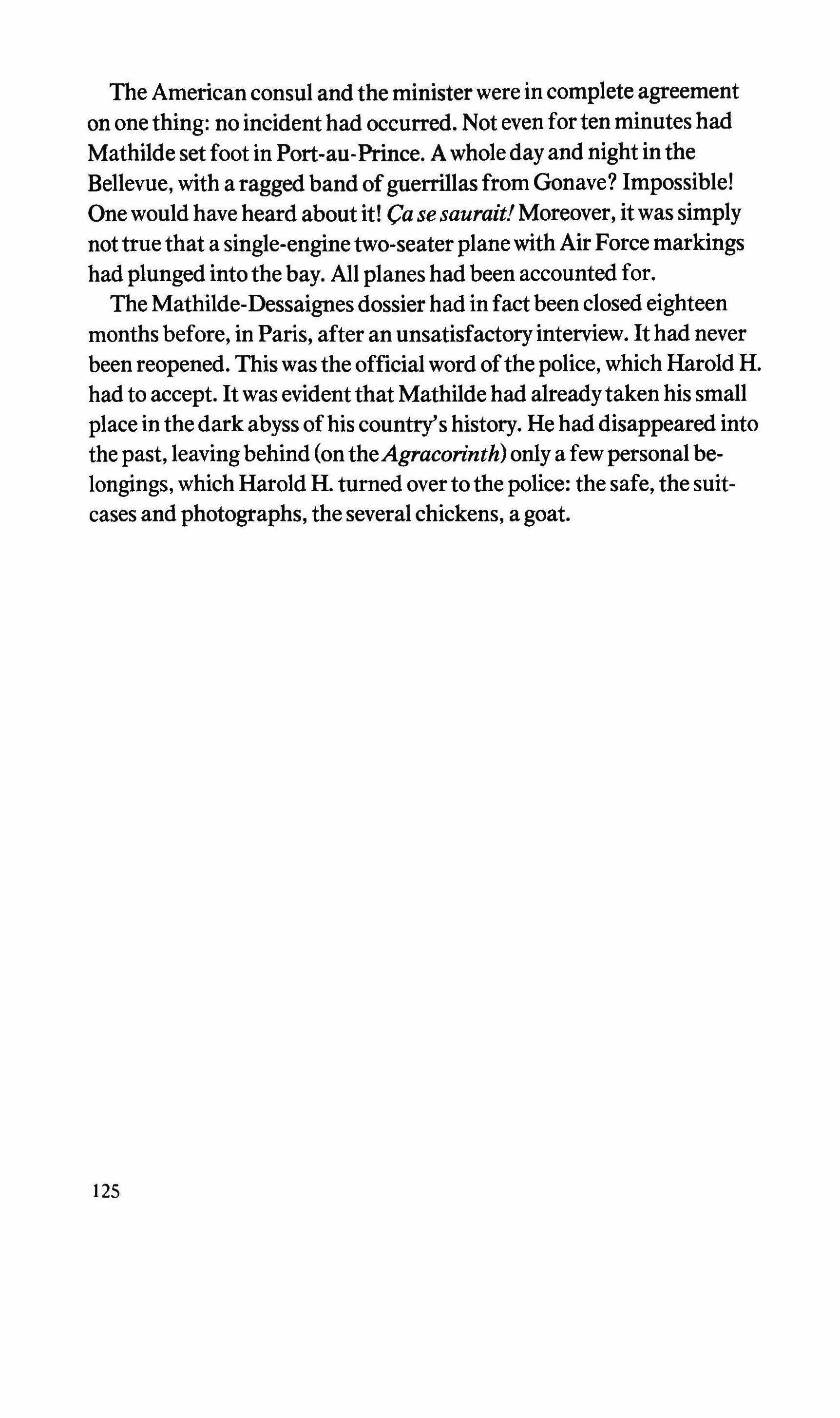
The American consul and the minister were in complete agreement on one thing: no incident had occurred. Not even for ten minutes had Mathilde set foot in Port-au-Prince. Awhole dayand night in the Bellevue, with a ragged band ofguerrillas from Gonave? Impossible! One would have heard aboutit! Ca se saurait!Moreover, it was simply not true that a single-engine two-seater planewith Air Force markings had plunged intothe bay. All planes had been accounted for.
The Mathilde-Dessaignes dossier had in fact been closed eighteen months before, in Paris, after an unsatisfactoryinterview. It had never been reopened. This was the official word ofthe police, which Harold H. had to accept. It was evidentthat Mathilde had alreadytaken his small place in the dark abyss ofhis country's history. He had disappeared into thepast, leavingbehind (ontheAgracorinth)only a fewpersonal belongings, which Harold H. turned over to the police: the safe, the suitcases and photographs, the several chickens, a goat.
125
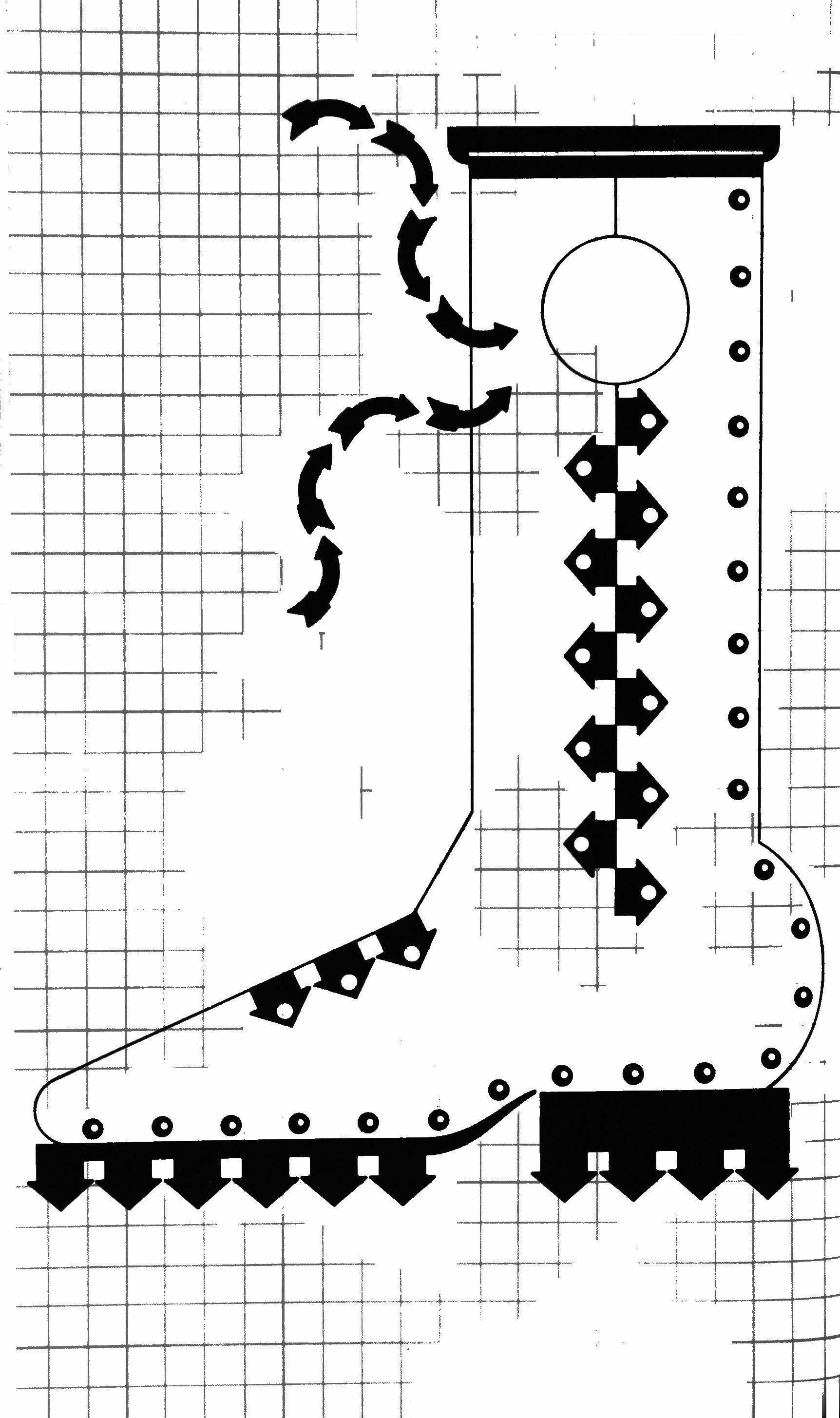
0 +-1 0 .� 0 .tt. ,-1- -L-. 0 I r---tI I) 0 T 0 0 ��----"1---.....__.__ I ! --+-I i - ! --+i I I I j -1--·-+: --+--+--+--+-- -+ --� -�--+ i - ----t--.-+-�__+___+_ i .1.. +--.J---1--+-
Five pieces
Andrei Codrescu
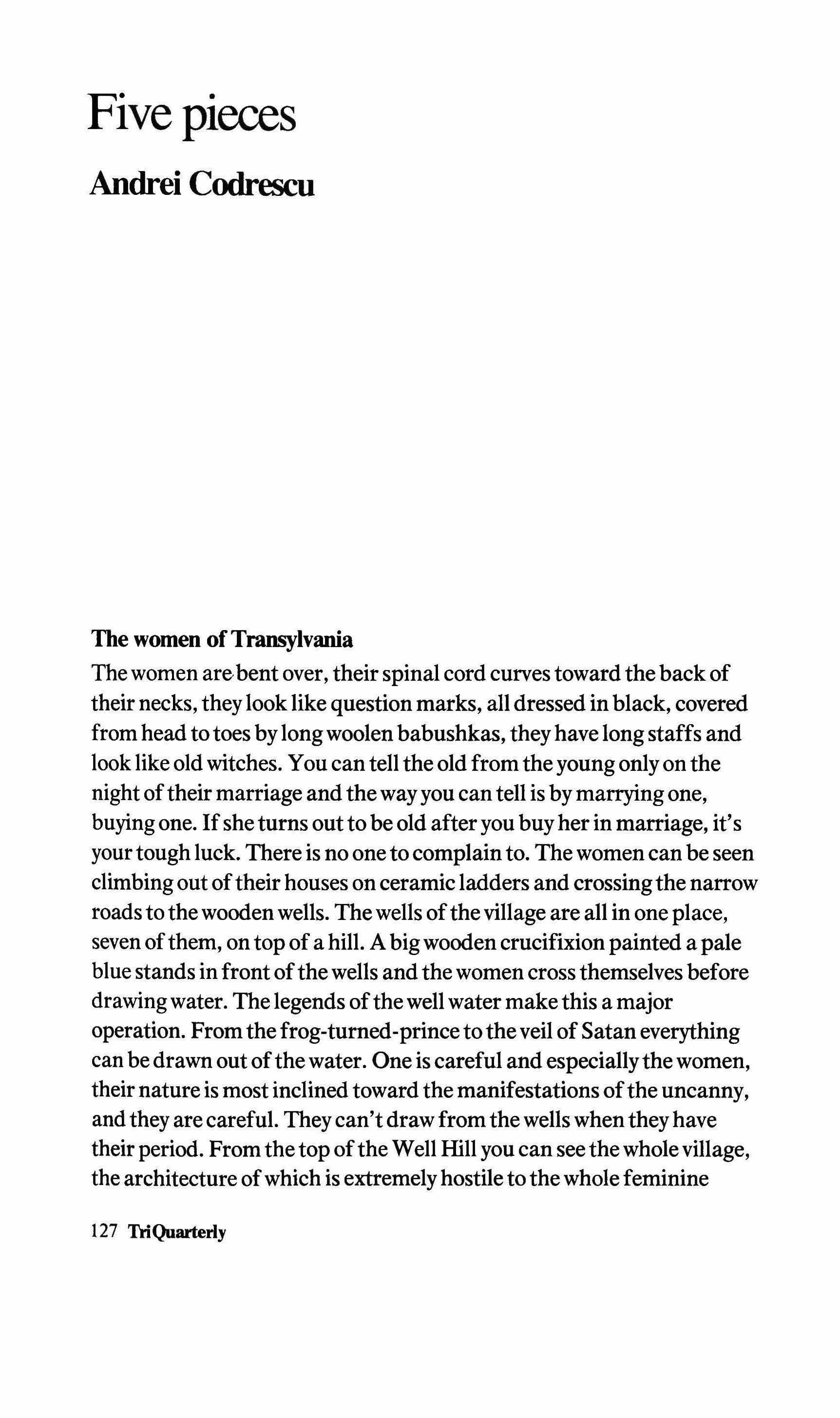
The women ofTransylvania
The women arebent over, their spinal cord curves toward thebackof their necks, theylooklike questionmarks, all dressed inblack, covered fromhead to toes bylongwoolen babushkas, theyhave long staffs and look like old witches. You can tell the old from theyoung only on the night oftheir marriage and the wayyou can tell is bymarrying one, buying one. Ifsheturns out to be old after you buyherin marriage, it's yourtough luck. There is no one to complain to. The women can be seen climbing out oftheir houses on ceramic ladders and crossingthe narrow roads to the woodenwells. Thewells ofthevillage are all in one place, seven ofthem, on top of a hill. A bigwooden crucifixion painted a pale blue stands in front ofthewells and the women cross themselves before drawingwater. The legends ofthewell water make this a major operation. Fromthefrog-turned-prince totheveil of Satan everything can bedrawn out ofthe water. One is careful and especiallythe women, their nature is most inclined toward the manifestations ofthe uncanny, and they are careful. Theycan'tdraw fromthewells whentheyhave their period. From thetop ofthe Well Hill you can see the wholevillage, the architecture ofwhich is extremely hostile to thewholefeminine
127 TriQu&rterly
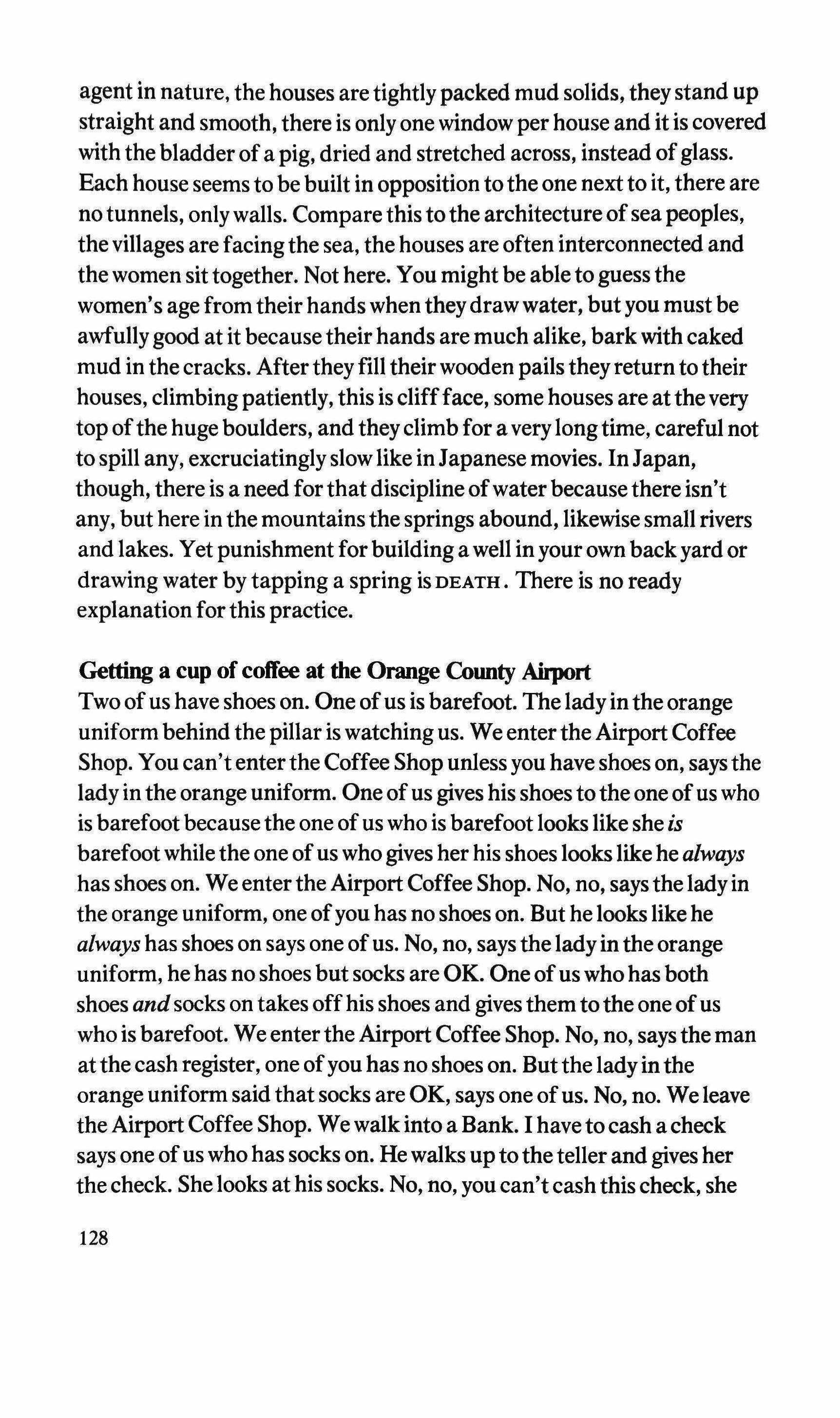
agent in nature, the houses are tightlypacked mud solids, they stand up straight and smooth, there is only one window per house and it is covered with the bladder of a pig, dried and stretched across, instead ofglass. Each house seems to be built in opposition to the one next to it, there are no tunnels, onlywalls. Compare this to the architecture of sea peoples, the villages are facingthe sea, the houses are often interconnected and the women sit together. Not here. You might be able to guess the women's age from their hands when theydraw water, but you must be awfullygood at it because their hands are much alike, bark with caked mud in the cracks. Aftertheyfill theirwooden pailsthey return to their houses, climbingpatiently, this is cliffface, some houses are atthevery top ofthe hugeboulders, and theyclimb for a verylongtime, careful not to spill any, excruciatingly slowlike in Japanese movies. In Japan, though, there is a need forthat discipline ofwater because there isn't any, but here in the mountains the springs abound, likewise small rivers and lakes. Yet punishment forbuilding a well inyour own backyard or drawing water bytapping a spring is DEATH. There is no ready explanation forthis practice.
Getting a cup of coffee at the Orange County Airport
Two of us have shoes on. One of us is barefoot. The ladyinthe orange uniform behind the pillar is watching us. We enter the Airport Coffee Shop. You can't enter the Coffee Shop unless you have shoes on, says the lady in the orange uniform. One of us gives his shoes to the one of us who is barefoot because the one of us who is barefoot looks like she is barefoot while the one of us whogives her his shoes looks like he always has shoes on. We enter the Airport Coffee Shop. No, no, saysthe ladyin the orange uniform, one ofyou has no shoes on. But he looks like he always has shoes on says one of us. No, no, says the ladyin the orange uniform, he has no shoes but socks are OK. One of us who has both shoes andsocks on takes off his shoes and gives them to the one of us who is barefoot. We enter the Airport Coffee Shop. No, no, says the man atthe cash register, one ofyou has no shoes on. But the ladyinthe orange uniform said that socks are OK, says one of us. No, no. We leave the Airport Coffee Shop. We walk into a Bank. I have to cash a check says one of us who has socks on. He walks up to theteller and gives her the check. Shelooks at his socks. No, no, you can't cash this check, she
128
says. We leavethe Bank. Is there another coffee shop, asks one of us. There is, says someone looking at the shoes of one of us who looks like she is alwaysbarefoot, there is Coco's. We walk into Coco's. You can't sitinthediningroom, saysthe man behindthecashregister, becauseone ofyou has no shoes on. But you can sit at the counter, he adds. There is no room atthe counter. Every seat istaken by men wearingshinyblack shoes. Can we have two napkins and some tape, says one ofus, so we could make a pairofshoes? No, no, the man behind the cash register says, it's a niceideabutthat's all it is: an idea. We leave Coco's.
Shoemaker in the sky, says the one of us with socks on, please finish my shoes: I need a cup ofcoffee.
The queer poets' seance
"The timeforqueerpoets ispast. Whatyou have in the new 'gaypoetry' is thelivingsadexampleofwhathappens when an aristocracybecomes a 'minority, 'whensophistication is replacedbymilitancy," said Cavafy bytappinglightly on thetable after we had asked him forthethird time what his opinion was. "Let's callRimbaudnext," said Margaret, the red-faced medium from Wisconsin. Rimbaud didn't answer. He must havebeenbusy. Next we called De Sade and asked himwhat hethought ofhippies. He must not have been in a verygood mood becausehe gave us a longlecture on snakes and what we could possibly learnby attending a congress ofvipers, copperheads, and water moccasins. Cocteau, Sappho, and Hart Crane could not be found. WaltWhitman answered in riddles such as "Thestoryofmypoetry is thestoryofbeing surpassedbymy own understanding." Shakespearefailed to materialize. We all went home. It was not a verygoodnight forcalling queerpoets.
The long opera
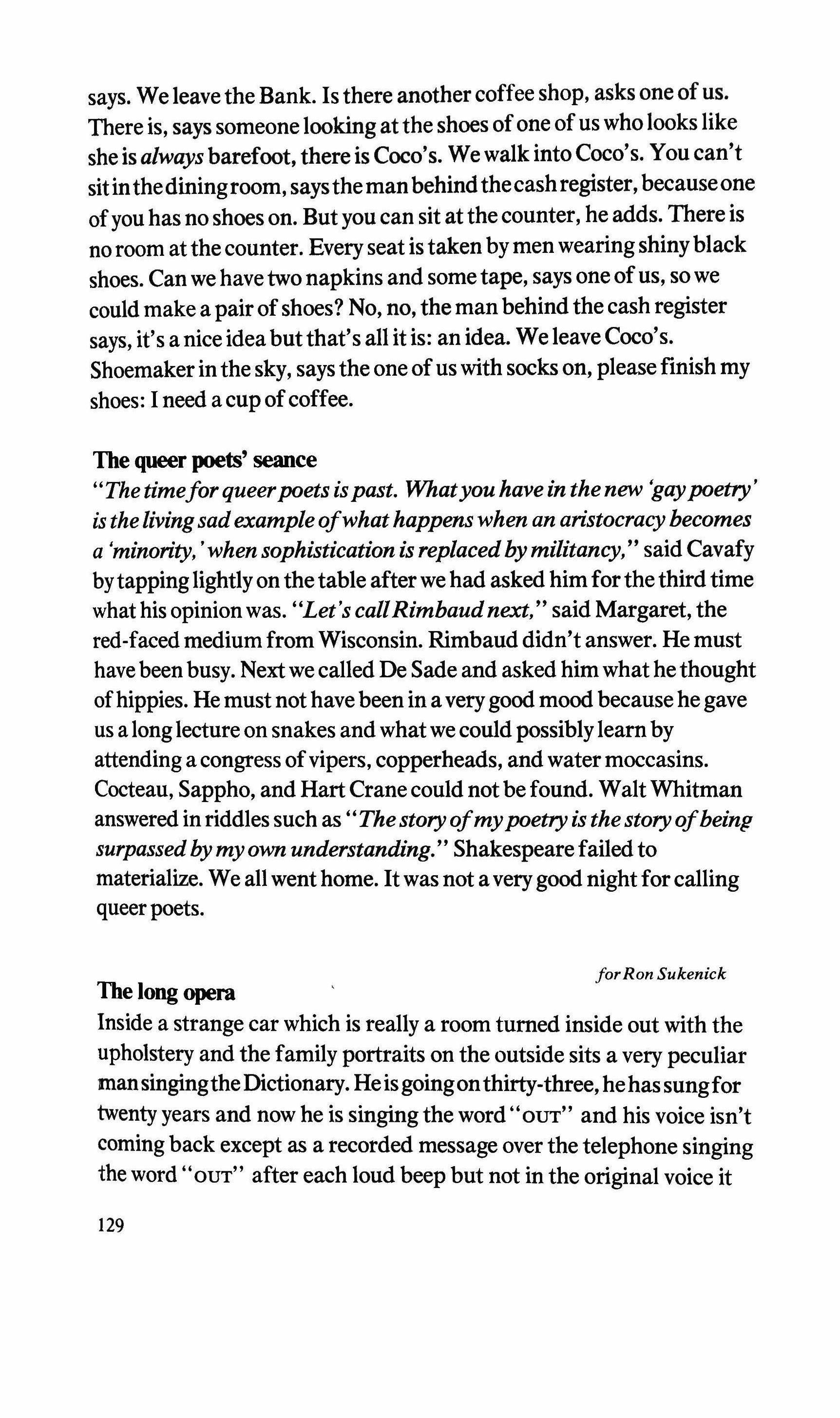
forRon Sukenick
Inside a strange car which is really a room turned inside out with the upholstery and the family portraits on the outside sits a very peculiar man singingtheDictionary. Heisgoingonthirty-three, hehassungfor twenty years and now he is singing the word"OUT" and his voice isn't coming back except as a recorded message over the telephone singing the word"OUT" after each loud beep but not in the original voice it
129
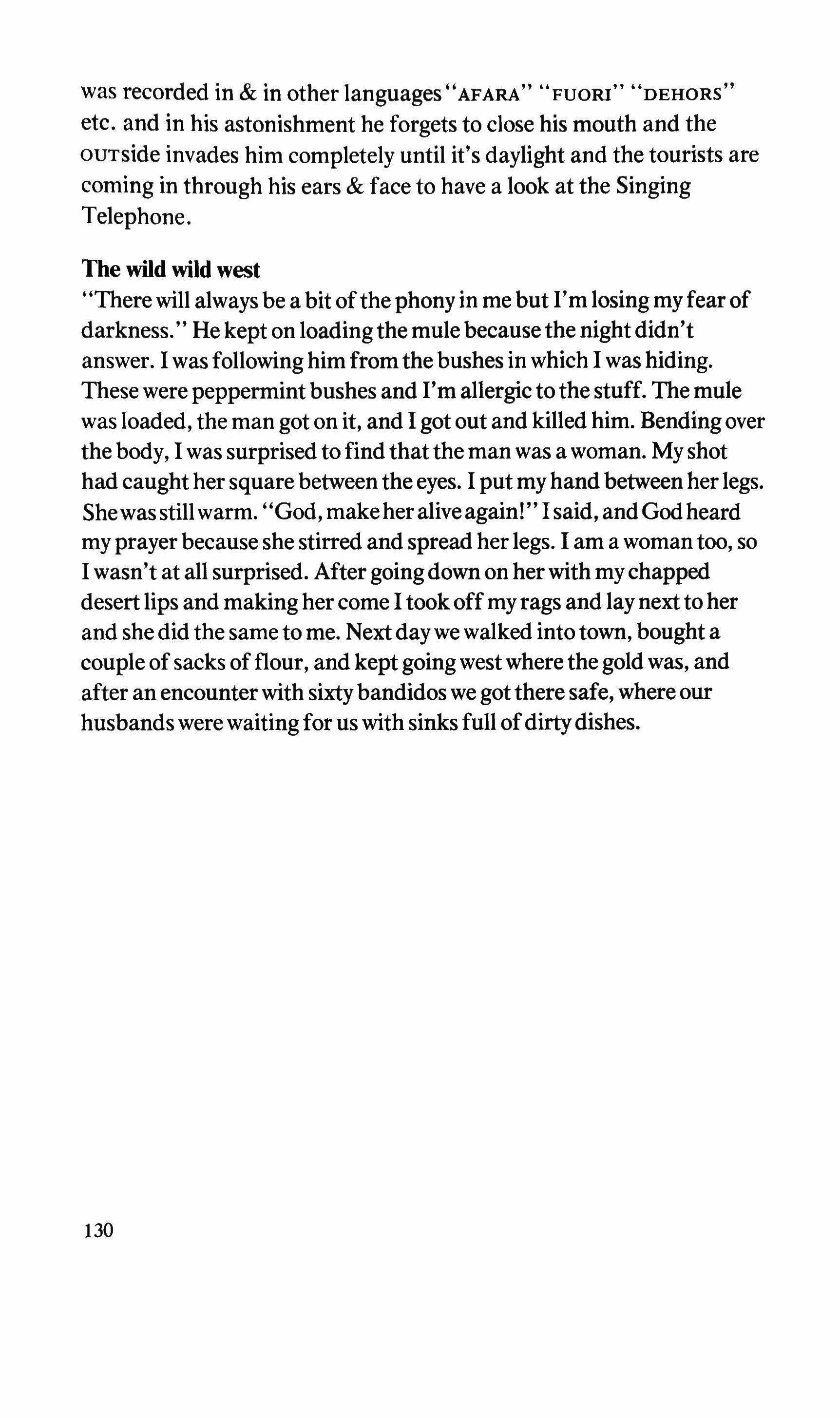
was recorded in & in other languages"AFARA" "FUORI" "DEHORS" etc. and in his astonishment he forgets to close his mouth and the ourside invades him completely until it's daylight and the tourists are coming in through his ears & face to have a look at the Singing Telephone.
The wild wild west "Therewill always be a bit ofthe phonyin me but I'm losing myfearof darkness." He kept on loadingthe mule because the night didn't answer. I was following him fromthe bushes in which I was hiding. These were peppermint bushes and I'm allergic to the stuff. The mule was loaded, the man got on it, and I got out and killed him. Bending over the body, I was surprised to find thatthe man was a woman. Myshot had caught her square between the eyes. I put myhand between herlegs. She was still warm. "God, makeheraliveagain!" I said, andGodheard my prayer because she stirred and spread herlegs. I am a woman too, so I wasn't at all surprised. After goingdown on herwith my chapped desert lips and makingher come I took off myrags and lay next to her and she did the same to me. Nextday we walked into town, bought a coupleofsacks offlour, and keptgoing west wherethegold was, and after an encounterwith sixtybandidos we gotthere safe, where our husbands were waiting for us with sinks full ofdirtydishes.
130
Two pieces
Michael Benedikt
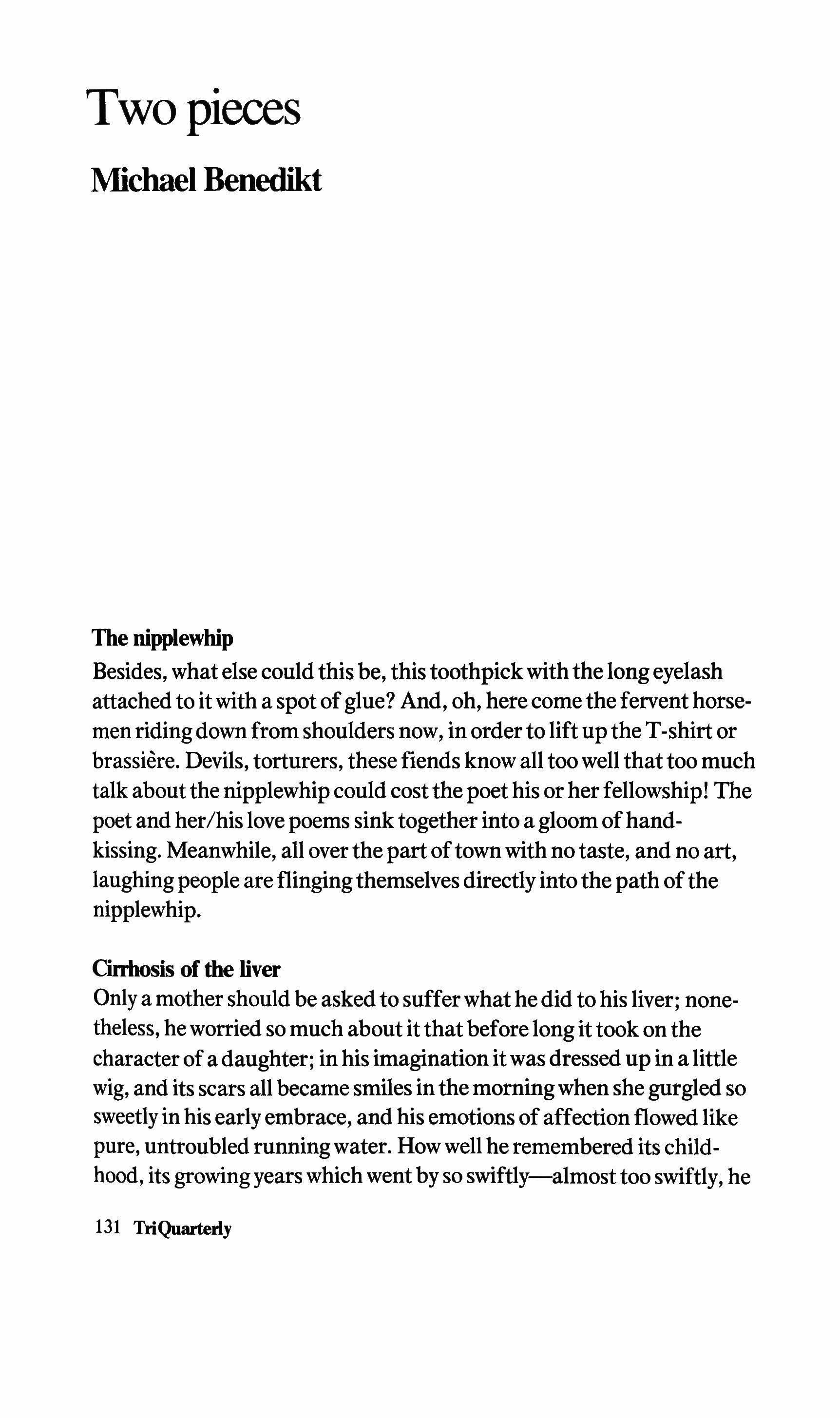
The nipplewbip
Besides, whatelse could this be, thistoothpickwith the longeyelash attached to itwith a spot ofglue? And, oh, here come thefervent horsemen ridingdownfrom shoulders now, in order to lift up the T-shirt or brassiere. Devils, torturers, thesefiends know all too well that too much talk about the nipplewhip could costthepoet his or herfellowship! The poet and her/his love poems sinktogether into a gloom ofhandkissing. Meanwhile, all over thepart oftown with no taste, and no art, laughingpeople are flingingthemselves directlyintothe path ofthe nipplewhip.
CiIThosis of the liver
Only a mother should be asked to sufferwhathedid to his liver; nonetheless, heworried so much about itthat beforelongittook on the character of a daughter; in his imagination it was dressed up in a little wig, and its scars all became smiles in the momingwhen she gurgled so sweetly in his earlyembrace, and his emotions ofaffection flowed like pure, untroubled running water. How well he remembered its childhood, its growingyears which went by so swiftly-almosttoo swiftly, he
131 TriQuarlerly

wistfullythought-full, incredibly rich years in any case. How much time theyspenttogether, how veryclose theywere! There were of course other beneficial friendships in her earlyyouth as well: her close connection with her next-door neighbor, Little Miss Kidney; not to mention her sympathetic responses, which caused all the neighborspleasure, to a certainvagrant and mysterious creature who used to drift around the neighborhood, and who some said would have died without her solicitations-her first and favorite pet, Pituitary. Howthey used to love to run alongtogetherthrough the forests offlesh, alongwith another forest creature, thatveritable domesticated beaver, the ever-active Pancreas, with whom she would regularlygo swimming And then, in the midst ofall these thoughts, a fact was thrown up to him byfate: surelytherewould come a timewhen one dayshe would slip into her grown-up clothing, a clinging sheath ofpeek-a-boo net design; and some day soon after, he reflected, full ofbitterness, she would meet a promisingyoung man ofmedical bent, a datewould be set up between them, and she would be taken out.
132
from Mabel: a story
Robert Creeley
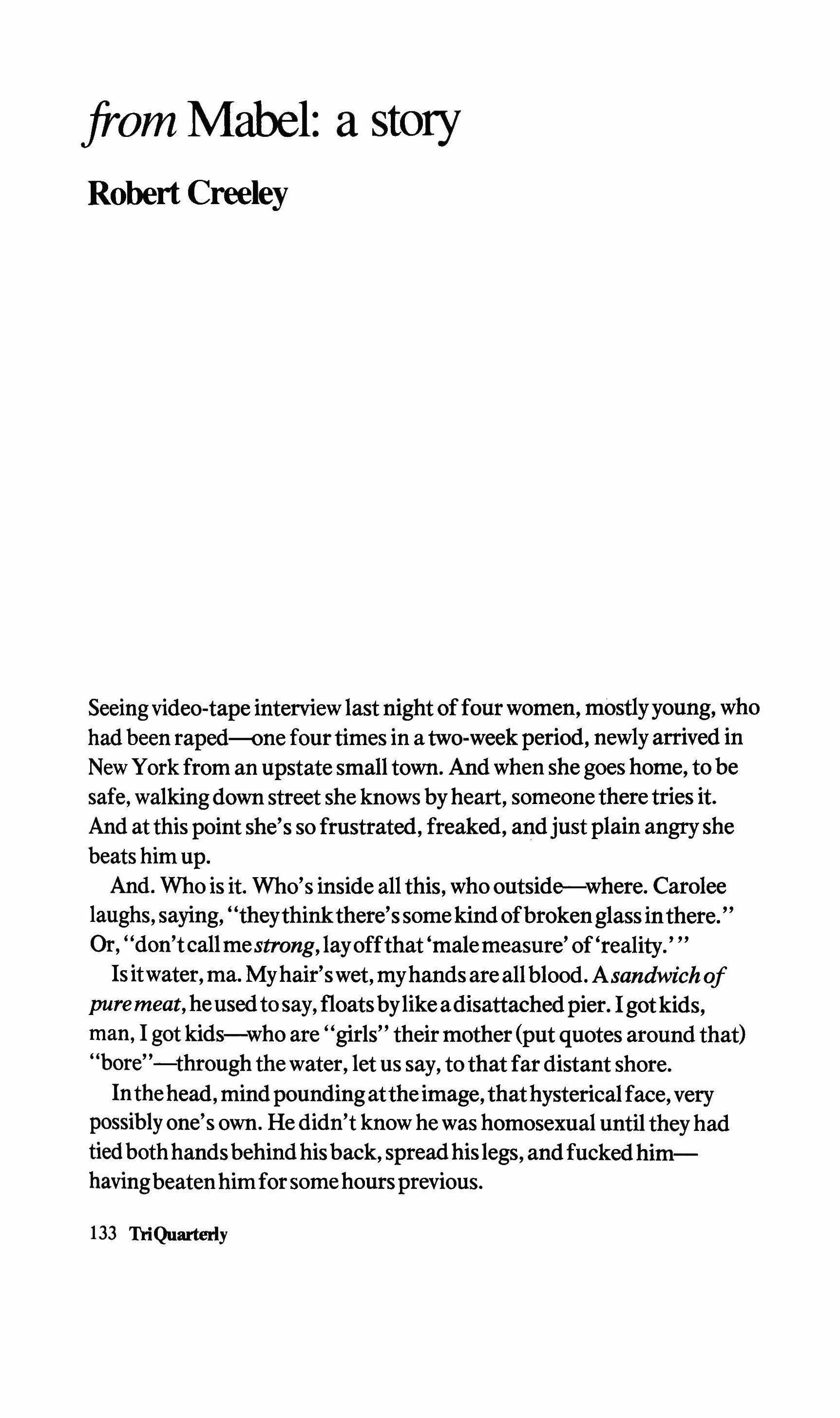
Seeingvideo-tapeinterviewlastnight offour women, mostlyyoung, who had been raped-one fourtimes in a two-weekperiod, newly arrived in New York from an upstate small town. And when she goes home, to be safe, walkingdown street she knows byheart, someone theretries it. And atthis point she's so frustrated, freaked, andjustplain angryshe beats himup.
And. Whois it. Who's inside allthis, whooutside-where. Carolee laughs,saying,"theythinkthere's some kindofbrokenglassinthere." Or, "don'tcall mestrong,layoffthat 'malemeasure' of'reality: Isitwater rna. Myhair's wet, myhands are allblood. Asandwichof puremeat, heusedtosay, floatsbylikeadisattachedpier. Igotkids, man, I got kids-who are"girls" theirmother (putquotes around that) "bore"-throughthewater, let us say, tothatfardistant shore.
Inthehead, mindpoundingattheimage,thathystericalface,very possiblyone's own. He didn't know he was homosexual until theyhad tiedbothhandsbehindhisback,spreadhislegs, andfuckedhimhavingbeatenhimfor some hoursprevious.
133 TriQuarterly

Or-androgyne. Melt me. C/says, no go-we ain't got it, nothing out front, no tool, so to speak, nothingtoprickwith, no club to wave in the air, threatening.
There is a sense, you have to give it to me, you'reholdingout, you cock teaser, youbitch. ThechiefofpoliceinBerkeleysays quitequietlyhe believes itmustbetheprovocationtheseyoung women offer, for example,hitchhiking, or simplywalkingthestreets aftersixinthe evening, say, with their present modes ofdress. "Noyoung woman or, more accurately-I cannot quote him because his language has rotted in mymind like garbage-"Nogirl ofmine would " Butyou would, and have-and endlesslyfantasize its substance. The chiefof police of any city inthe country seems now afalsie, a dildo, an instrument ofobscene intent factually.
You knowthey all want it. He dances, wiggling and croaking in falsetto. Oh, my dear "That isjust absolutelyterrific! The onlything we can now doisplayanotherpiecebyBach Again. And iftheywere home, and ifthey were safe, and ifthey were good, and iftheywould listen-as the monstrouslygross thing, with breasts, with spreadlegs, lifts up, in Sweden, with sweetlysickcandycolors, permits the entry, into her, ofdailycrowds, hordes, ofpersons, rushingto be born no doubt-orjust to see what it's like inside there. They never knew it was so roomy, for example, nor thatthey'd have friends eating popcorn alongside.
Thisis notthe "playhouse" inthepark'splaygroundsforthekids, where theywatch as the guy keeps the knife at herthroat while groping her, and someone, a volunteer, steps up fromthe audience to light his cigarette since his hands are busy. Back home theywonder howMabel is making out and hope she has remembered to writethem as she said she would.
Butmyown hair, brown, growslongandticklesmyback, andmy breastspointprovocatively, andmyclitgrowsslick, and Ifingerit, faster, andfaster, and-ahhh. And I amonlyaman, and a husband, and afather. I am nottoblame.
I used to prayin the night forthe unexpected,thoughdevoutly prayed-for, advent of some heavynumberwith unidentifiable "arms" and "legs" though the wings I could spot on the instant as "it" flew
134

through the window, and into my arms. I thought it was God in drag, possibly. I thoughtthat no one would blame me forthis communion. With this dearthing. Libel laws alone would prevent theviolation of personal privacy. Elsewisetheydragged herthrough the field byher hair, claimingthat she had asked for it-that insistent phrase-and for two thousand years had done nothingelsebutbotherthem at their labors. Whereasthe thing had no possible occasion finallybutthat created in our meeting=-despite it was only in my mind or its-and was not offensive in the least.
Isit a "hankofhair"-atable, achair? Didyousitdown, or stand up, in thatbody? Can'twe dance, can'twe melt, into one another--sogood? Dearthing.
I feel so righteous,reallycool! Ihavetheworld, no less, altogether withinthestrictnessofmyentirelyjustandresponsivemind. And,dear ladies, no possibleharmshall nowcometoyou-because? BecauseI am here, andmywiseandfondregardprotectsyoufromallharm, fromall misunderstanding or misuse-andhand inhand, youand us, me-s, will stagger on until Ireallygettired, orbored, orjustforgetthewhole businessuntil some meatpackagethumps me toconsciousness-andI smile, andloveandbe, mosttruly, aman.
Herehomageto LeonardCohen, whoremarkedthat more hasgone downaproposofthetwo-inchpinchofskinjustforeofawoman'svent thanpossiblyfromanyothercausewhatsoever. Whichistosay, real estate, man'sestate, tositinstate-LesEtats-Unis! GodblessGeorge Washington,thefirstPresidenttoputwoodenteethintheplacehemost expectedtofindthem-his own mouth. Howsimple, once one knowsthe answer. Andyouwalkaroundintheechoingtunnels nothingatalltobe feared,these sewerswhich areshores, mydear: achannelfordraininga pond.
Was it Voyage to theBottom oftheNight, or TheMillPond's Gone, that most influenced you as a youth? Did you walk hand in hand with yourself? Did you hide round the corner when your sister, you gaydevil, stomped from thebathroom with fresh flesh gleaming rose? Was your mother your first love? Jim goes out for a long one and the setting sun catches his extended quiveringbody in its lastglowing so-called ray. There are sighsdeep down in Rosedale forthis youth's
135
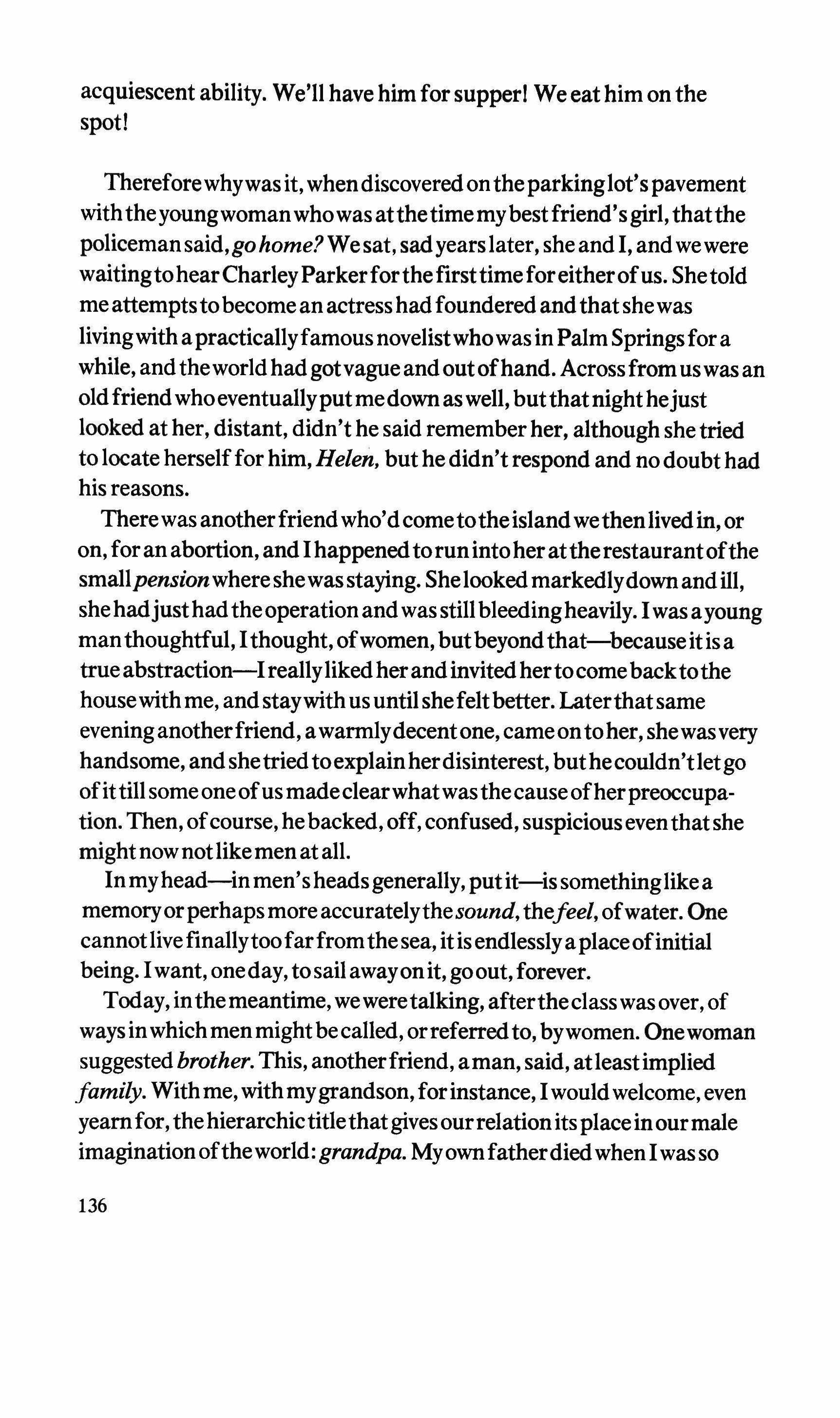
acquiescent ability. We'll have him for supperI We eat him on the spot!
Thereforewhywas it,whendiscovered on theparkinglot'spavement withtheyoungwoman whowas atthetimemybestfriend's girl, thatthe policemansaid,gohome?Wesat, sadyearslater, she and I, and we were waitingtohearCharleyParkerforthefirsttimeforeitherofus. Shetold me attemptstobecome an actress hadfoundered andthatshe was livingwith a practicallyfamous novelistwho was inPalm Springsfor a while, andtheworldhad gotvague and outofhand. Acrossfrom us was an oldfriendwhoeventuallyput me down as well, butthatnighthejust looked at her, distant, didn't he said rememberher, although shetried to locate herself for him, Helen, but he didn't respond and no doubt had his reasons.
Therewas anotherfriendwho'd cometotheisland wethenlivedin, or on, for an abortion, and Ihappenedto run intoher attherestaurantofthe smallpensionwhereshe was staying. Shelookedmarkedlydownandill, shehadjusthadtheoperation and was stillbleedingheavily. I was ayoung man thoughtful, Ithought, ofwomen, butbeyondthat-becauseitis a trueabstraction-Ireallylikedherandinvitedherto come backtothe housewith me, andstaywith us untilshefeltbetter. Laterthat same eveninganotherfriend, awarmlydecentone, came on toher, shewas very handsome, andshetried toexplainherdisinterest, buthecouldn'tletgo ofittill some one ofus madeclearwhat was the cause ofherpreoccupation. Then, ofcourse, hebacked,off,confused, suspicious even thatshe might now notlike men atall.
Inmyhead-inmen's headsgenerally,putit-is somethinglike a memory or perhaps more accuratelythesound,thefeel, ofwater. One cannotlivefinallytoofarfromthesea, itisendlessly aplaceofinitial being. Iwant, one day, tosail awayon it,goout,forever.
Today, inthemeantime, we weretalking, aftertheclass was over, of waysinwhich men mightbecalled, orreferredto, bywomen. Onewoman suggested brother. This, anotherfriend, aman, said, atleastimplied family. With me, withmygrandson,forinstance, I wouldwelcome, even yearnfor,thehierarchictitlethatgives our relationitsplacein our male imagination oftheworld:grandpa. My own fatherdiedwhen I was so
136

youngI neverfeltthatexperiencearticulately.whichistosay, I can never remembercallinganyoneconsciously "father" inthatpreciseway. Andyet. I don'tknow. Somuchhasrotted inthedistortionsofthis consciousness,thispresumptionofreality,thatIwouldyielditsrationales andlogicsnotverypainfullyatall. Ornot-perhaps. Evenwouldfight withoutmind at all,toprotectthem.
Moreliterally, IhadbeenthinkingofMabel,dumb, poorthing, inthis case, hopingforhelppossiblyifshethoughtofanythingatall. Sheisdrab beyonddescription, andinvitesreallynothingofanyconsequence. Sheis poor, inbody, inpocket, inlife. Myself, who so projectsbeauty, a clarityof women, am impatientand irritatedbyhersimplefact. Idonotwantmy own lifetoknowher. Shefrightens me. Sheinvites apenitenceIdonotyet understand.
137
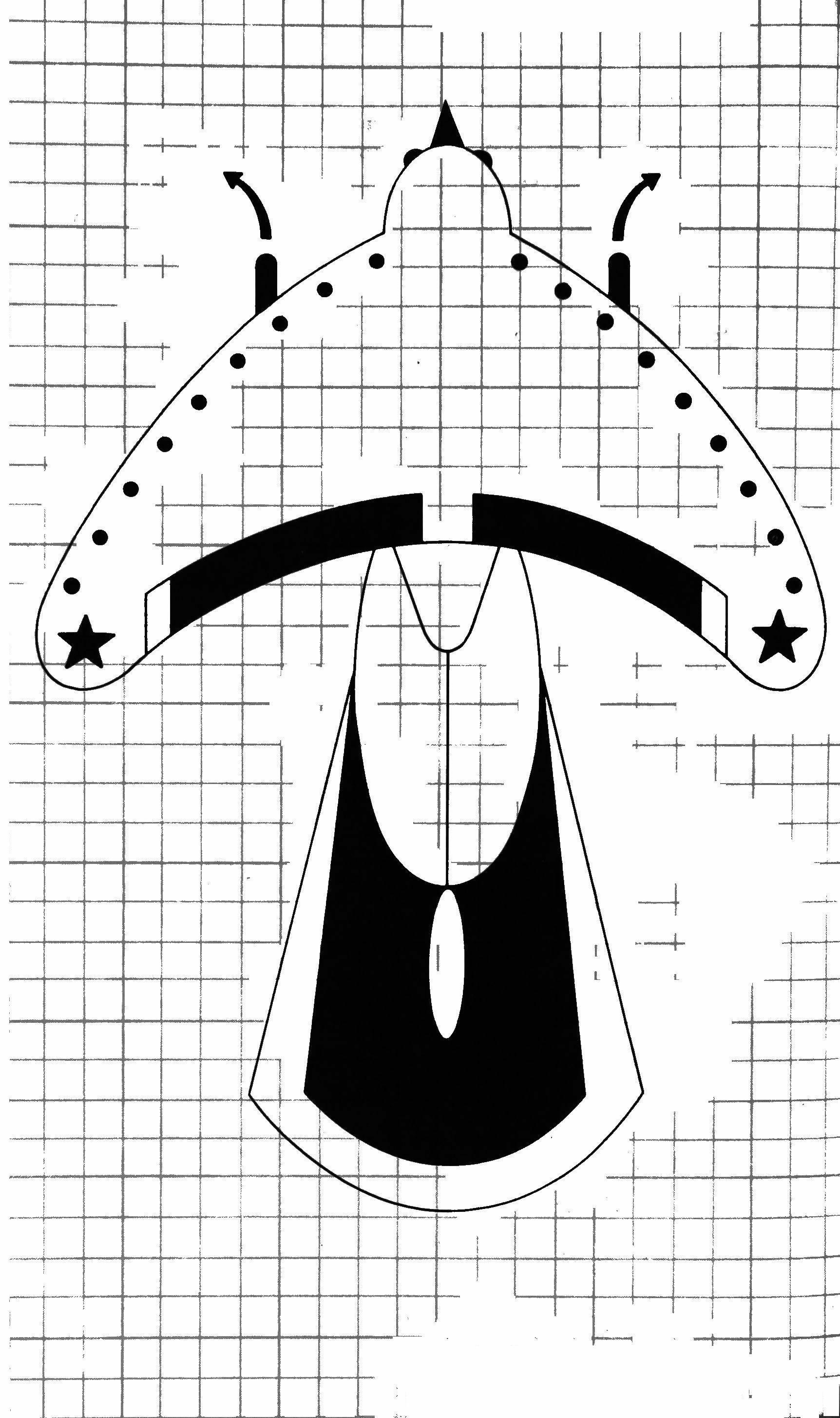
----1- --+-t---t--+---+-_ -----+ -+--+-- -..J. I l-�""" .----+---+-+ - -f----j -+ --+ L I 1 ++ ! _.__.._-j: J
Remember me to Camelot: A novel written by Naomi Ruth
Sunder, a character in the novel Family Life
Russell Banks

1
-Be goodtoKay, Rexinstructed his eldest son, Bif. Your mother's never been on her own before, shedoesn't knowhowto take care of herself, Son, he explained totheboy.
I stood somberly in the center oftheliving room with Hunter and Rory, fightingbackthetears, proud of our threelittleboys, our little men, butproudest ofRex, myhusband, because I understood thedeep painhe was feeling atthis, the moment ofhis departure. He was leaving us-perhaps forever.
Our country in herneed had called himfromthe side ofhis loved ones, and he had no choice butto go. Rex was a major in the Air Force Reserve, and his unithad been activated forcombat dutyinVietnam, which at thattime I couldn't even have located on a map. They needed allthe veteran pilotsthey could get, and Rex, in Korea more than a decadeearlier, before Bif was born, had been one ofthebest inthe skies. Hehad been almostlegendary, and as heleaned down to kiss me goodbye, I saw himwink away a tear with a bravegrin, and I knewthat he was still one ofthe best.
139 TriQuarlerly
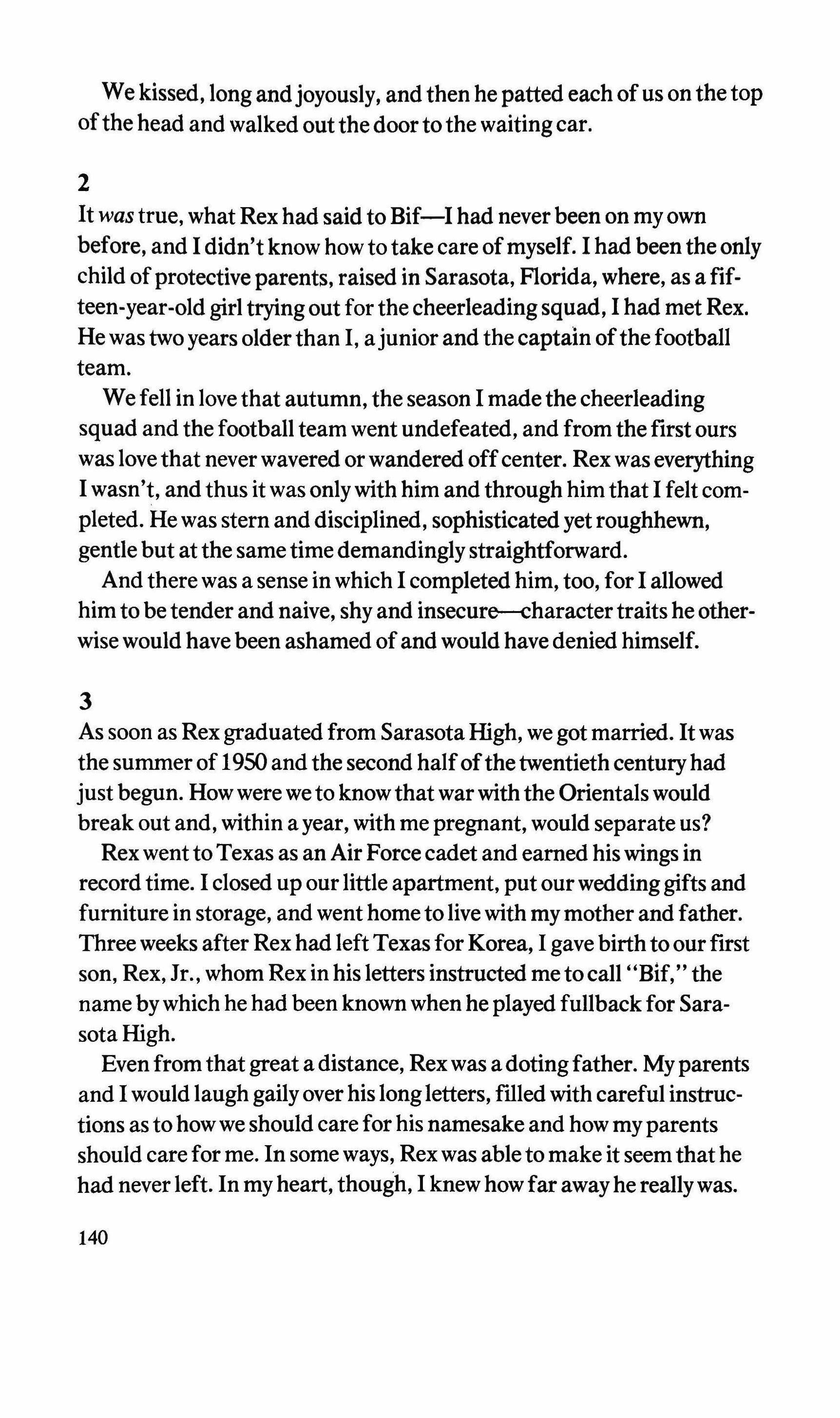
We kissed, long andjoyously, and then he patted each of us on the top ofthe head and walked out the door to the waiting car.
2
It was true, what Rex had said to Bif-I had never been on my own before, and I didn't know how to take care ofmyself. I had been the only child ofprotectiveparents, raised in Sarasota, Florida, where, as a fifteen-year-oldgirltrying out for the cheerleadingsquad, I had met Rex. He was two years older than I, a junior and the captain ofthe football team.
We fell in love that autumn, the season I made the cheerleading squad and the football team went undefeated, and from the first ours was lovethat never wavered or wandered offcenter. Rex was everything I wasn't, and thus it was onlywith him and through him that I felt completed. He was stern and disciplined, sophisticatedyetroughhewn, gentle but at the same time demandinglystraightforward.
And there was a sense in which I completed him, too, for I allowed him to be tender and naive, shy and insecure=charactertraits he otherwise would have been ashamed ofand would have denied himself.
3
As soon as Rex graduated from Sarasota High, we got married. It was the summer of 1950 and the second halfofthetwentieth centuryhad justbegun. How were we to knowthat war withthe Orientals would break out and, within a year, with me pregnant, would separate us? Rex went to Texas as an Air Force cadet and earned hiswings in record time. I closed up our little apartment, put our weddinggifts and furniture in storage, and went home to live with my mother and father. Three weeks after Rex had left Texas for Korea, I gave birth to our first son, Rex, Jr., whom Rex in his letters instructed me to call "Bif, the name bywhich he had been known when he played fullback for SarasotaHigh.
Even from that great a distance, Rex was a dotingfather. Myparents and I would laughgaily over his longletters, filled with careful instructions as to how we should care for his namesake and how myparents should care for me. In some ways, Rex was able to make it seem that he had never left. In my heart, though, I knew howfar awayhe really was.
140
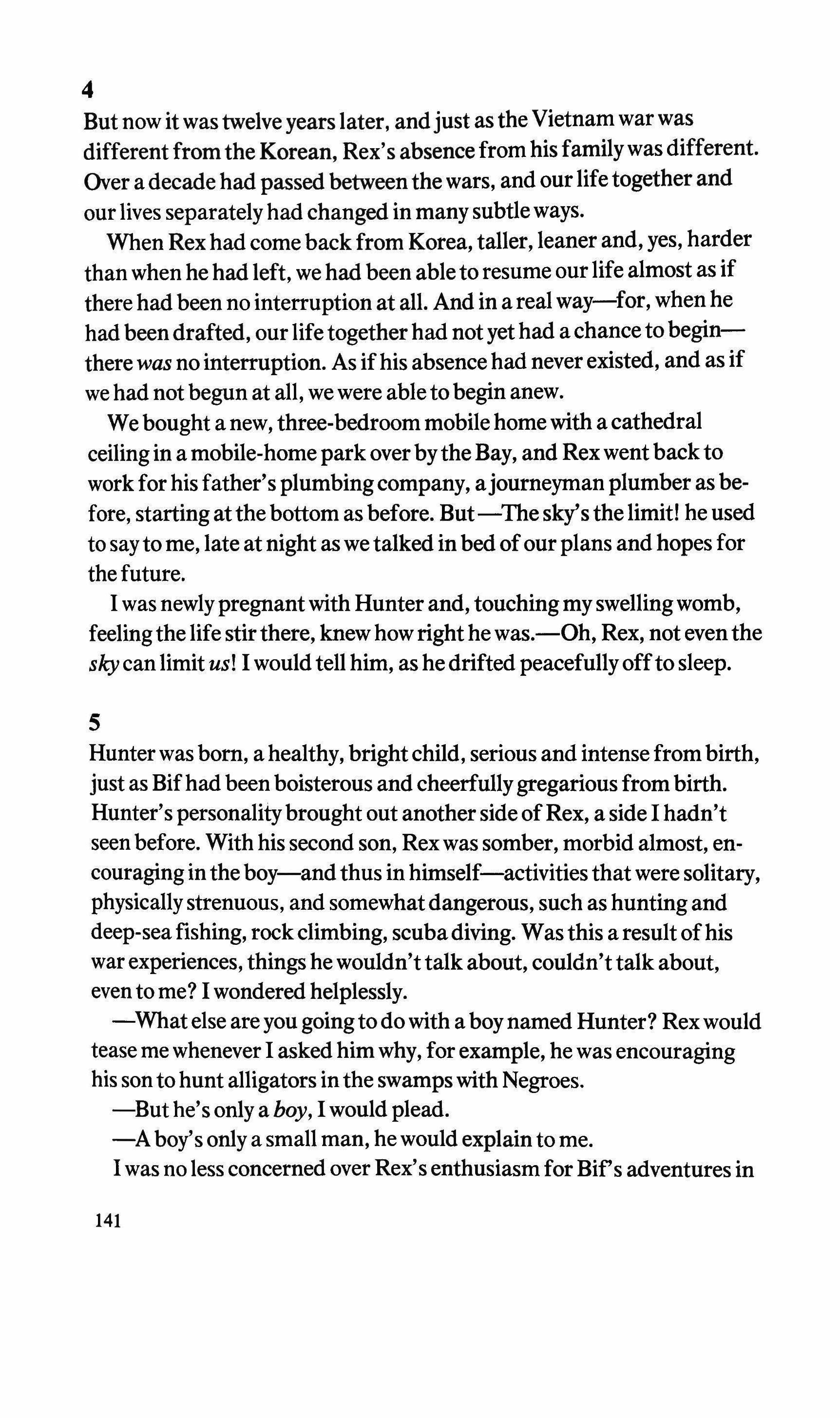
But now it was twelve years later, andjust as the Vietnam war was different fromthe Korean, Rex's absence fromhis family was different. Over a decade had passed between the wars, and our lifetogether and our lives separately had changed in many subtleways.
When Rex had come back from Korea, taller, leaner and, yes, harder than when he had left, we had been able to resume our life almost as if there had been no interruption at all. And in a real way-for, when he had beendrafted, our life togetherhad not yethad a chance to beginthere was no interruption. As ifhis absence had never existed, and as if we had not begun at all, we were able to begin anew.
We bought anew, three-bedroom mobile homewith a cathedral ceiling in a mobile-home park over bytheBay, and Rex went back to work for his father's plumbingcompany, ajourneymanplumber as before, starting atthebottom as before. But-The sky's thelimit! he used to sayto me, late at night as we talked in bed of our plans and hopes for thefuture.
I was newlypregnant with Hunter and, touchingmy swellingwomb, feelingthe life stirthere, knew howright he was.-Oh, Rex, not even the sky can limit us! I would tell him, as hedrifted peacefullyoffto sleep.
5
Hunter was born, a healthy, brightchild, serious and intense from birth, just as Bifhad been boisterous and cheerfullygregarious frombirth. Hunter's personalitybrought out another side ofRex, a side I hadn't seen before. With his second son, Rex was somber, morbid almost, encouraging in theboy-andthus in himself-activities that were solitary, physicallystrenuous, and somewhatdangerous, such as hunting and deep-seafishing, rockclimbing, scubadiving. Was this a result ofhis war experiences, things hewouldn't talk about, couldn'ttalk about, even to me? I wondered helplessly.
-What else are you goingto do with a boynamed Hunter? Rexwould tease me whenever I asked him why, for example, he was encouraging his son to hunt alligators inthe swamps with Negroes.
-But he's only a boy, I would plead.
-A boy'sonly a small man, he would explain to me.
I was no less concerned over Rex's enthusiasm for Bif's adventures in
4
141
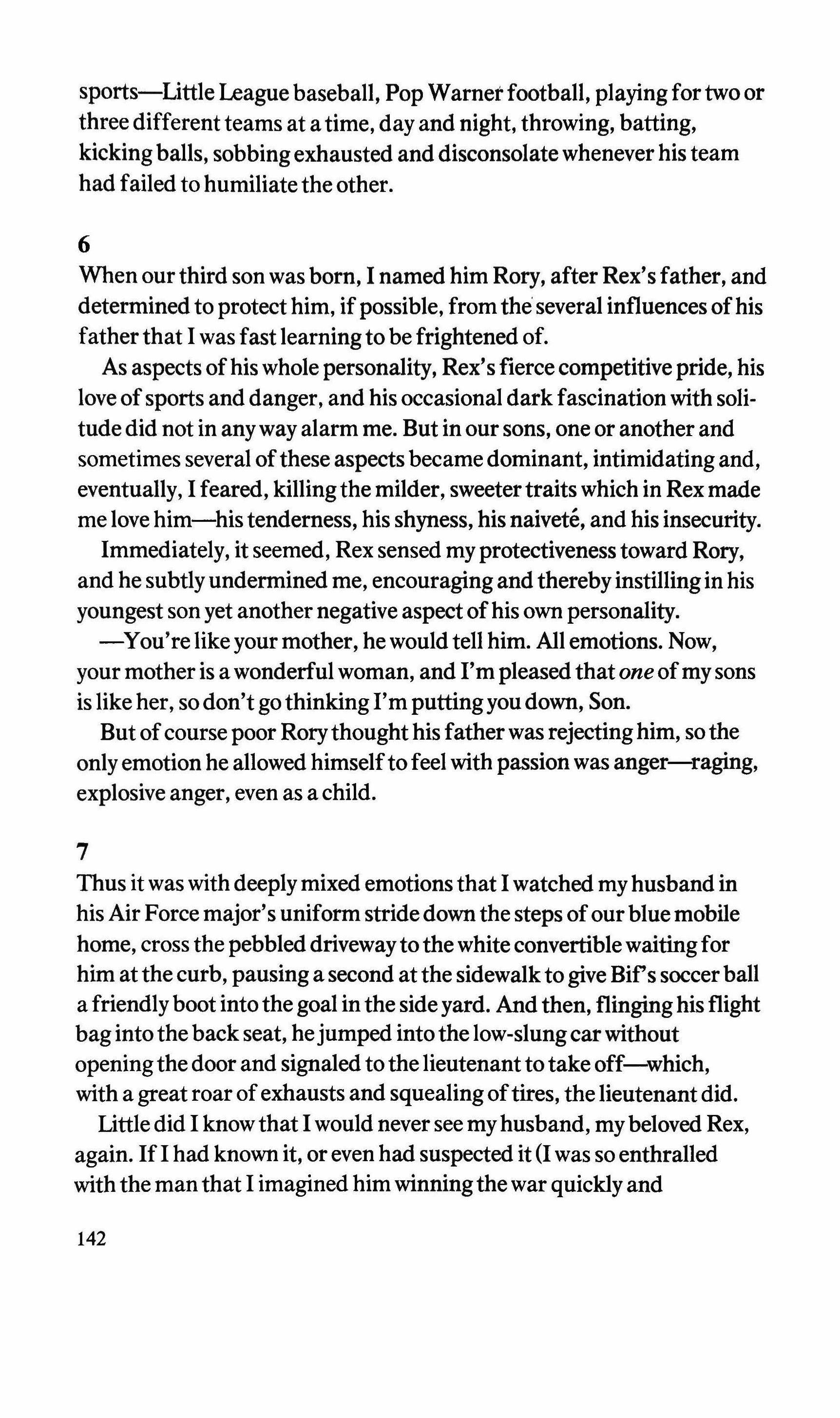
sports-Uttle Leaguebaseball, Pop Warnetfootball, playing for two or three different teams at a time, day and night, throwing, batting, kickingballs, sobbingexhausted and disconsolatewhenever his team had failed to humiliate the other.
6
When our third son was born, I named him Rory, after Rex's father, and determined to protecthim, ifpossible, fromthe several influences ofhis fatherthat 1 was fast learning to be frightened of.
As aspects ofhis whole personality, Rex's fierce competitivepride, his love ofsports and danger, and his occasional dark fascination with solitude did not in anyway alarm me. But in our sons, one or another and sometimes several ofthese aspects became dominant, intimidatingand, eventually, I feared, killingthe milder, sweetertraits which in Rex made me love him-histenderness, his shyness, his naivete, and his insecurity. Immediately, it seemed, Rex sensed my protectiveness toward Rory, and he subtlyundermined me, encouraging and therebyinstillingin his youngest son yet another negative aspect ofhis own personality.
-You're like your mother, he would tell him. All emotions. Now, your mother is a wonderful woman, and I'm pleased that one ofmy sons is like her, so don't go thinking I'm puttingyoudown, Son.
But of course poor Rorythoughthis father was rejectinghim, so the onlyemotion he allowed himselfto feel with passion was anger-raging, explosive anger, even as a child.
7
Thus it was with deeplymixed emotions that I watched my husband in his Air Force major's uniform stridedown the steps of our blue mobile home, cross the pebbleddrivewayto thewhite convertiblewaitingfor him at thecurb, pausing a second at the sidewalk to give Bif's soccer ball a friendlyboot intothe goal inthe side yard. And then, flinging his flight bagintotheback seat, hejumped intothe low-slung car without openingthe door and signaled to thelieutenantto take off-which, with a great roar ofexhausts and squealingoftires, the lieutenant did.
Little did 1 knowthat I would never see myhusband, mybeloved Rex, again. If1 had known it, or even had suspected it (I was so enthralled with the man that 1 imagined him winningthe war quicklyand
142
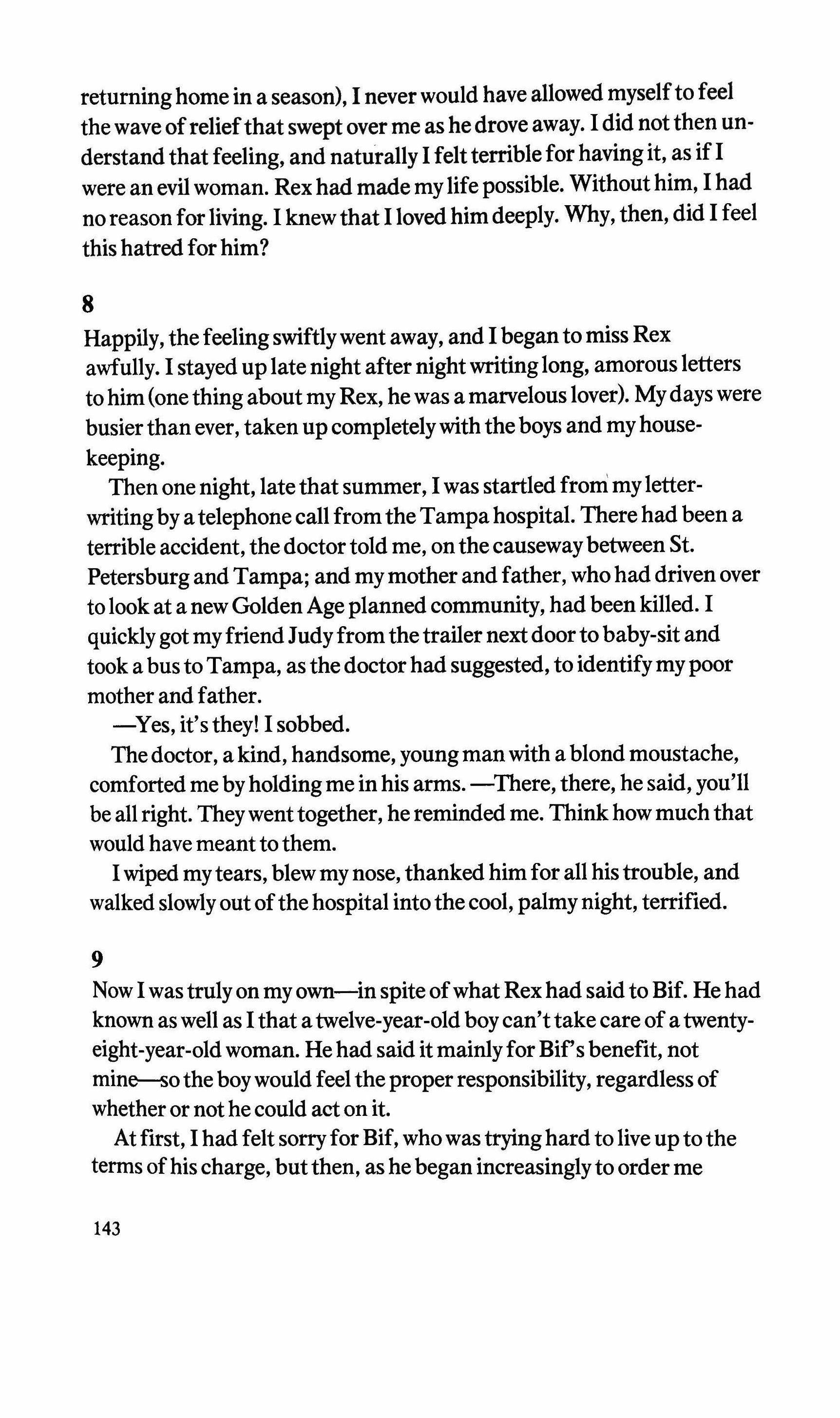
returning home in a season), I never would have allowed myselfto feel the wave ofreliefthat swept over me as hedrove away. I did not then understand that feeling, and naturally I feltterriblefor havingit, as if I were an evil woman. Rex had made mylife possible. Without him, I had no reason forliving. I knewthat I loved him deeply. Why,then, did I feel this hatred forhim?
8
Happily, thefeelingswiftlywent away, and Ibeganto miss Rex awfully. I stayed up late night after nightwritinglong, amorous letters to him(onething about my Rex, he was a marvelous lover). Mydays were busier than ever, taken up completelywith theboys and my housekeeping.
Then one night, latethat summer, I was startled from myletterwritingby a telephone call fromtheTampahospital. There had been a terrible accident, the doctortold me, on the causeway between St. Petersburgand Tampa; and mymother and father, who had driven over to look at a new Golden Ageplannedcommunity, had been killed. I quicklygot myfriend Judyfromthetrailer next doorto baby-sit and took a bus to Tampa, as the doctor had suggested, to identifymy poor mother and father.
-Yes, it's they! I sobbed.
Thedoctor, a kind, handsome, youngmanwith a blond moustache, comforted me byholding me in his arms. -There, there, he said, you'll be all right. Theywent together, he reminded me. Think how much that would have meant to them.
I wiped mytears, blew my nose, thanked him for all histrouble, and walked slowly out ofthehospital intothecool, palmynight, terrified.
9
Now I was truly on my own-in spite ofwhat Rexhad said to Bif. He had known as well as I that a twelve-year-old boy can'ttake care of a twentyeight-year-old woman. He had said it mainlyfor Bifs benefit, not mine-sothe boywould feelthe proper responsibility,regardlessof whether or not he could act on it.
Atfirst, I had felt sorry forBif, who was tryinghard to live up to the terms ofhis charge, butthen, as hebeganincreasinglyto order me
143
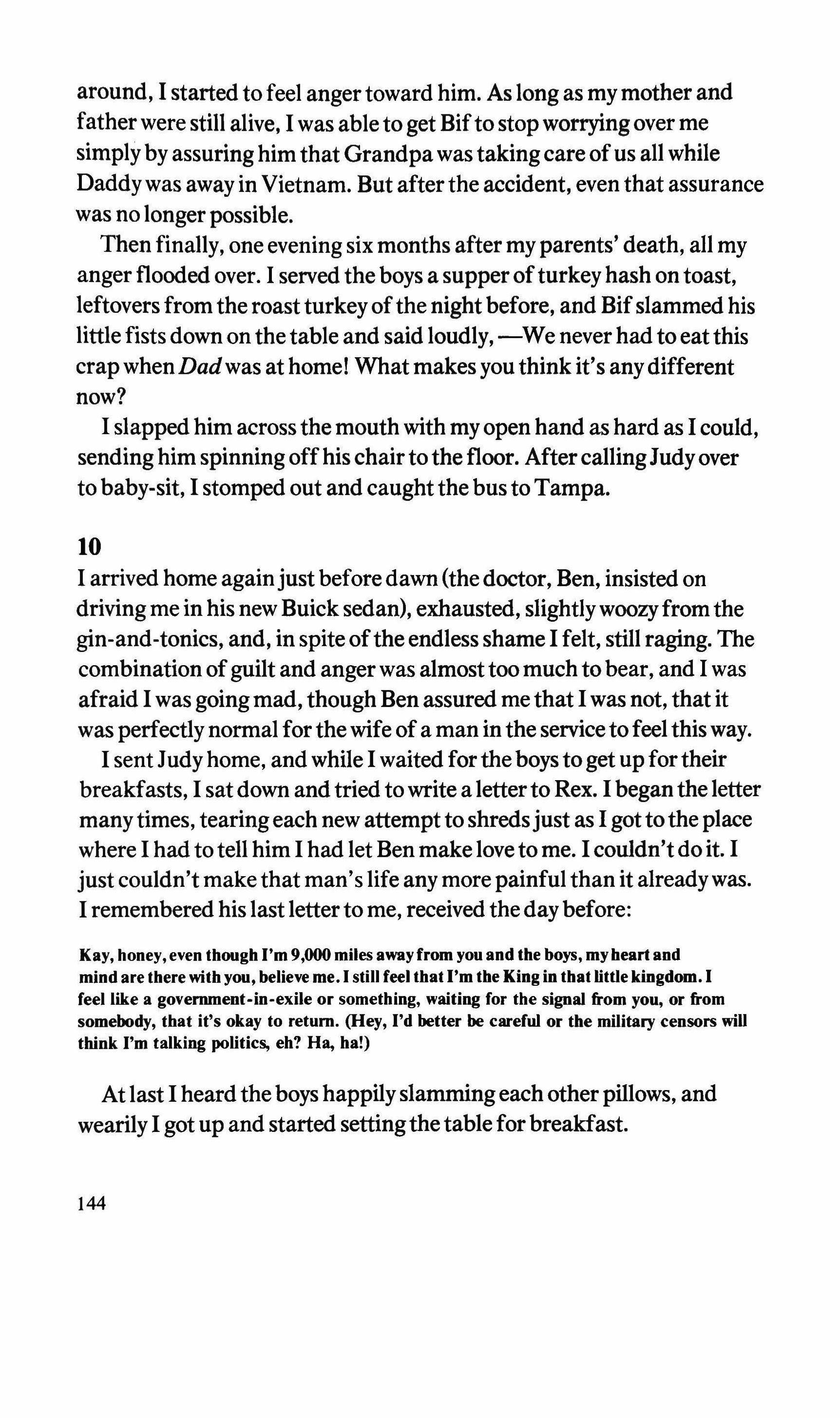
around, I started to feel angertoward him. As long as my mother and father were still alive, I was able to get Bifto stopworrying over me simplybyassuring him that Grandpa was taking care of us all while Daddy was away in Vietnam. But afterthe accident, even that assurance was no longerpossible.
Then finally, one evening six months after myparents' death, all my anger flooded over. I served the boys a supperofturkey hash on toast, leftovers from the roast turkeyofthe nightbefore, and Bifslammed his little fists down on the table and said loudly, -We never had to eat this crapwhenDad was at homeI What makes you think it's any different now?
I slapped him across the mouth with myopen hand as hard as I could, sendinghim spinning offhis chair to the floor. AftercallingJudy over to baby-sit, I stomped out and caughtthe bus to Tampa.
10
I arrived home againjust before dawn (thedoctor, Ben, insisted on driving me in his new Buick sedan), exhausted, slightlywoozyfrom the gin-and-tonics, and, in spite ofthe endless shame I felt, still raging. The combination ofguilt and anger was almosttoo much to bear, and I was afraid I was goingmad, though Ben assured me that I was not, that it was perfectly normal forthe wife of a man in the serviceto feelthis way.
I sent Judyhome, and while I waited fortheboys to get up fortheir breakfasts, I sat down and tried to write a letterto Rex. I beganthe letter manytimes, tearingeach new attempt to shredsjust as I gottothe place where I had to tell him I had let Ben make love to me. I couldn'tdo it. I just couldn't make that man's life any more painful than it already was. I remembered his last letter to me, received thedaybefore:
Kay, honey, even though I'm 9,000 miles away from you and the boys, my heart and mind are there with you, believe me. I still feel that I'm the King in that little kingdom. I feel like a government-in-exile or something, waiting for the signal from you, or from somebody, that it's okay to return. (Hey, I'd better be careful or the military censors wiD think I'm talking politics, eh? Ha, hal)
Atlast I heard theboyshappilyslammingeach other pillows, and wearily I got up and started settingthetable forbreakfast.
144
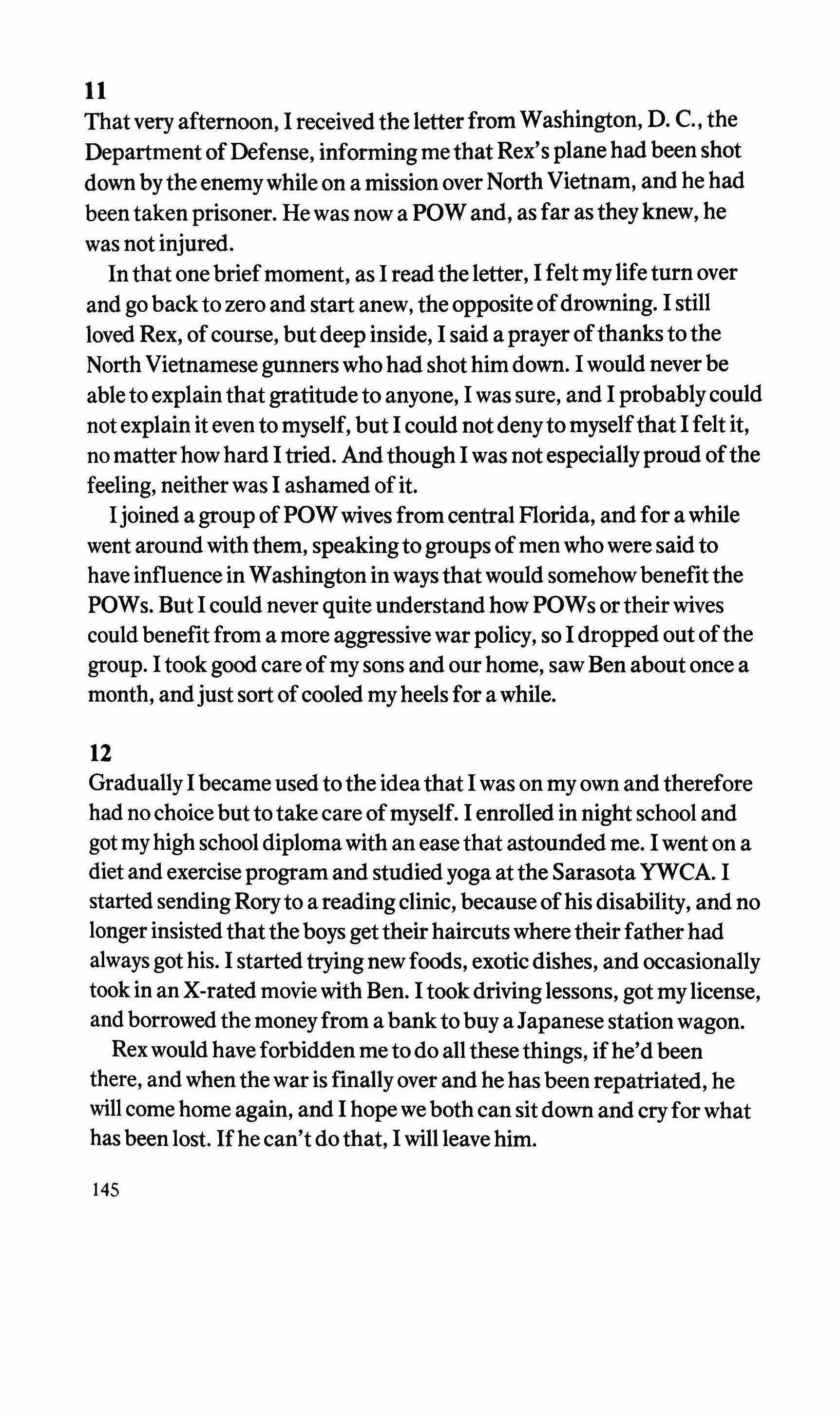
That very afternoon, I received the letterfrom Washington, D. c., the Department ofDefense, informing me that Rex's planehad been shot down bytheenemywhile on a mission over North Vietnam, and he had been taken prisoner. He was now a POW and, as far as theyknew, he was not injured.
In that one briefmoment, as I readtheletter, I felt mylife turn over and go back to zero and start anew, the oppositeofdrowning. I still loved Rex, ofcourse, butdeep inside, I said a prayer ofthanks to the North Vietnamese gunnerswho had shot himdown. I would never be able to explainthat gratitude to anyone, I was sure, and I probablycould not explain it even to myself, but I could not denyto myselfthat I felt it, no matter howhard I tried. Andthough I was not especiallyproud ofthe feeling, neither was I ashamed ofit.
Ijoined a group ofPOWwives fromcentral Florida, and for a while went aroundwiththem, speakingto groups of men who were said to have influence in Washington in ways thatwould somehowbenefitthe POWs. But I could never quite understand howPOWs or theirwives could benefit from a more aggressive war policy, so I dropped out ofthe group. I took good care ofmy sons and our home, saw Ben about once a month, andjust sort ofcooled myheels for a while.
12
Gradually I became used tothe ideathat I was on my own and therefore had no choice butto take care ofmyself. I enrolled in night school and got myhigh school diplomawith an ease that astounded me. I went on a diet and exercise program and studied yoga atthe Sarasota YWCA. I started sendingRoryto a readingclinic, because ofhis disability, and no longer insistedthattheboysgettheir haircutswheretheirfather had alwaysgot his. I startedtrying new foods, exotic dishes, and occasionally took in an X-rated movie with Ben. Itookdrivinglessons, got mylicense, and borrowed the moneyfrom a banktobuy a Japanese station wagon. Rexwould have forbidden me to do all thesethings, ifhe'd been there, and whenthe war is finally over and he has been repatriated, he will come home again, and I hope we both can sit down and cryforwhat has beenlost. Ifhecan'tdo that, I will leave him.
11
145
The notebooks ofAntony Lamont
Gilbert Sorrentino
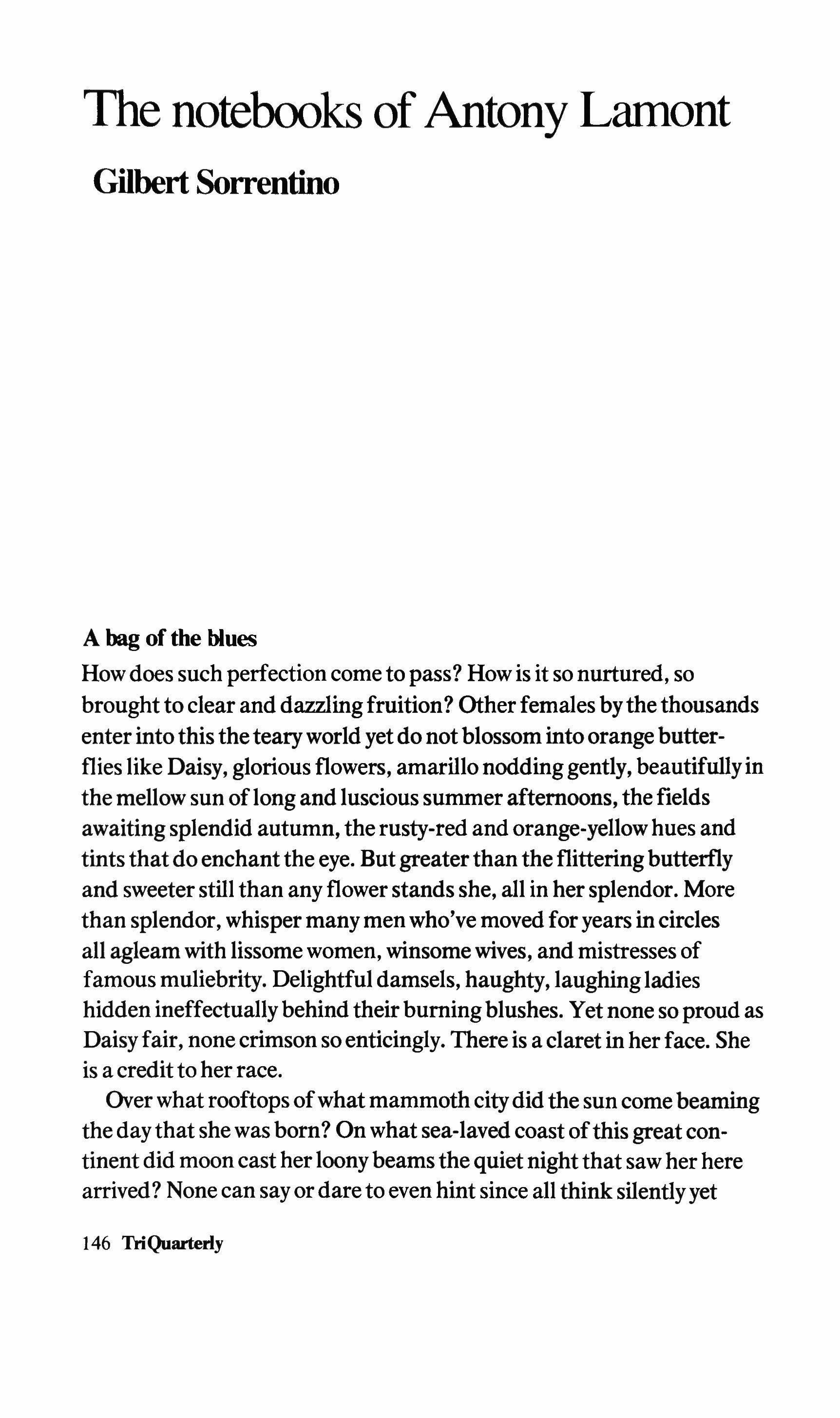
A bag of the blues
Howdoes such perfection come to pass? How is it so nurtured, so brought to clear and dazzlingfruition? Other females bythethousands enter into thistheteary world yetdo not blossom into orange butterflies like Daisy, glorious flowers, amarillo noddinggently, beautifullyin the mellow sun oflong and luscious summer afternoons, the fields awaitingsplendid autumn, the rusty-red and orange-yellowhues and tints thatdo enchantthe eye. But greaterthan the flitteringbutterfly and sweeter still than any flower stands she, all in her splendor. More than splendor, whisper many men who've moved foryears incircles all agleam with lissome women, winsomewives, and mistresses of famous muliebrity. Delightful damsels, haughty, laughingladies hidden ineffectuallybehind theirburningblushes. Yet none so proud as Daisyfair, none crimson so enticingly. There is a claret in her face. She is a credit to her race.
Overwhat rooftops ofwhat mammoth citydid the sun come beaming the daythat she was born? On what sea-laved coast ofthis great continent did moon cast herloonybeamsthe quietnightthat saw her here arrived? None can say or dare to even hint since all think silentlyyet
146 TriQuatterly
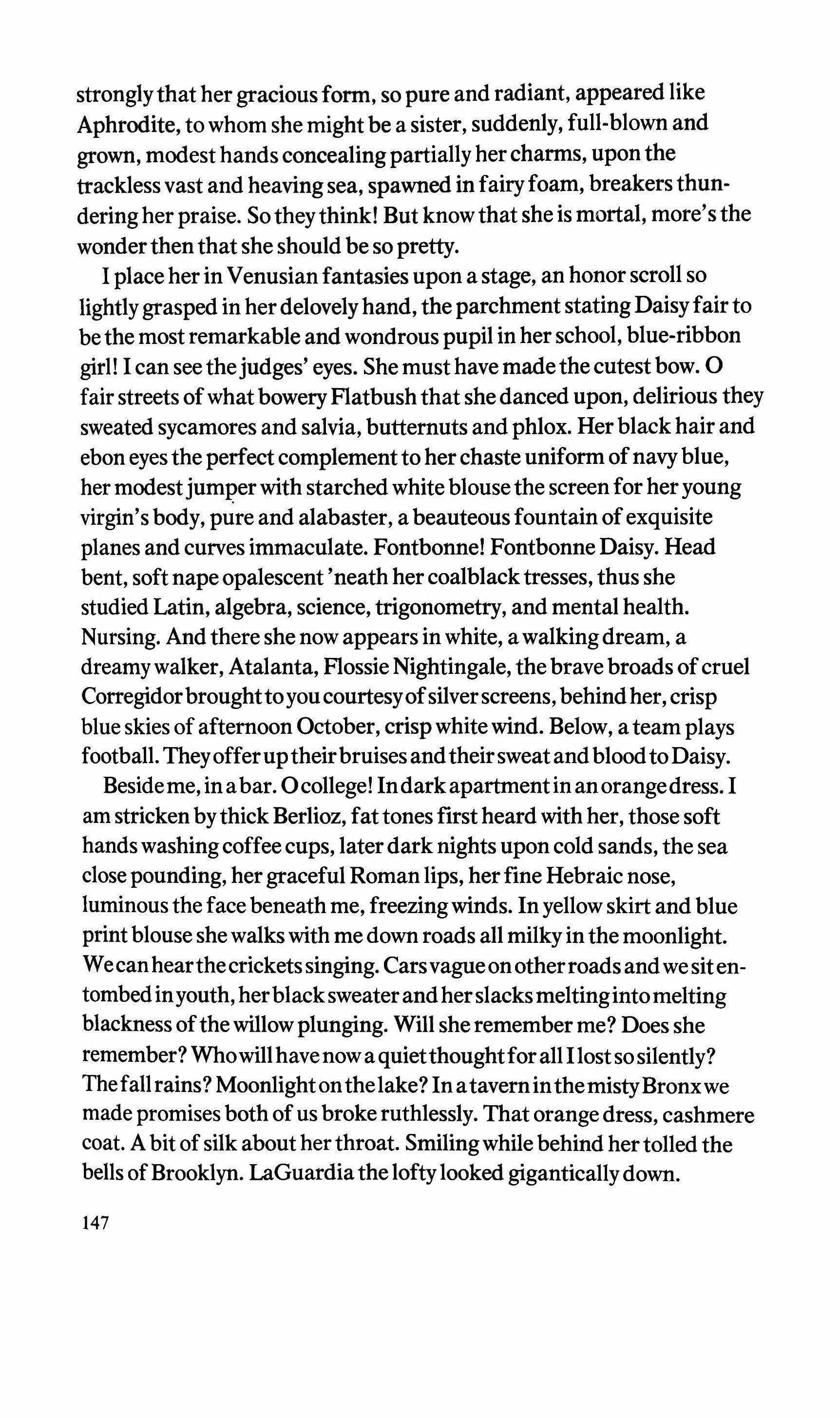
stronglythat her graciousform, so pure and radiant, appeared like Aphrodite, to whom she might be a sister, suddenly, full-blown and grown, modesthands concealingpartially hercharms, uponthe trackless vast and heaving sea, spawned in fairyfoam, breakers thunderingher praise. Sotheythink! But knowthat she is mortal, more'sthe wonderthenthat she should be so pretty.
I place her in Venusianfantasies upon a stage, an honor scroll so lightlygrasped in herdelovelyhand, the parchmentstatingDaisyfair to bethe most remarkable and wondrous pupil in her school, blue-ribbon girl! I can see thejudges' eyes. She must have madethe cutest bow. 0 fair streets ofwhat boweryFlatbush that she danced upon, delirious they sweated sycamores and salvia, butternuts and phlox. Her black hair and ebon eyes theperfectcomplementto herchaste uniform ofnavy blue, hermodestjumperwith starched white blousethe screen for heryoung virgin'sbody, pure and alabaster, a beauteousfountain ofexquisite planes and curves immaculate. Fontbonne! FontbonneDaisy. Head bent, softnape opalescent 'neath hercoalblacktresses, thus she studied Latin, algebra, science, trigonometry, and mental health. Nursing. And there she now appears in white, a walkingdream, a dreamywalker, Atalanta, Flossie Nightingale, the brave broads ofcruel Corregidorbroughttoyoucourtesyofsilverscreens, behindher,crisp blue skies of afternoon October, crispwhite wind. Below, a team plays football. Theyofferuptheirbruises andtheirsweat andbloodtoDaisy.
Besideme, in abar. 0college! Indarkapartmentin an orangedress. I am stricken bythick Berlioz, fat tones first heard with her, those soft hands washingcoffee cups, laterdark nights upon cold sands, the sea close pounding, hergraceful Roman lips, herfine Hebraic nose, luminous the facebeneath me, freezingwinds. In yellow skirt and blue printblouse shewalks with me down roads all milky inthe moonlight. Wecan hearthecricketssinging. Carsvagueon otherroads and we sit entombedinyouth, herblacksweaterandherslacksmeltingintomelting blackness ofthewillow plunging. Will sheremember me? Does she remember? Whowillhave now a quietthoughtfor allIlost so silently? Thefall rains? Moonlight on thelake? In ataverninthemistyBronx we made promises both of us broke ruthlessly. That orange dress, cashmere coat. A bit ofsilk about her throat. Smilingwhile behind hertolled the bells ofBrooklyn. LaGuardiatheloftylooked giganticallydown.
147
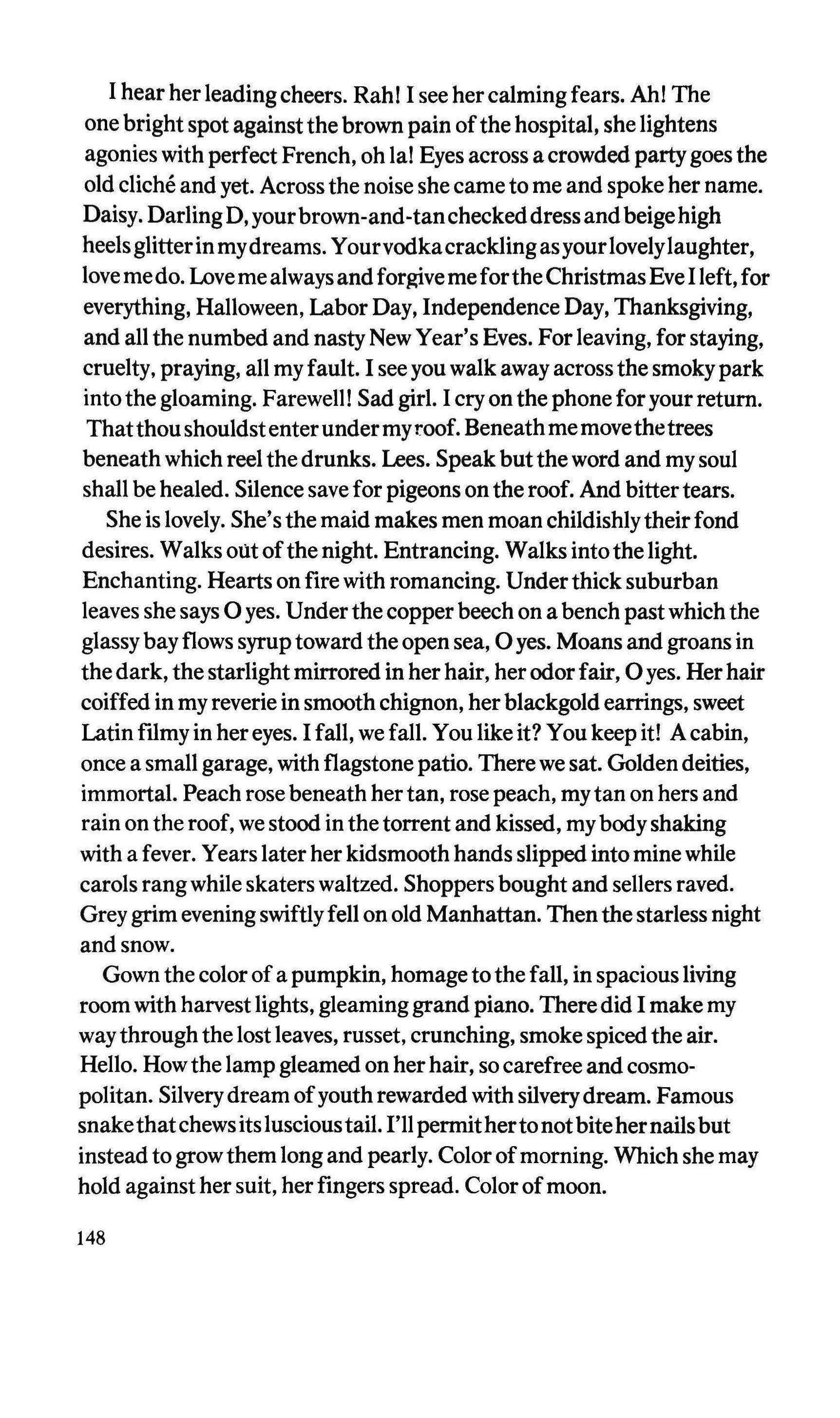
I hear her leadingcheers. Rah! I see hercalming fears. Ah! The one bright spotagainstthe brown pain ofthe hospital, she lightens agonies with perfect French, oh la! Eyes across a crowded party goes the old cliche and yet. Across the noise she came to me and spoke her name. Daisy. DarlingD, yourbrown-and-tancheckeddressandbeigehigh heelsglitterinmydreams. Yourvodkacrackling as yourlovelylaughter, love medo. Love me alwaysandforgive me fortheChristmasEve I left,for everything, Halloween, Labor Day, Independence Day, Thanksgiving, and all the numbed and nasty New Year's Eves. For leaving, for staying, cruelty, praying, all myfault. I see you walk away across the smokypark intothe gloaming. Farewell! Sad girl. I cry on the phoneforyour return. Thatthoushouldstenterundermyroof. Beneath me move thetrees beneath which reel the drunks. Lees. Speakbuttheword and my soul shall be healed. Silence save for pigeons on the roof. And bittertears. She is lovely. She's the maid makes men moan childishlytheirfond desires. Walks out ofthe night. Entrancing. Walks intothe light. Enchanting. Hearts on fire with romancing. Underthick suburban leaves she says 0 yes. Underthe copper beech on a bench past which the glassybayflows syruptoward the open sea, 0yes. Moans and groans in thedark, the starlight mirrored in her hair, herodorfair, 0yes. Herhair coiffed in my reverie in smooth chignon, herblackgoldearrings, sweet Latin fumy in her eyes. I fall, we fall. You likeit? You keep it! Acabin, once a small garage, with flagstonepatio. There we sat. Golden deities, immortal. Peach rose beneath hertan, rose peach, mytan on hers and rain on the roof, we stood in the torrent and kissed, mybodyshaking with a fever. Years later her kidsmooth hands slipped into mine while carols rangwhile skaters waltzed. Shoppersbought and sellers raved. Greygrimeveningswiftlyfell on old Manhattan. Thenthe starless night and snow.
Gown the color of a pumpkin, homage tothe fall, in spaciousliving room with harvest lights, gleaminggrandpiano. Theredid I make my waythrough the lost leaves, russet, crunching, smoke spiced the air. Hello. Howthe lampgleamed on herhair, so carefree and cosmopolitan. Silvery dream ofyouth rewarded with silverydream. Famous snakethatchewsitsluscioustail. I'll permithertonotbitehernailsbut instead to growthem long and pearly. Color ofmorning. Which she may hold against her suit, herfingersspread. Colorof moon.
148
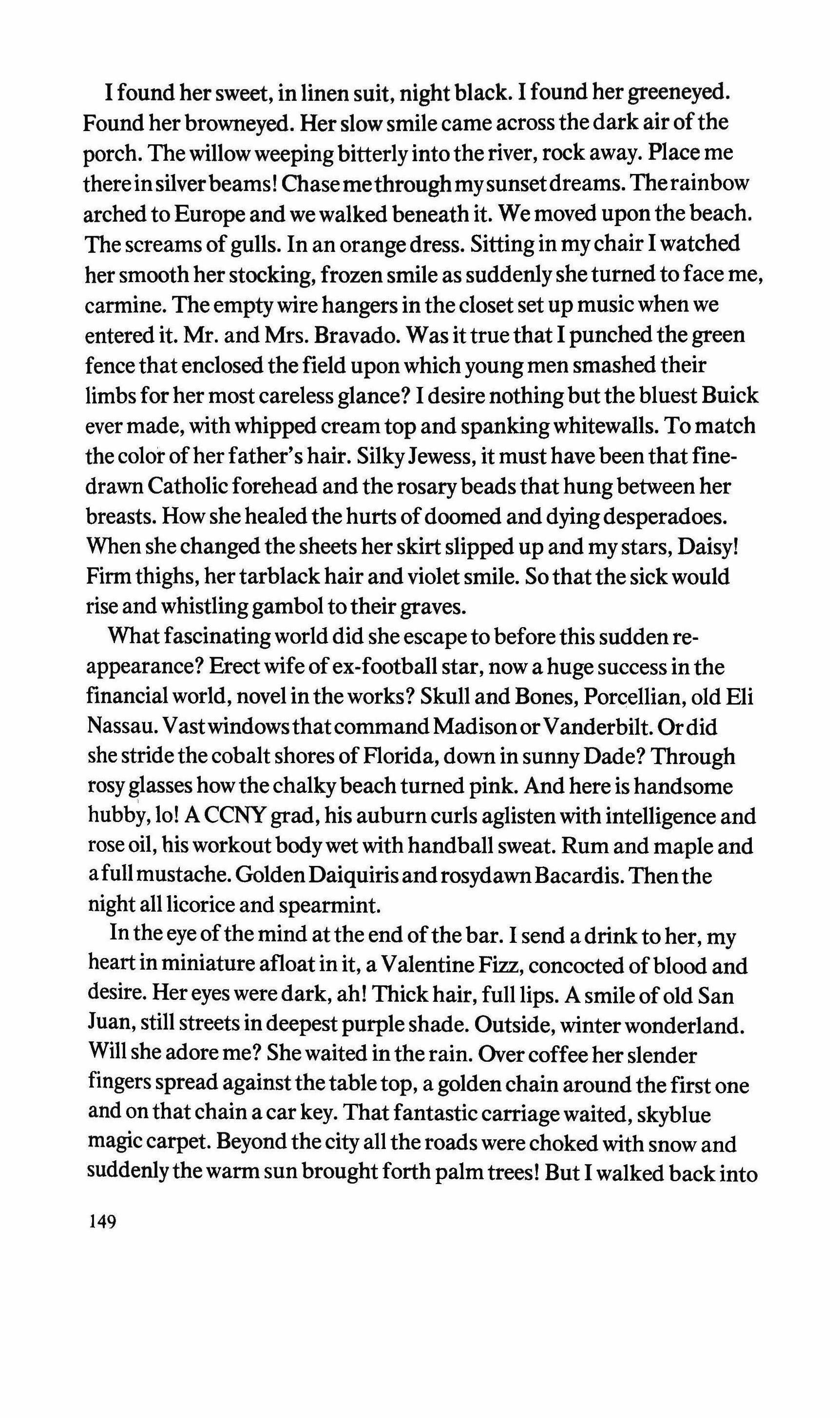
I found her sweet, in linen suit, night black. I found her greeneyed. Found herbrowneyed. Her slowsmile came across the dark air ofthe porch. The willowweepingbitterly intothe river, rock away. Place me thereinsilverbeams! Chase methroughmysunsetdreams. Therainbow arched to Europe and we walked beneath it. We moved upon the beach. The screams ofgulls. In an orange dress. Sitting in mychair I watched her smooth her stocking, frozen smile as suddenlysheturned to face me, carmine. The emptywire hangers in the closet set up musicwhen we entered it. Mr. and Mrs. Bravado. Was it true that I punched the green fencethatenclosed the field uponwhich young men smashed their limbs forher most careless glance? I desire nothingbutthe bluest Buick ever made, with whipped cream top and spankingwhitewalls. To match the color ofherfather's hair. SilkyJewess, it must have been that finedrawn Catholicforehead and the rosarybeadsthat hungbetween her breasts. How she healed the hurts ofdoomed and dyingdesperadoes. When shechanged the sheets her skirt slipped up and mystars, Daisy! Firmthighs, hertarblack hair and violet smile. So that the sickwould rise and whistlinggambol totheirgraves.
What fascinating world did she escape to beforethis sudden reappearance? Erectwife ofex-football star, now a huge success inthe financial world, novel inthe works? Skull and Bones, Porcellian, old Eli Nassau. VastwindowsthatcommandMadison or Vanderbilt. Ordid she stridethe cobalt shores of Florida, down in sunny Dade? Through rosyglasses howthechalkybeach turned pink. And here is handsome hubby, lo! A CCNYgrad, his auburn curls aglistenwith intelligence and rose oil, hisworkoutbodywet with handball sweat. Rum and maple and afullmustache. GoldenDaiquirisandrosydawnBacardis. Thenthe night all licorice and spearmint.
In the eye ofthe mind at the end ofthebar. I send a drink to her, my heart in miniature afloat in it, a ValentineFizz, concocted ofblood and desire. Her eyes were dark, ah! Thick hair, full lips. A smile ofold San Juan, still streets in deepestpurple shade. Outside, winterwonderland. Will she adoreme? Shewaited inthe rain. Overcoffeeher slender fingersspreadagainstthetabletop, a goldenchain around thefirst one and on that chain a car key. That fantastic carriagewaited, skyblue magiccarpet. Beyond thecity all theroads were choked with snow and suddenlythe warm sun brought forth palmtrees! But I walked back into
149
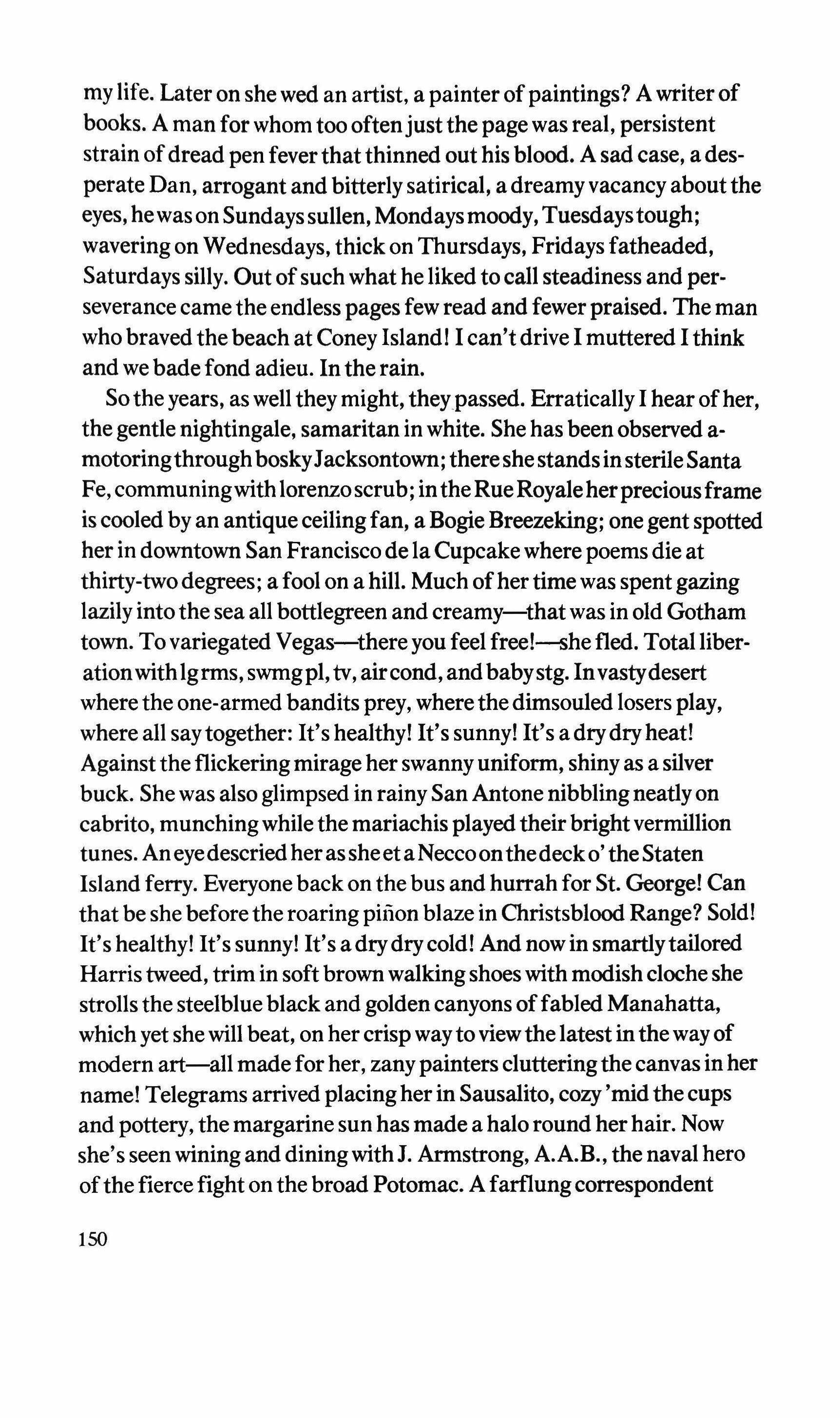
my life. Later on she wed an artist, a painter ofpaintings? A writer of books. A man for whom too oftenjust the page was real, persistent strain ofdread pen feverthat thinned out his blood. A sad case, a desperate Dan, arrogant and bitterlysatirical, a dreamy vacancy about the eyes, hewas on Sundayssullen, Mondaysmoody,Tuesdaystough; wavering on Wednesdays, thick on Thursdays, Fridays fatheaded, Saturdays silly. Out ofsuch what he liked to call steadiness and perseverance came the endless pages fewread and fewer praised. The man who braved the beach at Coney Island! I can'tdrive I muttered I think and we bade fond adieu. In the rain.
Sothe years, as well theymight,theypassed. Erratically I hear ofher, the gentlenightingale, samaritan in white. She has been observed amotoringthroughboskyJacksontown; thereshestandsinsterileSanta Fe,communingwith lorenzoscrub; intheRueRoyaleherpreciousframe is cooled by an antiqueceilingfan, a BogieBreezeking; one gentspotted her in downtown San Francisco de laCupcake where poems die at thirty-twodegrees; a fool on a hill. Much ofhertime was spentgazing lazily intothe sea all bottlegreen and creamy-that was in old Gotham town. To variegated Vegas-thereyou feel free!-she fled. Totalliberationwithlgrms, swmgpi,tv, aircond, andbabystg. Invastydesert where the one-armed bandits prey, where thedimsouled losers play, where all saytogether: It's healthy! It's sunny! It's a drydryheat! Againstthe flickeringmirage her swannyuniform, shiny as a silver buck. She was also glimpsed in rainy San Antone nibblingneatly on cabrito, munchingwhile the mariachis played their brightvermillion tunes. AneyedescriedherassheetaNeccoonthedecko'theStaten Island ferry. Everyone back on the bus and hurrah for St. George! Can that be she before the roaringpifion blaze in Christsblood Range? Sold! It's healthy! It's sunny! It's a drydrycold! And now in smartlytailored Harris tweed, trim in soft brown walkingshoes with modish cloche she strolls the steelblue black and golden canyons offabled Manahatta, which yet she will beat, on her crisp wayto viewthe latest inthe way of modern art-all made forher, zany paintersclutteringthe canvas inher name! Telegrams arrived placingher in Sausalito, cozy 'midthe cups and pottery, the margarine sun has made a halo round herhair. Now she's seen wining and diningwithJ. Armstrong, A.A.B., the naval hero ofthe fierce fight on the broad Potomac. A farflungcorrespondent
150
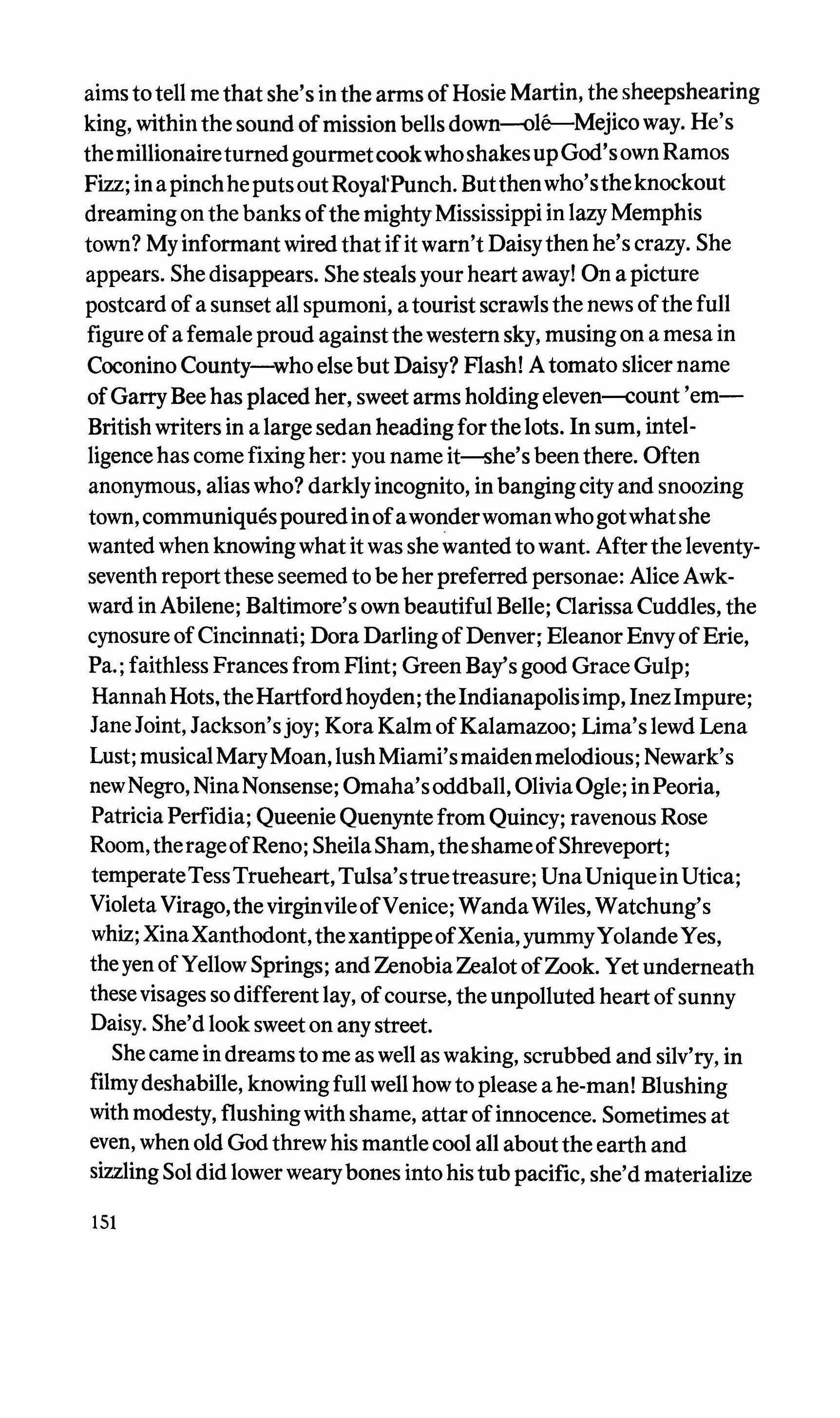
aims to tell me that she's in the arms ofHosie Martin, the sheepshearing king, within the sound ofmission bellsdown---<>le-Mejico way. He's themillionaireturned gourmetcookwhoshakesupGod'sown Ramos Fizz; in a pinchheputsoutRoyal'Punch. Butthenwho'stheknockout dreaming on the banks ofthe mightyMississippi in lazyMemphis town? Myinformant wired thatifit warn't Daisythen he's crazy. She appears. She disappears. She stealsyour heart away! On a picture postcard of a sunset all spumoni, a tourist scrawls the news ofthefull figure of a female proudagainstthe western sky, musing on a mesa in Coconino County-who elsebut Daisy? Flash! A tomato slicer name ofGarryBee has placed her, sweet arms holdingeleven--count 'emBritish writers in a large sedan headingforthelots. In sum, intelligencehas come fixingher: you name it-she's beenthere. Often anonymous, alias who? darklyincognito, in bangingcity and snoozing town,communiquespouredinofawonderwoman whogotwhatshe wanted when knowingwhat it was she wanted to want. Aftertheleventyseventh reportthese seemed to be her preferred personae: Alice Awkward in Abilene; Baltimore's own beautiful Belle; ClarissaCuddles, the cynosure of Cincinnati; Dora DarlingofDenver; Eleanor EnvyofErie, Pa.; faithless Frances from Flint; Green Bay'sgood Grace Gulp; Hannah Hots, theHartfordhoyden;theIndianapolisimp, InezImpure; Jane Joint, Jackson'sjoy; Kora Kalm ofKalamazoo; Lima's lewd Lena Lust; musicalMaryMoan, lushMiami'smaidenmelodious; Newark's new Negro, NinaNonsense; Omaha'soddball, OliviaOgle; inPeoria, PatriciaPerfidia; QueenieQuenynte from Quincy; ravenous Rose Room,therageofReno; SheilaSham,theshameofShreveport; temperateTessTrueheart,Tulsa'struetreasure; UnaUniqueinUtica; VioletaVirago,thevirginvileofVenice; WandaWiles,Watchung'S whiz;XinaXanthodont, thexantippeofXenia, yummyYolandeYes, the yen ofYellow Springs; andZenobiaZealot ofZook. Yet underneath thesevisages so differentlay, of course, the unpolluted heart ofsunny Daisy. She'd look sweet on any street.
She came indreams to me as well as waking, scrubbed and silv'ry, in filmydeshabille, knowingfull well howto please a he-man! Blushing with modesty, flushingwith shame, attar ofinnocence. Sometimes at even, when old God threw his mantlecool all aboutthe earth and sizzling Sol did lower wearybones intohistub pacific, she'd materialize
151
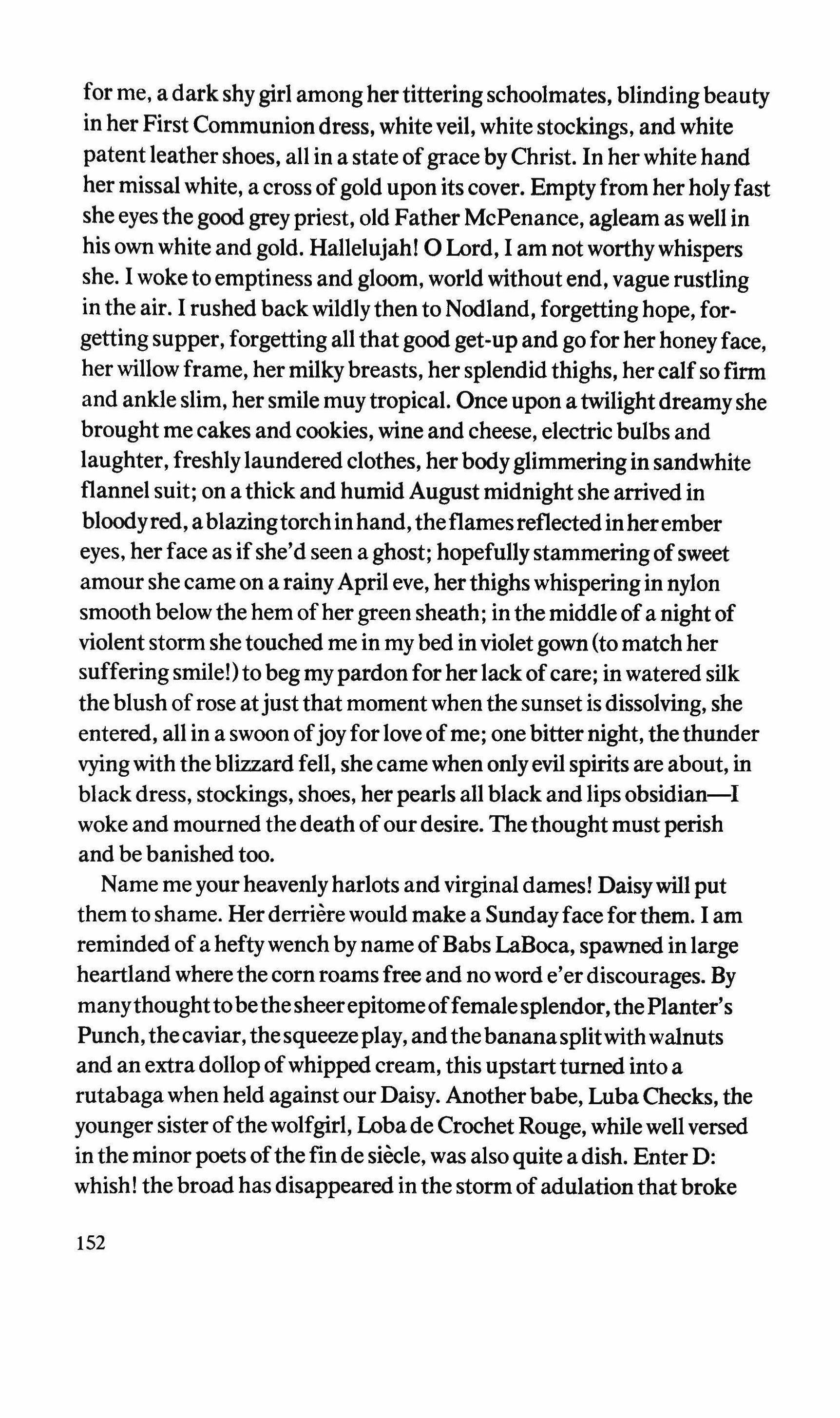
for me, a dark shygirl among hertitteringschoolmates, blindingbeauty in her First Communion dress, whiteveil, white stockings, and white patent leather shoes, all in a state ofgrace by Christ. In her white hand her missal white, a cross ofgold upon its cover. Emptyfrom her holyfast she eyes the good grey priest, old Father McPenance, agleam as well in his own white and gold. Hallelujah! 0 Lord, I am not worthywhispers she. I woke to emptiness and gloom, world without end, vague rustling in the air. I rushed back wildlythen to Nodland, forgettinghope, forgetting supper, forgetting all that good get-up and go for her honeyface, her willow frame, her milkybreasts, her splendidthighs, her calf so firm and ankle slim, her smile muy tropical. Once upon a twilightdreamyshe brought me cakes and cookies, wine and cheese, electric bulbs and laughter, freshly laundered clothes, her bodyglimmering in sandwhite flannel suit; on a thick and humid Augustmidnight she arrived in bloodyred,ablazingtorchinhand,theflamesreflected inherember eyes, her face as ifshe'd seen a ghost; hopefullystammeringofsweet amour she came on a rainyApril eve, herthighswhisperingin nylon smooth below the hem ofher green sheath; in the middle of a night of violent storm she touched me in my bed inviolet gown (to match her sufferingsmilel) to beg mypardon for herlackofcare; in watered silk the blush of rose atjust that moment when the sunset is dissolving, she entered, all in a swoon ofjoyforlove ofme; one bitter night, thethunder vyingwith the blizzard fell, she came when onlyevil spirits are about, in black dress, stockings, shoes, herpearls all black and lips obsidian-I woke and mourned thedeath of our desire. Thethought must perish and be banished too.
Name me your heavenly harlots and virginal dames! Daisywill put them to shame. Herderriere would make a Sundayface for them. I am reminded of a heftywench by name ofBabs LaBoca, spawned inlarge heartland wherethe corn roams free and no word e'er discourages. By manythoughttobethesheerepitomeoffemalesplendor,thePlanter's Punch,thecaviar, thesqueezeplay, andthebananasplitwithwalnuts and an extra dollop ofwhipped cream, this upstart turned into a rutabagawhen held against our Daisy. Another babe, LubaChecks, the younger sister ofthewolfgirl, Lobade Crochet Rouge, whilewell versed inthe minor poets ofthe fm de siecle, was also quite a dish. Enter D: whish! the broad has disappeared in the storm of adulationthat broke
152
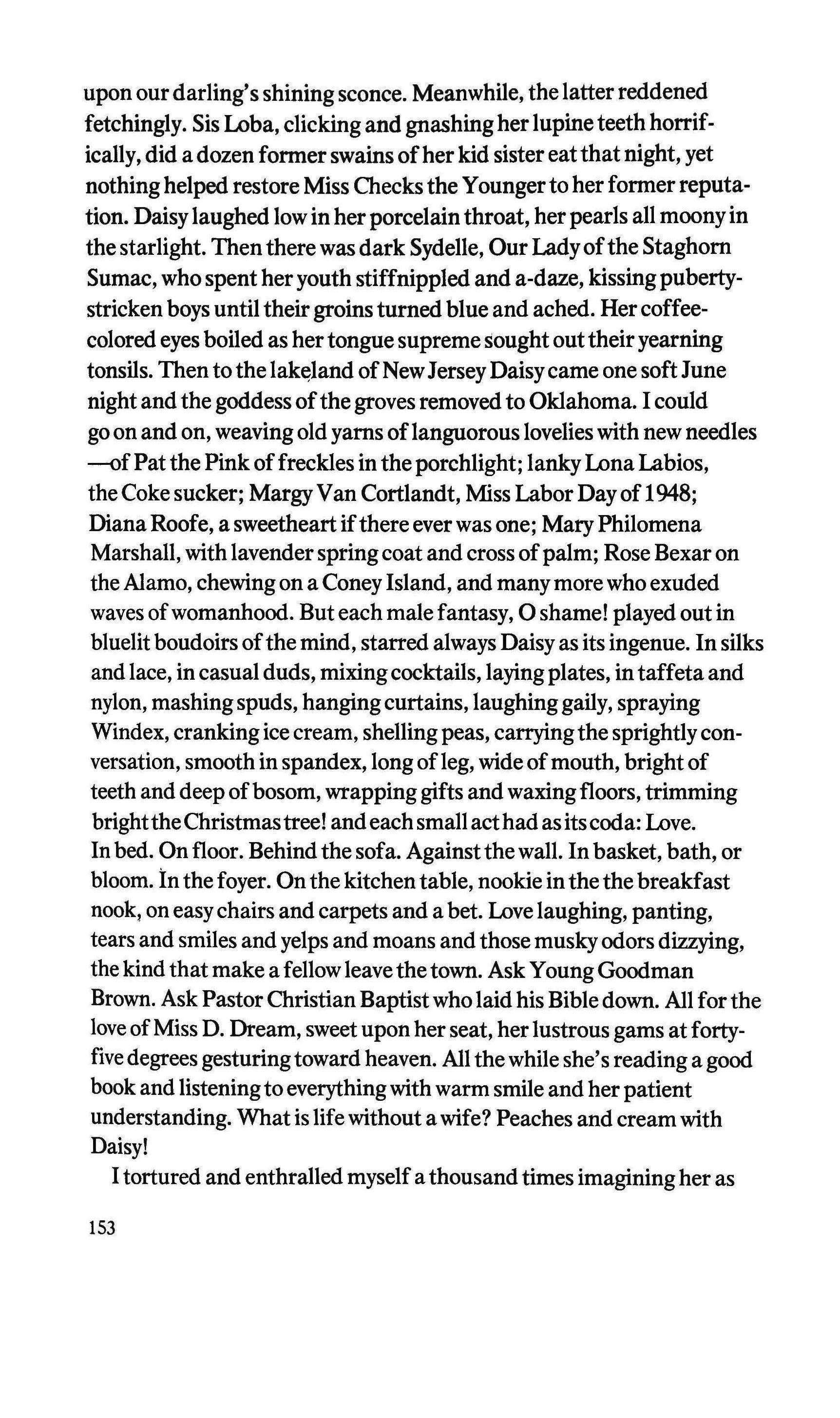
upon our darling'sshining sconce. Meanwhile, the latter reddened fetchingly. Sis Loba, clicking and gnashingherlupineteeth horrifically, did a dozen former swains ofher kid sister eatthat night, yet nothinghelped restore Miss Checks the Youngerto her former reputation. Daisylaughed lowin herporcelainthroat, herpearls all moonyin the starlight. Thenthere was dark Sydelle, Our Ladyofthe Staghorn Sumac, who spent heryouthstiffnippled and a-daze, kissingpubertystricken boys until theirgroins turned blue and ached. Her coffeecolored eyes boiled as hertonguesupreme sought outtheiryearning tonsils. Then to the lakeland ofNewJerseyDaisy came one soft June night andthe goddess ofthegroves removed to Oklahoma. I could go on and on, weaving old yarns oflanguorous lovelies with new needles -ofPat the Pink offreckles in theporchlight; lanky Lona Labios, the Coke sucker; MargyVan Cortlandt, Miss Labor Dayof 1948; Diana Roofe, a sweetheart ifthere ever was one; Mary Philomena Marshall, with lavender springcoat and cross ofpalm; Rose Bexar on the Alamo, chewing on a ConeyIsland, and many more who exuded waves ofwomanhood. But each male fantasy, 0 shame! played out in bluelit boudoirs ofthe mind, starred alwaysDaisy as its ingenue. In silks and lace, in casual duds, mixingcocktails, layingplates, intaffeta and nylon, mashingspuds, hangingcurtains, laughinggaily, spraying Windex, cranking ice cream, shelling peas, carryingthe sprightly conversation, smooth in spandex, long ofleg, wideofmouth, brightof teeth and deep ofbosom, wrappinggifts and waxingfloors, trimming brighttheChristmastree! andeachsmall acthad as itscoda: Love. In bed. On floor. Behindthe sofa. Againstthewall. In basket, bath, or bloom. inthefoyer. Onthe kitchentable, nookie inthethebreakfast nook, on easy chairs and carpets and a bet. Love laughing, panting, tears and smiles and yelps and moans and those muskyodors dizzying, the kind that make a fellow leavethetown. Ask Young Goodman Brown. Ask Pastor Christian Baptistwholaid his Bible down. All for the love ofMiss D. Dream, sweet upon herseat, herlustrous gams at fortyfivedegreesgesturingtoward heaven. All thewhile she's reading a good book and listeningto everythingwith warm smile and herpatient understanding. What is life without a wife? Peaches and cream with Daisy!
I tortured and enthralled myself a thousandtimes imagining her as 153
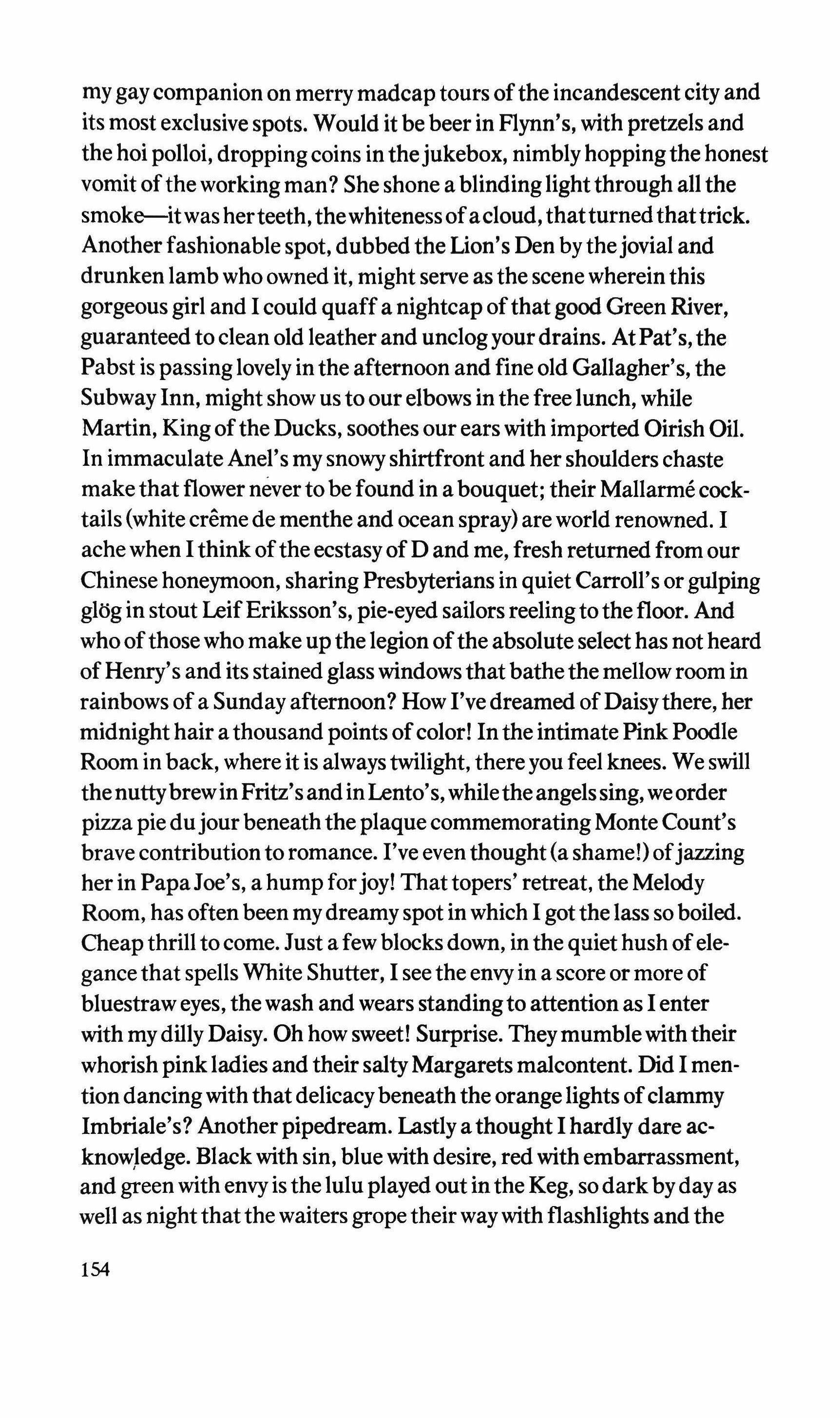
my gay companion on merry madcap tours ofthe incandescent city and its most exclusive spots. Would it be beer in Flynn's, with pretzels and the hoi polloi, droppingcoins inthejukebox, nimblyhoppingthe honest vomit oftheworking man? She shone a blindinglightthrough all the smoke-it was herteeth thewhitenessofacloud, thatturnedthattrick. Another fashionable spot, dubbed the Lion's Den bythejovial and drunken lamb who owned it, might serve as the scene wherein this gorgeous girl and I could quaff a nightcap ofthat good Green River, guaranteed to clean old leather and unclogyourdrains. AtPat's,the Pabst is passinglovely inthe afternoon and fine old Gallagher's, the SubwayInn, might show us to our elbows in the free lunch, while Martin, Kingofthe Ducks, soothes our ears with imported Oirish Oil. In immaculate Anel's my snowy shirtfront and her shoulders chaste make that flower never to be found in a bouquet; their Mallarme cocktails (whitecreme de menthe and ocean spray) are world renowned. I ache when I think ofthe ecstasyof D and me, fresh returned from our Chinese honeymoon, sharingPresbyterians in quiet Carroll's or gulping glt5g in stout LeifEriksson's, pie-eyed sailors reelingto thefloor. And whoofthosewho make up the legion ofthe absolute select has not heard ofHenry's and its stained glass windowsthatbathethe mellow room in rainbows of a Sunday afternoon? How I've dreamed ofDaisythere, her midnight hair a thousand points ofcolor! In the intimate Pink Poodle Room in back, where it is alwaystwilight, there you feel knees. We swill thenuttybrewinFritz's andinLento's,whiletheangelssing, we order pizzapiedujourbeneaththe plaquecommemorating Monte Count's brave contribution to romance. I've even thought(ashamel) ofjazzing her in PapaJoe's, a hump forjoy! Thattopers' retreat, the Melody Room, has often been my dreamyspot in which I gotthe lass so boiled. Cheap thrill to come. Just a few blocks down, inthe quiet hush ofelegance that spells White Shutter, I see the envy in a score or more of bluestraw eyes, thewash and wears standingto attention as I enter with my dillyDaisy. Oh how sweet! Surprise. Theymumblewith their whorish pinkladies and their saltyMargarets malcontent. Did I mentiondancingwith that delicacybeneath the orange lights ofclammy Imbriale's? Anotherpipedream. Lastly a thought I hardly dare acknowledge. Black with sin, blue with desire, red with embarrassment, and green with envy is the lulu played out inthe Keg, so darkbyday as well as nightthatthe waiters grope their waywith flashlights and the
154
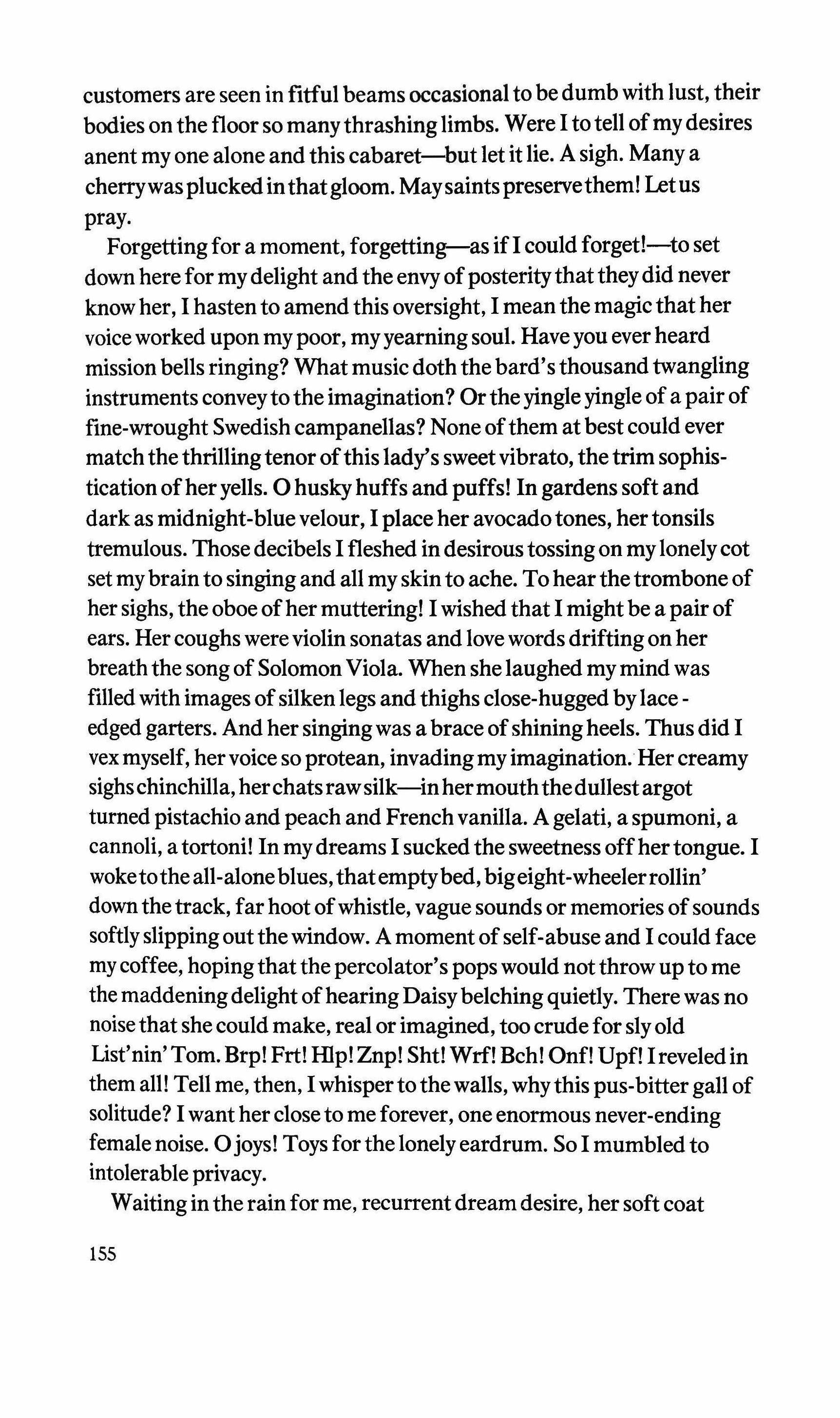
customers are seen in fitful beams occasional to be dumb with lust, their bodies on the floor so manythrashinglimbs. Were I to tell ofmydesires anent my one alone and this cabaret-but let it lie. A sigh. Many a cherrywas pluckedinthatgloom. Maysaintspreservethem! Let us pray.
Forgetting for a moment, forgetting-asifI could forget!-to set down here for mydelight and the envy ofposteritythattheydid never know her, I hasten to amend this oversight, I mean the magicthather voiceworked upon my poor, myyearningsoul. Haveyou ever heard mission bells ringing? What music doth thebard's thousand twangling instruments conveytotheimagination? Ortheyingleyingle of a pair of fine-wrought Swedish campanellas? None ofthem at best could ever matchthethrillingtenor ofthis lady's sweet vibrato, thetrim sophistication ofheryells. 0 huskyhuffs and puffs! In gardens soft and dark as midnight-bluevelour, I place her avocadotones, hertonsils tremulous. Those decibels I fleshed indesiroustossing on mylonely cot set mybrain to singing and all my skinto ache. To hearthetrombone of her sighs, the oboe ofhermuttering! I wished that I mightbe a pair of ears. Her coughs were violin sonatas and lovewords drifting on her breaththe songof Solomon Viola. When she laughed my mind was filled with images ofsilkenlegs and thighsclose-huggedbylaceedged garters. And her singing was a brace ofshiningheels. Thus did I vex myself, hervoice so protean, invadingmy imagination. Her creamy sighschinchilla,herchats rawsilk-inhermouththedullestargot turned pistachio and peach and French vanilla. A gelati, a spumoni, a cannoli, a tortoni! In mydreams I sucked the sweetness offhertongue. I woketotheall-aloneblues,thatemptybed,bigeight-wheelerrollin' downthetrack, farhoot ofwhistle, vague sounds or memories ofsounds softlyslipping out thewindow. A moment ofself-abuse and I could face my coffee, hopingthatthe percolator's pops would not throw up to me themaddeningdelight ofhearingDaisybelchingquietly. There was no noisethat shecould make, real or imagined, too crude for slyold List'nin' Tom. Brp! Frt! lip!Znp! Sht! Wrf! Bch! Onf! Upf! Ireveledin them all! Tell me, then, Iwhisperto thewalls, whythis pus-bittergall of solitude? I want herclose to me forever, one enormous never-ending female noise. 0joys! Toys forthe lonely eardrum. So I mumbled to intolerable privacy.
Waiting in the rain for me, recurrent dream desire, her soft coat
ISS
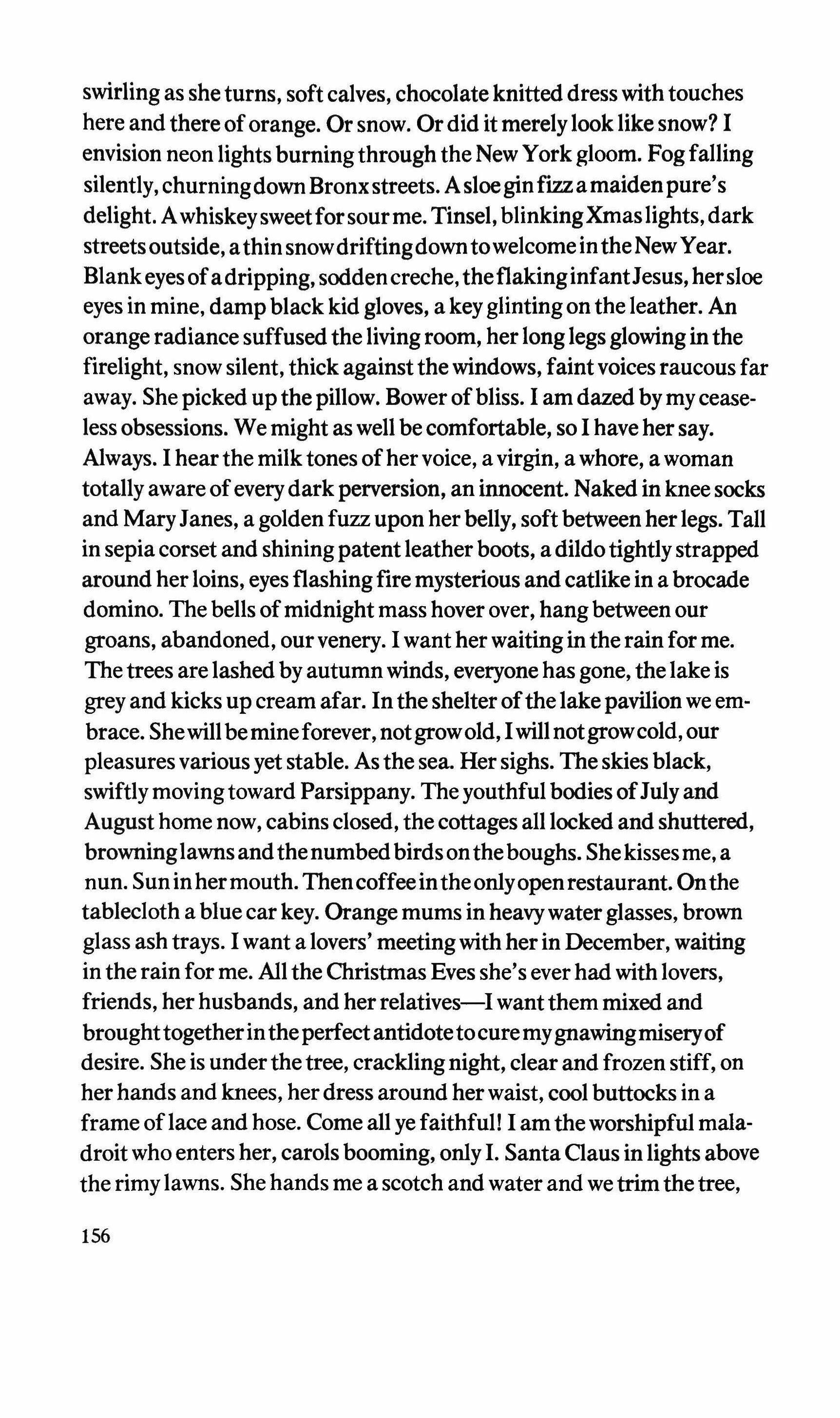
swirling as she turns, soft calves, chocolate knitted dress with touches here and there oforange. Or snow. Ordid it merelylook like snow? I envision neon lightsburningthrough the New York gloom. Fogfalling silently,churningdown Bronxstreets. Asloeginfizz a maidenpure's delight. Awhiskeysweetfor sour me. Tinsel, blinkingXmaslights, dark streetsoutside, a thin snowdriftingdowntowelcome intheNewYear. Blankeyes ofa dripping, soddencreche,theflakinginfantJesus, hersloe eyes in mine, damp black kid gloves, a keyglinting on the leather. An orange radiance suffused the living room, her longlegsglowinginthe firelight, snow silent, thick againstthe windows, faintvoices raucous far away. She picked up the pillow. Bower ofbliss. I am dazed by my ceaseless obsessions. We might as well be comfortable, so I have her say. Always. I hearthe milk tones ofhervoice, a virgin, a whore, a woman totally aware ofevery dark perversion, an innocent. Naked in knee socks and MaryJanes, a goldenfuzz upon herbelly, soft between herlegs. Tall in sepia corset and shiningpatentleather boots, a dildotightlystrapped around her loins, eyes flashing fire mysterious and catlike in a brocade domino. The bells ofmidnight mass hover over, hangbetween our groans, abandoned, our venery. I want her waitinginthe rain for me. The trees are lashed by autumn winds, everyone has gone, thelake is grey and kicks up cream afar. In the shelterofthelake pavilion we embrace. Shewillbemineforever, notgrowold, Iwill notgrowcold, our pleasures variousyet stable. Asthe sea. Her sighs. The skies black, swiftlymovingtoward Parsippany. The youthfulbodies ofJuly and August home now, cabins closed, the cottages all locked and shuttered, browninglawnsandthenumbedbirds on theboughs. Shekisses me, a nun. Suninhermouth. Thencoffeeintheonlyopen restaurant. Onthe tablecloth a blue car key. Orange mums in heavywater glasses, brown glass ash trays. I want a lovers' meetingwith her in December, waiting in the rain for me. All the Christmas Eves she's ever had with lovers, friends, her husbands, and her relatives-I want them mixed and broughttogetherintheperfectantidoteto cure mygnawingmiseryof desire. She is underthetree, cracklingnight, clear and frozen stiff, on herhands and knees, herdress around herwaist, cool buttocks in a frame oflace and hose. Come all ye faithful! I am theworshipful maladroit who enters her, carols booming, only I. Santa Claus in lights above the rimy lawns. She hands me a scotch and water and we trimthetree,
156
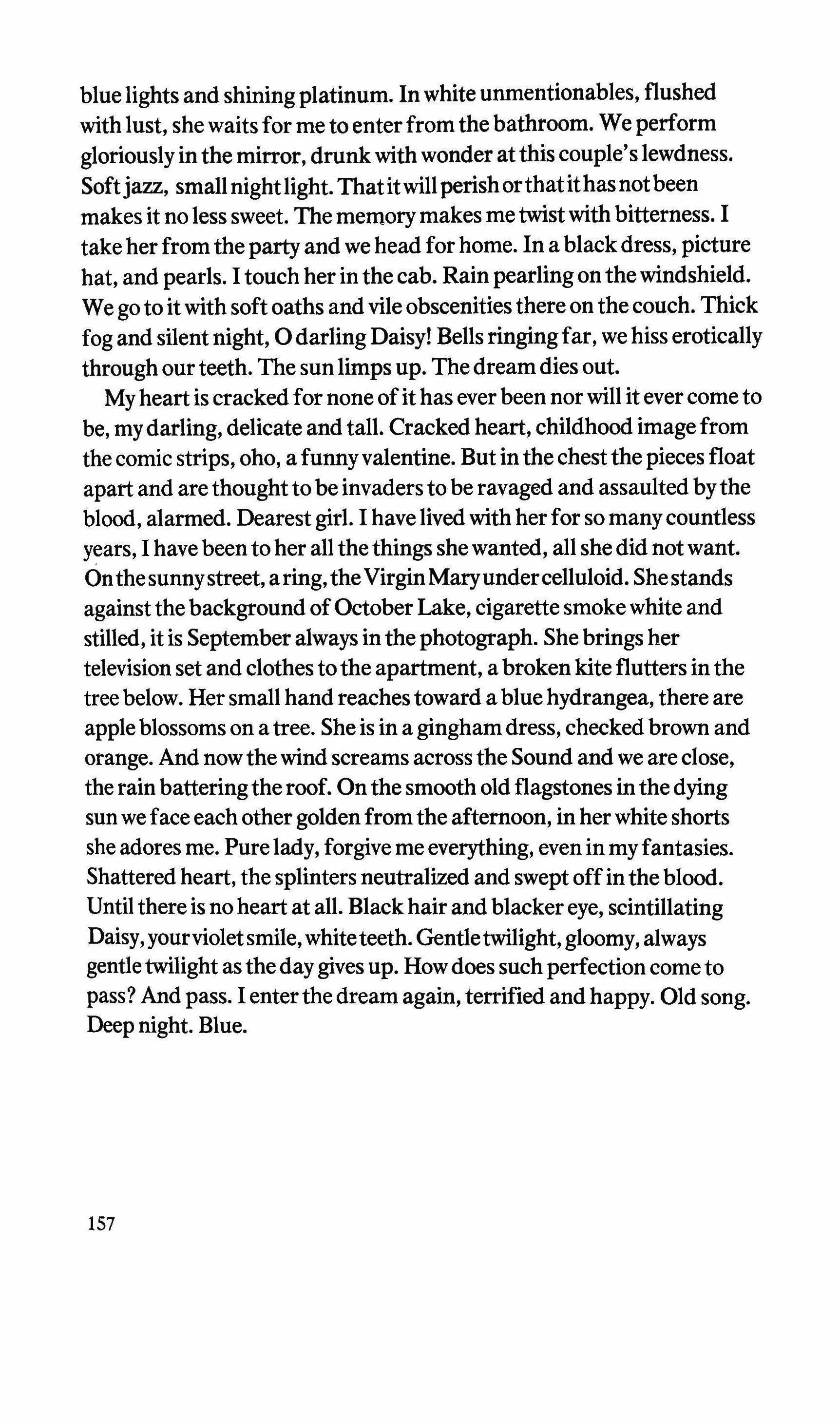
blue lights and shiningplatinum. In white unmentionables, flushed with lust, she waits for me to enter from the bathroom. We perform gloriouslyinthe mirror, drunkwith wonder at this couple's lewdness. Softjazz, smallnightlight. Thatitwillperish orthatithasnotbeen makes it no less sweet. The memorymakes me twistwith bitterness. I take herfromthe partyand we head for home. In a blackdress, picture hat, and pearls. I touch her in the cab. Rain pearling on thewindshield. We goto itwith soft oaths and vile obscenities there on the couch. Thick fog and silent night, 0darlingDaisy! Bells ringingfar, we hiss erotically through our teeth. The sun limps up. Thedream dies out.
Myheart is cracked for none ofithas ever been nor will it ever come to be, mydarling, delicate and tall. Cracked heart, childhood image from the comic strips, oho, a funnyvalentine. But inthe chestthepieces float apart and are thought to be invaders to be ravaged and assaulted bythe blood, alarmed. Dearest girl. I have livedwith herfor so manycountless years, I have beento her all thethings shewanted, all she did not want. Onthesunnystreet, a ring,theVirginMaryundercelluloid. Shestands againstthebackground ofOctober Lake, cigarette smoke white and stilled, it is Septemberalways inthe photograph. She brings her television set and clothes tothe apartment, a broken kite flutters inthe tree below. Her small hand reachestoward a blue hydrangea, there are appleblossoms on a tree. She is in a ginghamdress, checked brown and orange. And now the wind screams across the Sound and we are close, the rain batteringtheroof. Onthe smooth old flagstones inthedying sun we faceeach other goldenfromthe afternoon, in herwhite shorts she adores me. Purelady, forgive me everything, even in myfantasies. Shattered heart, the splinters neutralized and swept offin the blood. Until there is no heart at all. Blackhair and blacker eye, scintillating Daisy,yourvioletsmile,whiteteeth. Gentletwilight,gloomy,always gentletwilight as thedaygives up. Howdoes such perfection come to pass? And pass. I enterthe dream again, terrified and happy. Old song. Deepnight. Blue.
157
from Lyrics for the bride of God
Section: La Traviata
Nathaniel Tarn

Before lmowingher
The morning, freshwith springboughs, their muslin round her form already as she emerges from pigstyto the streets, herclogsringing, smudges ofash on her cheek.
When everyone had ceased to hope, when no object ofpossiblebelief existed any longer, when all cards had been stacked on love's behalf againstthe loomingdark=-she brought herfaultless taste to town, herfragrant curls intothetapestry.
First: a child ofthewild wood. Then a peasant, to the capital. Then, picked up by so and so, Montmorency. Then settled in rooms. Thelacob's-ladderofherfame: opera, balls, Tortoni's, on the arm ofthis or that frock coat ofgreen moire.
She had the hush ofdeath in her perfectmouth, herteeth framed thethroat ofconsumption, her skin ran withblue veins, she leant againstfireplacesmildly, she strangled in asides, men saw their own ennui perfectlyreflected in her pallor.
And taken at last, afterdeath, bythewings of an imagination. Not a great one, but a popular one, with a thousand avid hearers
158 TriQuarlerly
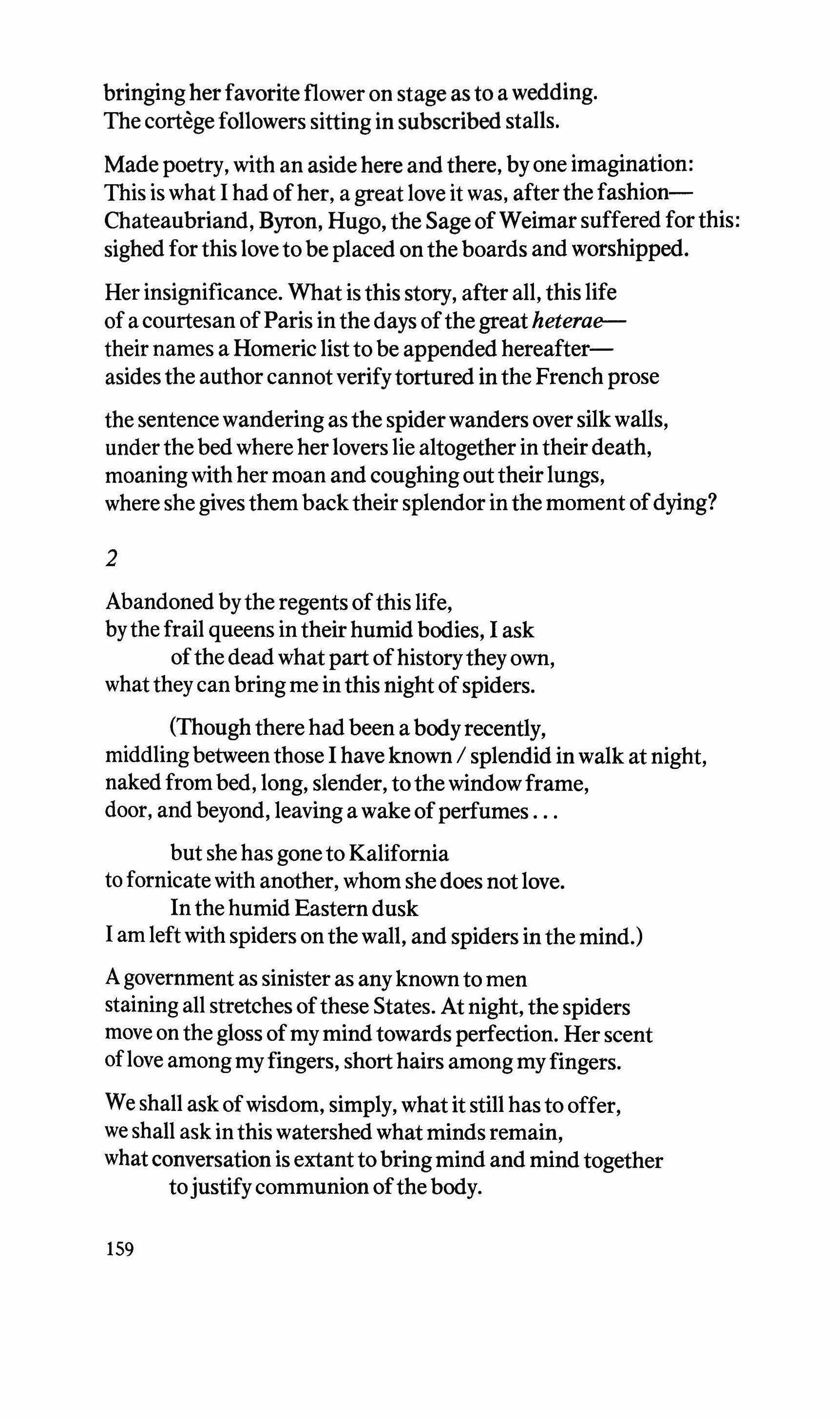
bringing herfavorite flower on stage as to a wedding. The cortegefollowers sitting in subscribed stalls.
Made poetry, with an aside here and there, by one imagination: This is what I had ofher, a great love it was, afterthe fashionChateaubriand, Byron, Hugo, the Sage ofWeimar suffered forthis: sighed forthis love to be placed on the boards and worshipped.
Her insignificance. What is this story, after all, this life of a courtesan ofParis inthe days ofthegreatheterae+ their names a Homeric list to be appended hereafterasidesthe author cannot verifytortured inthe French prose
the sentence wandering as the spiderwanders over silkwalls, under thebed where herlovers lie altogether in theirdeath, moaningwith her moan and coughing out theirlungs, where she gives thembacktheir splendor in the moment ofdying?
2
Abandoned bythe regents ofthis life, bythe frail queens in their humid bodies, I ask ofthe dead what part ofhistorythey own, whatthey can bring me inthis night of spiders.
(Though there had been a bodyrecently, middlingbetween those I have known / splendid in walk at night, naked from bed, long, slender, tothewindowframe, door, and beyond, leaving a wake ofperfumes
but she has gone to Kalifornia to fornicatewith another, whom she does not love. In thehumid Eastern dusk
I am leftwith spiders on thewall, and spiders in the mind.)
A government as sinister as any known to men staining all stretches ofthese States. At night, the spiders move on the gloss ofmy mind towards perfection. Her scent oflove amongmyfingers, shorthairs among myfingers.
We shall ask ofwisdom, simply, what it still has to offer, we shall ask in this watershed what minds remain, whatconversation is extant to bringmind and mind together tojustify communion ofthebody.
159
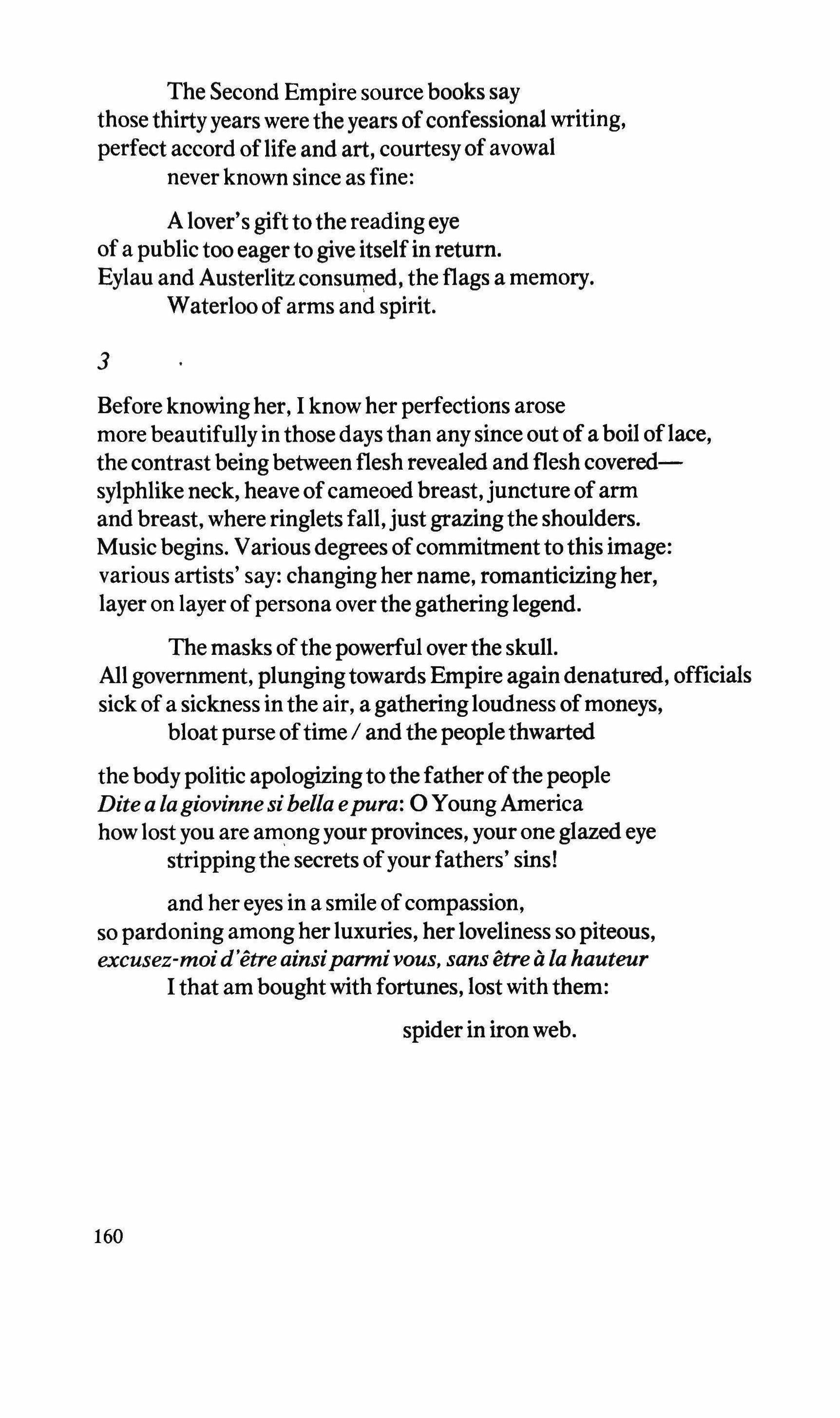
The Second Empire source books say those thirtyyears were the years ofconfessional writing, perfect accord oflife and art, courtesyofavowal never known since as fine:
A lover's gift to the reading eye of a public too eager to give itselfin return. Eylau and Austerlitzconsumed, the flags a memory. Waterloo of arms and spirit.
3
Before knowingher, I know her perfections arose more beautifullyin those days than any since out of a boil oflace, the contrast beingbetween flesh revealed and flesh coveredsylphlike neck, heave ofcameoed breast,juncture of arm and breast, where ringletsfall,justgrazingthe shoulders. Music begins. Various degrees ofcommitment to this image: various artists' say: changingher name, romanticizingher, layer on layer of persona over the gatheringlegend.
The masks ofthe powerful over the skull. All government, plungingtowards Empireagaindenatured, officials sick of a sickness inthe air, a gatheringloudness ofmoneys, bloat purse oftime / and the peoplethwarted the bodypolitic apologizingto thefather ofthepeople Dite a lagiovinne sibella epura: 0 Young America how lost you are among your provinces, your one glazed eye strippingthe secrets ofyour fathers' sins!
and her eyes in a smile ofcompassion, so pardoning amongherluxuries, herloveliness so piteous, excusez-moid'etre ainsiparmi vous, sans etre a la hauteur I that am boughtwith fortunes, lost with them: spider in iron web.
160
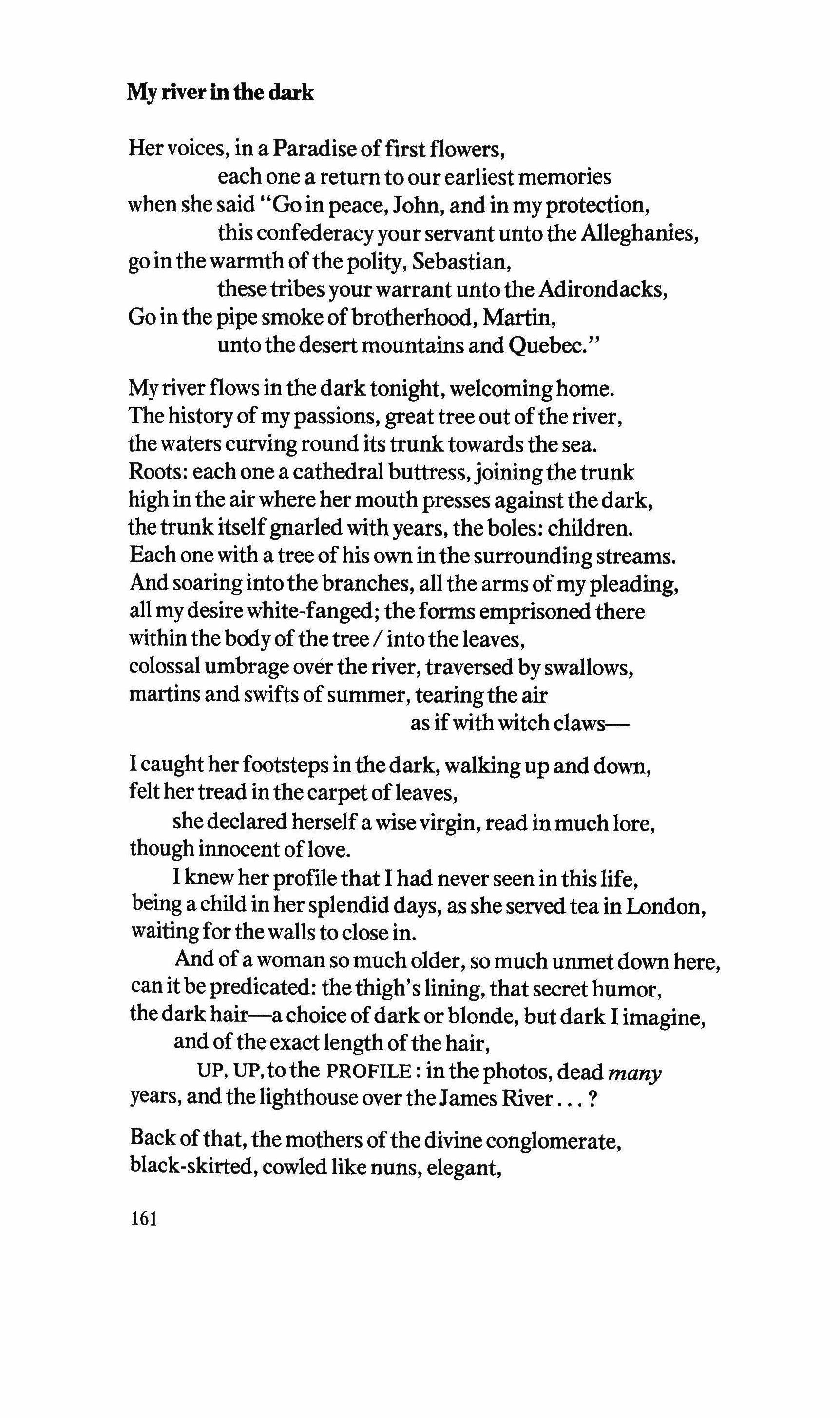
My river in the dark
Hervoices, in a Paradise offirst flowers, each one a return to our earliest memories when she said "Go in peace, John, and in my protection, this confederacyyour servant unto the Alleghanies, go inthewarmth ofthe polity, Sebastian, thesetribes yourwarrant untothe Adirondacks, Go inthe pipe smoke ofbrotherhood, Martin, untothedesert mountains and Quebec."
Myriverflows in the darktonight,welcominghome. The historyofmy passions, great tree out ofthe river, the waters curving round its trunktowards the sea.
Roots: each one a cathedral buttress,joiningthetrunk high in the airwhere hermouth presses againstthedark, thetrunk itselfgnarled withyears, theboles: children. Each one with a tree ofhis own inthe surrounding streams. And soaring into the branches, all the arms ofmy pleading, all mydesire white-fanged; the forms emprisoned there withinthebodyofthe tree / intothe leaves, colossal umbrage over the river, traversed byswallows, martins and swifts of summer, tearingthe air as ifwith witch claws-
I caught herfootsteps inthedark, walkingup and down, felt her tread in the carpet ofleaves, shedeclared herself a wisevirgin, read inmuch lore, though innocent oflove.
I knewher profilethat I had never seen in thislife, being a child in her splendiddays, as she served tea inLondon, waiting forthewalls to close in.
And of a woman so much older, so much unmet down here, can it be predicated: thethigh'slining, that secret humor, thedark hair-a choiceofdark or blonde, but dark I imagine, and ofthe exact length ofthe hair, UP, UP,to the PROFILE: inthe photos, dead many years, and thelighthouse over theJames River ?
Back ofthat, the mothers ofthedivine conglomerate, black-skirted, cowled like nuns, elegant,
161
theirvoices whining to puppies in a foreign accent, among them one adolescent whose blood was to be mine, past river ofbecoming, risen out ofcorsage, first-morning-flower, serious lips above a set ofchin, severe, nose ofyoung eagle, eyes under brow, severe, middle parting ofhair, severe / but, overall, a softness likethat of creation before it had memorized the rosters. White correspondences ofdresses, Sundays, in Paris, in the Bois de Boulogne, with the phaetonspassing, broad alleysgreened with lawns at the margins, picnictables, white cloths and white porcelain, set for Iefive o'clock.
She lies underneath me, flesh welcoming as a bed aftertravels, I sleep in her hollows and dream in each of hervalleys anotherdream. Waking, I open herdoors, intodeeper dreams with no beginning. (Paint me your eros, he had said: submityour archetypes.)
Of a sudden: she, bone, white, unyielding. Into my ear on the left, little fingerexploring, herchin into mythroat, knuckles inside my sockets. The cushions deflate: I fall into bone pits. The shank is thin like a flute, but without music-the elbow digs into my ribs. A shudder wrenches cock and balls.
Disembowelment.
She was flying over Chikago awayfrom me into Kalifornia and already she was writing to sayshe missed me out of our dark, and would return, after savoring, of course, what Kalifornia had to offer, but it seemed to me / she was so far / so far / it was unspeakable howfar / and I felt dull with thedullness of several centuries between us as if I had never met this incarnation ofher.
And, as for me, I was working my way through the historical stacks, state by state in alphabetical order, now close, now far, and the polity was sinkingunder historyforthe firsttimetotally, the headman pathetic in his fineries exposed forwhatthey were.
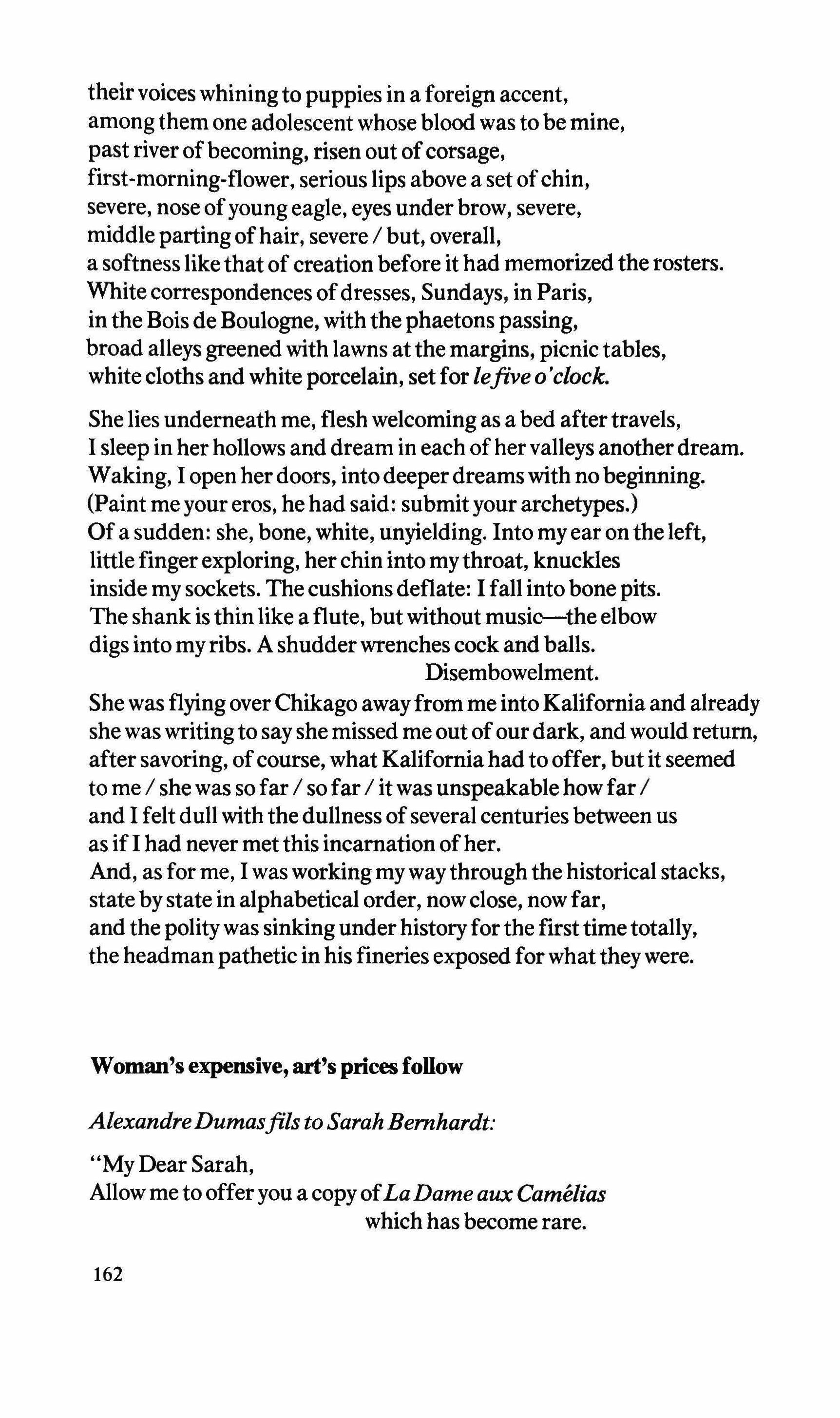
Woman's expensive, art's prices follow
AlexandreDumasfils to SarahBernhardt:
"MyDear Sarah,
Allow me to offeryou a copyofLaDame awe Camelias which has become rare.
162
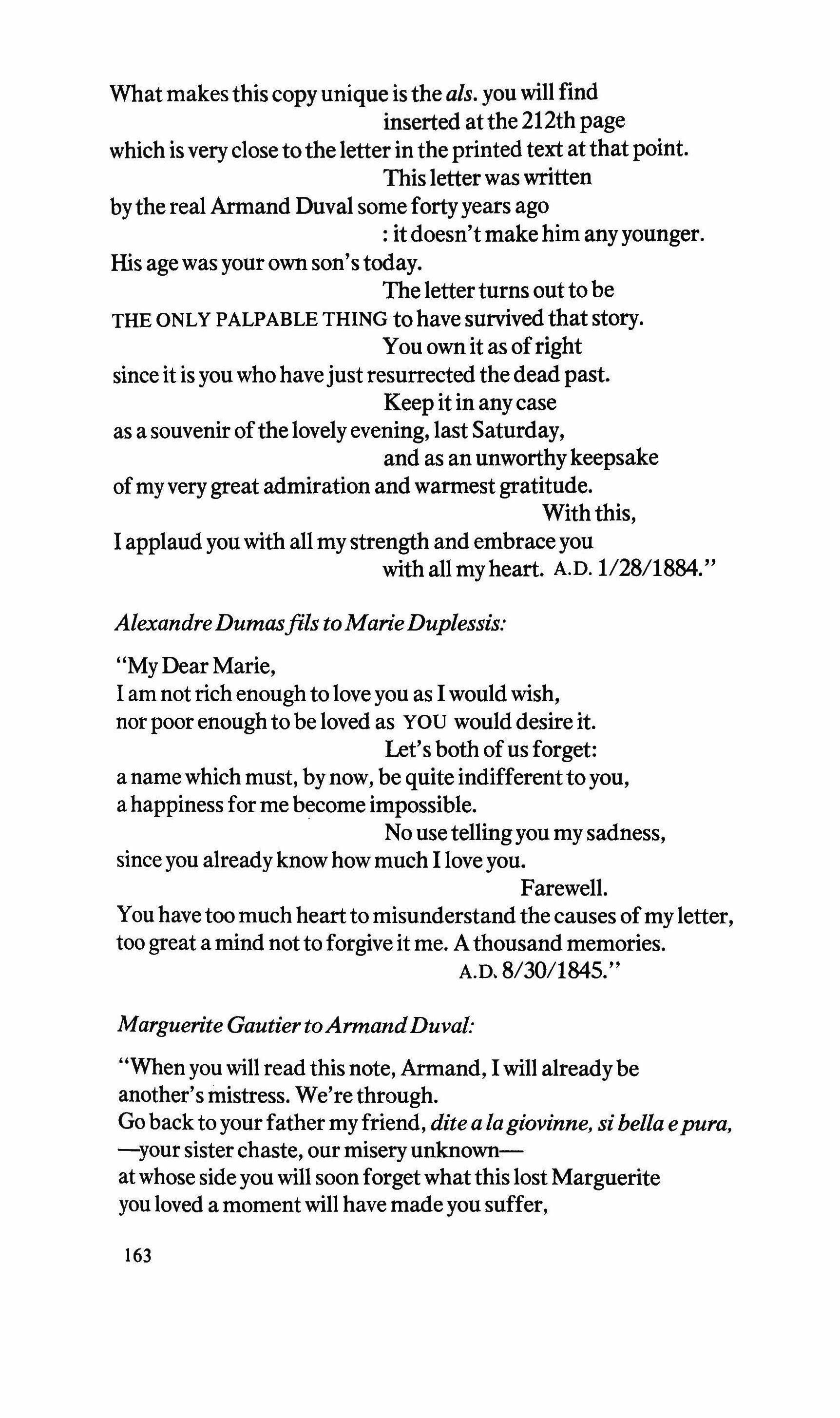
What makes this copy unique isthe also you will find inserted atthe 212th page which is very close tothe letter inthe printed text at thatpoint. This letter was written bythe real Armand Duval some fortyyears ago : it doesn't make him anyyounger. His age was your own son's today.
Theletterturns outto be THE ONLY PALPABLE THING to have survived that story. You own it as ofright since it isyou who havejust resurrected the dead past. Keep it in any case as a souvenir ofthelovelyevening, last Saturday, and as an unworthykeepsake ofmyvery great admiration and warmest gratitude. Withthis, I applaud you with all my strength and embrace you with all myheart. A.D. 1/28/1884."
AlexandreDumasfils toMarieDuplessis:
"My Dear Marie, I am not rich enough to love you as I would wish, nor poorenough to be loved as YOU would desire it.
Let's both of us forget: a name which must, by now, be quite indifferenttoyou, a happiness for me become impossible.
No use tellingyou my sadness, since you already knowhowmuch I loveyou. Farewell. Youhave too much heartto misunderstandthe causes ofmy letter, too great a mind not to forgive it me. Athousand memories.
A.D. 8/30/1845."
Marguerite Gautier toArmandDuval:
"When you will read this note, Armand, I will alreadybe another's mistress. We'rethrough. Go back to yourfather myfriend, dite a lagiovinne, sibella epura, -your sisterchaste, our misery unknownatwhose side you will soon forget whatthis lost Marguerite you loved a moment will have made you suffer,
163
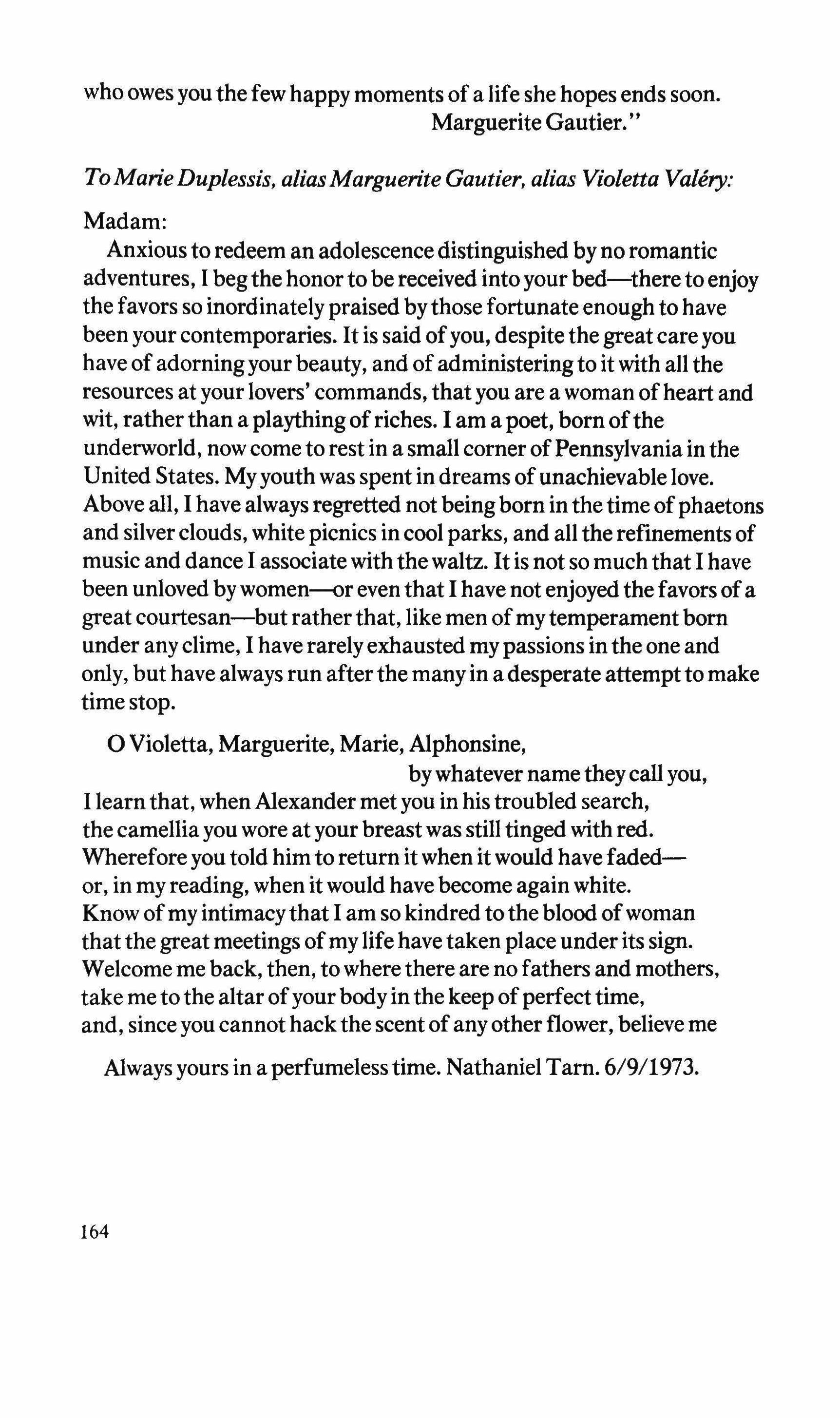
who owes you the few happy moments of a life she hopes ends soon.
Marguerite Gautier."
ToMarieDuplessis, aliasMarguerite Gautier, alias Violetta Valery:
Madam:
Anxious to redeem an adolescence distinguished by no romantic adventures, I begthe honor to be received into your bed-there to enjoy the favors so inordinatelypraisedbythose fortunateenough to have been your contemporaries. It is said ofyou, despite the great care you have of adorningyour beauty, and of administering to it with all the resources at your lovers' commands, that you are a woman ofheart and wit, rather than a playthingofriches. I am a poet, born ofthe underworld, now come to rest in a small corner of Pennsylvania in the United States. Myyouth was spent in dreams ofunachievable love. Above all, I have alwaysregretted not beingborn inthetime ofphaetons and silver clouds, white picnics in cool parks, and all the refinements of music and dance I associate with the waltz. It is not so much that I have been unloved by women-or even that I have not enjoyed the favors of a great courtesan-but ratherthat, like men ofmytemperamentborn under any clime, I have rarelyexhausted mypassions inthe one and only, but have always run afterthe manyin a desperate attempt to make time stop.
o Violetta, Marguerite, Marie, Alphonsine, bywhatever name theycall you, I learn that, when Alexander met you in his troubled search, the camellia you wore at your breast was still tinged with red. Whereforeyou told him to return itwhen itwould havefadedor, in my reading, when itwould have become again white. Know ofmy intimacythat I am so kindred to the blood of woman that the greatmeetings ofmy life havetaken place under its sign. Welcome me back, then, to wherethere are no fathers and mothers, take me to the altar ofyour body inthe keep ofperfecttime, and, since you cannot hack the scent ofany otherflower, believe me
Always yours in a perfumeless time. Nathaniel Tarn. 6/9/1973.
164
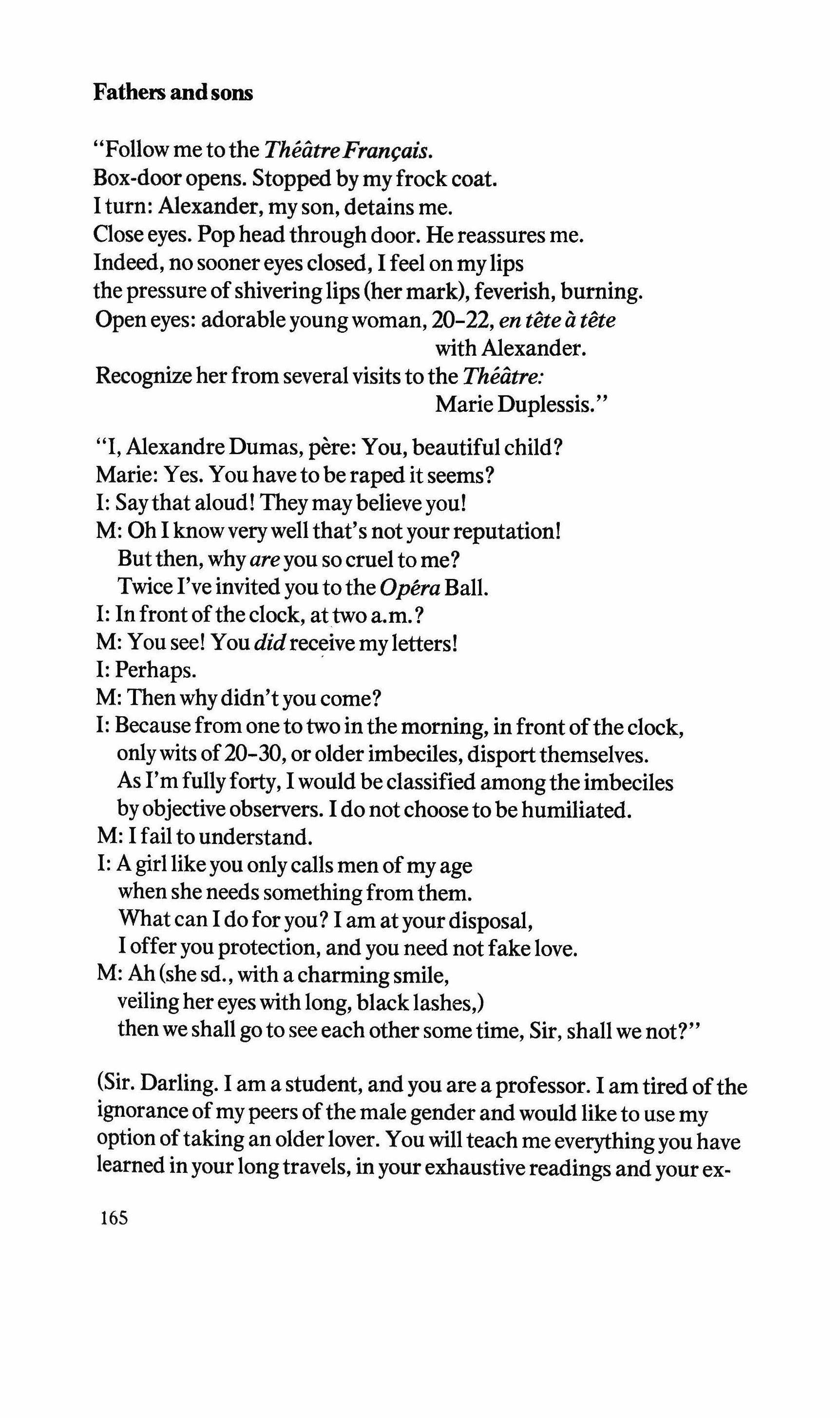
Fathers and sons
"Follow me tothe TheatreFran�ais. Box-dooropens. Stoppedby my frock coat. I turn: Alexander, my son, detains me. Close eyes. Pop head through door. He reassures me. Indeed, no sooner eyes closed, I feel on mylips the pressure of shiveringlips (hermark), feverish, burning. Open eyes: adorable young woman, 20-22, en tete a tete with Alexander.
Recognize her from several visits to the Theatre: Marie Duplessis."
"I, Alexandre Dumas, pere: You, beautiful child?
Marie: Yes. Youhave to beraped it seems?
I: Saythat aloud! Theymaybelieveyou!
M: Oh I know very well that's not your reputation! Butthen,why are you so cruel to me? Twice I've invited you to the Opera Ball.
I: In front ofthe clock, attwoa.m.?
M: You see! You didreceive my letters!
I: Perhaps.
M: Thenwhydidn't you come?
I: Because from one to two inthe morning, in front ofthe clock, onlywits of20-30, or older imbeciles, disportthemselves. As I'm fullyforty, I would be classified amongthe imbeciles byobjective observers. I do not chooseto be humiliated.
M: I fail to understand.
I: A girl like you only calls men ofmy age when she needs something fromthem. What can I doforyou? I am at your disposal, I offer you protection, and you need not fake love.
M: Ah (she sd., with a charmingsmile, veiling hereyeswith long, blacklashes,) then we shall go to see each other some time, Sir, shall we not?"
{Sir. Darling. I am a student, and you are a professor. I am tired ofthe ignorance ofmy peers ofthe male gender and would like to use my option oftaking an olderlover You will teach me everythingyou have learned in your longtravels, in your exhaustive readings andyour ex-
165
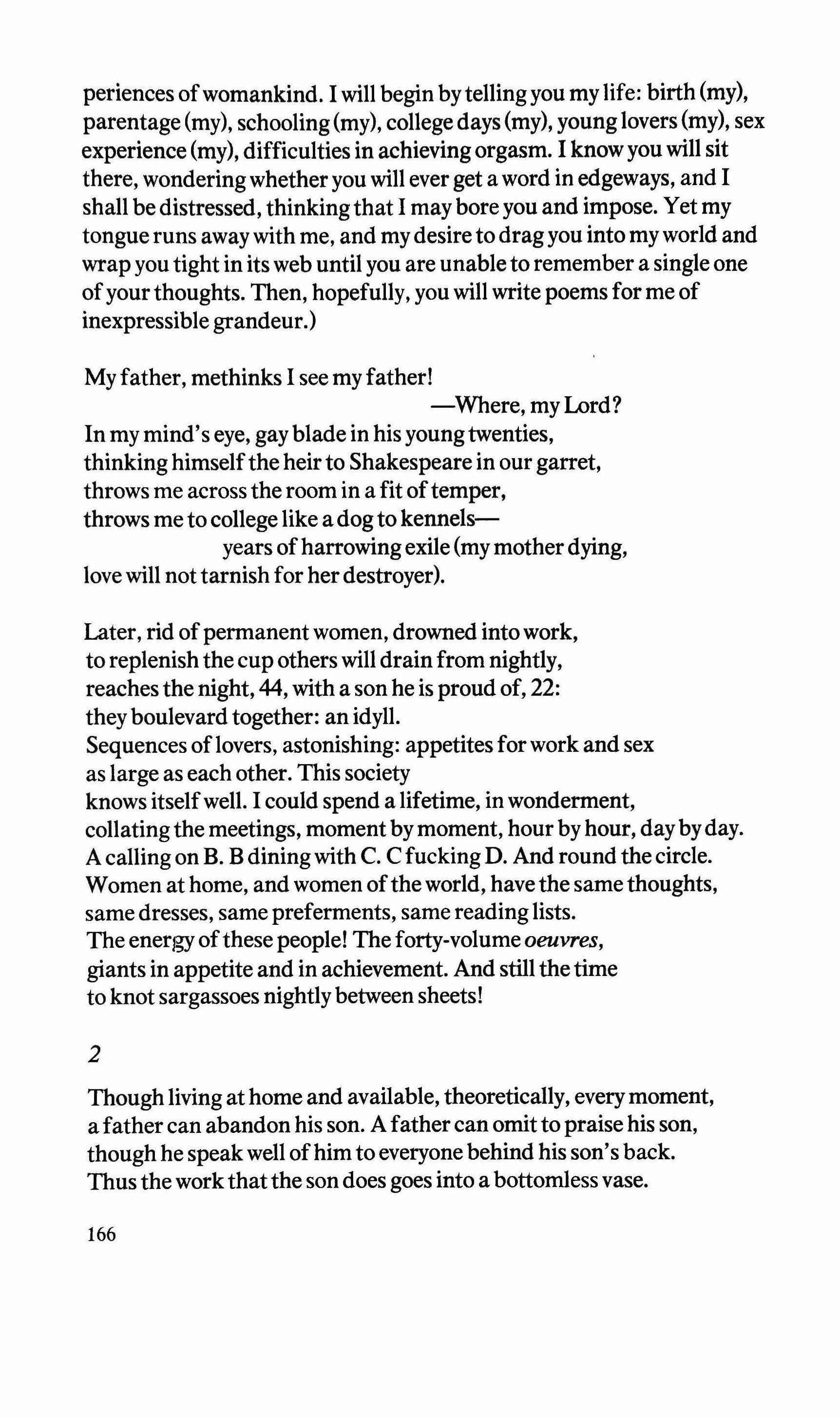
periences ofwomankind. I will beginbytelling you mylife: birth (my), parentage(my), schooling(my), collegedays(my), young lovers (my), sex experience(my), difficulties in achieving orgasm. I knowyou will sit there, wonderingwhether you will ever get a word in edgeways, and I shall be distressed, thinkingthat I mayboreyou and impose. Yet my tongue runs away with me, and mydesire to dragyou into myworld and wrap you tight in its web until you are unable to remember a single one ofyour thoughts. Then, hopefully, you will write poems for me of inexpressiblegrandeur.)
Myfather, methinks I see my father!
-Where, my Lord?
In my mind's eye, gayblade in his youngtwenties, thinkinghimselftheheirto Shakespearein our garret, throws me across the room in a fit oftemper, throws me to college like a dog to kennelsyears ofharrowingexile (mymotherdying, love will not tarnish for herdestroyer).
Later, rid of permanent women, drowned intowork, to replenish the cup others will drain from nightly, reaches the night, 44, with a son he is proudof, 22: theyboulevard together: an idyll. Sequences oflovers, astonishing: appetites forwork and sex as large as each other. This society knows itselfwell. I could spend a lifetime, in wonderment, collatingthe meetings, moment bymoment, hour byhour, daybyday. A calling on B. B dining with C. C fucking D. And round the circle. Women at home, and women ofthe world, have the same thoughts, same dresses, same preferments, same readinglists. The energy ofthese people! The forty-volume oeuvres, giants in appetite and in achievement. And still thetime to knot sargassoes nightlybetween sheets!
2
Thoughliving at home and available, theoretically, every moment, a father can abandon his son. A father can omit to praise his son, though he speakwell ofhim to everyone behind his son's back. Thus the work thatthe son does goes into a bottomless vase.
166

The son acquires no knowledge offatherhood, moves ignorant as an untrained animal intohis own conceptions. His own son will gift himthebird ofhis soul, and hewill smother it, delaythe feedingofthebird until the bird dies, clawing at the mixture of sand and seed that carpets his cage. Orthe son will appearto the innerfather in his dreams, sprouting up like a mushroom from under a table, at a gathering, and they will have a good time together, the inner father stiflinghis tears ofrecognition, unable to see his own shadow. Thus the sins ofthefathers, visited on several generations.
I have given away my own children, like a cannibal to an overlord.
Since you were never able to be myfather, I'll go into exile and there build the only manhood I can achieve, far fromyour house. And I'll saytoyou: Marry mywife/ take her as yourwife or your child, no matter, and takethe offspringofmyloins as yourchildren also. Paythem and keep them alivewiththe moneys you have saved for me and let me use the moneys I have earned with the sweat ofmybrow forthe erection ofmy own house. And I shall look for, inthelove ofveryyoungwomen, whoselips mix my seed withtheir mothers' milk scarcelydry on theirlips, my own land, I shall build up my own colonies, with their own products and crafts: "Those children: for they have been my wife, my hawks, my hounds, mycards, mydice, and, in total, mybestcontent," and "Those countries I ofttimes used to call my children, and well I might, for fewfathers ever paid dearer for so littlecontent."
"They had heard that we were people come from underthe world TO TAKE THEIR OWN WORLD FROM THEM."
Changing graves
"I looked at herwith love, nearlywith terror, thinking ofwhat I was about to suffer for herforeknowing it."
Singing out ofdesperation the end ofromantictradition, my own course changing in the middle ofthe poem 167
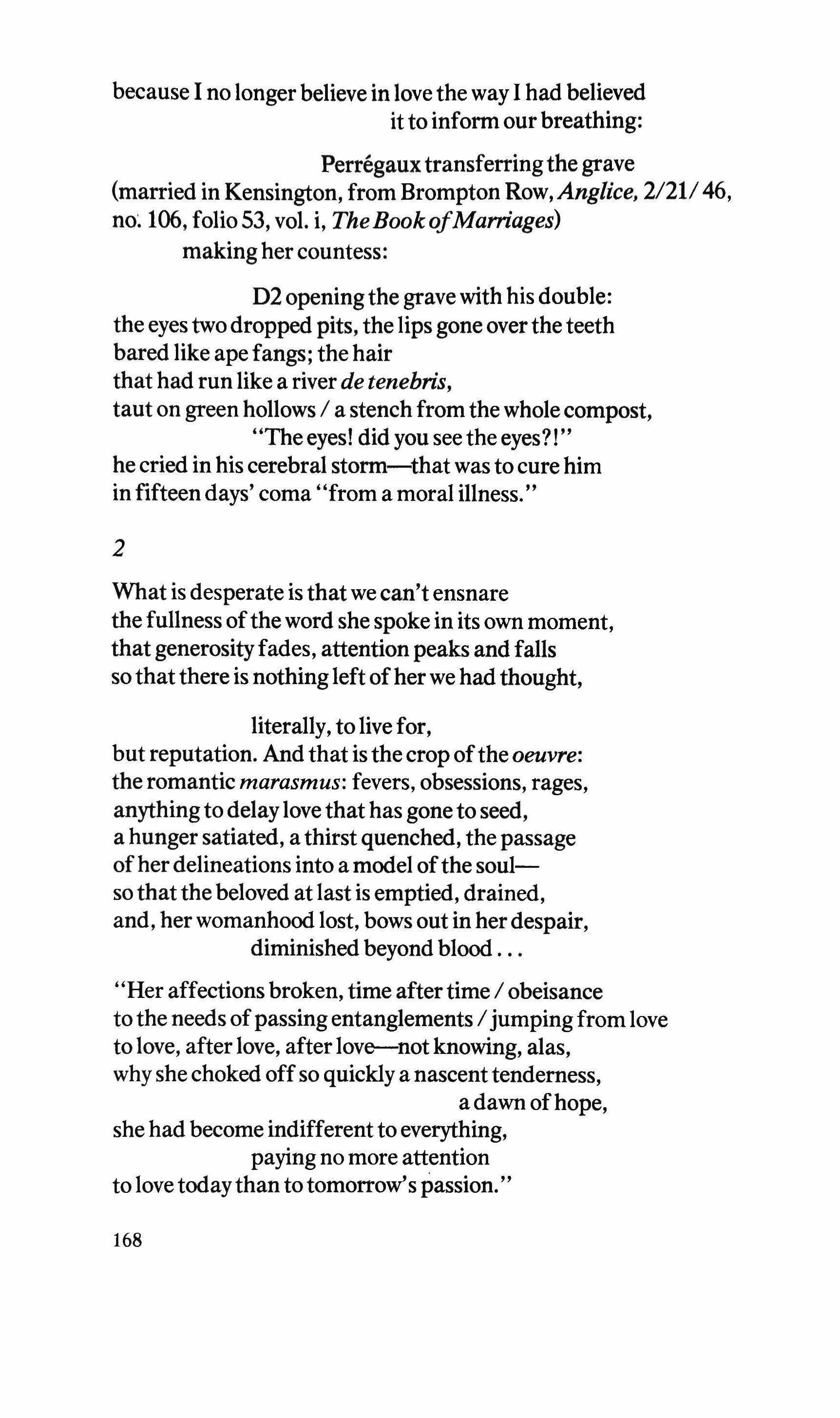
because I no longer believe in love the way I had believed it to inform our breathing:
Perregauxtransferringthe grave (married in Kensington, from Brompton Row,Anglice, 2/21/46, no; 106. folio 53, vol. i, TheBookofMarriages) making her countess:
D2 openingthe grave with his double: the eyes two dropped pits, the lips gone over the teeth bared like ape fangs; the hair that had run like a river de tenebris, taut on green hollows 1 a stench from the whole compost, "Theeyes! did you see the eyes?I" he cried in his cerebral storm-that was to cure him in fifteen days' coma''from a moral illness."
2
What is desperate is that we can't ensnare the fullness ofthe word she spoke in its own moment, that generosityfades, attention peaks and falls so thatthere is nothing left ofher we had thought, literally, to live for, but reputation. And that is thecrop ofthe oeuvre: the romantic marasmus: fevers, obsessions, rages, anything to delaylove that has gone to seed, a hunger satiated, a thirst quenched, the passage of her delineations into a model ofthe soulso thatthebeloved at last is emptied, drained, and, her womanhood lost, bows out in herdespair, diminished beyond blood
"Her affections broken, time aftertime 1 obeisance to the needs ofpassingentanglements 1jumpingfrom love to love, after love, afterlove-not knowing, alas, whyshechoked off so quickly a nascent tenderness, a dawn ofhope, she had become indifferent to everything, paying no more attention to lovetodaythan to tomorrow's passion."
168
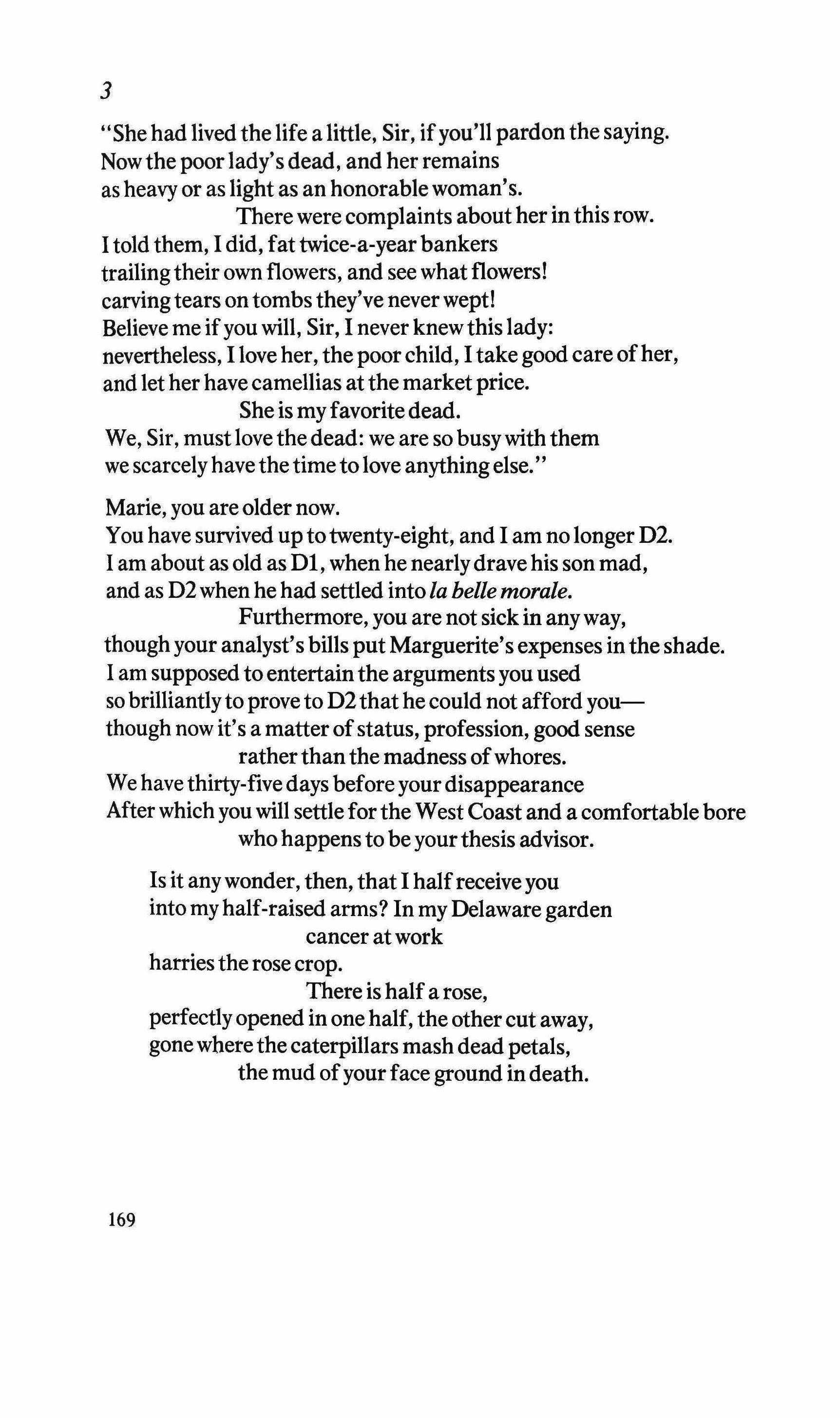
"She had lived the life a little, Sir, ifyou'll pardon the saying. Nowthe poorlady's dead, and her remains as heavy or as light as an honorablewoman's. There were complaints about her inthis row. I told them, I did, fat twice-a-yearbankers trailingtheir own flowers, and see what flowers! carving tears on tombs they've never wept!
Believe me ifyou will, Sir, I never knewthis lady: nevertheless, I love her, thepoor child, I take good care ofher, and let her have camellias at the market price. She is my favorite dead. We, Sir, must lovethedead: we are so busywith them we scarcelyhavethetime to love anythingelse."
Marie, you are older now.
You have survived up to twenty-eight, and I am no longer D2. I am about as old as Dl, when he nearlydrave his son mad, and as D2when he had settled intola bellemorale.
Furthermore, you are not sick in anyway, though your analyst's bills putMarguerite's expenses in the shade. I am supposed to entertainthe arguments you used so brilliantlyto prove to D2that hecould not afford youthough now it's a matter ofstatus, profession, good sense ratherthanthe madness ofwhores.
We havethirty-fivedays before your disappearance After which you will settleforthe West Coast and a comfortable bore whohappens to be yourthesis advisor.
Is it anywonder, then, that I halfreceive you into my half-raised arms? In my Delaware garden cancer atwork harriesthe rose crop.
There is half a rose, perfectlyopened in one half, the other cut away, gonewherethecaterpillars mash dead petals, the mud ofyour face ground indeath.
3
169
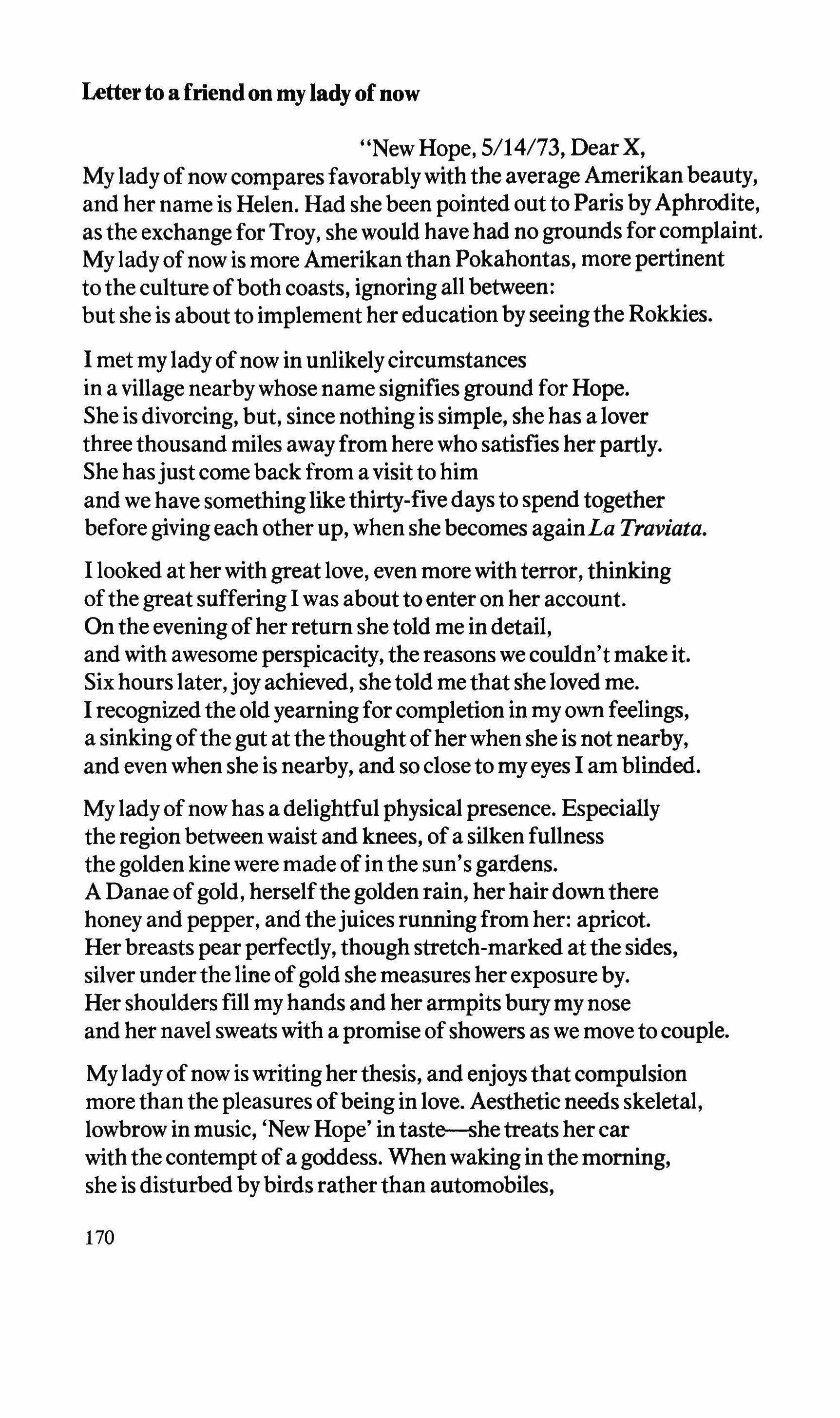
Letter to a friend on my lady of now
"New Hope, 5/14/73, Dear X,
Myladyof now compares favorablywith the average Amerikan beauty, and her name is Helen. Had she been pointed out to Paris byAphrodite, as the exchange for Troy, she would have had no grounds forcomplaint. Myladyof now is more Amerikan than Pokahontas, more pertinent to the culture ofboth coasts, ignoring all between: but she is about to implement her education byseeingthe Rokkies.
I met myladyof now in unlikelycircumstances in a villagenearbywhose name signifiesground for Hope. She is divorcing, but, since nothingis simple, she has a lover three thousand miles away from here who satisfies herpartly. She hasjust come back from a visit to him and we have somethinglike thirty-fivedays to spendtogether before giving each other up, when she becomes againLa Traviata.
I looked at herwith greatlove, even more withterror, thinking ofthe greatsuffering I was about to enter on her account. On the eveningofher return shetold me indetail, and with awesome perspicacity, the reasons we couldn't make it. Sixhours later,joyachieved, she told me that she loved me. I recognized the oldyearningfor completion in my own feelings, a sinkingofthe gut at thethought ofherwhen she is not nearby, and even when she is nearby, and so close to myeyes I am blinded.
Mylady of now has a delightfulphysical presence. Especially the region between waist and knees, of a silken fullness the golden kine were made ofinthe sun's gardens. A Danae ofgold, herselfthe goldenrain, her hairdown there honey and pepper, and thejuicesrunningfrom her: apricot. Her breasts pear perfectly,though stretch-marked atthe sides, silver undertheline ofgold she measures her exposure by. Her shoulders fill my hands and her armpitsburymy nose and her navel sweats with a promise ofshowers as we move to couple.
Myladyof now is writingherthesis, and enjoysthatcompulsion more than the pleasures ofbeing in love. Aesthetic needs skeletal, lowbrow in music, 'New Hope' intaste--she treats her car with the contempt of a goddess. Whenwaking inthe morning, she is disturbed bybirds ratherthan automobiles,
170
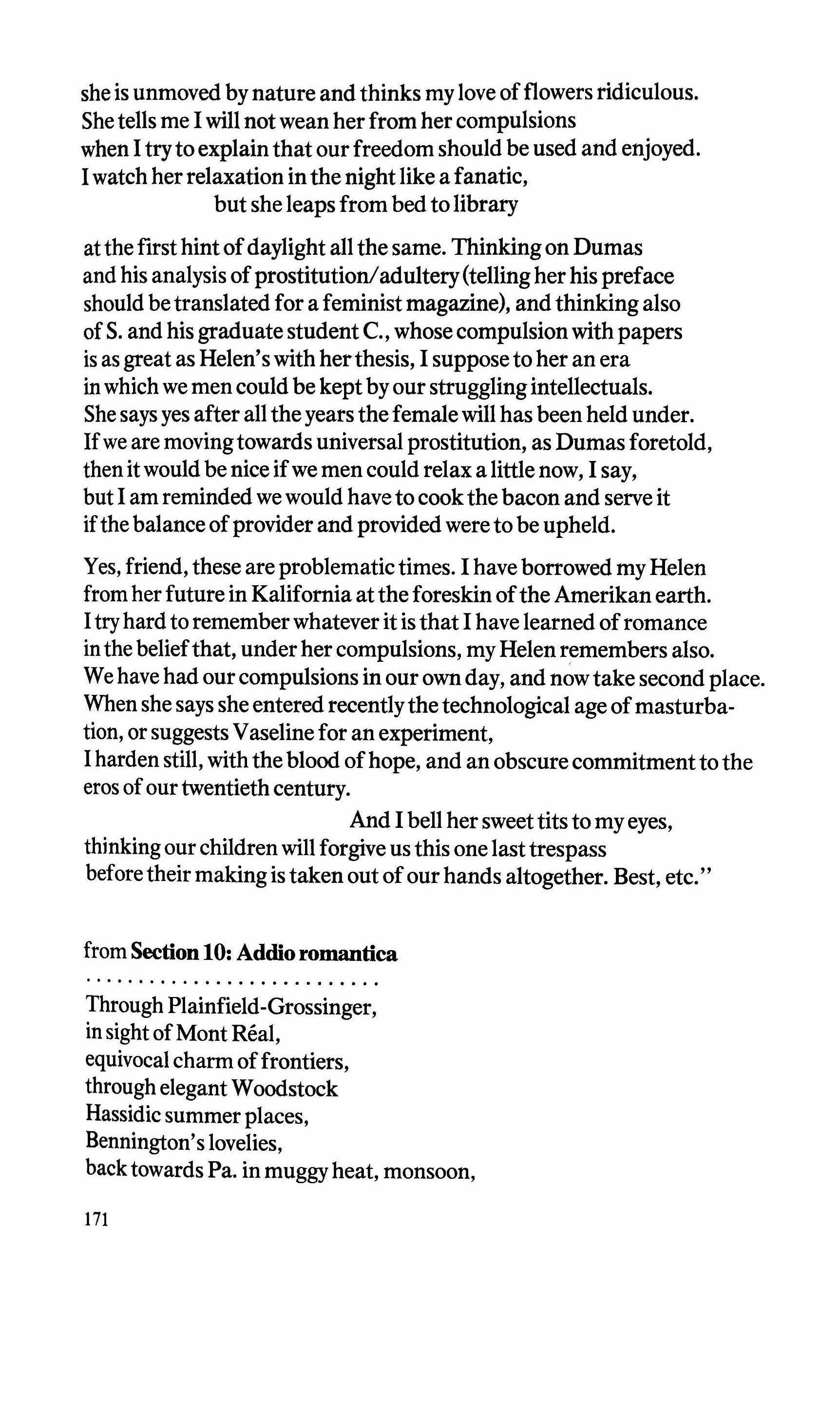
sheis unmoved by nature and thinks my love offlowers ridiculous. Shetells me I will not wean her from her compulsions when I tryto explain that our freedom should be used and enjoyed. I watch herrelaxation inthe night like a fanatic, but she leaps from bed to library at thefirsthintofdaylight all the same. Thinking on Dumas and his analysis ofprostitution!adultery(tellingher his preface should betranslated for a feminist magazine), andthinking also ofS. and his graduate student c., whosecompulsionwith papers is as great as Helen's with herthesis, I suppose to her an era in which we men could be keptby our struggling intellectuals. She says yes after all theyears thefemalewill has been held under. If we are movingtowards universal prostitution, as Dumas foretold, then itwouldbe nice if we men could relax a little now, I say, but I am reminded we would have to cookthebacon and serve it ifthebalanceofprovider and provided were to be upheld.
Yes, friend, these are problematictimes. I have borrowed my Helen from herfuture in Kalifornia at the foreskin ofthe Amerikan earth. I tryhard to remember whatever it isthat I have learned of romance inthe beliefthat, under her compulsions, my Helen remembers also. We have had our compulsions in our own day, and nowtake second place. When she says she entered recentlythetechnological age ofmasturbation, or suggests Vaselinefor an experiment, I harden still, with theblood ofhope, and an obscure commitmentto the eros of our twentieth century.
And I bell her sweet tits to myeyes, thinking our children will forgive us this one lasttrespass before their making is taken out of our hands altogether. Best, etc."
from Section 10: Addio romantica
ThroughPlainfield-Grossinger, insight ofMont Real, equivocal charm offrontiers, throughelegantWoodstock Hassidic summer places, Bennington's lovelies, backtowards Pa. in muggy heat, monsoon, 171
to the raped bodyof Nouvel Espoir, warped furniture, mice in the files, and spider's sweat,
SingingGuiseppe still, his Violetta, not one magnificopaid for her portrait to leave her smile behind in elegyseven drawers in her nighttable, one lover to each day ofthe week (de Villemessant), siren ofsouls: not one / not back alive (Gautier), and "Dame aux Camelias, mysterede notre epoque," conceived byswallowing a pearl Her habits pall upon him like a shroud, o Europe, weary catacomb of so much hope!
"II est difficile de nepas voir ce que chercheIeXIXeme:
UNE SOIF CROISSANTE D'EMOTIONS FORTES est son vraicaractere," Stendhal, 1817, Frenchman.
Walking all night, insomniac, head in a huge kashmir (red), her body lost inthe tent of a white gown ("the Holy Land to the Promised Land"), burned all herletters exceptthirty(Romain Vienne): those lost in San Francisco earthquake when Sarah Bernhardt broughtLaDameto Atlantis -check dates and detailssombre / elegiac/attachments(e.g. Franz Liszt) lost without trace inthebiography:
She goes, laRomantica, from dead eye-level, she goes, la Gnostica, from between Scylla and Charybdis, she rises, la Esoterica, from the Sinai peakshe is taken with cold in her bones, withhis poems in her eye sockets, decomposed, running, shredded by mice in files, slimed byspider feet in boxes, decomposedbyfungus at theedges offlesh, she has passed into his soul so completely that mortal woman is diminished beyond blood.
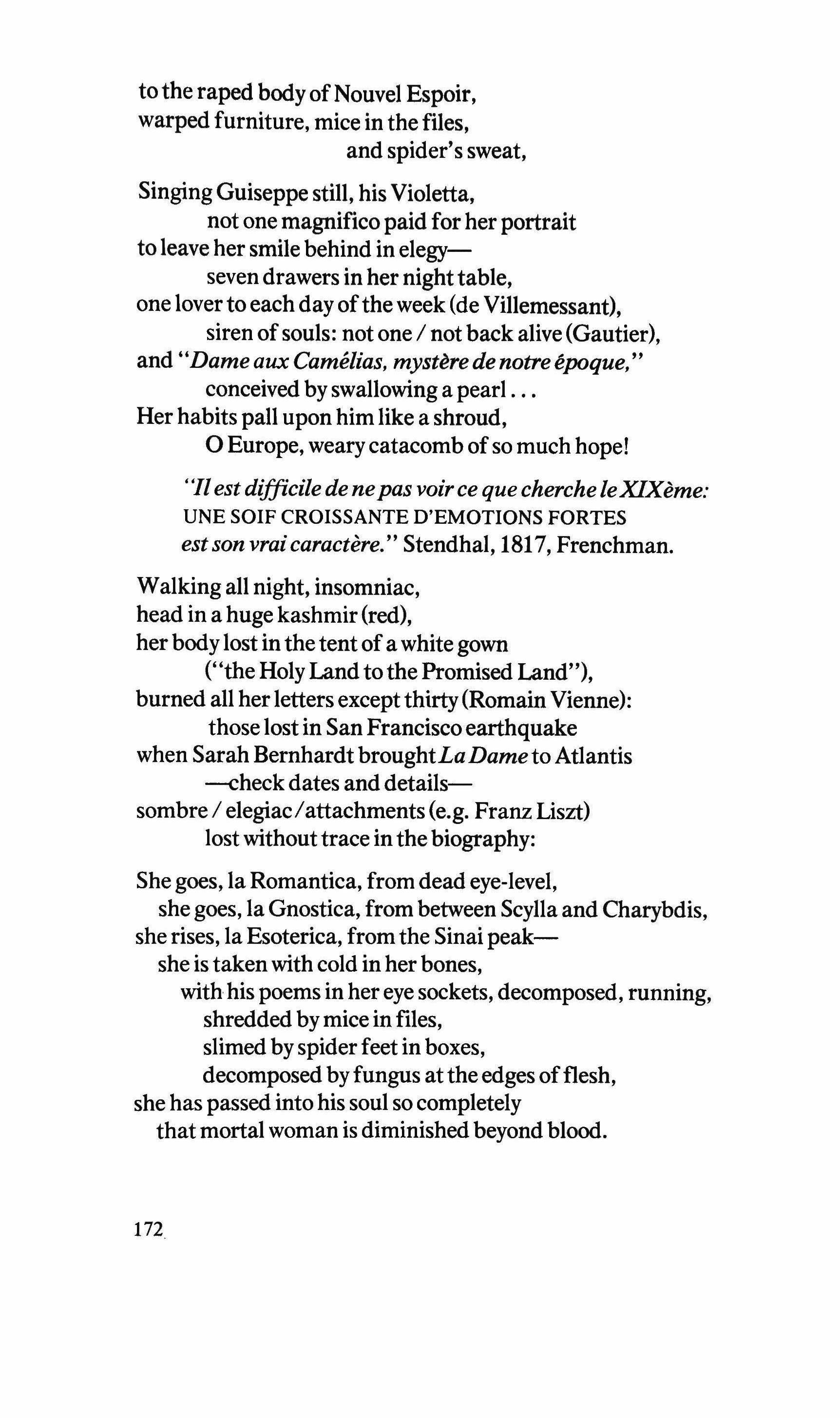
172
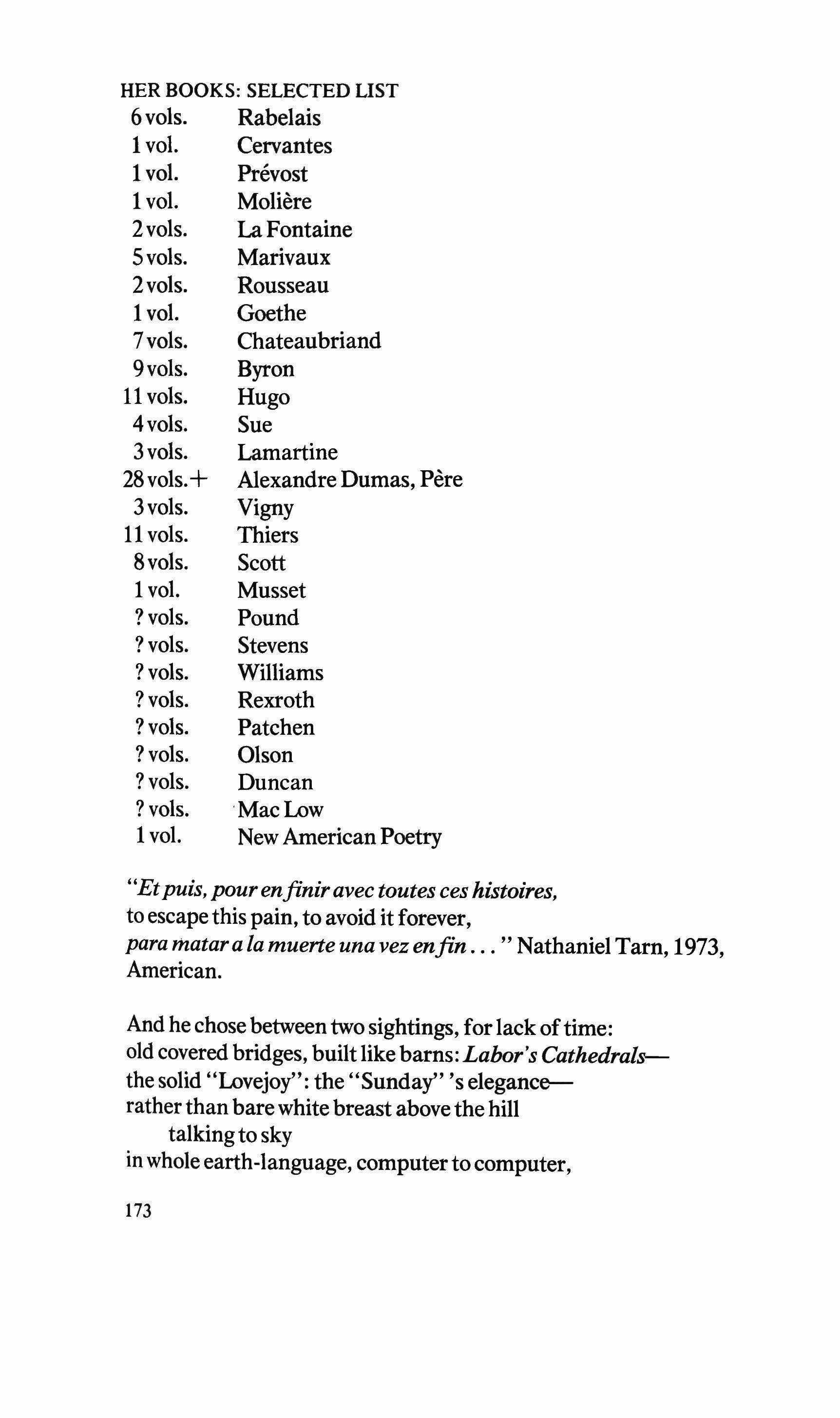
HER BOOKS: SELECTED LIST
6vols. Rabelais
1 vol. Cervantes
1 vol. Prevost
1 vol. Moliere
2vols. LaFontaine
Svols. Marivaux
2vols. Rousseau
1 vol. Goethe
7vols. Chateaubriand
9vols. Byron
11 vols. Hugo
4vols. Sue
3vols. Lamartine
28vols.+ Alexandre Dumas, Pere
3vols. Vigny
11 vols. Thiers
8vols. Scott
1 vol. Musset
? vols. Pound
? vols. Stevens
? vols. Williams
? vols. Rexroth
? vols. Patchen
? vols. Olson
? vols. Duncan
? vols. Mac Low
1 vol. New American Poetry
"Etpuis, pourenfinir avec toutes ces histoires, to escapethis pain, to avoid it forever, para matarala muerte una vez enfin " Nathaniel Tarn, 1973, American.
And he chose between two sightings, for lack of time: old covered bridges, built like barns: Labor's Cathedralsthe solid "Lovejoy": the "Sunday" 's elegancerather than barewhitebreast above the hill talking to sky in whole earth-language, computer to computer,
173
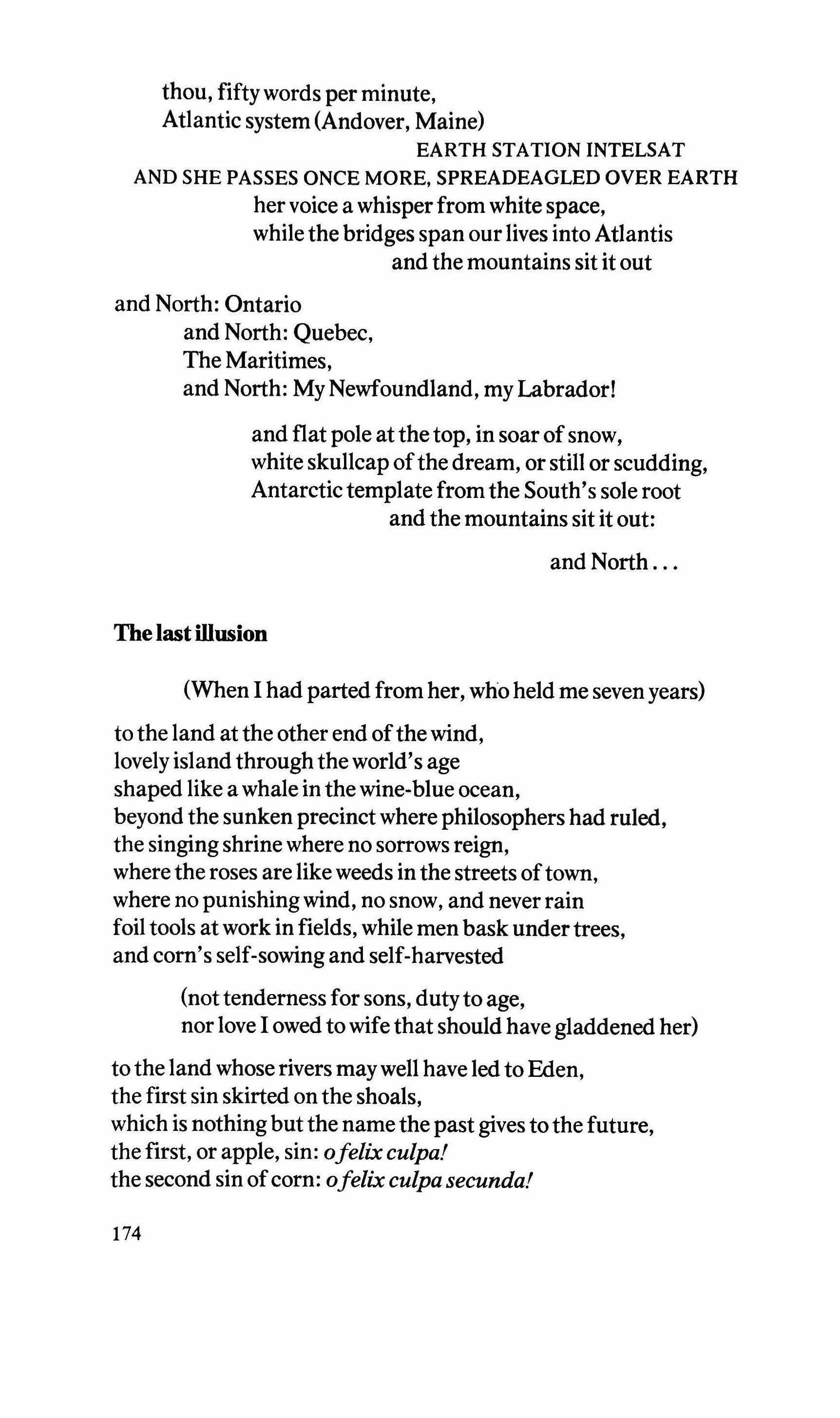
thou, fiftywords per minute, Atlantic system (Andover, Maine)
EARTH STATION INTELSAT AND SHE PASSES ONCE MORE, SPREADEAGLED OVER EARTH her voice a whisper from white space, while the bridges span our lives into Atlantis and the mountains sit it out and North: Ontario and North: Quebec, The Maritimes, and North: My Newfoundland, my Labrador! and flat pole at thetop, in soar of snow, white skullcap ofthe dream, or still or scudding, Antarctictemplate from the South's sole root and the mountains sit it out: and North
The last illusion
(When I had parted from her, who held me seven years) to the land at the other end ofthewind, lovelyisland through theworld's age shaped like a whale in the wine-blue ocean, beyond the sunken precinct where philosophers had ruled, the singing shrine where no sorrows reign, where the roses are like weeds in the streets oftown, where no punishingwind, no snow, and never rain foil tools at work in fields, while men bask undertrees, and corn's self-sowing and self-harvested
(not tenderness for sons, dutyto age, nor love lowed to wife that should have gladdened her) to the land whose rivers maywell have led to Eden, the first sin skirted on the shoals, which is nothing but the name the past gives to the future, the first, or apple, sin: 0felixculpa! the second sin of corn: 0felixculpasecunda!
174
sailingforwisdomwith compass and canvas beyond theborders ofthe inhabited world to a place where there is a denudation ofpeople, where the birds talk like scholars in many languages
(my men being slowand old when we came tothatgate chose to denytheworld inthe sun'strack and with our stern turned towards morning )
butthe island was peopled with playful children believingpaper spoke and askingbeads fromthe sky, begging for colors fromthe skyintradefor corn, that were too cheap inthe salons ofturquoiseand we were those whohad come from underthe world totaketheir own world fromthem.
QuicquidpraeterAfricam, etEuropam est, Asia est: Was this Cathay?-these were not wise enough to be souled
And it came to me in a dream, when I was grappled bythem, that I was broughtbefore a splendor offeathers and ordered to lay my head down on a stone, butthe child came from beside him and took my head inher arms askingmy life. Whereat, she was givenit, and I made a son to the King. Beinglatertold this was a simile of entrance into kingship, no genuinedangerbuttook it out a little on myreadingpublic
and alsothat the land at theother end ofthe wind was full ofnubile beauties who sang and danced for men, afterwhich theytook us intotheir house and everyone wanted me, crying''Love me, love me," so thatit seemed I could not have endured so many loves / but this was not prostitution as it turned out, nor even freelove, nor thebeginningofcommune, butmerelytheoffering of a companion, for a luxury at night.
2

She had arguedthat shewould giveup herwealth and follow me that was now the one man on earth she could abide. As she said this, her black hair glistened as ifmoistwith mist, or itcould havebeen tears from her native sky. She confessed she had been
175
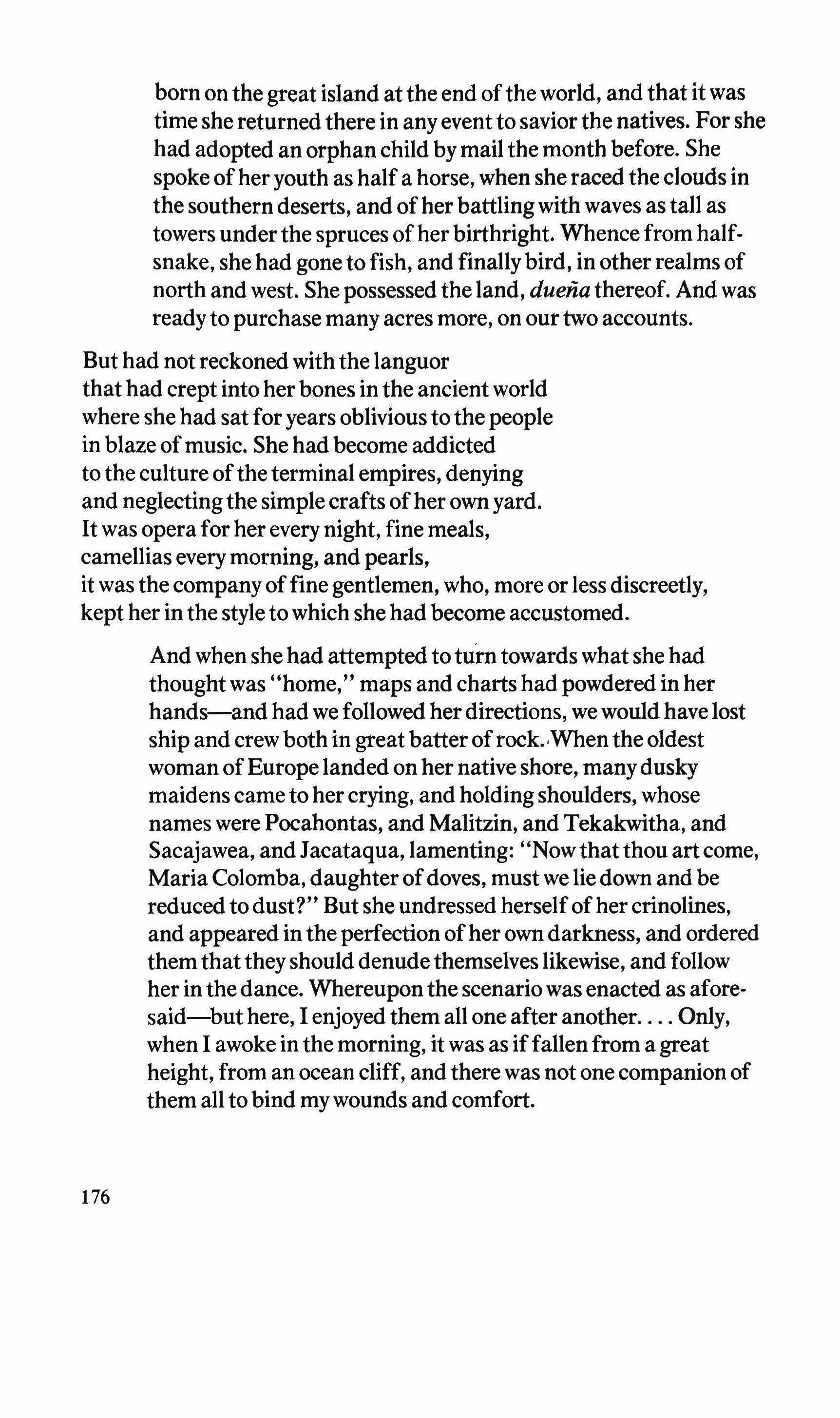
born on the great island at the end ofthe world, and that it was time she returned there in any event to savior the natives. For she had adopted an orphan child by mail the month before. She spoke of heryouth as half a horse, when she raced the clouds in the southern deserts, and ofher battlingwith waves as tall as towers underthe spruces ofherbirthright. Whence from halfsnake, she had gone to fish, and finallybird, in other realms of north and west. She possessed the land, dueiia thereof. And was readyto purchase many acres more, on our two accounts.
But had not reckoned with the languor that had crept into herbones in the ancient world where she had sat for years oblivious to the people in blaze ofmusic. She had become addicted to the culture ofthe terminal empires, denying and neglectingthe simple crafts ofher own yard. It was opera for her every night, fine meals, camellias every morning, and pearls, it was the company offine gentlemen, who, more or less discreetly, kept her inthe style to which she had become accustomed.
And when she had attempted to tum towards what she had thought was "home," maps and charts had powdered in her hands-and had we followed herdirections, we would have lost ship and crew both in great batter ofrock..When the oldest woman ofEurope landed on her native shore, many dusky maidens came to her crying, and holding shoulders, whose names were Pocahontas, and Malitzin, and Tekakwitha, and Sacajawea, and Jacataqua, lamenting: "Nowthatthou art come, Maria Colomba, daughter ofdoves, must we liedown and be reduced to dust?" But she undressed herselfof her crinolines, and appeared inthe perfection ofher own darkness, and ordered themthattheyshould denudethemselves likewise, and follow her inthedance. Whereuponthe scenario was enacted as aforesaid-buthere, I enjoyed them all one after another Only, when I awoke in the morning, it was as iffallen from a great height, from an ocean cliff, and there was not one companion of them all to bind mywounds and comfort.
176

And I am become as a land ofghosts as a tree full ofbird-songbut no birds wherethemistclings to branches like cotton and thewind singsmourning
From the other side, it was as ifwe had been callingforthis, as iftheweight of our need was such that ithad magnetized the seas, and called a greatpole to ourselves up from the place where the sun sets, and which we had named: the western gate. and had placed all our dreamsthere, inwho knows what hands and as ifall the singers had assembled on the shores ofthe old land, standingbefore theflattened doors and tables at the edge ofthe cliffsthathad seemed to be made as springboards forthe greatpassage, and with but a short elegy forthosethey were to leavebehind-who had lostthe sense ofhearing-theyall, with a common accord in history, leapt intothewestering sea, and were carried byfish or whale or albatross to the furthestedges of ocean there, withdarker women thanthemselves, to make new races but, havingcarried choice gifts to the king oftheland, who, though he did not at firstcondescend to like them, became at last so enamored ofpossessions that he turned all the energies ofhis people to theirfabrication, and made slaves ofthem until they alsowanted nothingbutthese goods, and, at last, thewholeland havingbeen delivered intothehands ofthosewhose chiefbusiness it was to make, advertise, barter and sell these goods, at whatever price, at whatever sacrifice and whatever beastliness in the reduction of men to animals ofburden, who were no longer THE PEOPLE:
so that the ghosts at last, even they, had losttheirtongues then it seemed indeed that we HAD come from undertheworld to taketheir own world from them
3
177
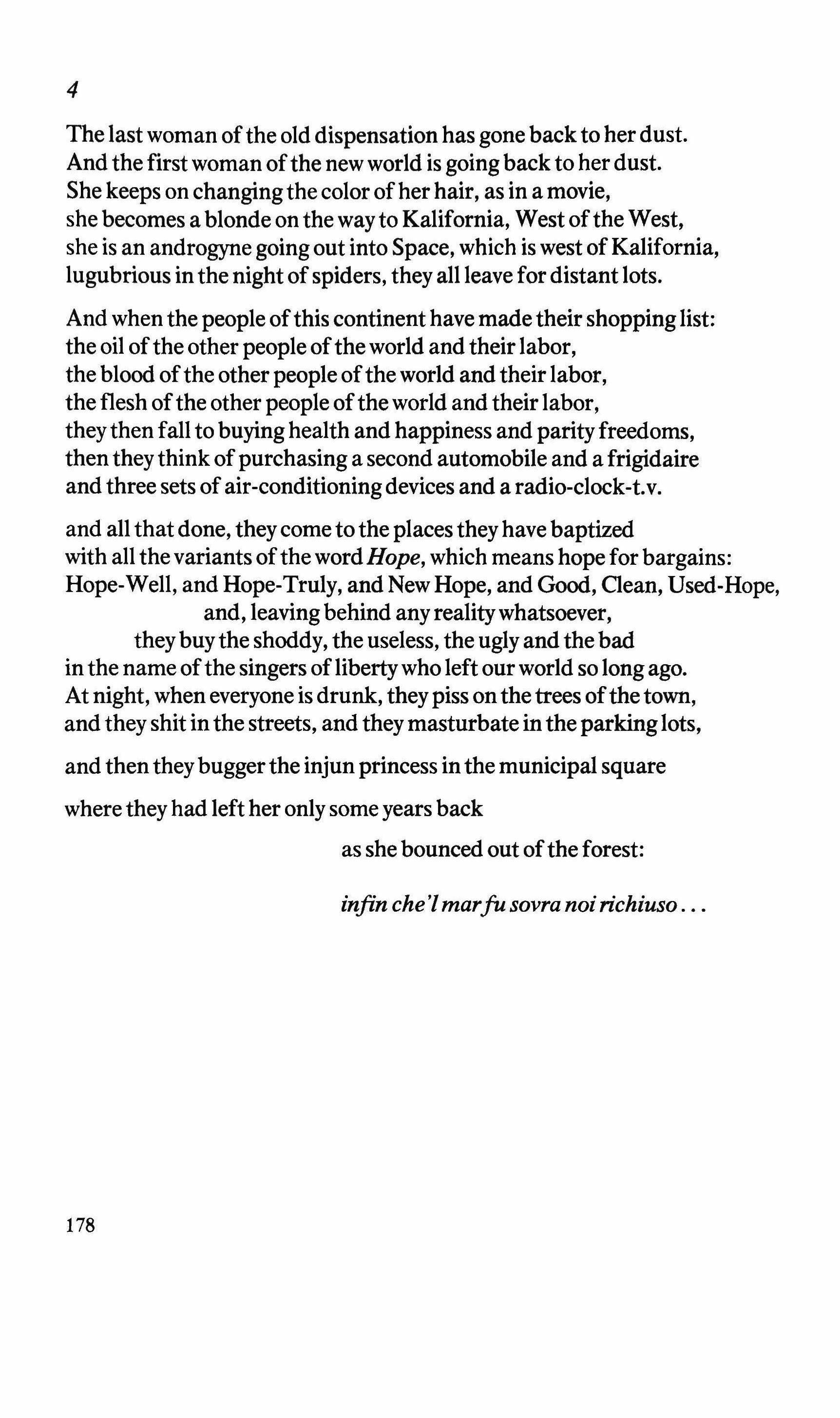
The last woman ofthe old dispensation has gone back to her dust. And the first woman ofthe new world is goingback to her dust. She keeps on changingthe color ofherhair, as in a movie, she becomes a blonde on the wayto Kalifornia, West ofthe West, she is an androgynegoing out into Space, which is west ofKalifornia, lugubrious inthe night of spiders, they all leave for distant lots.
And when the people ofthis continent havemade their shoppinglist: the oil ofthe other people oftheworld and their labor, the blood ofthe other people oftheworld and their labor, the flesh ofthe other people oftheworld and theirlabor, theythen fall to buyinghealth and happiness and parityfreedoms, thentheythink ofpurchasing a second automobile and a frigidaire and three sets ofair-conditioningdevices and a radio-clock-t.v.
and all that done, they come to the placestheyhave baptized with all thevariants ofthewordHope, which means hope for bargains: Hope-Well, and Hope-Truly, and New Hope, and Good, Clean, Used-Hope, and, leavingbehind any realitywhatsoever, theybuythe shoddy, the useless, the ugly and thebad inthe name ofthe singers oflibertywho left our world so long ago. Atnight, when everyone is drunk, theypiss on the trees ofthetown, and they shit inthe streets, and theymasturbate intheparkinglots, and thentheybuggerthe injunprincess inthe municipal square wheretheyhad left her only some years back as she bounced out ofthe forest:
4
178
infin eke'[ marfu sovra noirichiuso
Joyce, Beckett, and the postmodem imagination
IhabHassan
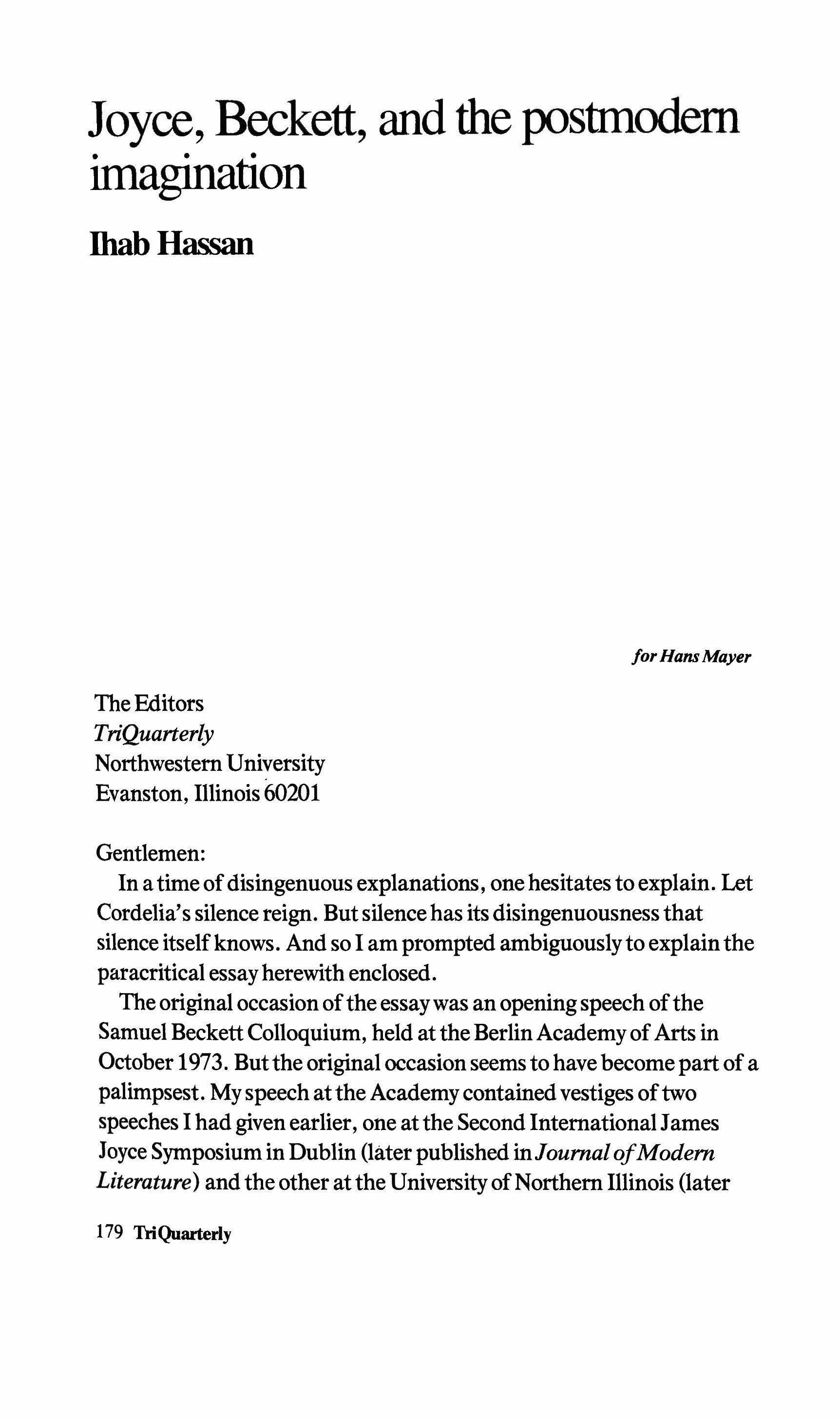 forHansMayer
forHansMayer
The Editors
TriQuarterly
NorthwesternUniversity Evanston, Illinois 60201
Gentlemen:
In a time ofdisingenuousexplanations, one hesitates to explain. Let Cordelia's silence reign. Butsilencehas its disingenuousness that silence itselfknows. And so I am promptedambiguouslyto explainthe paracritical essayherewith enclosed.
Theoriginal occasion ofthe essay was an openingspeech ofthe Samuel Beckett Colloquium, held at theBerlin AcademyofArts in October 1973. Butthe original occasion seems to havebecomepart of a palimpsest. Myspeech atthe Academycontained vestiges oftwo speeches I had givenearlier, one at the Second International James JoyceSymposium in Dublin (laterpublished inJournalofModem Literature) and the other attheUniversityofNorthern Illinois (later 179 TriQuarterly
published in Boundary2). Furthermore, when I sat down to revise my speech, for inclusion in a book edited by Hans Mayer and Uwe Johnson, I realized that several events had intervened between the writing and rewritingofit. I had, for instance, experienced the Colloquium itself, heard its various papers and participated in its discussions. I had read some ofthe reviews ofthe Colloquium which appeared in German and Austrian newspapers. And I had delivered another speech at the Modem Language Association in Chicago. It occurred to me that the concept ofthe theater as a room with a fourth wall mysteriouslymissing is no longer inviolate. Why, then, should an essay preserve the illusions ofanother day?
Hencethe presentparacritical essay, a palimpsest oftimes, places, voices:
TIME PLACE
OCCASION
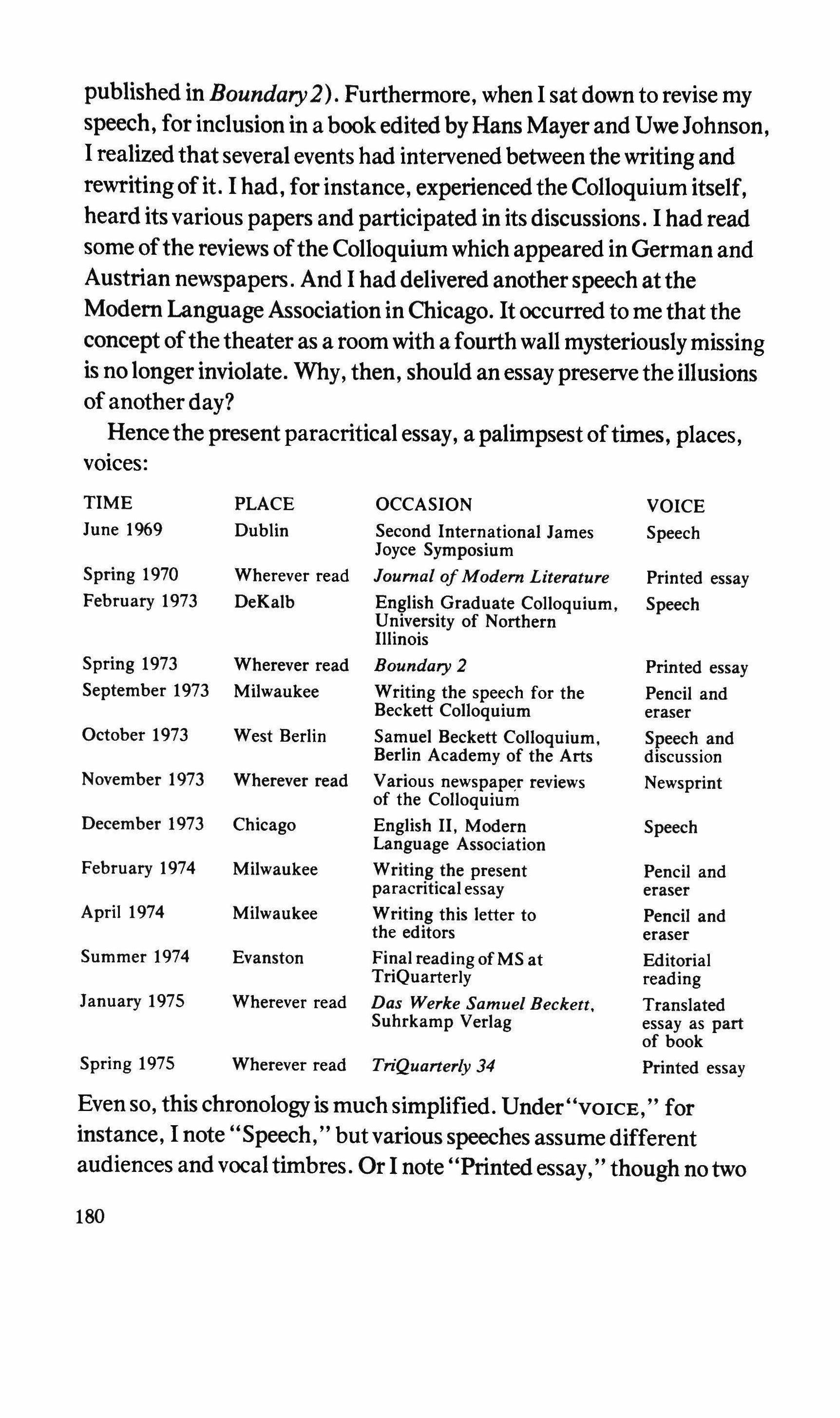
VOICE
June 1969 Dublin Second International James Speech Joyce Symposium
Spring 1970 Wherever read Journal ofModern Literature Printed essay
February 1973 DeKalb English Graduate Colloquium. Speech University of Northern Illinois
Spring 1973 Wherever read Boundary 2 Printed essay
September 1973 Milwaukee
Writing the speech for the Pencil and Beckett Colloquium eraser
October 1973 West Berlin Samuel Beckett Colloquium. Speech and Berlin Academy of the Arts discussion
November 1973 Wherever read Various newspaper reviews Newsprint of the Colloquium
December 1973 Chicago English II. Modern Speech Language Association
February 1974 Milwaukee
Writing the present Pencil and paracritical essay eraser
April 1974 Milwaukee Writing this letter to Pencil and the editors eraser
Summer 1974 Evanston Final reading of MS at Editorial TriQuarterly reading
January 1975 Wherever read Das Werke Samuel Beckett. Translated Suhrkamp Verlag essay as part of book
Spring 1975 Wherever read TriQuarterly 34 Printed essay
Even so, this chronologyis much simplified. Under"VOICE, " for instance, I note "Speech," butvarious speeches assume different audiences and vocal timbres. Or I note "Printedessay," though no two
180
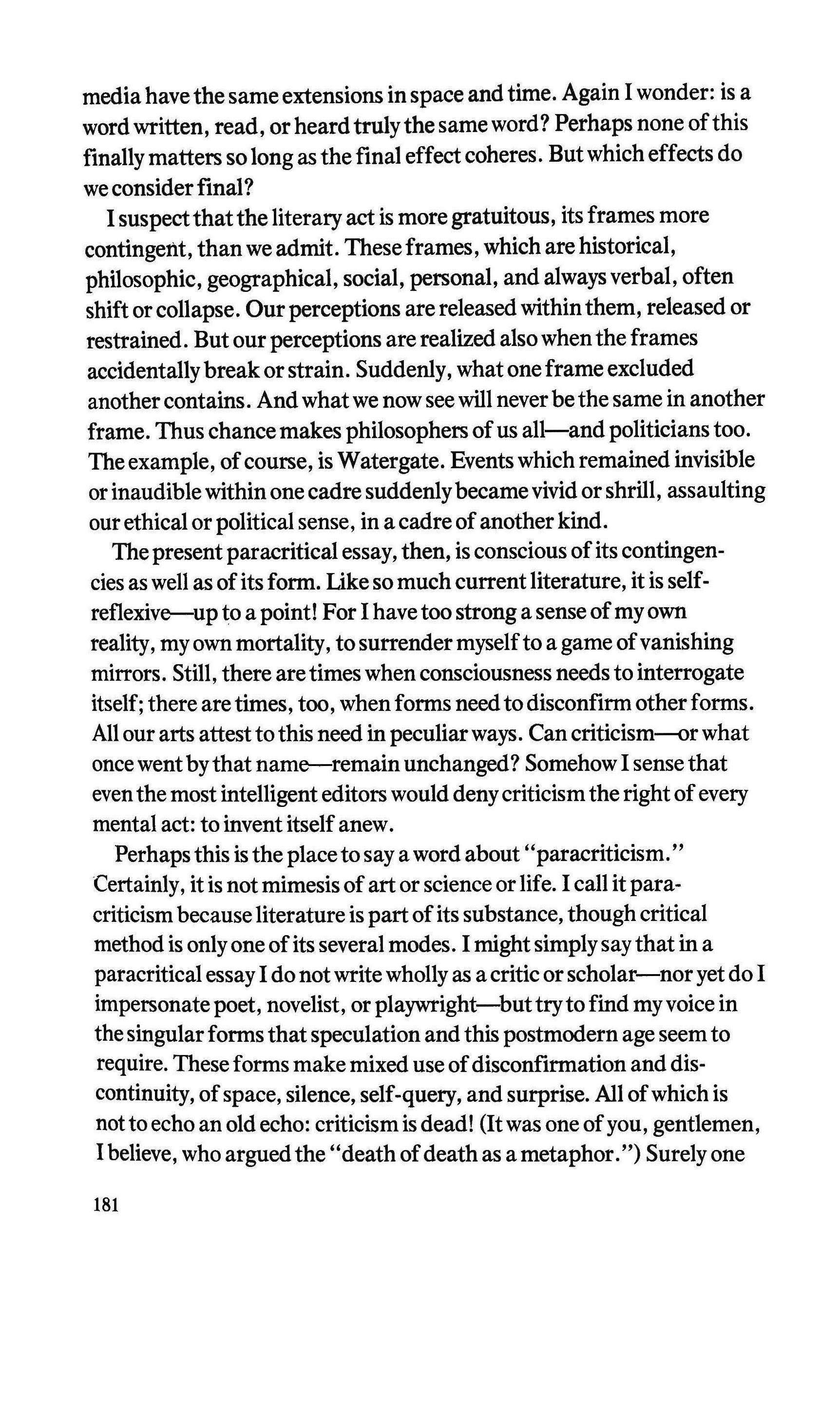
media have the same extensions in space and time. Again I wonder: is a word written, read, or heard trulythe same word? Perhaps none ofthis finally matters so long as the final effect coheres. Butwhich effects do we considerfinal?
I suspectthattheliterary act is more gratuitous, itsframes more contingent, than we admit. Theseframes, which are historical, philosophic, geographical, social, personal, and alwaysverbal, often shift or collapse. Our perceptions are released withinthem, released or restrained. But our perceptions are realized alsowhenthe frames accidentallybreak or strain. Suddenly, what one frame excluded anothercontains. And what we now see will never bethe same in another frame. Thus chancemakes philosophers of us all-and politicians too. Theexample, ofcourse, is Watergate. Events which remained invisible or inaudiblewithin one cadre suddenlybecamevivid or shrill, assaulting our ethical or political sense, in a cadre ofanotherkind. Thepresentparacritical essay, then, is conscious ofits contingencies as well as ofits form. Like so much current literature, it is selfreflexive--up to a point! For I have too strong a sense ofmy own reality, my own mortality, to surrendermyselfto a game ofvanishing mirrors. Still, there are times when consciousness needs to interrogate itself; there are times, too, whenforms needtodisconfirm otherforms. All our arts attest to this need in peculiarways. Can criticism--orwhat once wentbythat name--remain unchanged? Somehow I sense that even the most intelligent editors would denycriticismthe right ofevery mental act: to invent itself anew.
Perhaps this is the place to say a word about "paracriticism." Certainly, it is not mimesis of art or science or life. I call it paracriticism because literature is partofits substance, though critical method is only one ofits several modes. I mightsimplysay that in a paracritical essay I do not writewholly as a critic or scholar-noryet do I impersonatepoet, novelist, or playwright-buttryto find myvoice in the singularforms that speculation and this postmodern age seem to require. These forms make mixed use ofdisconfirmation and discontinuity, ofspace, silence, self-query, and surprise. All ofwhich is not to echo an old echo: criticism is dead! (It was one ofyou, gentlemen, I believe, who arguedthe"death ofdeath as a metaphor.") Surely one
181
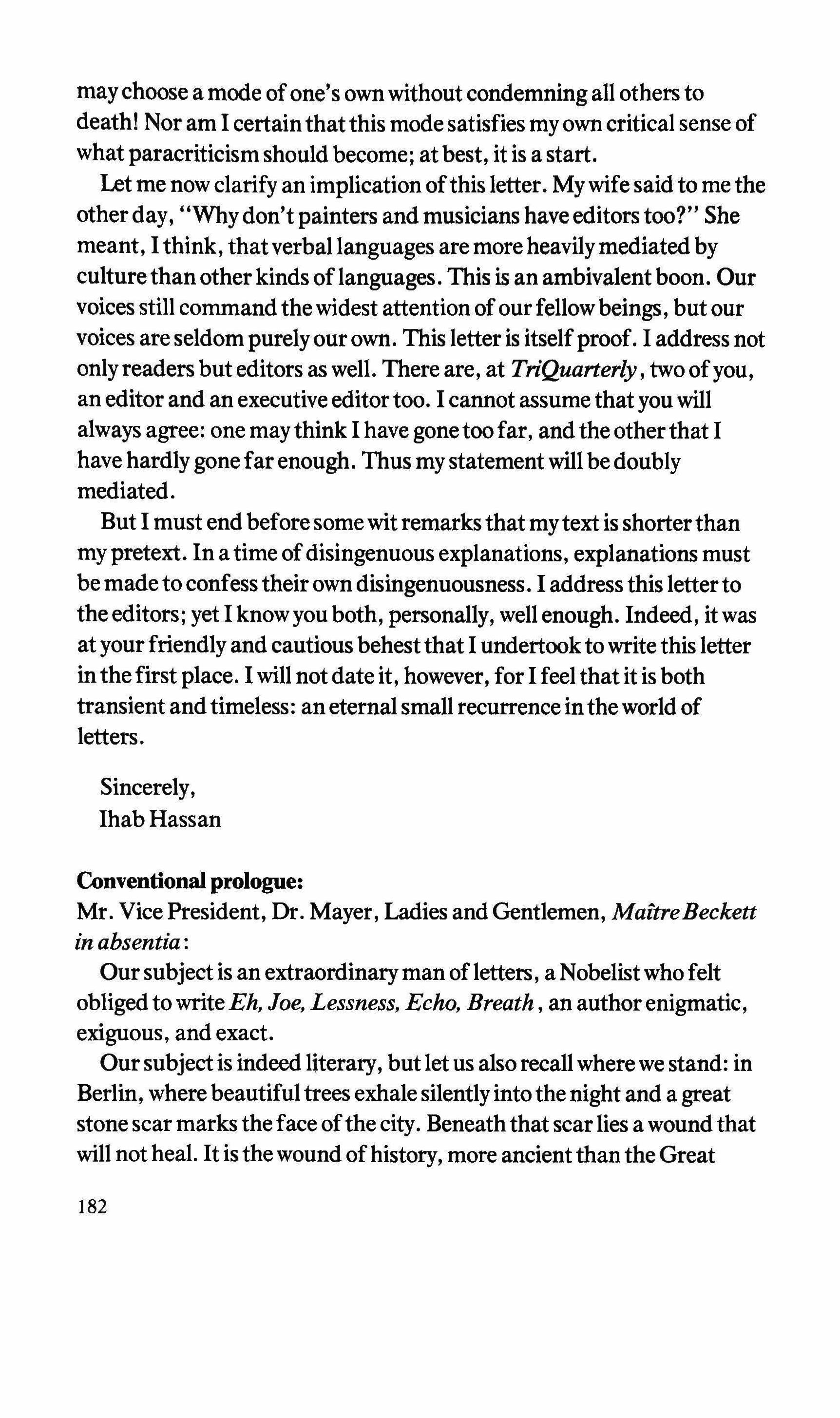
maychoose a mode ofone's own without condemning all others to death! Nor am I certainthatthis mode satisfies my own critical sense of what paracriticismshould become; at best, it is a start.
Let me now clarify an implication ofthis letter. Mywife said to me the otherday, "Why don't painters and musicians haveeditors too?" She meant, I think, thatverbal languages are more heavilymediated by culture than other kinds oflanguages. This is an ambivalent boon. Our voices still command thewidest attention of our fellowbeings, but our voices are seldom purely our own. This letter is itselfproof. I address not onlyreaders buteditors as well. There are, at TriQuarterly, two ofyou, an editor and an executive editor too. I cannot assume that you will always agree: one maythink I have gonetoo far, and the otherthat I have hardly gonefar enough. Thus my statement will be doubly mediated.
But I must end before some witremarksthat mytext is shorterthan my pretext. In a time ofdisingenuousexplanations, explanations must bemade to confess their own disingenuousness. I address this letterto theeditors; yet I knowyouboth, personally, well enough. Indeed, it was at yourfriendly and cautiousbehestthat I undertookto write this letter inthefirst place. I will not date it, however, for I feel thatit is both transient andtimeless: an eternal small recurrence inthe world of letters.
Sincerely,
IhabHassan
Conventionalprologue:
Mr. Vice President, Dr. Mayer, Ladies and Gentlemen, MaitreBeckett in absentia:
Our subject is an extraordinary man ofletters, a Nobelistwho felt obliged to writeEh, Joe, Lessness, Echo, Breath, an author enigmatic, exiguous, and exact.
Our subjectis indeed literary, butlet us also recall where we stand: in Berlin, wherebeautiful trees exhale silentlyinto the night and a great stone scar marks theface ofthe city. Beneaththat scar lies a woundthat will not heal. It isthewound ofhistory, more ancientthan the Great
182
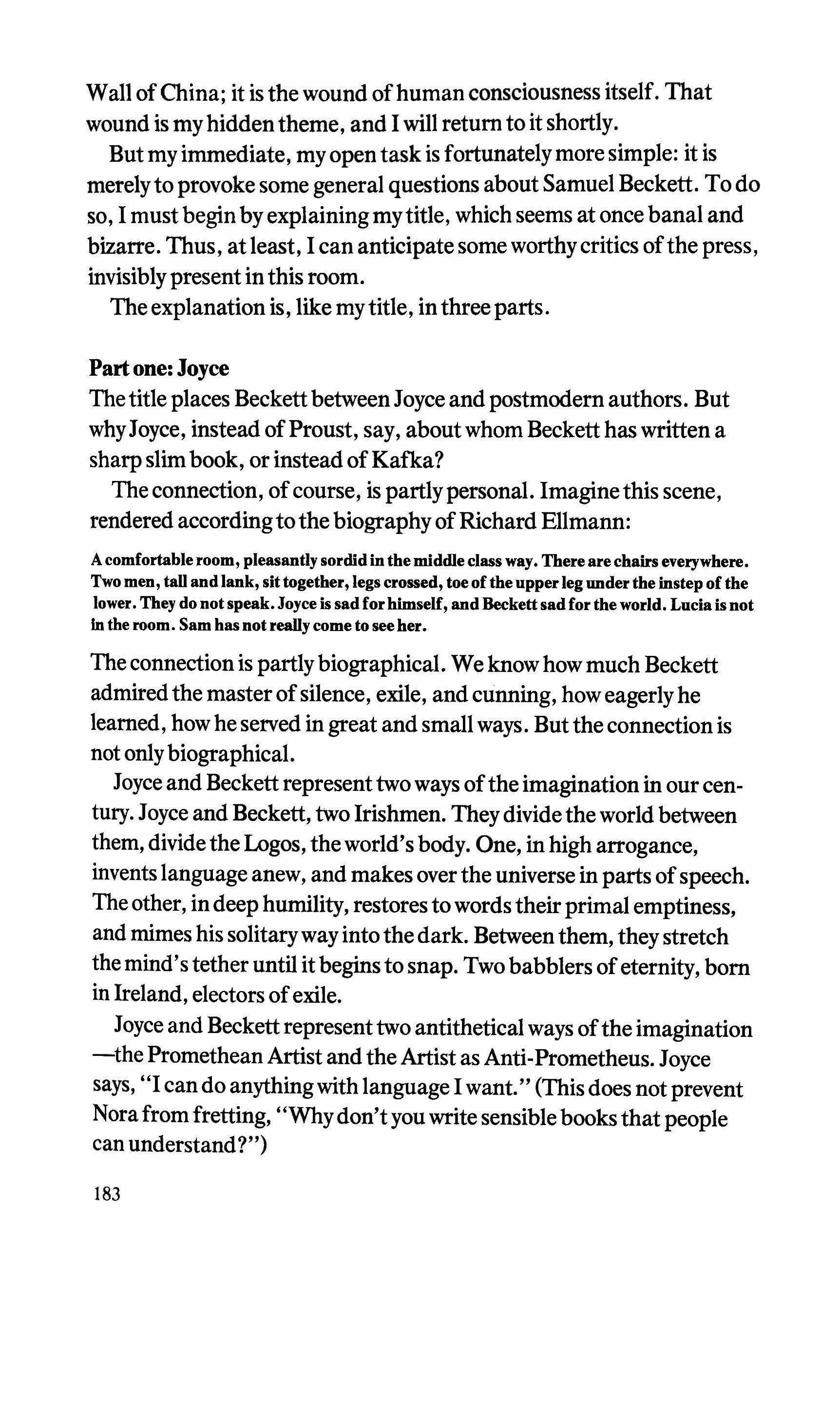
Wall of China; it is the wound ofhuman consciousness itself. That wound is myhiddentheme, and I will return to it shortly.
Butmy immediate, my open task is fortunately more simple: it is merely to provoke some general questions about Samuel Beckett. To do so, I must beginbyexplainingmytitle, which seems at once banal and bizarre. Thus, at least, I can anticipate some worthycritics ofthe press, invisiblypresent inthis room.
The explanation is, like my title, inthreeparts.
Part one: Joyce
Thetitle places BeckettbetweenJoyce and postmodern authors. But whyJoyce, instead ofProust, say, about whom Beckett has written a sharp slim book, or instead ofKafka?
The connection, ofcourse, is partlypersonal. Imaginethis scene, rendered accordingtothe biography ofRichard EHmann:
A comfortable room, pleasantly sordid in the middle class way. There are chairs everywhere. Two men, taU and lank, sit together, legs crossed, toe of the upper leg under the instep of the lower. They do not speak.Joyce is sad forhimself, and Beckett sad for the world. Lucia is not In the room. Sam has not reaDy come to see her.
The connection is partlybiographical. Weknowhowmuch Beckett admiredthe master ofsilence, exile, and cunning, how eagerly he learned, howheserved in great and small ways. Butthe connection is not onlybiographical.
Joyce and Beckett representtwo ways ofthe imagination in our century. Joyce and Beckett, two Irishmen. Theydivide theworld between them, divide the Logos, theworld's body. One, in high arrogance, invents language anew, and makes over the universe in parts ofspeech. Theother, in deephumility, restores to words theirprimalemptiness, and mimes his solitaryway intothedark. Between them, they stretch the mind's tether until it begins to snap. Two babblers ofeternity, born in Ireland, electors ofexile.
Joyce and Beckett represent two antithetical ways ofthe imagination -the Promethean Artist and the Artist as Anti-Prometheus. Joyce says, "I can do anythingwith language I want." (This does not prevent Norafromfretting, "Whydon't you write sensiblebooks thatpeople can understand?")
183
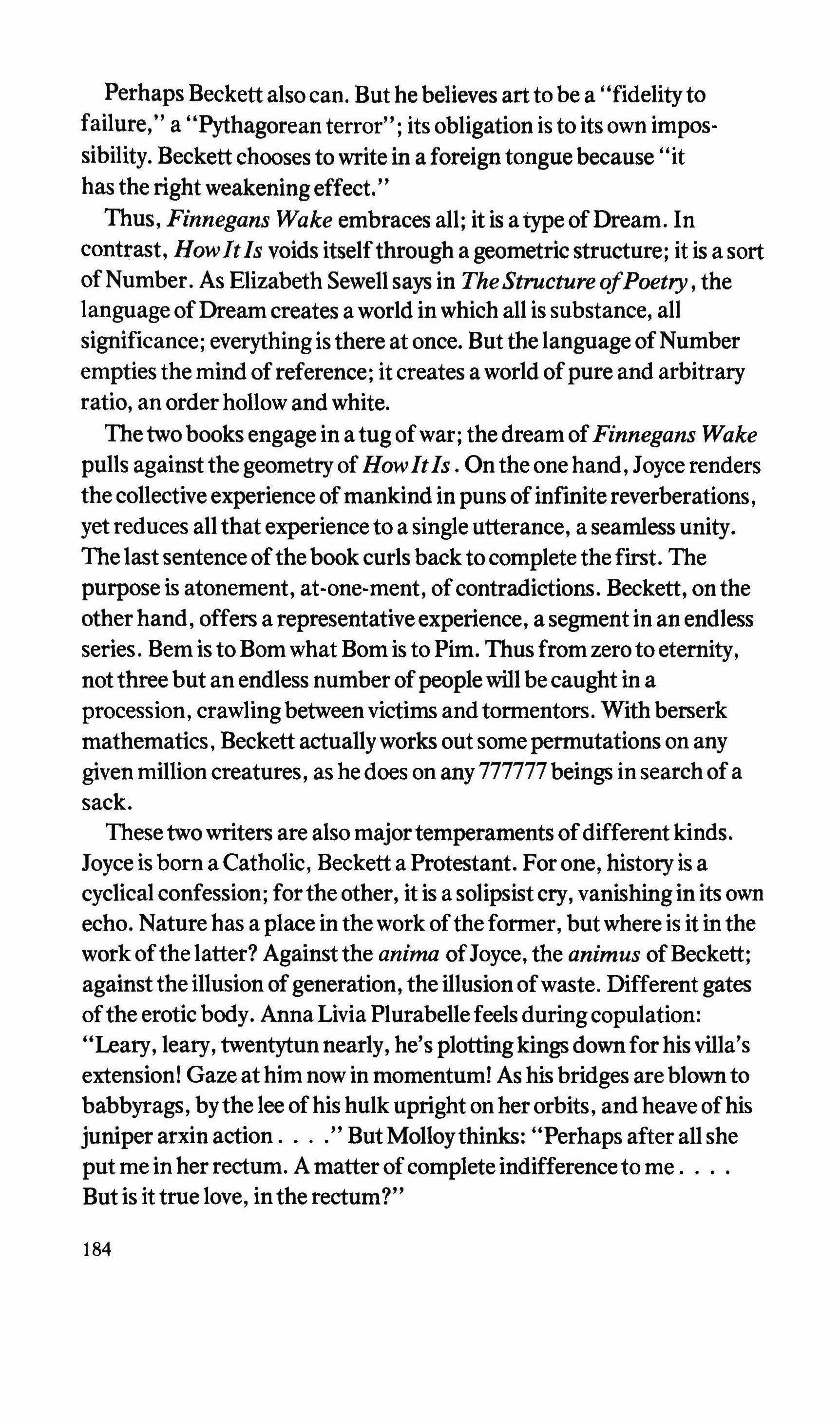
Perhaps Beckett also can. But he believes art to be a "fidelityto failure," a "Pythagoreanterror"; its obligation is to its own impossibility. Beckett chooses to write in a foreigntonguebecause "it has the rightweakeningeffect."
Thus, Finnegans Wake embraces all; it is a type ofDream. In contrast, HowItIs voids itselfthrough a geometric structure; it is a sort ofNumber. As Elizabeth Sewell says in TheStructure ofPoetry, the language ofDream creates a world in which all is substance, all significance; everything isthere at once. But thelanguage ofNumber empties the mind ofreference; it creates a world ofpure and arbitrary ratio, an order hollow and white.
The two books engage in a tugofwar; the dream ofFinnegans Wake pulls againstthegeometryofHowItIs Onthe one hand, Joyce renders the collective experience ofmankind in puns ofinfinite reverberations, yet reduces all that experience to a single utterance, a seamless unity. The last sentence ofthebook curls back to complete thefirst. The purpose is atonement, at-one-ment, ofcontradictions. Beckett, on the otherhand, offers a representativeexperience, a segment in an endless series. Bern is to Born what Born is to Pim. Thus from zero to eternity, not three but an endless number ofpeoplewill becaught in a procession, crawlingbetween victims and tormentors. With berserk mathematics, Beckett actuallyworks out some permutations on any given million creatures, as he does on any 777777beings in searchof a sack.
These two writers are also majortemperaments ofdifferent kinds. Joyce is born a Catholic, Beckett a Protestant. For one, history is a cyclical confession; forthe other, it is a solipsist cry, vanishinginits own echo. Nature has a place in thework ofthe former, but where is it in the work ofthelatter? Againstthe anima ofJoyce, the animus ofBeckett; againstthe illusion ofgeneration, the illusion ofwaste. Different gates ofthe erotic body. AnnaLivia Plurabellefeels duringcopulation: "Leary, leary, twentytunnearly, he's plottingkings downfor his villa's extension! Gaze at him now in momentum! As his bridges are blown to babbyrags, bythe lee ofhis hulk upright on herorbits, and heave ofhis juniper arxin action But Molloythinks: "Perhaps after all she put me in her rectum. A matter ofcompleteindifference to me. But is it true love, inthe rectum?"
184
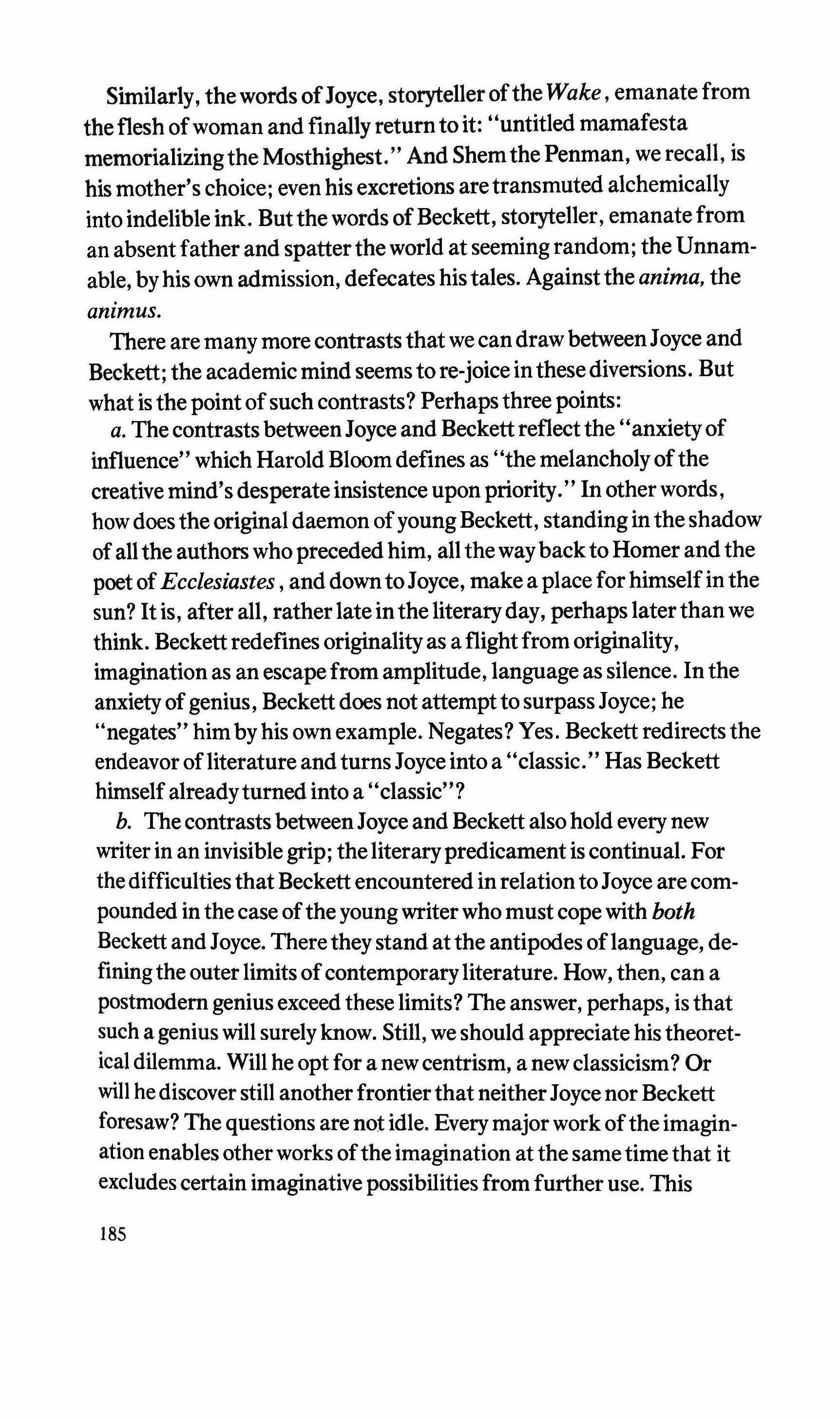
Similarly, thewords ofJoyce, storytellerofthe Wake, emanate from theflesh of woman and finally return to it: "untitled mamafesta memorializingthe Mosthighest." And Shemthe Penman, we recall, is his mother's choice; even his excretions are transmuted alchemically into indelible ink. Butthe words ofBeckett, storyteller, emanate from an absent father and spatterthe world at seemingrandom; the Unnamable, byhis own admission, defecates histales. Againstthe anima, the animus.
There are many more contrasts that we can drawbetweenJoyce and Beckett; the academic mind seems to re-joiceinthesediversions. But what is the point ofsuch contrasts? Perhapsthree points:
a. The contrasts betweenJoyce and Beckettreflectthe "anxietyof influence" which Harold Bloom defines as "the melancholyofthe creative mind's desperateinsistence upon priority." In other words, howdoes the original daemon ofyoung Beckett, standinginthe shadow ofallthe authors who precededhim, all thewaybackto Homer and the poet ofEcclesiastes, and downtoJoyce, make a place for himselfin the sun? It is, after all, ratherlate inthe literaryday, perhaps laterthan we think. Beckett redefines originality as a flight from originality, imagination as an escapefrom amplitude, language as silence. In the anxiety ofgenius, Beckett does not attempt to surpass Joyce; he "negates" himbyhis own example. Negates? Yes. Beckett redirects the endeavor ofliterature and turns Joyceinto a "classic." Has Beckett himselfalreadyturned into a "classic"?
b. The contrasts between Joyce and Beckett also hold every new writer in an invisible grip; theliterarypredicament is continual. For thedifficulties that Beckett encountered inrelation to Joyce are compounded in the case ofthe youngwriterwho must cope with both Beckett and Joyce. Therethey stand at the antipodesoflanguage, definingthe outer limits ofcontemporaryliterature. How, then, can a postmodern genius exceed these limits? The answer, perhaps, is that such a genius will surely know. Still, we should appreciate histheoretical dilemma. Will he opt for a new centrism, a new classicism? Or will he discover still anotherfrontierthat neitherJoyce nor Beckett foresaw? The questions are not idle. Everymajor work ofthe imagination enables other works ofthe imagination at the same time that it excludes certain imaginativepossibilities from further use. This
185
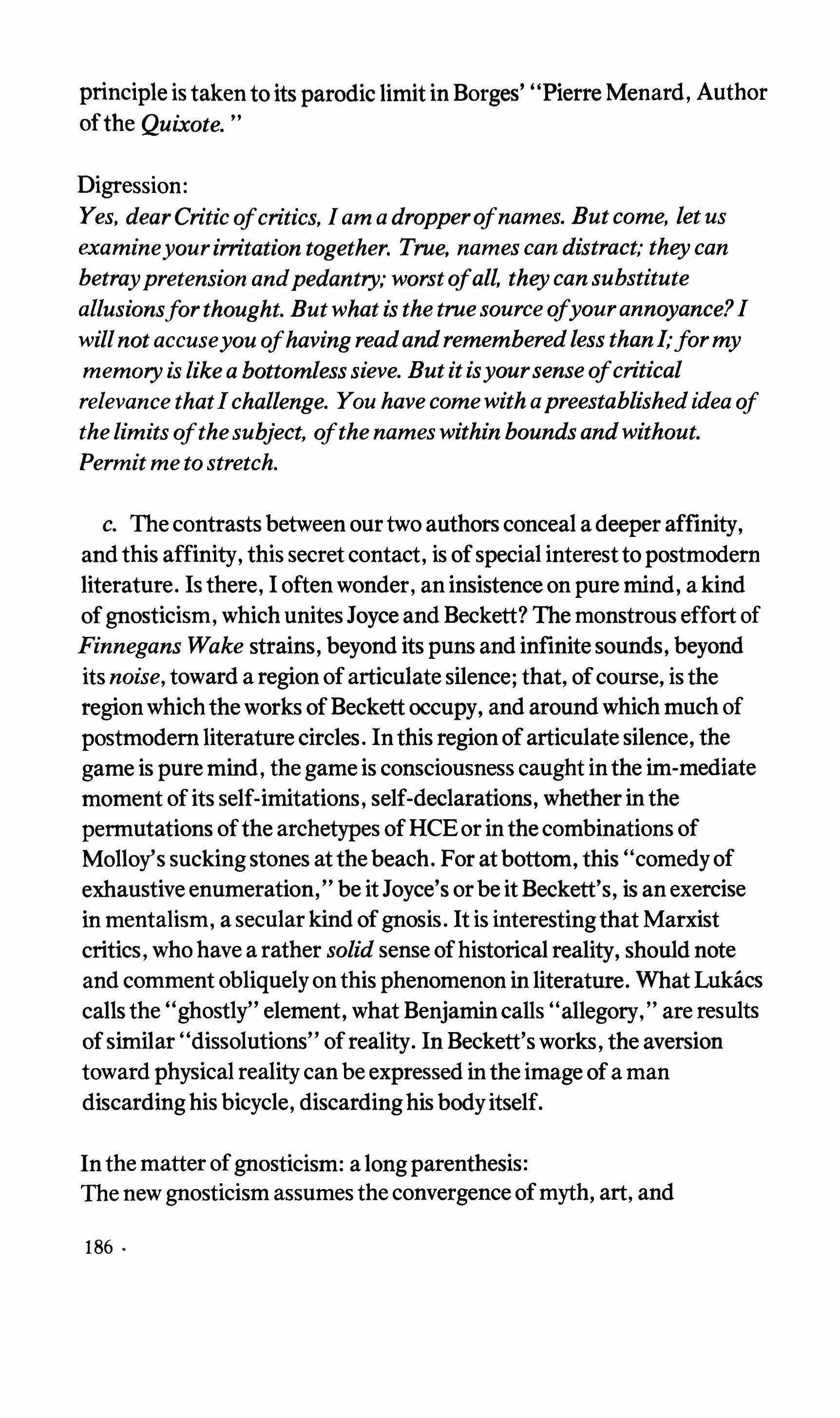
principle is taken to its parodic limit in Borges' "Pierre Menard, Author ofthe Quixote.
Digression:
Yes, dearCritic ofcritics, I am a dropperofnames. But come, let us examineyourirritation together. True, names can distract,· they can betraypretension andpedantry; worst ofall, they can substitute allusionsforthought. Butwhat is the true source ofyourannoyance? I will not accuseyou ofhaving readandrememberedless thanI;formy memory is like a bottomless sieve. But itisyoursense ofcritical relevance thatIchallenge. You have come with a preestablishedidea of the limits ofthesubject, ofthe names within bounds andwithout. Permit me to stretch.
c. The contrasts between our two authors conceal a deeperaffinity, and this affinity, this secret contact, is ofspecial interest to postmodern literature. Is there, I often wonder, an insistence on pure mind, a kind ofgnosticism, which unites Joyce and Beckett? The monstrous effort of Finnegans Wake strains, beyond its puns and infinite sounds, beyond its noise, toward a region ofarticulate silence; that, ofcourse, is the regionwhichtheworks ofBeckett occupy, and around which much of postmodern literature circles. In this regionofarticulate silence, the game is puremind, the game is consciousness caught inthe im-mediate moment ofits self-imitations, self-declarations, whether inthe permutations ofthe archetypes of HCE or inthecombinations of Molloy'ssucking stones at thebeach. For at bottom, this "comedyof exhaustive enumeration," be itJoyce's or be it Beckett's, is an exercise in mentalism, a secular kind ofgnosis. It is interestingthat Marxist critics, who have a rather solid sense ofhistorical reality, should note and comment obliquely on this phenomenon in literature. What Lukacs callsthe"ghostly" element, what Benjamincalls"allegory," are results ofsimilar "dissolutions" ofreality. In Beckett's works, the aversion toward physicalreality can be expressed in the image of a man discardinghis bicycle, discardinghis bodyitself.
In the matter ofgnosticism: a longparenthesis: The new gnosticism assumes the convergence ofmyth, art, and
186
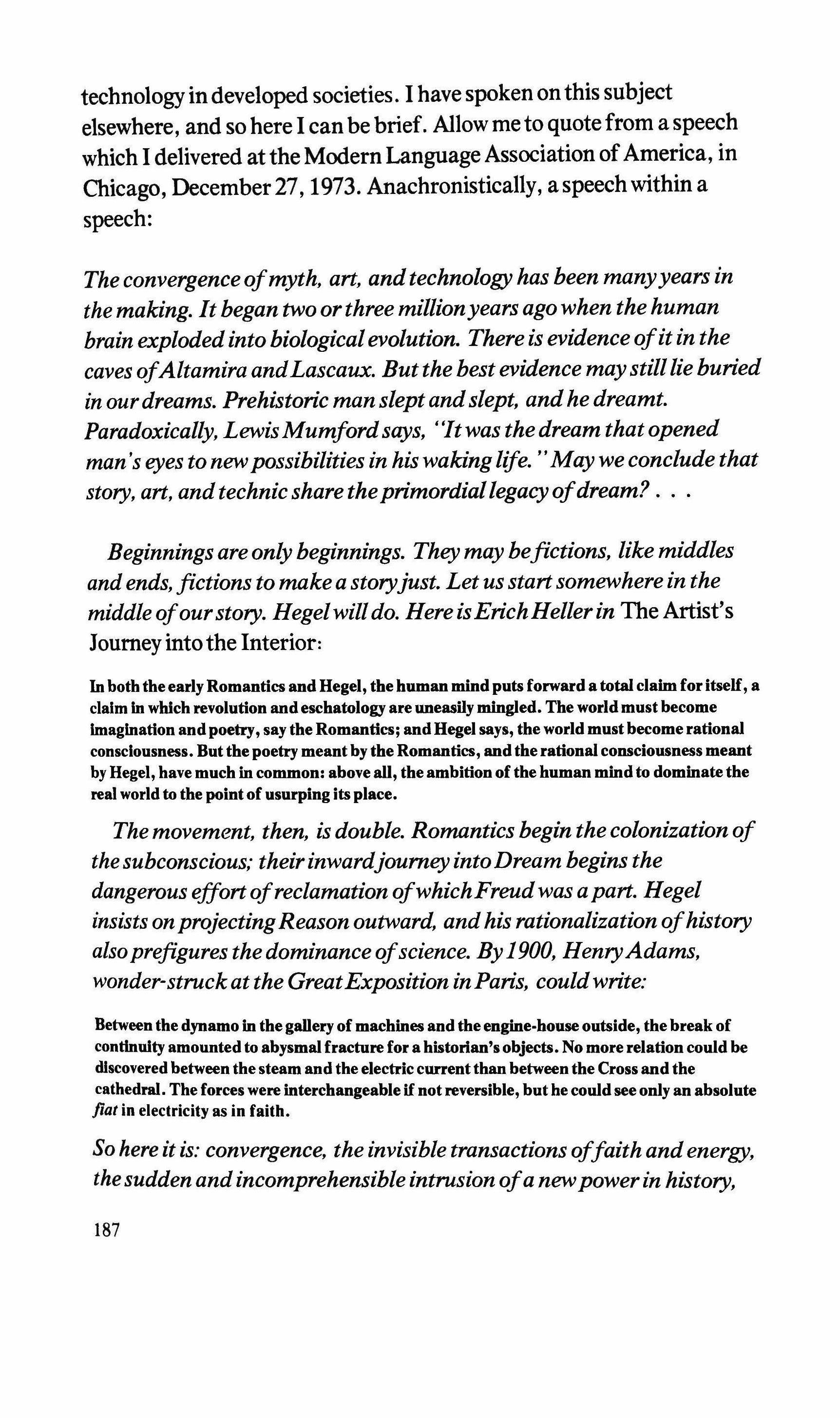
technology indeveloped societies. I have spoken on this subject elsewhere, and so here I can be brief. Allow me to quote from a speech which I delivered at the Modern Language Association ofAmerica, in Chicago, December27, 1973. Anachronistically, a speechwithin a speech:
The convergenceofmyth, art, andtechnology has been manyyears in the making. It began two or three millionyears ago when the human brain exploded into biologicalevolution. There is evidence ofit in the caves ofAltamira andLascaux. Butthe bestevidence maystilllie buried in our dreams. Prehistoric man slept andslept, andhe dreamt. Paradoxically, LewisMumfordsays, "It was thedream that opened man's eyes to newpossibilities in his wakinglife. May we conclude that story, art, andtechnicshare theprimordiallegacyofdream?
Beginnings are onlybeginnings. They may befictions, like middles andends, fictions to make a storyjust. Let us start somewhere in the middle ofourstory. Hegelwilldo. Here isErichHeller in The Artist's Journeyintothe Interior:
In both the early Romantics and Hegel, the human mind puts forward a total claim for itself, a claim in which revolution andeschatology are uneasilymingled. Theworld must become imagination and poetry, say the Romantics; and Hegel says, the world must become rational consciousness. Butthe poetry meant by the Romantics, and the rational consciousness meant by Hegel, have much in common: above all, the ambition of the human mind to dominate the real world to the pointof usurping its place.
The movement, then, is double. Romantics begin the colonization of thesubconscious; theirinwardjourney intoDream begins the dangerouseffortofreclamation ofwhichFreud was a part. Hegel insists on projectingReason outward, andhis rationalization ofhistory alsoprefigures thedominance ofscience. By1900, HenryAdams, wonder-struck at the GreatExposition inParis, couldwrite:
Between the dynamo in the gallery of machines and the engine-houseoutside, the break of continuity amounted to abysmal fracture for a historian's objects. No more relation could be discovered between the steam and the electric current than between the Cross and the cathedral. The forces were interchangeable if not reversible, but he could see only an absolute fiat in electricity as in faith.
So here it is: convergence, the invisible transactions offaith andenergy, thesudden andincomprehensible intrusion ofa newpowerin history,
187
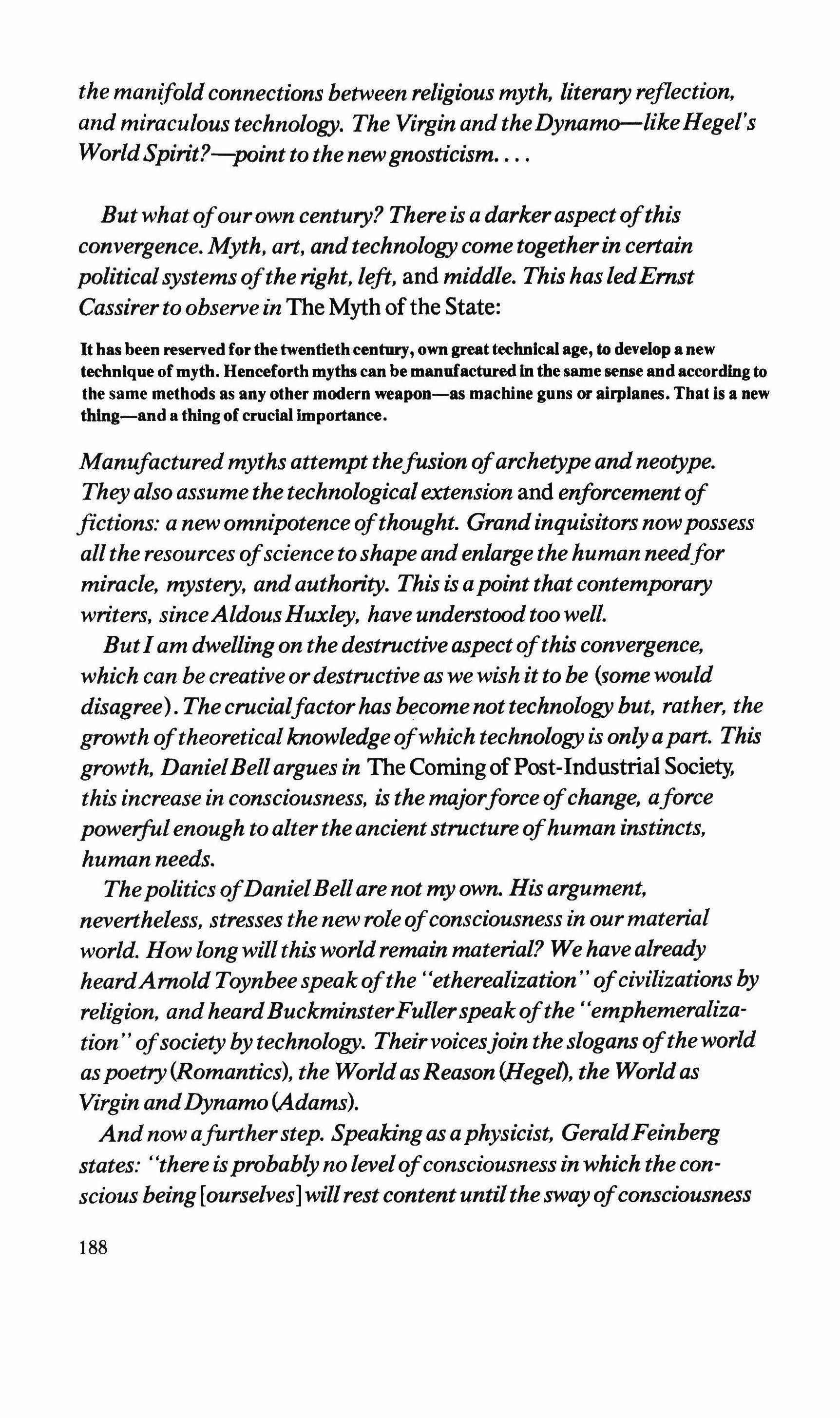
the manifold connections between religious myth, literaryreflection, and miraculous technology. The Virgin and theDynamo-likeHegel's WorldSpirit?-point to the newgnosticism
Butwhatofour own century? Thereis a darkeraspectofthis convergence. Myth, art, andtechnology come togetherin certain politicalsystems ofthe right, left, and middle. This has ledEmst Cassirer to observe in The Myth ofthe State:
It has been reserved for the twentieth century, own great technical age, to develop a new technique of myth. Henceforth myths can be manufactured in the same sense and according to the same methods as any other modern weapon-as machine guns or airplanes. That is a new thing-and a thing of crucial Importance.
Manufacturedmyths attemptthefusionofarchetypeandneotype. They also assume thetechnologicalextension and enforcementof fictions: a new omnipotenceofthought. Grandinquisitors nowpossess allthe resources ofscience to shape andenlarge the human needfor miracle, mystery, andauthority. This is a point that contemporary writers, sinceAldous Huxley, have understood too well.
ButI am dwelling on the destructiveaspectofthis convergence, which can be creative or destructive as we wish it to be (some would disagree). Thecrucialfactorhas becomenot technologybut, rather, the growth oftheoreticalknowledgeofwhich technology is only apart. This growth, DanielBellargues in The ComingofPost-Industrial Society, this increase in consciousness, is the majorforceofchange, aforce powerfulenough to alter the ancient structure ofhuman instincts, human needs.
Thepolitics ofDanielBell are not my own. His argument, nevertheless, stresses the new roleofconsciousness in our material world. How longwillthis worldremain material? We have already heardAmold Toynbeespeakofthe "etherealization" ofcivilizations by religion, andheardBuckminsterFullerspeakofthe''emphemeralization' ofsociety bytechnology. Theirvoicesjoin theslogansoftheworld as poetry(Romantics), the World as Reason iHegel), the World as Virgin andDynamo(Adams).
And now afurtherstep. Speaking as a physicist, GeraldFeinberg states: 'there isprobably no levelofconsciousness in which the conscious being[ourselves]willrest content untilthesway ofconsciousness
188

is extendedindefinitely. Thestatement occurs in a workentitled The Prometheus Project, whichproposes a scientific extension of mind�s in the theologyofTeilhardde Chardin, as in thefantasies ofOlafStapledon or UrsulaLeGuin.
This idea ofan extendedandunmediatedmindis not restricted to sciencefiction: the newgnosticismpervades culture
Item: The visionaryarchitect, PaoloSoleri, callshis latest bookThe Bridge Between Matter and Spirit Is MatterBecomingSpirit; and anothergreatarchitect, LouisKahn, says: "We are actually born out of light, you mightsay. Ibelievelightis the makerofallmaterial. Material is spentlight...
Item: Dr. JoseDelgadoofthe YaleMedicalSchoolstates: "Weare now talking to the brainwithout theparticipationofthe senses. This ispure anddirectcommunication=Icallitnone-sensory communication. Earlier, MarshallMcLuhanpredictedthat electric technologywould"by-passlanguages infavorofa generalcosmic consciousness.
Item: Thefatherofcybernetics, Norbert Wiener, once speculated: "Onemightconceivably travelbytelegraph, in addition to travelingby train or airplane, i.e., teleportation. But also telepathy, as suggested byBuckminsterFullerin an interview: "Possibly we'lldiscover scientifically that telepathyis, infact, ultra-ultrahighfrequency electromagnetic wavepropagation.
Item: ThelateJimiHendrix, BlackOrpheus androckstar, once said: "It's music It's electricity thatwilltake us all to that spiritualhighI callthe electric church Mindexpansion someday it'sgoing to carry me alltheway there, too: pure mind.
Item: CharlesLindbergh, aviator, adventurer, technologist, writes: "Gradually, Idivertedhoursfrom aviation into biologicalresearch. Howmechanical, howmysticalwas man? Will we discove�that onlywithout spaceships can we reach thegalaxies?"
Item: DouglasDavis, artist andexperimentalesthetician, concludes in Art and the Future: A HistoryIProphecy: "Art, technology, and even science seem to me three veilsfor the sameface, three metaphors that cover, then dissolve, into a singlereality. That centralfact is the probing, discoveringpurpose ofman.
189
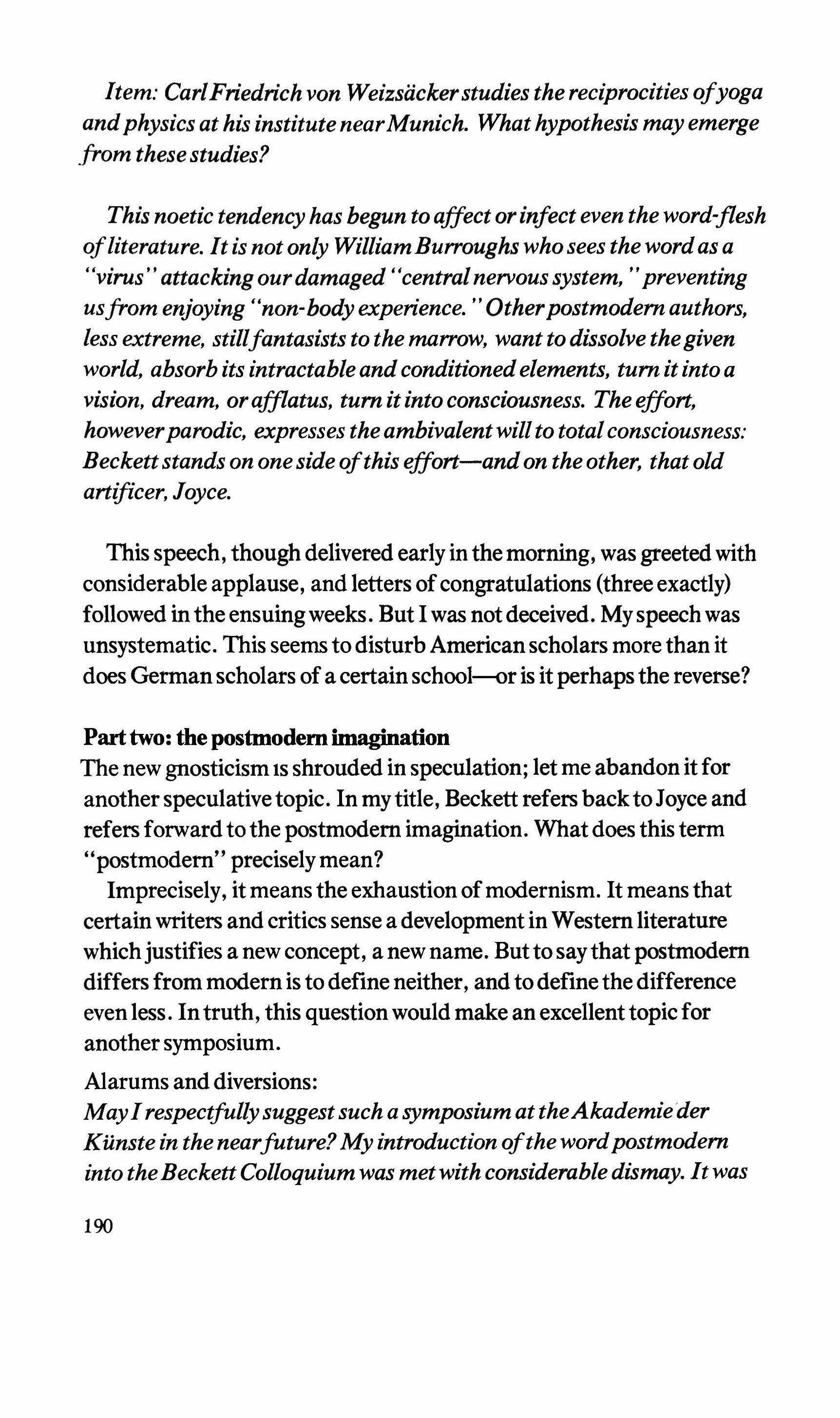
Item: CarlFriedrich von Weizsiickerstudies the reciprocitiesofyoga andphysics at his institute nearMunich. Whathypothesis may emerge from thesestudies?
This noetic tendency has begun to affect or infect even the word-flesh ofliterature. It is not only WilliamBurroughs who sees the word as a "virus" attacking our damaged" central nervous system, preventing usfrom enjoying "non-bodyexperience. Otherpostmodemauthors, less extreme, stillfantasists to the marrow, want to dissolve thegiven world, absorb its intractable andconditionedelements, tum it into a vision, dream, or afflatus, tum itinto consciousness. The effort, howeverparodic, expresses theambivalentwill to totalconsciousness: Beckettstands on one side ofthis effort-and on theother, that old artificer, Joyce.
This speech, though delivered early inthemorning, was greeted with considerable applause, and letters ofcongratulations (threeexactly) followed inthe ensuingweeks. But I was not deceived. Myspeech was unsystematic. This seems to disturb American scholars more than it does German scholars of a certain school--or is it perhapsthe reverse?
Parttwo: the postmodemimagination
The new gnosticism IS shrouded in speculation; let me abandon itfor anotherspeculativetopic. In mytitle, Beckett refers backtoJoyce and refers forward to the postmodernimagination. Whatdoes this term "postmodern" preciselymean?
Imprecisely, it means the exhaustion ofmodernism. It means that certain writers and critics sense a developmentin Western literature whichjustifies a new concept, a new name. Butto saythat postmodern differs from modem is to define neither, and to definethedifference even less. Intruth, this questionwould make an excellenttopic for another symposium.
Alarums and diversions:
MayIrespectfullysuggestsuch a symposium at theAkademie der Kiinste in the nearfuture?My introduction ofthewordpostmodern into theBeckettColloquium was metwith considerabledismay. It was
190
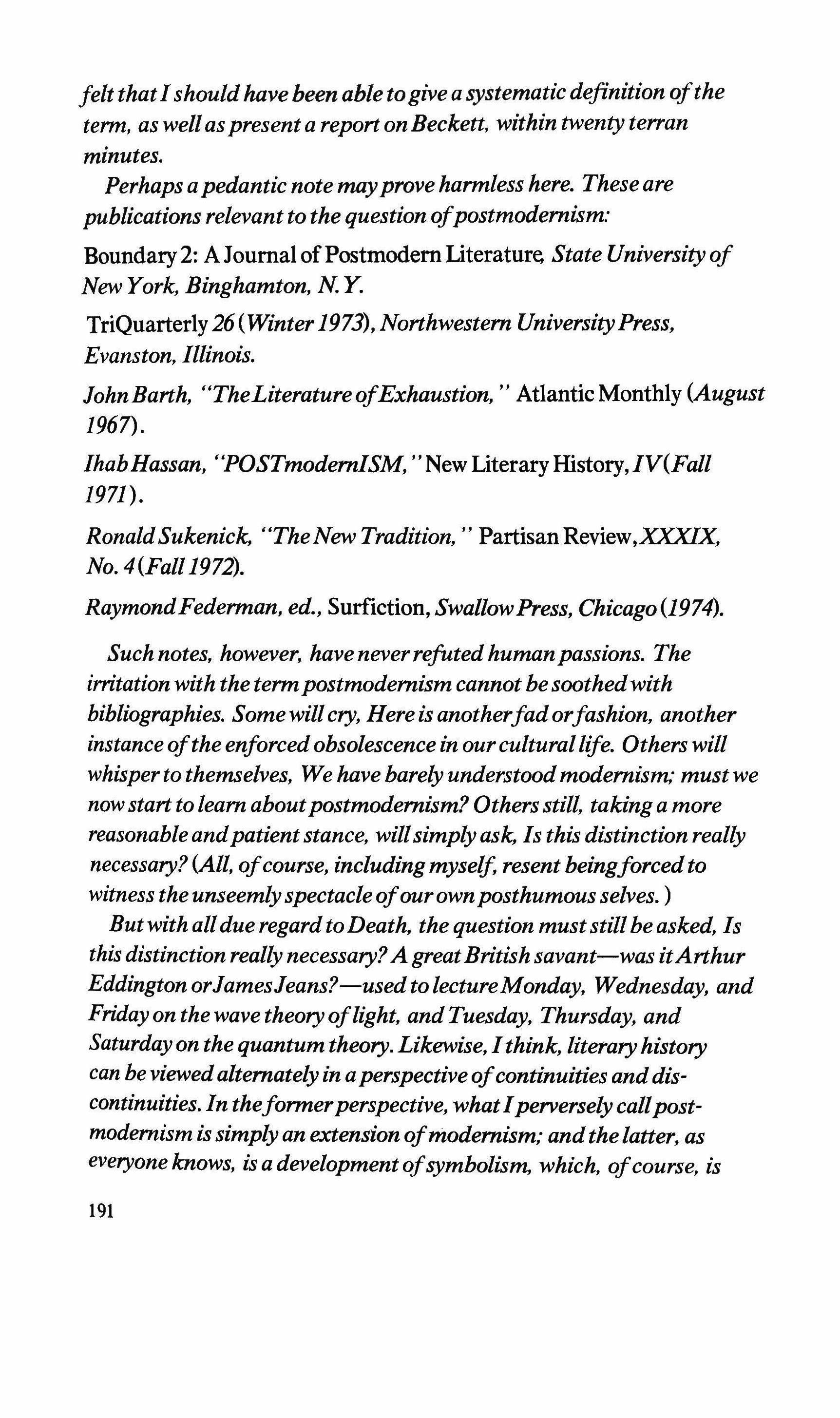
felt thatIshouldhavebeen able togive a systematicdefinitionofthe term, as well aspresent a report on Beckett, within twenty terran minutes.
Perhaps a pedantic note mayprove harmless here. These are publications relevant to the questionofpostmodernism: Boundary2: AJournal ofPostmodern Literature State Universityof New York, Binghamton, N. Y.
TriQuarterly26(Winter1973), Northwestern UniversityPress, Evanston, Illinois.
John.Barth, "TheLiteratureofExhaustion; Atlantic Monthly (August 1967).
IhabHassan, "POSTmodernISM," New LiteraryHistory,IV(Fall 1971).
RonaldSukenick, "TheNew Tradition, Partisan Review,XXXIX, No. 4(Fall1972).
RaymondFederman, ed., Surfiction, SwallowPress, Chicago(1974).
Such notes, however, have never refutedhumanpassions. The irritation with the termpostmodernism cannot besoothedwith bibliographies. Somewillcry, Hereisanotherfadorfashion, another instanceofthe enforcedobsolescence in our culturallife. Others will whisper to themselves, We have barelyunderstoodmodernism; must we now start to learn aboutpostmodernism? Others still, taking a more reasonableandpatientstance, willsimplyask, Is this distinction really necessary?(All, ofcourse, includingmyself, resent beingforced to witness the unseemlyspectacleofour ownposthumous selves. )
Butwith alldue regard toDeath, the question must stillbeasked, Is this distinction reallynecessary?AgreatBritish savant-was itArthur Eddington orJamesJeans?-used to lectureMonday, Wednesday, and Friday on the wave theoryoflight, and Tuesday, Thursday, and Saturday on the quantum theory.Likewise, Ithink, literaryhistory can be viewedalternately in aperspectiveofcontinuities anddiscontinuities. In theformerperspective, whatIperverselycallpostmodernism is simply an extension ofmodernism; andthelatter, as everyone knows, is a developmentofsymbolism, which, ofcourse, is
191
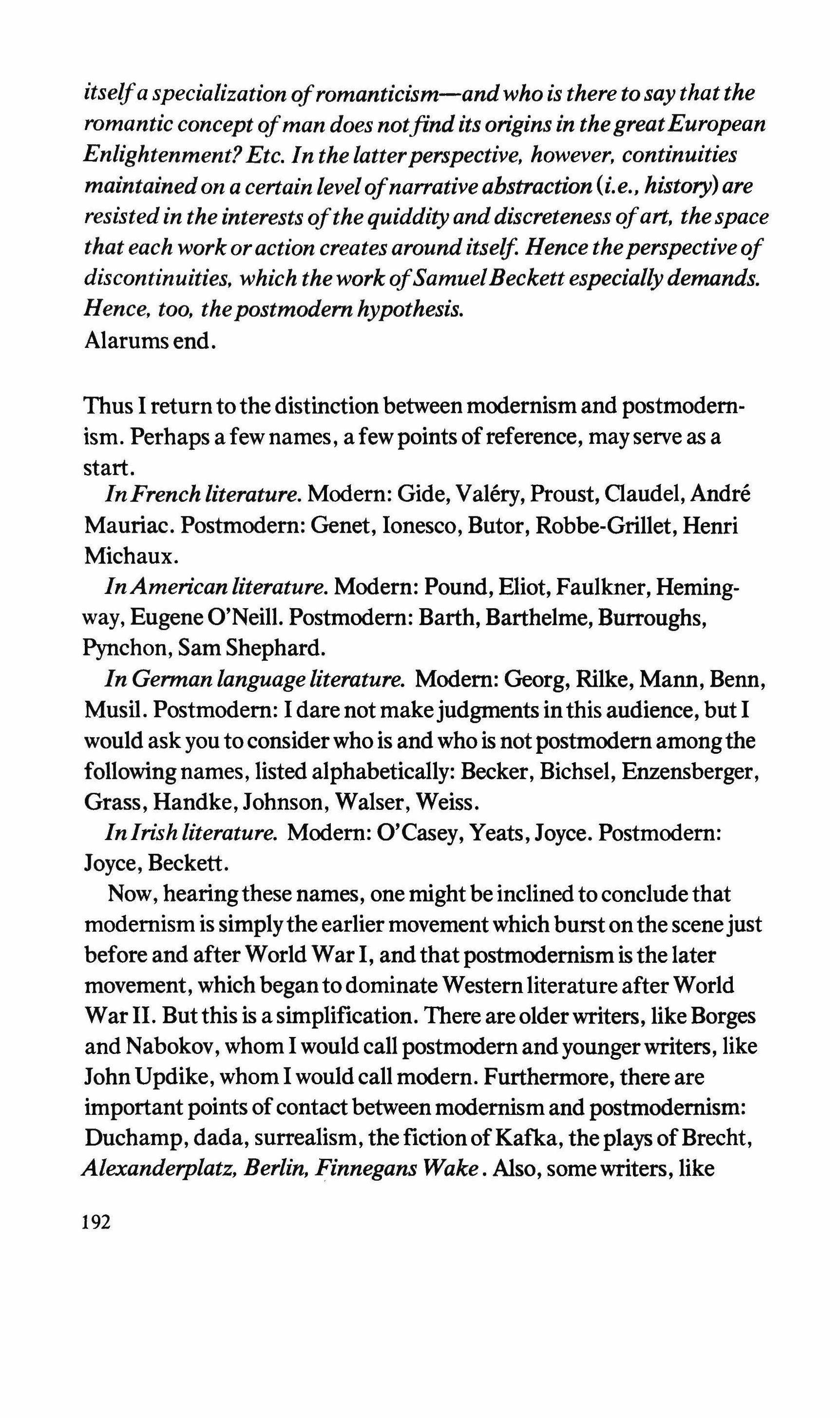
itselfa specializationofromanticism-andwho is there to say thatthe romantic concept ofman does notfindits origins in thegreatEuropean Enlightenment?Etc. In the latterperspective, however, continuities maintained on a certain levelofnarrative abstraction(i.e., history) are resisted in the interests ofthe quiddity anddiscreteness ofart, thespace that each work or action creates around itself. Hence theperspectiveof discontinuities, which thework ofSamuelBeckett especiallydemands. Hence, too, thepostmodemhypothesis. Alarums end.
Thus I return to the distinctionbetween modernismand postmodernism. Perhaps a few names, a fewpoints ofreference, may serve as a start.
InFrench literature. Modern: Gide, Valery, Proust, Claudel, Andre Mauriac. Postmodern: Genet, Ionesco, Butor, Robbe-Grillet, Henri Michaux.
InAmerican literature. Modern: Pound, Eliot, Faulkner, Hemingway, Eugene O'Neill. Postmodern: Barth, Barthelme, Burroughs, Pynchon, Sam Shephard.
In German language literature. Modern: Georg, Rilke, Mann, Benn, Musil. Postmodern: I dare not makejudgments inthis audience, but I would ask you to considerwho is and who is not postmodern amongthe following names, listed alphabetically: Becker, Bichsel, Enzensberger, Grass, Handke, Johnson, Walser, Weiss.
InIrish literature. Modern: O'Casey, Yeats, Joyce. Postmodern: Joyce, Beckett.
Now, hearingthese names, one might beinclined to conclude that modernism is simplythe earlier movement which burst on the scene just before and after World War I, and that postmodernism is the later movement, which beganto dominate Westernliterature after World War II. Butthis is a simplification. There are olderwriters, like Borges and Nabokov, whom I would call postmodern and youngerwriters, like John Updike, whom I would call modern. Furthermore, there are important points ofcontact between modernism and postmodernism: Duchamp, dada, surrealism, the fictionofKafka, the plays ofBrecht, Alexanderplatz, Berlin, Finnegans Wake. Also, some writers, like
192
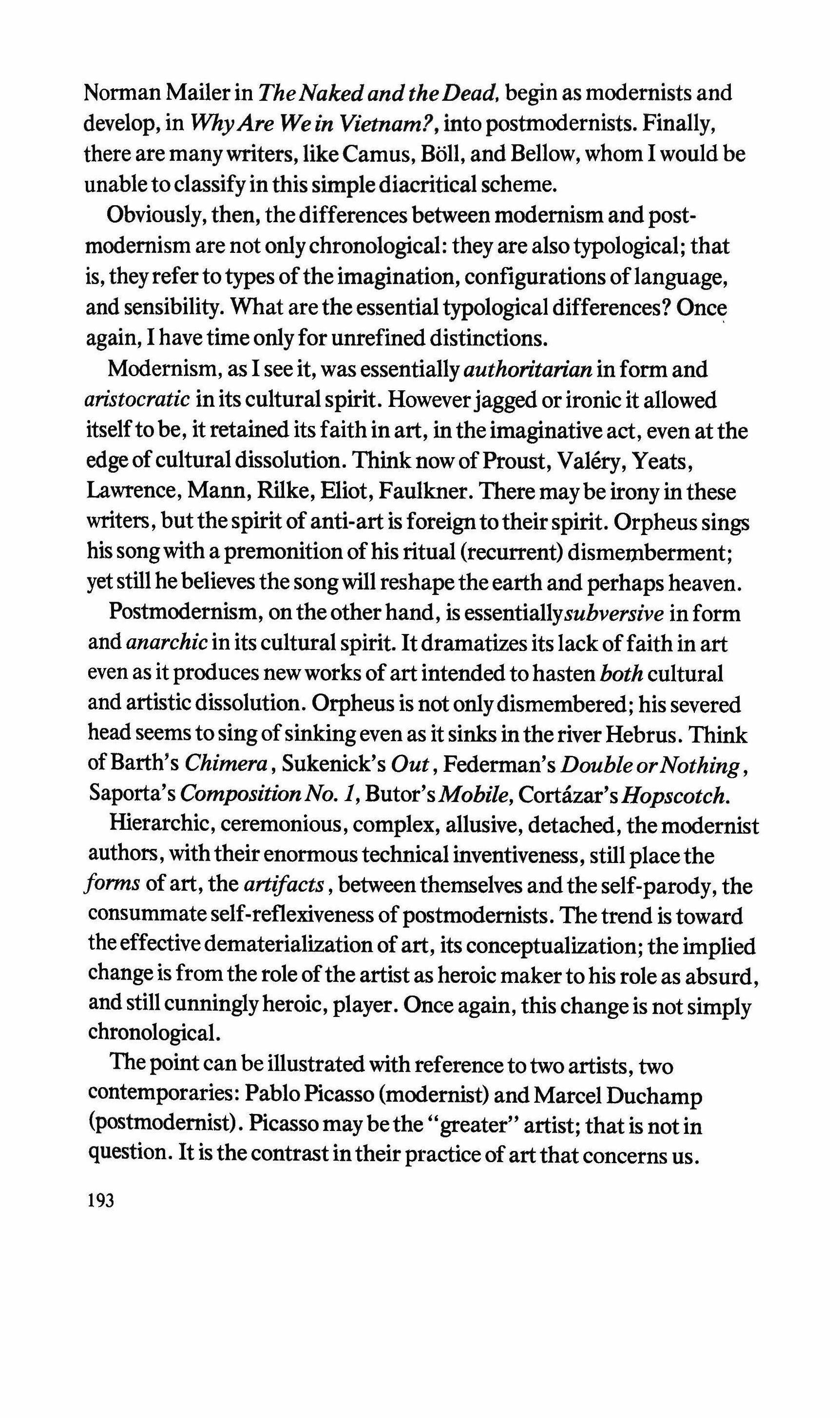
Norman Mailer in TheNakedand theDead. begin as modernists and develop, in WhyAre We in Vietnam?, into postmodernists. Finally, there are manywriters, likeCamus, Boll, and Bellow, whom I would be unable to classifyin this simplediacritical scheme.
Obviously, then, the differences between modernism and postmodernism are not onlychronological: they are alsotypological; that is, theyrefer to types oftheimagination, configurations oflanguage, and sensibility. What are the essential typological differences? Once again, I have time onlyfor unrefined distinctions.
Modernism, as I see it, was essentiallyauthoritarian in form and aristocratic in its culturalspirit. Howeverjagged or ironic it allowed itselftobe, it retained its faith in art, intheimaginative act, even at the edge ofcultural dissolution. Think now ofProust, Valery, Yeats, Lawrence, Mann, Rilke, Eliot, Faulkner. There maybe irony in these writers, butthespirit ofanti-art is foreigntotheirspirit. Orpheussings his songwith a premonition ofhis ritual (recurrent) dismemberment; yet still he believes the song will reshape the earth and perhaps heaven.
Postmodernism, on theotherhand, is essentiallysubversive in form and anarchic in its cultural spirit. Itdramatizes its lack offaith in art even as it produces new works ofart intended to hasten both cultural and artistic dissolution. Orpheus is not onlydismembered; his severed head seems to sing ofsinking even as it sinks inthe river Hebrus. Think ofBarth's Chimera, Sukenick's Out, Federman's Double orNothing, Saporta's CompositionNo. 1, Butor'sMobile, Cortazar'sHopscotch.
Hierarchic, ceremonious, complex, allusive, detached, the modernist authors, withtheir enormous technical inventiveness, still placethe forms ofart, the artifacts, between themselves and the self-parody, the consummate self-reflexiveness ofpostmodernists. The trend is toward theeffectivedematerializationofart, its conceptualization; the implied changeis fromthe role ofthe artist as heroic maker to his role as absurd, and still cunninglyheroic, player. Once again, this change is not simply chronological.
The point can be illustrated with reference to two artists, two contemporaries: Pablo Picasso (modernist) and Marcel Duchamp (postmodernist). Picasso may bethe"greater" artist; that is not in question. It is the contrast intheir practice ofart that concerns us.
193
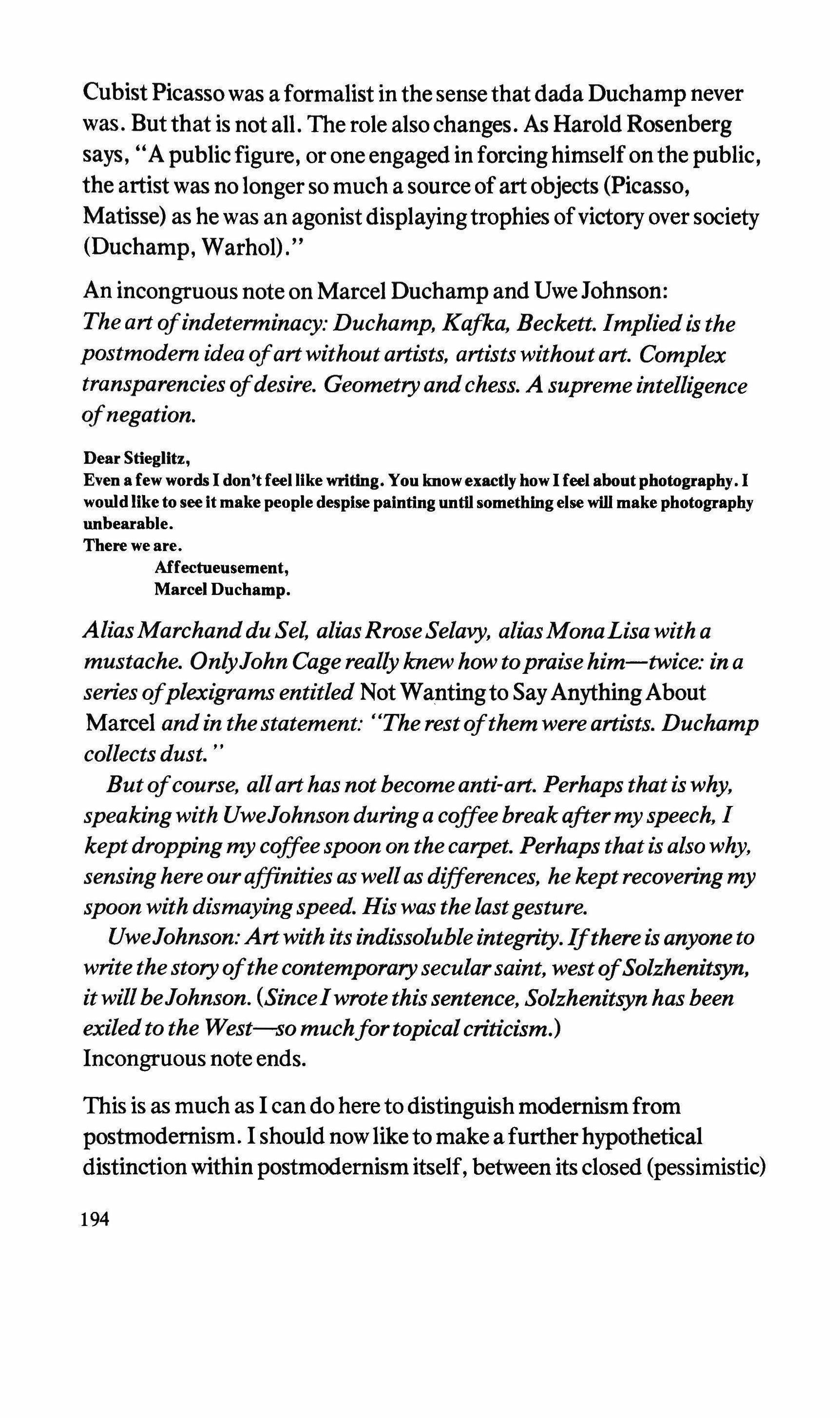
Cubist Picasso was a formalist in the sense that dada Duchamp never was. But that is not all. The role also changes. As Harold Rosenberg says, "A publicfigure, or one engaged in forcinghimself on the public, the artist was no longer so much a source ofart objects (Picasso, Matisse) as he was an agonistdisplayingtrophies ofvictory over society (Duchamp, Warhol}."
An incongruous note on Marcel Duchamp and Uwe Johnson: The art ofindeterminacy: Duchamp, Kafka, Beckett. Impliedis the postmodern idea ofart without artists, artists without art. Complex transparencies ofdesire. Geometryandchess. A supreme intelligence ofnegation.
Dear Stieglitz, Even a few words I don't feel like writing. You know exactly how I feel about photography. I would like to see it make people despise painting until something else will make photography unbearable. There we are.
Mfectueusement, Marcel Duchamp.
AliasMarchanddu Sel; aliasRroseSelavy, aliasMonaLisa with a mustache. OnlylohnCagereally knew how topraise him-twice: in a series ofplexigrams entitled Not Wantingto SayAnythingAbout Marcel and in the statement: "The rest ofthem were artists. Duchamp collects dust
Butofcourse, allart has not becomeanti-art. Perhaps that is why, speakingwith Uwelohnson during a coffee breakaftermyspeech, I keptdropping my coffee spoon on thecarpet. Perhaps that is also why, sensing here our affinities as wellas differences, he keptrecovering my spoon with dismayingspeed. His was the lastgesture.
Uwelohnson:Artwith its indissoluble integrity.Ifthereis anyone to write thestoryofthe contemporarysecularsaint, west ofSolzhenitsyn, itwillbelohnson. (SinceIwrote this sentence, Solzhenitsyn has been exiled to the West---so muchfortopicalcriticism.) Incongruous note ends.
This is as much as I can do here to distinguish modernismfrom postmodemism. I should now like to make a furtherhypothetical distinction within postmodemismitself, between its closed (pessimistic) 194
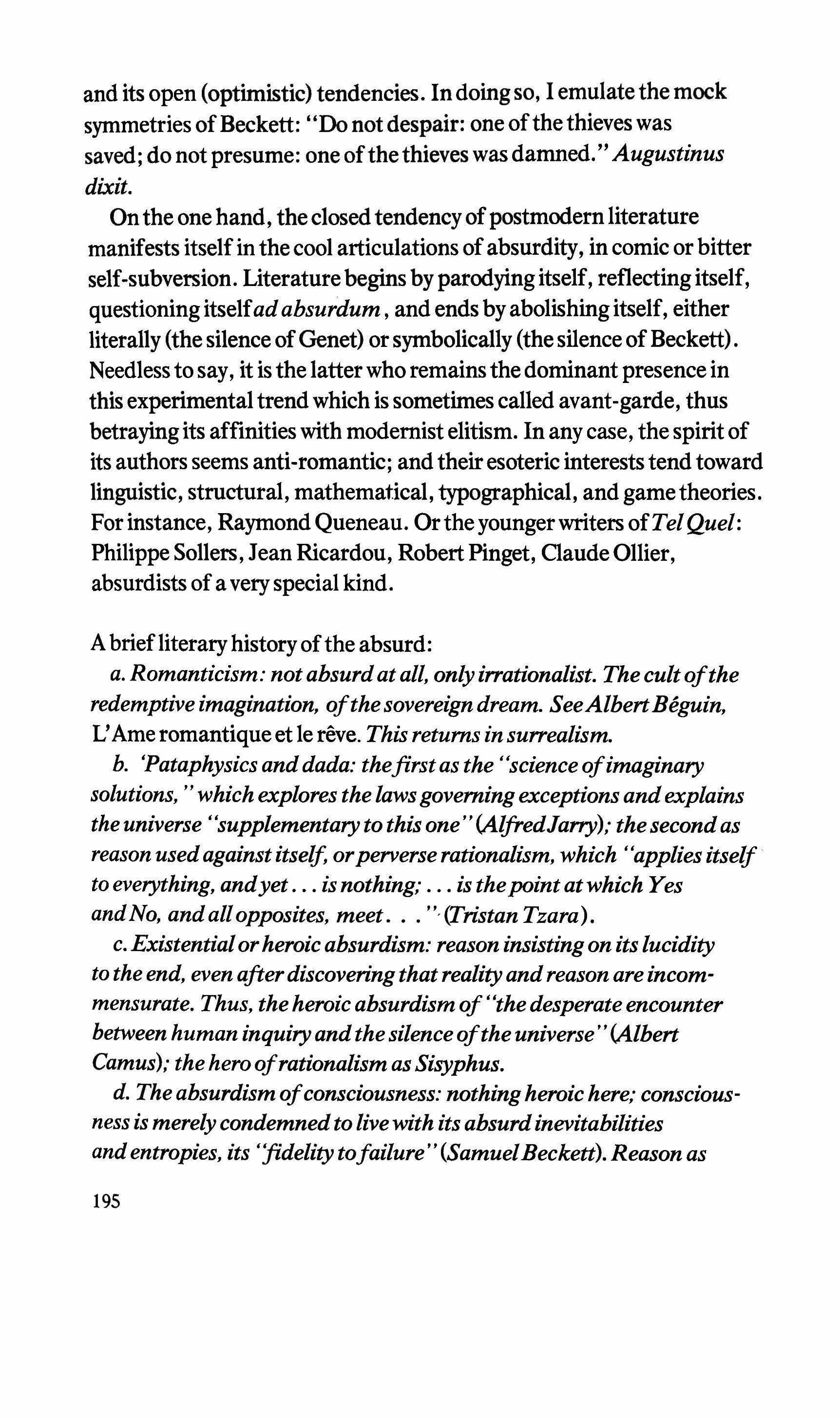
and its open (optimistic) tendencies. In doing so, I emulatethe mock symmetries ofBeckett: "Do not despair: one ofthethieves was saved; do not presume: one ofthethieves was damned."Augustinus dixit.
Onthe one hand, theclosedtendencyofpostmodernliterature manifests itselfin thecool articulations ofabsurdity, in comic or bitter self-subversion. Literaturebeginsbyparodyingitself, reflectingitself, questioningitselfadabsurdum, and ends byabolishingitself, either literally(the silence ofGenet) or symbolically (thesilence ofBeckett). Needless to say, it isthe latterwho remainsthedominant presence in this experimentaltrendwhich is sometimes called avant-garde, thus betrayingits affinities with modernistelitism. In any case, the spirit of its authors seems anti-romantic; and theiresoteric interests tend toward linguistic, structural, mathematical, typographical, and gametheories. Forinstance, RaymondQueneau. Ortheyoungerwriters ofTelQuel: Philippe Sollers, Jean Ricardou, Robert Pinget, ClaudeOllier, absurdists of a very special kind.
Abriefliteraryhistoryofthe absurd:
a. Romanticism: not absurdat all, onlyirrationalist. Thecultofthe redemptiveimagination, ofthesovereigndream. SeeAlbertBeguin, L'Arne romantique et Ie reve. This returns insurrealism.
h. 'Pataphysics anddada: thefirst as the''science ofimaginary solutions, "which explores the lawsgoverningexceptions andexplains the universe "supplementary to this one"(AljredJarry),· thesecond as reason usedagainstitself, orperverse rationalism, which "appliesitself to everything, andyet is nothing; is thepoint at which Yes andNo, andallopposites, meet "'(Tristan Tzara).
c. Existentialor heroic absurdism: reason insisting on its lucidity to the end, even afterdiscoveringthat reality and reason are incommensurate. Thus, the heroic absurdism of "thedesperate encounter between human inquiryandthesilenceofthe universe" (Albert Camus),' the hero ofrationalism as Sisyphus.
d. The absurdismofconsciousness: nothingheroic here,' consciousness is merelycondemnedto livewith its absurdinevitabilities andentropies, its ''fidelity tofailure"(SamuelBeckett). Reason as
195
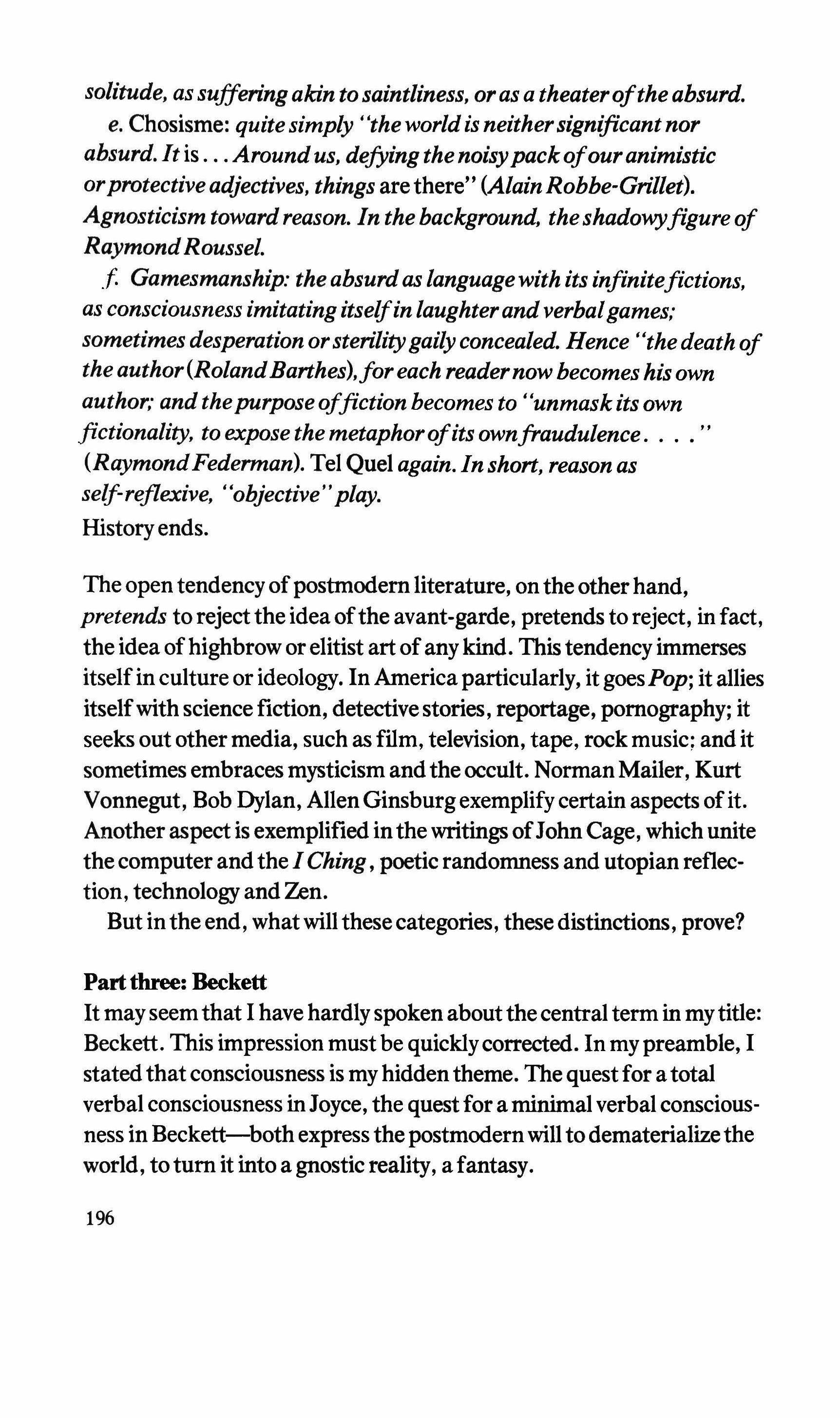
solitude, as sufferingakin to saintliness, or as a theaterofthe absurd.
e. Chosisme: quitesimply''theworldis neithersignificant nor absurd. It is Around us, defying thenoisypackofour animistic orprotectiveadjectives, things are there" (AlainRobbe-Grillet), Agnosticism toward reason. In the background, theshadowyfigureof RaymondRoussel
f. Gamesmanship: the absurd as languagewith its infinitefictions, as consciousness imitatingitselfin laughterandverbalgames,' sometimes desperation or sterilitygailyconcealed. Hence "thedeath of the author(RolandBarthes),foreach reader now becomeshis own author; and thepurpose offiction becomes to "unmaskits own fictionality, to expose the metaphorofits ownfraudulence. ." (RaymondFederman). Tel Quel again. Inshort, reason as self-reflexive, "objective" play. Historyends.
The open tendencyofpostmodernliterature, on the otherhand, pretends to rejectthe idea ofthe avant-garde, pretends to reject, in fact, the idea ofhighbrow or elitist art ofany kind. This tendency immerses itselfin culture or ideology. In Americaparticularly, it goesPop; it allies itselfwith science fiction, detectivestories, reportage, pornography; it seeks out othermedia, such as film, television, tape, rock music; and it sometimes embraces mysticism and the occult. Norman Mailer, Kurt Vonnegut, Bob Dylan, AllenGinsburgexemplify certain aspects ofit. Another aspect is exemplified inthe writings ofJohn Cage, which unite thecomputer and theIChing, poetic randomness and utopian reflection, technology and Zen.
But inthe end, what will thesecategories, these distinctions, prove?
Partthree: Beckett
It may seem that I have hardlyspoken aboutthecentral term in mytitle: Beckett. This impression must be quicklycorrected. In my preamble, I statedthat consciousness is my hidden theme. The quest for a total verbal consciousness inJoyce, the questfor a minimal verbal consciousness in Beckett-both express thepostmodernwill to dematerializethe world, to tum it into a gnosticreality, a fantasy. 196
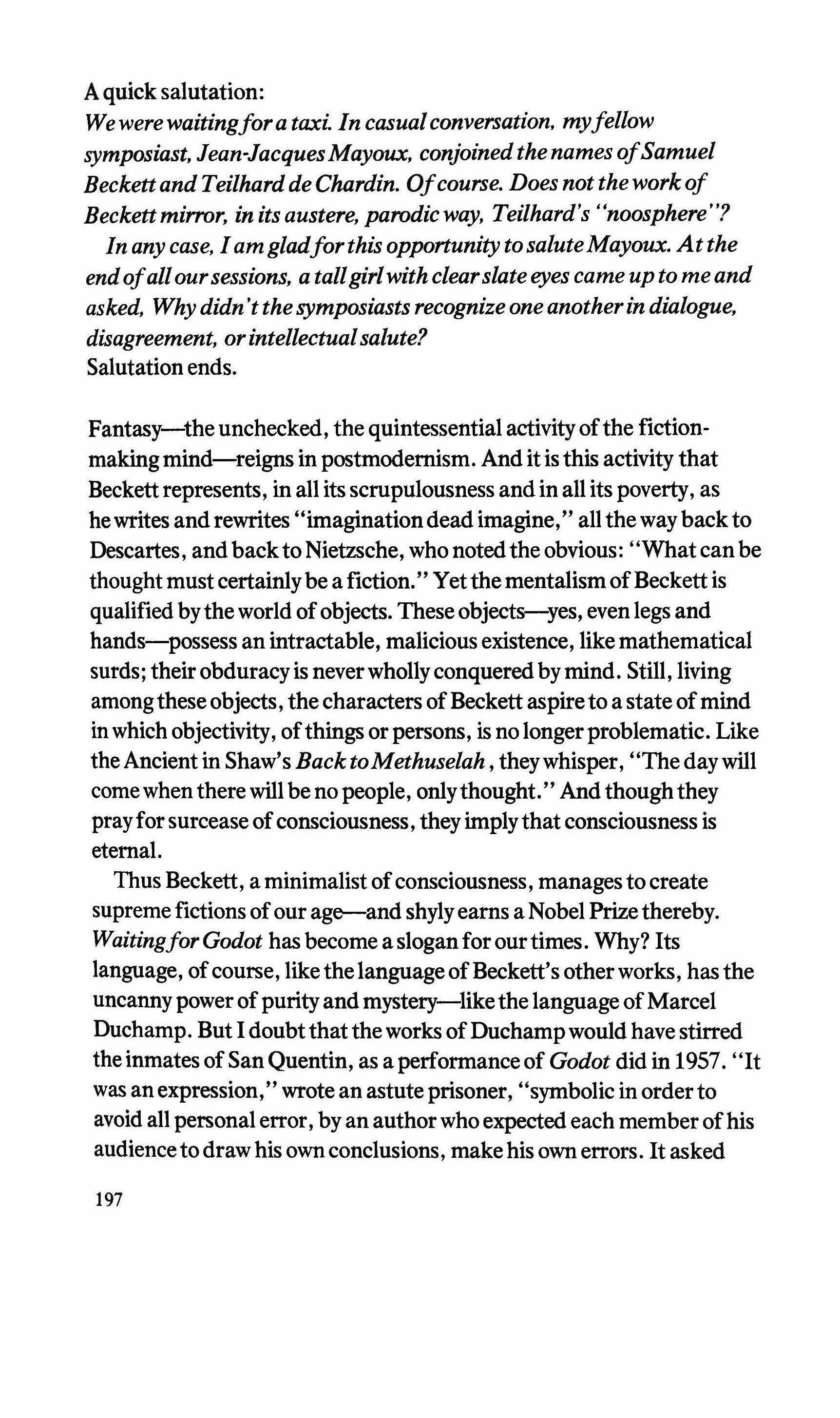
A quick salutation:
We were waitingfor a taxi. In casualconversation, myfellow symposiast, Jean-JacquesMayoux, conjoinedthe names ofSamuel Beckettand Teilhardde Chardin. Ofcourse. Does not theworkof Beckettmirror, in its austere, parodic way, Teilhard's "noosphere"?
In any case, Iam gladforthis opportunity to saluteMayoux. At the endofall oursessions, a tallgirlwithclearslate eyes came up to me and asked, Whydidn'tthesymposiastsrecognize one anotherin dialogue, disagreement, or intellectualsalute?
Salutation ends.
Fantasy-theunchecked, the quintessentialactivity ofthe fictionmakingmind-reigns in postmodemism. And itis this activity that Beckett represents, in all its scrupulousness and in all its poverty, as hewrites andrewrites "imaginationdead imagine," all the way backto Descartes, andbackto Nietzsche, who notedthe obvious: "What can be thought must certainlybe a fiction. YetthementalismofBeckett is qualifiedbytheworld ofobjects. These objects-yes, even legs and hands-possess an intractable, malicious existence, like mathematical surds; their obduracyis never whollyconqueredbymind. Still, living amongtheseobjects, the characters ofBeckett aspireto a state ofmind inwhich objectivity, ofthings or persons, is no longerproblematic. Like theAncient in Shaw's Back toMethuselah, theywhisper, "The daywill come whenthere willbe no people, onlythought." And thoughthey prayfor surcease ofconsciousness, theyimplythat consciousness is eternal.
Thus Beckett, a minimalist ofconsciousness, manages to create supreme fictions of our age--andshyly earns a Nobel Prizethereby. Waitingfor Godot has become a sloganfor our times. Why? Its language, ofcourse, likethelanguageofBeckett's otherworks, hasthe uncannypower ofpurityand mystery-likethe language ofMarcel Duchamp. But I doubtthat the works ofDuchampwould have stirred theinmates of San Quentin, as a performance of Godot did in 1957. "It was an expression," wrote an astute prisoner, "symbolic in order to avoid all personal error, by an author whoexpected each member ofhis audience to drawhis own conclusions, makehis own errors. It asked
197
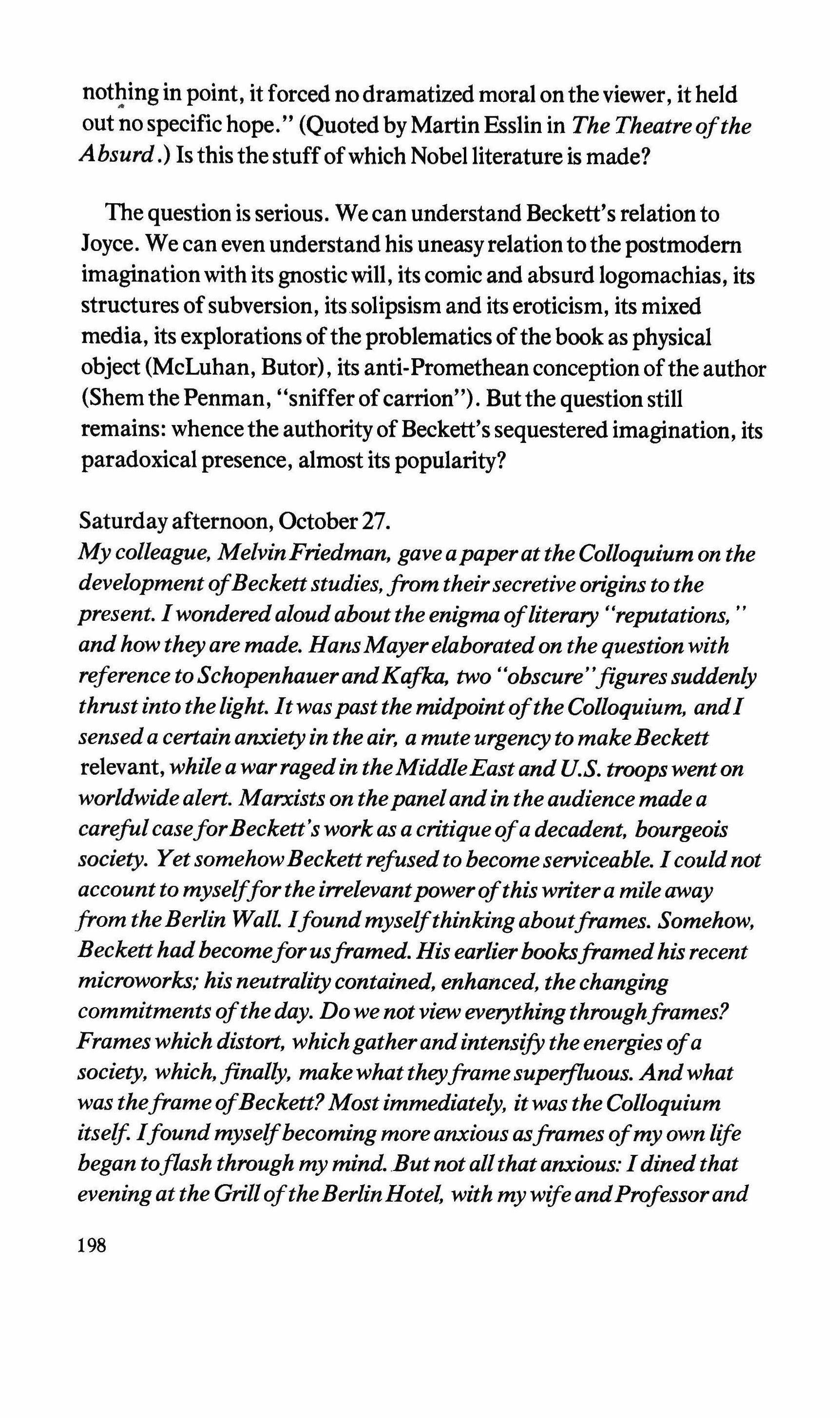
nothing in point, it forced no dramatized moral on the viewer, it held out no specifichope." (Quoted by Martin Esslin in The Theatre ofthe Absurd.) Is this the stuffofwhich Nobel literature is made?
The question is serious. We can understand Beckett's relation to Joyce. We can even understand his uneasyrelation to the postmodem imaginationwith its gnosticwill, its comic and absurd logomachias, its structures ofsubversion, itssolipsism and its eroticism, its mixed media, its explorations ofthe problematics ofthe book as physical object (McLuhan, Butor), its anti-Promethean conception ofthe author (Shem the Penman, "sniffer ofcarrion"). Butthe question still remains: whence the authority ofBeckett's sequesteredimagination, its paradoxical presence, almost its popularity?
Saturdayafternoon, October 27. My colleague, MelvinFriedman, gave apaperat the Colloquium on the developmentofBeckettstudies, from theirsecretive origins to the present. Iwonderedaloudabout the enigma ofliterary "reputations, and how they are made. HansMayerelaborated on the question with reference toSchopenhauerandKafka, two "obscure'tfiguressuddenly thrust into the light. It was past the midpointofthe Colloquium, andI sensed a certain anxiety in the air, a mute urgency to makeBeckett relevant, while a war ragedin theMiddleEast and U.S. troops went on worldwidealert. Marxists on thepanelandin theaudience made a careful caseforBeckett's work as a critiqueofa decadent, bourgeois society. YetsomehowBeckett refused to becomeserviceable. Icould not account to myselffor the irrelevantpowerofthis writer a mile away from theBerlin Wall. Ifoundmyselfthinkingaboutframes. Somehow, Beckett hadbecomeforusframed. His earlierbooksframedhis recent microworks: his neutralitycontained, enhanced, the changing commitments oftheday. Do we not view everythingthroughframes? Frames which distort, whichgatherandintensify the energies ofa society, which,finally, makewhattheyframesuperfluous. Andwhat was theframeofBeckett? Most immediately, it was the Colloquium itself. Ifoundmyselfbecoming more anxious asframesofmy own life began toflash through my mind. But not allthat anxious: Idinedthat evening at the GrilloftheBerlinHotel, with my wifeandProfessorand
198
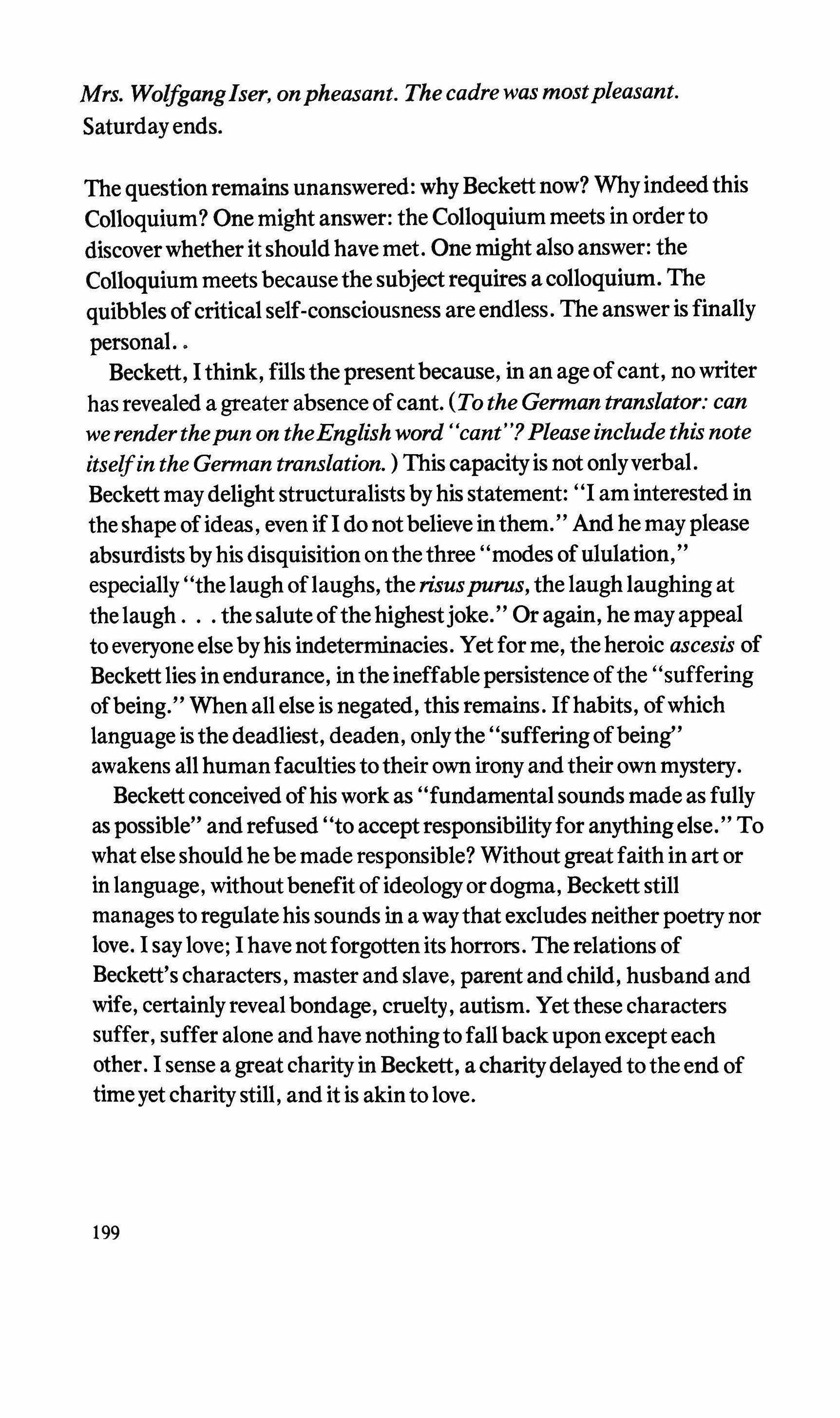
Mrs. WolfgangIser, onpheasant. The cadre was mostpleasant. Saturdayends.
The question remains unanswered: whyBeckett now? Whyindeedthis Colloquium? One might answer: the Colloquium meets in order to discoverwhether itshould have met. One might also answer: the Colloquium meets becausethe subjectrequires a colloquium. The quibbles ofcritical self-consciousness are endless. The answer is finally personal.
Beckett, I think, fills the presentbecause, in an age ofcant, no writer has revealed a greater absence ofcant. (To the German translator: can we renderthepun on theEnglish word "cant"?Please include this note itselfin the German translation. ) This capacityis not onlyverbal. Beckett may delight structuralists byhis statement: "I am interested in theshape ofideas, even if I do notbelieve inthem." And he may please absurdists byhis disquisition on thethree''modes ofululation," especially "thelaughoflaughs, the risuspurus, thelaughlaughing at thelaugh thesaluteofthehighestjoke." Or again, he may appeal to everyoneelsebyhis indeterminacies. Yetfor me, theheroic ascesis of Beckettlies inendurance, intheineffablepersistence ofthe "suffering ofbeing." When all else is negated, this remains. Ifhabits, ofwhich language is thedeadliest, deaden, onlythe "suffering ofbeing" awakens all human faculties totheir own ironyandtheir own mystery. Beckett conceived ofhis work as "fundamental sounds made as fully as possible" and refused "to acceptresponsibilityfor anythingelse." To what elseshouldhebe made responsible? Withoutgreatfaith in art or in language, withoutbenefit ofideology or dogma, Beckett still manages to regulatehis sounds in a waythat excludes neither poetry nor love. I say love; I have notforgotten its horrors. The relations of Beckett's characters, master and slave, parent and child, husband and wife, certainly reveal bondage, cruelty, autism. Yetthese characters suffer, suffer alone and have nothingto fall back uponexcept each other. I sense a greatcharityin Beckett, a charitydelayed to theend of timeyetcharitystill, and it is akin to love.
199
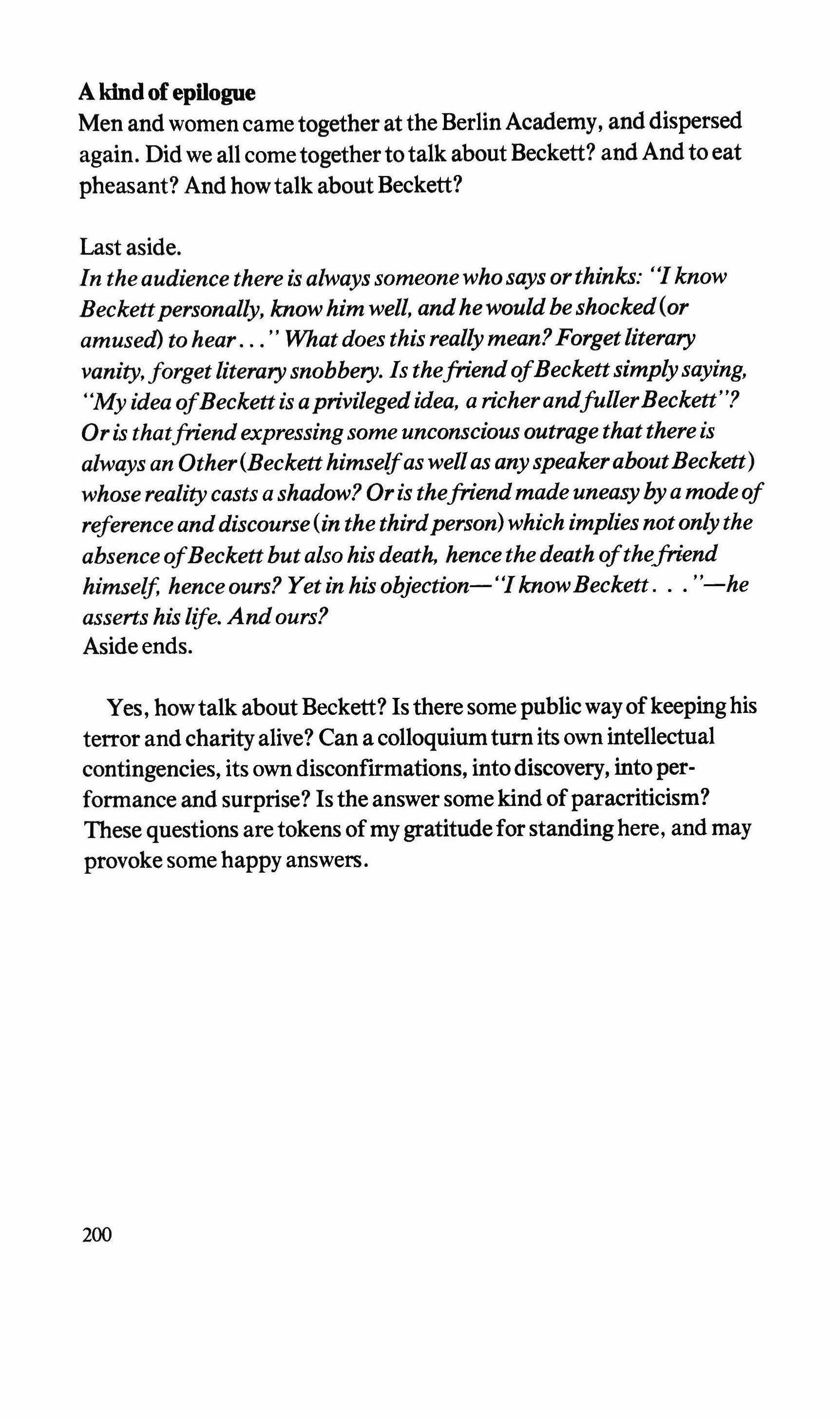
Aldndofepilogue
Men and women came together at the Berlin Academy, and dispersed again. Did we all come together totalk about Beckett? and And to eat pheasant? And how talk about Beckett?
Last aside.
In theaudience there is always someone whosays or thinks: I IIknow Beckettpersonally, know him well, andhe wouldbeshocked(or amused) to hear Whatdoes this reallymean?Forgetliterary vanity,forgetliterarysnobbery. Is thefriendofBeckettsimplysaying, "My idea ofBeckettis a privileged idea, a richerandfullerBeckett"? Oris thatfriendexpressing some unconscious outrage that there is always an Other(Becketthimselfas wellas anyspeakeraboutBeckett) whose reality casts a shadow? Oris thefriendmade uneasy by a modeof reference anddiscourse(in the thirdperson) which implies not onlythe absence ofBeckettbut also his death, hence the death ofthefriend himself, henceours? Yet in hisobjection-"IknowBeckett. "-he asserts his life. Andours? Aside ends.
Yes, howtalk aboutBeckett? Isthere some publicwayofkeepinghis terror and charityalive? Can a colloquium turn its own intellectual contingencies, its own disconfirmations, intodiscovery, into performance and surprise? Is the answer some kind ofparacriticism? These questions are tokens ofmygratitudeforstandinghere, and may provoke some happy answers.
200
Neural neighborhoods and other concrete abstracts
Joseph McElroy
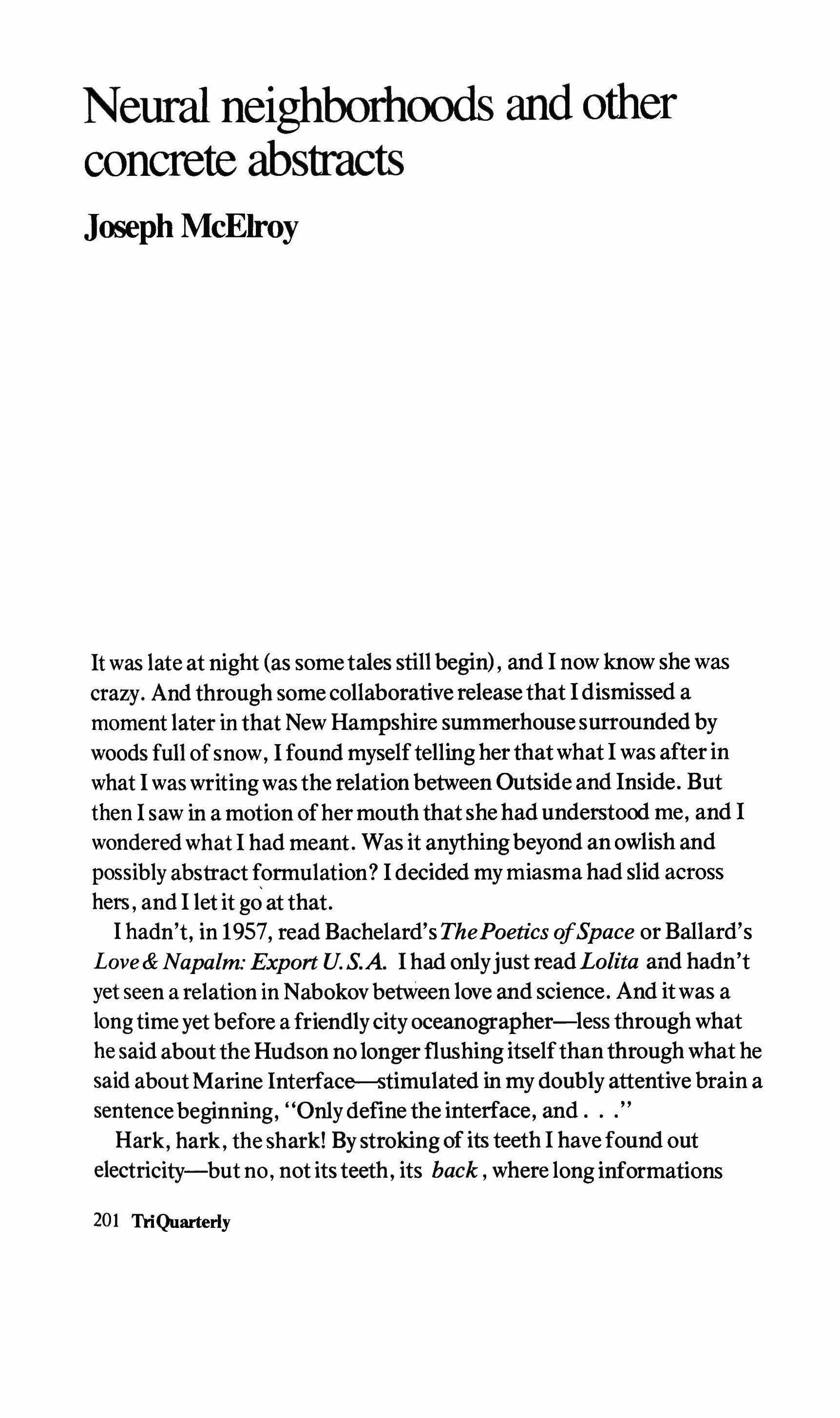
It was late at night (as some tales still begin), and I now know she was crazy. And through some collaborative releasethat I dismissed a moment later in that New Hampshire summerhousesurrounded by woods full of snow, I found myselftelling herthatwhat I was after in what I was writing was the relation between Outside and Inside. But then I saw in a motion ofhermouththat she had understood me, and I wondered what! had meant. Was it anythingbeyond an owlish and possibly abstract �ormulation? I decided my miasma had slid across hers, and I let it go at that.
I hadn't, in 1957, read Bachelard's ThePoetics ofSpace or Ballard's Love& Napalm:Export U.S.A. I had onlyjust readLolita and hadn't yet seen a relation in Nabokov between love and science. And it was a long time yet before a friendlycityoceanographer-lessthrough what he said about the Hudson no longerflushing itselfthan through what he said aboutMarine Interface--stimulated in my doubly attentive brain a sentence beginning, "Only define the interface, and Hark, hark, the shark! Bystroking of its teeth I have found out electricity-but no, not itsteeth, its back, where longinformations
201 TriQuarterly

diagram out to mytouch like a skeleton power raised to its body's surface.
I dismissed the Outside-Inside remarkthat winter nightbecause I had been led to believethat this was no way for a writerto think about writingfiction. It wasn'tjustthat one should think in scenes and images. I had done that when I was twenty-two or -three, recapturing the heavilyfreighted subwayof my earlynightmares. But in thoseturgid pages I all too calmlyscrapped, where was clear motivation, where was integral personality and moral stability, what was the good ofall these rich words greedily swampingwhatever distinction mightthen have beenvisible between me and what was around me? I showed these beginnings to thewrong people too often. I was urged to write stories. Stories-instead ofthesedisplaced passions.
There was good advice byaccident in the not-so-good. But good advice is hard to take, and even the not-so-goodemphasized a more rational view ofwhat was possible or (in the closet-commercial piety of the phrase) what worked. Nowthat I tryto think about it, all I see is my own lack of independence; If someone had organized a quest to find that cyanometer Ruskin invented to measure theblue ofthe sky, I would have gone along as easily as on a hunt for the Crystal Skull or the Lost City of Atlantis. A certain kind ofregular, sensitive American novel was what I let myselfthink I ought to write, like those short stories which the often admirable JohnO'Hara said so many bad first novelists never had been able to manage.
Like the New York I had temporarily left, a remark ofSaul Bellow's in Seize theDay haunted me-that TommyWilhelm "reflected long and then made the decision he had rejected twentyseparate times."
But what happened to me when I read Michel Butor's Degrees was a matter ofconfidence more than decision. It was much more than a grandiosity ofobsession in Butor's herofrom which I took a kind of leaveto go back to my own deepest senses ofdisorder, and to accept them. But I know there was self-indulgence in the way I believed in Degrees; and whatever else I formulated in planningmy own book,A Smuggler'sBible, I did not quitefairlyjudgethe truth I told myselfabout this insidious, heart-entangling,tediouslypoignantly ambitious French bookthatturned such beautiful attention away from entertainment to achieve(at least inthetranslation of an old
202
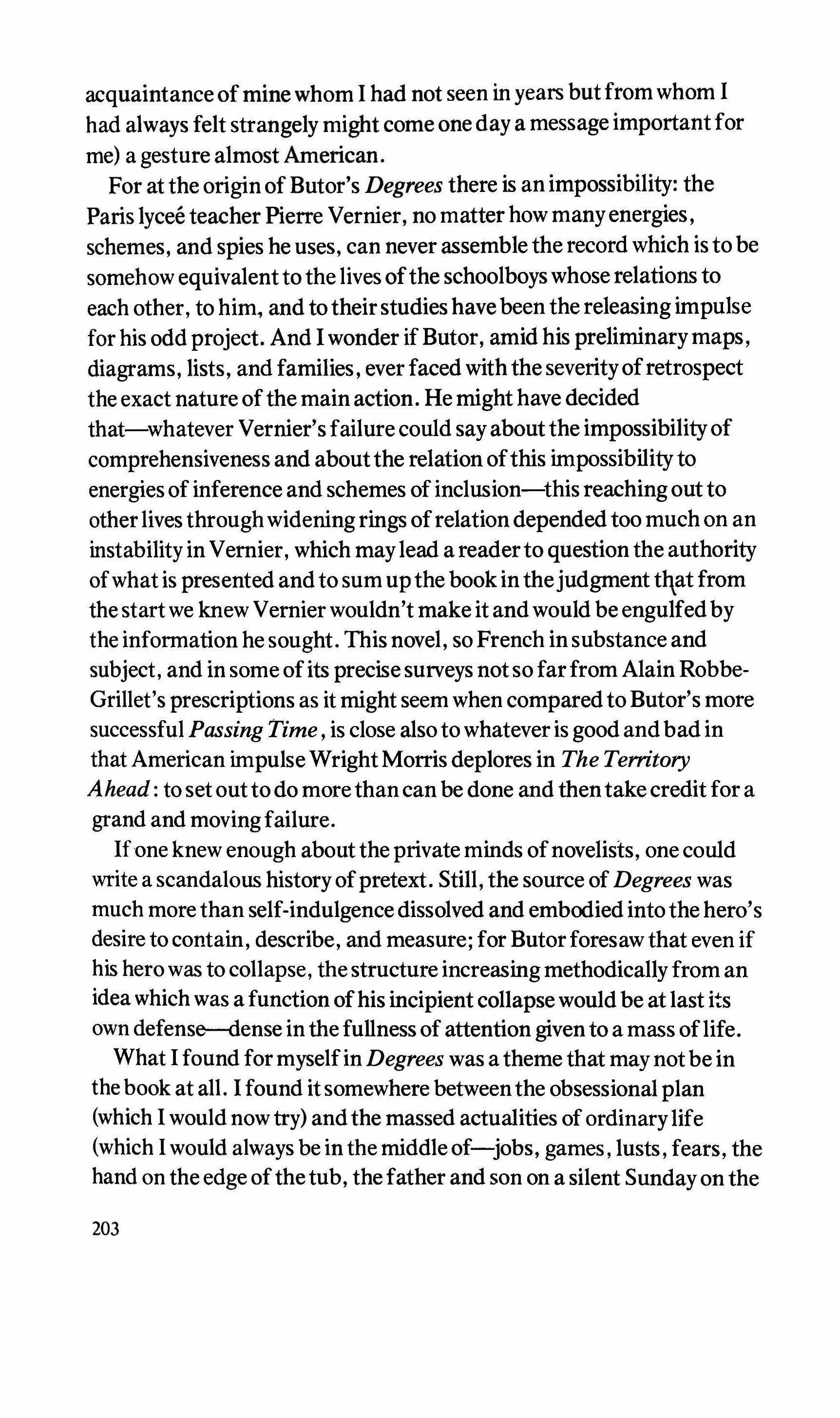
acquaintanceofmine whom I had not seen in years butfrom whom I had always felt strangelymight come one day a message important for me) a gesture almost American.
For at the origin of Butor's Degrees there is an impossibility: the Paris lycee teacher Pierre Vernier, no matter how manyenergies, schemes, and spies he uses, can never assemble the record which is to be somehow equivalent to the lives ofthe schoolboyswhose relations to each other, to him, and to their studies havebeen the releasing impulse for his odd project. And I wonder if Butor, amid his preliminarymaps, diagrams, lists, and families, ever faced withthe severityofretrospect the exact nature ofthe main action. He might have decided that-whatever Vernier's failure could say aboutthe impossibilityof comprehensiveness and aboutthe relation ofthis impossibility to energies ofinference and schemes of inclusion-this reaching out to otherlives throughwideningrings ofrelationdepended too much on an instability in Vernier, which maylead a readerto question the authority ofwhat is presented and to sum up the bookinthejudgmenttqat from the start we knew Vernier wouldn't make it andwould be engulfedby the information he sought. This novel, so French insubstance and SUbject, and in some ofits precise surveys not so farfrom Alain RobbeGrillet's prescriptions as it might seem when compared to Butor's more successful Passing Time, is close also to whatever is good andbad in that American impulseWright Morris deplores in The Territory Ahead: to set outto do more than can be done and thentake credit for a grand and movingfailure.
If one knew enough about theprivate minds ofnovelists, one could write a scandalous history ofpretext. Still, the source of Degrees was much more than self-indulgencedissolved and embodied intothehero's desire to contain, describe, and measure; for Butor foresaw that even if his hero was to collapse, the structure increasingmethodicallyfrom an ideawhich was a function ofhis incipientcollapse would be at last its own defense-dense inthefullness of attention given to a mass oflife. What I found formyselfin Degrees was a theme that may not be in the book at all. I found itsomewhere betweenthe obsessional plan (which I would now try) andthe massed actualities ofordinarylife (which I would always be in the middle of-jobs, games, lusts, fears, the hand on the edge ofthetub, thefather and son on a silent Sunday on the
203

Brooklyn Heights docks staring up at the draping arc of a greasy hawser to the high rustybow of a South American freighter). Thetheme I found between seemed to require a certain abstraction in thestyle ofits statement: and this theme was the powerful and mysterious coexistence ofcontinuity and discontinuity.
Easy to say.
Continuity, discontinuity, each in the other.
The attentive reader wouldbeforced to have both. The eight segments ofA Smuggler'sBible would be equal memories but sequenced chapters; islands but interpenetrations; fresh-found independencesyet at the same time collaborativevoices ofthe narrator's suppliant, tyrannical identity.
There would be gaps. There must be. And I had never liked all those natural, graceful transitions. I accepted gaps.
Was I confusingform with its chaotic SUbject? Almost, but not quite. A near-mandala, someone said? Pieces ofeight? Parody of a first novel? Why not.
But then-and here is what mayget me backto Outside and Inside if not to the girl in New Hampshire-Ibegan to fill the gaps. Not onlywith a very audible sort ofdialectic fight inside the narrator, featuring the attempt of one manic and electronic-seemingpart to rulethe rest (and makethe book go on and on, proliferate its sections and multiplythe lurking coherences amongthem). More important, more risky, the style ofthese gaps in the design grew to contain amongotherlanguages a discursive idiom of explanation. This idiom seemed to go against all I had ever learned. It seemed an unlikely, undramatic idiom, of course confined to verysmall portions ofthe book. It seemed also to invite the charge that I was faking connections that were nowhere nearly as much there as the reader was intended to think; i.e., A Smuggler'sBible didn't come together, so I had to explain ittogether.
Yet I acknowledgedthis all along; I never hid the gaps. Their fillings even advertised them. And these ambiguous interstitial attempts to bringpartsexplicitlytogether (or also to keep them apart as in Nicholas Mosley'sImpossibleObject) were not even undramatic in the context of a strugglefor control ofthe narrator's personality.
But in one respect I didn't understand what I was doing; and so intense were the tentacles ofaggressiveness and intimacy in thesebridge
204
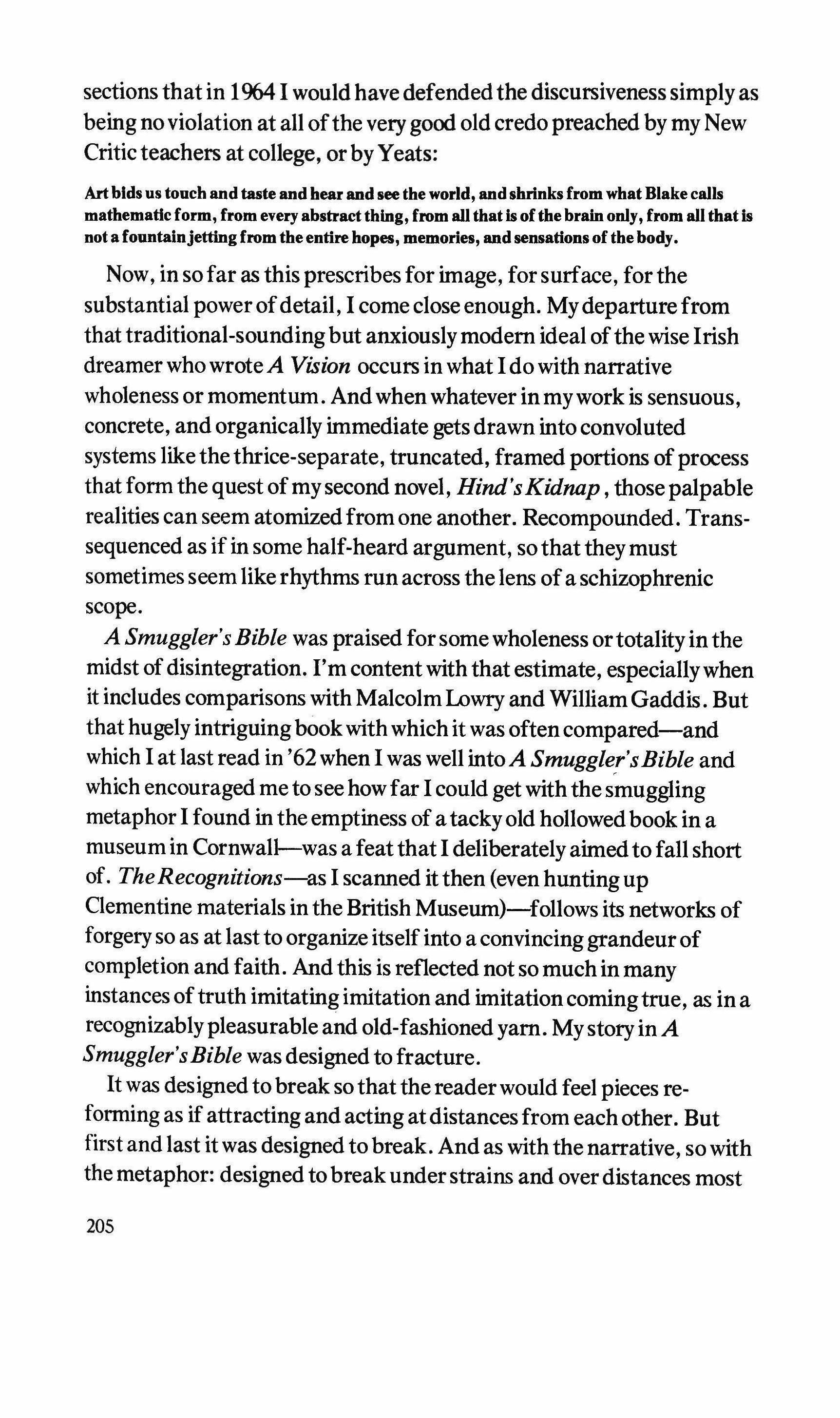
sections that in 1964 I would have defended the discursiveness simply as being no violation at all ofthe verygood old credo preachedby my New Criticteachers at college, or byYeats:
Art bids us touch and taste and hear and see the world, and shrinks from what Blake calls mathematic form, from every abstract thing, from aU that Is of the brain only, from all that Is not a fountainjettlng from the entire hopes, memories, and sensations of thebody.
Now, in so far as this prescribes for image, for surface, forthe substantial powerofdetail, I come close enough. Mydeparture from that traditional-sounding but anxiously modern ideal ofthe wise Irish dreamerwho wroteA Vision occurs in what I dowith narrative wholeness or momentum. Andwhen whatever in mywork is sensuous, concrete, and organically immediate gets drawn into convoluted systems like thethrice-separate, truncated, framed portions of process that form the quest ofmy second novel, Hind'sKidnap those palpable realities can seem atomized from one another. Recompounded. Transsequenced as if in some half-heard argument, so thatthey must sometimes seem like rhythms run across the lens of a schizophrenic scope.
A Smuggler'sBible was praised for some wholeness or totalityin the midst of disintegration. I'm content with that estimate, especiallywhen it includes comparisons with Malcolm Lowry and WilliamGaddis. But that hugelyintriguingbookwithwhich it was oftencompared-and which I at last read in '62 when I was well intoA Smuggler'sBible and which encouraged me to see howfar I could get withthesmuggling metaphor I found in theemptiness of a tackyold hollowedbook in a museum in Cornwall-was a feat that I deliberatelyaimed to fall short of. TheRecognitions-as I scanned it then (evenhunting up Clementine materials in the British Museum)-follows its networks of forgery so as at last to organizeitself into a convincinggrandeur of completion and faith. And this is reflected not so muchin many instances oftruth imitatingimitation and imitationcomingtrue, as in a recognizablypleasurable and old-fashioned yarn. Mystory in A Smuggler'sBible was designed to fracture. It was designed to break so that the readerwould feel pieces reforming as if attracting and acting atdistancesfrom eachother. But first and last it was designed to break. And as with the narrative, so with the metaphor: designed to break under strains and over distances most 20S
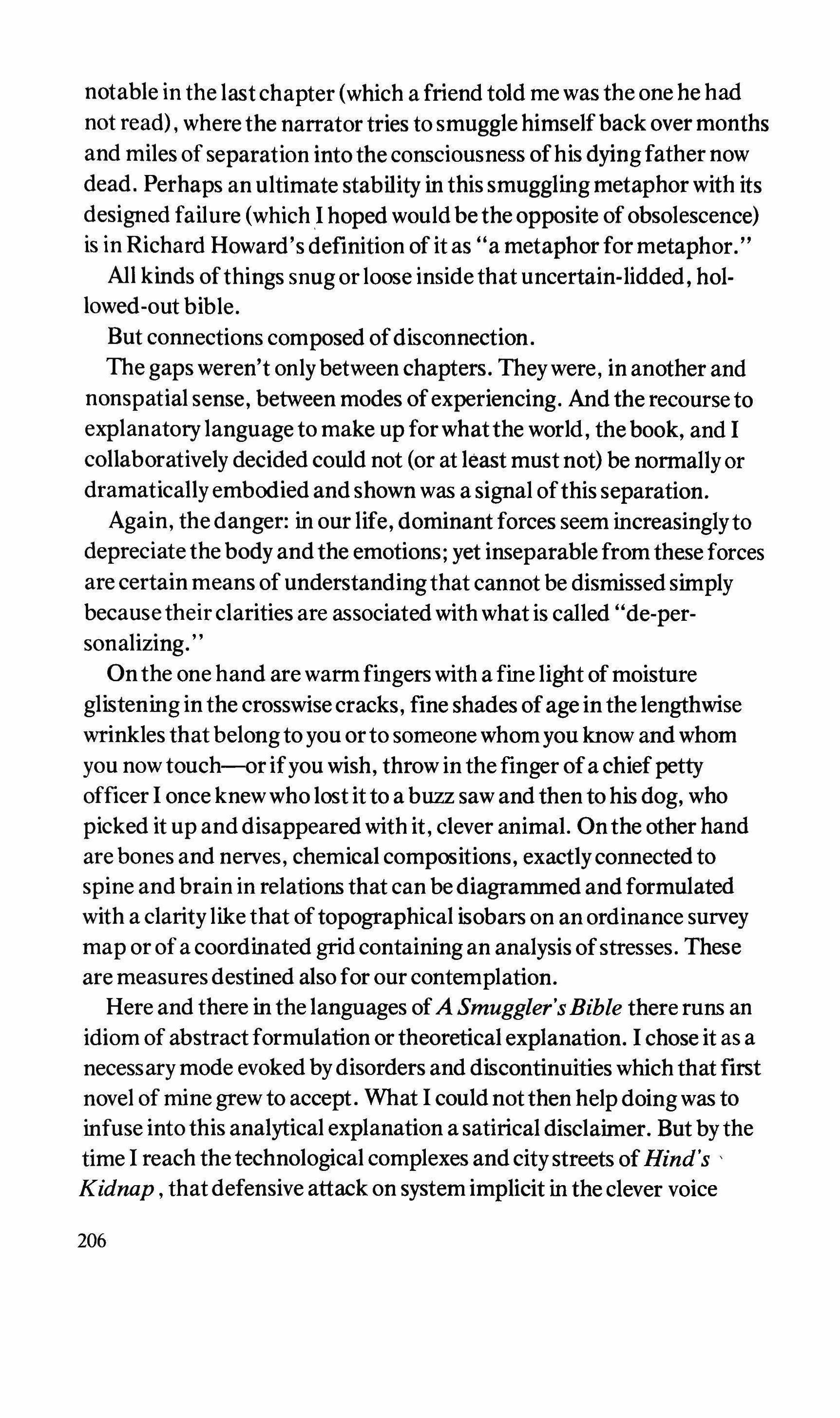
notable in the lastchapter (which a friend told me was the one he had not read). where the narrator tries to smuggle himself back over months and miles of separation intothe consciousness ofhis dyingfather now dead. Perhaps an ultimate stability in this smugglingmetaphor with its designed failure (which I hoped wouldbe the opposite ofobsolescence) is in Richard Howard's definition ofit as "a metaphor for metaphor."
All kinds ofthings snugorloose inside that uncertain-lidded, hollowed-out bible.
But connections composed ofdisconnection.
The gaps weren't onlybetween chapters. They were, in another and nonspatial sense, between modes ofexperiencing. And the recourse to explanatorylanguage to make up forwhatthe world, thebook, and I collaboratively decided could not (or at least must not) be normally or dramaticallyembodied and shown was a signal ofthis separation.
Again, the danger: in our life, dominant forces seem increasinglyto depreciate the body andthe emotions; yet inseparablefromthese forces are certain means of understandingthat cannot be dismissed simply because theirclarities are associatedwith what is called "de-personalizing.
Onthe one hand are warm fingers with a fine light ofmoisture glistening inthe crosswise cracks, fine shades ofage in thelengthwise wrinkles that belongto you or to someone whomyou know and whom you now touch-or ifyou wish, throw in thefinger of a chiefpetty officer I once knewwho lost it to a buzz saw and then to his dog, who picked it up and disappeared with it, clever animal. Onthe other hand are bones and nerves, chemical compositions, exactlyconnected to spine and brain in relations that can bediagrammed and formulated with a claritylike that oftopographical isobars on an ordinance survey map or of a coordinated gridcontaining an analysis ofstresses. These are measures destined also for our contemplation.
Here and there in the languages ofA Smuggler'sBible there runs an idiom of abstract formulation or theoretical explanation. I chose it as a necessary mode evoked bydisorders and discontinuities which that first novel of mine grew to accept. What I could notthen helpdoing was to infuse into this analytical explanation a satirical disclaimer. But bythe time I reach thetechnologicalcomplexes andcitystreets ofHind's Kidnap. that defensive attack on systemimplicit in theclever voice
206

computingthe dominationof mysmuggler narrator in thebridge-gaps ofthe Bible has been absorbed into a more homogeneouslanguage. This absorption is notto be confused with what happens inthe last bridge oftheearlierbook. There the manic-repressive-electro-enselfoid voice fails in its plotto bethe narrator's "principalpart." And it subsides or disperses into a silencethat leaves David Brooketogetherreadyto find and re-create and successfullyfail to reach his dead father. But I wanted the readerto feel thevoice was not dead, would emerge again and again-thismanipulativevoice, grandiose, energetic, and (ifin a different mood yet under a valuation quitelikethat ofJohn Barth in Giles Goat-Boy) electronic.
Inevitablytheterrain, traffic, neural neighborhoods, and systematic America of Hind'sKidnap would be seen as some formofsatire. But thelanguage ofthebook is subtlerthanthat. Andthough in my notes (alwaysjust one step behind the next chapter, which opened infront like a vacuum pushingfrom behind) Ijotted structures ofimages and words, I never formulated for myselfthedifference between satire and what I was doing. I could no more merelyregret and attack systems of cityseparation and organizationalmetamorphosis and stultification than I could cast the reverse-simplifications ofmy "city-pastoral" into anythingthat assertedthe old pastoralimagery.
I was finding a way through some oftenneologisticallypun-corrupted Missing Persons SuperAnalodigitalexigraph. I wanted compositionthat would not denythe impersonal clarities ofmodern systems any more thandenywhat's reallytouched in GarySnyder's" Some Things to Be Said forthe Iron Age." And here inHind'sKidnap, thedefined edges and measured processes bywhich, between Kant and Kierkegaard, my hero set out-to dekidnapplaces, persons, memories, memory, himself, and a real child differentfromhimself-were not a satirical target at all. One reader spokeofprecise, detached shots ofcity existence; another ofthelanguagedevelopingtoward what could be called a modeofthought. These were what I was after.
My sentences gotlonger in Hind'sKidnap, mysyntax more remarkable. Ifound myselftryingto define scenes and objects and the addition of objects and people to scenes, with a coolness ofprecision while simultaneouslysurroundingthem with"an ultimate undecidability." That was the phrase William S. Wilson used-withthe "undecida-
207
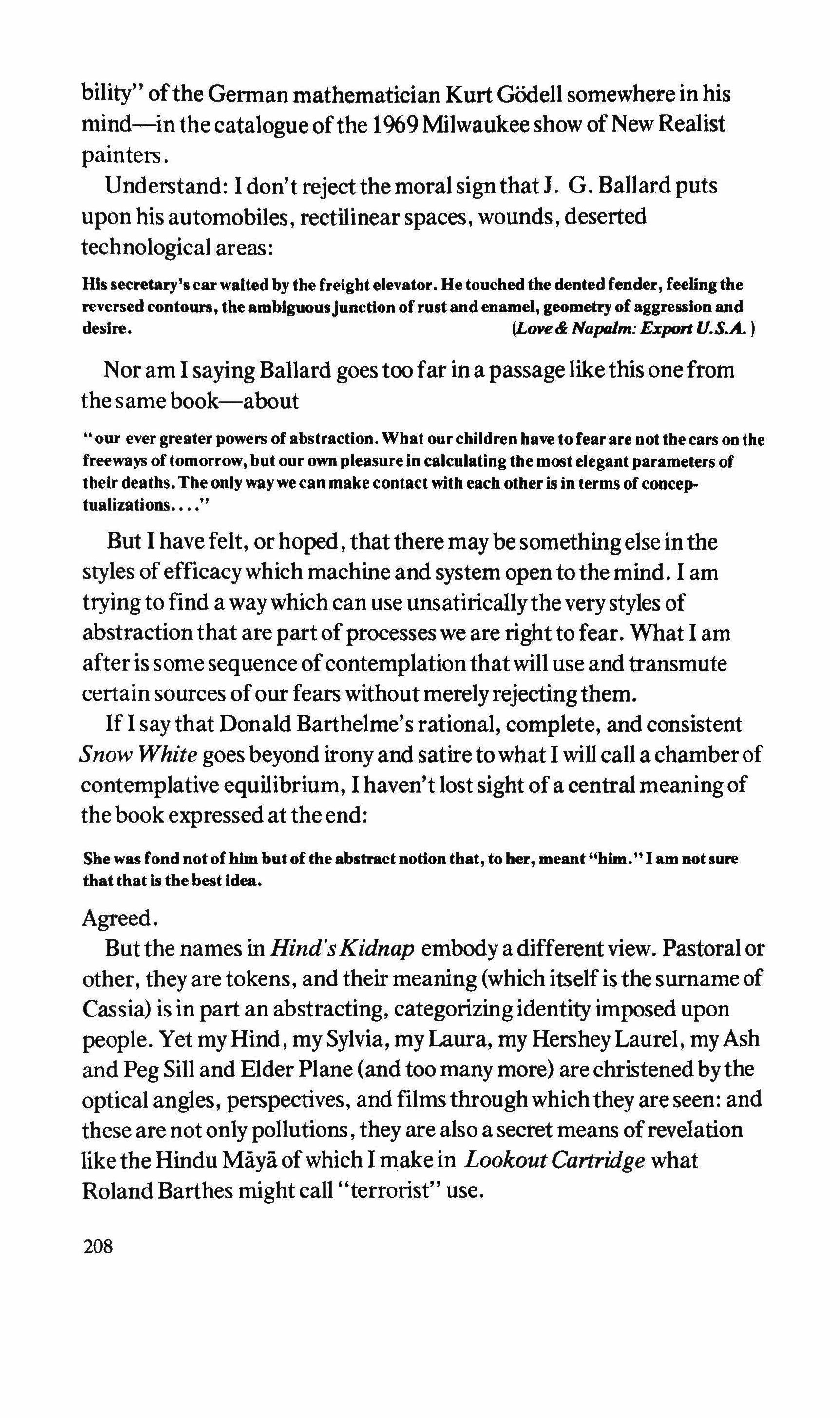
bility" ofthe German mathematician Kurt Godell somewhere in his mind-in the catalogue ofthe 1969 Milwaukee show of New Realist painters.
Understand: I don't reject the moral signthatJ. G. Ballard puts upon his automobiles, rectilinear spaces, wounds, deserted technological areas: His secretary's car waited by the freight elevator. He touched the dented fender, feeUng the reversed contours, the ambiguousjunction of rust and enamel, geometry of aggression and desire. (Love& NapGlm:Expon U.S.A. )
Nor am I saying Ballard goes too far in a passage likethis one from the same book-about "our ever greater powers of abstraction. What our children have to fear are not the cars on the freeways of tomorrow, but our own pleasure in calculating the most elegant parameters of their deaths. The only way we can make contact with each other is in terms of conceptualizations
But I have felt, or hoped, that there may be somethingelse in the styles ofefficacywhich machine and system open to the mind. I am trying to find a way which can use unsatiricallytheverystyles of abstractionthat are part of processes we are right to fear. What I am after is some sequence ofcontemplation thatwill use and transmute certain sources of our fears withoutmerelyrejectingthem.
If I say that Donald Barthelme's rational, complete, and consistent Snow White goes beyond irony and satire to what I will call a chamberof contemplative equilibrium, I haven't lost sight of a central meaning of the book expressed at the end:
She was fond not of him but of the abstract notion that, to her, meant "him." I am not sure that that Is the best Idea.
Agreed.
But the names in Hind'sKidnap embody a different view. Pastoral or other, they are tokens, and their meaning (which itself is the surname of Cassia) is in part an abstracting, categorizingidentityimposed upon people. Yet my Hind, my Sylvia, my Laura, my HersheyLaurel, my Ash and Peg Sill and Elder Plane (and too many more) are christenedbythe optical angles, perspectives, and films through which they are seen: and these are not onlypollutions,they are also a secret means ofrevelation like the Hindu Maya ofwhich I make in Lookout Cartridge what Roland Barthes might call "terrorist" use.
208
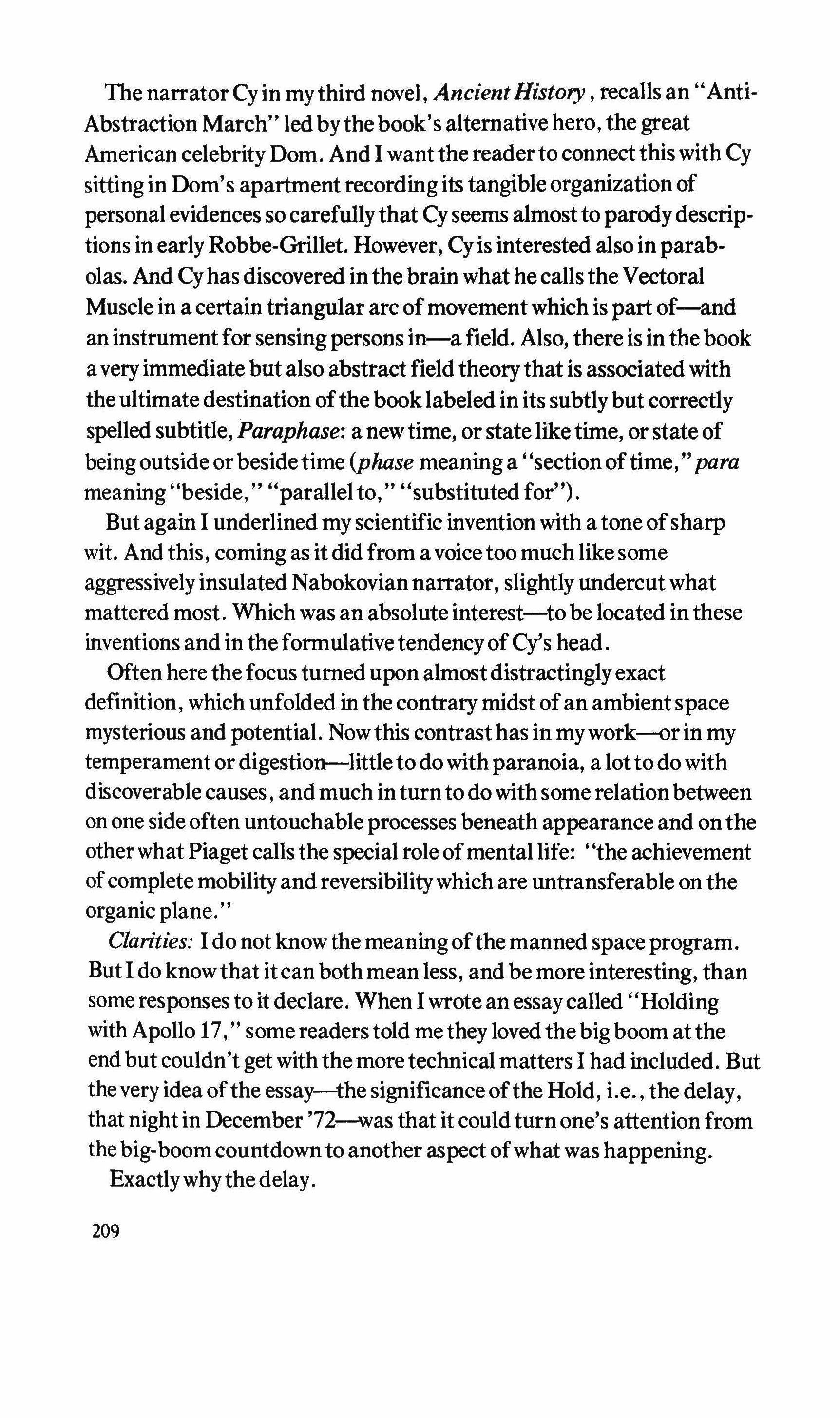
The narrator Cy in mythird novel, AncientHistory, recalls an AntiAbstraction March" led bythe book's alternative hero, the great American celebrity Dom. And I want the readerto connect this with Cy sittingin Dom's apartmentrecordingits tangibleorganization of personal evidences so carefullythat Cy seems almostto parodydescriptions in early Robbe-Grillet, However, Cyis interested also in parabolas. And Cyhas discovered inthe brain what hecallsthe Vectoral Muscle in a certain triangular arc ofmovement which is part of-and an instrumentfor sensingpersons in-afield. Also, there is inthebook a very immediate but also abstractfield theorythat is associated with theultimate destination ofthe booklabeled in its subtlybutcorrectly spelled subtitle, Paraphase: a newtime, or state liketime, or state of beingoutside or besidetime (phase meaning a "sectionoftime,"para meaning "beside," "parallelto," "substituted for").
But again I underlined my scientific invention with a tone ofsharp wit. And this, coming as itdid from a voicetoo much like some aggressivelyinsulated Nabokoviannarrator, slightly undercut what mattered most. Which was an absolute interest-to be located inthese inventions and in theformulative tendencyof Cy's head.
Often here thefocus turned upon almostdistractingly exact definition, which unfolded in thecontrary midst of an ambient space mysterious and potential. Nowthis contrast has in mywork-or in my temperament or digestion-littleto do withparanoia, a lotto do with discoverable causes, and much inturn to dowith some relationbetween on one sideoften untouchable processes beneath appearance and on the otherwhat Piaget calls the special roleofmental life: "the achievement ofcompletemobility and reversibilitywhich are untransferable on the organicplane."
Clarities: I do not knowthe meaningofthe manned space program. But I do knowthat it can both mean less, and be more interesting, than some responses to it declare. When I wrote an essaycalled "Holding with Apollo 17, some readerstold me they lovedthebig boom at the end but couldn't get with the more technical matters I had included. But the very idea ofthe essay-thesignificance ofthe Hold, i.e., the delay, that night in December '72-was that it couldturn one's attention from the big-boom countdown to another aspect ofwhat was happening.
Exactlywhythedelay. 209

Also, a great field ofprocess not confined to one narrative drama beingwatched from the Press Site.
Understand me: the night launch ofApollo 17 made me want to believe inGod, made mydazzled eyes and chest imaginegrand collaborations in our universe.
But ifthe delay made one look at that white rocket repressurizing out there on the pad lit up by a crisscross of xenon searchlights like waterstreams-and feel like Robert Frost's watchers "Neither Out Far Nor In Deep"-it also disappointed one's theatrical expectations and could make one think about facts. This was whatthe astronauts were thinking about, and the people at the Launch Control computers, and the people servicingthe rocket. The machines and howtheywork. The forces theyenlist and the forces themachines counteract and defend against.
Mypoint is that too often this central substance ofspacetechnology is ignored in favorofblast-offkitsch metaphysics (like Norman Mailer's instant Manicheeism), or dubiouslyknowledgeable satire againstthe militaryfictions ofthe science-industrial complex. I put inthis category, though thebook professes brains not space, William Hjortsberg's GrayMatters, whichbrilliantlycontrives not comic deflationthat may come from real experiencebut, instead, sensational humorreleased by an unwillingness to give further attention to a complicatedsubject. This unwillingness is akin to e. e. cummings' predictable"Spacebeing (don'tforget to remember) curved."
There is much to fear, and I don'tdismiss Robert Lowell's doomsdayphrase" Space is nearer" (theparticularoccasion ofwhich isthe excavation of an underground garage in Boston Common). But what is the immediate nature ofthis experiencecoming out ofNASA for a layman? Much ofit is as tangible as the lunar divining rod on theApollo service module, though much thatis beautifullymeasurable is as far outside the capacity of our senses as theelectronic soundingsthatthe divining rod is there to take.
In May 1973 I went backto CapeKennedy for Skylab. Ifthere were fewerpictures and magnificent charts for the press this trip thanfor ApolIo 17, and fewer press observers (and far fewersightseers), stillthe people I talked to seemed more knowledgeablethan thecrowd in December 1972. Theyseemed to have done some homework inthe main
210

Skylab manual, so much more complexly detailed than any ofthe handouts for Apollo 17. Excitement seemed more precise, as if a tone had been partlyset by the nineteen students whose experiments had been picked for Skylab out of 3,400 high school entries.
Gallium arsenide is a crystal semi-conductor used in solid-state electronics; in the vacuum ofspace we maybe able to growcrystals whose perfectelasticity and conductivity will revolutionizetiming devices, for instance in hospitals. But also, contemplatethecrystal as an emblem ofthe kind of attention I am urging: for crystallinity is the extent to which theoutward and visibleform ofthis solid has been controlled byits atomic structure. And lettrue imagination growfrom truth.
Yet imagination here must jump such ineffable distances offaith and instrumentationthat we will often find ourselves losingthe full authority of our physical senses. And perhaps the greatest singlething at Cape Kennedy, the Vehicle AssemblyBuilding, can seem as elusive as it is gigantically present. In the VAB (525 feet high, 518 wide, 716 long, on piles 160 feet deep) we may look aroundfor a verger or a revelation; the VAB is perhapsthebuilding ofthecentury. Inthe light ofits grids of 70,000 squarefeet ofmuted translucent panels, thesizes and scales of low and high bays may seem to cloud function with magic or some intimation of ecclesiastical history, and from the concrete ground or downthrough the steel mesh along a thirty-fourth-floor catwalkthe transfer aisle may look like a nave.
However, what interested the English sculptorChristopher Sanderson in his quest forvalid structures were certain real relations between equipment and space. Threemagisteriallymobile bridge cranestwo with a hook height of462 feet, one with 166--ride their overhead tracks like giantcoordinates. Service-platformenclosures-infinitely adjustable up or down-house rockets likeballistic barrels, or truncate so that from above a boosterbecomes a stackfor a factory or a liner. As ifthe designers recalled (and reversed)the human tapering of pueblodoors, each 456-foot high-bay door is an inverted T to accommodate not onlythe vertical rocket moving out toward the launch pad butthe vast crawlerthat carries it. The VAB in its own crystalclarity is the inner and visible structure of an outward and limitless conception.
211
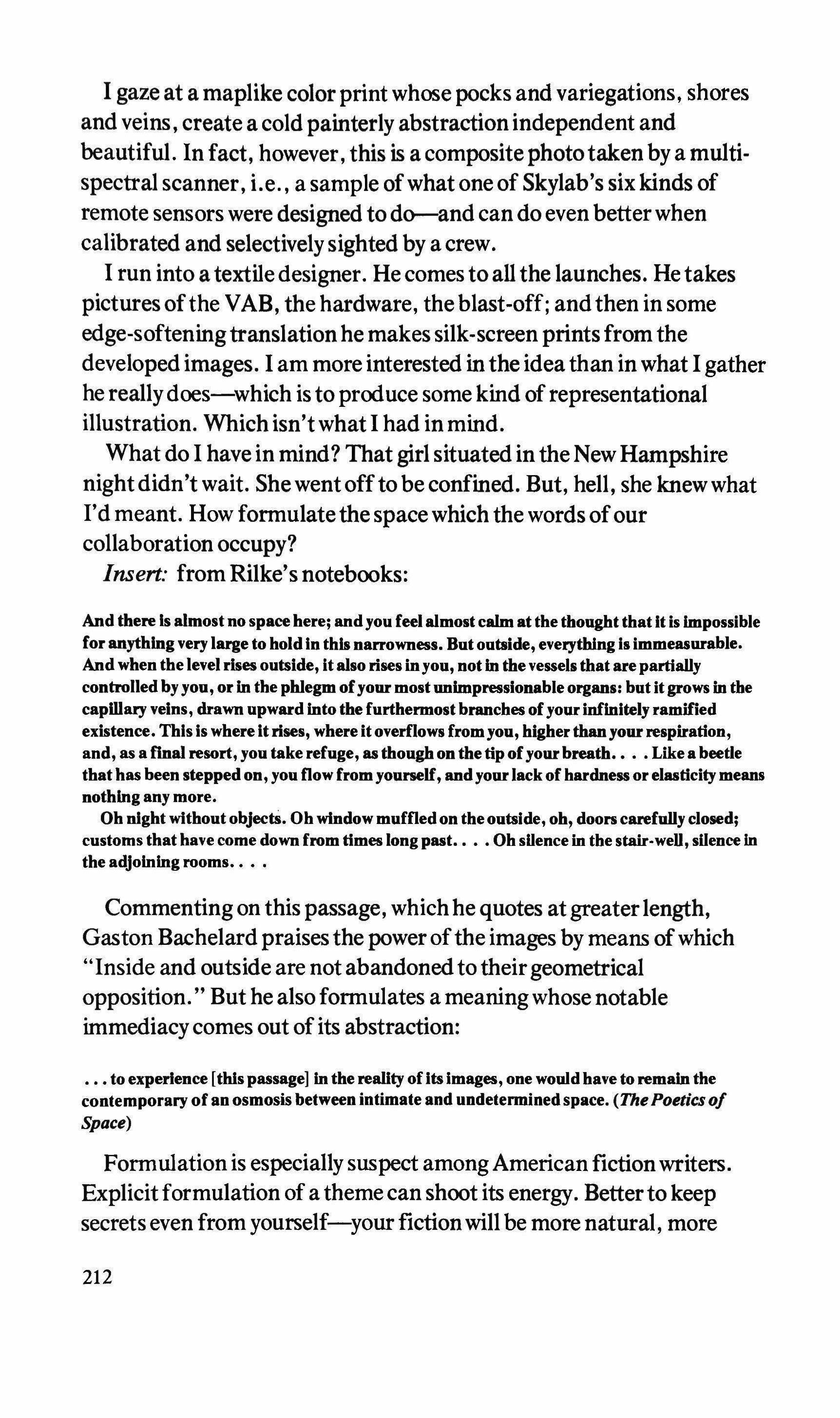
I gaze at a maplike color print whose pocks and variegations. shores and veins, create a cold painterly abstractionindependent and beautiful. In fact, however, this is a compositephototaken by a multispectral scanner, i.e., a sample ofwhat one of Skylab's six kinds of remote sensors were designed to do--and can do even betterwhen calibrated and selectivelysighted by a crew.
I run into a textile designer. He comes to all the launches. He takes pictures ofthe VAB, the hardware, the blast-off; andthen in some edge-softeningtranslationhe makes silk-screen prints from the developedimages. I am more interested inthe ideathan in what I gather he reallydoes-which is to produce some kind ofrepresentational illustration. Which isn'twhat I had in mind.
What do I have in mind? That girl situated in the NewHampshire nightdidn't wait. She went offto be confined. But, hell, she knewwhat I'd meant. How formulatethe space which the words of our collaboration occupy?
Insert: from Rilke's notebooks:
And there Is almost no space here; andyou feel almost calm at the thought that it is impossible for anything very large to hold in this narrowness. But outside, everything Is immeasurable. And when the level rises outside, it also rises inyou, not in thevessels that are partially controlled by you, or in the phlegm ofyour most unimpressionable organs: but it grows in the capmary veins, drawn upward into the furthermost branches ofyour infinitely ramified existence. This is where Itrises, where it overflows fromyou, higherthanyour respiration, and, as a final resort, you take refuge, as though on thetip ofyour breath Like a beetle that has been stepped on, you flow fromyourself, andyour lack of hardness or elasticity means nothing any more.
Oh night without obJectS. Oh window muffled on the outside, oh, doors carefullyclosed; customs that have come down from times long past Oh sUence In the stair-weD, sUence In the adjoining rooms
Commenting on this passage, which he quotes at greaterlength, Gaston Bachelard praisesthe power ofthe imagesby means ofwhich "Inside and outside are not abandonedto theirgeometrical opposition." But he also formulates a meaningwhose notable immediacy comes out ofits abstraction:
to experience [thispassage] in the reality of its images, one wouldhave to remain the contemporary of an osmosis between intimate and undetermined space. (ThePoetics0/ Space)
Formulation is especiallysuspect amongAmerican fictionwriters. Explicitformulation of a theme can shoot its energy. Betterto keep secrets even from yourself-your fictionwill be more natural, more
212
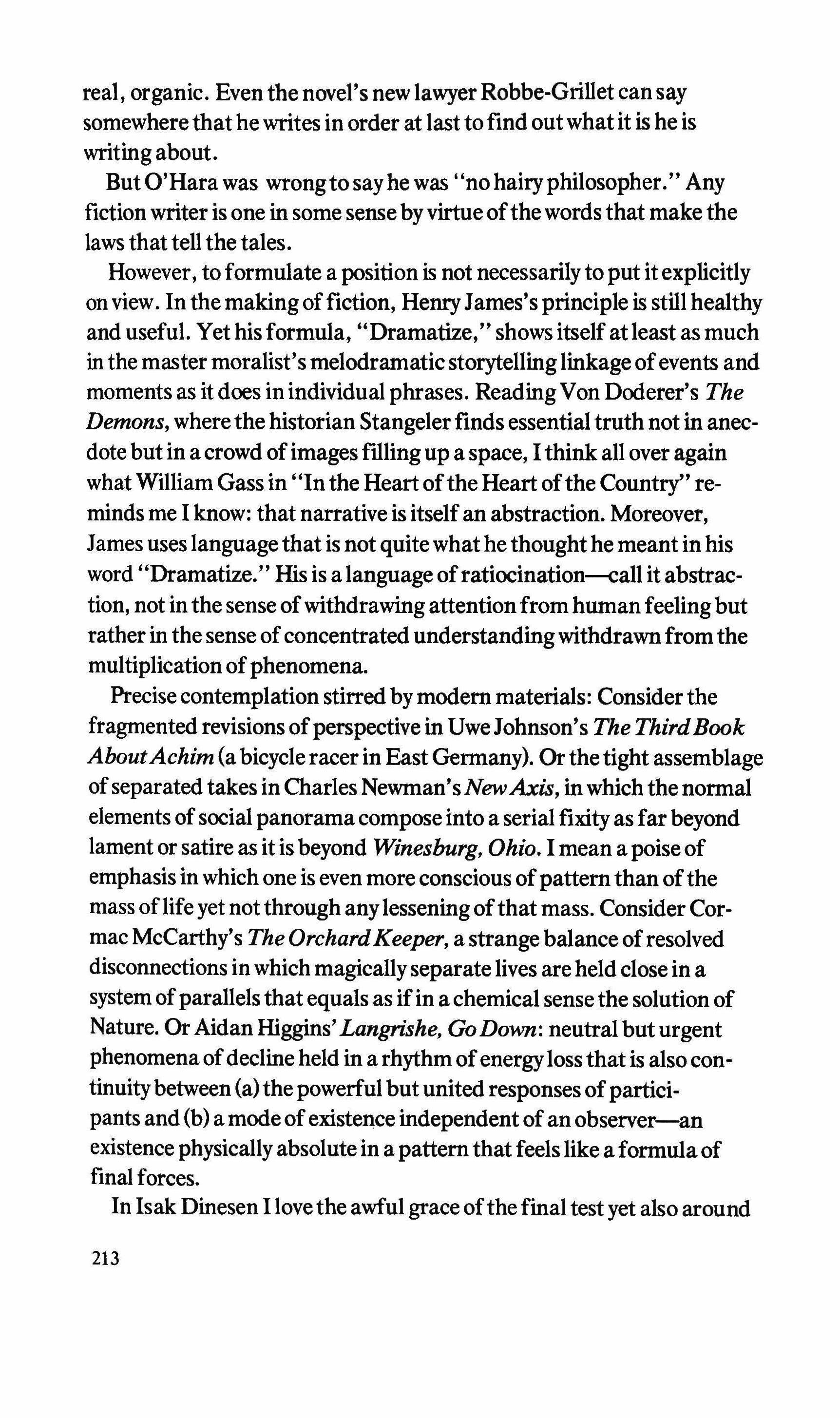
real, organic. Even the novel's new lawyerRobbe-Grillet can say somewhere thathe writes in order at last to find out what it is he is writing about.
But O'Hara was wrongto sayhe was "no hairyphilosopher." Any fiction writer is one in some sense by virtue ofthe words that make the laws thattell the tales.
However, to formulate a position is not necessarily to put itexplicitly on view. In the making offiction, HenryJames's principle is still healthy and useful. Yet hisformula, "Dramatize," shows itself at least as much in the master moralist's melodramaticstorytellinglinkage ofevents and moments as it does in individual phrases. ReadingVon Doderer's The Demons, wherethe historian Stangelerfinds essential truth not in anecdote but in a crowd ofimagesfilling up a space, I think all over again what William Gass in "Inthe Heart ofthe Heart ofthe Country" reminds me I know: that narrative is itself an abstraction. Moreover, James uses languagethat is not quitewhathe thought he meant in his word "Dramatize." His is a language ofratiocination----call it abstraction, not in the sense ofwithdrawing attentionfrom human feelingbut rather in the sense ofconcentrated understandingwithdrawn from the multiplicationofphenomena.
Precise contemplation stirred bymodem materials: Consider the fragmented revisions ofperspective in UweJohnson's The ThirdBook AboutAchim (abicycle racer in East Germany). Orthetightassemblage ofseparated takes in Charles Newman's NewAxis, in whichthenormal elements ofsocial panorama compose into a serial fixity as far beyond lament or satire as it is beyond Winesburg, Ohio. I mean a poise of emphasis in which one is even more conscious ofpattern than ofthe mass oflifeyet not through anylesseningofthat mass. Consider Cormac McCarthy's The OrchardKeeper, a strange balance ofresolved disconnections inwhich magicallyseparate lives are held close in a system ofparallelsthat equals as ifin a chemical sense the solution of Nature. Or Aidan Higgins'Langrishe, GoDown: neutral but urgent phenomenaofdecline held in a rhythm ofenergyloss that is also continuitybetween (a)the powerful but united responses of participants and (b) a mode ofexistence independent of an observer-an existence physically absolute in a pattern that feels like a formulaof final forces.
In Isak Dinesen I lovethe awful grace ofthe final test yet also around
213
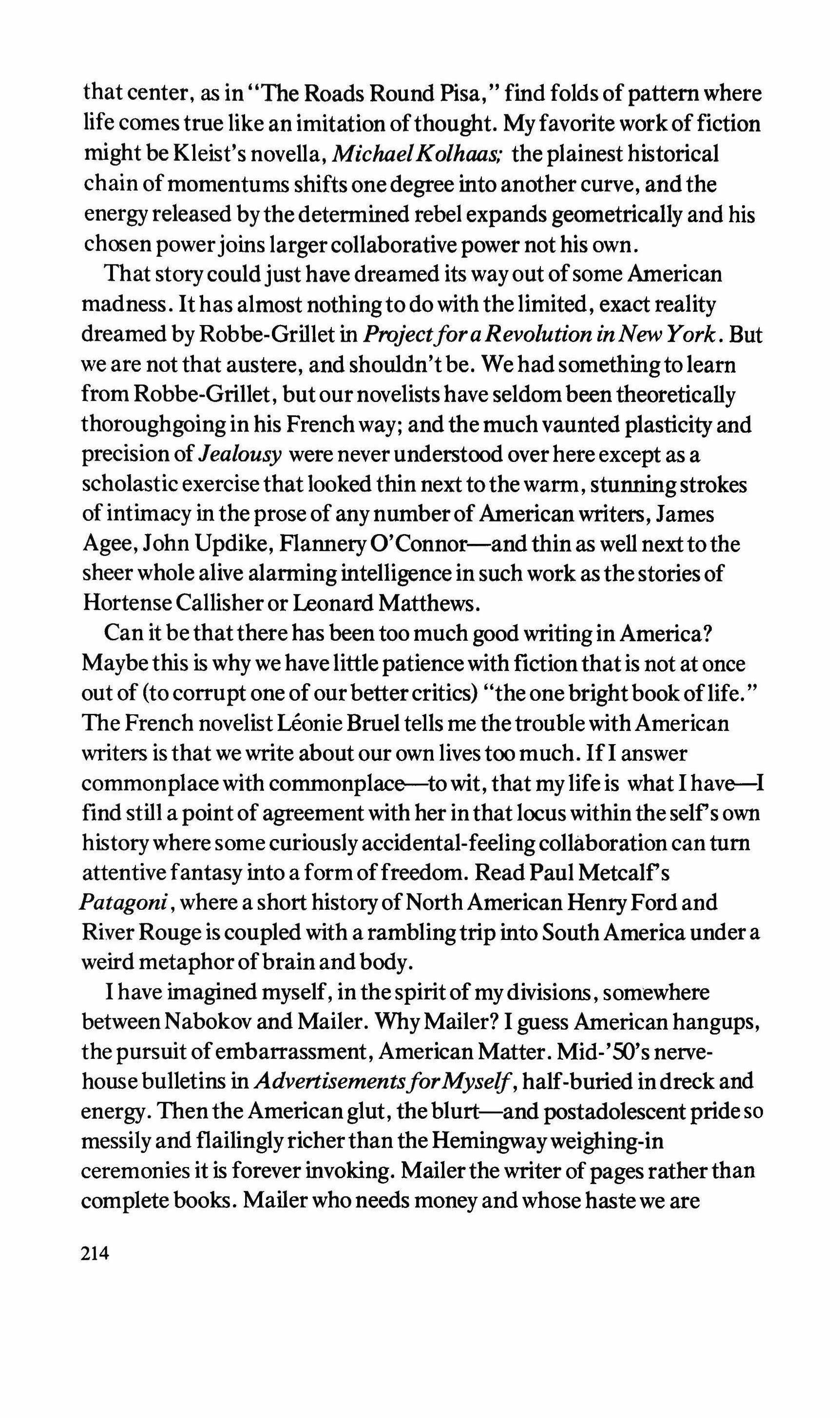
that center, as in "The Roads Round Pisa, find folds of pattern where life comes true like an imitation ofthought. Myfavorite work offiction might be Kleist's novella, MichaelKolhaas; the plainest historical chain ofmomentums shifts one degree into another curve, andthe energy released bythe determined rebel expands geometrically and his chosen powerjoins largercollaborative power not his own.
That storycouldjust have dreamed its way out of some American madness. Ithas almost nothingto do with thelimited, exact reality dreamed by Robbe-Grillet in ProjectforaRevolution inNew York. But we are not that austere, and shouldn'tbe. We had somethingto learn from Robbe-Grillet, but our novelists have seldombeen theoretically thoroughgoing in his French way; and the much vaunted plasticity and precision ofJealousy were never understood over here except as a scholastic exercise that looked thin next to the warm, stunningstrokes ofintimacy in the prose of any numberofAmerican writers, James Agee, John Updike, FlanneryO'Connor-and thin as well nexttothe sheer whole alive alarmingintelligence in such work as thestories of Hortense Callisher or Leonard Matthews.
Can it bethatthere has been too much goodwritingin America? Maybethis is why we havelittlepatiencewith fictionthatis not at once out of (to corrupt one of our bettercritics) "the one brightbook oflife. The French novelistLeonie Bruel tells me thetrouble withAmerican writers is that we write about our own lives too much. IfI answer commonplacewith commonplace-towit, that my life is what I have-I find still a pointof agreementwith her in that locuswithin the selfsown history where some curiouslyaccidental-feelingcollaboration can tum attentive fantasy into a form offreedom. Read Paul Metcalfs Patagoni, where a short historyofNorth American HenryFord and River Rouge is coupled with a ramblingtrip into South America under a weird metaphor ofbrain andbody.
I have imaginedmyself, in thespiritof mydivisions, somewhere between Nabokov and Mailer. Why Mailer? I guess American hangups, the pursuit ofembarrassment , American Matter. Mid-'SO'snervehousebulletins in AdvertisementsforMyself, half-buried indreck and energy. Thenthe Americanglut, theblurt-and postadolescentpride so messily and flailinglyricherthan the Hemingwayweighing-in ceremonies it is forever invoking. Mailerthe writer of pages ratherthan complete books. Mailer who needs money and whose haste we are
214
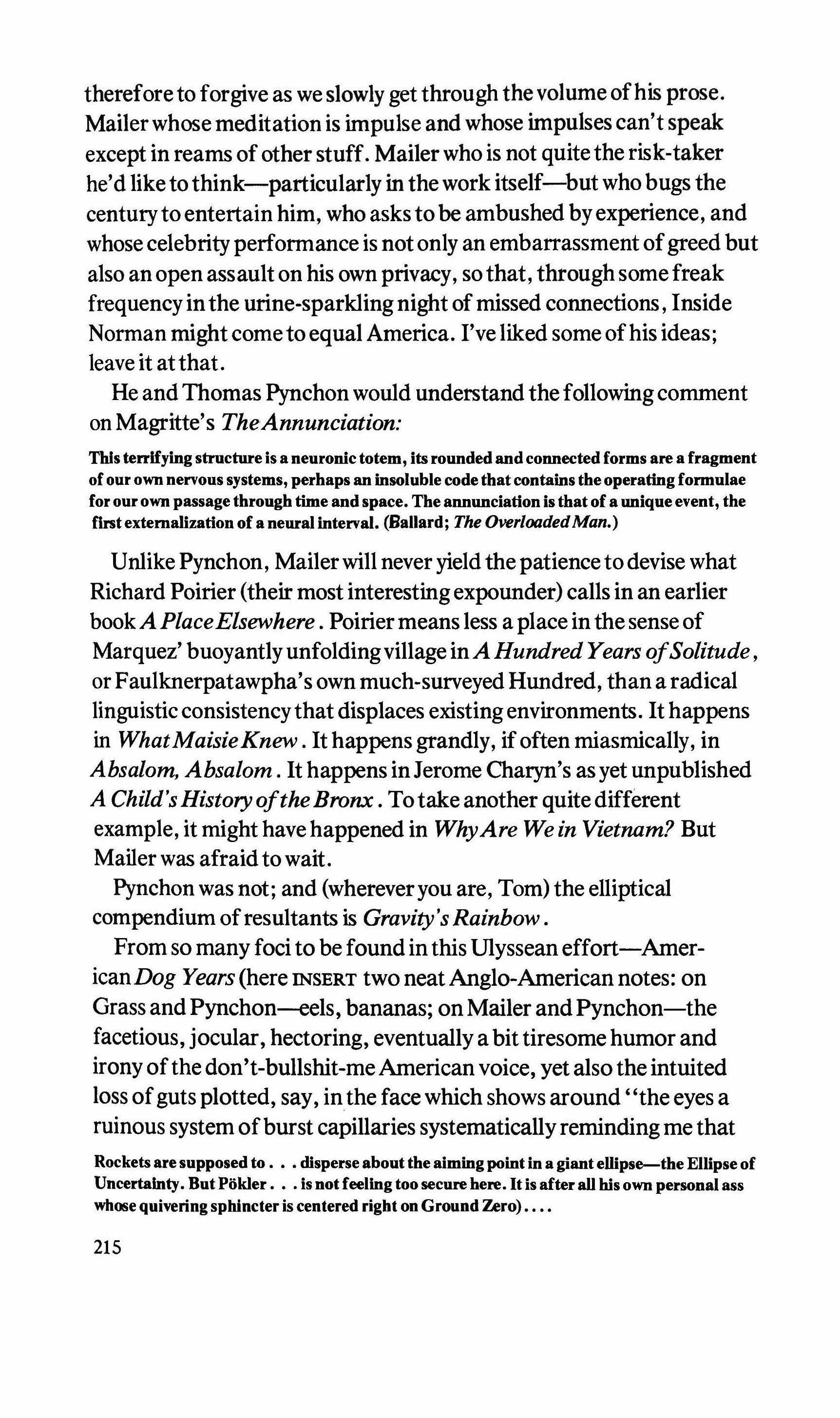
therefore to forgive as we slowly getthrough thevolume ofhis prose. Mailerwhose meditation is impulse and whose impulses can't speak except in reams ofotherstuff. Mailer who is not quitethe risk-taker he'd liketo think-particularlyin thework itself-but who bugs the centuryto entertain him, who asks to be ambushed byexperience, and whose celebrityperformance is not only an embarrassment ofgreed but also an open assault on his own privacy, so that, through some freak frequencyinthe urine-sparklingnight ofmissed connections, Inside Norman might come to equal America. I've liked some ofhis ideas; leave it atthat.
He andThomas Pynchon would understand thefollowing comment on Magritte's TheAnnunciation:
ThIsterrifying structure is a neuronic totem, its rounded and connected forms are a fragment of our own nervous systems, perhaps an insoluble code thatcontains theoperating formulae for our own passage through time and space. The annunciation is that of a uniqueevent, the first extemalization of a neural interval. (Ballard; The OverloadedMan.)
Unlike Pynchon, Mailerwill never yield thepatienceto devise what Richard Poirier (their most interestingexpounder) calls in an earlier bookAPlaceElsewhere. Poirier means less a place inthe sense of Marquez'buoyantlyunfoldingvillage inAHundred Years ofSolitude, or Faulknerpatawpha's own much-surveyedHundred, than a radical linguisticconsistencythat displaces existingenvironments. It happens in WhatMaisieKnew. It happensgrandly, if often miasmically, in Absalom, Absalom. It happens inJerome Charyn's as yet unpublished A Child'sHistoryoftheBronx. Totake another quitedifferent example, it might have happened in WhyAre We in Vietnam? But Mailer was afraid to wait.
Pynchon was not; and (whereveryou are, Tom) the elliptical compendium ofresultants is Gravity'sRainbow.
From so many foci to be found inthis Ulyssean effort-AmericanDog Years (here INSERT two neat Anglo-American notes: on Grass andPynchon-eels, bananas; on Mailer andPynchon=the facetious,jocular, hectoring, eventually a bittiresome humor and irony ofthe don't-bullshit-meAmerican voice, yet also theintuited loss ofguts plotted, say, inthe face which shows around''the eyes a ruinous system ofburst capillaries systematicallyreminding me that Rockets are supposed to. disperse about the aimingpoint in a giantellipse-the Ellipse of Uncertainty. But Pokier ••. is not feeling too secure here. It is after all his own personal ass whose quiveringsphincter is centered right on Ground Zero)
215

Iwould instead here single out what for me is thecentral interest in Pynchon's paradoxical patience. I mean somethingbeyond the rocketry'smetaphorical connection with eventual unity andwiththe sexual arc of a death-wish that offers, but may anesthetize and erase the experience of, a whole realityfulfilled in death as Rilke conceives it in the Tenth Elegywhich Pynchon quotes with uncertainforce. No: beyond this, but usingit, as he so often uses difficult knowledgesbinaries divided byinterface, or chemistries divided by a human will to use them and their blank and secret power to use us-isthe deeperthingwhere metaphordissolves into identity, and this huge narrative tries to show forththe process ofwhich human life is an instance; tries to show that process not in order to turn awayfrom our shallow or deep surfaces but to see (or, in some conceptualclaritythat is also our own capillarycollaborationwith them, to breakdown)the plasmic structures of ourselves to find in theirnonetheless continuing life and form their reality. I no more have''patience" withthose who dismiss Gravity'sRainbow for its maze and its subjectmatter, than with those whowould disparagethe twelve-hour length ofRobert Wilson's dance opera, TheLifeand Times ofJosephStalin. In that work, one ofthe greatest created forthe stage inthis century, certain movements often pass so slowlyfrom one side totheotherthat they seem part of a system ofenergywhich includes its own contemplationyetis but partlyemergentsomewhat as the mingledcrescendoes ofspeech at some points in thework are unclearly overheard-in turn likethe atomized fantasia ofscattered events thatconstitute Pynchon's characters in Gravity'sRainbow.
His patience is paradoxical in that it is a potent, intelligent will, yet always driven into some parallel or passivityofobsessiveelaboration. The paranoia so explicit and unsatisfying in all the elusiveness of The CryingofLot49 is here both more analyticallyexplicit* and often not paranoia at all, butthe feeling ofterror and passivitybravelyreturning to theirreal causes in largersystemsthat control while being out of control.
INSERT. Dear Tom: Haveyou read Charles Simic's longpoem White? What mightbe the relation between his use ofWerner Heisenberg's
"'Sothat, seeing a girl on a New York bus with GR in her lap, I would have acknowledged this special companyofGR readers bymurmuring to her, "Have you got up to the 2nd Law of Paranoia yet?" But she got off before me.
216
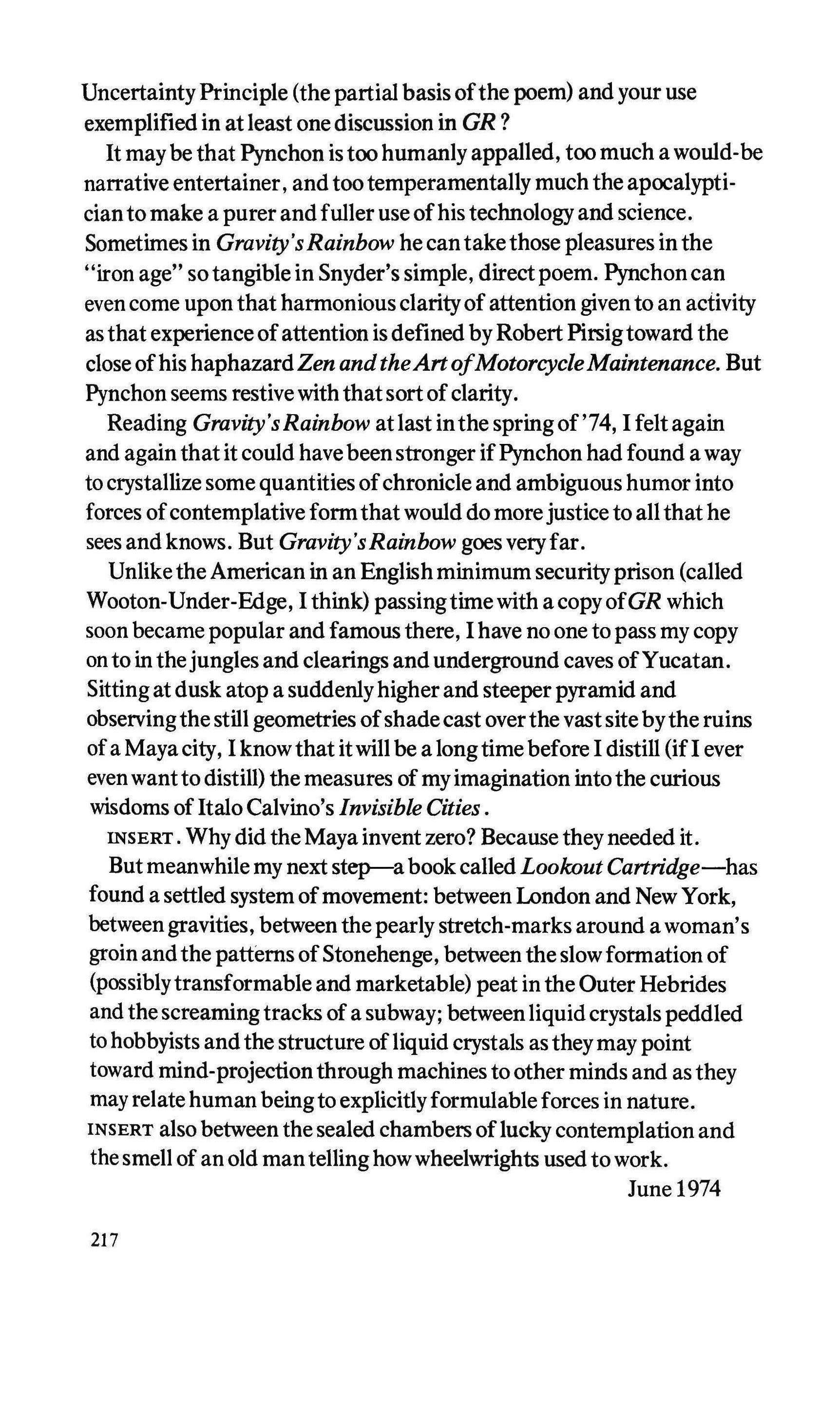
UncertaintyPrinciple (the partial basis ofthe poem) and your use exemplified in at least one discussion in GR?
It may be that Pynchon is too humanlyappalled, too much a would-be narrative entertainer, and too temperamentally much the apocalypticianto make a purer and fuller use ofhis technology and science. Sometimes in Gravity'sRainbow he can takethose pleasures inthe "iron age" so tangible in Snyder'ssimple, directpoem. Pynchon can even come upon that harmonious clarityofattention given to an activity as that experienceofattention is defined byRobert Pirsigtoward the close ofhis haphazardZen andtheArtofMotorcycleMaintenance. But Pynchon seems restivewiththat sort ofclarity.
Reading Gravity'sRainbow atlast inthe springof'74, I feltagain and again thatit could havebeen stronger ifPynchon had found a way to crystallize some quantities ofchronicle and ambiguous humor into forces ofcontemplative formthat would do more justice to allthat he sees and knows. But Gravity'sRainbow goes veryfar.
Unlikethe American in an Englishminimum securityprison (called Wooton-Under-Edge, I think) passingtimewith a copyofGR which soon became popular and famous there, I have no one to pass my copy on to in thejungles and clearings and underground caves ofYucatan. Sitting at dusk atop a suddenlyhigherand steeperpyramid and observingthe still geometries ofshadecast over the vast sitebythe ruins of a Mayacity, I knowthat itwill be a longtimebefore I distill (ifI ever even wantto distill) the measures of myimagination into the curious wisdoms of Italo Calvino's Invisible Cities.
INSERT. Why did theMaya invent zero? Because theyneeded it. But meanwhile my next step-abookcalled Lookout Cartridge-has found a settled system ofmovement: between London and New York, betweengravities, between the pearly stretch-marks around a woman's groin and the patterns ofStonehenge, between theslowformation of (possiblytransformable and marketable) peat in the Outer Hebrides and thescreaming tracks of a subway; betweenliquidcrystalspeddled to hobbyists and the structure ofliquid crystals as theymay point toward mind-projectionthrough machines to other minds and as they may relate human beingto explicitly formulable forces in nature.
INSERT also between thesealed chambers ofluckycontemplation and the smell of an old man tellinghowwheelwrights used to work.
June 1974
217
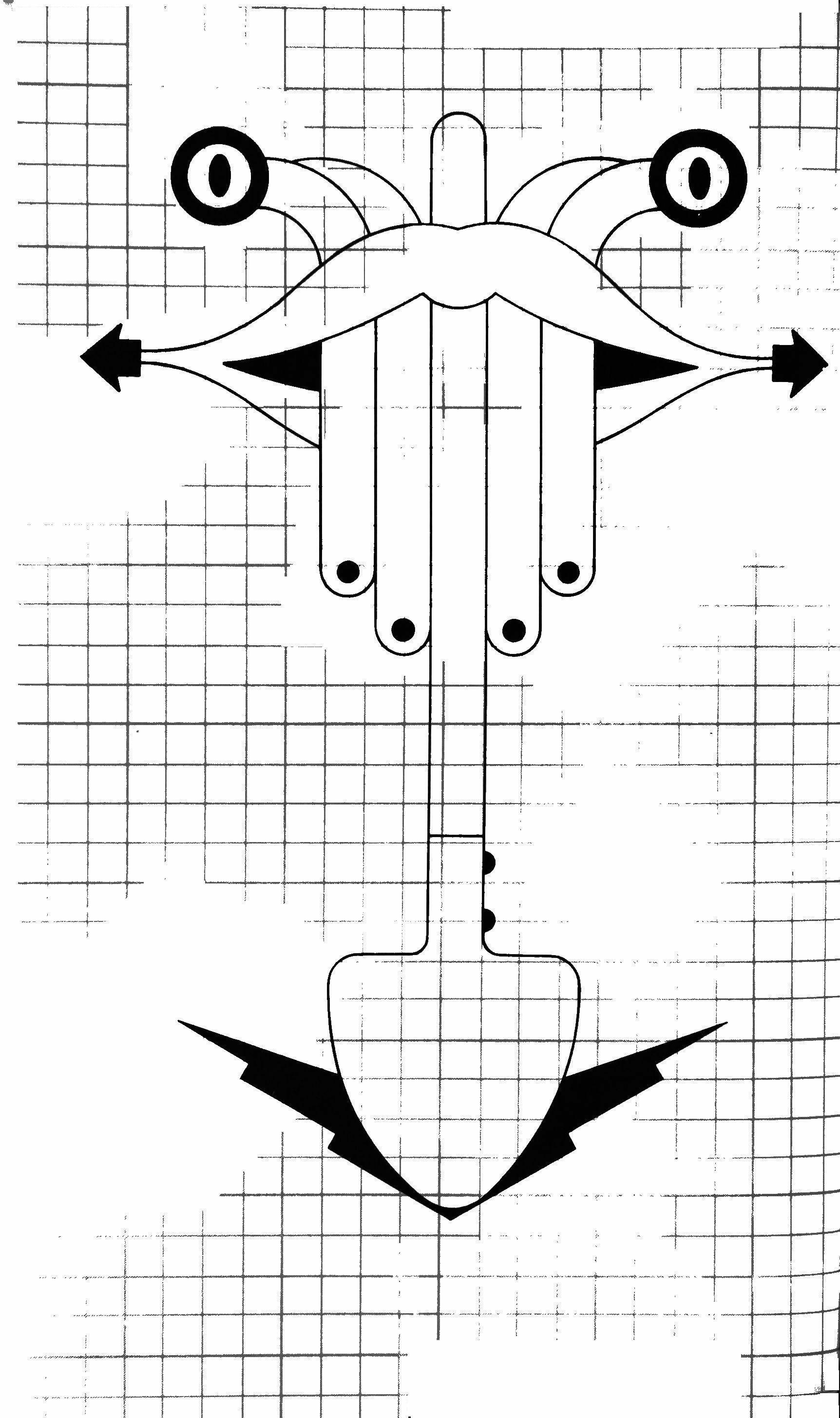
�chaelStephens'superfiction
Jerome KIinkowitz
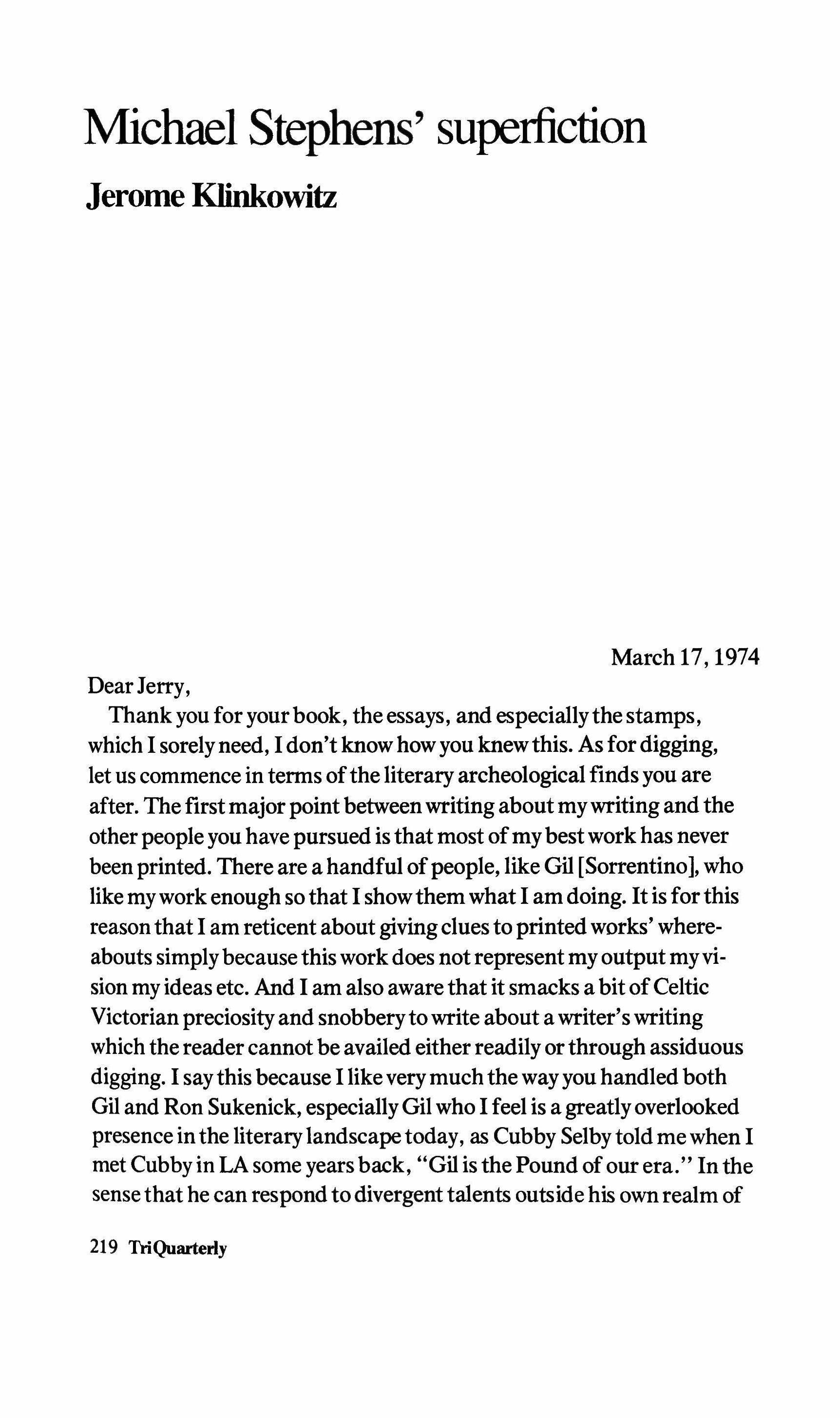
March 17,1974
Dear Jerry,
Thank you foryourbook, the essays, and especiallythe stamps, which I sorelyneed, I don't knowhowyou knewthis. As fordigging, let us commence in terms ofthe literaryarcheological finds you are after. The firstmajorpoint betweenwriting about mywriting and the otherpeople you have pursued is that most ofmybestwork has never been printed. There are a handful ofpeople, like Gil [Sorrentino], who like myworkenough so that I showthemwhat I am doing. It is forthis reason that I am reticent about givingclues to printed works' whereabouts simplybecause thiswork does not represent my output myvision my ideas etc. And I am also aware that it smacks a bitofCeltic Victorian preciosity and snobberyto write about a writer's writing which the reader cannot be availed either readily or through assiduous digging. I saythis because I like verymuchthe wayyou handled both Gil and Ron Sukenick, especially Gil who I feel is a greatlyoverlooked presence inthe literarylandscapetoday, as Cubby Selbytold me when I met Cubby in LA some yearsback, "Gil is the Pound of our era." In the sense that he can respond to divergent talents outsidehis own realm of
219 TriQuarlerly
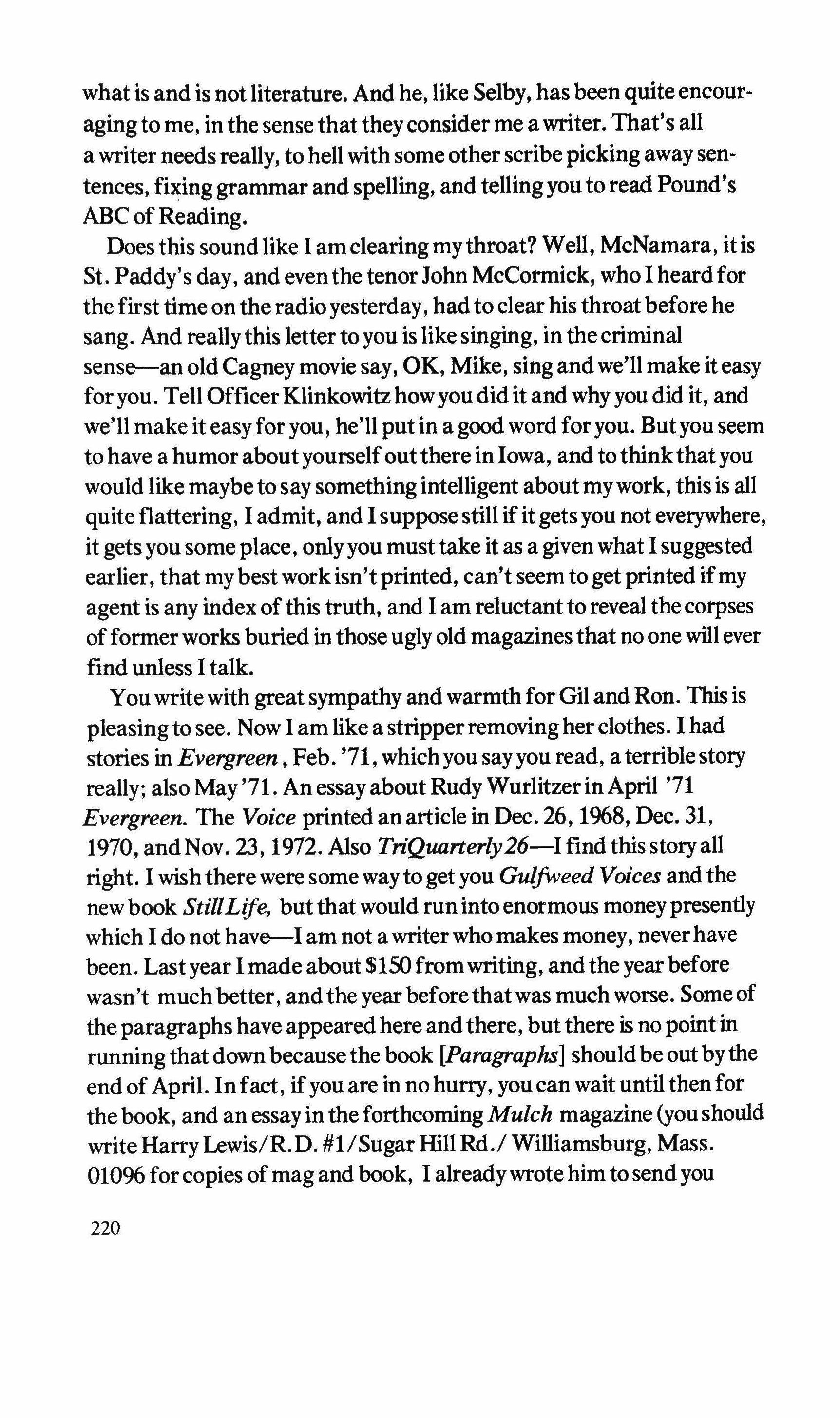
what is and is not literature. And he, like Selby, has been quite encouraging to me, in the sense that theyconsider me a writer. That's all a writer needs really, to hell with some other scribe picking away sentences, fixing grammar and spelling, and telling you to read Pound's ABC ofReading.
Does this sound like I am clearing mythroat? Well, McNamara, itis St. Paddy's day, and even the tenor John McCormick, who I heard for the first time on the radioyesterday, had to clear his throat before he sang. And reallythis lettertoyou is likesinging, in thecriminal sense-an old Cagney movie say, OK, Mike, sing andwe'll make it easy foryou. Tell OfficerKlinkowitz howyoudid it and why you did it, and we'll make it easy for you, he'll put in a good word foryou. Butyou seem to have a humoraboutyourselfoutthere inIowa, and tothinkthatyou would like maybe to say somethingintelligent aboutmywork, this is all quiteflattering, I admit, and I suppose still ifitgetsyou not everywhere, it gets you some place, only you must take it as a given what I suggested earlier, that mybest workisn'tprinted, can't seem togetprinted ifmy agent is any index ofthis truth, and I am reluctant to reveal thecorpses of formerworks buried in those ugly old magazinesthat no one will ever find unless I talk.
You write with greatsympathy and warmth for Gil and Ron. This is pleasing to see. Now I am like a stripperremovingher clothes. I had stories in Evergreen, Feb. '71, whichyou sayyou read, a terriblestory really; also May '71. An essay about Rudy Wurlitzerin April '71 Evergreen. The Voice printed an article in Dec. 26, 1968, Dec. 31, 1970, and Nov. 23, 1972. Also TriQuarterly26-1 find this storyall right. I wish there were some wayto getyou Gulfweed Voices and the new book StillLife, but that would run into enormous money presently which I do not have-I am not a writer who makes money, never have been. Lastyear Imade about $1.50 fromwriting, andthe year before wasn't much better, andthe year beforethat was much worse. Some of the paragraphs have appeared here andthere, but there is no point in running that down becausethe book [Paragraphs] should be out bythe end of April. Infact, ifyou are in no hurry, you can wait untilthen for thebook, and an essay in theforthcoming Mulch magazine(youshould write Harry Lewis/R.D. #1/Sugar Hill Rd.! Williamsburg, Mass. 01096 for copies of mag and book, I already wrote him to send you 220
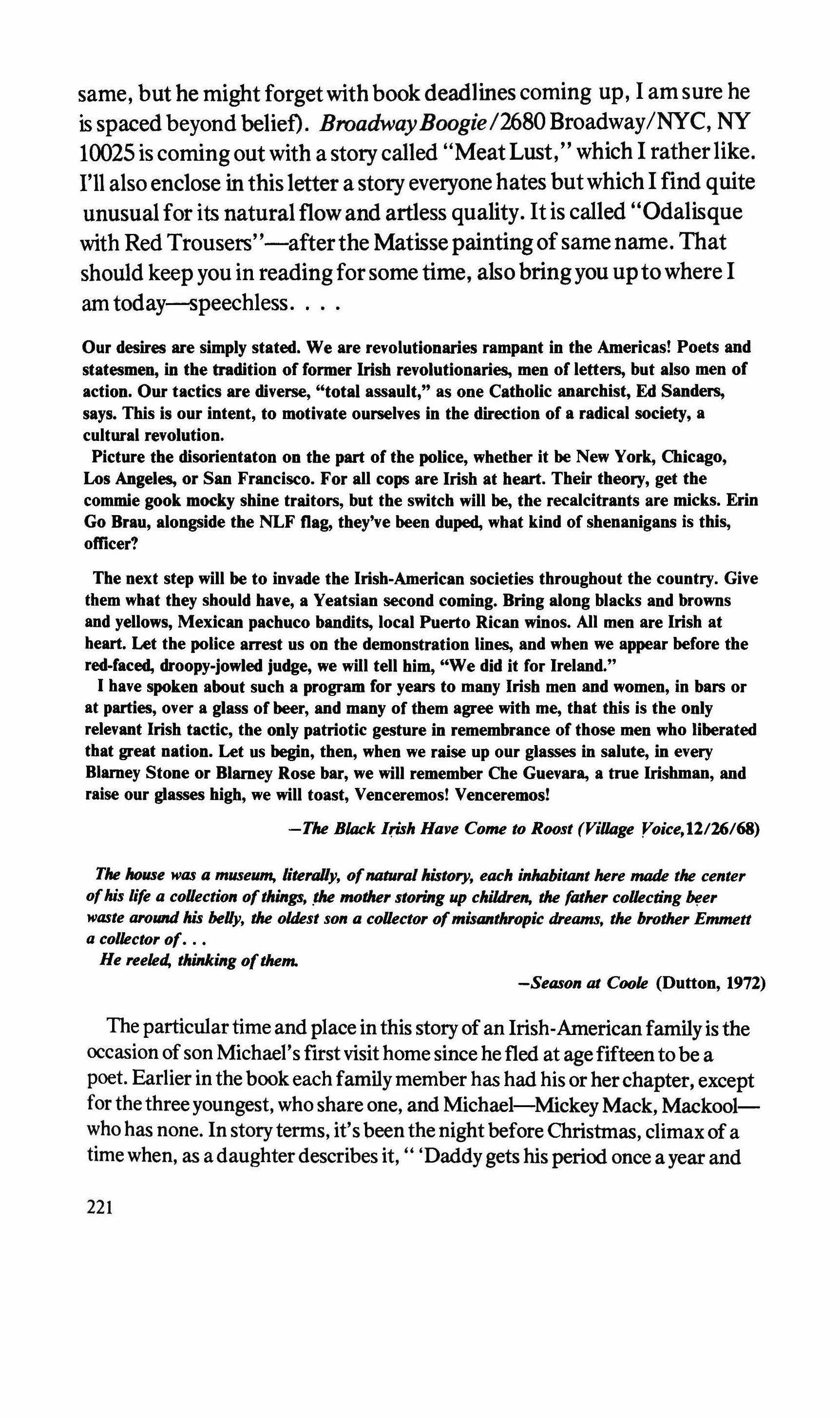
same, but he mightforgetwith book deadlines coming up, I am sure he is spacedbeyond belief). BroadwayBoogie12680 BroadwayINYC, NY 10025 is coming out with a storycalled "MeatLust," which I ratherlike. I'll also enclose in this letter a story everyone hates butwhich I find quite unusual for its natural flow and artless quality. It is called "Odalisque with Red Trousers"-afterthe Matisse paintingof same name. That should keep you in readingfor some time, also bringyou uptowhere I am today-speechless
Our desires are simply stated. We are revolutionaries rampant in the Americas! Poets and statesmen, in the tradition of former Irish revolutionaries, men of letters, but also men of action. Our tactics are diverse, "total assault," as one Catholic anarchist, Ed Sanders, says. This is our intent, to motivate ourselves in the direction of a radical society, a cultural revolution.
Picture the disorientaton on the part of the police, whether it be New York, Chicago, Los Angeles, or San Francisco. For all cops are Irish at heart. Their theory, get the commie gook mocky shine traitors, but the switch will be, the recalcitrants are micks. Erin Go Brau, alongside the NLF flag, they've been duped, what kind of shenanigans is this, officer?
The next step will be to invade the Irish-American societies throughout the country. Give them what they should have, a Yeatsian second coming. Bring along blacks and browns and yellows, Mexican pachuco bandits, local Puerto Rican winos. All men are Irish at heart. Let the police arrest us on the demonstration lines, and when we appear before the red-faced, droopy-jowled judge, we will tell him, "We did it for Ireland."
I have spoken about such a program for years to many Irish men and women, in bars or at parties, over a glass of beer, and many of them agree with me, that this is the only relevant Irish tactic, the only patriotic gesture in remembrance of those men who liberated that great nation. Let us begin, then, when we raise up our glasses in salute, in every Blamey Stone or Blarney Rose bar, we will remember Che Guevara, a true Irishman, and raise our glasses high, we will toast, Venceremos! Venceremos!
-The Block Irish Have Come to Roost (Village Voice,I2126/68)
The house was a museum, literally, ofnatural history, each inhabitont here made the center ofhis life a coUection ofthings, .the mother storing up children, the father collecting beer waste around his beUy, the oldest son a collector ofmisanthropic dreams, the brother Emmett a collector of He reeled, thinking ofthem.
-Season at Coole (Dutton, 1972)
The particular time and place in this storyof an Irish - Americanfamilyisthe occasion of son Michael'sfirstvisithome since hefled at agefifteen to be a poet. Earlier in the book each familymember has had his or herchapter, except for the threeyoungest, who share one, and Michael-MickeyMack, Mackoolwho has none. In storyterms, it'sbeen the night before Christmas, climax of a time when, as a daughterdescribes it, 'Daddygets his period once a year and
221
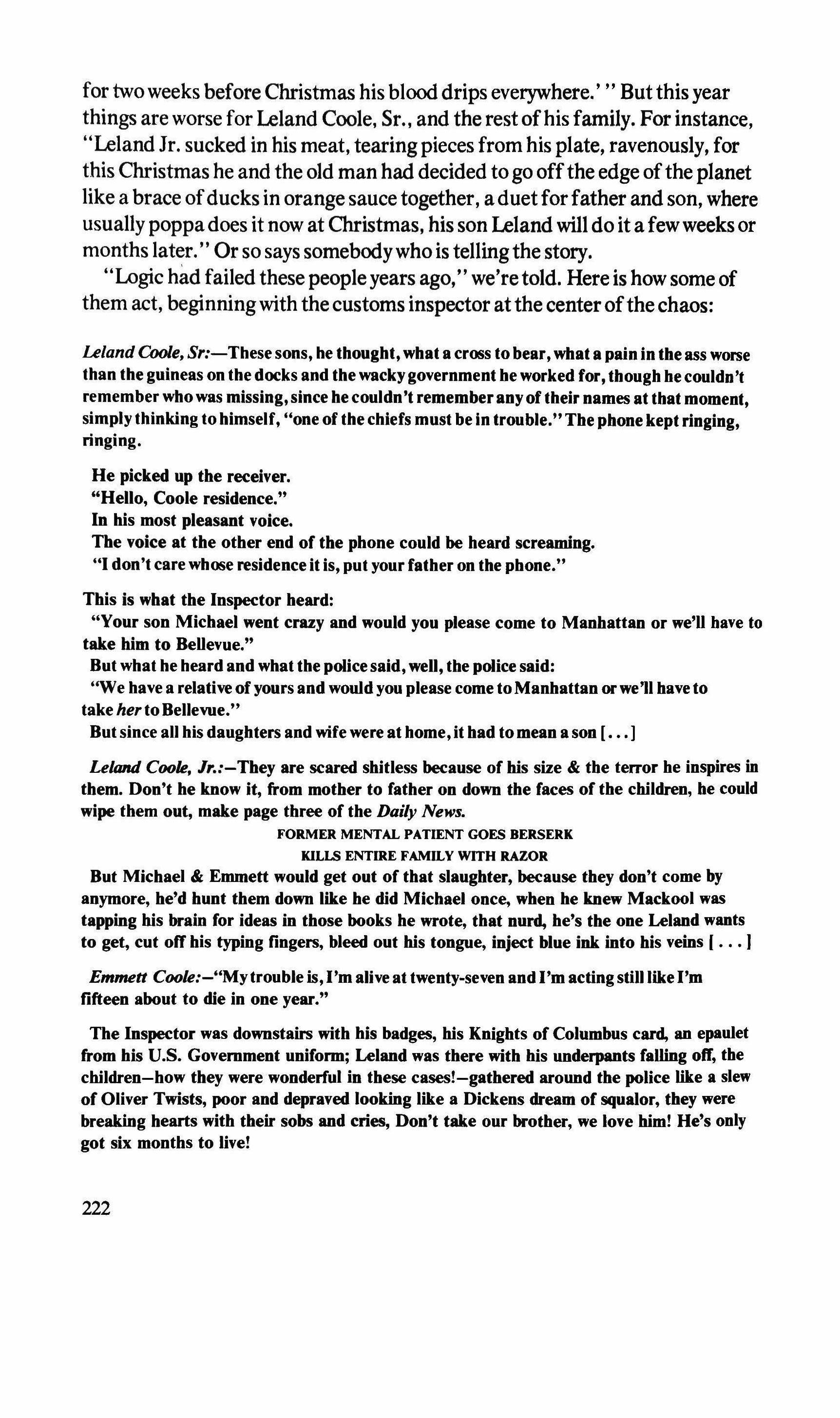
for twoweeks before Christmas his blood dripseverywhere.' But this year things are worse for Leland Coole, Sr., and the rest ofhis family. For instance, "Leland Jr. sucked in his meat, tearingpieces from his plate, ravenously, for this Christmas he and the old man had decided to go offthe edge ofthe planet like a brace ofducks in orange sauce together, a duetforfather and son, where usually poppadoes it now at Christmas, his son Leland will do it a fewweeks or months later." Or so says somebodywho is tellingthe story.
"Logic had failed these peopleyears ago," we'retold. Here is how some of them act, beginningwith the customs inspector atthe center ofthe chaos:
Leland Coole, Sr:-These sons, he thought, what a cross to bear,what a pain in the ass worse than the guineas on the docks and the wackygovernment he worked for,though he couldn't remember who was missing, since he couldn't rememberany of their names at that moment, simplythinking to himself, "one of the chiefs must be in trouble." The phonekeptringing, ringing.
He picked up the receiver.
"Hello, Coole residence."
In his most pleasant voice.
The voice at the other end of the phone could be heard screaming.
"I don't care whose residence it is, put your father on the phone."
This is what the Inspector heard:
"Your son Michael went crazy and would you please come to Manhattan or we'll have to take him to Bellevue."
But what he heard and what the policesaid,well, the police said: ''We have a relative of yours and would you please come toManhattan or we'll have to take her to Bellevue."
But since all his daughters and wife were at home, it had to mean a son [ J
Leland Cook, Ir.:-They are scared shitless because of his size & the terror he inspires in them. Don't he know it, from mother to father on down the faces of the children, he could wipe them out, make page three of the Daily News.
FORMER MENTAL PATIENT GOES BERSERK KILLS ENTIRE FAMILY WITH RAZOR
But Michael & Emmett would get out of that slaughter, because they don't come by anymore, he'd hunt them down like he did Michael once, when he knew Mackool was tapping his brain for ideas in those books he wrote, that nurd, he's the one Leland wants to get, cut otT his typing fingers, bleed out his tongue, inject blue ink into his veins [ J
Emmett Cook:-"Mytrouble is, I'm alive at twenty-seven and I'm acting still like I'm fifteen about to die in one year."
The Inspector was downstairs with his badges, his Knights of Columbus card, an epaulet from his U.S. Government uniform; Leland was there with his underpants falling oft', the children-how they were wonderful in these cases!-gathered around the police like a slew of Oliver Twists, poor and depraved looking like a Dickens dream of squalor, they were breaking hearts with their sobs and cries, Don't take our brother, we love him! He's only got six months to live!
222
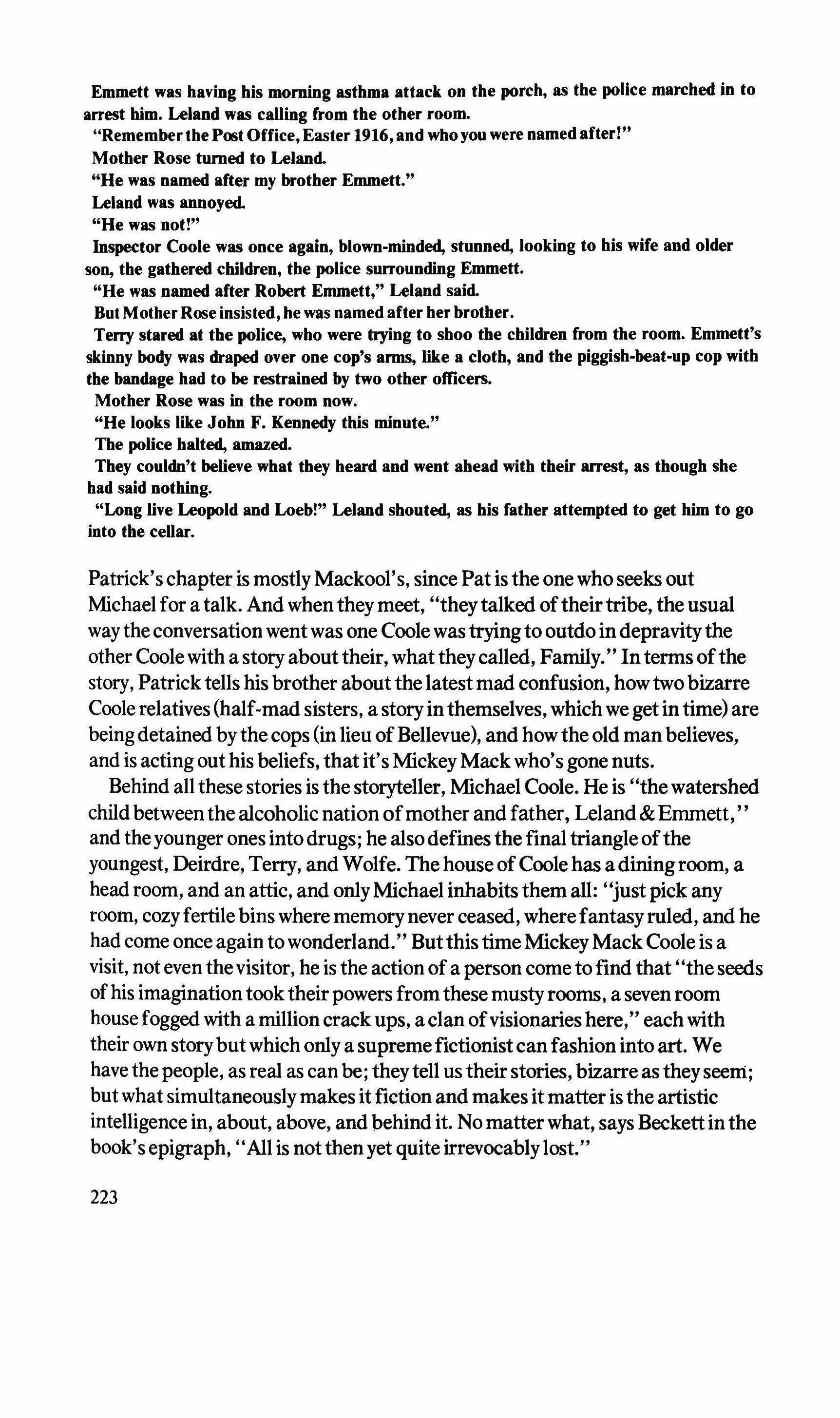
Emmett was having his morning asthma attack on the porch, as the police marched in to arrest him. Leland was calling from the other room.
"Rememberthe Post Office, Easter 1916, and who you were named after!"
Mother Rose turned to Leland.
"He was named after my brother Emmett."
Leland was annoyed.
"He was not!"
Inspector Coole was once again, blown-minded, stunned, looking to his wife and older son, the gathered children, the police surrounding Emmett.
"He was named after Robert Emmett," Leland said.
But Mother Rose insisted, he was named after her brother.
Terry stared at the police, who were trying to shoo the children from the room. Emmett's skinny body was draped over one cop's arms, like a cloth, and the piggish-beat-up cop with the bandage had to be restrained by two other officers.
Mother Rose was in the room now.
"He looks like John F. Kennedy this minute."
The police halted, amazed.
They couldn't believe what they heard and went ahead with their arrest, as though she had said nothing.
"Long live Leopold and Loeb!" Leland shouted, as his father attempted to get him to go into the ceDar.
Patrick's chapter is mostlyMackool's, since Patis the one who seeks out Michael for a talk. Andwhentheymeet, "theytalked oftheirtribe, the usual waytheconversationwent was one Coole was trying to outdoindepravitythe other Coolewith a storyabouttheir, what theycalled, Family." Interms ofthe story, Patrick tells his brother about thelatest mad confusion, howtwo bizarre Coole relatives (half-mad sisters, a storyinthemselves,which we getintime) are beingdetained bythe cops (in lieu ofBellevue), and howthe old man believes, and is acting out his beliefs, that it's MickeyMack who's gone nuts.
Behind all these stories is the storyteller, Michael Coole. He is "thewatershed child betweenthe alcoholic nation ofmother and father, Leland&Emmett," and theyounger ones intodrugs; he alsodefines the final triangleofthe youngest, Deirdre, Terry, and Wolfe. The houseofCoolehas a diningroom, a head room, and an attic, and onlyMichael inhabits them all: "justpick any room, cozy fertile bins where memory never ceased, wherefantasyruled, and he had come once again to wonderland." But thistime MickeyMack Coole is a visit, not even thevisitor, he is the action of a person come to find that "the seeds ofhis imagination tooktheirpowers fromthese musty rooms, a seven room house fogged with a million crack ups, a clan ofvisionarieshere," each with their own storybutwhich only a supremefictionist can fashion into art. We have the people, as real as can be; theytell us their stories, bizarre as theyseem: butwhat simultaneouslymakes it fiction and makes it matter is the artistic intelligence in, about, above, and behind it. No matter what, says Beckettinthe book's epigraph, "All is notthenyetquiteirrevocablylost."
223

Waitingfor Steve Katz in a Spring Streetbar,June 1974
Well, the perversity ofmy own nature is such that I can create a lot of humor out ofmy own personal pains. And so the tone ofSeason at Coole comes out ofthat particular aspect ofmy own personality. When I was writingthe book a lot of people felt I was brutal, and they were upset that my own family resembledtoo much the people in thebook and that it was an offensive act on the writer's part to do that. In factjustthe otherday a doctor I know who comes inthis bar occasionally had read the book, had read it twice, and was very upset about it.
Q. Has yourfamilyread it?
Yeah, my familyhas read it, too. And that's what hewantedto know, and was veryconcerned bythat. And what I was trying to explain to him is that first ofall the members ofmyfamily-myreal family-lived through a correspondentexperience. Itwasn't that actual experience, butthere were enoughthings in itthat were correspondent to it, so that it really was not offensive inthe sense that it was a givenday-to-day realityforthem, to be poorlikethat and to find escape inthatinfighting, and thedrunkenness and drugs and all those otherthings. So it maybe shockingto someone who didn't grow inexperience like that, butto someone whohas lived that every day it's not terriblyshocking, and it's also in anotherwaytriumphant because itshowsthatyou survived it. Ifyou didn't survive it you wouldn't have been ableto write about it.
Myfamilybackground was verymuch Irish-Irish inthe NewYork sense thatthey can reallyrespond to someone writing a book, because language is a cultural heritagetothem, even in an atrophied culture. And there is indigenous to an Irish literarylife a certain kind ofsadness and humor about it, a given in Irish literature fromthe beginning, and I was always very influenced byit. Eventhough myfamily never read that much, there was a built-in mechanism in mymother and fatherto respond to the fact that it was a lyrical achievementthat could transcend any ofthe degraded qualityofthe subject matter.
Later in PeterReginato's Greene Streetstudio/loft, over burned coffee
You know, it's about everyone's family. We're all dissolving. It's an establishment. Itdoes not work anymore. It's a bogus kind ofsystem
224
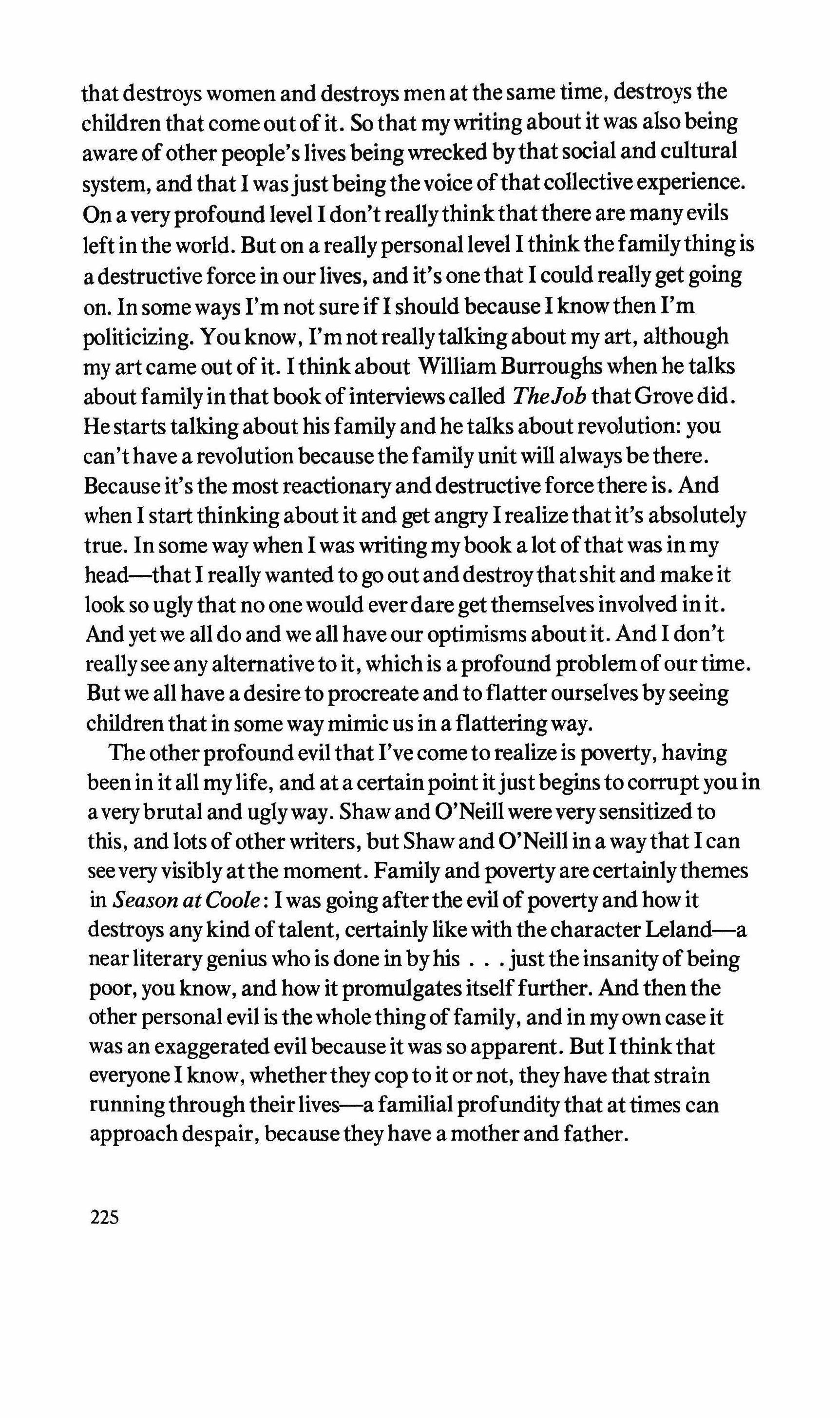
that destroys women and destroys men at the same time, destroys the children that come out ofit. So that mywriting about it was also being aware ofotherpeople's lives beingwrecked bythatsocial and cultural system, andthat I was justbeingthevoice ofthatcollective experience. On a veryprofound level I don't reallythinkthatthere are manyevils left in the world. But on a reallypersonal level I thinkthe familything is a destructive force in our lives, and it's one that I could reallygetgoing on. In some ways I'm not sure ifI should because I knowthen I'm politicizing. You know, I'm not reallytalking about my art, although my art came out ofit. I think about William Burroughs when he talks aboutfamilyinthatbookofinterviews called TheJob thatGrove did. He starts talking about his family and hetalks about revolution: you can'thave a revolution becausethefamily unit will alwaysbethere. Because it's the most reactionaryand destructive forcethere is. And when I start thinking about it and get angry I realizethatit's absolutely true. In some way when I was writing mybook a lot ofthat was in my head-that I reallywanted to go out anddestroythatshit and make it look so ugly that no one would ever daregetthemselves involved init. And yet we all do and we all have our optimisms aboutit. And I don't really see any alternativeto it, whichis a profound problem of our time. But we all have a desire to procreate and to flatter ourselves byseeing children that in some way mimic us in a flatteringway.
The other profound evilthat I've come to realize is poverty, having been in it all my life, and at a certainpoint itjustbegins to corrupt you in a verybrutal and uglyway. Shaw and O'Neill were verysensitized to this, and lots of other writers, but Shaw and O'Neill in a waythat I can see very visibly at the moment. Family and poverty are certainlythemes in Season at Coole: I was going afterthe evil of poverty and how it destroys any kind oftalent, certainly like with the character Leland-a near literarygenius who is done in byhis justthe insanityofbeing poor, you know, and how it promulgates itselffurther. And thenthe other personal evil is the wholethingoffamily, and in my own case it was an exaggerated evil because it was so apparent. But Ithinkthat everyone I know, whetherthey cop to it or not, theyhave that strain runningthrough theirlives-a familial profunditythat at times can approachdespair, because they have a mother and father.
225
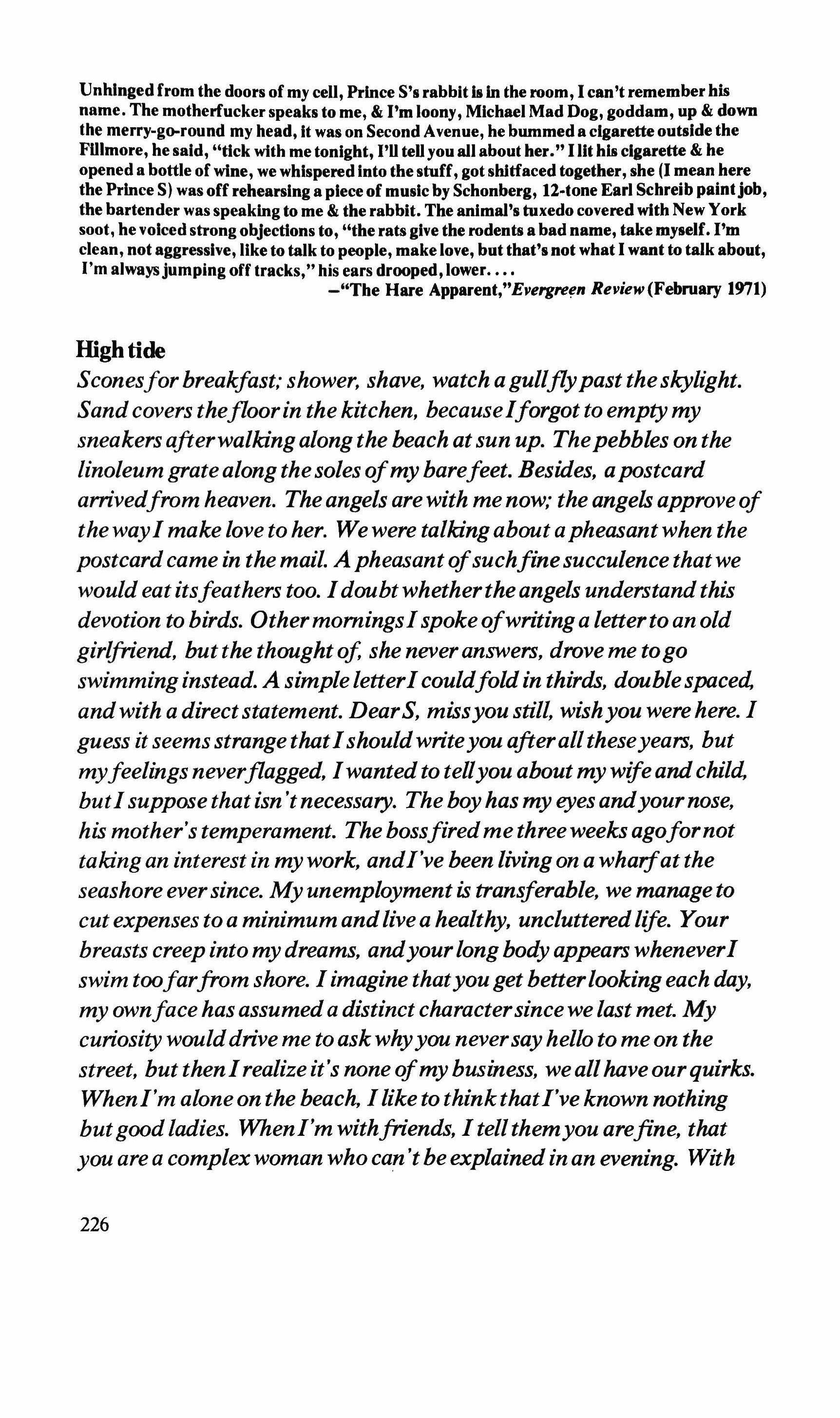
Unhinged from the doors of my cell, Prince S's rabbit Is In the room, I can't rememberhis name. The motherfuckerspeaks to me, & I'm loony, Michael Mad Dog, goddam, up & down the merry-go-round my head, It was on Second Avenue, he bummed a cigarette outside the Fillmore, he said, "tick with me tonight, I'll tell you all about her." Ilit his cigarette & he opened a bottle of wine, we whispered into thestuff, got shltfaced together, she (I mean here the Prince S) was off rehearsing a piece of music by Schonberg, 12·tone Earl Schreib paintjob, the bartender was speaking to me & the rabbit. The animal's tuxedo covered with New York soot, he voiced strong objections to, "the rats give the rodents a bad name, take myself. I'm clean, not aggressive, like to talk to people, make love, but that's not what I want to talk about, I'm alwaysjumping off tracks," his ears drooped, lower -"The Hare Apparent,"Evergre�n Review(February 1971)
High tide
Sconesforbreakfast,' shower, shave, watch a gullflypast theskylight. Sand covers thefloorin the kitchen, because[forgot to empty my sneakers afterwalkingalong the beach at sun up. Thepebbles on the linoleum gratealong thesoles ofmy barefeet. Besides, apostcard arrivedfrom heaven. Theangels are with me now; the angels approve of the wayI make love to her. We were talkingabout a pheasantwhen the postcard came in the mail. Apheasantofsuchfinesucculence that we would eat itsfeathers too. Idoubtwhethertheangels understand this devotion to birds. OthermorningsIspokeofwriting a letterto an old girlfriend, butthe thoughtof, she never answers, drove me togo swimminginstead. A simpleletterIcouldfoldin thirds, doublespaced, andwith a direct statement. DearS, missyou still, wishyou were here. I guess it seems strange thatIshouldwriteyou afteralltheseyears, but myfeelings neverflagged, [wanted to tellyou about my wifeandchild, butIsuppose that isn'tnecessary. The boyhas my eyes andyournose, his mother's temperament. The bossfired me threeweeksagofornot taking an interest in my work, andI've been living on a wharfat the seashore ever since. Myunemployment is transferable, we manage to cut expenses to a minimum andlive a healthy, unclutteredlife. Your breasts creep into my dreams, andyourlongbody appears wheneverI swim toofarfrom shore. Iimagine thatyou get betterlooking each day, my ownface hasassumed a distinct charactersince we last met. My curiosity woulddrive me to askwhyyou neversay hello to me on the street, but thenIrealize it's none ofmy business, we allhave our quirks. WhenI'm alone on the beach, Ilike to thinkthatI've known nothing butgoodladies. WhenI'm withfriends, I tellthemyou arefine, that you are a complex woman who can'tbeexplainedin an evening. With
226
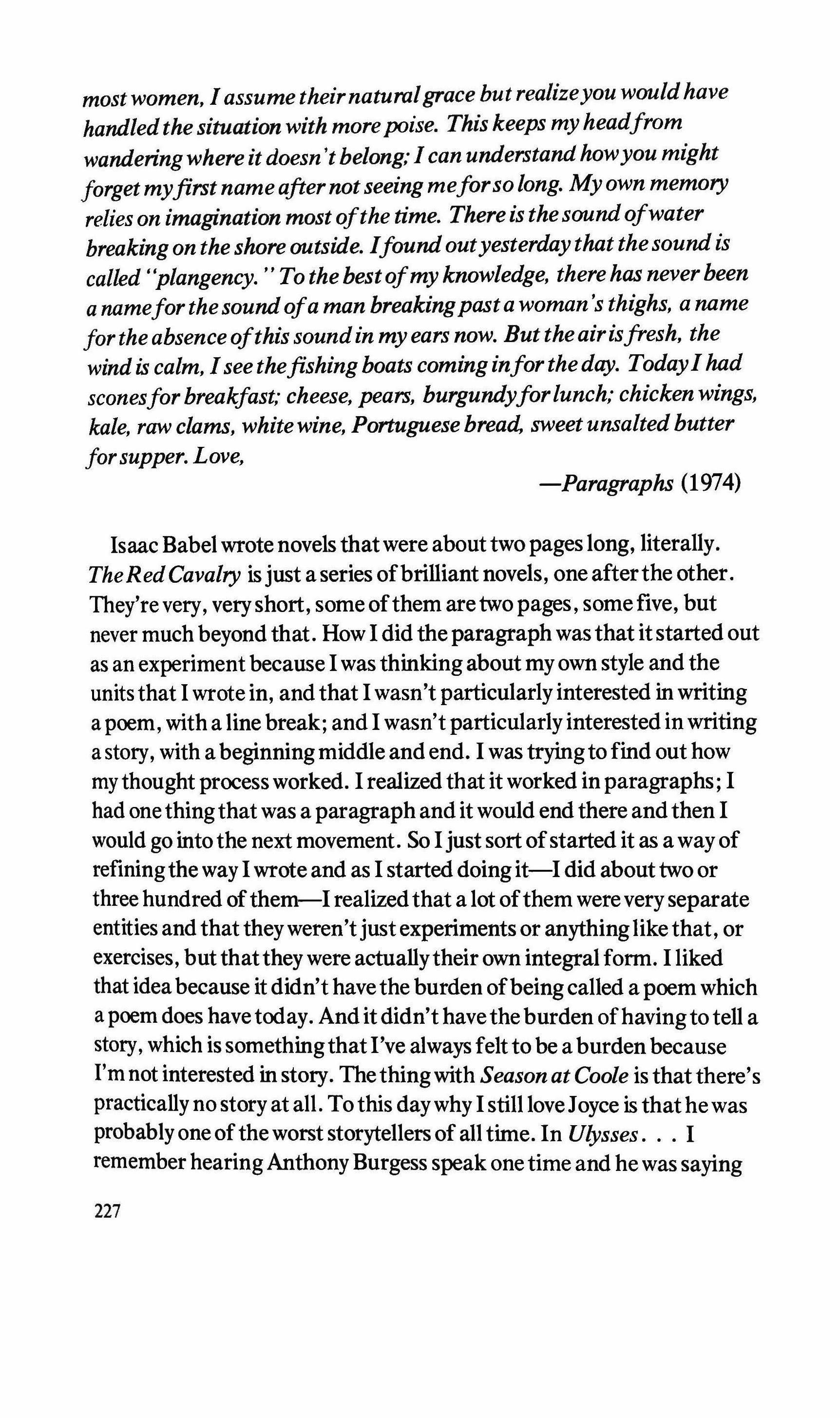
most women, I assume theirnaturalgrace but realizeyou wouldhave handledthesituation with morepoise. This keeps my headfrom wanderingwhere it doesn'tbelong,· I can understand howyou might forget myfirst name afternot seeing meforso long. My own memory relies on imagination most ofthe time. Thereis thesoundofwater breaking on the shore outside. Ifound outyesterdaythat thesound is called''plangency. To thebestofmy knowledge, therehas never been a nameforthesoundofa man breakingpast a woman's thighs, a name forthe absence ofthis soundin my ears now. But theairisfresh, the windis calm, I see thefishing boats cominginfortheday. TodayIhad sconesforbreakfast; cheese, pears, burgundyforlunch; chicken wings, kale, raw clams, whitewine, Portuguese bread, sweet unsaltedbutter forsupper. Love,
=Paragraphs (1974)
Isaac Babel wrote novels that were about two pages long, literally. TheRedCavalry isjust a series ofbrilliant novels, one afterthe other. They're very, very short, some ofthem are two pages, some five, but never much beyond that. How I did theparagraph was that itstarted out as an experiment because I was thinking about my own style and the unitsthat I wrote in, and that I wasn't particularly interested in writing a poem, with a line break; and I wasn't particularlyinterested inwriting a story, with a beginningmiddle and end. I was tryingto find out how mythought processworked. I realized that it worked in paragraphs; I had one thingthat was a paragraph and it would end there andthen I would go intothe next movement. So Ijust sort ofstarted it as a way of refiningthe way I wrote and as I started doingit-I did about two or three hundred ofthem-I realizedthat a lot ofthem were veryseparate entities and that theyweren'tjustexperiments or anythinglike that, or exercises, butthatthey were actuallytheir own integral form. I liked that ideabecause it didn't havethe burden ofbeingcalled a poem which a poem does havetoday. And itdidn't havetheburden ofhavingto tell a story, which is somethingthat I've always feltto be a burdenbecause I'm not interested in story. Thethingwith Season at Coole is that there's practically no story at all. To this daywhy I still loveJoyce is thathe was probably one ofthe worst storytellers of all time. In Ulysses I remember hearingAnthonyBurgess speak one time and he was saying
227
that the movie version of Ulysses was extrapolatingthe story and forgetting aboutthe rest ofit, making a movie ofthe story. He said the thingtheydidn't realize was that it was probablythe worst story ever written, and that thebeauty of his writing was somethingtotally different. And I started thinking about that.
Particularly Charles Olson, his essays, was the first influence interms ofhow I wrote a sentence and a paragraph, makingthe paragraph a unit ofwriting, and using a comma instead of a period for breath pauses, and lettingthe ends ofthe paragraph bethe real intakingof breath and the longest pause, almost a silence, and then goingintothe next one. I was talkingwith a friend ofmine who's a very formal English instructor, and he said that to diagram a sentence in Season at Coole is almost impossible because everything aboutthe sentences in thebook is grammatically incorrect. I told himwhat I reallylove from Camus' notebooks, when he was talking about Balzac and sayingthat he thought that Balzac was not a genius in spite ofhis bad grammarbut because of it. And since my own grammatical upbringing has been pretty negligible, you know, I went with that right away. Just thinking aboutAmerican prosewritersthat I like, I liked Dreiserwhen I was reallyyoung, and maybe I liked it forthat sort ofsloppyAmerican grammatical inaccuracythathe had. That is certainlyvalid to American speech, though. And Frank O'Hara has that in TheLunchPoems, you know, justthatthe constructions are slightly awry at times, and that's thething that makes them so artful.
From there [NewYork) Andrei Codrescu wandered to Detroit (because he read about that city in Celine's "Journey to the End of Night"), hooked up with John Sinclair's Artist Workshop, andlearned, as on a tabula rasa, the American language via the street hippies, radical poets, rock records, and later from runaway girls he picked up on 8th Street, the countermen at Blimpie's on Sixth Avenue, and other unaccountable American Sources.
-"These Poems Are Loaded," Village Voice (11131/70)
The truth is the consistencyof the language, and its unnameable abilitytocreate experience, not through language, but language as the experience itself.
-''Reviews: living at the Movies," ValleyAdvocate (2/6n4)
Mywhole orientation to words is more lyrical than anythingelse. Anything I write has got to have a certain music to it or I don't bother with it. Veryoften in mywork one ofthe problems is thatthe music often cuts off anystoryline. In Season at Coole I happenedto maintain
228

that, it's true. But in other writing I've done since then the music got out ofhand, but it is still a prerequisitethat it has to havethatmusic somewhere. The first personthat ever reallyinfluenced me in terms of writingwhen I was young was Thelonius Monk. I often havethis fantasy of somedaydoing a musical about his life, and puttingwords to all ofhis compositions, like RoundMidnight. I went through a whole period, when I was aboutfifteen or sixteen or seventeen, where I used to go see himeverywhere; I used to go tothe Five Spot everynight and listen to him. That was the initial lyrical experience.
I see two influences working inFlats. The first is writers like Beckett and Robbe-Grillet; the second is cowboy pulp novels and Western movies. There is a feeling here like inJohn Ford's silent movie ThreeBadMen. Just a couple of raunchycowpokesshooting the shit at the fire in order to make It through the night, hoping that the sun shines once more so they can see the posse coming, the rattlesnake under a rock, or an Indian in the foothills.
-"A Voice atthe Edge of Things,"Evergreen Review(April, 1971)
What Is a geography to say what I say. Let me be the figure of the inward.
-Alcohol Poems (1973)
The seeds of his imagination took their powers from these musty rooms
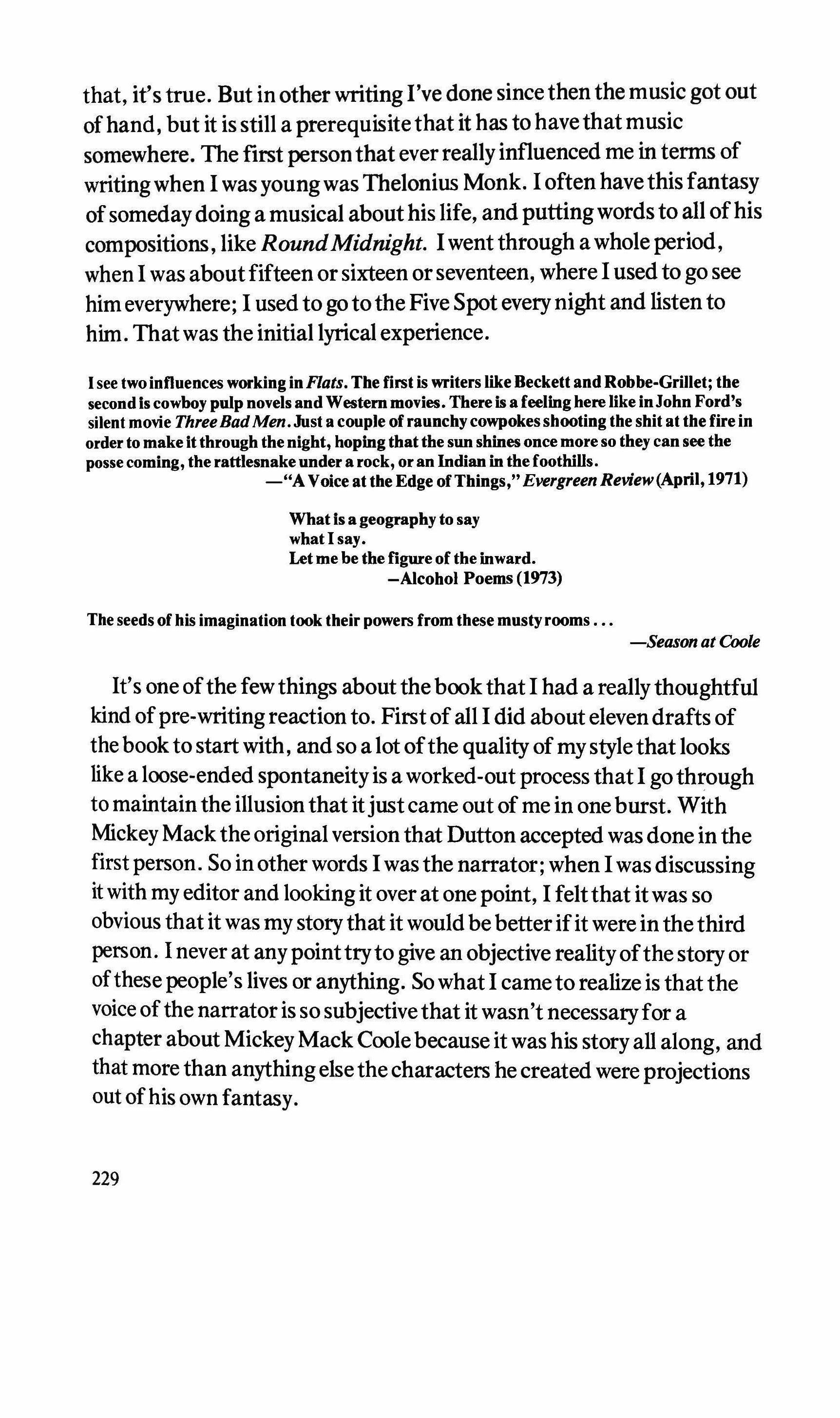
-Season at Coole
It's one ofthe fewthings about the book that I had a reallythoughtful kind of pre-writing reaction to. First of all I did about eleven drafts of thebook to start with, and so a lot ofthe quality of my stylethat looks like a loose-ended spontaneityis a worked-out process that I gothrough to maintainthe illusion that itjust came out of me in one burst. With Mickey Mack the original version that Dutton accepted was done in the first person. So in other words I was the narrator; when I was discussing itwith my editor and lookingit over at one point, I feltthat it was so obvious that it was my story that it would bebetterifit were in the third person. I never at any pointtryto give an objective realityofthe story or ofthese people's lives or anything. Sowhat! came to realize is thatthe voice ofthe narrator is so SUbjectivethat it wasn't necessaryfor a chapter about Mickey Mack Coolebecause it was his story all along, and that more than anything elsethe characters he created were projections out ofhis own fantasy.
229
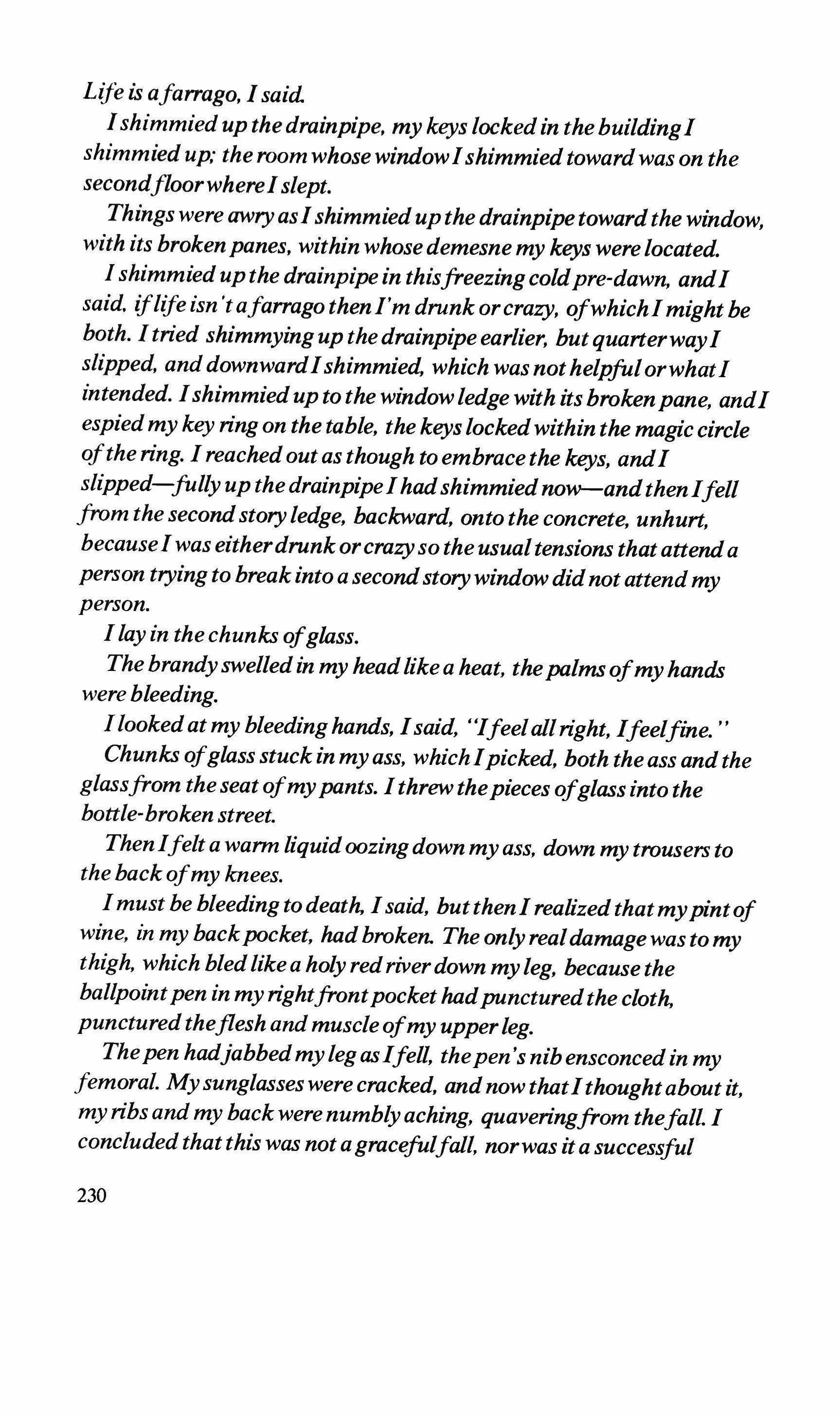
Life is afarrago, Isaid
Ishimmied up the drainpipe, my keys locked in the buildingI shimmied up: the room whose windowIshimmied toward was on the secondfloorwhereIslept.
Things were awry as Ishimmiedup the drainpipetowardthe window, with its broken panes, within whose demesne my keys were located. I shimmied up the drainpipe in thisfreezingcoldpre-dawn, andI said. iflifeisn 'tafarrago thenI'm drunk or crazy, ofwhichImightbe both. I tried shimmying up the drainpipe earlier, butquarterwayI slipped, and downwardIshimmied, which was not helpful orwhatI intended. Ishimmiedup to the window ledge with its brokenpane, andI espied my key ring on the table, the keys lockedwithin the magic circle ofthe ring. I reached out as though to embrace the keys, andI slipped-fully up thedrainpipeIhadshimmiednow-andthenIfell from the secondstoryledge, backward, onto the concrete, unhurt, becauseI was eitherdrunk or crazy so the usualtensions that attend a person trying to break into a secondstorywindow did not attend my person.
Ilay in thechunks ofglass.
The brandyswelled in my headlike a heat, thepalmsofmy hands were bleeding.
Ilooked at my bleedinghands, Isaid, "Tfeelallright, Ifeelfine.
Chunks ofglass stuck in my ass, whichIpicked, both the ass and the glassfrom the seat ofmypants. I threw thepieces ofglass into the bottle-broken street.
ThenIfelt a wann liquidoozingdown my ass, down my trousers to the back ofmy knees.
I must be bleeding to death, Isaid, butthenI realizedthatmypintof wine, in my backpocket, hadbroken. The only realdamage was to my thigh, which bledlike a holy redriverdown my leg, because the ballpointpen in my rightfrontpocket hadpuncturedthe cloth, punctured theflesh and muscleofmy upperleg.
Thepen hadjabbedmy leg as Ifell, thepen's nib ensconcedin my femoral. Mysunglasses were cracked, and now thatIthoughtabout it, my ribsand my back were numblyaching, quaveringfrom thefall. I concluded that this was not a gracefulfall, nor was it a successful
230
ascent, since the importofclimbing was togain access to the window, to enter the window into the room, andfrom the room to extract my key ringwith the keys to thefrontdoor.
The daybeforeIhadseen an afghan leapfromafifthfloorwindow aroundthe comer. It waspuregrace, as though its ears were desuetudinous wings that were about to come back to life. The afghan bounds to the next building; no, it splattered over the concrete below, yelping in utterpain, within minutes dying, it was dead. Ineither yelped nor diedfrom myfall. Ilearned one thing, andthat was to be circumspectupon my next ascent up theside ofthe building to the room in whichIslept. Ishimmiedup the drainpipe, Ispoke to myself, Isaid: Steady, Martin.
OrIsaid: Easydoes it.
Or: You'vegotit now, Buster.
Watchyourstep, MrShigh.
[That'spronounced "Shee, like thegoodpeople.]
Ishimmied up the drainpipe toward thesecondfloorwindow, I placed my cut hands on thewindow ledge, andwith one burstofenergy from my blood-wetandalcohol-drippedlegs, Iam inside the window, I am home, safely.
But then mypantsgotstuck on thealuminum clasp on the drainpipe, andI hung, legsdangling, thrashingin the ozone, arms wavingforhelp. Life is afarrago, Iscreamed. A man then walkedpast with his dog, whistling. Iyelledforhelp but he keptwalking, once looking up as thoughI were an apparition in the air, he muttered, "The thingspeople do in this town. Then mypants ripped at the crotch, where allthe weightwas, andIburstfrom thesky.
-StillLife (1974)
June 11,1974
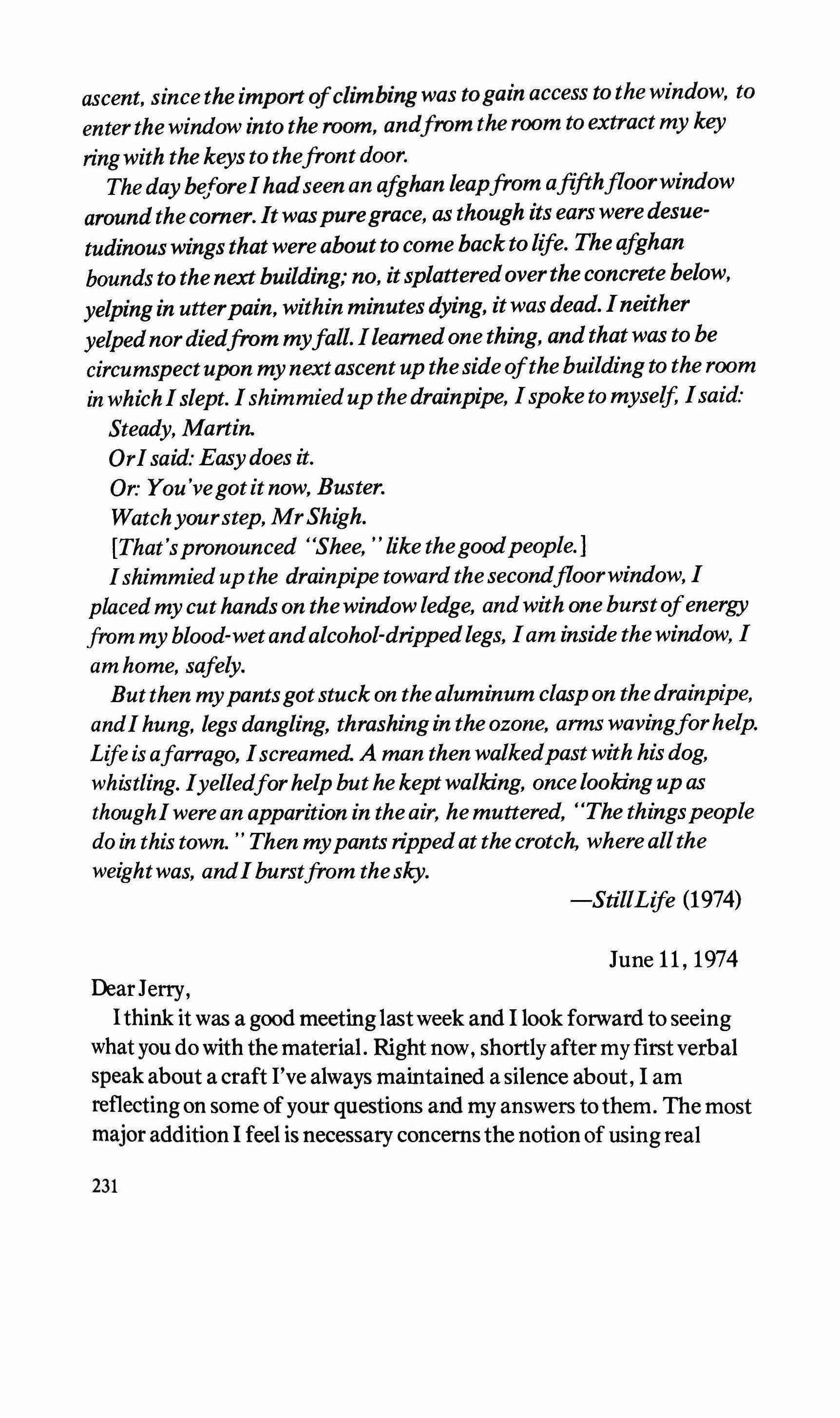
DearJerry,
Ithink it was a goodmeetinglastweek and I look forward to seeing what you do with the material. Right now, shortly after myfirstverbal speak about a craft I've always maintained a silence about, I am reflecting on some ofyour questions and my answers to them. The most major addition I feel is necessary concerns the notion of using real
231

people as the inspiration for one's characters. We all do this, but, I suppose, in my case, and probably in Gil's case too, the reader seems more concerned how much is real and what is imaginary. For me, they blend so easily, I cannot often findthe demarcation line. But I do have several rules, which I didn't mention in the interview, and which I find essential before I sit downto type out a story or book. First, I say, never write to get even. It will always go against you. Second, be like Chekhov, love every character you write about. The second rule is essential-you can't get into a character, whetheryou criticize or praise, unless you love them first. Not like. LOVE. With an obsessive passion. The Cooles I love dearly, or I could never say what I say aboutthem. Ditto in StillLife with BusterShigh and Lady Hand. Ditto inthe stories. Well, amigo, I am sure more will follow at both ends ofthis correspondence. Be well.
232
Michael
The fictional criticism ofthe future
Robert Scholes
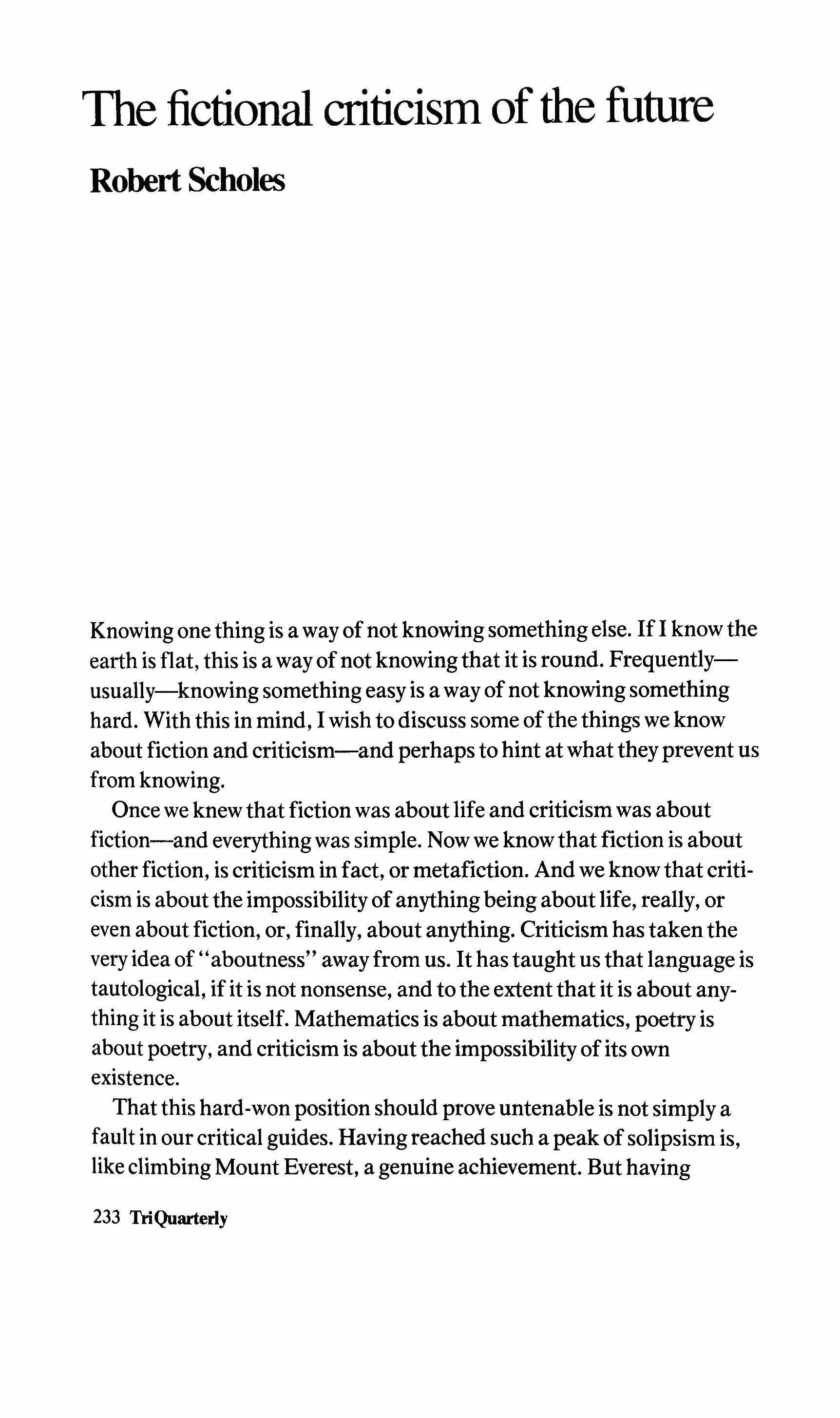
Knowing one thing is a way of not knowingsomething else. If I knowthe earth is flat, this is a way ofnot knowingthat it is round. Frequentlyusually-knowingsomething easy is a way ofnot knowingsomething hard. With this in mind, I wish to discuss some ofthethings we know about fiction and criticism-and perhaps to hint at what theyprevent us from knowing.
Once we knewthat fiction was about life and criticism was about fiction-and everything was simple. Now we knowthat fiction is about other fiction, is criticism in fact, or metafiction. And we knowthat criticism is about the impossibility ofanythingbeing about life, really, or even about fiction, or, finally, about anything. Criticism has takenthe very idea of "aboutness" awayfrom us. It hastaught us that language is tautological, ifit is not nonsense, and to the extent that it is about anything it is about itself. Mathematics is about mathematics, poetry is about poetry, and criticism is about the impossibility ofits own existence.
Thatthis hard-won position should prove untenable is not simply a fault in our critical guides. Havingreached such a peak of solipsism is, like climbing Mount Everest, a genuine achievement. But having
233 TriQu8l1erly
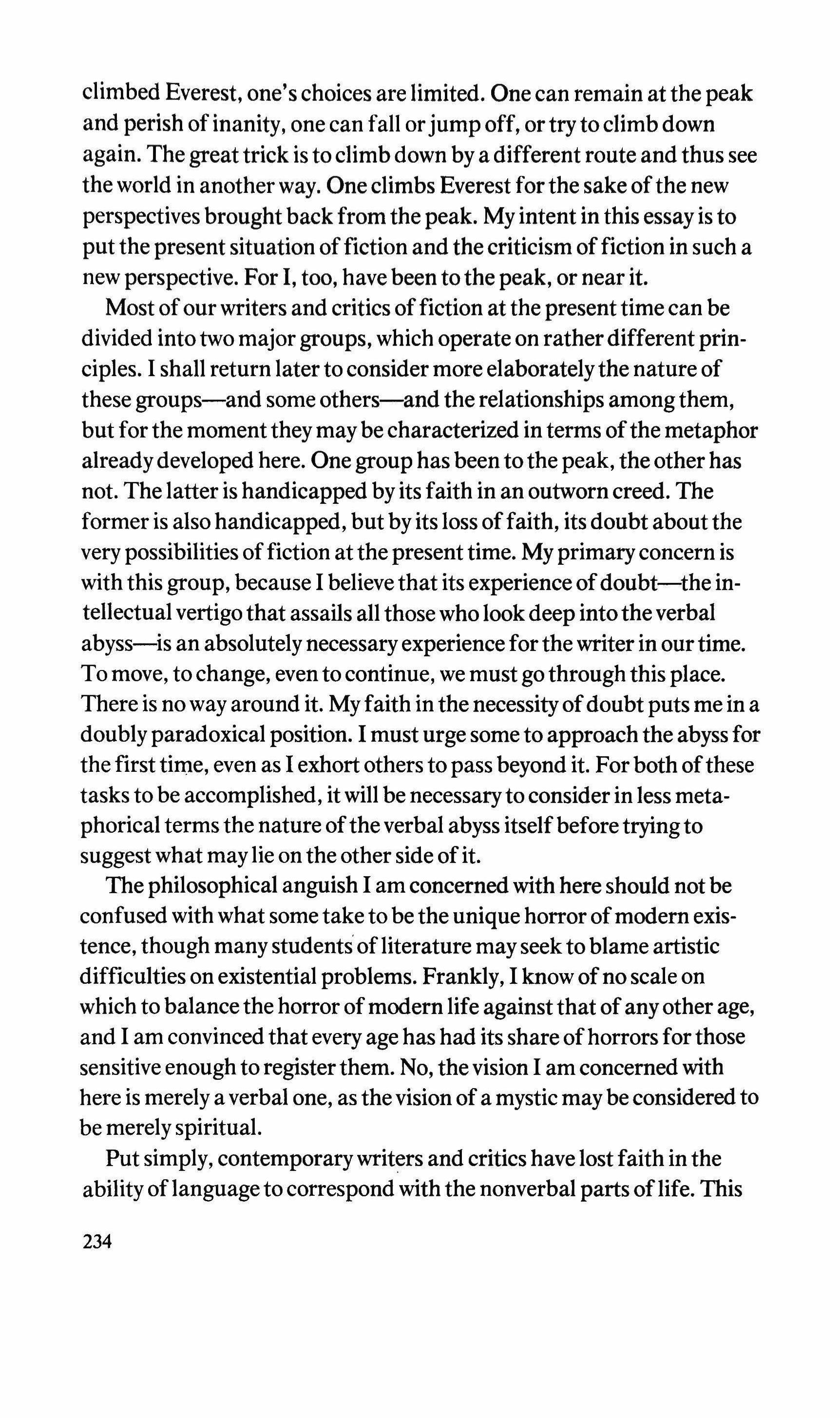
climbed Everest, one's choices are limited. One can remain at the peak and perish ofinanity, one can fall or jump off, or try to climb down again. The great trick is to climb down by a different route and thus see the world in another way. One climbs Everest forthe sake ofthe new perspectivesbrought back from the peak. My intent in this essayis to put the present situation offiction and the criticism offiction in such a new perspective. For I, too, have been to the peak, or near it.
Most of our writers and critics offiction at the presenttime can be divided into two major groups, which operate on ratherdifferent principles. I shall return later to consider more elaboratelythe nature of these groups-and some others-and the relationships amongthem, but forthe moment they may be characterized in terms ofthe metaphor alreadydeveloped here. One group has been to the peak, the other has not. The latter is handicapped by its faith in an outworn creed. The former is also handicapped, but byits loss offaith, its doubt about the very possibilities offiction at the present time. Myprimary concern is with this group, because I believe that its experience ofdoubt-the intellectual vertigo that assails all those who look deep intotheverbal abyss-is an absolutely necessaryexperience forthe writer in our time. To move, to change, even to continue, we must go through this place. There is no way around it. Myfaith in the necessityofdoubt puts me in a doublyparadoxical position. I must urge some to approach the abyss for the first time, even as I exhort others to pass beyond it. Forboth ofthese tasks to be accomplished, it will be necessaryto consider in less metaphorical terms the nature oftheverbal abyss itselfbefore tryingto suggest what may lie on the other side ofit.
The philosophical anguish I am concerned with here should not be confused with what some take to be the unique horror ofmodern existence, though many students'ofliterature may seek to blame artistic difficulties on existential problems. Frankly, I know of no scale on which to balance the horror ofmodern life againstthat ofanyother age, and I am convinced that every age has had its share ofhorrors forthose sensitive enough to registerthem. No, thevision I am concerned with here is merely a verbal one, as thevision of a mystic may be considered to be merelyspiritual.
Put simply, contemporarywriters and critics have lost faith in the ability oflanguage to correspond with the nonverbal parts oflife. This
234
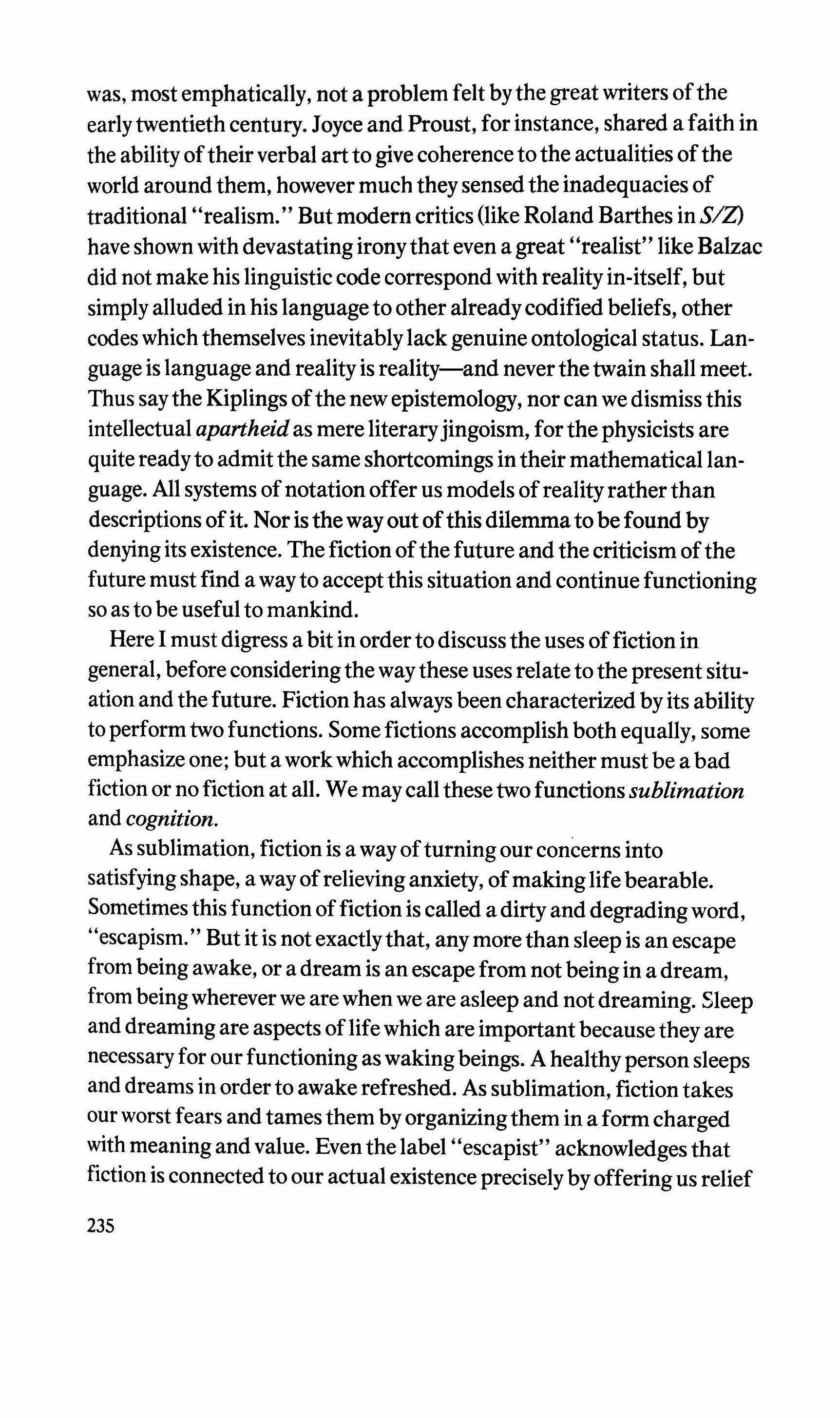
was, most emphatically, not a problem felt bythe great writers ofthe earlytwentieth century. Joyce and Proust, for instance, shared a faith in the ability oftheirverbal art to give coherence to the actualities ofthe world around them, however much theysensed the inadequacies of traditional "realism." But modern critics (like Roland Barthes in S/Z) have shown with devastatingironythat even a great''realist" like Balzac did not make his linguistic code correspond with realityin-itself, but simply alluded in his language to other alreadycodified beliefs, other codes which themselves inevitablylack genuineontological status. Language is language and reality is reality-and never thetwain shall meet. Thus say the Kiplings ofthe new epistemology, nor can we dismiss this intellectual apartheid as mere literaryjingoism, forthe physicists are quiteready to admit the same shortcomings in their mathematical language. All systems ofnotation offer us models ofrealityratherthan descriptions ofit. Nor istheway out ofthis dilemma to be found by denyingits existence. The fiction ofthe future and the criticism ofthe future must find a wayto acceptthis situation and continue functioning so as to be useful to mankind.
Here I must digress a bit in order to discuss the uses offiction in general, beforeconsideringthe waythese uses relate to the present situation and thefuture. Fiction has always been characterized by its ability to perform two functions. Some fictions accomplish both equally, some emphasize one; but a workwhich accomplishes neither must be a bad fiction or no fiction at all. We may call these two functions sublimation and cognition.
As sublimation, fiction is a way ofturning our concerns into satisfyingshape, a way ofrelievinganxiety, of making life bearable. Sometimes this function offiction is called a dirty and degradingword, "escapism." Butit is not exactlythat, any more than sleep is an escape from beingawake, or a dream is an escape from not being in a dream, from beingwherever we are when we are asleep and not dreaming. Sleep and dreaming are aspects oflife which are important because they are necessaryfor our functioning as wakingbeings. A healthy person sleeps and dreams in order to awake refreshed. As sublimation, fiction takes our worst fears and tames them byorganizingthem in a form charged with meaning and value. Even the label "escapist" acknowledges that fiction is connected to our actual existence preciselybyoffering us relief
235

from its problems and pressures. The flimsiest fairytale plays with our fears ofdeath and failure byoffering us a vicarious triumph over both these terrors. And the tale ofterror itself, like the nightmare, offers us finallythe reliefofescaping back from fiction into an actualitywhich seems sweet in mere contrast to the horrors ofdream or fiction. Butthe sublimation of anxiety and fear is only one offiction's major functions. The other is cognition.
In its cognitivefunction, fiction helps us to know ourselves and our existential situation. Because fiction does function in this way, it has sometimes been assumed that it must offer us a record ofexperience or a picture of real life. This is the realistic fallacy, which so much of contemporarycritical thought has labored to expose. For fiction offers us not transcriptions ofactualitybut systematic models which are distinct from reality, thoughthey may be related to it in various ways. Traditionally, realists have claimed a close and direct correspondence between their models and the world around them. This has led to disputes among them (like the well-known quarrels of Wells and James, or Bennett and Woolf) because each realist felt that his version ofreality was called into questionby someone else's different version. But to our eyes these disputes seem almost childish, since it is clearto us that each writer presented in his work a model derived from a different aspectof reality and related to it in a different way. Everyimportant writer's work offers us a different system ofnotation, which has its own focal limits in abstracting from the total system ofexistence.
The attempt ofJames Joyce in Ulysses to use a multiplicity ofstyles is a function of his awareness ofthe problem ofnotation. Ifeach aspect of realityrequires a different language, then Joyce would counter by generating an astonishingvariety of narrative codes. Butthe veryfact that Joyce persisted in the proliferation ofcodes in Ulysses indicates that he still subscribed to the realistic faith and was onlyresorting to extreme measures to preserve it. But now, with Joyce'sexamplehelping to clarify the nature ofthe problem, this faith is simply unavailable to thosewho consider carefully the possibilities offiction. For what we can no longer accept is preciselythis Joycean faith in thetranscribability ofthings. It is because reality cannot be recorded that realism is dead. All writing, all composition is construction. We do not imitate the world, we construct versions ofit. There is no mimesis, onlypoiesis. No recording, only constructing.
236
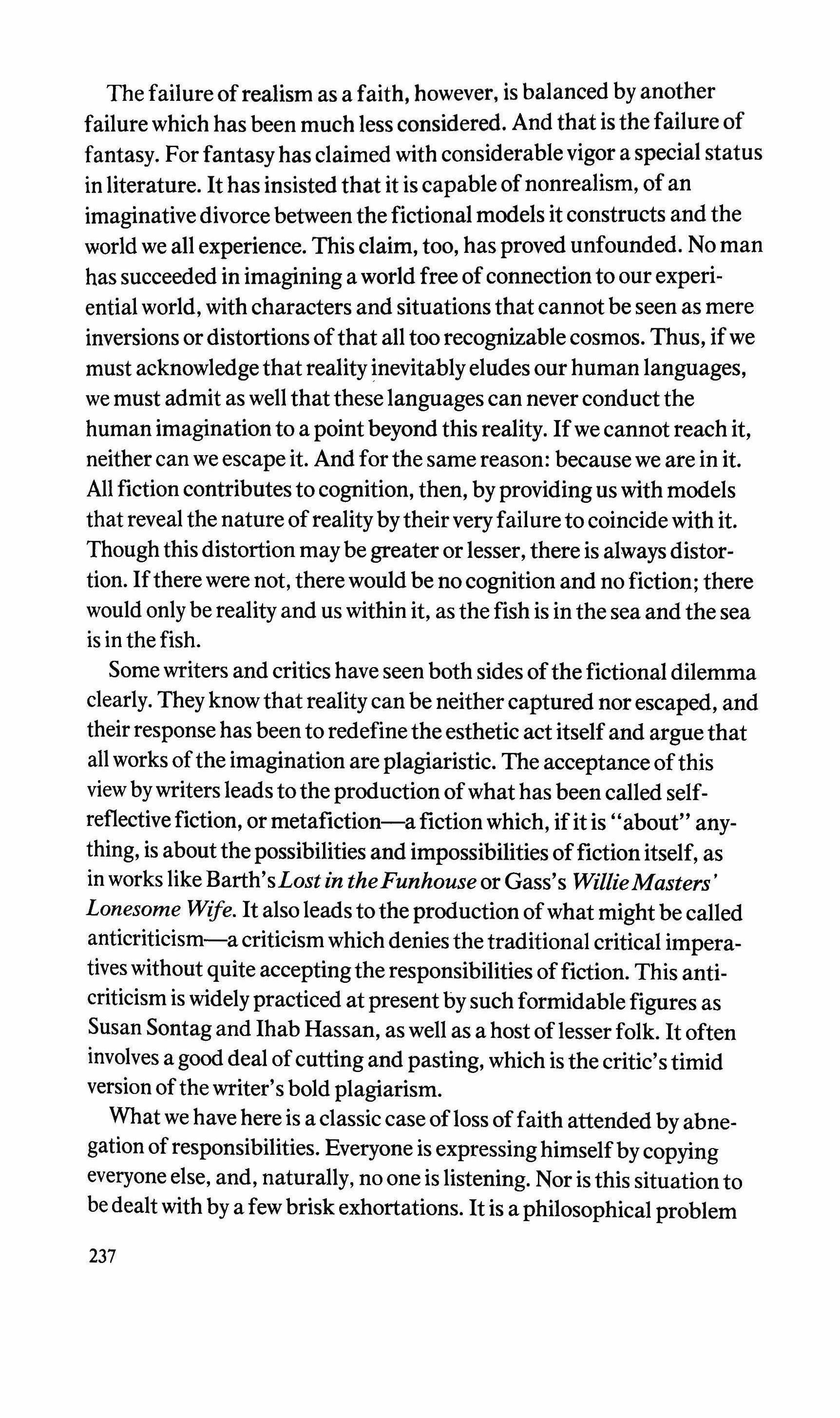
The failure of realism as a faith, however, is balanced by another failure which has been much less considered. And that is the failure of fantasy. For fantasy has claimed with considerable vigor a special status in literature. It has insisted that it is capable ofnonrealism, of an imaginative divorce between the fictional models it constructs and the world we all experience. This claim, too, has proved unfounded. No man has succeeded in imagining a world free ofconnection to our experiential world, with characters and situations that cannot be seen as mere inversions or distortions ofthat all too recognizable cosmos. Thus, if we must acknowledgethat realityinevitablyeludes our human languages, we must admit as well that theselanguages can never conduct the human imagination to a pointbeyond this reality. If we cannot reach it, neither can we escape it. And for the same reason: because we are in it. All fiction contributes to cognition, then, byproviding us with models that reveal the nature ofrealitybytheirveryfailure to coincide with it. Though this distortion may be greater or lesser, there is always distortion.1fthere were not, there would be no cognition and no fiction; there would only be reality and us within it, as the fish is in the sea and the sea is in the fish.
Some writers and critics have seen both sides ofthe fictional dilemma clearly. They know that reality can be neither captured nor escaped, and theirresponse has been to redefine the esthetic act itself and argue that all works ofthe imagination are plagiaristic. The acceptance ofthis view bywriters leads to the production ofwhat has been called selfreflectivefiction, or metafiction-a fiction which, if it is "about" anything, is about the possibilities and impossibilities offiction itself, as in works like Barth'sLost in theFunhouseor Gass's WillieMasters' Lonesome Wife. It also leads to the production ofwhat might be called anticriticism-acriticism which denies the traditional critical imperativeswithout quite acceptingthe responsibilities offiction. This anticriticism is widelypracticed at present by such formidablefigures as Susan Sontag and Ihab Hassan, as well as a host of lesser folk. It often involves a good deal ofcutting and pasting, which is the critic's timid version ofthe writer's bold plagiarism. What we have here is a classic case ofloss offaith attended by abnegation ofresponsibilities. Everyone is expressinghimselfbycopying everyone else, and, naturally, no one is listening. Nor is this situation to be dealt with by a few brisk exhortations. It is a philosophical problem
237
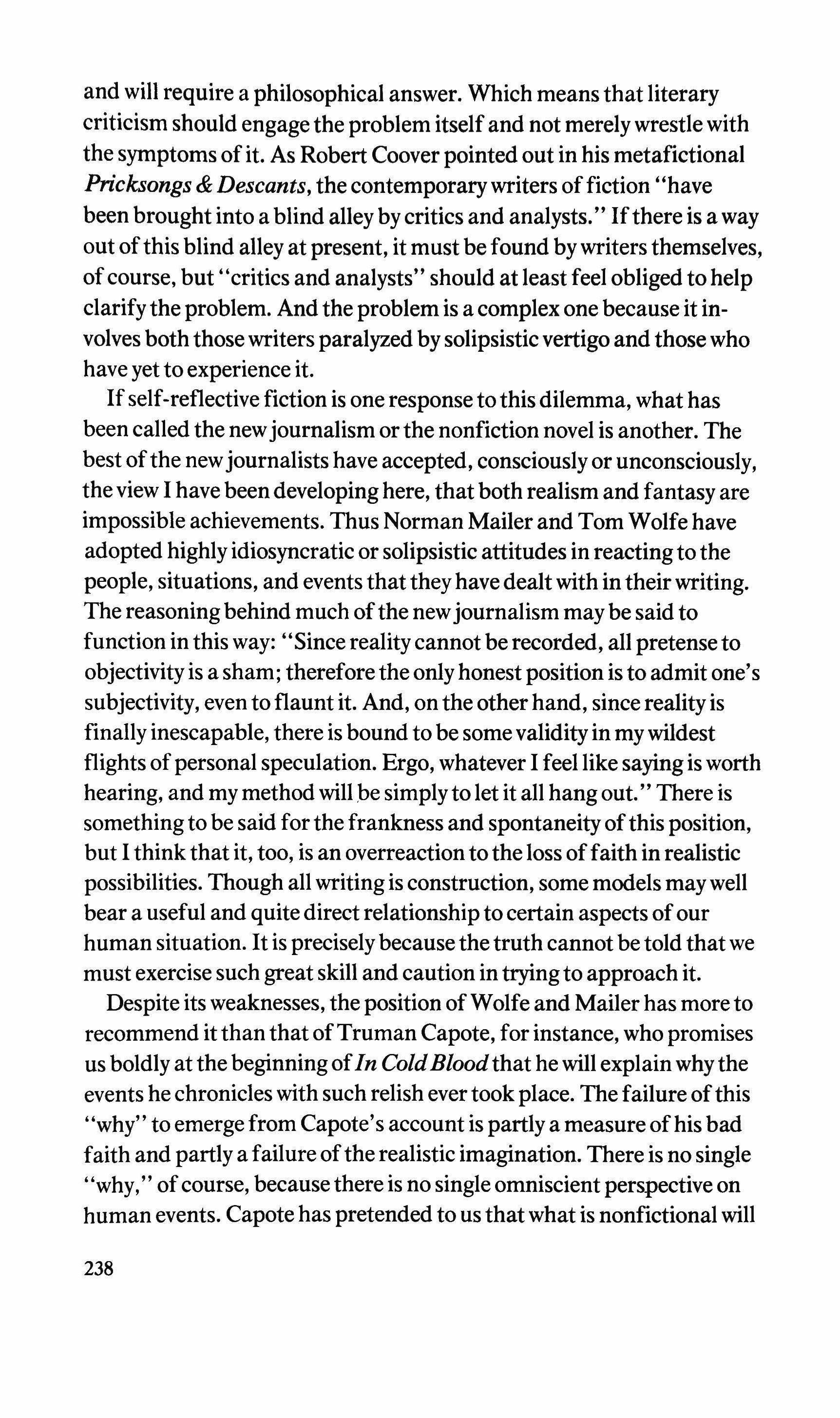
and will require a philosophical answer. Which means that literary criticism should engage the problem itself and not merely wrestle with the symptoms of it. As Robert Coover pointed out in his metafictional Pricksongs & Descants, the contemporarywriters offiction "have been brought into a blind alleyby critics and analysts." Ifthere is a way out ofthis blind alley at present, it must be found bywriters themselves, of course, but "critics and analysts" should at least feel obliged to help clarifythe problem. And the problem is a complex one because it involves both thosewriters paralyzedbysolipsisticvertigo and those who haveyet to experience it.
If self-reflective fiction is one response to this dilemma, what has been called the newjournalism or the nonfiction novel is another. The best ofthe newjournalists have accepted, consciously or unconsciously, theview I have beendevelopinghere, that both realism and fantasy are impossible achievements. Thus Norman Mailer and Tom Wolfe have adopted highlyidiosyncratic or solipsistic attitudes in reactingto the people, situations, and events thattheyhave dealt with intheirwriting. The reasoningbehind much ofthe newjournalism may be said to function in this way: "Since reality cannot be recorded, all pretense to objectivityis a sham; thereforethe onlyhonest position is to admit one's subjectivity, even to flaunt it. And, on the otherhand, since realityis finallyinescapable, there is bound to be some validity in my wildest flights ofpersonal speculation. Ergo, whatever I feel like sayingis worth hearing, and my method will be simplyto let it all hang out." There is something to be said forthe frankness and spontaneityofthis position, but I thinkthat it, too, is an overreaction to the loss offaith in realistic possibilities. Though all writingis construction, some models maywell bear a useful and quite direct relationship to certain aspects of our human situation. It is preciselybecausethetruth cannot betold that we must exercise such great skill and caution in tryingto approach it.
Despite its weaknesses, the position of Wolfe and Mailer has more to recommend itthan that ofTruman Capote, for instance, who promises us boldly at the beginning ofIn ColdBloodthat he will explainwhythe events he chronicles with such relish ever took place. The failure ofthis "why" to emerge from Capote's account is partly a measure ofhis bad faith and partly a failure ofthe realistic imagination. There is no single "why," of course, because there is no single omniscient perspective on human events. Capote has pretended to us that what is nonfictional will
238
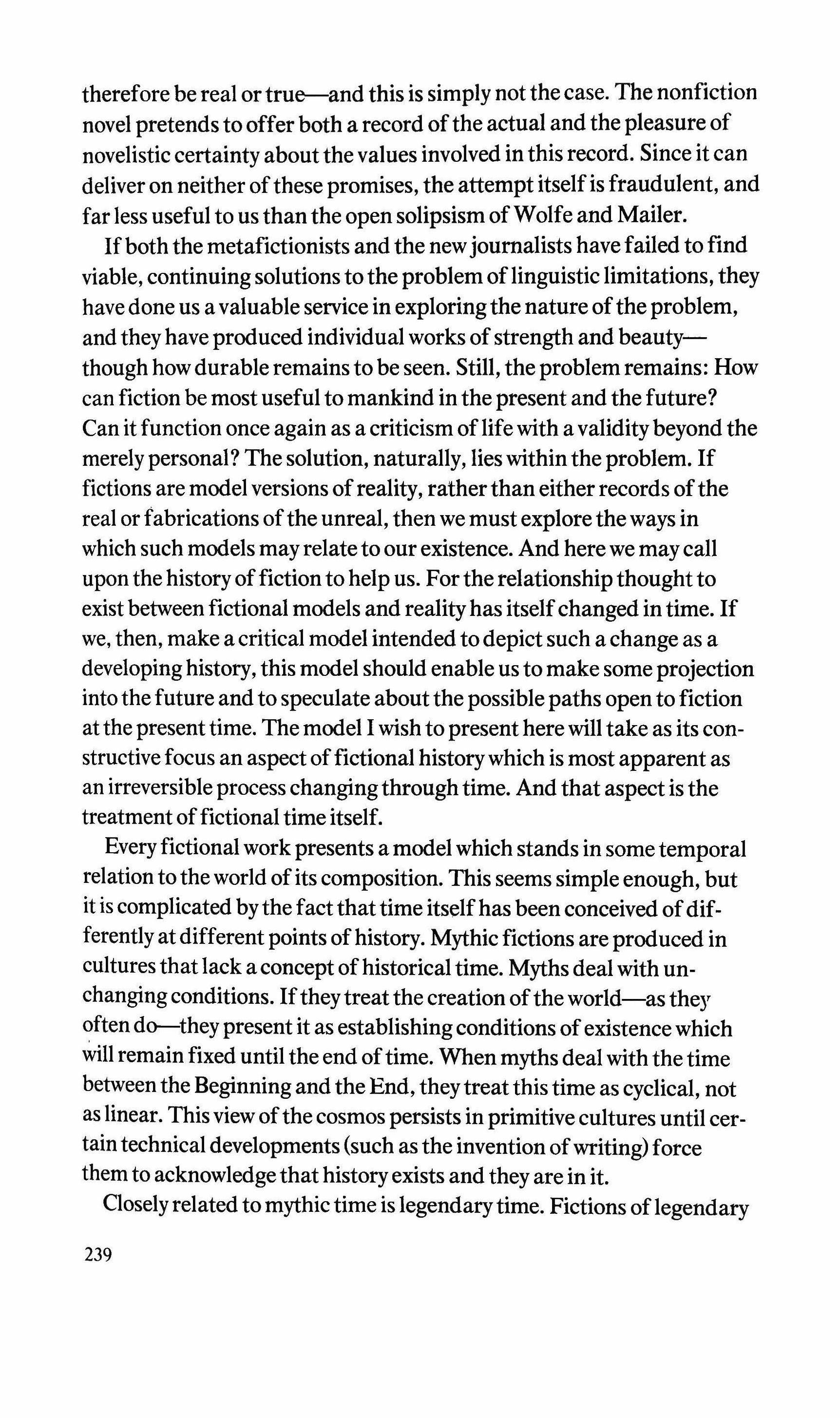
therefore be real or true-and this is simply not the case. The nonfiction novel pretends to offer both a record ofthe actual and the pleasure of novelistic certainty about the values involved inthis record. Since it can deliver on neither ofthese promises, the attempt itselfis fraudulent, and far less useful to us thanthe open solipsism ofWolfe and Mailer. Ifboth the metafictionists and the new journalists have failed to find viable, continuing solutions to the problem oflinguistic limitations, they havedone us a valuable service in exploringthe nature ofthe problem, and theyhave produced individual works ofstrength and beautythough how durable remains to be seen. Still, the problem remains: How can fiction be most useful to mankind in thepresent and the future? Can itfunction once again as a criticism oflifewith a validitybeyond the merelypersonal? The solution, naturally, lieswithin the problem. If fictions are model versions ofreality, ratherthan either records ofthe real or fabrications ofthe unreal, then we must explorethe ways in which such models may relate to our existence. And here we may call upon thehistory offiction to help us. For the relationshipthought to existbetween fictional models and realityhas itselfchanged in time. If we, then, make a critical model intended to depict such a change as a developinghistory, this model should enable us to make some projection into the future and to speculate aboutthe possiblepaths open to fiction atthe presenttime. The model I wish to present here will take as its constructivefocus an aspect offictional historywhich is most apparent as an irreversible process changingthrough time. And that aspectis the treatment offictional time itself.
Everyfictional work presents a model which stands in some temporal relation to the world ofits composition. This seems simpleenough, but it is complicatedbythe factthattime itselfhas been conceived ofdifferently at different points ofhistory. Mythic fictions are produced in cultures thatlack a concept ofhistorical time. Myths deal with unchangingconditions. Iftheytreat the creation oftheworld-as they often do-theypresent it as establishingconditions ofexistence which will remain fixed until the end oftime. When myths deal with the time betweenthe Beginning and the End, theytreat this time as cyclical, not as linear. This viewofthe cosmos persists in primitive cultures until certain technical developments(such as the invention ofwriting) force them to acknowledgethat history exists and they are in it.
Closelyrelated to mythictime is legendarytime. Fictions oflegendary
239
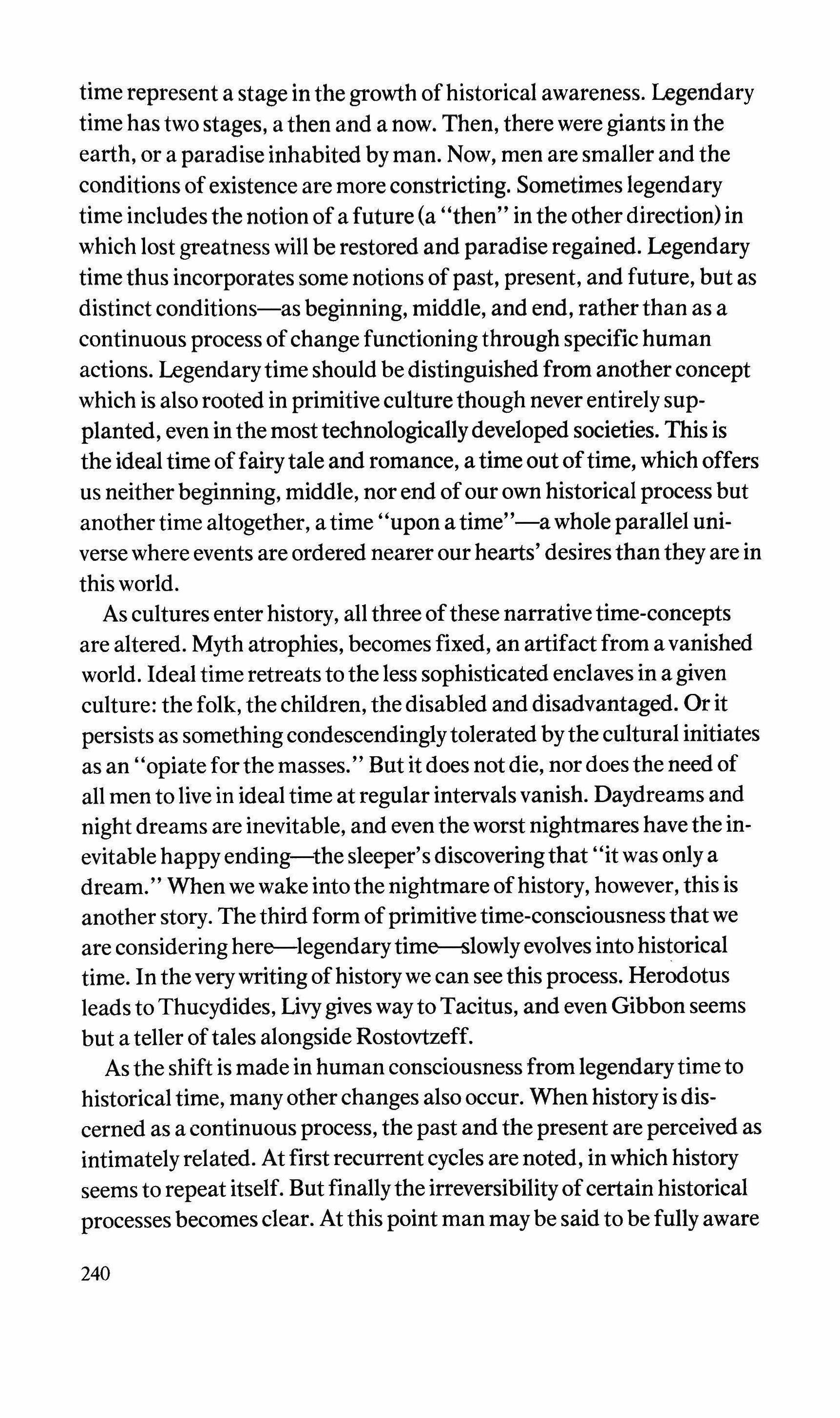
time represent a stage in the growth ofhistorical awareness. Legendary time has two stages, a then and a now. Then, there were giants in the earth, or a paradise inhabited by man. Now, men are smaller and the conditions ofexistence are more constricting. Sometimes legendary time includes thenotion of a future(a "then" inthe otherdirection)in which lost greatness will be restored and paradiseregained. Legendary time thus incorporates some notions of past, present, and future, but as distinct conditions-as beginning, middle, and end, rather than as a continuous process ofchangefunctioningthrough specific human actions. Legendarytime should be distinguished from another concept which is also rooted in primitive culture though never entirely supplanted, even inthe most technologicallydeveloped societies. This is the ideal time offairytale and romance, a time outoftime, which offers us neitherbeginning, middle, nor end of our own historical process but another time altogether, a time "upon a time"-a whole parallel universe where events are ordered nearer our hearts' desiresthan they are in this world.
As cultures enter history, all three ofthese narrative time-concepts are altered. Myth atrophies, becomes fixed, an artifact from a vanished world. Ideal time retreats to the less sophisticated enclaves in a given culture: thefolk, thechildren, the disabled and disadvantaged. Orit persists as somethingcondescendinglytolerated bythe cultural initiates as an "opiate forthe masses." But it does not die, nor does the need of all men to live in ideal time at regular intervals vanish. Daydreams and night dreams are inevitable, and even the worst nightmares have the inevitable happyending-the sleeper'sdiscoveringthat''it was only a dream." When we wake into the nightmare of history, however, this is another story. Thethird form ofprimitive time-consciousnessthat we are consideringhere--Iegendarytime--slowlyevolves into historical time. In theverywriting ofhistory we can see this process. Herodotus leads to Thucydides, Livygives way to Tacitus, and even Gibbon seems but a teller oftales alongside Rostovtzeff.
As the shift is made in human consciousness from legendarytime to historical time, many other changes also occur. When history is discerned as a continuous process, the past and the present are perceived as intimately related. At first recurrent cycles are noted, in which history seems to repeat itself. But finallythe irreversibilityofcertain historical processes becomes clear. At this point man may be said to be fully aware
240
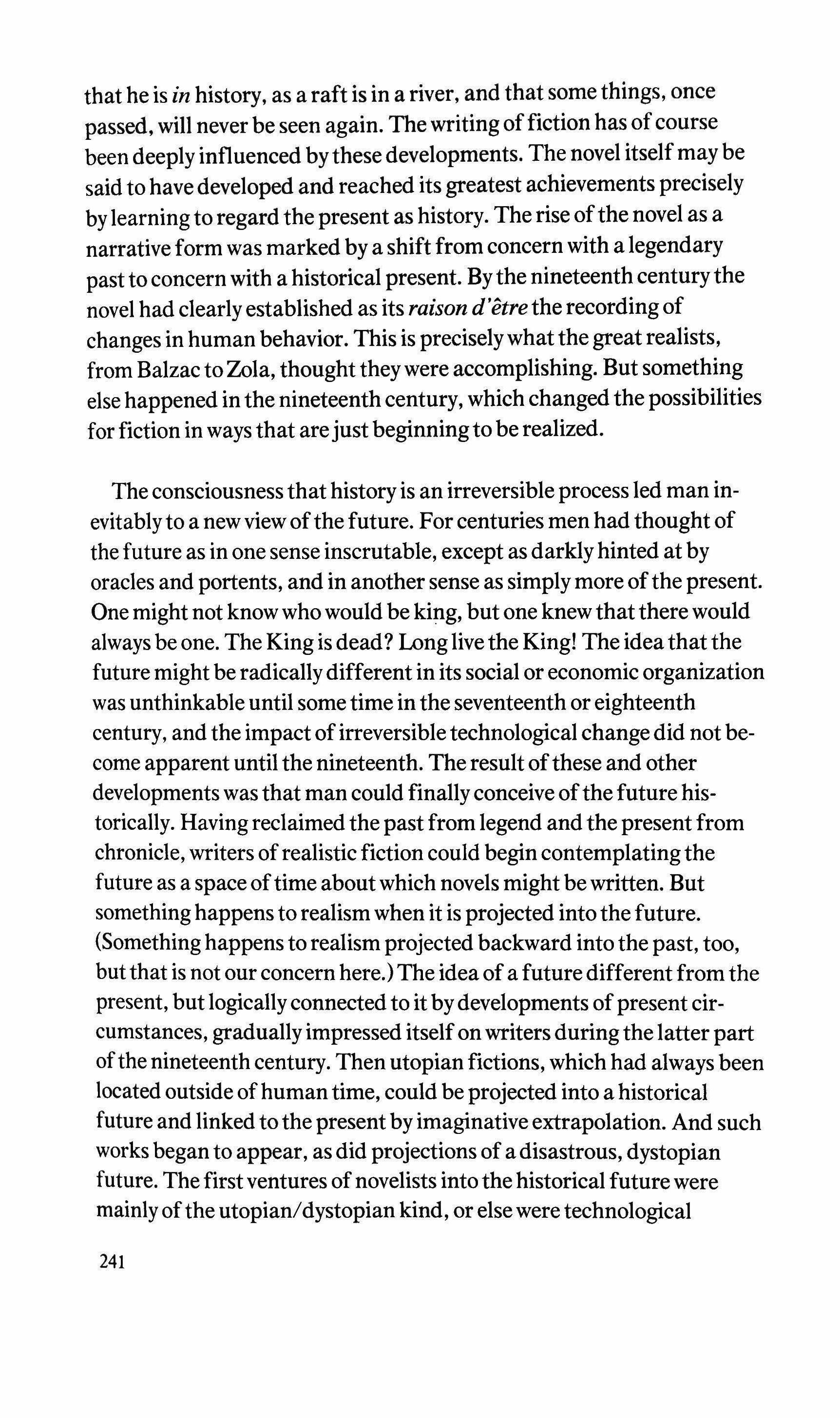
that he is in history, as a raft is in a river, and that some things, once passed, will never be seen again. The writing offiction has of course been deeply influenced bythese developments. The novel itself may be said to have developed and reached its greatest achievements precisely bylearning to regard the present as history. The rise ofthe novel as a narrative form was marked by a shift from concern with a legendary past to concern with a historical present. Bythe nineteenth centurythe novel had clearly established as its raison d'etrethe recordingof changes in human behavior. This is preciselywhatthe greatrealists, from Balzac to Zola, thoughtthey were accomplishing. But something else happened in the nineteenth century, which changed the possibilities for fiction in ways that are justbeginning to be realized.
The consciousness that historyis an irreversible process led man inevitablyto a new view ofthe future. For centuries men had thought of thefuture as in one sense inscrutable, except as darklyhinted at by oracles and portents, and in another sense as simply more ofthe present. One might not know whowould be king, but one knew thatthere would always be one. The King is dead? Longlivethe King! The idea that the future might be radically different in its social or economic organization was unthinkable until some time in the seventeenth or eighteenth century, and the impact ofirreversibletechnologicalchange did not become apparent until the nineteenth. The result ofthese and other developments was that man could finally conceive ofthefuture historically. Having reclaimed the past from legend and the present from chronicle, writers ofrealistic fiction could begincontemplatingthe future as a space oftime about which novels might be written. But somethinghappens to realism when it is projected into the future. (Somethinghappens to realism projected backward into the past, too, butthat is not our concern here.)The idea of a future different from the present, butlogically connected to itbydevelopments ofpresent circumstances, graduallyimpressed itself on writers duringthelatter part ofthe nineteenth century. Then utopianfictions, which had always been located outside ofhuman time, could be projected into a historical future and linked to the presentbyimaginativeextrapolation. And such works began to appear, as did projections of a disastrous, dystopian future. The first ventures ofnovelists into the historical future were mainly ofthe utopian/dystopiankind, or else were technological
241
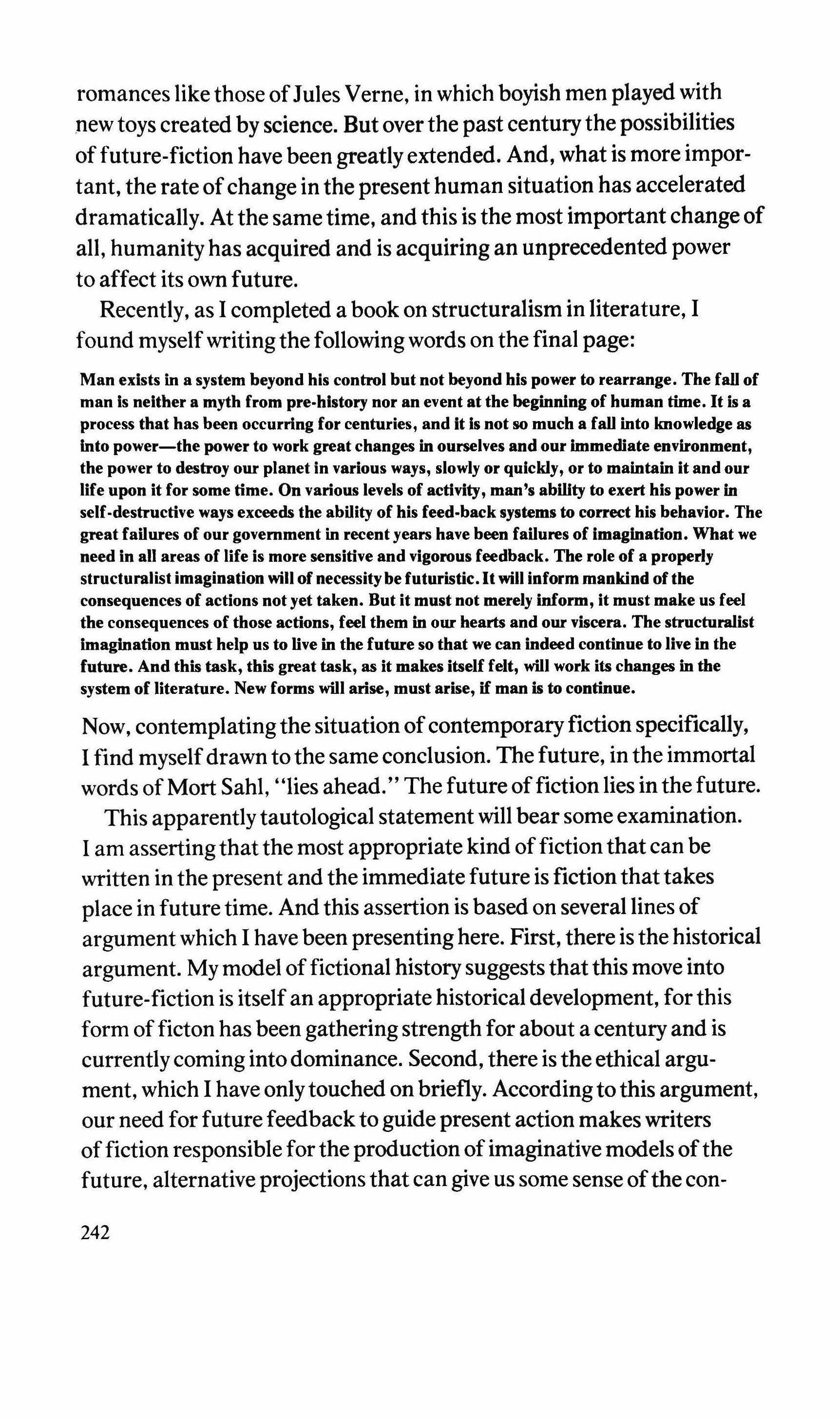
romances like those ofJules Verne, in which boyish men played with new toys created by science. But over the past centurythe possibilities offuture-fiction have been greatlyextended. And, what is more important, the rate ofchange in the present human situation has accelerated dramatically. At the same time, and this is the most importantchange of all, humanityhas acquired and is acquiring an unprecedented power to affect its own future.
Recently, as I completed a book on structuralism in literature, I found myselfwritingthe followingwords on the final page:
Man exists in a system beyond his control but not beyond his power to rearrange. The fall of man is neither a myth from pre.history nor an event at the beginning of human time. It Is a process that has been occurring for centuries, and It is not so much a fall into knowledge as into power-the power to work great changes in ourselves and our immediate environment, the power to destroy our planet in various ways, slowly or quickly, or to maintain it and our life upon it for some time. On various levels of activity, man's ability to exert his power in sell-destructive ways exceeds the ability of his feed-back systems to correct his behavior. The great failures of our government in recent years have been failures of imagination. What we need in all areas of life is more sensitive and vigorous feedback. The role of a properly structuralist imagination will of necessitybe futuristic.It will inform mankind of tbe consequences of actions not yet taken. But it must not merely inform, it must make us feel the consequences of those actions, feel them in our hearts and our viscera. The structuralist imagination must help us to live in the future so that we can indeed continue to live in the future. And this task, this great task, as it makes itself felt, will work its changes in the system of literature. New forms will arise, must arise, if man Is to continue.
Now, contemplatingthe situation ofcontemporaryfiction specifically, I find myselfdrawn to the same conclusion. The future, in the immortal words of Mort Sahl, "lies ahead." The future offiction lies inthe future. This apparentlytautological statement will bear some examination. I am assertingthat the most appropriate kind offictionthat can be written in the present and the immediate future is fictionthat takes place in future time. And this assertion is based on several lines of argument which I have been presentinghere. First, there is the historical argument. Mymodel of fictional historysuggests thatthis move into future-fiction is itself an appropriate historical development, forthis form officton has been gatheringstrength for about a century and is currentlycoming intodominance. Second, there is the ethical argument' which I have onlytouched on briefly. Accordingto this argument, our need for futurefeedback to guidepresent action makes writers offiction responsible forthe productionofimaginative models ofthe future, alternativeprojections that can give us some sense ofthe con-
242
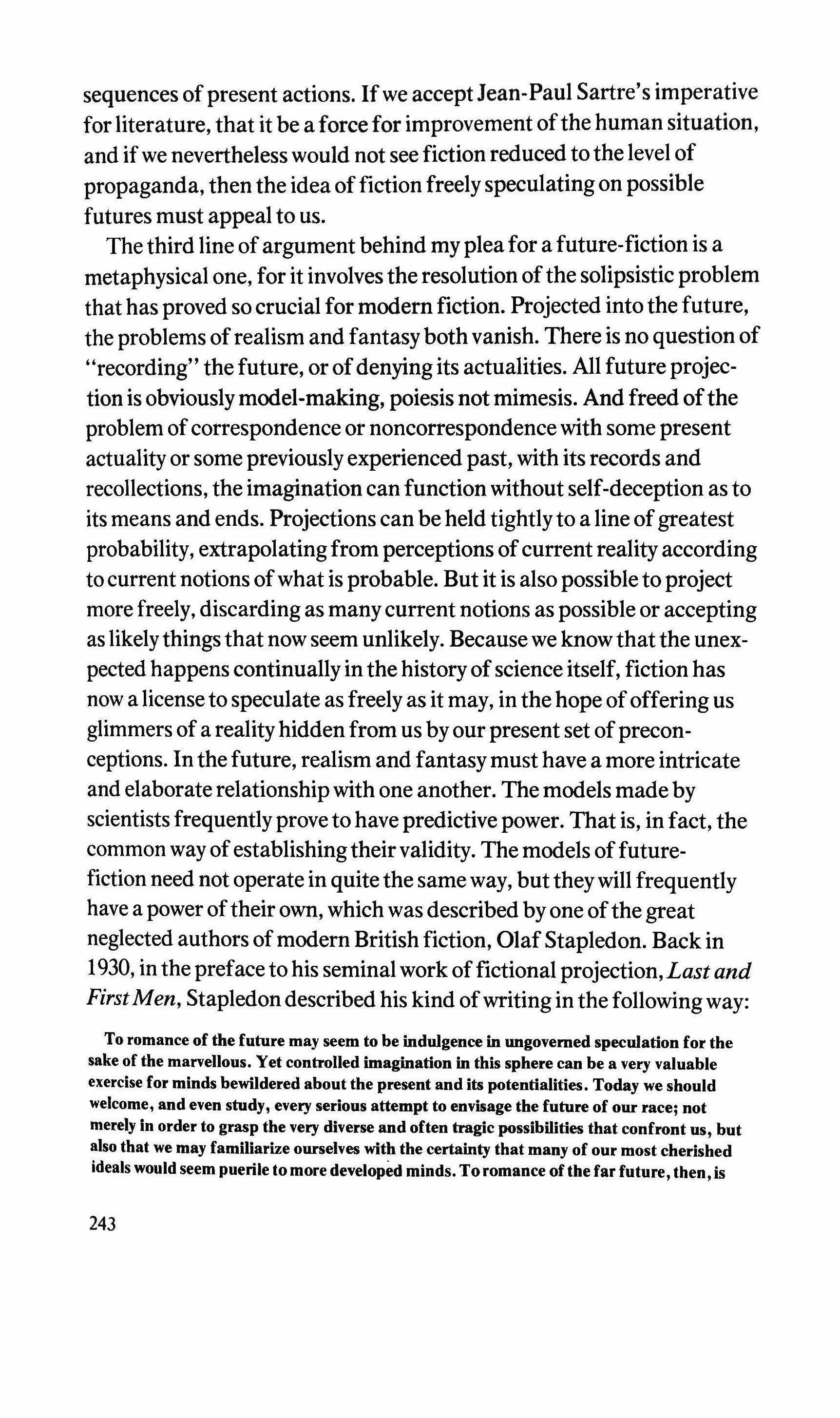
sequences ofpresent actions. If we accept Jean-Paul Sartre's imperative for literature, that it be a force for improvement ofthe human situation, and if we nevertheless would not see fiction reduced to the level of propaganda, then the idea offiction freelyspeculating on possible futures must appeal to us.
The third line ofargument behind my pleafor a future-fiction is a metaphysical one, for it involves the resolution ofthe solipsisticproblem that has proved so crucial for modern fiction. Projected into the future, the problems ofrealism and fantasyboth vanish. There is no question of "recording" thefuture, or ofdenying its actualities. All future projection is obviouslymodel-making, poiesis not mimesis. And freed ofthe problem ofcorrespondence or noncorrespondencewith some present actuality or some previouslyexperienced past, with its records and recollections, the imagination can function without self-deception as to its means and ends. Projections can be held tightly to a line ofgreatest probability, extrapolating from perceptions ofcurrent realityaccording to current notions ofwhat is probable. But it is also possible to project more freely, discarding as many current notions as possible or accepting as likelythingsthat now seem unlikely. Because we knowthatthe unexpectedhappenscontinuallyin the historyof science itself, fiction has now a license to speculate as freely as it may, in thehope ofoffering us glimmers of a realityhidden from us by our present set ofpreconceptions. In the future, realism and fantasy must have a more intricate and elaborate relationshipwith one another. The models madeby scientists frequently prove to have predictive power. That is, in fact, the common way ofestablishingtheirvalidity. The models offuturefiction need not operate in quitethe same way, buttheywill frequently have a power oftheir own, which was described by one ofthe great neglected authors of modern British fiction, Olaf Stapledon. Back in 1930, in the preface to his seminal work offictional projection,Lastand FirstMen, Stapledon described his kind ofwriting in the following way:
To romance of the future may seem to be indulgence in ungoverned speculation for the sake of the marvellous. Yet controlled imagination in this sphere can be a very valuable exercise for minds bewildered about the present and its potentialities. Today we should welcome, and even study, every serious attempt to envisage the future of our race; not merely in order to grasp the very diverse and often tragic possibilities that confront us, but also that we may familiarize ourselves with the certainty that many of our most cherished ideals would seem puerile to more developed minds. To romance of the far future, then, is
243
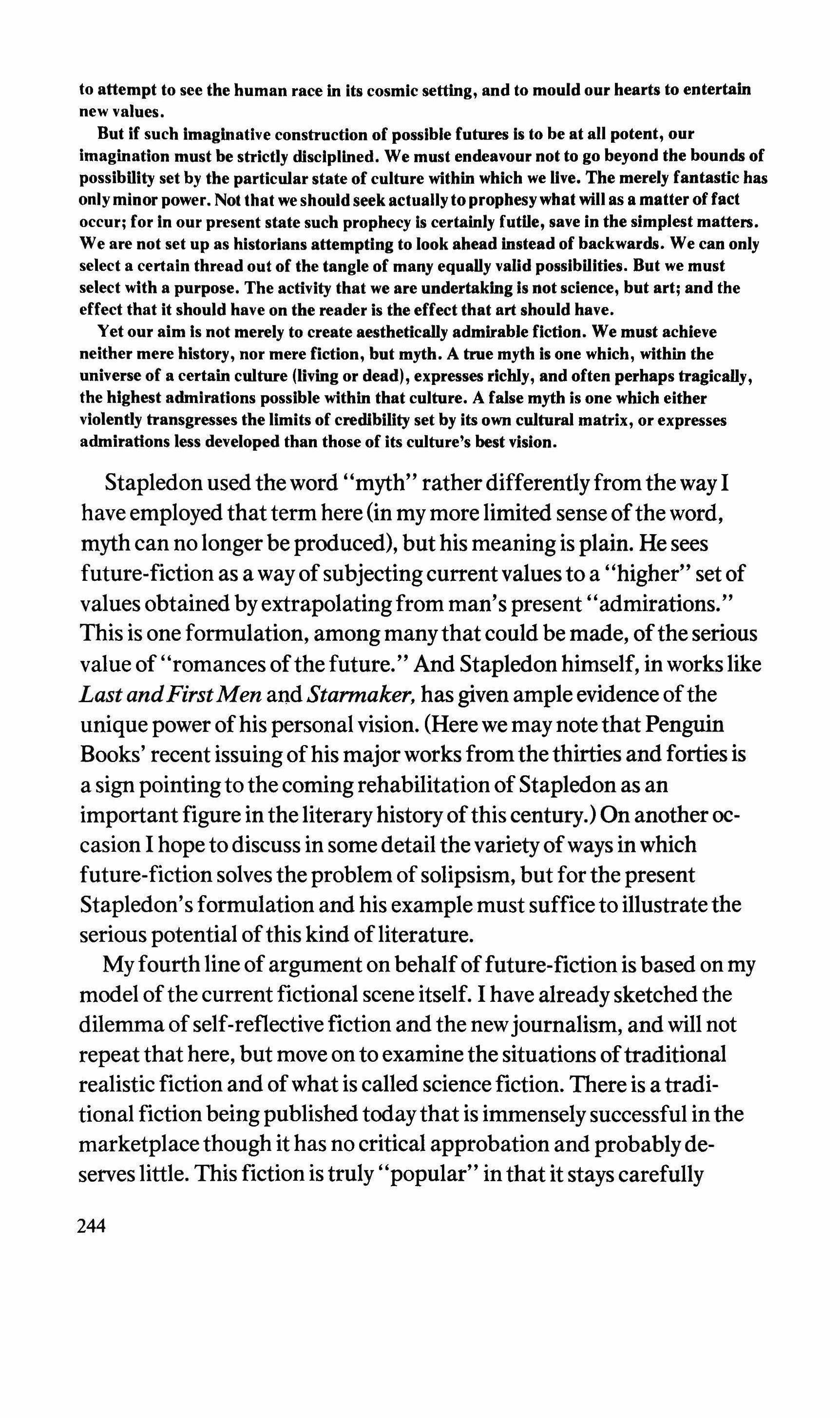
to attempt to see the human race in its cosmic setting, and to mould our hearts to entertain new values.
But if such Imaginative construction of possible futures Is to be at all potent, our Imagination must be strictly disciplined. We must endeavour not to go beyond the bounds of posslbUity set by the particular state of culture within which we live. The merely fantastic has onlyminor power. Not that we should seek actually to prophesywhat will as a matter of fact occur; for In our present state such prophecy Is certainly futile, save in the simplest matters. We are not set up as historians attempting to look ahead Instead of backwards. We can only select a certain thread out of the tangle of many equally valid posslbUities. But we must select with a purpose. The activity that we are undertaking Is not science, but art; and the effect that it should have on the reader is the effect that art should have.
Yet our aim Is not merely to create aesthetically admirable fiction. We must achieve neither mere history, nor mere fiction, but myth. A true myth Is one which, within the universe of a certain culture (living or dead), expresses richly, and often perhaps tragically, the highest admirations possible within that culture. A false myth is one which either violently transgresses the limits of credibility set by its own cultural matrix, or expresses admirations less developed than those of its culture's best vision.
Stapledon used theword''myth" ratherdifferentlyfrom the way I have employed that term here (in my more limited sense ofthe word, myth can no longerbe produced), but his meaning is plain. He sees future-fiction as a way ofsubjecting current values to a "higher" set of values obtained byextrapolatingfrom man's present "admirations." This is one formulation, among manythat could be made, ofthe serious value of "romances ofthefuture." And Stapledonhimself, in works like Last andFirstMen andStarmaker, has givenample evidence ofthe unique power ofhis personal vision. (Here we may note that Penguin Books' recent issuingofhis majorworks fromthethirties and forties is a signpointing to the coming rehabilitation of Stapledon as an importantfigure intheliteraryhistoryofthis century.) On another occasion I hope to discuss in some detail thevarietyofways in which future-fiction solves the problem of solipsism, but forthe present Stapledon's formulation and his example must suffice to illustratethe serious potential ofthis kind ofliterature.
Myfourth line ofargument on behalfoffuture-fiction is based on my model ofthe current fictional scene itself. I have alreadysketched the dilemma ofself-reflective fiction and the newjournalism, and will not repeatthat here, but move on to examine the situations oftraditional realistic fiction and ofwhat is called sciencefiction. There is a traditional fiction beingpublishedtodaythat is immensely successful inthe marketplacethough it has no critical approbation and probably deserves little. This fiction is truly"popular" inthat it stayscarefully
244
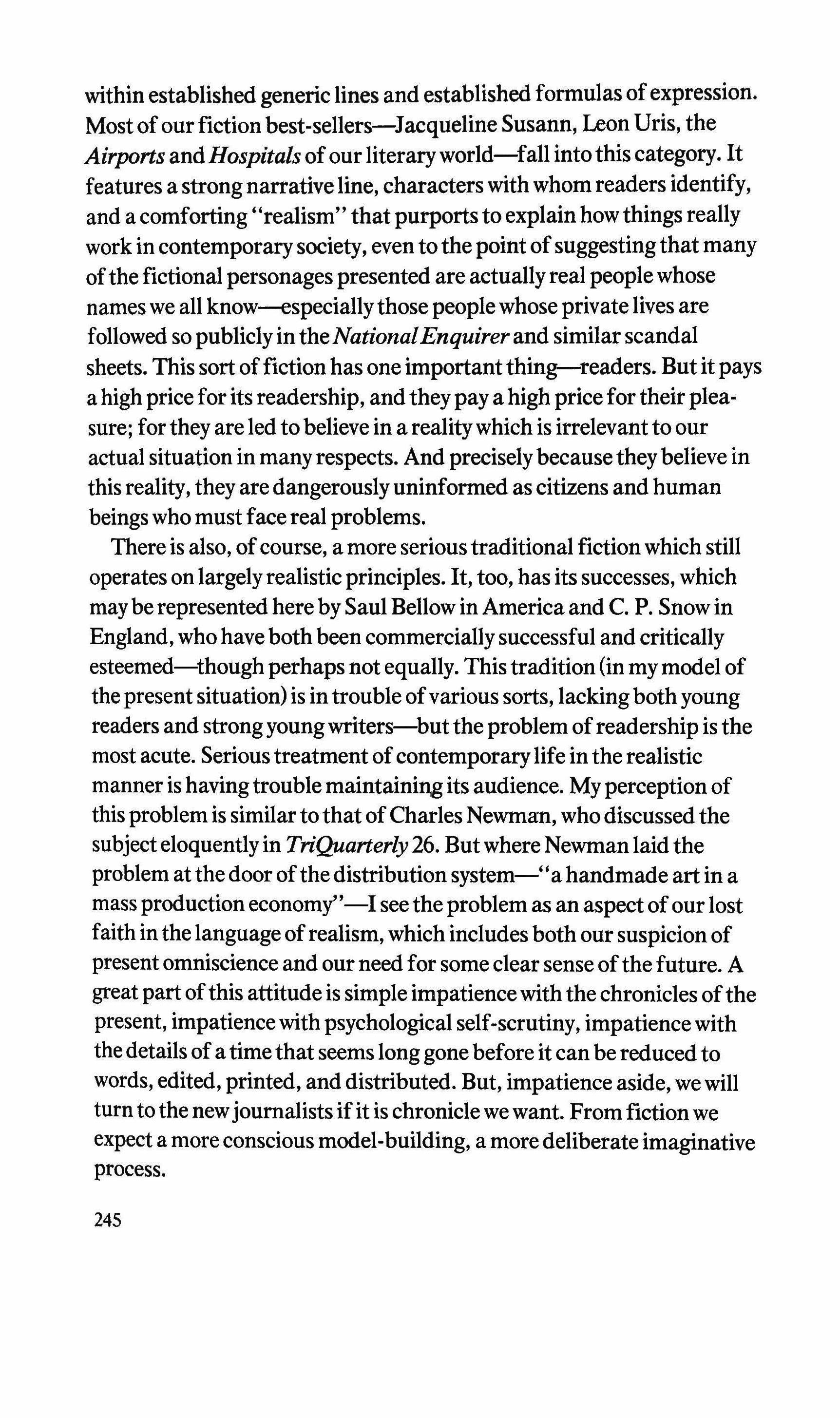
within established generic lines and established formulas ofexpression. Most of our fiction best-sellers-Jacqueline Susann, Leon Uris, the Airports andHospitals of our literaryworld-fall intothis category. It features a strongnarrative line, characters with whom readers identify, and a comforting "realism" that purports to explain howthingsreally work in contemporarysociety, even to the point ofsuggestingthat many ofthefictional personages presented are actuallyreal peoplewhose names we all know-especiallythosepeoplewhose private lives are followed so publiclyin theNationalEnquirer and similar scandal sheets. This sort offiction has one importantthing-readers. But it pays a highprice forits readership, and theypay a highpricefortheir pleasure; forthey are led to believe in a realitywhich is irrelevant to our actual situation in many respects. And preciselybecausetheybelieve in this reality,they are dangerouslyuninformed as citizens and human beings who must facereal problems.
There is also, ofcourse, a more serious traditional fictionwhich still operates on largelyrealistic principles. It, too, has its successes, which mayberepresented hereby Saul Bellow in America and C. P. Snow in England, who haveboth been commerciallysuccessful and critically esteemed-thoughperhaps not equally. Thistradition (in my model of the presentsituation) is in trouble ofvarious sorts, lackingboth young readers and strongyoungwriters-but the problem ofreadership is the most acute. Serious treatment ofcontemporarylife inthe realistic manner is havingtrouble maintaining its audience. Myperception of this problem is similar to that ofCharles Newman, whodiscussed the subjecteloquently in TriQuarterly 26. But where Newman laid the problem at the door ofthedistribution system-" a handmade art in a mass productioneconomy''-I see the problem as an aspect of our lost faith in the language ofrealism, which includes both our suspicion of presentomniscience and our need for some clear sense ofthe future. A greatpart ofthis attitudeis simpleimpatiencewith the chronicles ofthe present, impatiencewith psychological self-scrutiny, impatiencewith the details of a timethat seems long gone before it can be reduced to words, edited, printed, and distributed. But, impatience aside, we will turn to the newjournalists ifit is chronicle we want. From fiction we expect a more conscious model-building, a more deliberate imaginative process.
245
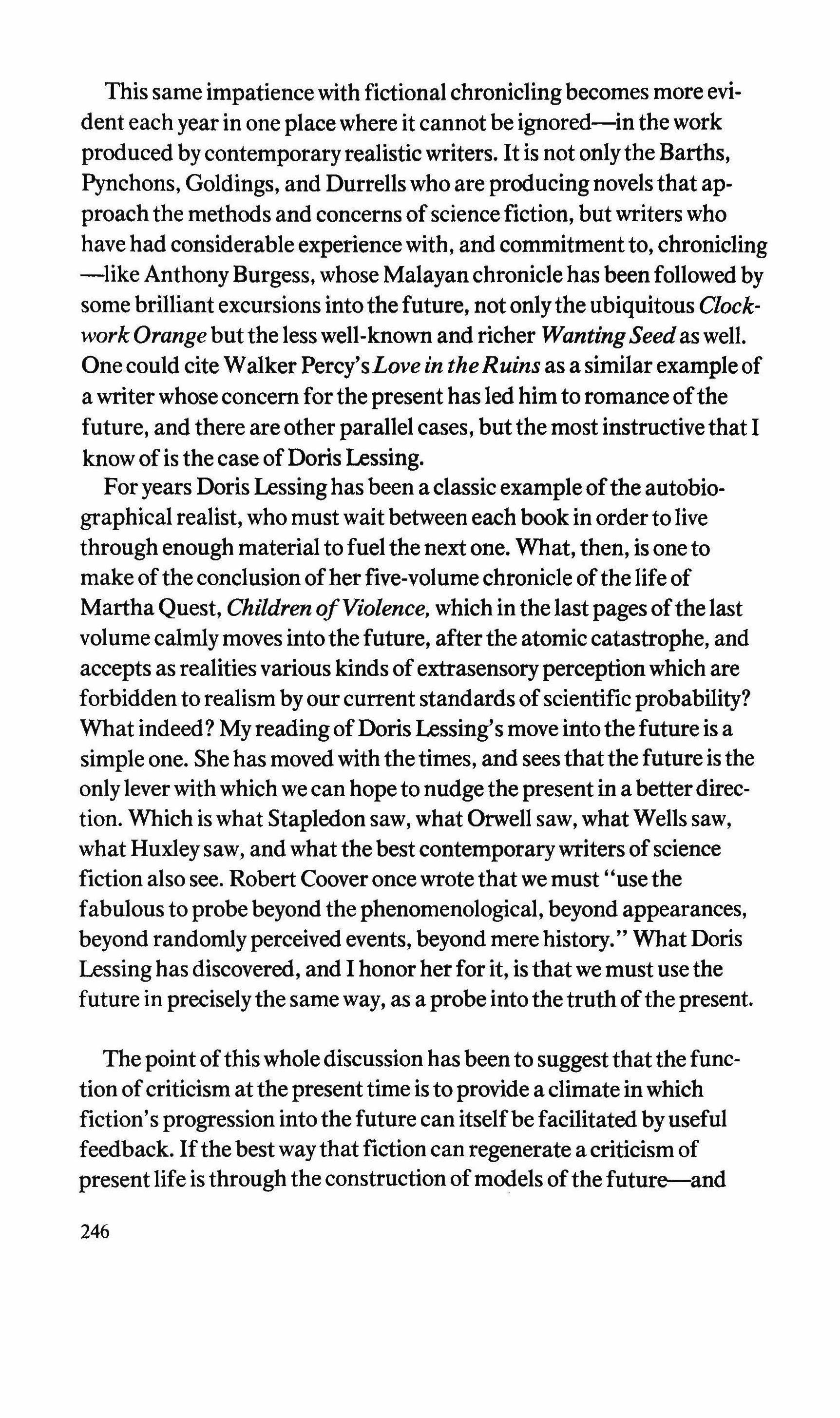
This same impatience with fictional chroniclingbecomes more evident each year in one placewhere it cannot be ignored-in the work producedbycontemporary realistic writers. It is not onlythe Barths, Pynchons, Goldings, and Durrells who are producingnovels that approach the methods and concerns ofscience fiction, but writers who have had considerable experiencewith, and commitment to, chronicling -like AnthonyBurgess, whose Malayan chronicle has been followed by some brilliant excursions intothefuture, not onlythe ubiquitous ClockworkOrange butthe less well-known and richer WantingSeed as well. Onecould cite Walker Percy'sLove in theRuins as a similar example of a writer whose concern forthe present has led him to romance ofthe future, and there are other parallel cases, butthe most instructivethat I know ofis the case ofDoris Lessing.
Foryears Doris Lessinghas been a classic example ofthe autobiographical realist, who must wait between each book in orderto live throughenough material to fuel the next one. What, then, is one to make ofthe conclusion ofher five-volume chronicle ofthe life of Martha Quest, Children ofViolence, which in thelast pages ofthelast volume calmly moves intothe future, afterthe atomic catastrophe, and accepts as realities various kinds ofextrasensoryperceptionwhich are forbidden to realism by our current standards ofscientific probability? What indeed? Myreading ofDoris Lessing's move intothefuture is a simple one. She has moved with thetimes, and sees thatthe future isthe onlylever with which we can hope to nudgethe present in a betterdirection. Which is what Stapledon saw, what Orwell saw, what Wells saw, what Huxley saw, and whatthebestcontemporary writers ofscience fiction also see. Robert Coover once wrote that we must''usethe fabulous to probebeyond the phenomenological, beyond appearances, beyondrandomlyperceived events, beyond mere history." What Doris Lessinghas discovered, and I honor herfor it, isthat we must use the future in preciselythe same way, as a probe intothetruth ofthe present.
The point ofthiswhole discussion has been to suggestthatthe function ofcriticism at the presenttime is to provide a climate inwhich fiction's progression intothe future can itselfbe facilitated byuseful feedback. Ifthebest waythat fiction can regenerate a criticism of presentlife is through the construction ofmodels ofthefuture-and
246
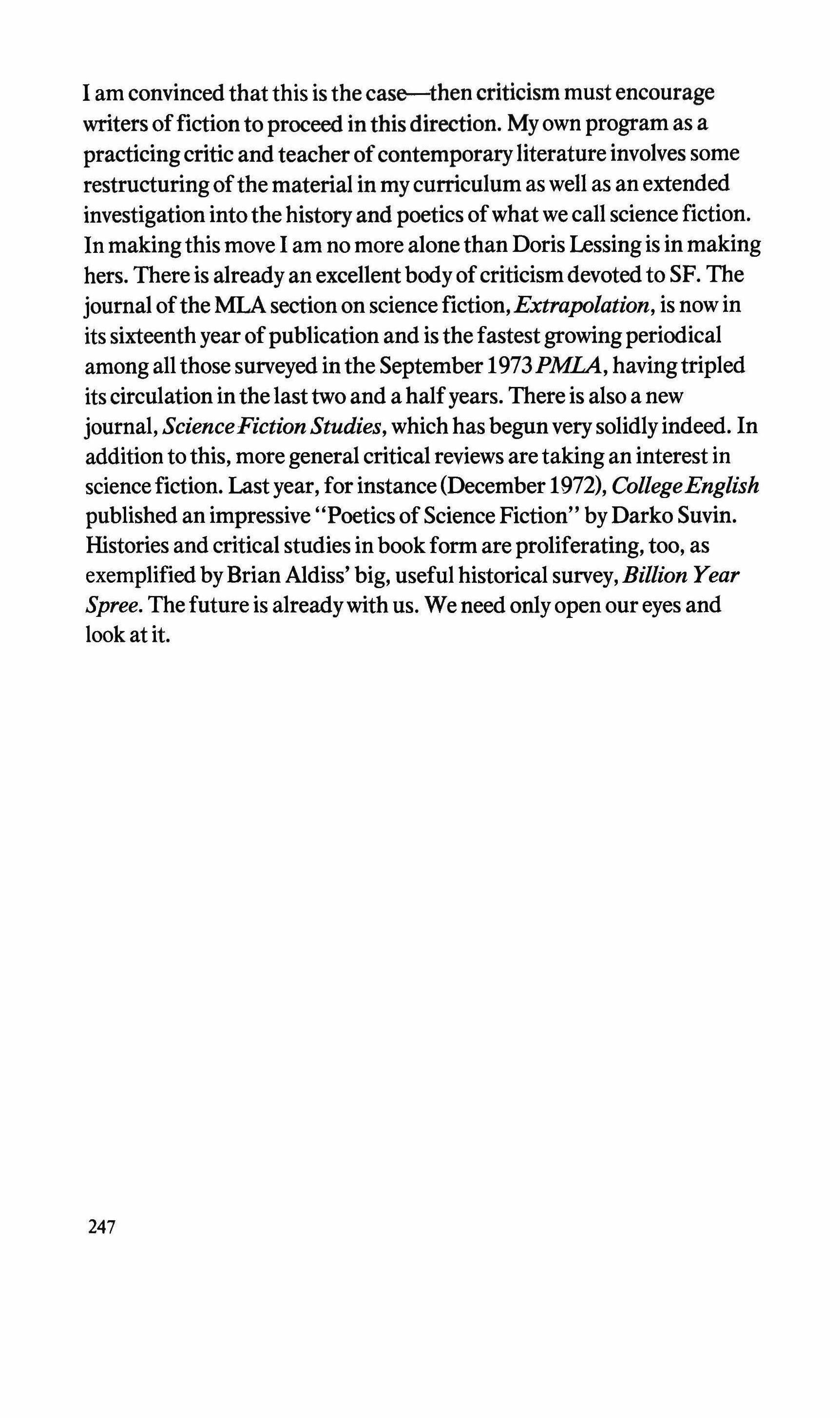
I am convinced that this is the case-then criticism must encourage writers offiction to proceed inthis direction. My own program as a practicingcritic and teacher ofcontemporaryliterature involves some restructuringofthe material in mycurriculum as well as an extended investigation intothe history and poetics ofwhat we call science fiction. In makingthis move I am no more alone than Doris Lessingis in making hers. There is already an excellentbody ofcriticismdevoted to SF. The journal ofthe MLA section on sciencefiction,Extrapolation, is now in its sixteenth year ofpublication and is thefastestgrowingperiodical among allthose surveyed inthe September 1973PMLA, havingtripled its circulation in thelast two and a halfyears. There is also a new journal, ScienceFictionStudies, which has begun verysolidlyindeed. In addition to this, more general critical reviews are taking an interest in sciencefiction. Lastyear, for instance(December 1972), CollegeEnglish published an impressive "Poetics of Science Fiction" byDarko Suvin. Histories and critical studies inbookform are proliferating, too, as exemplifiedbyBrian Aldiss' big, useful historical survey, Billion Year Spree. The future is alreadywith us. We need onlyopen our eyes and look at it.
247
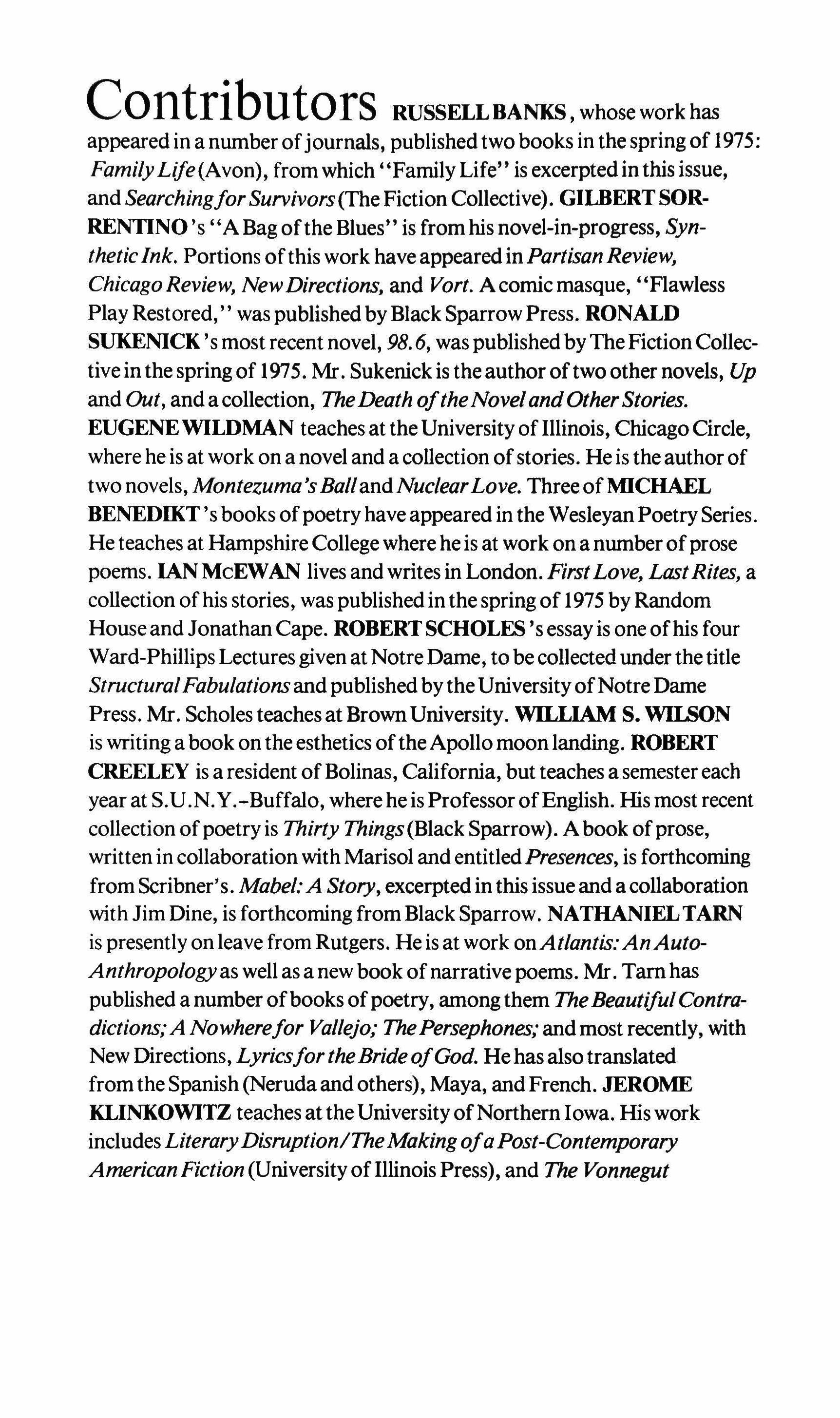
Co
ntributors RUSSELL BANKS whose work has appeared in a number ofjournals, published two books in the spring of 1975: FamilyLife(Avon), from which "Family Life" is excerpted in this issue, and SearchingforSurvivors(The Fiction Collective). GILBERT SORRENTINO s "A Bag ofthe Blues" is from his novel-in-progress, SyntheticInk. Portions ofthis work have appeared inPartisan Review, ChicagoReview, NewDirections, and Vort. Acomic masque, "Flawless PlayRestored," was publishedby Black Sparrow Press. RONALD SUKENICK 's most recent novel, 98.6, was publishedby The Fiction Collective in the spring of 1975. Mr. Sukenick is the author oftwo other novels, Up and Out, and a collection, TheDeath oftheNovelandOtherStories.
EUGENEWILDMAN teaches at the University of Illinois, ChicagoCircle, where he is at work on a novel and a collection ofstories. He is the author of two novels, Montezuma'sBallandNuclearLove. Three ofMICHAEL BENEDIKT's books ofpoetry have appeared in the WesleyanPoetry Series. He teaches at Hampshire College where he is at work on a number ofprose poems. IAN McEWAN lives and writes in London. FirstLove, LastRites, a collection ofhis stories, was published in the spring of 1975 by Random Houseand Jonathan Cape. ROBERT SCHOLES's essay is one ofhis four Ward-Phillips Lectures given at Notre Dame, to be collected under the title StructuralFabulationsand publishedbythe UniversityofNotre Dame Press. Mr. Scholes teaches at BrownUniversity. WILLIAM S. WILSON is writing a book on the esthetics oftheApollo moon landing. ROBERT CREELEY is a resident of Bolinas, California, but teaches a semester each year at S.U.N.Y. - Buffalo, where he is Professor ofEnglish. His most recent collection ofpoetry is Thirty Things(Black Sparrow}. Abook ofprose, written in collaboration with Marisol and entitledPresences, is forthcoming from Scribner's. Mabel:A Story, excerpted in this issue and a collaboration with Jim Dine, is forthcoming from Black Sparrow. NATHANIELTARN is presently on leave from Rutgers. He is at work on Atlantis:AnAutoAnthropology as well as a new book ofnarrative poems. Mr. Tarnhas published a number ofbooks ofpoetry, among them TheBeautifulContradictions;A Nowherefor Vallejo; ThePersephones; and most recently, with New Directions, LyricsfortheBrideofGod. Hehas also translated from the Spanish(Neruda and others), Maya, and French. JEROME KLINKOWITZ teaches at the UniversityofNorthern Iowa. His work includesLiteraryDisruption/TheMakingofa Post-Contemporary AmericanFiction (University ofIllinois Press), and The Vonnegut
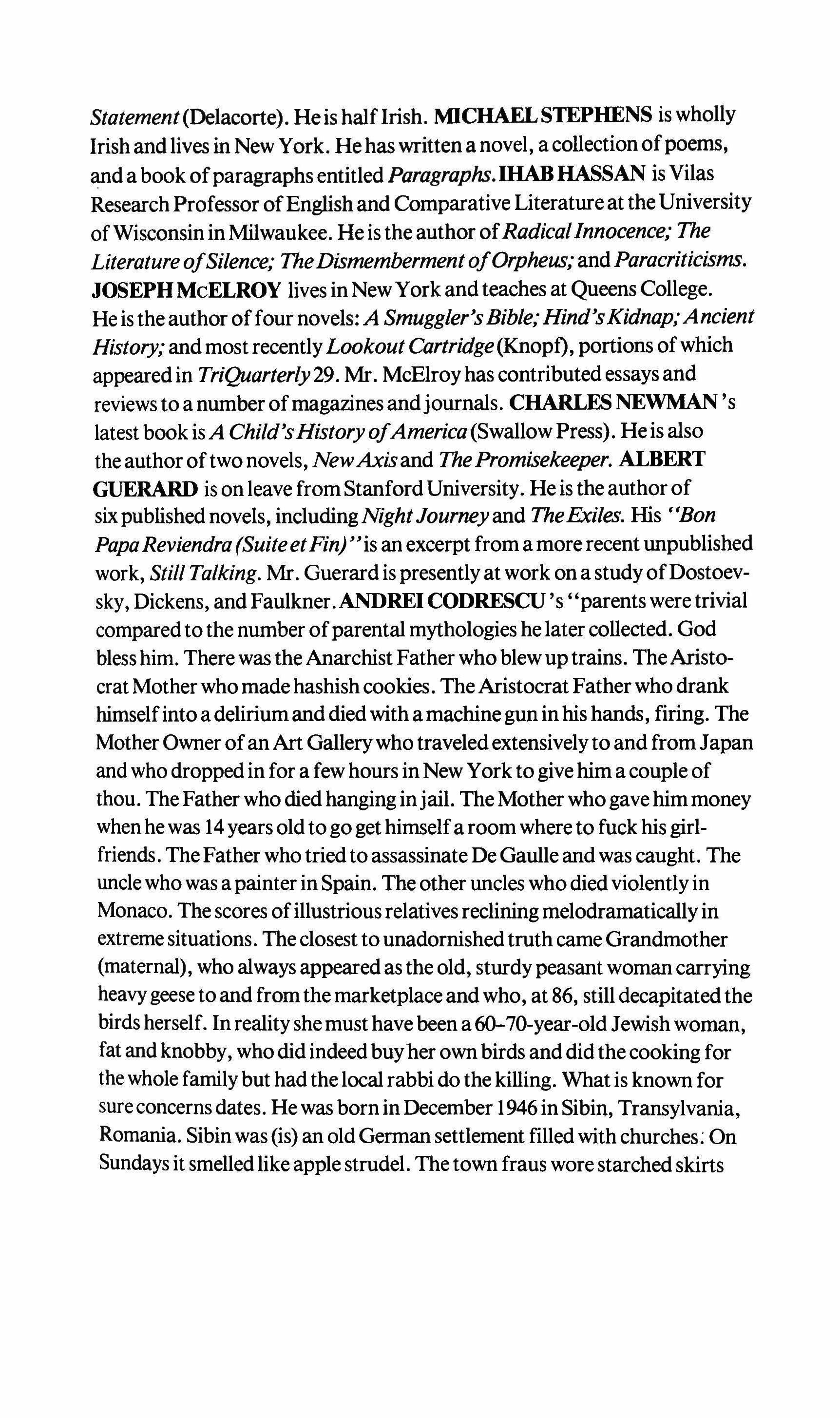
Statement(Delacorte). Heis halfIrish. MICHAELSlEPHENS is wholly Irish and lives in New York. Hehas written a novel, a collection ofpoems, and a book ofparagraphs entitled Paragraphs.IHAB HASSAN is Vilas ResearchProfessor ofEnglish and Comparative Literature at the University ofWisconsin in Milwaukee. He is the author ofRadicalInnocence; The Literature ojSilence; TheDismemberment ojOrpheus; andParacriticisms. JOSEPHMcELROY lives in NewYorkand teaches at QueensCollege. He is the author offour novels: A Smuggler'sBible;Hind'sKidnap;Ancient History; and most recentlyLookout Cartridge(Knopf), portions ofwhich appeared in TriQuarterly29. Mr. McElroy has contributed essays and reviews to a number ofmagazines andjournals. CHARLES NEWMAN's latest book isA Child'sHistoryojAmerica(SwallowPress). Heis also the author oftwo novels, NewAxisand ThePromisekeeper. ALBERT GUERARD is on leave from Stanford University. He is the author of sixpublishednovels, includingNightJourneyand TheExiles. His "Bon PapaReviendra (SuiteetFin)"is an excerpt from a more recent unpublished work, Still Talking. Mr. Guerard is presently at work on a studyofDostoevsky, Dickens, and Faulkner.ANDREI CODRESCU 's "parents were trivial compared to the number ofparental mythologies he later collected. God bless him. There was the Anarchist Father who blew up trains. TheAristocrat Mother who made hashish cookies. TheAristocratFatherwho drank himselfinto a deliriumand died with a machinegun inhis hands, firing. The Mother Owner of an Art Gallery who traveledextensively to and from Japan and who dropped in for a few hours in New York to give him a couple of thou. The Father who died hanging injail. The Mother who gave himmoney whenhe was 14years old to go get himself a room where to fuck his girlfriends. TheFather who tried to assassinate De Gaulle and was caught. The uncle who was a painter in Spain. The other uncles who died violently in Monaco. The scores ofillustrious relatives recliningmelodramaticallyin extreme situations. The closest to unadornished truth came Grandmother (maternal), who alwaysappeared as the old, sturdypeasant woman carrying heavy geese to and fromthe marketplace and who, at 86, still decapitatedthe birds herself. In realityshe must have been a 6O-70-year-old Jewish woman, fat and knobby, who did indeed buyher own birds and did the cooking for thewhole family but had the local rabbi do the killing. What is known for sure concerns dates. He was born in December 1946 in Sibin, Transylvania, Romania. Sibin was (is) an old German settlement filledwith churches: On Sundays it smelledlike apple strudel. The town fraus wore starched skirts
that covered them to their ankles with a crispy armor. When he came to the age of sex he often fantasized breaking one ofthose skirts open in front with his fist and raping it. To the age of sex he came relativelylate." WILLIAM E. BIDERBOST was graduated fromthe Universityof Illinois in 1967. After working several years as Art Director/Designer for Chicagoadvertising agencies, he turned to free-lance illustration and design. He also spent a year at Columbia College in Chicagoteaching poster design and fantasydrawing. His work has appearedin national magazines and has been awarded Certificates ofMerit and Excellence from CommunicationArtsMagazine, Chicago 4, The Copy Club ofNew York, and TheAmerican Institute ofGraphic Arts. Mr. Biderbost is currentlyworking on a playgrounddesign for blind children and a seriesFirstPictureBooks/orBoysandGirls. He is a collector ofpre-l940children'sbooks, games, wood-jointed cartoon dolls, andArtDeco kitsch. His illustration for the cover ofthis issue was inspired by Gilbert Sorrentino's A Bag0/theBlues.
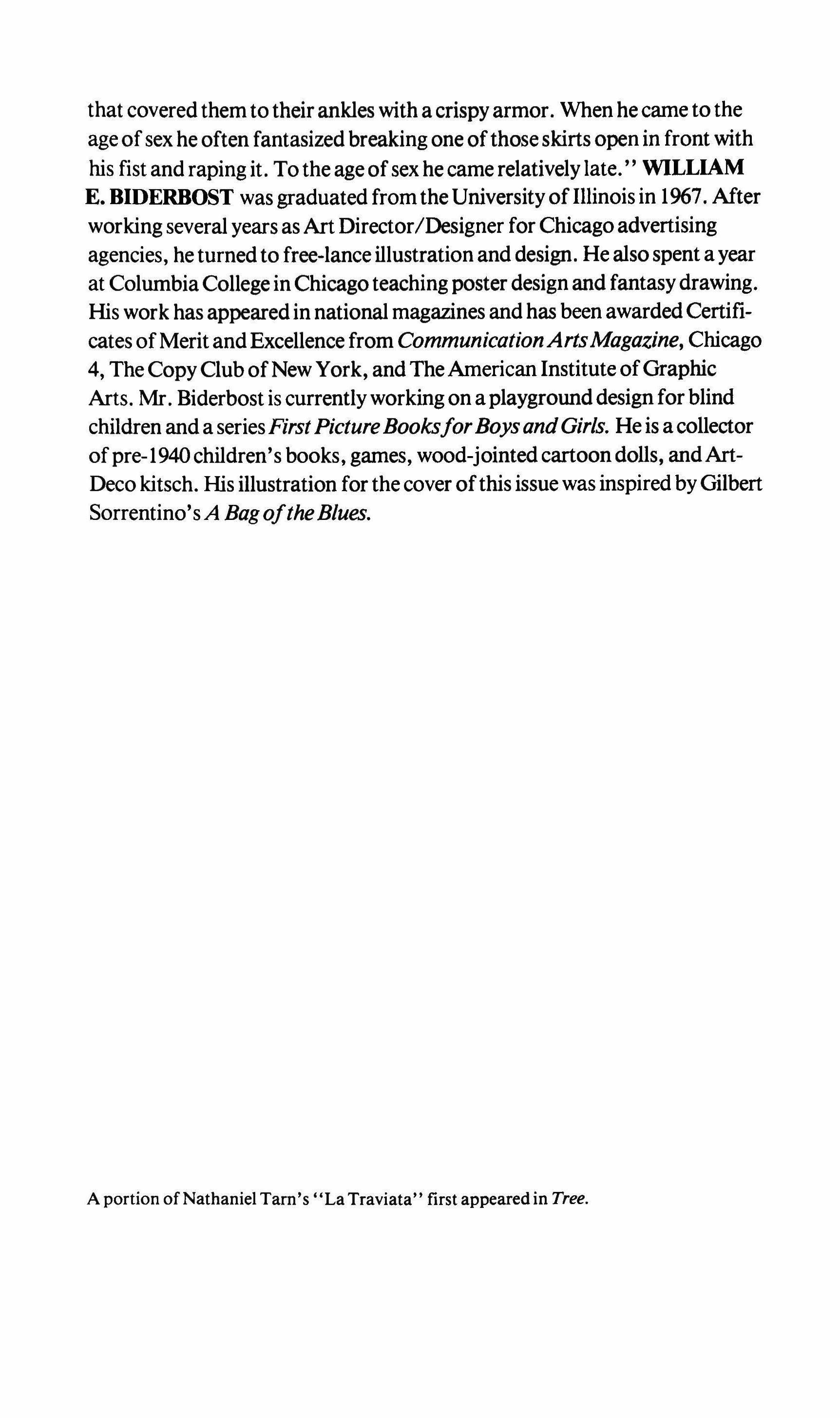
A portion of Nathaniel Tarn's
appearedin Tree.
"La Traviata" first
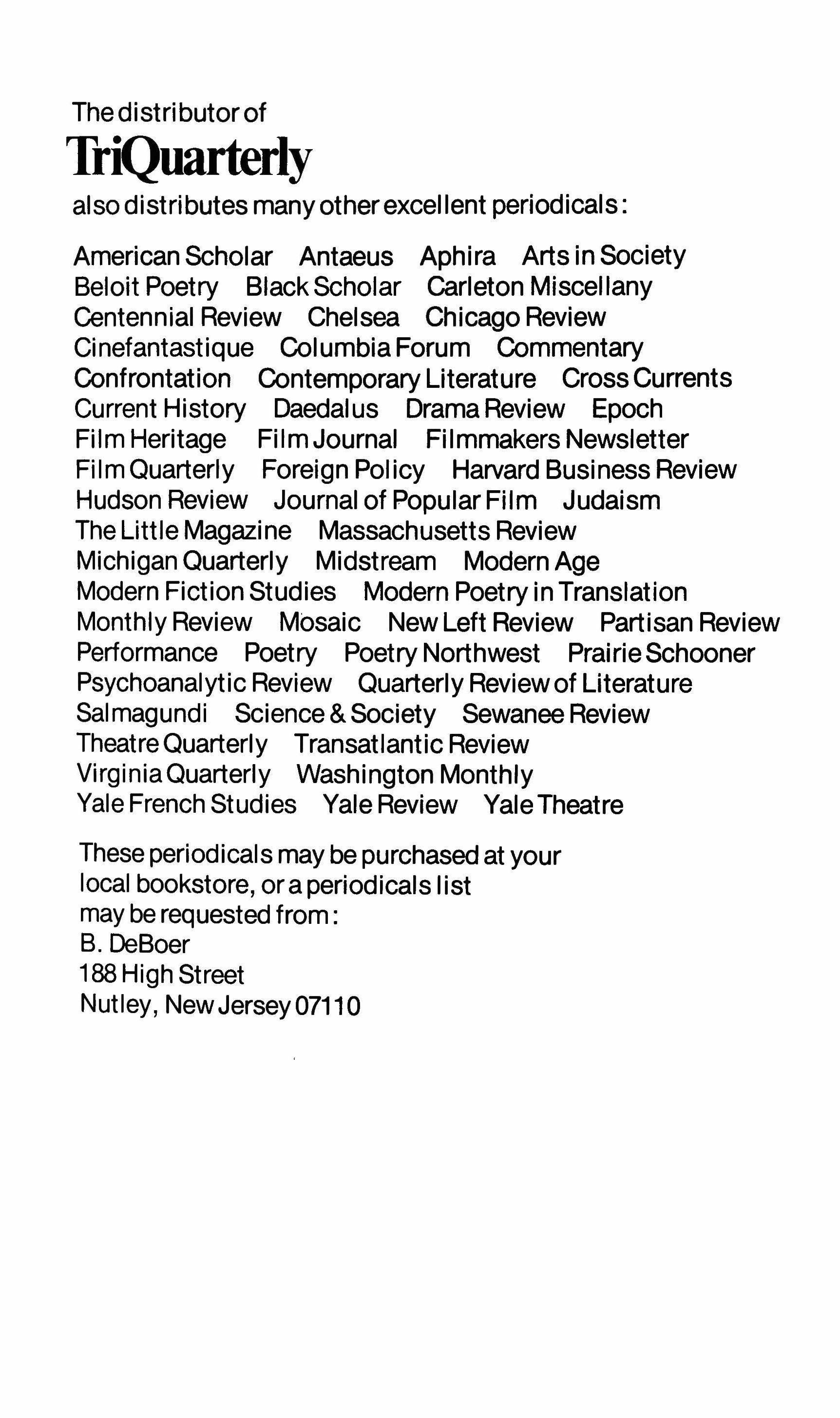
Thedistributorof
TriQuarterly
also distributes many otherexcellent periodicals:
American Scholar Antaeus Aphira Arts in Society
Beloit Poetry Black Scholar Carleton Miscellany
Centennial Review Chelsea Chicago Review
Cinefantastique Columbia Forum Commentary
Confrontation Contemporary Literature Cross Currents
Current History Daedalus Drama Review Epoch
FiI m Heritage Fi I m Journal FiImmakers Newsletter
Film Quarterly Foreign Policy Harvard Business Review
Hudson Review Journal of Popular Film Judaism
The Little Magazine Massachusetts Review
Michigan Quarterly Midstream Modern Age
Modern Fiction Studies Modern Poetry in Translation
Monthly Review Mosaic New Left Review Partisan Review
Performance Poetry Poetry Northwest Prairie Schooner
Psychoanalytic Review Quarterly Reviewof Literature
Salmagundi Science & Society Sewanee Review
Theatre Quarterly Transatlantic Review
VirginiaQuarterly Washington Monthly
Yale French Studies Yale Review YaleTheatre
These periodicals may be purchased at your local bookstore, ora periodicals list may be requested from: B. DeBoer
188 High Street
Nutley, NewJersey07110
TriQuarterly is pleased to announce the first in a series of limited edition posters signed and numbered by contemporary artists. Number 1 in the series is by William Biderbost whose collage/illustrations are featured in TriQuarterly 33. The Poster was silk screened under the supervision of the artist in five colors on Strathmore in an edition of 275.
To order send check or money order to TriQuarterly 101 University Hall Northwestern University Evanston, Illinois 60201 As this is a limited edition orders will be honored in order of receipt.
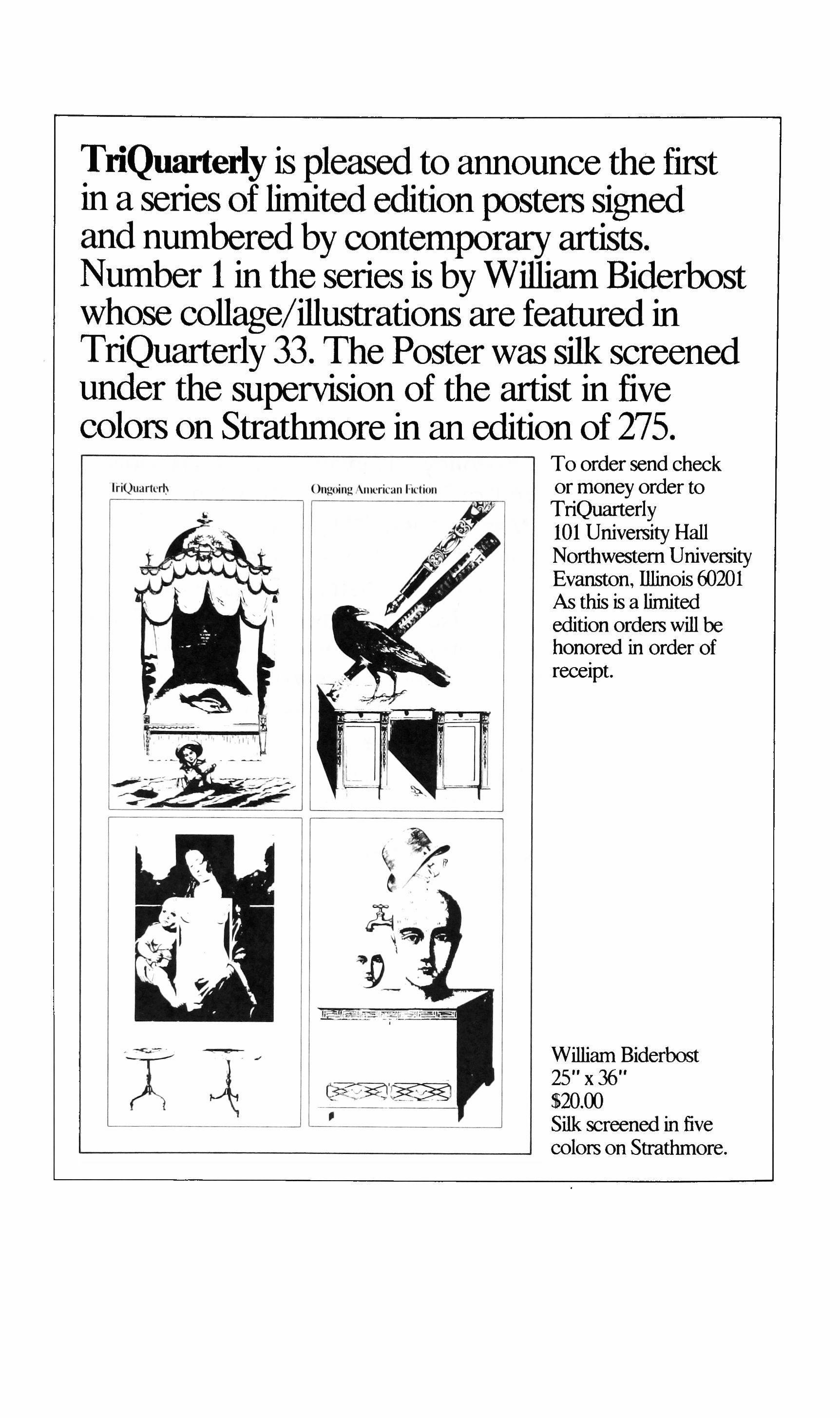
William Biderbost 25" x 36" $20.00
Silk screened in five colors on Strathmore.
Iri<)uartl'r� ()lIg(�llg Anll'ric;'lll lil'tion
1� �" .. �� ����

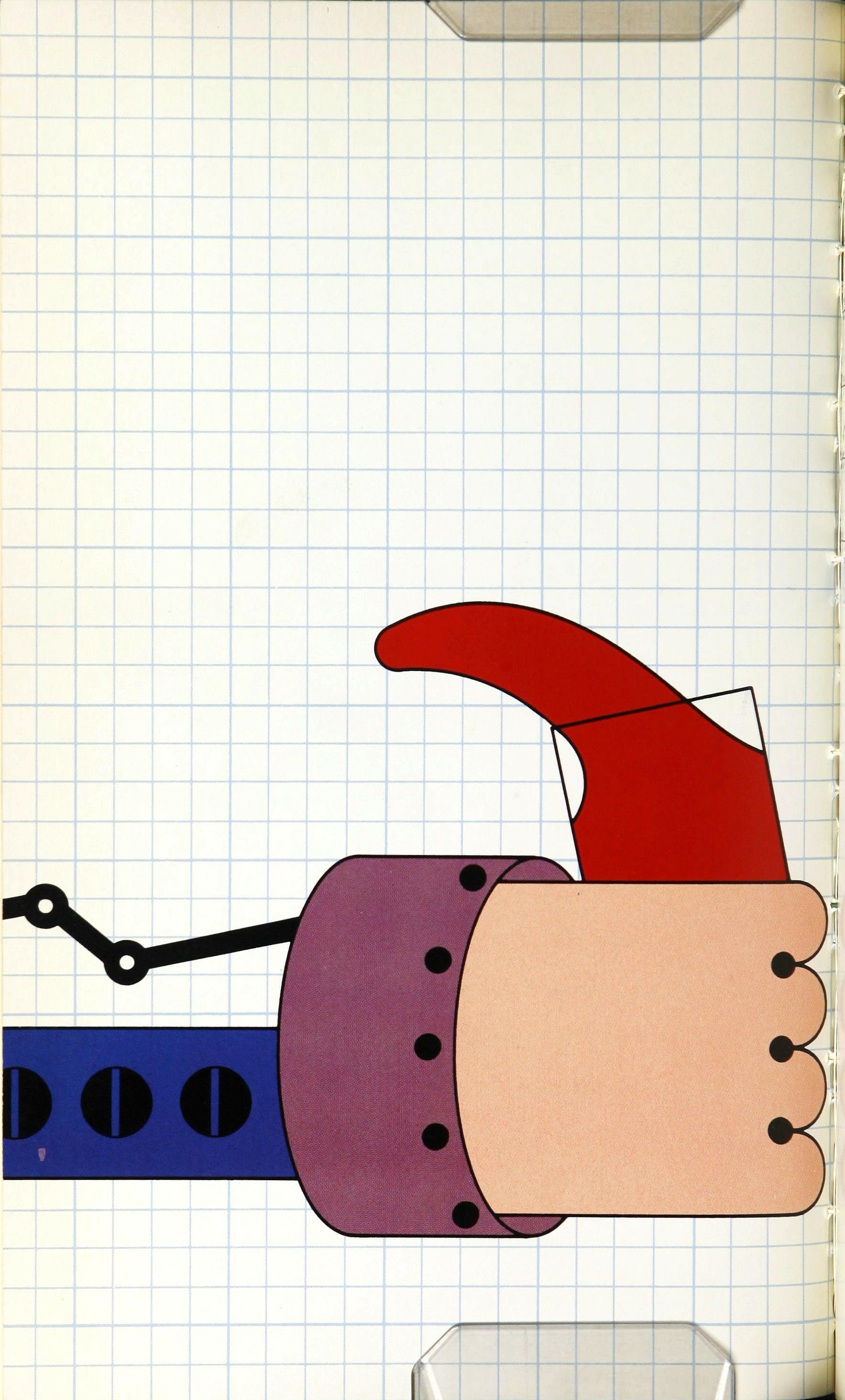
t �l II �-_'___"""'__+--+----l--�+--+-+-+-��� r





















































































































































































 forHansMayer
forHansMayer









































































